





































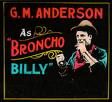
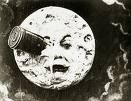

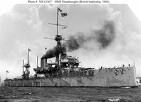


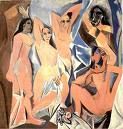













































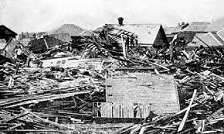


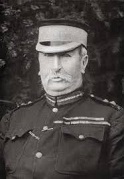










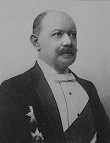


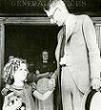








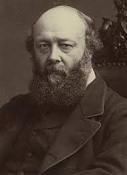
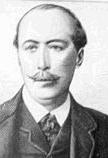
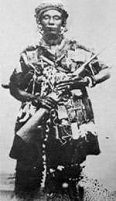

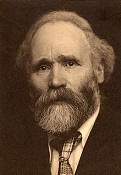
















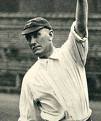

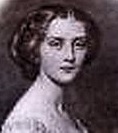





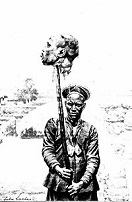
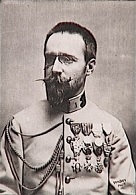
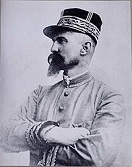


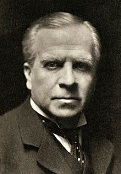




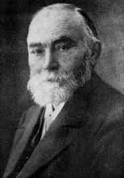





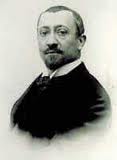



















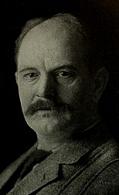
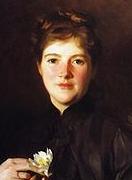






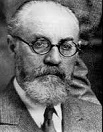



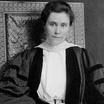

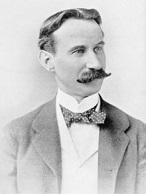
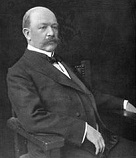
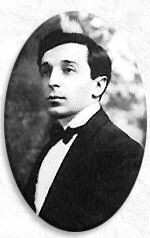
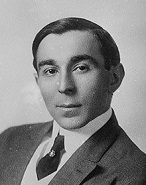
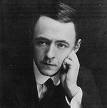








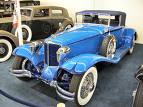






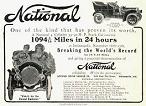
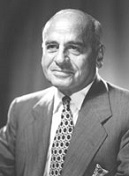

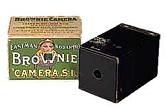
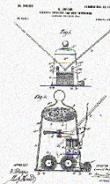
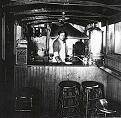

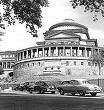

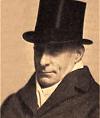



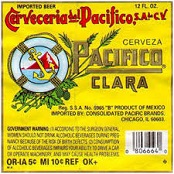
1900 Jan. 1, 1900 falls on Monday, so this is a Moon Century. Chinese Year: Rat - just the Year, or the Century of the Rat? As "America's Century" starts, world pop. is 1.6B, a gain of 600M in 1 cent.; Spanish-speaking America: 44M; Brazil: 18M; Russia: 150M; world pop. in 2000: 6B. The Twelfth (12th) (1900) U.S. Census reports a total pop. of 75,994,775 in a land area of 2,969,834 sq. mi. (25.6 per sq. mi.); the Amerindian pop. is down to a low point of 250K, and doesn't start rebounding for 20 years; pop. of New York City: 1.840M, of which 70% live in tenements; pop. of San Francisco: 350K; pop. of Washington, D.C. is 278,718 incl. 191,532 white and 86,702 black; 25% of the pop. of Chicago are 1st or 2nd gen. German immigrants; London 4.5M, Paris 2.7M, Berlin 2M, Tokyo 1.9M, Vienna 1.3M. Life expectancy: W Europe: 50 years; U.S.: 46.3 males, 48.3 females. 60% of the U.S. pop. lives in rural areas sans electricity, which doesn't stop those who have it from wanting the newfangled vacuum cleaner devices, with 200+ manufacturers springing up by 1920. There are 4K breweries in the U.S. In 1900-14 Germany triples its spending on warships to become the 2nd strongest naval power, while Russia almost doubles its spending on the army. The Modern Maximum of solar activity esp. sunspots begins, ramping up in the 1940s and reaching the highest level since the warm Boreal Period in 7K B.C.E. during the late 1950s, reaching a double peak in the 1950s and another in the 1990s, with the highest level of solar magnetic activity for most of the past 11.4K years. Buckminster Fuller's Knowledge Doubling Curve begins this year, with the amount of info. humans have access to going from doubling every cent. to an exponential halved rate: 1900-50, 1950-75, 1975-88, 1988-94, 1994-7, 1997-9, 1999-2000, etc. New York City, Chicago, and Boston have a total of 2,370 automobiles, 1,170 powered by steam, 800 by electricity, and 400 by gasoline. This cent. goes in with a lion (Pope Leo XIII) and goes out with a lamb (Pope John Paul II)? At the start of the 20th cent. there are 13 kingdoms in Africa (Burundi, CAR, Congo, Egypt, Ethiopia, Lesotho, Libya, Morocco, Rhodesia, Rwanda, Swaziland, Tunisia, Zanzibar); by the end of the cent. there are only three left (Lesotho, Morocco, Swaziland), not counting the kingdom of Spain (which owns the Canary Islands), and subnat. monarchies (Ankole, Ashanti, Barotseland, Buganda, Bunyoro, Busoga, Dagbon, Toro, Zululand); meanwhile HIV (AIDS virus) first arises in W Africa from the butchering of sooty mangabey monkeys, after which the rise of African cities and increased sexual contact leads to its incubation and mutation, causing samples to be later taken in 1959 and 1960 in Kinshasa, Congo. It takes until the year 1950 for the human technical knowledge in this year to double, according to French economist Georges Anderla (1921-2005); last in 1750. At the start of the cent. 12M in E Europe and the U.S. still speak Yiddish. Between this year and 1925 the number of theaters on Broadway zooms from 20 to 80. In the U.S. wildfires consume 20M-50M acres a year; by 1960 this is down to 2M-9M acres a year; too bad, by the 21st cent. conservation er, backfires, causing superfires? The first professional economists split from academia and get involved with public policy. On Jan. 5 (night) the Battle of Platrand (Wagon Hill) S of Ladysmith in Natal sees the Boers led by Gen. Petrus Jacobus "Piet" Joubert (1834-1900) unsuccessfuly attempt to end the siege of Ladysmith by taking it by surprise, until a big afternoon rainstorm stops them, losing 52 Boers KIA vs. 175 Brits KIA and 249 wounded; too bad, Joubert dies in Pretoria of peritonitis on Mar. 28. On Jan. 8 the U.S. Supreme (Fuller) Court rules 6-3 in Paquete Habana v. U.S. that U.S. law will respect internat. law, in this case a law made by English King Henry IV in 1403 exempting fishing vessels from prize capture in times of war. On Jan. 20 the Great Honolulu Chinatown Fire sees winds spread the fire out of control, burning for 17 days and destroying 38 acres, which doesn't stop the building-burning campaign, which sets another 31 fires, leaving 7K homeless, who are housed in quarantine camps until Apr. 30; a total of 40 die of the plague; despite Chinatown being rebuilt in 1902, many Chinese move to the suburbs, causing Chinatown to fall into disrepair, ending up a red-light district by 1946; meanwhile Korean laborers arrive in 1903, followed by Filipino laborers in 1906. On Jan. 31 Carbondale, Penn.-born Dem. William (Wilhelm) Justus "Boss Bill" "William the Conqueror" Goebel (b. 1856) is sworn-in as gov. #34 of Ky. after being mortally wounded by an assassin on the grounds of the state capitol, and dies on Feb. 3, becoming the first U.S. state gov. to be assassinated in office. In Jan. winter storms in the Cascade and Sierra Nevada Mts. result in mudslides; meanwhile San Francisco, Calif.experiences the highest tides in memory. In Jan. Utah Rep. Robert Brigham is tried by the U.S. House for polygamy, and is impeached by a 268-50 vote. On Feb. 27 the center-left Labour Party is founded in London, England as an alliance of Social Dems., Dem. Socialists, and trade unionists to emphasize increased state intervention, social justice, and workers' rights, with Scottish trade unionist James Keir Hardie (1856-1915) as its first leader on Jan. 17, 1906-Jan. 22, 1908. While white may seem to be right throughout the Anglo-American empire, one little sordid case of white against white and nobody's a lady stains the quilt in the black continent? On Feb. 27-28 after the 4-mo. (118-day) Boer Siege of Ladysmith in Natal (begun Nov. 2, 1899), the British under new British cmdr. (since Jan. 10) Field Marshal (since 1895) Baron Frederick Sleigh "Bobs" Roberts (1832-1914) (who relieved Gen. Sir Redvers Henry Buller (1839-1908) after Black Week) relieve Ladysmith from Brit. Field Marshal Sir George Stuart White (1935-1912) (who becomes known as "the defender of Ladysmith"), then on Feb. 11-Mar. 13 stage the Great Flank March to Bloemfontein, forcing the surrender of Gen. Piet Arnoldus Cronje (1836-1911) and his 4K commandos on Feb. 27 to Roberts in Paardeberg, after which he is imprisoned on St. Helena Island until the war ends (1902); Mohandas Gandhi and Winston Churchill participate in the Siege of Ladysmith; in Mar. Louis Botha (1862-1919) (whose portrait bears a striking resemblance to Hollywood actor Roger C. Carmel (1932-)?) becomes CIC of the Boer army; meanwhile in May British Gen. Sir Robert Baden-Powell (1857-1941) relieves Mafeking, becoming "the hero of Mafeking", the successful British stand against the Boers there causing a big celebration, and the verb "maffick" to be coined; Britain annexes the Orange Free State and the Transvaal, causing the Boers to resort to guerrilla warfare; Roberts is created 1st Earl Roberts of Kandahar, Pretoria, and Waterford, and CIC of the British army, urging Britain to pump up its army size. On Feb. 28-Mar. 3 after his policy of transferring the focus of Russian foreign policy from Europe to the Far East results in the Boxer Rebellion, straining his relations with the tsar, Russian envoy Count Mikhail Nikolayevich Muravyov (Marviev) (1845-1900) suggests a joint Russian, German, and French initiative to bring peace to South Africa, but Germany nixes it, as if Russia isn't milking the Boer War to advance its interests in Persia, Afghanistan, and Tibet, while France milks it to play around in Morocco?; too bad, Muravyov dies suddenly on June 21 after a meeting with Alexei Kuropatkin and Sergei Witte, who blames him for the crisis in China. On Mar. 1 Samoa is split between the U.S. and Germany, with Germany raising its flag in Apia; on Apr. 17 the chiefs of Tutuila and Aunu'u cede their islands to the U.S. per the Treaty of Berlin, which is ratified by the U.S. next Feb. 16; on Feb. 17 Benjamin Franklin Tilley (1848-1907) becomes the first naval gov. of Am. Samoa (until Nov. 27, 1901). On Mar. 14 the U.S. passes the U.S. Gold Standard Act, sponsored by U.S. treasury secy. #42 (1897-1902) Lyman Judson Gage (1836-1927), reestablishing a currency backed solely by gold; too bad, this limits the amount in circulation, causing the treasury secy. to put the treasury surplus into circulation until 1912 and remain at the mercy of the market, pissing-off the U.S. govt. and leading to the creation of the Federal Reserve in 1913. On Mar. 18 Russia sends a squadron to Chemulpo (Inchon) to attempt to secure a concession for a naval base at Masan on the S coast of Korea, but Japan opposes it, and the two countries keep moving toward a collision; meanwhile a railway is completed from Chemulpo to Seoul. On Mar. 20 the Open Door Policy on China, announced in a circular letter last Sept. 6 by U.S. secy. of state (1898-1905) John Milton Hay (1838-1905) is officially promulgated by the U.S. - tell that to the Mexicans? On Mar. 25 the War of the Golden Stool (Third Ashanti Expedition) (Fifth British-Ashanti War) (Fifth Anglo-Ashanti War) (Yaa Asantewaa War) starts when inept British Gold Coast gov. (since May 29, 1898) Sir Frederick Mitchell Hodgson (1851-1925) insists on sitting on the royal throne, pissing-off the Ashanti, who attack, causing the British to hole-up in their small fort until reinforcements arrive in June, helping those not too sick to travel to escape to the Gold Coast; on July 14-15 a second relief force of 1K men equipped with Maxim guns defeat the 12K-man Ashanti army led by queen mother Yaa Asantewaa (1840-1921), with 1,007 British vs. 2K Ashanti KIA; on Aug. 29 Hodgson is removed, and becomes gov. of Barbados; king #13 (1888-1931) Prempeh I of Ashanti (Ghana) (1870-1931) and his family are exiled by the British to the Seychelles, and on Jan. 1, 1902 Ashanti is annexed to the Gold Coast Colony on the condition that the Golden Stool not be violated again; after it is hidden, it is discovered by road workers in 1920; Prempeh I returns from exile in Dec. 1924. On Apr. 2 the U.S. Foraker (Organic) Act confirms Puerto Rico as an unconsolidated territory of the U.S. with a civilian govt. On Apr. 3 Queen Victoria makes her 2nd visit to Ireland, landing in Kingstown and visiting Dublin, where she is greeted by enthusiastic crowds (while a botched attempt is made to assassinate her son Prince Edward of Wales in Belgium), staying until Apr. 26. On Apr. 14-Nov. 12 the 1900 Paris World Exhibition (Exposition Universelle) is held in the Paris Metro bldg., with 76K exhibitors and 51M visitors; Campbell's Soup is awarded a gold medal; Art Nouveau is pushed as the new thing for the 20th cent.; Rudolph Diesel's new diesel engine (which runs on peanut oil) takes the grand prize; the Palace of Electricity features a dazzling display of electric lights. On Apr. 22 the forces W of Lake Chad of Sudanese rebel Rabih az-Zubayr ibn Fadl Allah (Fadlallah) (b. 1842) are defeated by 700 French riflemen under Amedee-Francois (Amédée-François) Lamy (1858-1900), plus 900 Baguirimians in Kousseri (modern-day Cameroon), and he is killed fleeing across the Chari River, his head hoisted on a bayonet as a trophy; Borno ends up in British hands, and the remainder of his kingdom in French hands; Lamy is KIA, causing French gov. Emile (Émile) Gentil (1866-1914) to name the new capital of the French Territory of Chad on the Chari River near its confluence with the Logone River Fort Lamy, which is renamed N'Djamena in 1973. On Apr. 30 Hawaii joins Alaska, Okla., N.M., and Ariz. as a U.S. territory, with Sanford Ballard Dole (1844-1926) as gov. #1 on June 14 (until Nov. 23, 1903); on June 14 Congress passes a law granting citizenship to all people who had been citizens of the Repub. of Hawaii at the time of annexation; unlike Puerto Rico, Hawaii pays tariff dues and income tax to the federal govt.; large-scale immigration of Asian (Japanese) labor begins, and by 1910 Hawaii's pop. is 192K, of whom only 26K are natives, 12.5K part-natives, 21.5K Chinese, and 80K Japanese; meanwhile his cousin James Drummond Dole (1877-1958) graduates from Harvard U. and moves into Honolulu, using his $16,240 savings to purchase land in the C plains of Oahu, building a cannery in Wahiawa and founding the Hawaiian Pineapple Co. next year to distribute canned pineapple after stealing Cayenne pineapples from French Guiana, growing it into an empire with a breakthrough peeling-coring machine invented by Henry G. Ginaca (1876-1918) and a new 200K-acre plantation on Lanai in 1922, becoming known as "the Pineapple King", eventually escorting young Shirley Temple through his Honolulu corporate offices for a photo op.; in 1991 it is renamed the Dole Food Co.; too bad, the Big Five of Hawaii, incl. Castle & Cooke, Alexander & Baldwin, C. Brewer & Co., Amfac, and Theo H. Davies & Co. create an oligarchy, with Hawaii atty. gen. Edmund Pearson Dole uttering the 1903 soundbyte: "There is a govenment in this Territory which is centralized to an extent unknown in the United States, and probably almost as centralized as it was in France under Louis XIV." On Apr. 30 the Dem. Party of Hawaii is formed by supporters of Queen Liliuokalani, holding its first convention on May 16 attended by 500; too bad, the white-run Repub. Party controls Hawaii until the end of WWII. On Apr. 30 locomotive engineer John Luther "Casey" Jones (b. 1863) dies in a wreck in Vaughan, Miss. with one hand on the brake lever and the other on the whistle cord when his Illinois Central "Cannonball" Express hits a freight train; seeing the inevitability of the collision, he tells his fireman to jump, and his actions save many lives, making him a U.S. hero. In Apr. Paris-born French oil magnate ("the Oil King of Europe") Henri Deutsch de la Meurthe (1846-1919) establishes the 100K-franc Deutsch de la Meurthe Prize for the first flying machine that makes a round-trip from Parc Saint-Cloud to the Eiffel Tower in Paris (6.8 mi.) (11km) in less than 30 min. while maintaining an avg. ground speed of 14 mph (22 km/h) at any time between May 1, 1900 to Oct. 1, 1903. In 1904 along with Ernest Archdeacon he creates the 50K-franc Grand Prix d'Aviation (Deutsch-Archdeacon Prize) for the first heavier-than-air flight in a circular 1km course, which is won on Jan. 13, 1908 by Henri Farman in a Voisin biplane in Issy-es-Moulineaux in 1 min. 28 sec.; on May 21, 1911 Deutsch makes his first airplane flight, which crashes, injuring him along with French war minister Maurice Berteaux at the start of the 1911 Paris-Madrid Air Race; in 1912-36 the annual 20K-franc Coupe Deutsch de la Meurthe speed race is held. On May 1 an explosion of blasting powder in a coal mine in Scofield, Utah kills 200+. On May 14-Oct. 28 the Second (2nd) (II) Summer Olympic Games, held in Paris, France as part of the World Fair feature 1K+ athletes competing in 19 sports, with women competing for the 1st time; too bad, they are marred by a scrap after the French refuse to hold the finals on Bastille Day (Sat.), followed by half a dozen Americans withdrawing because they won't run on Sunday; tennis player Charlotte Reinagle Cooper (1870-1966) wins the first-ever U.S. women's gold; Raymond Clarence "RaY" Ewry (1874-1937) overcomes child polio to win eight golds for the U.S.; John Walter Beardsley Tewksbury (1876-1968) wins five medals incl. two golds then goes on to become a dentist. On May 25 the U.S. Lacy Act is signed by Pres. McKinley, regulating interstate transporation of dead game birds and animals to discourage commercial hunting. In May the Vaudeville Managers Assoc. is founded in New York City, dominated by Benjamin Franklin Keith (1846-1914) and Edward Franklin Albee II (1857-1930) of Boston, Mass.; soon after the Wesern Vaudeville Managers Assoc. is formed in Chicago, dominated by the Orpheum Circuit; the all-male performers' union is called the White Rats of Am., which is chartered by the Am. Federation of Labor in 1910; by 1913 Albee controls both; in 1927 the Keith-Albee and Orpheum chains merges, becoming RKO Pictures in 1928. Machine? Machine? Whoo? On June 6 after hearing a divine voice on June 5 saying "Go to Kiowa", 6-ft. 180-lb. hatchet-wielding WCTU member Carrie (Carry) Amelia Nation (1846-1911) begins her public bar-smashing assault on saloons and "Devil Rum" at Dobson's Saloon in Kiowa, Kan., followed by the Eaton (Carey) Hotel in Wichita, Kan. on Dec. 27, and Kansas City, Mo. in Apr. 1901, moving to Guthrie, Okla. in 1902-6, officially changing her name to Carry in 1903, with the slogan "Carry A Nation for Prohibition" and getting arrested 30x+, founding the mag. The Hatchet; the Oct. 1907 issue warns that Coca-Cola is made with cocaine and caffeine, causing it to be reformulated to drop the cocaine. On June 2 the German Reichstag passes the Second Fleet Act (1898, 1900, 1908, 1912) as part of the Tirpitz Plan, with the goal of matching the Royal Navy by building 36 battleships, 2 flagships, 11 large cruisers, and 34 small cruisers by 1917. On June 6 (6-6-06) the Millennium Feverists are disappointed when the world doesn't end? On June 13 the postal system of Hawaii merges with the U.S. Postal Service. On June 19-21 the 1900 Repub. Nat. Convention in Philadelphia, Penn. renominates Pres. William McKinley, with war hero Theodore Roosevelt (gov. of New York) for vice-pres.; they run on the slogan "The Full Dinner Pail"; Roosevelt later says that McKinley has "as much backbone as a chocolate eclair". The Hanoverian Dynasty in Britain is embarrassed by its Boers, while the Manchu Dynasty in China is embarrassed by its Boxers? On June 13 the Boxer Rebellion (Uprising) (Yihetuan Movement), led by the Kung Fu-fighting I-ho Chu'an (Society of Righteous Harmonious Fists) (Righteous Harmony Band) begins in earnest, killing foreign devils (whites) and Christian Chinese indiscriminately, culiminating with the June 20 assassination of a German minister, which causes 200 foreigners to hole-up in the British Legation, beginning the Siege of the Peking (Beijing) Legations, causing Russia, Japan, Britain, France, and the U.S. to assemble a relief force at Taku, and Russia to station 100K troops in Manchuria; on July 9 the Taiyuan Massacre sees the gov. of Shanxi order the execution of 45 Christian missionaries; when Euro troops arrive and find the charred bones of missionaries they get pissed-off and start to destroy the city, until a missionary begs them to spare it; on July 3 the U.S. secy. of state uses this incident to reaffirm the Open Door Policy via another circular letter, resulting in the Oct. 16 Anglo-German Yangtze Agreement, signed by British foreign minister (June 29, 1895-Nov. 12, 1900) Robert Gascoyne-Cecil, 3rd Marquess of Salisbury (1830-1903) and German ambassador to London (1885-1901) Paul von Hatzfeld zu Trachenberg (1831-1901); on Aug. 14 the sieged legation is relieved and the city occupied by the relief force until a peace treaty is signed on Sept. 7, requiring the Chinese to pay 450M Haikwan taels ($740M in gold) over 40 years, convert ad valorem into specific duties, fortify and guard the foreign legation district of Peking, and other humiliations; Russia keeps occupying Manchuria after the rebellion ends; German Col. (later gen.) Erich von Falkenhayn (1861-1922) becomes known for ruthlessness during the internat. expedition to crush the Boxer Rebellion, causing Kaiser Wilhelm II to utter the soundbyte: "Just as the Huns a thousand years ago under the leadership of Attila gained a reputation by virtue of which they live in the historical tradition, so may the name of Germany become known in such a manner in China that no Chinese will ever dare again look askance at a German", which is later used by Germany's enemies to call them Huns. In the summer Emily Hobhouse (1860-1926), sister of British Liberal politician Leonard Trelawny Hobhouse learns that hundreds of Boer women with children are being left impoverished and homeless by the Second Boer War, and sails to South Africa in Dec., finding 34 concentration camps, organizing assistance and working to publicize the appalling conditions. On July 4-6 the 1900 Dem. Nat. Convention in Kansas City, Mo. nominates William Jennings Bryan for pres. and Adlai Stevenson of Ill. for vice-pres.; the campaign is similar to the 1896 one, but now born-loser Bryan condemns U.S. imperialism in the Philippines, causing the Am. Anti-Imperialist League (founded 1898) to endorse him, pissing-off founding member Oswald Garrison Villard (1872-1949), new owner (1900-32) of The Nation and the New York Evening Post, who is for the gold standard, and forms the Nat. Party, which nominates La. Sen. Donelson Caffery (1835-1906) for pres., who soon drops out; Dem. candidate Bryan blurs traditional party platforms by advocating the expansion of federal power to ensure social justice rather than just railroads, state univs., and Western settlement, preparing the way for he total switchover with FDR and his New Deal. On July 9 the Commonwealth of Australia is created by the British Parliament, and is authorized to form a federal govt. with features of both the British and U.S., with Queensland colony as a state, for a total of seven; the first capital is in the whites-only gold boomtown of Melbourne; on July 13 former gov. of Victoria (1889-95) John Adrian Louis Hope, 7th Earl of Hopetoun (1860-1908) is appointed by Queen Victoria as British gov.-gen. of Australia #1 (until 1902). On July 29, 1900 Italian king (since 1878) Humbert (Umberto) I (b. 1844) is assassinated in a restaurant in Monza (9 mi. NNE of Milan) by anarchist Gaetano Bresci (1869-1901), and his only son Victor Emmanuel III (1869-1947) becomes the 3rd and last king of Italy (until May 6, 1946); one of history's strange coincidences sees Humberto I have dinner in a restaurant where the owner's name is Umberto and looks like his clone and has the same birthday, and guess what, he is shot dead right before him, and he gets it while asking about it - woo woo woo? Galveston, oh Galvesto-o-n? On Sept. 8 "the Wall Street of the West" Galveston, Tex., the #2 wealthiest city in the U.S. after New York City is struck by the Category 4 (145 mph) 1900 (Great) Galveston Hurricane (Aug. 27-Sept. 17), killing 6K-12K and almost wiping the city off the map, throwing smug Americans who thought they ruled the world into denial, becoming the deadliest hurricane in U.S. history (until ?); the authorities failed to order evacuation, thinking they were immune from Mother Nature? On Oct. 16 chancellor-PM (since Oct. 29, 1894) Prince Hohenloe resigns, and foreign affairs secy. (since 1897) Count (prince in 1905) Bernhard Heinrich Karl Martin von Bulow (Bülow) (1849-1929) becomes chancellor and PM of Germany (until July 13, 1909), immediately giving a masterly defense of imperialism in China in the Reichstag, going on to cover for Kaiser Wilhelm II's many blunders - by giving him a bulow job? On Oct. 19 Prince Ito Hirobumi becomes PM #10 of Japan (until May 10, 1901), his 4th and last time. On Nov. 3 the first automobile show in the U.S., sponsored by the Automobile Club of Am. opens at Madison Square Garden in New York City - look who's a closet metrosexual? On Nov. 6 (Tues.) the 1900 U.S. Pres. Election sees William McKinley defeat William Jennings Bryan again, and with a handier margin, receiving 7.2M popular and 292 electoral votes to Bryan's 6.4M popular and 155 electoral votes; newcomer Socialist Party candidate Eugene V. Debs receives 96,116 votes, going on to run again in 1904, 1908, and 1912. In Nov. due to a pathetic 6.2% voter turnout (9,589 votes cast), elections in Hawaii are an overwhelming V for the pro-monarchy nativist Hawaiian Independent Party (founded on Nov. 11 by Robert Wilcos) (later the Independent Home Rule Party) over the white-run Repub. Party (formerly the Reform Party); Maui-born Robert William Kalanihiapo Wilcox (1855-1903) AKA the Iron Duke of Hawaii is elected the first Hawaiian territorial delegate to Congress. On Dec. 14 a Franco-Italian Agreement gives France a free hand in Spanish Morocco in return for a free hand for Italy in Tripoli. On Dec. 16 the Tombstone Epitaph of Tombstone, Ariz. carries a quote from an Englishman about his henpecking wife: "The strength of Sampson, the genius of Homer, the prudence of Augustine, the skill of Pyrrhus, the patience of Job, the philosophy of Socrates, the subtlety of Hannibal, the vigilance of Hermogenes, would not suffice to subdue the perversity of her character." On Dec. 24 after a legal battle to perform in New York City causes her to utter the soundbyte: "I will sing in San Francisco if I have to sing there in the streets, for I know the streets of San Francisco are free", Beefy Italian soprano Luisa Tetrazzini (1871-1941) gives a free performance to 200K-300K near Lotta's Fountain at the corner of Market and Kearney Sts. in San Francisco, Calif., making her a star, and causing Ernest Arbogast, chef at the Palace Hotel to invent Tetrazzini (diced white meat with mushrooms served over spaghetti with a butter-cream sauce). On Dec. 25 getting shocked at how many feathered hats were worn by women in Manhattan in 1886, and joining with Boston socialite Harriet Lawrence Hemenway (1858-1960) (Mrs. Augustus Hemenway), who started a boycott of bird hats in 1896 and founds the Mass. Audubon Society, leading to more in other states, the passage on May 25 of the U.S. Lacy Act, sponsored by U.S. Rep. (R-Iowa) (1889-91, 1893-1907) John Fletcher Lacey (1841-1913), protecting plants and wildlife incl. birds, prohobiting interstate shipment of animals killed in violation of local laws, N.J.-born ornithologist (Audubon Society member) Frank Michier Chapman (1864-1945) organizes the first Christmas Bird Count, with 27 groups counting birds at Christmas time, traversing the countryside from New England to Calif.; in 1905 the Nat. Assoc. of Audubon Societies for the Protection of Wild Birds and Animals is founded to fight for conservation and protection of birds, shortening its name in 1940, adding pesticide bans in the 1960s, and growing to 2K groups by the end of the cent. On Dec. 31 Thomas Hardy writes "The land's sharp features seemed to be the Century's corpse" in the poem The Darkling Thrush AKA The Century's Deathbed; actually it is pub. on Dec. 19 and just dated Dec. 31. Abd al-Rahman, having failed to regain Nejd abdicates his rights to the throne of Nejd, Arabia to his son Abdul-Aziz Ibn Saud (b. 1880), who secures control over most of it by 1905. Speaking of low hos and blows? Gay bud Count Vladimir Nikolayevich Lamsdorf (1845-1907) becomes Russian foreign minister (until 1906), working to tame Russia's ambitions in E Asia while keeping equidistant from Germany and England, considering Russia as "a rich bride which none wanted to see fall into the arms of another". Kaiser Wilhelm II proclaims his intention to build up the German navy so that "the German Empire may also be in a position to win the place it has not yet attained"; meanwhile after two decades of modernization, the U.S. Navy rises from 12th to 3rd ranking among world navies. Sir George Goldie's Royal Niger Co. sells out to the British govt. for Ł865K, and the Niger Coast Protectorate's name is changed to the Protectorate of South Nigeria (until 1914), while the Protectorate of North Nigeria is formed, with Frederick John Dealtry Lugard, 1st Baron Lugard (1858-1945) as high commissioner (until 1919). King (since 1893) George II Tupou (1874-1918) of Tonga signs a treaty of friendship with Britain, and the country becomes a British protectorate (revised in 1959); Niue becomes a British possession. Carrie Chapman Catt (1859-1947) succeeds Susan B. Anthony as pres. of the Nat. Woman Suffrage Assoc. (until ?). Irish journalist Arthur Griffith (1872-1922) and playwright Edward Martyn (1859-1923) found the Sinn Fein (Féin) (Gael. "We Ourselves") political movement in Dublin, pushing for Irish independence from the (sirreverence?) stinkin' British; Martyn becomes pres. #1. Lenin emigrates to Switzerland, beginning a 5-year exile from Russia (until 1905), and pub. Iskra (Rus. "The Spark") out of Leipzig, Germany starting on Dec. 1 (11?) for underground distribution in Russia. The mescal-loving uto-Aztecan-speaking Yaqui Tribe in the Rio Yaqui Velley of Sonora, Mexico revolts from the Mexican govt., and is brutally suppressed, with 124 men massacred and 234 women and children deported to yukky Yucatan. James Ramsay MacDonald (1866-1937) is appointed secy. of the British Labour Party. Winston Leonard Spencer-Churchill (1874-1965) returns as a hero to England after escaping from the Boers in Africa, and is elected to Parliament for the 1st time as a Conservative before switching to Liberal in 1904. A railroad connection is established between Seoul and Inchon in Korea. The U.S. does what the Spanish didn't and fortifies Corregidor Island guarding Manila Bay. The Japanese govt. voluntarily agrees to limit the emigration of laborers to the U.S., but they sneak in anyway through Mexico and Hawaii. The Second Philippine (Taft) Commission, chaired by William Howard Taft to organize a civilian govt. in the Philippines backs the oligarchies in a policy of tutelary colonialism; the Partido Federal (Federal Party) is formed by the ilustrados with U.S. backing to persuade rebel leaders to surrender; meanwhile the rebels prove no match for U.S. forces, and the ilustrados begin to seek compromise. Kaffeeklatsch (afternoon coffee) becomes popular in Germany. In this decade the Social Gospel movement becomes prominent among U.S. and Canadian Protestants, with the goal of creating the Kingdom of God on Earth; too bad, the shock of WWI causes it to disintegrate. Early in this decade Sicilian Mafia members begin emigrating to the U.S. (esp. New York City and Buffalo), bringing their Old World code with them and ending up being called Musatache Petes by the Young Turks incl. Vito Genovese and Lucky Luciano after getting pissed-off at their refusal to allow non-Sicilians incl. Italians, Jews, and Irish into the mob, and their refusal to expand their victims to the non-Italian pop. Early in this decade American modernism emerges, which stresses the power of human beings to reshape the environment with science and technology, with its core period in the years between WWI and WWII. Early in this decade work projects for U.S. farm youth, later (1913) called the 4-H (head, heart, health, and hands) are organized to use bright farm kids to teach their parents how the "college boys" do it in order to introduce innovations to U.S. farmers; the motto is: "Practicing healthful living, protecting the well-being of self and others, and making constructive use of leisure time". The German Civil Law Code comes into force in an effort to unify the laws in the various German territories; it incl. elements of Germanic tribal and Roman law. The Nat. Civic Federation (NCF) is founded in the U.S. by journalist Ralph Montgomery Easley (1856-1939), with Cleveland business tycoon Mark Hanna pres. #1, allying with Samuel Gompers and other moderate labor leaders, and urging businesses to bargain with unions and offer voluntary benefits to workers to keep them from radicalism. The feud (shooting war) between the Hatfields of W. Va. and McCoys of Ky. that began in 1882 and left 12 dead, cementing the public image of inbred gun-happy Appalachian hicks finally ends; the descendants take until June, 2000 to stage a nonviolent reunion. Annie Edith Landau (1873-1945) of London travels to Palestine to become headmistress of the Evelina de Rothschild School for Girls in Jerusalem (founded 1854), and when the Turkish officials find out she is Jewish she becomes the first British woman arrested in Palestine, and is released after a special firman is issued by the sultan; in 1903 she gives the pop. of Jerusalem as 40K Jews, 1.4K Muslims, and 6K Christians. Monte Verita (Veritŕ) (Hill of Truth) in Ascona, Switzerland is founded as a cooperative vegetarian communist colony, which later gets into the New Age Movement. After winning the Methodenstreit (Ger. "strife over method") with the Austrian School of Economics (began 1890), the German Historical School of Economics dominates European and U.S. academia, advocating a welfare state; members incl. Karl Wilhelm Bucher (Bücher) (1847-1930), Bruno Hildebrand (1812-78), Georg Friedrich Knapp (1842-1926), Karl Gustav Adolf Knies (1821-98), Ernst Louis Etienne Laspeyres (1834-1913), Gustav von Schmoller (1838-1917), Werner Sombart (1863-1941), and Maximilian Karl Emil "Max" Weber (1864-1920). In this decade the German Youth Movement, revolving around hiking clubs is founded; meanwhile the German nudist movement AKA Freikörperkultur (Free Body Culture) gets going in this decade, with the Freilichtpark (Free Light Park) founded in Lubeck in 1903. Early in the cent. the Technocracy Movement begins in the U.S., claiming to be non-political and non-partisan, with the aim of applying the principles of science to society and distributing goods and services in a new way not based on money - all they need is the Internet and they're cooking? About this time the First Folk Revival begins, an academic effort to transcribe and record British and Am. folk songs. The original Willy Wonka, Liberal Quaker George Cadbury (1839-1922) founds the Bourneville Village Trust to administer the park-filled village he set up for his chocolate co. employees. Willie Mokalapa founds the Basutoland Ethiopian Church in South Africa. The Ottoman Imperial (Istanbul) U., the first state U. in the Ottoman Empire is reopened in Constantinople on Aug. 12 after having been open previously only in 1870-1 and 1874-81. Booker T. Washington founds the Nat. Negro Business League. Brown-educated feminist lesbian Mary Emma Woolley (1863-1947) becomes pres. of Mount Holyoke College for woolley women (until 1937). The Museum of Fine Arts in Houston, Tex. is founded. In this decade German-born English Impressionist artist Walter Sick, er, Walter Sickert (1860-1942), who claims he lived in Jack the Ripper's bedroom paints the 20+ Camden Town Nudes, causing some to claim that he is the real Jack the Ripper. About this time the Cake (Chalk Line) Walk becomes the most fashionable dance in the U.S. About this time the terms "comics" and "comic book" come into common use in the U.S. Workers in Mexico installing a sewer at St. Teresa and Escalerillas (later Guatemala) Streets unearth portions of the Aztec Great Temple. The Paris Metro subway becomes operational. The electric bus debuts on New York's Fifth Ave. (fare 5 cents). Gold production reaches its peak in the Klondike; Pres. McKinley assigns U.S. gen. George Morton Randall (1845-1918) of the 8th U.S. Infantry to command an army div. there to maintain law and order. The Internat. Ladies Garment Workers Union in New York City is formed. Am. sociologist Edward Alsworth Ross (1866-1951) is forced to resign from Leland Stanford U. by pres. David Starr Jordan for criticizing the use of migrant Chinese labor in the building of Leland Stanford's Union Pacific Railroad, followed by fellow prof. George Elliott Howard, causing several more faculty members to resign in protest and triggering a nat. debate on academic freedom and a movement to protect it. Scottish-born Am. soprano Mary Garden (1874-1967-) makes her debut in the Opera-Comique in Paris in the first perf. of Gustave Charpentier's Louise after the lead singer becomes ill during the perf., rocketing her to fame. The Isabella Stewart Gardner Museum (AKA Fenway Court) in Boston, Mass. is founded by Isabella Stewart Gardner (1840-1924), as a private collection, opening to the public in 1903. The Hall of Fame for Great Americans, funded by Am. philanthropist Helen Miller Shepard (1868-1938) is erected on the campus of New York U. in Bronx, N.Y., designed to house 150 bronze busts and tablets of Americans chosen by a 100-member committee. The Chicago American newspaper, owned by William Randolph Hearst begins pub. on July 4 in Chicago, Ill. (until 1974), becoming the last full flowering of aggressive journalism, as depicted in the 1928 play "The Front page" by Ben Hecht and Charles macArthur. The Daily Express newspaper begins pub. in London on Apr. 24. The Nome Nugget, the first newspaper in Alaska begins pub. The wild turkey pop. in North Am. is down to 30K; by the end of the cent. it makes a comeback to 7M - don't even ask about domesticated turkeys, which can't fly? The zebra-like quagga (Equus quagga) of South Africa becomes extinct. The first quadrennial Internat. Exhibition of Culinary Art (originally the International Verband Koche Deutschland) is held in Frankfurt, Germany, with four nations participating; during WWII Adolf Hitler bans it; in 1996 it moves to Berlin, followed in 2000 by Erfurt; the 2008 event has 54 nations and 1.6K chefs participating, with Normany coming in first, Germany 2nd, and Switzerland 3rd. In this decade palm trees are imported to Los Angeles, Calif. from Latin Am. and other exotic locales; within a cent. they begin dying of old age and fungal disease, and are replacd with native species such as oaks and sycamores. The slang word "nut" for a wacky person comes into vogue in the U.S. early in this cent., evolving from the mid-19th cent. use of the word for a person's head, then "out of one's head" evolving into "out of one's nut". In this cent. the amount of atmospheric dust on Earth doubles. Les Apaches (Société des Apaches) is founded in Paris by a group of French writers, artists, and musicians incl. Edouard Benedictus, Michel-Dimitri Calvocoressi, Maurice Delage, Manuel de Falla, Leon-Paul Fargue, Lucien Garban, Pierre Haour, Desire-Emile Inghelbrecht, Tristan Klingsor, Maurice Ravel, Florent Schmitt, Paul Sordes, Igor Stravinsky, Richardo, Vines, Emile Vuillermoz, and imaginary member Gomez de Riquet, named after a newspaper seller crying "Attention les apaches [hooligans]", meeting each Sat. in Sordes' or Klingsor's home, later rallying around Claude Debussy's controversial 1902 opera "Pelleas et Melisande", causing him to dedicate his piano work "Miroirs" (1904-5) to them. Anton Dvorak makes his last appearance as a conductor leading the Czech Philharmonic in Prague. Russian writer Maxim Gorky boosts the career of short story writer (failed lawyer) Leonid Nikolaevich Andreyev (1871-1919) with rave reviews. In this decade Am. homemaker Mrs. Amanda Smith begins marketing her dandy apple pies; it's just a coincidence that Granny Smith apples are named for somebody named Maria Smith? Am. publisher Frank Nelson Doubleday (1862-1934) dissolves his relationship with Samuel S. McClure, and partners with "Atlantic Monthly" ed. Walter Hines Page to create Doubleday, Page & Co.. The Shubert Org. (Family), founded by brothers Samuel S. "Sam" Shubert (1878-1905), Levi "Lee" Shubert (1875-1953), and Jacob J. Shubert (1879-1963) of Syracuse, N.Y. moves into New York City, leasing the Herald Square Theatre at the corner of Broadway and 35th Street in Manhattan, putting on shows in rented circus tents to get around the monopolistic Theatrical Syndicate (founded 1886) of Abe Erlanger and Marc Klaw; in 1910 they form the Independent Nat. Theatre Owner's Assoc. to break their monopoly, and finish breaking them in 1922, developing Broadway as the #1 theater district while controlling 1K theaters nationwide, becoming the largest theater empire of the 20th cent., incl. the Winter Garden Theatre and Shubert Theatre. Auburn Automobile Co. is founded in Auburn, Ind. from Eckhart Carriage Co. (founded 1874) by founder Charles Eckhart's sons Frank and Morris Eckhart; in 1904 they produce a $1K 1-cylinder 10 hp 2-speed touring car with a tonneau; after WWI forces them into bankruptcy, they sell out to a group of Chicago investors led by Ralph Austin Bard (1884-1975), who later becomes asst. Navy secy. under Pres. Franklin D. Roosevelt; in 1924 after it doesn't prove profitable they sell it to Errett Lobban "E.L." Cord (1894-1974), who in 1926 acquires Duesenberg Motor Corp. to produce high-priced luxury vehicles incl. the Cord L-29 in 1929, the first front-wheel drive automobile manufactured in the U.S.; in 1933 they produce the Cord Speedster, followed in 1935 by the Auburn 851 Speedster, followed in 1936 by the Cord 810/812, the first U.S.-designed and built front drive car with independent suspension, and the first to offer hidden headlights; in 1936 they produce the Auburn Boattail Speedster, designed by Packard-GM-Stutz-Duesenberg designer Gordon Miller Buehrig (1904-90), with 4.6L straight-8 and supercharger option that can do 100 mph; the co. folds in 1937. Niles, Mich.-born brothers Horace Elgin Dodge Sr. (1868-1920) (the mechanic) and John Francis Dodge (1864-1920) (the salesman) found the Dodge Brothers Co. to supply parts and assemblies for Detroit automakers incl. Ford, producing complete automobiles with all-steel bodies with baked-on enamel in 1915; after both brothers die of influenza in 1920, the co. is sold by their widows for $146M to Dillon, Read & Co. in 1925, who sell it to Chrysler in 1928. National Motor Vehicle Co. is founded in Indianapolis, Ind. to manufacture electric vehicles, starting with Style A in 1900, with tiller steering; in 1903 they produce 2-cylinder and 4-cylinder internal combustion cars, with engines by Rutenber; in 1904 they introduce the $2K 9 hp 4-speed electric National Tonneau; in 1906 they introduce a 6-cylinder car with circular radiator; in 1906 they make their last electric cars, and in 1907 begin building their own engines; in 1912 Joe Dawson wins the Indy 500 in a National; in 1915 production peaks at 1.8K; in 1916 they introduce the 12-cylinder National Highway Twelve, but WWI inflation kills business, and in 1922 it is merged into Associated Motor Industries; in 1924 it becomes defunct. Edwin S. Porter leaves Edison Studios and founds Rex Motion Picture Co., along with a co. to manufacture Simplex movie projectors; in 1912 he sells out and becomes chief dir. of the new Famous Players Film Co. The Michelin Brothers Andre and Edouard pub. the first Michelin Guide for French Motorists to promote tourism by car and sell more tires. After selling his Lancaster Caramel Co. for $1M to switch to chocolate manufacturing, with the soundbyte "Caramels are just a fad, but chocolate is a permanent thing", Milton Snavely Hershey (1857-1945) of Derry Church, Penn. begins cranking out the ever-popular 5-cent Hershey's Milk Chocolate Bar (Hershey Bar), "the Great American Chocolate Bar", based on the Hershey Process (1899) that makes use of fresh milk before it can spoil; the package features gold and red lettering on a white background, with the legend "A Nutritious Confection", and comes with a free postcard depicting Lancaster, Penn.; a variety with almonds is introduced in 1908. The historic Comedie Francaise next to the Palais Royal in Paris is partially destroyed by fire, and later rebuilt with improvements. Am. Machine and Foundry (AMF) is founded in Brooklyn, N.Y. by Rufus L. Patterson to manufacture cigarette, baking, and stiching machines, expanding into automated bowling equipment after WWII, and bicycles in 1950. Early in this decade candy cigarettes are introduced, allowing kids to play-act and get a sweet treat at the same time; too bad, they end up getting banned by several countries. Drake's Cakes (originally Drake Bros.) is founded in Brooklyn, N.Y. by Charles Drake and Newman E. Drake, producing all-kosher products incl. Drake's Devil Dogs, Drake's Coffee Cake, Drake's Ring Dings (1961), and Drake's Yodels (1965); in 1946 it is acquired by Borden, becoming Drake Bakeries; in 1969 it moves to Wayne, N.J.; in 1986 it is sold to Ralston Purina's Continental Baking Co., which is sued under anti-trust laws and sells it in July 1987 to Rock Capital Partners; in Dec. 1991 it is acquired by Culinar; in June 1998 it is acquired by Interstate Bakeries Corp. (makers of Hostess and Wonder Bread), which files for bankruptcy in Nov. 2012; on Jan. 28, 2013 it is acquired by McKee Foods (makers of Little Debbie snack cakes), becoming Drake's Cakes. Cerveza Pacifico Clara AKA Pacifico brand beer is introduced by Cerverceria del Pacifico in Mazatlan, Sinaloa, Mexico, founded on Mar. 14 by three German immigrants; the logo features Cerro del Creston, the city's lighthouse hill; in 1954 it is acquired by Grupo Modelo. Architecture: Ft. Bajakhana is built near Kabul on the highway to the Khyber Pass by Abdul Rahman Khan. Sports: On Jan. 6-Mar. 10 the 1900 Canadian Amateur Hockey League (CAHL) Season sees the Montreal Shamrocks win with a 7-1 record; on Feb. 12-16 the Montreal Shamrocks defeat the Winnipeg Victorias 2-1 to win the Stanley Cup. On June 14 the first Gordon Bennett Cup internat. auto race from Paris to Lyons, France , sponsored by New York Herald publisher James Gordon Bennett Jr. (1841-1918) is won by Fernand Charron (1866-1928) in a Panhard, who starts at 3:00 a.m. and arrives at 12:23 p.m.; on the recommendation of Count Eliot Zobrowski, each nation's cars are assigned a unique color: France: blue (Bleu de France), Belgium: yellow, Germany: white, Italy: red (Rosso Corsa) (1907), U.S.: white with blue stripes, or vice-versa; since auto racing is still illegal in England, the 1903 race is held in Ireland, spawning British Racing Green (supposed to be shamrock green); the last race takes place on July 5, 1905 near the Michelin tire factory in Clermont-Ferrand; the first four places go to cars with you know what kind of tires. Dwight Filley Davis (1879-1945), tennis-playing son of a wealthy St. Louis, Mo. businessman presents the first internat. lawn tennis cup, the Davis Cup. William Muldoon (1852-1933) becomes the first prof. wrestling champ. The Dead Ball Era in U.S. ML baseball begins (ends 1919), characterized by low-scoring games caused by using balls so long that they get scuffed or deliberately tampered with, making home runs harder to get. Johannes Peter "Honus" Wagner (1874-1955) "the Flying Dutchman" joins the ML baseball Pittsburgh Pirates as a shortstop, batting .381 and leading the league in doubles (45), triples (22), and slugging percentage (.573); he goes on to win a record eight batting titles. W.G. (William Gilbert) Grace (1848-1915) retires from cricket with 54K runs. English cricketer Wilfred Rhodes (1877-1973) of Yorkshire becomes a star, going on to complete more doubles than any other player in history, scoring 1K runs 21x, capturing 100 wickets 23x, and setting a life record of 4,187 wickets taken, appearing in 58 test matches. Inventions: In Feb. the $1 coardboard Kodak Brownie box camera is introduced by Eastman Kodak, featuring a simple meniscus lens that takes 2.25 in. square pictures ("snapshots") on 117 roll film, becoming a giant hit and introducing cheap photography to the masses; "You push the button, we do the rest"; named after the Palmer Cox cartoons. On July 2 Konstanz, Baden-born German Count Ferdinand Adolf Heinrich August von Zeppelin (1838-1917) flies his first successful rigid-frame dirigible (Zeppelin) a distance of 3.5 mi. at 18 mph before its steering gear fails. On Nov. 5 the Jalousie (Louvre) Window is patented (#687,705) by Joseph W. Walker of Malden, Mass. The first Browning semi-automatic pistols are manufactured. In Sept. Joshua Lionel Cowen (Cohen) (1877-1965) and Harry C. Grant found Lionel Corp. in New York City to manufacture electrical novelties, switching to toy trains in 1902; in 1969 it is acquired by Gen. Mills; it becomes defunct in 1993. Delco invents the first electrical distributor for automobile engines. On Dec. 18 Corinne Dufour of the Savannah, Ga. patents (#664,135) the first "electric carpet sweeper and dust gatherer", which uses wet sponges and a suction fan. Thomas Patton receives a patent for the Cotton Candy (spun sugar) machine, which is first used at the Ringling Bros. Circus; in 1899 William Morrison and John C. Wharton patent another machine; meanwhile the city of New Orleans, La. claims that dentist Josef Delarose Lascaux invented it; none of the machines work well until Gold Medal Products introduces a spring base model in 1949. The Sanitary Can is invented, replacing the hole and cap can, whose lid is soldered on by hand. Australian chemist Charles Potter invents the Froth Flotation Process, increasing the efficiency of metal extraction from rocks, making mining more profitable. Mulligan Stew is invented about this time by America's numerous rail-hopping hobos, who call new young bums "pipsqueaks" from their high voices - leftover hamburgers from garbage cans? The game of Ping-Pong (Whiff-Whaff, Flim-Flam) is patented in England, becoming a nat. hit in China - Balls of Fury? Science: There about 1K physicists in the world, of which 25% are in the U.S. (the most). A reliable record of Atlantic hurricane landfalls is started. On Mar. 29, 1900 French mathematician Louis Jean-Baptiste Alphonse Bachelier (1870-1946) (student of Henri Poincare) successfully defends his dissertation The Theory of Speculation at the Sorbonne, pioneering the study of Brownian Motion and applying it to random walks of market prices, nearly coming up with the Black-Scholes Option Pricing Model, and pioneering the study of stochastic processes. Russian neurologist Vladimir Mikhailovich Bekhtereve (Bechterev) (1857-1927) discovers the role the hippocampus plays in memory. Swiss metallurgist J.A. Brinell (1849-1925) proposes the Brinell Hardness Test, pressing a small chromium steel ball into a specimen and measuring the diam. of the indentation. About this year Am. surgeon Charles H. Cargile (1853-1930) begins using the sterile Cargile Membrane, made from the peritoneum of the ox. French psychologist Emile Coue (Coué) (1857-1926) begins studying hypnotism, soon coming up with a new technique he calls Conscious Autosuggestion, where the patient keeps repeating the soundbyte "Every day in every way I am getting better and better" (Tous les jours a tous points de vue je vais de mieux en mieux) - I pledge to watch football only 6 days a week? French chemist Francois Auguste Victor Grignard (1871-1935) pub. the Grignard Reaction, using magnesium-containing Grignard reagants to add a carbonyl group to an aldehyde or ketone, forming carbon-carbon bonds, winning him the 1912 Nobel Chem. Prize. In 1900-1 Austrian-born Jewish-Am. scientist Karl Landsteiner (1868-1943) discovers A-B-AB-O blood grouping based on the presence of agglutinins, winning him the 1930 Nobel Med. Prize. English surgeon-opthalmologist Edward Treacher Collins (1862-1932) first describes Treacher Collins Syndrome, characterized by deformities of the face and head. In this decade Am. neurosurgeon Harvey Williams Cushing (1869-1939) develops basic modern brain surgery techniques. British archeologist Sir Arthur John Evans (1851-1941) begins his excavations in Euro-occupied Crete (until 1910), discovering the extinct Minoan culture in 1908. It might be bigger than bam, let's ask America? German mathematician David Hilbert (1862-1943) poses Hilbert's 23 Unsolved Problems of Mathematics at the Internat. Congress of Mathematicians, which take the rest of the cent. to assimilate; meanwhile fellow German mathematician Friedrich Ludwig Gottlob Frege (1848-1925) disputes his whole approach, based on his 1884 book The Foundations of Arithmetic (Die Grundlagen der Arithmetik), which makes fans of Bertrand Russell and Ludwig Wittgenstein - Math is a Battlefield? French mathematician Henri Leon Lebesgue (1875-1941) formulates the Mathematical Theory of Measure, followed by the Lebesgue Integral (1902-4). German chemist Friedrich Wilhelm Ostwald (1853-1932) discovers the Ostwald-Brauer Process (patented in 1902) for oxidizing ammonia to prepare nitric acid for explosives, which Germany uses in WWI to beat the Allied blockade of nitrates. In 1900 English physicist John William Strutt, 3rd Baron Rayleigh (1842-1919) pub. the Rayleigh-Jeans Law (improved by Sir James Jeans in 1905), claiming that the spectral radiance (emission at a single frequency) of a "black body" (perfect absorber of radiation, radiating an amount equal to that which it is absorbing) is proportional to the frequency to the fourth power, which heads toward infinity as the frequency approaches infinity, causing the Ultraviolet Catastrophe, the prediction that a black body emits radiation with infinite power; on Oct. 19 after ruminating not on that but on why Wien's 1896 Displacement Law breaks down at low frequencies, German physicist Max Planck (1858-1947) announces to the Berlin Physical Society his revolutionary Planck's Radiation Law, proposing the (Old) Quantum Theory to account for the radiation from a black body, explaining that it is emitted in discrete quanta, each being of an energy value equal to Planck's constant h times the frequency, and violating the ancient maxim "Natura non facit saltum" (Nature doesn't make jumps); as he can't explain the meaning of his new constant, he delves into atomic theory to try and find a clue; meanwhile herr Wilhelm Wien proposes the formula E = (3/4) * M * C^2 for the relation between electromagnetic mass and electromagnetic energy - don't complain about the wienie in your neighbor's eye when you have a planck in your own? U.S physician Walter Reed (1851-1902) of the Army Medical College in Washington, D.C. heads a commission sent to Cuba to investigate the cause and transmission of yellow fever, and discovers that it is transmitted by the mosquito Aedes aegypti, just like old Carlos Finlay had claimed back in 1881, allowing William Crawford Gorgas (1854-1920) to virtually eliminate the disease from Havana within 3 mo.; meanwhile four people, incl. U.S. physician James Carroll (1854-1907) allow themselves to be infected to help research treatment; the idea that insects cause disease still finds little public acceptance? French physicist Paul Ulrich Villard (1860-1934) discovers Gamma Rays (energies above 100KeV). It's a breeze to correct the botanists who laid an egg? European botanists Hugo Marie De Vries (1848-1935) of Holland, Karl (Carl) Erich Correns (1864-1933) of Germany, and Erich Tschermak von Seysenegg (von Tschermak-Seysenegg) (1871-1962) of Austria discover and confirm Mendel's 1865 research reports concerning pea plants and how inherited traits are determined by two "hereditary units", leading them to connect the new chromosomes discovered this year in cell nuclei to his work; English botanist William Bateson (1861-1926) becomes the main popularizer, coining the term "genetics" in 1905; Erich's brother Armin Eduard Gustav Tschermak von Sysenegg (1870-1952) also contributes, but doesn't take credit? - this morning my hair was straight, then Greg called? Early in the cent. Australian aborigines are viewed as subhuman animals, and requests come in to kill some and boil their skulls and send them back to Europe for scientific study and exhibits? Nonfiction: Am. Bible Society, Am. Standard Version of the Bible; a rev. of the 1611 King James Version; returns to using the name Jehovah instead of Lord; revised again in 1946-52, flip-flopping on that; copyrighted allegedly to protect the interest of the U.S. public, and in 1928 the copyright is transferred to the Internat. Council of Religious Education; the whole trans. pisses-off some Bible fundamentalists? Edward White Benson (1829-96), The Apocalypse (posth.). James Theodore Bent (1852-97), Southern Arabia, Soudan and Sakotra (posth.); claims that the ruins in Mashonaland are Semitic. Henri Bergson (1859-1941), Le Rire: Essai sur la Signification du Comique. George Sewall Boutwell (1818-1905), The Crisis of the Republic. John Burroughs (1837-1921), The Light of Day: Religious Discussions and Criticisms from the Naturalist's Point of View. Samuel Butler (1835-1902) (tr.), Homer's Iliad. Andrew Carnegie (1835-1919), The Gospel of Wealth; "The problem of our age is the administration of wealth, so that the ties of brotherhood may still bind together the rich and poor in harmonious relationship." Edward Clodd, Grant Allen: A Memoir; recently departed atheist evolutionist writer Grant Allen (1848-99) leaves a pile of writings setting the stage for the 20th cent.? Robert William Cole, The Struggle for Empire: A Story of the Year 2236. Aleister Crowley (1875-1947), The Book of Shadows. Joseph Deniker (1852-1918), The Races of Man: An Outline of Anthropology and Ethnography (Races et peuples de la terre); one-ups William Z. Ripley by claiming that the peoples of Europe fall into six primary ethnic groups (not races) incl. Nordic (Germanic), Littoral (Atlanto-Mediterranean), Oriental (Eastern) (Slavic), Adriatic (Dinaric), Ibero-Insular, and Occidental (Cevneole) (Lapponoid), plus four secondary ethnic groups incl. Sub-Nordic, North-Occidental, Vistulian, and Sub-Adriatic; "In 1860, Isid. Geoffroy Saint-Hilaire admitted four principal races or 'types,' and thirteen secondary ones. In 1870, Huxley proposed five principal races or types, and fourteen secondary ones or 'modifications.' Finally, in 1878, Topinard enumerated sixteen races, and increased this number in 1885 to nineteen. In mixed classifications, based on both somatic and ethnic characters, a very much greater number of sub-divisions is found, but the reason of that is that 'ethnic groups' are included. "Putting these aside, we see in the most complete mixed classifications only four or five principal races, and twelve to eighteen secondary races. Thus Haeckel and Fr. Mueller admit four principal races (called 'tribes' by Haeckel, 'sub-divisions' by Mueller), and twelve secondary races (called 'species' and sub-divided into thirty-four 'races' by Haeckel, called 'races' and sub-divided into numerous 'peoples' by Fr. Mueller). On the other hand, De Quatrefages sub-divides his five 'trunks' into eighteen 'branches,' each containing several ethnic groups, which he distinguishes under the names of 'minor branches' and 'families.' Some years ago I proposed a classification of the human races, based solely on physical characters. Taking into account all the new data of anthropological science, I endeavoured, as do the botanists, to f orm natural groups by combining the different characters (colour of the skin, nature of the hair, stature, form of the head, of the nose, etc.), and I thus managed to separate mankind into thirteen races. Continuing the analysis further, I was able to give a detailed description of the thirty sub-divisions of these races, which I called types, and which it would have been better to call secondary races, or briefly 'races.' A mass of new material,[Pg 285] and my own researches, have compelled me since then to modify this classification - too bad, the more they try to grab the goldfish in the bowl, the more they slip through their fingers, no wonder the whole concept gets laughed off? Wilhelm Dilthey (1833-1911), The Rise of Hermeneutics; traces hermenutics back to Hellenistic Greece. Richard T. Ely (1854-1943), Monopolies and Trusts. John Fiske (1842-1901), The Beginnings of New England, or the Puritan Theocracy in Its Relations to Civil and Religious Liberty. Josiah Flynt (1869-1907), Notes of an Itinerant Policeman; True Stories of the Underworld; first-person accounts. Paul Gaugin (1848-1903), Noa Noa; a report on his travels in Tahiti; "Here I enter into truth, become one with Nature." Remy de Gourmont (1858-1915), La Culture des Idees. H. Rider Haggard (1856-1925), The New South Africa. Lafcadio Hearn (1850-1904), Shadowings; Japanese Lyrics. Edmund Husserl (1859-1938), Logical Investigations (2 vols.) (1900-1) (2nd ed. in 1913, 1921); founds Philosophical Phenomenology, the philosophical study of the structures of experience and consciousness, dissing psychologism, the doctrine that logical entities incl. numbers, propositions, and universals can be reduced to mental states or activities, which becomes a major part of 20th cent. Continental Philosophy. Leonard Huxley (1860-1933), Life and Letters of Thomas Henry Huxley; his daddy Thomas Henry Huxley (1825-95). Ellen Key (1849-1926), Century of the Child; bestseller proposing that the world's children should be the central work of society in the 20th cent.; launches the careers of Jean Piaget and Philippe Aries. Johan Rudolf Kjellen (1864-1922), Introduction to Swedish Geography; first book on the newfangled field of geopolitics. Andrew Lang (1844-1912), Prince Charles Edward; History of Scotland from the Roman Occupation to the Suppression of the Last Jacobite Rising (4 vols.) (1900-7). W.E.H. Lecky (1838-1903), The Map of Life; ethical problems. Tullio Levi-Civita (1873-1941), Absolute Differential Calculus; popularises tensor calculus. Arthur Lillie (1831-?), Croquet Up to Date: Containing the Ideas and Teachings of the Leading Players and Champions. Henry Demarest Lloyd (1847-1903), A Country Without Strikes. Sir Joseph Norman Lockyer (1836-1920), Inorganic Evolution as Studied by Spectrum Analysis. Jean Lorrain (1855-1906), Histoires de Masques. Shailer Mathews (1863-1941), The French Revolution. Hugo Munsterberg (1863-1916), Grundzuge der Psychologie. Alexander Stuart Murray (1841-1904), Excavations in Cyprus. Queen Olga of Greece (1851-1926), Modern Greek Trans. of the Bible; refused official permission by the Greek Orthodox Church, which doesn't stop her. Jacob August Riis (1849-1914), A Ten Years' War: An Account of the Battle with the Slum in New York. Theodore Roosevelt (1858-1919), Life of Oliver Cromwell. Bertrand Russell (1872-1970), A Critical Exposition of the Philosophy of Leibniz. George Saintsbury (1845-1933), A History of Criticism (3 vols.) (1900-4). Sir Leslie Stephen (1832-1904), The English Utilitarians. Bertha von Suttner (1843-1914), Die Haager Friedenskonferens, Tagebuch-Blatter (Tagebuch-Blätter). Thorstein Veblen (1857-1929), The Preconceptions of Economic Science; contrasts the U.S. school of Alfred Marshall, which prefers mathematical analysis to the Austrian School of Economics, which prefers deductive logic. David Ames Wells (1828-98), The Theory and Practice of Taxation (posth.). Wilhelm Wundt (1832-1920), Comparative Psychology. Charlotte Mary Yonge (1823-1901), A Story of Mission Work in China. Movies: J. Stuart Blackton's The Enchanted Drawing (Nov. 16) is the first animated film recorded on std. picture film, causing James Stuart Blackton (1875-1941) to become known as "the Father of American Animation". William Kennedy Laurie Dickson (1860-1935) and Walter Pfeffer Dando, The Temptation of St. Anthony; produced by the Am. Mutoscope and Biograph Co.; features a nude woman; Sherlock Holmes Baffled; first film featuring the Arthur Conan Doyle char. ?'s Cyrano de Bergerac stars French actor Benoit-Constant Conqulin. Music: Eugen d'Albert (1864-1932), Kain (opera). Sir Granville Bantock (1868-1946), Thalaba, the Destroyer. Sir Arnold Bax (1883-1953), Fantasia for Two Pianos. Henri Busser (1872-1973), Blanc et Noir (opera). Gustave Charpentier (1860-1956), Louise (opera) (Opera-Comique, Paris). Samuel Coleridge-Taylor (1875-1912), Hiawatha; incl. Hiawatha's Wedding Feast; causes him to become known as the Black Mahler. Frederick Delius (1862-1934), A Village Romeo and Juliet (1900-1); based on an 1856 short story by Gottfried Keller of Switzerland. Sir Edward Elgar (1857-1934), The Dream of Gerontius (oratorio) (Birmingham); text from the 1865 poem by Cardinal John Henry newman. Gabriel Faure (1845-1924), Promethee (Prometheus) (opera). Alexandre von Fielitz (1860-1930), Das Stille Dorf (opera). Harry Lawrence Freeman (1869-1954), Zuluki (Cleveland); revisionof "Nada". Giacomo Puccini (1858-1924), Tosca (opera) (Teatro Costanzi, Rome) (Jan. 14); set during the republican troubles in Rome with Napoleon in 1798-9; brown-eyed singer Floria Tosca's painter beau Mario Cavaradossi is tortured to reveal the location of his escaped friend Cesare Angelotti (former consul of the Roman Repub., wanted on political charges), but he won't talk so she reveals his location (Mario's well), but the dope kills himself to avoid arrest, and now Cavaradossi is scheduled to be shot, but evil police chief Baron Scarpia promises her that his men will use blanks if she will put out for him, and she at first agrees, then stabs him before he can do her, uttering the soundbyte "This is Tosca's kiss", then waits for Mario to play dead so they can escape together; too bad, they use real bullets, and she is found out by spoilsport policeman Spoletta, after which she throws herself from the castle and dies; receives a mixed reception; later, in a perf. in Chicago they use a trampoline instead of a mattress, causing a "bouncing Tosca" at the end; in another perf. in San Francisco, the firing squad are last-minute hires, who shoot Tosca instead of Mario; incl. the hit song E Lucevan le Stelle (And the Stars Were Shining). Nikolai Rimsky-Korsakov (1844-1908), The Tale of Tsar Saltan (Nov. 3) (Oct. 21 Old Style) (Solodovnikov Theatre, Moscow); features the orchestral interlude Flight of the Bumblebee to close Act 3 Tableau 1, which is jazzed-up by Am. trumpet player Al Hirt for the 1966-7 TV series The Green Hornet. Deodat de Severac (1872-1921), La Chant de la Terre. Charles-Marie Widor (1844-1937), Symphony No. 10 for Organ ("Romane"). Art: ?, Equestrian Statue of Kaiser Wilhelm I (bronze) (Potsdam); unveiled by Wilhelm II; features the Roman goddess of victory seated in front of the pedestal, and reliefs of Wilhelm I in 1814 in Bar-sur-Aube fighting Napoleon, and the triumphal 1871 German entry into Paris. Sir Lawrence Alma-Tadema (1836-1912), Gold Fish. David Young Cameron (1865-1945), The London Set (etchings). John Collier (1850-1934), Queen Guinevere's Maying. Winslow Homer (1836-1910), West Point, Prout's Neck, Maine; On a Lee Shore. Pablo Picasso (1881-1973), Le Moulin de la Galette. Pierre-Auguste Renoir (1841-1919), Nude in the Sun. John Singer Sargent (1856-1925), The Sitwell Family. Henri de Toulouse-Lautrec (1864-1901), La Modiste. Poetry: G.K. Chesterton (1874-1936), The Wild Knight and Other Poems (debut). Arthur Quiller-Couch (1863-1944) (ed.), The Oxford Book of English Verse, 1250-1900; becomes std. work. William Vaughan Moody (1869-1910), The Masque of Judgment. Sir Lewis Morris (1833-1907), Harvest Tide. Moira O'Neill (real name Agnes Skrine), Songs from the Glens of Antrim. Edward Rowland Sill (1841-87), Hermione and Other Poems (posth.). Plays: Hermann Bahr (1863-1934), Wienerinnen. David Belasco (1853-1931), Madame Butterfly (Herald Square Theatre, New York) (Mar. 5); based on the 1898 short story by John Luther Long (1861-1927), set in Nagasaki; U.S. Navy Lt. B.F. Pinkerton of the USS Abraham Lincoln marries 15-y.-o. geisha Cio-Cio San (Madame Butterfly) (played by Blanche Bates, followed by Valerie Bergere, and Clara Blandick), then leaves for the states, promising to return "when the robins nest again", but after three years, during which time she has borne his half-breed son, she learns that he has married a white woman, after which she gives her boy a small U.S. flag and a doll, then commits hara-kiri, uttering the soundbyte "To die with honor, when you can no longer live with honor"; incl. "Un Bel Di" (One Fine Day). Johan Bojer (1872-1959), Moder Lea (The Power of a Lie); the new industrial morality. Eugene Brieux (1858-1932), La Robe Rouge (The Red Robe); legal system injustices. Horton Foote (1916-), The Last of the Thortons. Herman Heijermans (1864-1924), Op Hoop van Zegen (The Good Hope) (Theatre Antoine, Paris). Henry Arthur Jones (1851-1929), Mrs. Dane's Defense. Edmond Rostand (1868-1918), L'Aiglon; the duke of Reichstadt, son of Napoleon and Marie Louise. George Bernard Shaw (1856-1950), Captain Brassbound's Conversion. August Strindberg (1849-1912), The Dance of Death; ever-fighting marrieds Capt. Edgar and Alice, and her cousin Kurt in a granite fortress on a desolate island; Easter. William Butler Yeats (1865-1939), The Shadowy Waters (verse play); marks a change to a more serious style. Novels: Gabriele d'Annunzio (1863-1938), Il Fuoco (The Flame of Life). Lyman Frank Baum (1856-1919), The Wonderful Wizard of Oz; illustrations by William Wallace Denslow (1856-1915); named after Baum's file drawer labeled "O-Z"; based on a cyclone he witnessed in 1890 in Aberdeen, S.D.; "Dorothy [Gale] lived in the midst of the great Kansas prairies" with Uncle Henry, Aunt Em, and her dog Toto ("He was not gray; he was a little black dog with silky hair"), meets Prof. Marvel (Wizard) and Miss Gulch (Wicked Witch), then is swept up in a tornado into the Land of Oz, killing the Wicked Witch of the East Locasta with her house in Munchkinland, after which she meets the Good Witch of the North Glinda, hooks up with Scarecrow (Hunk), Cowardly Lion (Zeke), and Tin Woodman Niccolo Chopper (Hickory), visits the Emerald City via the Yellow Brick Road, has all kinds of adventures, and returns via the silver (not ruby) slippers; Ch. 8: "The Deadly Poppy Field"; "The road to the city of emeralds is paved with yellow brick"; actually, it's only the 1939 film starring Judy Garland that makes the people in Kansas turn into the chars. in Oz, but who cares, it's the greatest fantasy flick of all time?; filmed in 1939. Walter Besant (1836-1901), The Fourth Generation; why do the innocent suffer for the sins of their forefathers? Mary Elizabeth Braddon (1837-1915), The Infidel. Gelett Burgess (1866-1951), Goops, and How to Be Them. Charles W. Chesnutt (1858-1932), The House Behind the Cedars. Winston Churchill (1874-1965), Savrola (first and only novel). Colette (1873-1954), Claudine a l'Ecole (Claudine at School) (first novel); followed by "Claudine a Paris" (1901), "Claudine en Menage" (Claudine Married) (1902), and "Claudine s'en va"(Claudine is Leaving) (1903). Joseph Conrad (1857-1924), Lord Jim. Marie Corelli (1855-1924), The Master Christian. Louis Couperus (1863-1923), De Stille Kracht (The Hidden Force). Grazia Deledda (1871-1936), Il Vecchio della Montagna. Theodore Dreiser (1874-1945), Sister Carrie; Caroline Meeber; first ed. sells only 500 copies. Paul Laurence Dunbar (1872-1906), The Strength of Gideon. Frederik Willem van Eeden (1860-1932), Van de Koele Meren des Doods. Camille Flammarion (1842-1925), L'Inconnu et les Problemes Psychiques; psychic investigations. Josiah Flynt (1869-1907) and Francis Walton, The Powers That Prey. Mary Eleanor Wilkins Freeman (1852-1930), The Heart's Highway. Ludwig Ganghofer (1855-1920), Der Dorfapostel. Maxim Gorky (1868-1936), Three People. Henry Harland (1861-1905), The Cardinal's Snuff-Box; his first hit. Frank Harris (1856-1931), Montes the Matador (short stories). J.C. Heer, Konig der Bernina. Laurence Housman (1865-1959), An Englishwoman's Love Letters. William Dean Howells (1837-1920), A Hazard of New Fortunes. Douglas Hyde (1860-1949), Ubhla den Chraoibh. Johannes Vilhelm Jensen (1873-1950), Kongens Fald (The Fall of the King); Christian II and his failures to act; #1 Danish novel of the cent.? Mary Johnston (1870-1936), To Have and To Hold; colonial times in Va.; #1 U.S. bestseller of 1900; turned into a play in 1901 by E.F. Boddington, starring Isabel Irving as Lady Jocelyn, and Robert Loraine as Capt. Ralph Percy; filmed in 1916 starring Wallace Reid and Mae Murray; refilmed in 1922. Andrew Lang (1844-1912), The Grey Fairy Book. William John Locke (1863-1930), White Dove. Jack London (1876-1916), The Son of the Wolf (short stories) (first book). John Luther Long (1861-1927), The Fox-Woman. Kalman Mikszath (1847-1910), A Strange Marriage. Frank Norris (1870-1902), Blix; semi-autobio. love story; A Man's Woman; tale of arctic exploration. Edward Phillips Oppenheim (1866-1946), The World's Great Snare; A Millionare of Yesterday. Sir Gilbert Parker (1862-1932), The Lane That Had No Turning. Raymond Roussel (1877-1933), La Seine (versenovel); Chiquenaude. Leopold von Sacher-Masoch (1836-95), Catherina II (posth.). Edgar Saltus (1855-1921), Daughters of the Rich. Vladimir Solovyov (1853-1900), A Story of Anti-Christ; the conquest of Asia and Europe by Japan is followed by the rise of the you know what. William Sharp (1855-1905), The Divine Adventure; pub. under alias Fiona MacLeod; Iona; pub. under alias Fiona MacLeod; Lyrica Celtica: An Anthology of Representative Celtic Poetry. Edward Rowland Sill (1841-87), The Prose of Edward Rowland Sill (posth.). Flora Annie Webster Steel (1847-1929), Voices in the Night; The Hosts of the Lord. Ludwig Thoma (1867-1921), Assessor Karlchen. Leo Tolstoy (1828-1910), The Living Corpse. Jules Verne (1828-1905), The Castaways of the Flag (Seconde Patrie) (Second Fatherland) (2 vols.); sequel to "The Swiss Family Robinson" (1812) by Johann David Wyss. Mrs. Mary Humphry Ward (1851-1920), Eleanor. Jakob Wassermann (1873-1934), Die Geschichte der Jungen Renate Fuchs. Births: Spanish-Am. "Perfidia", "Chiquita Banana", "Babalu" bandleader-violinist-cartoonist ("King of Rumba") Francesc d'Asis Xavier Cugat Mingall de Bru i Deulofeu (d. 1990) on Jan. 1 in Girona, Catalonia, Spain; brother of Francis Cugat; emigrates to Cuba in 1905, and the U.S. in 1915; husband (1918-20) of Rita Montaner (1900-58), (1929-48) Carmen Castillo, (1947-52) Lorraine Allen, (1952-63) Abbe Lane (1932-), and (1966-78) Charo (1951-); likes to hold a Chihuahua with one arm and a baton with the other. Am. journalist Herbert Lionel Matthews (d. 1977) on Jan. 1 in New York City; educated at Columbia U. Am. "Alias Jimmy Valentine" actor (gay) Charles William "Billy" Haines (d. 1973) on Jan. 2 in Staunton, Va.; partner (1926-) of Jimmie Shields. Am. Surrealist painter Raymond Georges Yves Tanguy (d. 1955) on Jan. 5 in Paris, France; emigrates to the U.S. in 1939. French journalist-politician Emmanuel d'Astier de La Vigerie (d. 1969) on Jan. 9 in Paris. English philosopher Richard Bevan Braithwaite (d. 1990) on Jan. 15 in Banbury, Oxfordshire; educated at Cambridge U. Am. "E.M. Frimbo, World's Greatest Railroad Buff" New Yorker writer Rogers Ernest Malcolm "E.M." Whitaker (d. 1981) on Jan. 15. Am. Preparation H and Aspercreme inventor George Speri Sperti (d. 1991) on Jan. 17 in Covington, Ky.; inventor of Preparation H, one of the most shoplifted items in drugstores. Am. anthropologist Leslie Alvin White (d. 1975) on Jan. 19 in Salida, Colo.; educated at Columbia U., and U. of Chicago. English 5'11" "It's alive! It's alive!" "Dr. Henry Frankenstein in Frankenstein" actor Colin Clive (Colin Gleen Clive-Greig) (d. 1937) on Jan. 20 in St. Malo, France; descendant of Baron Robert Clive (1724-75). Am. evolutionist anthropologist (devout Orthodox Christian) Theodosius Grygorovych Dobzhansky (d. 1975) on Jan. 25 in Nemyriv, Ukraine; educated at the U. of Kiev; emigrates to the U.S. in 1927. Am. old-time country musician Clayton McMichen (d. 1970) (Gid Tanner and the Skillet Lickers) on Jan. 26 in Allatoona, Ga. U.S. Adm. (Jewish) ("Father of the Nuclear Navy") Hyman George Rickover (d. 1986) on Jan. 27 in Makow Mazowiecki, Poland; emigrates to the U.S. in 1905; longest-serving U.S. Naval officer (63 years). Am. portraitist Alice Neel (d. 1984) on Jan. 28 in Colwyn, Penn. English "One-Upmanship" humorist Stephen Potter (d. 1969) on Feb. 1; educated at Westminster School and Merton College, Oxford U. Am. Dem. mayor #101 of New York City (1950-3) (Roman Catholic) Vincent (Vincenzo) Richard Impellitteri (d. 1987) on Feb. 4 in Isnello, Sicily; emigrates to the U.S. in 1901; educated at Fordham U. French "Les Enfants du Paradis" poet-playwright Jacques Prevert (Prévert) (d. 1977) on Feb. 4 in Neuilly-sur-Seine; grows up in Paris. Am. Dem. politician-statesman (Ill. gov. #31, 1949-53) Adlai Ewing Stevenson II (d. 1965) on Feb. 5 in Los Angeles, Calif.; grandson of Adlai E. Stevenson Sr. (1835-1914). German "Truth and Method" philosopher Hans-Georg Gadamer (d. 2002) on Feb. 11 in Marburg, Hesse. British Conservative MP (1924-58) (bi) Robert John Graham "Bob" Boothby, Baron Boothby (d. 1986) on Feb. 12 in Edinburgh, Scotland; educated at Eton College, and Magdalen College, Oxford U; created baron in 1958; known as the Palladium at Oxford for his twice nightly gay affairs; friend of Michael Llewelyn Davies (1900-21). Am. auto racer Floyd Marion Roberts (d. 1939) on Feb. 12 in Jamestown, S.D. English Harrod-Domar Model economist Sir Henry Roy Forbes Harrod (d. 1978) on Feb. 13 in London; educated at New College, Oxford U., and King's College, Cambridge U. Am. 1-armed jazz trumpeter-bandleader Joseph Matthews "Wingy" Manone (d. 1982) on Feb. 13 in New Orleans, La.; loses an arm in a streetcar accident, then uses a prosthesis. Am. altimeter inventor Paul Kollsman (d. 1982) on Feb. 22 in Freudenstadt, Germany; emigrates to the U.S. in 1923. Spanish "L'Age d'Or" dir.-producer-writer Luis Bunuel Portoles (Luis Buńuel Portolés) (d. 1980) on Feb. 22 in Calanda, Teruel, Aragon. Am. "Our Town", "The Crucible", "The Traitor" theatrical producer (Jewish) Jed Harris (Jacob Hirsch Horowitz) (d. 1979) on Feb. 25 in Lviv, Austria-Hungary; widely hated by George S. Kaufman, Laurence Olivier et al. English "You're Dancing on My Heart" dancer-composer-bandleader Victor Marlborough Silvester (d. 1978) (Silver Strings) (Ballroom Orchestra) on Feb. 25 in Wembley, Middlesex. English "Briggflatts" Modernist Objectivist poet (Quaker) Basil Cheesman Bunting (d. 1985) on Mar. 1 in Scotswood-on-Tyne, Northumberland; educated at the London School of Economics. German-Am. "The Threepenny Opera" composer (Jewish) Kurt Julian Weill (d. 1950) on Mar. 2 in Dessau (East Germany); husband (1926-33, 1941-50) of Lotte Lenya (1898-1981); emigrates to France in 1933 and the U.S. in 1935. English "The Man Who Knew Too Much" actress Edna Best (d. 1974) on Mar. 3 in Hove; wife (1928-40) of Herbert Marshall (1890-1966). Am. "Salt of the Earth" Hollywood Ten dir.-writer (Jewish) Herbert J. Biberman (d. 1971) on Mar. 4 in Philadelphia, Penn.; educated at the U. of Penn; husband (1930-71) of Gale Sondergaard (1899-1985). Am. baseball hall-of-fame pitcher (lefty) (Philadelphia Athletics, 1925-33) (Boston Red Sox, 1934-41) Robert Moses "Lefty" Grove (d. 1975) on Mar. 6 in Lonaconing, Md. Am. FBI mystery man William Guy Banister (d. 1964) on Mar. 7 in Monroe, La.; present at the 1934 FBI killing of John Dillinger. British "The Jealous God", "Blithe Spirit" playwright and Labour MP (Jewish) Benn W. Levy (d. 1973) on Mar. 7; educated at Univ. College, Oxford U.; husband (1933-73) of Constance Cummings (1910-2005). Am. Christian evangelist ("the Jayhawk Nazi") Gerald Burton Winrod (d. 1957) on Mar. 7 in Wichita, Kan.; father of Gordon Winrod (1926-). Am. computer pioneer Howard Hathaway Aiken (d. 1973) on Mar. 8 in Hoboken, N.J.; educated at the U. of Wisc., and Harvard U. French nuclear physicist Jean Frederic Joliot-Curie (Joliot) (d. 1958) on Mar. 9 in Paris; husband (1926-) of Irene Curie (1897-1956) (daughter of Madame Curie), both changing their surnames to Joliot-Curie. Am. "Somebody Loves You", "Deep Purple", "Wagon Wheels" jazz-pop composer Peter DeRose (d. 1953) on Mar. 10 in New York City. Colombian gen.-dictator (1953-7) Gustavo Rojas Pinilla (d. 1975) on Mar. 12 in Tunja, Boyaca. Greek poet-diplomat Giorgos (George) Seferis (Seferiades) (d. 1971) on Mar. 13 (Feb. 29 Old Style) in Urla (near Smyrna), Turkey. Tonga 6'3" queen (1918-65) Salote Mafile'o Pilolevu Tupou III (d. 1965) on Mar. 13; daughter of George Tupou II (1874-1918). Am. "The Greatest Story Ever Told", "How the West Was Won" film composer-conductor (child piano prodigy) Alfred Newman (d. 1970) on Mar. 17 in New Haven, Conn. Canadian heavyweight boxer (alcoholic) Jack Delaney (Oliva Chapdelane) (d. 1948) on Mar. 18 in Quebec. Polish conductor-composer (Jewish) Paul Kletzki (Pawel Klecki) (d. 1973) on Mar. 21 in Lodz; emigrates to Switzerland in 1936. Egyptian adobe architect Hassan Fathy (d. 1989) on Mar. 23 in Alexandria. German "Escape from Freedom", "The Humanist Manifesto" psychoanalyst (Jewish) Erich Seligmann (Pinchas) Fromm (d. 1980) on Mar. 23 in Frankfurt am Main, Germany. Australian Country Party PM #18 (1967-8) Sir John "Black Jack" McEwen (d. 1980) on Mar. 19 in Chiltern, Victoria. Am. sabermetrics pioneer Earnshaw Cook (d. 1987) on Mar. 28 in Reisterstown, Md.; educated at Princeton U. Czech (Slavonic) Communist poet-playwright Jiri Wolker (d. 1924) on Mar. 29 in Prostejov. English pharmacologist Sir John Henry Gaddum (d. 1965) on Mar. 30; educated at Rugby School, and Trinity College, Cambridge U. Lebanese pres. (1952-8) (Marionite Christian) Camille Nimr Chamoun (d. 1990) on Apr. 3 in Deir al-Qamar; educated at St. Joseph U. Am. "Boys Town", "Inherit the Wind", "Guess Who's Coming to Dinner" actor Spencer Bonaventure Tracy (d. 1967) on Apr. 5 in Milwaukee, Wisc.; Roman Catholic Irish father, Protestant-turned-Christian Scientist mother; educated at Ripon College, and Marquette Academy. Am. "The Red Falcon" actress-novelist Ilka Chase (d. 1978) on Apr. 8 in New York City. English "A High Wind in Jamaica" poet-novelist-playwright Richard Arthur Warren Hughes (d. 1976) on Apr. 19 in Weybridge, Surrey; Welsh parents; educated at Charterhouse School, and Oriel College, Oxford U. Canadian gov.-gen. #20 (1967-74) (Anglican) Daniel Roland Michener (d. 1991) on Apr. 19 in Lacombe, Alberta; educated at the U. of Alberta, and Hertford College, Oxford U.; friend of Lester B. Pearson. Am. fashion designer (Jewish) Norman Norell (Norman David Levinson) (d. 1972) on Apr. 20 in Noblesville, Ind.; starts out designing clothes for Gloria Swanson at Paramount Pictures, followed by costumes for the Ziegfeld Follies and the Cotton Club. Am. oil magnate (co-founder of the Civil Air Patrol) David Harold "Dry Hole" Byrd (d. 1986) on Apr. 24 in Detroit, Tex.; cousin of Richard E. Byrd (1888-1957) and Harry F. Byrd (1887-1966); educated at Trinity U., and U. of Tex.; namesake of the Harold Byrd Mts. in Antarctica; drills 56 dry holes in a row before hitting two gushers on May 28, 1928. Austrian exclusion principle physicist (Jewish) Wolfgang Ernst Pauli (d. 1958) on Apr. 25 in Vienna; middle name is for godfather Ernst Mach; Jewish father Wolf Pascheles converts to Roman Catholicism then quits; not to be confused with German physicist Wolfgang Paul (1913-93). Am. philosopher Richard McKeon (d. 1985) on Apr. 26 in Union Hill, N.J.; educated at Columbia U.; teacher of Robert Pirsig (1928-), Susan Sontag (1933-2004) et al. Am. Richter Scale seismologist Charles Francis Richter (d. 1985) on Apr. 26 in Hamilton, Ohio; educated at Caltech Am. "Magnificent Obsession", "Imitation of Life" film dir. Douglas Sirk (Hans Detlef Sierck) (d. 1987) on Apr. 26 in Hamburg, Germany; Danish parents; raised in Denmark; emigrates to the U.S. in 1937. German SS Gen. Heinrich "Gestapo" Muller (Müller) (d. 1945) on Apr. 28 in Munich. Dutch Oort Cloud astronomer Jan Hendrik Oort (d. 1992) on Apr. 28 in Franeker, Friesland. Polish futurist writer-poet (Communist) (Jew-turned-atheist-turned Roman Catholic)Aleksander Wat (Chwat) (d. 1967) on May 12 in Warsaw; educated at Warsaw U. Am. auto racer Charles Raymond "Ray" Keech (d. 1929) on May 1 in Coatesville, Penn. Italian "Fontamara", "Bread and Wine" novelist Ignazio (Secondo Tranquilli) Silone (d. 1978) on May 1 in Pescina del Marsi, Aquila Province. Kiwi plastic surgeon Sir Archibald Hector McIndoe (d. 1960) on May 4 in Dunedin; educated at the U. of Otago; knighted in 1947. Am. historian Garrett Mattingly (d. 1962) on May 6 in Washington, D.C.; educated at Harvard U. German Ising Model physicist Ernst Ising (d. 1998) on May 10 in cologne; educated at the U. of Gottingen, U. of Hamburg. Swiss astrologer Karl Ernst Krafft (d. 1945) on May 10. Thai PM (1946) Pridi Banomyong (Phanomyong) (d. 1983) on May 11 in Ayutthaya. German actress-dir. Helene Weigel (d. 1971) on May 12 in Vienna, Austria; 2nd wife (1930-56) of Bertolt Brecht (1898-1956). German SS Gen. Karl Friedrich Otto "Karele" Wolff (d. 1984) on May 13 in Darmstadt. German Polish Nazi gov.-gen. (1934-45) Hans Michael Frank (d. 1946) on May 23 in Karlsruhe, Baden. German leftist political scientist (Jewish) Franz Leopold Neumann (d. 1954) on May 23 in Kattowitz, Silesia; father of Michael Neumann (1946-); emigrates to Britain in 1933; educated at the London School of Economics. Canadian Quebecer poet Alain Grandbois (d. 1975) on May 25 in Saint-Casimir, Quebec. Czech Poetism poet-writer Vitezslav Nezval (d. 1958) on May 26 in Biskoupky. Am. violinist-chemist (co-inventor of Kodachrome film) (Jewish) Leopold Godowsky Jr. (d. 1983) on May 27; son of Leopold Godowsky Sr. (1870-1938); brother of Dagmar Godowsky (1897-1975); husband of Frances Gershwin (sister of George and Ira Gershwin); father of Leopold Godowsky III; educated at UCLA; collaborator of Leopold Mannes (1899-1964). British conservative politician David Patrick Maxwell Fyfe, 1st Earl of Kilmuir (d. 1967) on May 29 in Edinburgh; educated at Balliol College, Oxford U. Am. "Devil's Elbow" Agrarianist novelist Brainard Bartwell Cheney (d. 1990) on June 3 in Fitzgerald, Ga.; educated at Vanderbilt U. Austrian "Queequeq in Moby Dick" actor Count Friedrich Anton Maria Hubertus Bonifacius von Ledebur-Wicheln (d. 1986) on June 3 in Linz. Hungarian physicist (Jewish) (inventor of holography) Dennis Gabor (d. 1979) on June 5 in Budapest; emigrates to Britain in 1933. Austrian-Am. psychiatrist (Jewish) Manfred Joshua Sakel (d. 1957) on June 6 in Nadworna; emigrates to the U.S. in 1936; educated at the U. of Vienna. Am. sociologist Samuel Andrew Stouffer (d. 1960) on June 6 in Sac City, Iowa; educated at Harvard U., and U. of Chicago. Am. engineer ("Father of Silicon Valley") Frederick Emmons Terman (d. 1982) on June 7 in English, Ind.; son of Lewis Terman (1877-1956); educated at Stanford U. Am. avant-garde composer-pianist-inventor George (Georg Carl Johann) Antheil (d. 1959) on June 8 in Trenton, N.J.; German Lutheran immigrant parents. Am. bandleader ("the man who taught America to sing") Frederick Malcolm "Fred" Waring (d. 1984) on June 9; creator of the Waring Blender. Am. "Meet the Press" host-producer (1947-75) Lawrence Edmund Spivak (d. 1994) on June 11 in Brooklyn, N.Y.; educated at Harvard U.; known for bowtie and heavy-rimmed glasses. Cuban Afrocubanismo composer-violinist Amadeo Roldan (Roldán) y Gardes (d. 1939) on June 12 in Paris. British celeb (model for Peter Pan) Michael Llewelyn Davies (d. 1921) on June 16 in London; one of the four Darling Brothers; 1st cousin of Daphne du Maurier (1907-89). Am. actress Margaret Shelby (d. 1939) (AKA Alma M. Fillmore) on June 16 in San Antonio, Tex.; daughter of Charlotte Shelby (1877-1957); sister of Mary Miles Minter (1902-84). Am. "Gentleman's Agreement" novelist (Jewish) Laura Z. Hobson (Laura Kean Zametkin) (d. 1986) on June 19 in New York City; Jewish immigrant parents; educated at Cornell U.; wife (1930-7) of Francis Thayer Hobson (1897-1967). Polish genocide activist (coiner of the term genocide) (Jewish) Raphael (Rafal) Lemkin (d. 1959) on June 24 in Bezwodne, Russia (Belarus). Am. opera mezzo-soprano (Jewish) Jennie Tourel (Davidovich) (d. 1973) on ? in Russia; picks her name after her French voice teacher Anne El-Tour; becomes U.S. citizen in 1946. Am. tenor Richard Crooks (d. 1972) on June 26 in Trenton, N.J. French "The Little Prince" aviator-writer-poet Antoine de Saint-Exupery (Antoine Marie Jean-Baptiste Roger, Comte de Saint Exupéry) (d. 1944) on June 29 in Lyons; 3rd of 5 children of Count Jean de Saint Expuery (1863-1904) and Countess Marie de Fonscolombe. Am. "Ballad of Irving", "Lights Out" TV host (Jewish) Frank Gallop (d. 1988) on June 30 in New York City. Am. "Bottom Dogs" novelist-writer-critic (Jewish) Edward Dahlberg (d. 1977) on July 22 in Boston, Mass.; educated at UCB, and Columbia U. Austrian "The Road to Mecca" writer (Jewish-to-Muslim convert in 1926) Muhammad (Mohammad) Asad (Leopold Weiss) (d. 1992) on July 2 in Lemberg, Austria-Hungary (Lviv, Ukraine). Anglo-Irish writer-dir.-producer (founder of the Stratford Festival of Canada and the Guthrie Theater in Minneapolis) Sir William Tyrone Guthrie (d. 1971) on July 2 in Tunbridge Wells, Kent; great-grandson of Tyrone Power (1795-1841); cousin of Tyrone Power Jr. (1914-58); educated at Oxford U.; knighted in 1961. Am. writer-critic John Mason Brown (d. 1969) on July 3 in Louisville, Ky.; educated at Harvard U. Am. "Old Farmer's Almanac" and "Yankee" mag. publisher Robb Hansell Sagendorph (d. 1970) on July 4. Am. "Whispering", "Star Dust", "Deep Purple", "Stars Fell on Alabama", "Sophisticated Lady" lyricist (Jewish) Mitchell Parish (Michael Hyman Pashelinsky) (d. 1993) on July 10 in Lithuania; emigrates to the U.S. in 1901. Am. "Hazel Hardesty in Rimrock Jones" 5'6-1/2" silent film actress Edna Mae Cooper (d. 1986) on July 19 in Baltimore, Md. Soviet marshal Filipp Ivanovich Golikov (d. 1980) on July 30. Am. jazz clarinetist (black) George Lewis (George Louis Francois Zenon) (d. 1969) on July 31 in New Orleans, La. Am. microbiologist (developer of the first influenza vaccine) Thomas Francis Jr. (d. 1969) on July 15 in Gas City, Ind.; educated at Yale U. French "Tropismes" novelist (Jewish) Nathalie Sarraute (d. 1999) on July 18 in Ivanovo, Russia; emigrates to France in 1909; educated at the Sorbonne. German "Die Partei" Nazi sculptor Arno Breker (d. 1991) on July 19 in Elberfeld (Wuppertal). Am. novelist (alcoholic) (schizophrenic) ("the first American flapper") Zelda Sayre Fitzgerald (d. 1948) on July 24 in Montgomery, Ala.; wife (1920-) of F. Scott Fitzgerald (1896-1940). Czech ruralist novelist-poet-critic Josef Knap on July 28 in Podulsi by Jicin. Swedish novelist Eyvind Johnson (d. 1976) on July 29 in Svartbjornsbyn (near Boden). Am. jazz saxophonist-composer-bandleader (black) Donald Matthew "Don" Redman (d. 1964) on July 29 in Piedmont, W. Va. Am. pollster Elmo Burns Roper Jr. (d. 1971) on July 31 in Hebron, Neb. Am. Tenn. Monkey Trial witchy woman John Thomas Scopes (d. 1970) on Aug. 3 in Paducah, Ky. English queen mother ("mum") Elizabeth Angela Marguerite Bowes-Lyon (d. 2002) on Aug. 4 in St. Paul's Waldenbury, Hitchin, Hertfordshire; wife (1923-) of George VI (1895-1952); first British-born queen consort since Tudor times, and last empress of India. Am. geophysicist (Texas Instruments co-founder) Cecil Howard Green (d. 2003) on Aug. 6 in Whitefield, England; knighted in 1991. Am. "Phantom Lady", "The Killers", "Son of Dracula" dir. (Jewish) Robert Siodmak (d. 1973) on Aug. 8 in Dresden, Germany. French surrealist novelist (bi) (morphine addict) Rene (René) Crevel (d. 1935) on Aug. 10 in Paris. Am. "Happy McMann in Martin Kane, Private Eye" actor Walter Kinsella (d. 1975) on Aug. 16 in New York City. Am. New Age leader (co-founder of the Unarius Academy of Science) Ruth E. Norman (nee Nields) (d. 1993) on Aug. 18 in Calif.; wife of Ernest L. Norman (1904-71). English "The Concept of Mind" philosopher Gilbert Ryle (d. 1976) on Aug. 19 in Brighton; educated at Brighton College, and Queen's College, Oxford U.; coiner of the phrase "the ghost in the machine". Cuban "The Peanut Vendor", "Siboney" singer-pianist-actress Rita Aurelia Fulcida Montaner y Facenda (Rita de Cuba) (d. 1958) on Aug. 20 in Guanabacoa; wife (1918-20) of Xavier Cugat (1900-90). U.S. Rep. (D-Ind.) (1935-69) Charles Abraham Halleck (d. 1986) on Aug. 22 near De Motte, Ind. Am. "Johnny Strikes It Up" composer (Roman Catholic) Ernst Krenek (d. 1991) on Aug. 23 in Vienna, Austria; of Czech descent; emigrates to the U.S. in 1938. Am. "Little Boxes", "Morningtown Ride" folk singer-songwriter (Jewish) Malvina Reynolds (nee Milder) (d. 1978) on Aug. 23 in San Francisco, Calif.; educated at UCB. Am. "Doctor X" actor-singer Preston S. Foster (d. 1970) on Aug. 24 in Pitman, N.J.; husband (1926-45) of Gertrude Warren, and (1946-70) Sheila Darcy. English biochemist (Jewish) Sir Hans Adolf Krebs (d. 1981) on Aug. 25 in Hildesheim, Germany; educated at the U. of Gottingen, U. of Freiberg, and U. of Hamburg; emigrates to England in 1933; knighted in 1958; discoverer of the urea cycle, and the citric (tricarboxylic) acid Krebs Cycle. German U-boat designer Hellmuth Walter (d. 1980) on Aug. 26 in Wedel (near Hamburg). Dutch conductor Eduard van Beinum (d. 1959) on Sept. 3 in Arnhem. Canadian British Columbia PM (1952-72) (Freemason) William Andrew "Wacky" "Cece" Cecil Bennett (d. 1979) on Sept. 6 in Hastings, N.B.; father of William Richards Bennett (1932-). Am. "Dynasty of Death" novelist Janet Miriam Holland Taylor Caldwell (d. 1985) (AKA Marcus Holland, Max Reiner, J. Miriam Reback) on Sept. 7 in Preswich, Manchester, England; of Scottish MacGregor descent; emigrates to the U.S. in 1907. Am. pres. assassin wannabe Giuseppe Zangara (d. 1933) on Sept. 7 in Ferruzzano, Calabria, Italy; emigrates to the U.S. in 1923. Am. Dem. politician Claude Denson Pepper (d. 1989) on Sept. 8 in Dudleyville, Ala. English "Lost Horizon", "Goodbye Mr. Chips" novelist James Hilton (d. 1954) on Sept. 9 in Leigh, Lancashire; educated at Leys School. Am. sociologist-journalist (creator of the modern hedge fund) Alfred Winslow Jones (d. 1989) on Sept. 9 in Melbourne, Australia; emigrates to the U.S. at age 4; educated at Harvard U. Am. auto racer George Souders (d. 1976) on Sept. 11 in Lafayette, Ind. Am. Marriott Corp. founder (Mormon) John Willard Marriott (d. 1985) on Sept. 17 near Ogden, Utah; father of John Willard Marriott Jr. (1932-). Canadian-Am. "Wild Geese" novelist-screenwriter Martha Ostenso (pr. like "Austin so") on Sept. 17 in Haukeland (near Bergen), Norway; emigrates to the U.S. in 1902. Mauritius PM (1968-82) ("Father of Mauritius") Sir Seewoosagur Ramgoolam (d. 1985) on Sept. 18 in Kewal Nagar. German Gen. Walther Wenck (d. 1982) on Sept. 18 in Wittenberg. Dutch theologian (secy. gen. #1 of the World Council of Churches, 1948-66) William Adolph Visser't Hooft (d. 1985) on Sept. 20 in Haarlem; educated at the U. of Leiden. Am. fashion designer-socialite Ruth Elizabeth Harkness (d. 1947) on Sept. 21 in Titusville, Penn. Am. "Joe Palooka" comic strip writer Hammond Edward "Ham" Fisher (d. 1955) on Sept. 24 in Wiles-Barre, Penn. Mexican pres. (1946-52) Miguel Aleman Valdes (Alemán Valdés) (d. 1983) on Sept. 29 in Sayula, Veracruz. Am. "Look Homeward, Angel" writer-poet Thomas Clayton Wolfe (d. 1938) on Oct. 3 in Asheville, N.C.; educated at N.C. State U. (Pulpit Hill), and Harvard U.; father is a drunkard stonecutter Northerner, mother is a Scarlett O'Hara wannabe who runs a boarding house and lusts for real estate; likes to write standing up; not to be confused with Tom Wolfe (1930-2018). English "The Whig Interpretation of History", "Origins of Modern Science" historian (Methodist) Sir Herbert Butterfield (d. 1979) on Oct. 7 in Oxenhope, Yorkshire; educated at Peterhouse College, Cambridge U.; student of Harold Temperley (1879-1939); knighted in 1968. German Nazi SS and SS Gestapo head and chicken farmer (Roman Catholic) Heinrich Luitpold Himmler (d. 1945) on Oct. 7 in Munich. English #1 landscape architect Sir Geoffrey Jellicoe (d. 1996) on Oct. 8 in Chelsea, London. Scottish "Ebenezer Scrooge in Scrooge" actor Alastair George Bell Sim (d. 1976) on Oct. 9 in Edinburgh. Am. jazz banjo player (black) Elmer Snowden (d. 1973) (Washingtonians) on Oct. 9 in Baltimore, Md. Am. "Popoff in Too Hot to Handle", "Creature with the Atom Brain", actor Gregory Gaye (de Gay) (d. 1993) on Oct. 10 in St. Petersburg, Russia; emigrates to the U.S. in 1918; uncle of George Gaynes (1917-). Am. "Anastasia" actress ("First Lady of the Theater") (Roman Catholic) (Repub.) Helen Hayes (Brown) (d. 1993) on Oct. 10 in Washington, D.C.; wife (1928-56) of Charles MacArthur (1895-1956); foster mother of James MacArthur (1937-) - 10-10-00 is kinda cool? Am. QA consultant ("Father of the Quality Management Movement") William Edwards Deming (d. 1993) on Oct. 14 in Sioux City, Iowa; educated at the U. of Wyo., U. of Colo., and Yale U. English children's writer-illustrator Edward Jeffrey Irving Ardizzone (d. 1979) on Oct. 16 in Haiphong, Tonkin, Vietnam; Algerian-born Italian descent father.; grows up in Suffolk. Am. "Mr. Deeds Goes to Town", "Mr. Smith Goes to Washington", "You Can't Take It With You", "Shane" screwball comedy actress Jean Arthur (Gladys Georgianna Greene) (d. 1991) on Oct. 17 in Plattsburgh, N.Y.; names herself after Joan of Arc and King Arthur. Am. poet-critic Arthur Yvor Winters (d. 1968) on Oct. 17 in Chicago, Ill.; educated at the U. of Chicago, and U. of Colo.; husband (1926-) of Janet Lewis (1899-1998); mentor of Thom Gunn (1929-2004). English "Catherine Parr in The Private Life of Henry VIII" actress Everley Gregg (d. 1959) on Oct. 26 in Bishop Stroke. Finnish scientist Ragnar Arthur Granit (d. 1991) on Oct. 30 in Helsinki; educated at the U. of Helsinki. German Adidas founder Adolf "Adi" Dassler (d. 1978) on Nov. 3 in Herzogenaurach, Bavaria; brother of Puma founder Rudolf Dassler (1898-1974). German Marxist sociologist (Jewish) Leo Loewenthal (Löwenthal) (d. 1993) on Nov. 3 in Frankfurt. Am. Dem. Rep. (D-Tex.) (1931-45) (HUAC co-founder) Martin Dies Jr. (d. 1972) on Nov. 5 in Colorado City, Tex.; son of Martin Dies Sr. (1870-1922). Am. "Lovey Howell in Gilligan's Island" actress (Jewish) Natalie Schafer (d. 1991) on Nov. 5 in Red Bank, N.J. Am. "Gone With the Wind" novelist Margaret Mitchell (d. 1949) on Nov. 8 in Atlanta, Ga. Indian Divine Light Mission founder (1960) guru Hans Ji Maharaj (Hans Ram Singh Rawat) (Shri Hans Ji Maharaj) (d. 1966) on Nov. 8 in Gadh-ki-Sedhia; father of Guru Maharaj Ji (1956-). Am. Repub. politician ("the social conscience of the Republican Party") James Paul Mitchell (d. 1964) on Nov. 12 in Elizabeth, N.J. Am. "The Pawnbroker" TV producer Worthington Miner (d. 1982) on Nov. 13 in Buffalo, N.Y. Am. M1 Carbine inventor David Marshall "Carbine" Williams (d. 1975) on Nov. 13 in Cumberland County, N.C. Am. "Appalachian Spring" composer (Jewish) Aaron Copland (Kaplan) (d. 1990) on Nov. 14 in Brooklyn, N.Y.; of Lithuanian Jewish descent; defends the Communist Party USA in the 1936 pres. election, getting him blacklisted, even though he never joins it. Am. chemist (Pres. Eisenhower's science advisor) George Bogdan Kistiakowsky (Kistiakowski) (d. 1982) on Nov. 18 in Kiev, Ukraine; educated at the U. of Berlin; emigrates to the U.S. in 1926. German "Die Gefahrten", "The Seventh Cross" novelist (Jewish) Anna Seghers (Netty Reiling) (d. 1983) on Nov. 19 in Mainz. Am. "Dick Tracy" cartoonist Chester Gould (d. 1985) on Nov. 20 in Pawnee, Okla. Am. politician-actress (Roman Catholic) Helen Gahagan Douglas (d. 1980) on Nov. 25 in Boonton, N.J.; of Scottish and Irish descent; educated at Barnard College; wife (1931-) of Melvyn Douglas (1901-81); step-grandmother of Illeana Douglas (1965-). Am. "A Tree Grows in Brooklyn", "They're Either Too Young or Too Old" composer-songwriter-producer (Jewish) Arthur Schwartz 9d. 1984) on Nov. 25 in Brooklyn, N.Y.; educated at NYU, and Columbia U. German SS Maj. Bernard Kruger (Krüger) (d. 1989) on Nov. 26 Riesa, Saxony. Richard Kuhn (d. 1967) on Dec. 3 in Vienna; educated at the U. of Munich. German Paris occupation intel chief Maj. Hans Josef Kieffer (d. 1947) on Dec. 4. Am. "Endora in Bewitched" actress Agnes Robertson Moorehead (d. 1974) on Dec. 6 in Clinton, Mass. Am. electron spin physicist George Eugene Uhlenbeck (d. 1988) on Dec. 6 in Batavia, Dutch East Indies. English "Science and Civilisation in China" Sinologist-historian-embryologist Noel Joseph Terence Montgomery Needham (d. 1995) (AKA Li Yuese) on Dec. 9 in London; educated at Cambridge U. Am. vaudeville entertainer (black) Sammy Davis Sr. (d. 1988) on Dec. 12 in Wilmington, N.C.; husband of Elvera Sanchez Davis (1905-2000); father of Sammy Davis Jr. (1925-90); partner of Will Mastin (Maston) (1903-75). English "A Cab at the Door", "Midnight Oil" writer-critic Sir Victor Sawdon Pritchett (d. 1997) on Dec. 16 in Ipswich, Suffolk; starts out as a leather tanner; knighted in 1975. Greek "Pilar in For Whom the Bell Tolls" actress Katina Paxinou (Aikaterini Konstantopoulou) (d. 1973) on Dec. 17 in Piraeus. Am. "The Little King" cartoonist Otto Soglow (d. 1975) on Dec. 23 in New York City. Canadian Newfoundland PM #1 (1949-72) Joseph Roberts "Joey" Smallwood (d. 1991) on Dec. 24 in Gambo, Newfoundland. Am. contralto Gladys Swarthout (d. 1969) on Dec. 25 in Deepwater, Mo. Am. FDR pres. advisor Thomas Gardiner Corcoran (d. 1981) on Dec. 29 in Pawtucket, R.I.; educated at Brown U., and Harvard U. Scottish theologian-bishop Stephen Charles Neill (d. 1984) on Dec. 31 in Edinburgh; educated at Trinity College, Cambridge U. Am. aircraft manufacturer Gerard Freebain "Jerry" Vultee (d. 1938). Soviet NKVD defector (highest-ranking) Genrikh Samoilovich Lyushkov (d. 1945) in Odessa. German-Am. "Treasure of the Sierra Madre" novelist B. Traven (d. 1969). Am. "Information Please Almanac" writer Dan Golenpaul (d. 1974) in New York City. British Lord Louis Francis Albert Victor Nicholas Mountbatten (Battenberg), 1st Earl Mountbatten of Burma (d. 1979); great-grandson of Queen Victoria; last viceroy and gov.-gen. of India. French "La Petite Chocolatiere" actor-writer Jean Nohain (d. 1981) on ? in Paris; brother of Claude Dauphin (1903-78). Am. paleontologist Carrol Lane Fenton near Parkersburg, Iowa. Deaths: Am. Shoshone chief Washakie (b. 1798) on Feb. 20 in Wind River Reservation, Wyo. Danish composer Johan Hartmann (b. 1805). Am. Unitarian divine James Martineau (b. 1805). English industrialist Sir William George Armstrong (b. 1810) on Dec. 27 in Rothbury, Northumberland. Am. Civil War Union gen. John McClernand (b. 1812) on Sept. 20 in Springfield, Ill. English Gothic Revival architect William Butterfield (b. 1814) on Feb. 23 in London. Am. landscape architect Horace William Shaler Cleveland (b. 1814) on Dec. 5 in Hinsdale, Ill. Am. canning magnate Gilbert C. Van Camp (b. 1814) on Apr. 4. Am. Pony Express co-founder Alexander Majors (b. 1814) on Jan. 13 in Chicago, Ill. Russian artist Ivan Aivazovsky (b. 1815) on May 5 in Feodosiya, Crimea; leaves 6K+ works, becoming the most forged Armenian painter. Am. Presbyterian minister Charles Beecher (b. 1815) on Apr. 21 in Georgetown, Mass. Italian minister Count Vincent Benedetti (b. 1817) on Mar. 28 in Paris. Am. Campbell's Soup co-founder Joseph Albert Campbell (b. 1817) on Mar. 27 in Riverton, N.J. English writer-reformer John Ruskin (b. 1819) on Jan. 20 in Brentwood, Lancashire: "The highest reward for a man's toil is not what he gets out of it but what he becomes by it." Am. pharmaceuticals king E.R. Squibb (b. 1819) on Oct. 25 in Brooklyn, N.Y. Bohemian-born Am. Reform rabbi Isaac Mayer Wise (b. 1819) on Mar. 26 in Cincinnati, Ohio. English music critic Sir George Grove (b. 1820) on May 28 in London. Am. photographer Schuyler C. Baldwin (b. 1822) on Aug. 11. French mathematician Joseph Louis Francois Bertrand (b. 1822) on Apr. 5 in Paris. Belgian internal combustion engine inventor Etienne Lenoir (b. 1822) on Aug. 4 in La Varenne-Sainte-Hilaire, France. Am. diplomat Edward John Phelps (b. 1822) on Mar. 9: "The man who makes no mistakes does not usually make anything." English lit. scholar Thomas Arnold II (b. 1823) on Nov. 12 in Dublin, Ireland. German-born English orientologist-philologist Friedrich Max Mueller (b. 1823) on Oct. 28: "To think is to speak low. To speak is to think aloud"; "Language forms an impassable barrier between man and beast"; "If there is one thing which a comparative study of religions places in the clearest light, it is the inevitable decay to which every religion is exposed"; "An ethnologist who speaks of Aryan race, Aryan blood, Aryan eyes and hair, is as great a sinner as a linguist who speaks of a dolichocephalic dictionary or a brachycephalic grammar... the blackest Hindus represent an earlier stage of Aryan speech and thought than the fairest Scandinavians." Am. statesman John Sherman (b. 1823) on Oct. 22 in Washington, D.C. French engineer Ferdinand Carre (b. 1824) on Jan. 11 in Pommeuse, Seine-et-Marne. Am. mountain man John "Liver-Eater" Johnson (b. 1824) on Jan. 21 in Santa Monica, Calif.; his body is moved to Cody, Wyo. in 1974. English "Lorna Doone" novelist Richard Doddridge Blackmore (b. 1825) on Jan. 20 in Teddington, Middlesex. Am. scholar William Henry Green (b. 1825) on Feb. 10. U.S. Civil War Union gen. Robert Kingston Scott (b. 1826) on Aug. 12 in Napoleon, Ohio. U.S. Army surgeon gen. #11 (1862-4) William Alexander Hamilton (b. 1828) on Jan. 5 in Washington, D.C. Am. politician-publisher Col. William Smith King (b. 1828) on Feb. 24 in Minneapolis, Minn. Am. FDR's father James Roosevelt Sr. (b. 1828) on Dec. 8 in New York City. Am. novelist-essayist Charles Dudley Warner (b. 1829) on Oct. 20 in Hartford, Conn.: "Everybody complains about the weather, but nobody does anything about it." Am. painter Francis Bicknell Carpenter (b. 1830) on May 23 in New York City. English orator Joseph Cowan II (b. 1831). French artist Jean Alexandre Joseph Falguiere (b. 1831). British-born Am. inventor David Edward Hughes (b. 1831) on Jan. 22. Am. Civil War Union gen. William Woods Averell (b. 1832) on Feb. 3 in Bath, N.Y. U.S. Sen. (R-Colo.) (1879-85) Nathaniel Peter Hill (b. 1832) on May 22 in Denver, Colo. Turkish statesman Field Marshal Osman Pasha (b. 1837) on Apr. 5 in Istanbul. German-born Am. newspaper-railroad tycoon Henry Villard (b. 1835) on Nov. 12 in Sleepy Hollow, N.Y. Austrian-born Am. world chess champ #1 (1886-94) Wilhelm Steinitz (b. 1836) on Aug. 12 in New York City. German physiologist Wilhelm Friedrich Kuhne (b. 1837) on Oct. 6 in Heidelberg. English moral philosopher Henry Sidgwick (b. 1838) on Aug. 28. Am. publisher John Clark Ridpath (b. 1840) on July 31. English "The Mikado" composer Sir Arthur Sullivan (b. 1842) on Nov. 22 in London (heart failure); Gilbert goes is founded. German painter Wilhelm Leibl (b. 1844) on Dec. 4 in Wurzburg. Hungarian painter Mihaly von Munkacsy (b. 1844) on May 1 in Endenlich, Germany. German "Thus Spake Zarathustra" philosopher Friedrich Nietzsche (b. 1844) on Aug. 25 in Weimar, Saxony (syphilis) (brain cancer?); without him there would have been no Sigmund Freud?; leaves Ecce Homo: How One Becomes What One Is (pub. in 1908) (signed "Dionysus versus the Crucified"), Composition for Piano and Cello: "What does not destroy me, makes me stronger"; "The lie is a condition of life"; "I am not a man, I am dynamite"; "I teach you the Superman. Man is something to be surpassed"; "[Christianity] the immortal blemish of mankind, the one great curse, the one enormous and innermost perversion... for which no means are too venomous, too underhanded, too underground and too petty"; "God remains dead. How shall we, the murderers of all murderers, comfort ourselves? Must not we ourselves become gods simply to seem worthy of it?"; "What is done out of love always takes place beyond good and evil"; "Faith means not wanting to know what is true"; "The Christian faith from the beginning, is sacrifice: the sacrifice of all freedom, all pride, all self-confidence of spirit. It is at the same time subjection, a self-derision and self-mutilation"; "All religions bear traces of the fact that they arose during the intellectual immaturity of the human race – before it had learned the obligations to speak the truth. Not one of them makes it the duty of its God to be truthful and understandable in his communications"; "There is no Devil and no Hell. Thy soul will be dead even sooner than thy body: fear therefore nothing any more"; "God created woman, and boredom did indeed cease from that moment"; "The Jews are beyond all doubt the strongest, toughest, and purest race now living in Europe"; "In the Jew all the repellent qualities of man are present to an exceptional degree"; "The stock exchange Jew is the most repulsive specimen of the entire human race"; "They (Jews) are so sure in their intellectual suppleness and shrewdness that they never, even in the worst straits, need to earn their bread by physical labor"; "The command to love your enemies had to be invented by the Jews, the best haters there have ever been"; "The Jews are the most evil of enemies, because they are the most powerless. From their powerlessness, their hate grows among them into something huge and terrifying, to the most spiritual and most poisonous manifestations"; "The Jews claim all the virtues for themselves without further ado, and count the rest of the world their opposites: a profound sign of a vulgar soul"; "The Jews performed the miracle of the inversion of values. In this the significance of the Jews is to be found; it is with them that the slave insurrection in morals commences"; "The Jews knew how to get final satisfaction from their enemies and conquerors through a radical transformation of their values, that is, through an act of the most spiritual revenge." Scottish boxing patron (foe of Oscar Wilde) John Sholto Douglas, 9th Marquess of Queensberry (b. 1844) on Jan. 31 in London; leaves a poem starting "When I am dead cremate me", and stipulates in his will that he wants to be buried upright, and instead they bury him upside down? Portuguese novelist Jose Maria Eca de Queiroz (b. 1845) on Aug. 16. Austrian mountaineer Ludwig Purtscheller (b. 1849) on Mar. 3 in Bern (pneumonia). Czech composer Zdenek Fibich (b. 1850) on Oct. 15 in Prague; composed 600+ works - no fibiching? Irish-born Am. heavyweight boxing champ (1880-2) Paddy Ryan (b. 1851) on Dec. 14 in Green Island, N.Y. German scientist Richard Altmann (b. 1852) on Dec. 8. Russian neuropsychiatrist Sergei Korsakoff (b. 1853) on May 1 in Moscow. Russian philosopher Vladimir Solovyov (b. 1853) on Aug. 13 in Uzkoye, Moscow; dies penniless. Grab the southwest by the bottle, or, Hey, back, back, back it up, now stop, or, I feel pretty and witty and gay? Irish "The Picture of Dorian Gray" poet-playwright-novelist Oscar Wilde (b. 1854) on Nov. 30 in Paris; dies of an ear infection at rundown hotel Rue des Beaux Arts (now the upscale L'Hotel); last words: "I am dying as I have lived, beyond my means", and "My wallpaper and I are fighting a duel to the death - one of us has to go"; buried in Pere Lachaise Cemetery in Paris under a Jacob Epstein sculpture in the company of famous Frenchies Balzac, Chopin, Colette, Sarah Bernhardt et al.; a passage from "The Ballad of Reading Gaol" (1898) is used as his epitaph: "And alien tears will fill for him,/ Pity's long-broken urn,/ For his mourners will be outcast men,/ And outcasts always mourn"; "A man cannot be too careful in the choice of his enemies"; "A true friend stabs you in the heart" (from the rear?); "Work is the curse of the drinking classes"; "The crude commercialism of America, its materializing spirit are entirely due to the country having adopted for its natural hero a man who could not tell a lie"; "The brotherhood of man is not a mere poet's dream; it is a most depressing and humiliating reality." Sierra Leonean physician John Farrell Easmon (b. 1856) on June 9 in Cape Coast, Ghana (pneumonia). Am. politician William Goebel (b. 1856) on Feb. 3 in Frankfort, Ky. (assassinated). French explorer Amedee-Francois Lamy (b. 1858) on Apr. 22 in Kousseri, Chad (KIA); namesake of Fort Lama AKA N'Djamena. Am. dramatist Charles Hale Hoyt (b. 1859) on Nov. 20 in Charlestown, N.H.; dies 4 mo. after the 1898 death of his 2nd wife Caroline Miskel causes him to be committed to an insane asylum for a brief time. English explorer-writer Mary Kingsley (b. 1862) on June 3 in Simon's Town, South Africa (typhoid): "A black man is no more an undeveloped white man than a rabbit is an undeveloped hare"; "The native form [is not] 'low' or 'inferior'... but [is] a form of mind of a different sort to white men's, a very good form of mind too, in its way." Am. railroad engineer-hero Casey Jones (b. 1863) on Apr. 30 in Vaughan, Miss. (KIA). Norwegian poet Sigbjorn Obstfelder (b. 1866). English Decadent poet Ernest Dowson (b. 1867) on Feb. 23. Am. "The Red Badge of Courage" novelist-poet Stephen Crane (b. 1871) on June 5 in Badenweiler, Germany - the good die young?












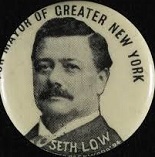





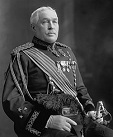














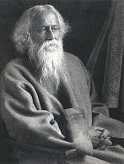



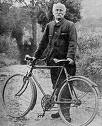





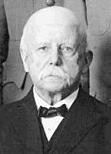
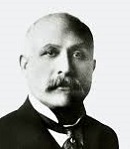


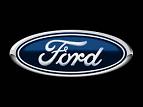




















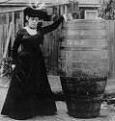







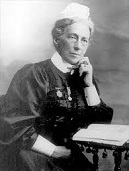
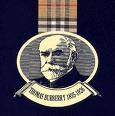

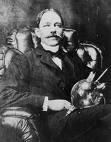





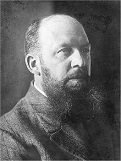
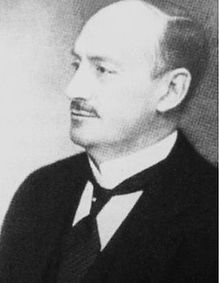

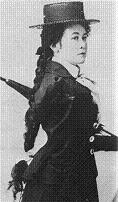

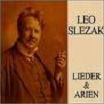
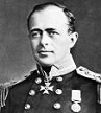
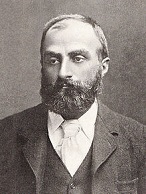
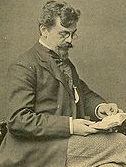




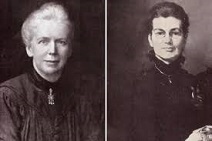
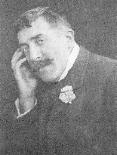








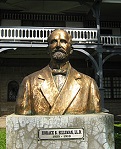






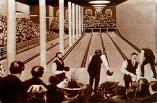
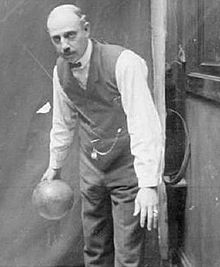










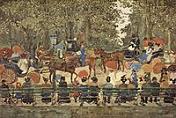





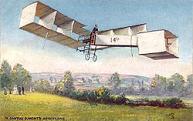

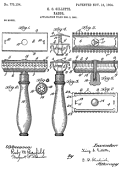

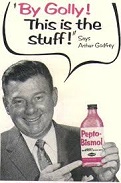


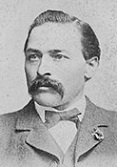
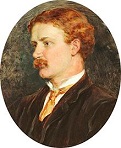
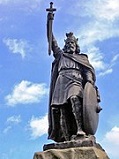
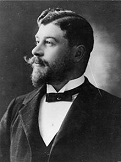
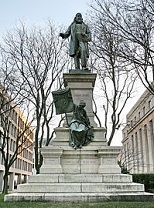
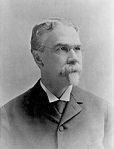
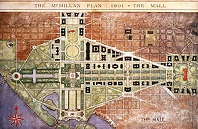
1901 Chinese Year: Ox. The Greatest Generation consists of people born in 1901-24, who grow up to defeat the Axis in WWII and save the world from Fascism. 3.5B cigarettes and 6B cigars are sold in the U.S. this year; 4 out of 5 U.S. men smoke at least one cigar a day. The Great Plow-Up begins in the vast prairies in the U.S., depleted of bison and Indians and now replaced by white homesteaders running cattle and planting wheat (ends 1930). On Jan. 1 the first Mummers Parade is held in Philadelphia, Penn. On Jan. 7 log cabin-born Primrose, Wisc.-born "Fighting Bob" Robert Marion La Follette Sr. (1855-1925) becomes Repub. gov. #20 of Wisc. (until Jan. 1, 1906), followed by U.S. Sen. (R-Wisc.) on Jan. 4, 1906-June 18, 1925, fighting for reforms in workers compensation, railroad rates, min. wage, open primaries, direct election of U.S. senators, women's suffrage, non-partisan elections, and progressive taxation, turning Wisc. into a "laboratory for democracy with the Wisconsin Idea, launching the Progressive Era; too bad, he opposes U.S. entry into WWII, getting himself labeled as a traitor. On Jan. 1 after the 7th earl of Hopetoun commits "the Hopetoun blunder" and asks Tasmanian-born New South Wales PM Sir William John Lyne (1844-1913), a strong anti-federationist to form a govt., which doesn't float, Sydney-born strong federationist Sir Edmund Barton (1849-1920) becomes PM #1 of the Commonwealth of Australia (until 1903), uttering the famous soundbytes: "For the first time we have a nation for a continent and a continent for a nation" and "I do not think that the doctrine of the equality of man was really ever intended to include racial equality"; Lyne becomes minister for home affairs - guess what color he is? On Jan. 4 Sir Alfred Milner, 1st Viscount Milner (1854-1925) becomes British admin. of the Transvaal and the Orange River Colony (until June 23, 1902), followed by gov. #1 (until Apr. 1, 1905). On Jan. 6 Philip Danforth Armour (b. 1832) dies, and his son Jonathan Ogden Armour (1863-1927) becomes pres. of meatpacking giant Armour Co., building sales from $200M to $1B; too bad, after a WWI boom, his co. collapses, and he dies almost broke. The most important date in U.S. and modern world history? On Jan. 10 the Spindletop oilfield S of Beaumont, Tex. is brought in by Croatian-born mining engineer Anthony Francis Lucas (Antun Lucic) (1855-1921), spewing a plume 200 ft. (60m) high for nine days before a crowd of 50K before being clamped down, going on to produce 100K barrels/day, causing the pop. of Beaumont to zoom from 8K to 60K in one year and marking the birth of the petroleum industry; by 1902 285 oil wells are being operated on Spindletop Hill by 600 cos., causing Houston, Tex. to become the nat. center of the U.S. oil industry, which passes Russia as #1 in the world. On Jan. 22 Queen (since June 20, 1837) Victoria (b. 1819) dies on the Isle of Wight after a record 63 years 7 mo. as British monarch (longest female reign in history until ?), ending the Victorian Age, and next Aug. 9 her Francophile eldest son Albert Edward (uncle of Kaiser Wilhelm II) is crowned Edward VII (1841-1910) (the 56th English monarch), not only king of Britain but caesar of India (Kaisar-i-Hind) (imperial durbar on Jan. 1, 1903) (until May 6, 1910), launching the Edwardian Era (Period), which sees the titanic, er, advent of steam turbine propulsion, and the rise of Socialism; his son George becomes prince of Wales; the ruling family changes from Hanover to Saxe-Coburg; being too rotund, he leaves the bottom button of his waistcoat undone, starting a fashion; ending the Queen's no-smoking years, he enters a drawing room in Buckingham Palace with a lit cigar and announces "Gentlemen, you may smoke", beginning a rush to lay a trip down memory lane with great cigar quotes, incl. "A woman is only a woman, but a good cigar is a Smoke" (Rudyard Kipling, Departmental Ditties, 1886), and "Sometimes a cigar is just a cigar" (Sigmund Freud); Edward VII's dog is wire fox terrier Caesar (1898-1914), who attends his 1910 funeral, walking at the head of the procession ahead of nine kings and other heads of state; Princess Beatrice (1857-1944) destroys two-thirds of her mom Queen Victoria's diaries, esp. anything related to John Brown, whom she detests, taking until 1931 to finish. In Jan. British Gen. Herbert Kitchener begins a scorched earth policy to counter the new Boer tactic of guerrilla warfare, and ends up confining 20K women and children in concentration camps, where 20K die; in July after the repots from Emily Hobhouse come in, the Fawcett Commission, led by Millicent Fawcett (1847-1929) is appointed to investigate the conditions. On Feb. 7 21-y.-o. babe Queen Wilhelmina of the Netherlands marries Prince Hendrik "Henry" of Mecklenburg-Schwerin (1876-1934), who has to walk one step behind her, and leads a loveless existence while she has all the power and becomes the world's richest woman; their first child, Juliana isn't born until Apr. 30, 1909 - ration your Dutch chocolates so you don't go overboard? On Feb. 25 Hartford, Conn.-born John Pierpont Morgan Sr. (1837-1913) and Elbert Henry Gary (1846-1927) (of Gary, Ind. fame) incorporate the U.S. Steel Co., becoming the world's first $1B corp. after Andrew Carnegie (1835-1919) sells him his steel interests then retires to become a philanthropist, giving away $130M in 1912 alone, leaving himself with a mere $25M after giving the rest to his Carnegie Corp. of New York (founded in New York City in 1911); Morgan chooses Penn.-born Charles Michael Schwab (1862-1939) as pres. #1 of U.S. Steel, who soon acquires control of Bethlehem Steel and gets rich during WWI; too bad, he lives like Croesus and spends most of it before the 1929 Stock Market Crash, then suffers through his last decade flat broke? - now I know what it feels like to lose what you love? On Mar. 2 the Platt Amendment (Cuba Convention) makes Cuba a U.S. protectorate, and gives the U.S. the right to intervene in it affairs; the U.S. withdraws its troops from Cuba after it accepts the convention. On Mar. 3 the U.S. Nat. Bureau of Standards (NBS) is founded. On Mar. 4 Ohio-born U.S. pres. #25 William McKinley ("the Idol of Ohio") ("the Napoleon of Protection") ("the Stocking-Footed Orator") ("the Liberator of Cuba") ("Wobbly Willie") ("the Major") is inaugurated for a 2nd term (until Sept. 14) in the 33rd U.S. Pres. Inauguration; Theodore "Teddy" Roosevelt (1858-1919) becomes the 25th U.S. vice-pres. (until Sept. 14); Geronimo marches in the inaugural parade; Philander Chase Knox (1853-1921) of Penn., former atty. for the Carnegie Steel Corp. becomes U.S. atty.-gen. (until 1904), later being criticized for lax enforcement of anti-trust laws, which he silences with his successful breakup of the Northern Securities co. (after McKinley's death); Roosevelt goes on to ban Muslim immigration by banning anybody associated with polygamy; Roman Catholic Bishop James Roosevelt Bayley, aunt is St. Elizabeth Seton is Roosevelt's cousin; Roosevelt's neighbor in Oyster Bay, N.Y. is wealthy Methodist missionary Charles Jones "Charlie" Jones Soong (Soong Yao-ju) (1863-1918) (Han Jiaozhun), father of Madame Sun Yat-sen and Madame Chiang-kai-shek. On Mar. 8 after being inspired by the City Beautiful Movement of the 1890s, the U.S. Senate forms the Senate Park Commission, with members incl. architect Daniel Burnham, landscape architect Frederick Law Olmsted Jr., architect Charles F. McKim, and sculptor Augustus Saint-Gaudens, and U.S. Sen. (R-Mich.) (1889-1902) James McMillan (1838-1902) as chmn., which leaves for Europe on June 13 to view likely candidates for imitation; on Jan. 15, 1902 it releases the McMillan Plan and hosts an exhibit at the Corcoran Gallery of Art, attended by Pres. Theodore Roosevelt, proposing the U.S. Nat. Mall, anchored on the E by the U.S. Capitol, on the W by West Potomac Park, on the N by the White House, and on the S by East Potomac Park, with the Washington Monument in the center. On Mar. 23 Filipino rebel leader Gen. Emilio Aguinaldo is captured, and in Apr. agrees to swear allegiance to the U.S. and retires to private life; on July 4 Pres. McKinley appoints William H. Taft as gov.-gen. of the Philippines; guerrilla resistance continues until 1902. On Apr. 25 N.Y. Gov. Benjamin Barker Odell Jr. signs an automobile registration law which imposes a 15 mph speed limit on highways. On May 13 3 mo. after becoming an MP (Feb. 19), 26-y.-o. Winston Churchill (1874-1965) delivers a Speech on Army Reform, with the soundbyte: "I have frequently been astonished to hear with what composure and how gibly members, and even ministers, talk of a European war", pointing out that while past wars were fought "by small regular armies of professional soldiers", future wars will see "mighty populations impelled on each other", ending " in the ruin of the vanquished and the scarcely less fatal commercial dislocation and exhaustion of the conquerors", adding that democracy will be "more vindictive" than aristocratic govts. ever were, with the soundbyte: "The wars of peoples will be more terrible than those of kings." On May 17 Zionist leader Theodor Herzl (1860-1904) meets with Ottoman Sultan Abdul Hamid II in Constantinople and proposes the establishment of an autonomous Jewish region in Palestine, but he rejects it - I'll be baack? In mid-June-early Aug. the 1901 Eastern U.S. Heat Wave sees Philly experience 12 straight days above 90F starting June 25, with several institutionalized individuals in New York City committing suicide in 95F heat, and dead horses becoming a source of contamination; July becomes the hottest month in the contiguous U.S. until the Julys of 1931, 1934, 1936, and 2012; a drought in the Upper Midwest and Ohio Valley gives Ill. its driest year until ?; a total of 9.5K are killed. On June 25 (Tue.) disgruntled former Seattle, Wash. police chief William L. Meredith (b. 1869) stalks saloon owner John Considine (1868-1943) (known for catering to the Alaska Gold Rush crowd with lewd acts incl. Little Egypt from the 1893 Chicago's World Fair) and shoots him with a shotgun, after which John's brother Tom Considine (1857-1933) helps him overpower and kill Meredith; in Nov. John is acquitted of murder on the defense argument of "continuous struggle", after which he decides to get out of the lewd biz and run a chain of vaudeville theaters in Seattle, becoming rivals with Greek-born Alexander Pantages (1867-1936), who eventually puts him out of business and dominates the movie theater biz W of the Mississippi River. On July 3 Butch Cassidy (Robert Leroy Parker) (1866-1908) and the Sundance Kid (Harry Longabaugh) (1867-1908) and their Wild Bunch gang rob the Great Northern Coast Flyer near Wagner, Mont., split up the $65K take, then head for Argentina - I'd like to fly like Superman? On July 4 the "largest pyrotechnical display ever to occur on the Fourth of July" is detonated from the top of Pikes Peak in Colo., as 15 barrels of oil donated by a Denver oil co. are rolled down the hill into a pile of burning embers, creating a 500-ft.-tall fireball visible from Cheyenne, Wyo.; on July 3 12 people fly 6-ft.-wide kites to pull a huge U.S. flag into the air, which is visible 50 mi. away. On July 12 pres. (since 1896) Federico Errazuriz Echaurren dies of cerebral thrombosis, and on Sept. 18 his cousin and brother-in-law German (Germán) Riesco Errazuiz (Errázuiz) (1854-1916) becomes pres. of Chile (until Sept. 18, 1906), backing the landowners against the unions and anarchists, and getting protectionist taxes passed that push prices up, fomenting revolt. In July-Aug. after the 1900 announcement by Germany of its intention to build a strong battle fleet helps deteriorate Anglo-German relations, Britain and Japan begin negotiations in London for an alliance, marking the end of Britain's vaunted "splendid isolation". On Aug. 10 the Moberly-Jourdain Incident sees English academics Eleanor Frances Jourdain (1863-1924) and Charlotte Anne Elizabeth Moberly (1846-1937) visit the Petit Trianon at the Palace of Versailles (near Paris), France, allegedly slipping back in time and seeing the ghosts of Marie Antoinette et al., making them into anon. celebs after they pub. the story in 1911 anon.; the story is later debunked. On Sept. 2 vice-pres. Teddy Roosevelt gives his Big Stick Speech at the Minn. State Fair containing the immortal soundbyte: "I have always been fond of the West African proverb, 'Speak softly and carry a big stick'." On Sept. 6 the secret Black Hand (Unification or Death) military society is founded by elements of the Serbian army, with the goal of unification of all territories with a majority Serb (S Slavic) pop. not yet ruled by Serbia or Montenegro. On the next all-new episode of Madman? On Sept. 6 after a war with Edward H. Harriman (owner of the Union Pacific Railroad) over control of the Chicago, Burlington and Quincy Railroad (which would give their railroads the Great Northern and North Pacific access to Chicago) almost ruins them all, J.P. Morgan and James Jerome Hill unite with him to form the Northern Securities Co., a nasty monopoly, causing a public outcry; too bad for them, look-the-other-way McKinley is shot the same day, allowing trustbuster Teddy Roosevelt to become pres., and next Feb. 19 the U.S Dept. of Justice starts moving to bust it up, originally wanting to settle out of court until Morgan makes the mistake of trying to treat Teddy as a "big rival operator" instead of the people's champion, after which the heat is turned up and the co. busted up via the 1904 U.S. Supreme Court 5-4 ruling in Northern Securities Co. v. U.S., setting a big precedent for using the U.S. Sherman Antitrust Act. On Sept. 6 (Fri.) after traveling to Buffalo, N.Y. to open the Pan-Am. Exposition, and giving away his "lucky flower", the red carnation he wore in his label since his first first election V in Ohio for a seat in Congress, U.S. Pres. William McKinley (b. 1843) is shot at the Pan-Am. Exhibition at a receiving line in the Temple of Music by Alpena, Mich.-born anarchist (Jesuit agent?) Leon Frank Czolgosz (1873-1901), who conceals his .32 cal. Iver Johnson Safty-Automatic revolver in a handkerchief, firing 2x and hitting the pres. in a coat button and the abdomen; McKinley tells his guards "Go easy on him, boyd", and has two operations performed (after a gynecologist initially sews him up with a sewing needle), and seems to be recovering, but relapses on Sept. 12 and dies on Sept. 14 (Sat.), becoming the 4th straight victim of the Zero-Year Pres. Curse (after W.H. Harrison, Lincoln and Garfield); despite Czolgosz denying her involvement, the police arrest and give the third degree for two weeks to Russian anarchist Emma Goldman - an Illuminati plot to put their Teddy Boy in power, plowing the road for the Federal Reserve Bank, Income Tax, and Great Depression? On Sept. 7 the Boxer Rebellion (begun 1898) ends with the Peace of Peking. On Sept. 14 New York City-born former North Dakota cowboy ("the Rough Rider") ("Hero of San Juan Hill") ("the Cyclone Assemblyman") ("the Lion") ("Old Four Eyes") ("Theodore the Meddler") ("the Big Stick") Theodore "Teddy" Roosevelt (1858-1919) (a Progressive Repub. into conservation of the wilderness) (a J.P. Morgan man, compared to McKinley, who was a John D. Rockefeller man) (the Morgans are allied with Britain and France, while the Rockefellers back Germany, helping lead to WWI?) becomes the 26th U.S. pres. (until Mar. 4, 1909) in the 34th U.S. Pres. Inauguration at the Ansley Wilcox House in Buffalo, N.Y. following the death of Pres. William McKinley earlier that day, going on to become the first modern pres., using the media to build an image and advance his agenda, the first imperial president, the youngest U.S. pres. at 42 years, 10 mo., 18 days, and the first in the 20th cent. to become pres. after being vice-pres. less than a year (Truman, Ford); first U.S. pres. to fly in an airplane, own an automobile, and dive in a submarine; First Lady is Teddy's 2nd wife Edith Kermit Carow Roosevelt (1861-1948), who becomes the first to employ a full-time secy., leading to the creation of an official staff, while her formal dinners and ceremonial processesions elevate the position of First Lady; Abraham Lincoln's son Robert Todd Lincoln witnesses McKinley's shooting, and was also present for the deaths of Garfield and his daddy, making him the "presidential angel of death" (Sarah Vowell); on Oct. 29 Czolgosz is electrocuted despite evidence of mental illness; on ? Booker T. (Taliaferro) Washington (1856-1915) visits Pres. Roosevelt, becoming the first African-Am. to dine with a U.S. pres. at the White House, pissing-off the white establishment; on Oct. 12 Teddy officially names the Executive Mansion the White House. On Sept. 12 New Zealand passes the Nurses Registration Act, requiring nurses to complete three years of training and pass a state-administered exam, making New Zealand the first country to regulate nurses; on Jan. 10, 1902 Ellen Dougherty (1844-1919) becomes the first registered nurse on Earth; in 1919 the U.K. begins registration of nurses; this year the U.S. Army Nurse Corps is founded, eventually employing registered nurses only; in 1908 the U.S. Navy Nurse Corps is founded, admitting males in 1965; in 1909 the Am. Red Cross Nursing Service is founded as the reserve of the U.S. Army Nurse Corps. On Oct. 1 Abdul Rahman Khan (b. 1840) dies, and his Tashkent-born pro-British eldest son Habibullah Khan (1872-1919) becomes emir of Afghanistan (until 1919), with brothers Muhammad Umar and Nasrullah waiting in the wings, going on to institute progressive reforms, modernize the country and bring in Western technology and medicine; he grants amnesty to exiled Afghan intellectuals from India and the Middle East, who form the Young Afghans, a pro-Turk anti-British modernist Pan-Islamic movement, led by Damascus-born Mahmud Tarzi (1865-1933) ("Father of Afghan Journalism") et al.; meanwhile other exiled Afghans return to help promote pro-British secular modernization; too bad, wonderful Islam only lets him go so far, and next year one of his chief advisors Abdul Lateef is sentenced to stoning for apostasy. On Oct. 10 pres. (since Sept. 13, 1898) Lorenzo Snow (b. 1814) dies, and on Oct. 17 Joseph Fielding Smith Sr. (1838-1918) (nephew of Joseph Smith Jr.) becomes Mormon (LDS) pres. #6 (until Nov. 19, 1918), becoming the last pres. who personally knew founder Joseph Smith Jr. On Oct. 14 Marcellus E. Foster founds the Houston Chronicle, which sells for 2 cents, undercutting the rivals' 5 cent price, growing to 4,378 circ. in 1 mo., and 75K in 1926; in 1995 it buys-out the rival Houston Post, becoming the 3rd largest Sun. circ. in the U.S. after the New York Times and Los Angeles Times. On Oct. 24 63-y.-o. desperate broke 61-y.-o. widowed Mich. schoolteacher Anna "Annie" Edson Taylor (1839-1921) becomes the first person to survive going over Niagara (Horseshoe) Falls (158 ft.) in a barrel, a 4.5-ft.-long 3-ft.-diam. wooden keg filled with cushions and a harness, and pressurized with a bicycle pump; she lucks out and survives, even though she can't swim; thinking the stunt will solve her financial woes, she sells memorabilia as "the Heroine of Horseshow Falls", but it only works for awhile and she dies broke; the first of 15 barrel attempts by 2018. On Nov. 5-8 the 1901 Athens Student Gospel Riots in Greece begins over the pub. by the Athenian newspaper The Acropolis of a modern Greek trans. of the Gospel of Matthew by Alexandros Pallis (1851-1935), and the govt. topples under ultra-conservative Greek Orthodox Christian religious pressure, launching a long period of hostility between the Church and the demoticist movement. On Nov. 27 the U.S. Army War College is founded in Washington Barracks (modern-day Ft. Lesley J. McNair) in Washington, D.C. by U.S. war secy. Elihu Root and Pres. Theodore Roosevelt; on Feb. 21, 1903 Roosevelt attends the Masonic cornerstone laying ceremony in Roosevelt Hall; pres. #1 is in July 1902 Maj. Gen. Samuel Baldwin Marks Young (1840-1924) becomes pres. #1 until 1903, when he becomes U.S. Army chief of staff #1 (until 1904); on Feb. 21, 1903 the cornerstone is laid; classes open in 1904; in 1916 after Montgomery M. Macomb becomes pres. Pres. Woodrow Wilson accuses his staff and students of preparing for offensive war, threatening the U.S. neutrality stance; it closes during WWII and reopens in 1950 in Ft. Leavenworth, Kan., moving in 1951 to Carlisle, Penn.; alumni incl. Pres. Dwight D. Eisenhower, Gen. Omar Bradley, Gen. Jonathan Wainwright, Gen. Matthew Ridgway, Gen. Alexander Haig, and Gen. Tommy Franks. On Nov. 30 Monsanto Co. ("sacred mountain") is founded in St. Louis, Mo. by Chicago, Ill.-born John Francis Queeny (1859-1933) with $5K to produce saccharin, discovered in 1879; Teddy Roosevelt becomes an avid saccharin fan, influencing the USDA to declare it safe in 1909, althought they already ruled that foods containing it are adulterated and cannot be produced; in 1972 the FDA removes it from their list of safe substances; it takes until 2001 to finally declare it safe for human consumption. In Nov. 1901 the Anglo-Aro War in SE Nigeria (ends Mar. 1902) begins after the Royal Niger Co. of Britain gets pissed-off at the economic dominance and alleged human sacrifices of the Aro Confederacy (founded 1690), sacking Obegu then capturing the capital of Arochukwu on Dec. 28 after a 4-day battle, arresting and hanging leaders incl. Okoro Toti, ending the Aro Confederacy, after which many Aros keep resisting for years. On Dec. 12 Guglielmo Marconi (1874-1937) receives the first trans-Atlantic wireless radio message in St. John's, Newfoundland from Cornwall, England: the letter "S" (dot dot dot). On Dec. 26-31 the Fifth Zionist Congress in Basel, Switzerland establishes the Jewish Nat. Fund to develop and purchase land in Palestine for Jewish settlement; by 2007 it owns 13% of the total land in Israel, has developed 250K acres, established 1K+ parks, built 180 dams and reservoirs, and planted 240M trees; ultimately all Israeli citizens incl. Arabs are eligible to lease the land. The Caste War of Yucatan (begun 1847) ends with the occupation of the Mayan capital of Chan Santa Cruz by the Mexican army, although villages continue resistance until 1915. The Hay-Pauncefote Treaty, negotiated by U.S. secy. of state John Hay and British ambassador Julian Pauncefote, 1st Baron Pauncefote of Preston (1828-1902) authorizes the U.S. to construct and manage the Panama Canal as long as it is open to all nations and has fair and equal rates. Prince Ito of Japan goes to St. Petersburg to seek concessions in Korea, but fails to reach an agreement. After Mark Twain campaigns for him, anti-Tammany Hall Repub. Colombia U. pres. #11 (since 1890) (Teddy Roosevelt lookalike?) Seth Low (1850-1916) is elected New York City mayor #92, taking office on Jan. 1 (until Dec. 31, 1903) on the Fusion Party reform ticket, going on to establish a merit-based civil service system, reduce police graft, improve public education, and lower taxes, which doesn't stop the Tammany Hall machine from plotting to replace him with their puppet; Columbia-educated philosophy prof. Nicholas Murray Butler (1862-1947) becomes pres. #12 of Columbia U. (until 1945), steering it away from vocational training while becoming a leading peacenik and trying in vain to limit Jewish admissions. Am. atty. Benjamin Barr Lindsey (1869-1943) becomes the first judge of a juvenile court in the U.S. after getting an act passed in Denver, Colo. with the help of Molly Brown, starting a nat. movement. Tasmania is federated as a state of the Australian Commonwealth. The 93-sq.-mi. Cook Islands are turned over to New Zealand for admin., with 100-sq.-mi. Niue ("the Rock of Polynesia") (capital Alofi) placed under separate New Zealand admin. Ocean Island is added to the British protectorate of Gilbert and Ellice Islands. The Trans-Siberian Railroad reaches Port Arthur. The Social Rev. Party is founded in Russia by students. After toying with it in New Brunswick in 1856 and the Northwest Territories in 1874-91, Prohibition begins in Canada starting in Prince Edward Island (until 1948), followed by Alberta in 1916-23, Ontario in 1916-27, Manitoba in 1916-21, British Columbia in 1917-21, Newfoundland in 1917-24, New Brunswick in 1917-27, Saskatchewan in 1917-25, the Yukon in 1918-20, and Quebec in 1919, most in time to make big bucks servicing U.S. bootleggers. Oil drilling begins in Persia. Oil is discovered near the Creek Indian village of Tulsey Town AKA Tulsa, Okla., and named Sue Bland No. 1, followed in 1905 by the larger Glenn Pool 15 mi. to the S in modern-day Glenpool, causing a rush of prospectors, who ignore the fact that the mineral rights are owned by the Osage Nation, causing Tulsa's pop. to swell to 180K in 1909 and 140K in 1930 as it becomes known as "the Oil Capital of the World", helping it survive the Great Depression; most of the oil prospectors come from the East Coast, incl. Roman Catholics and Jews, making the pop. more ethnic than the rest of Okla. The British Nat. Antarctic (Discovery) Expedition (ends 1904) becomes the first official British Antarctic exploration voyage since James Clark Ross in 1839, launching the careers of Antarctic explorers Robert Falcon Scott (1868-1912) (leader), Ernest Shackleton, Edward Wilson, Frank Wild, Tom Crean, and William Lashly, reaching the farthest south mark of 82 deg 17 sec; meanwhile next year the Scottish Nat. Antarctic Expedition (SNAE) to the South Orkney Islands and the Weddell Sea (ends 1904) is launched by Scottish explorer William Speirs Bruce (1867-1921). British clergyman Sir James Outram (1864-1925), who ascended 9,836-ft. Cascade Mt. last year becomes the first to ascend 11,870-ft. Mt. Assiniboine in Canada, "the Matterhorn of the Rockies", and goes on to ascend Mt. Bryce, Mt. Columbia, Mt. Forbes and Mt. Wilson next year. The Swedish-Antarctic Expedition, led by Otto Nordenskjold (Nordenskjöld) (1869-1928) begins (ends 1904) in the ship Antarctic, exploring the Palmer Archipelago, the Joinville Island group, and the E coast of Graham Land. ProhibIn 1901 African-Am. Harvard Phi Beta Kappa grad William Monroe Trotter (1872-1934) and Amherst U. grad George Forbes found the Boston Guardian in the same bldg. that once housed William Lloyd Garrison's "Liberator", going on to support the anti-Booker T. Washington Niagara Movement; Trotter later forms the Nat. Equal Rights League, which leads to the 1909 formation of the NAACP. Abolitionists win a big V, getting alcohol sales banned at U.S. Army bases. Carnegie Technical Schools are founded in Pittsburgh, Penn. by Fife, Scotland-born philanthropist Andrew Carnegie (1835-1919) with a $10M donation, with the motto "My heart is in the work", changing the name in 1912 to Carnegie Inst. of Technology (CIT); in 1967 it merges with the Mellon Inst. of Industrial Research (founded 1913) to become Carnegie Mellon U.; in 1973 it goes coed. Bengali polymath Rabindranath Tagore (1861-1941) founds the Santiniketan School 100 mi. N of Calcutta in West Bengal, India, which eventually becomes Visva-Bharati U., becoming known as a mixing pot for East and West. Silliman U. (originally Silliman Inst. for Boys) is founded in Dumaguete, Negros Oriental, Philippines by the Presbyterian Board of Foreign Missions, named after philanthropist Horace Brinsmade Silliman (1825-1910), becoming the first Am. and Protestant univ. in the Philippines, and first Am. univ. in Asia, becoming a college in 1910, and a univ. in 1938; the first Filipino pres. is appointed in 1952. Sweet Briar College is founded in Sweet Briar, Va. for women, becoming known for riding to hounds in the Blue Ridge Mts. Austrian philosopher, lit. man and technical univ. grad Rudolf Steiner (1861-1925), fresh from an experience with catatonic Friedrich Nietzsche in Naumburg, who decided that 19th cent. materialism sucks and went public in 1899 founds spiritualism-friendly Anthroposophy, believing he can use his math and science ed. to firm up this very gauzy pseudo-science, going on to pub. 6K of his lectures - the original unlimited free long distance, just do the math and save? Austrian-Czech tenor Leo Slezak (1873-1946) joins the Vienna Opera - whiskey tenor or some other kind? Italian baritone Riccardo Stracciari (1875-1955) debuts in Lisbon, going on to vie with Titta Ruffo (1877-1953) for #1 ranking. Cabaret Uberbrettl (Überbrettl) (a play on Friedrich Nietzsche's "Ubermensch") in Berlin opens in Jan., founded by Ernst von Wolzogen (1855-1934), becoming the first lit. cabaret in Germany, known for gallows humor. Am. painter Ralph Albert Blakelock (1847-1919) is confined for insanity brought about by lack of acceptance of his cool paintings of Am. Indian life and forest scenes (ends 1916), and after it is too late they become popular. Antonin Dvorak becomes dir. of the Prague Conservatory. Pablo Picasso, working in the post-Impressionist movement (until 1906) enters his Blue Period (ends 1904), with pathetic blue-colored subjects. Spanish pianist-composer Enrique Granados (1867-1916) founds and directs the Academia Granados. Czech soprano Emmy Destinn (1876-1930) becomes a star singing the part of Senta in "Der Fliegende Hollander" in Bayreuth, going on to debut in London in 1904 and becoming known for her Carmen; too bad, her career ends when she is imprisoned during WWI for links to the Czech resistance. David Warfield (1866-1951) becomes a U.S. stage star in David Belasco's The Auctioneer, going on to give 1.4K performances. Hopkinsville, Ky.-born Disciples of Christ member Edgar Cayce (1877-1945) begins going into a hypnotic trance to answer questions from sick people, becoming popular and launching the New Age Movement in the U.S., with fans incl. Irving Berlin, Thomas Edison, George Gershwin, and Woodrow Wilson. 9-y.-o. Vito Andolini (1891-1955) flees from Corleone, Sicily to New York City after his parents and older brother are killed by Mafia boss Don Ciccio, going on to make it big in organized crime under the name Don Vito Corleone and make a quick trip back in 1925 to get revenge - Mario Puzo's The Godfather (1969) :) The Chicago Tribune hires Am. humorist Bert Leston Taylor (1866-1921) to run his own column called "A Line o' Type or Two", which he continues until his death. Anheuser-Busch tops 1M barrels of beer brewed this year, becoming the largest brewer in the U.S. Gustav Stickley founds Craftsman Furniture to produce Mission Style furniture: medieval, square-shaped, solid oaken designs free of Victorian frills. John Wesley Hanes (1850-1903) founds Shamrock Mills in Winston Salem, N.C. to manufacture men's socks; in 1914 the name is changed to Hanes Hosiery Mills. Morris Kellogg founds the M.W. Kellogg Co. in New York City, moving to Jersey City, N.J. in 1905 and building power plants, then branching into thermal cracking of petroleum in the 1920s with Texaco and Standard Oil of Ind.; in 1930 it forms the British subsidiary M.W. Kellogg Ltd.; in 1970 it moves to Houston, Tex. and becomes the first U.S. contractor to receive contracts from Red China; in 1998 it merges with Brown and Root (founded 1910) to form KBR Inc. Victor Talking Machine Co. is founded in Camden, N.J. by Eldridge Reeves Johnson (1867-1945), with Emile Berliner as a probable shadow partner as a strategy to defeat patent-stealer Zonophone; the 1899 Francis Barraud painting of the dog Little Nipper (1884-95) listening to "His Master's Voice" on a Victrola becomes their trademark; Nipper first appears on a record label on July 1, 1902, then becomes the RCA Victor dog in 1929, going on to become the most famous dog in the world. The Cleveland Cap Screw Co. is founded in Cleveland, Ohio by David Kurtz et al. to produce electrically-welded bolts, expanding to automobile engine valves in 1904, becoming the #1 valve manufacturer in the U.S. in 1915; in 1926 it is renamed Thompson Products after gen. mgr. Charles Thompson, producing sodium-cooled valves used by Charles Lindbergh in his transatlantic flight in 1927; in Oct. 1958 it merges with ICBM systems contractor Ramo-Wooldridge to form TRW (Thompson-Ramo-Wooldridge) Inc. Charles Rudolph Walgreen Sr. (1873-1939) of Chicago, Ill. founds Walgreen drug store, growing to 20 stores by 1919, benefitting from Prohibition (1920-33) by selling prescription whiskey stocked under the counter, growing to 44 stores by 1925 with $1.2M yearly sales, expanding into Minn., Mo., and Wisc.; by 1930 they have 397 stores doing $4M yearly, growing to 601 stores in 30 states by 1934; in Oct. 2007 they open their 6,000th store in New Orleans, La. After the Duryea brothers quarrel and split, Charles Edgar Duryea (1861-1938) founds the Duryea Power Co. to produce 3-cylinder cars, retiring in 1914; in 1904 Frank James Duryea (1869-1967) founds the Stevens-Duryea Co.. "King of Constructors" Wilhelm Maybach (1846-1929), tech. dir. of the Daimler auto works builds the first Mercedes automobile, named after Daimler's niece; the motto is "The best or nothing at all"; in 1926 it merges with the cos. of Karl Benz and Gottlieb Daimler to become Mercedes-Benz. The Pierce-Arrow Motor Car Co. (originally the George N. Pierce Co.) is founded in Buffalo, N.Y. by George N. Pierce (1846-1910) to produce expensive luxury cars, along with trucks, trailers, motorcycles, and bicycles, introducing the Motorette at the 1901 Pan-American Exposition; in 1904 they produce the Great Arrow, becoming their most successful product, winning the 1905 Glidden Trophy, causing them to officially change their name to Pierce-Arrow in 1907; in 1909 Pres. Taft orders two Pierce-Arrows and two White Model M Tourers, becoming the first official cars of the White House; in 1914 they set a trend by moving the headlights from the sides of the radiator to the front fenders; an open-body Pierce-Arrow carries Pres. Wilson and Pres. Harding to Harding's 1921 inauguration; the cars become popular with movie stars and royalty, becoming one of "the three Ps of Motordom" along with Peerless and Packard; too bad, they fail to produce a low-priced line in the Depression years, going bankrupt in 1938. Singer Motors Ltd. is founded in Coventry, England by bicycle manufacturer George Singer (1847-1909), becoming the first to produce a practical small economy car, the 4-cylinder 10 hp Singer 10, with their own 1,100cc engine, introduced is founded; in 1956 the co. sells out to the Rootes Group; the brand goes defunct in 1970. Speedometers begin to be used on automobiles. The first motor-driven bicycles are produced. Idaho Candy Co. is founded in Boise, Idaho by Thomas Ovard "T.O." Smith (1876-1954) in his garage, selling door-to-door until he can open a factory in 1909, going on to make the Idaho Spud Bar (1918) ("the Candy Bar That Makes Idaho Famous"), Old Faithful Bar (1925), Cherry Cocktail Bar (1926), Owyhee Butter Toffee et al.; in 1991 it is acquired by John Wagers, whose son Dave Wagers takes over in 1991. Nobel Prizes: On Dec. 10 (St. Lucia's Day) (5th anniv. of Alfred Nobel's death) (4:30 p.m.) the first Nobel Prizes are awarded in the Stockholm Concert Hall after a rehearsal; Red Cross founder Jean Henri (Henry) Dunant (1828-1910) of Switzerland and Frederic Passy (1822-1912) of France win the first Nobel Peace Prize (done that, it's passe?); Rene Francois Armand Sully Prudhomme (1839-1907) of France wins for Literature for his "poetic composition, which gives evidence of lofty idealism, artistic perfection and a rare combination of the qualities of both heart and intellect"; 6 of the first 9 lit. winners wear beards (Giosue Carducci's is the most bristly and pointy); Wilhelm Konrad (Conrad) Roentgen (Röntgen) (1845-1923) of Germany wins for Physics [X-rays]; Jacobus Henricus van't Hoff (1852-1911) of the Netherlands wins for Chemistry [stereochemistry], and Emil Adolph von Behring (1854-1917) of Germany wins for Medicine and Physiology [antitoxins]; the first Nobel Prize Medals (23-carat, 2.5 in. diam., .25 kg), designed by Swedish artist Erik Lindberg (1873-1966) are minted next year, with a bas-relief of Alfred Nobel on the obverse, and Isis and the genius of Science (lifting a veil from her face) on the reverse; women only get 34 of the first 800? The original formulation of pink-colored over-the-counter cure-all Pepto-Bismol is first marketed by a physician in New York City as a remedy for infant diarrhea; it goes nat. in 1918 under the name Bismosal: Mixture Cholera Infantum, marketed by Norwich Pharmacal Co., who changes it to the current name in 1919 - headache, indigestion, upset stomach, diarrhea, that's Pepto-Bismol? Architecture: On Mar. 11 the Moana (Hawaiian "open sea, ocean") Hotel in Waikiki, Honolulu, Hawaii opens, becoming the first hotel in Waikiki, launching the tourist industry with the help of the Matson Navigation Co., founded in 1882 by Swedish-born William Matson (Wilhelm Mattson) (1849-1917) (financed by his friend Claus Spreckels), whose fleet of steamships grows to 14 by 1917. Andrew Carnegie donates $5.2M to build the 65-branch New York City Neighborhood Library System. Wigmore Hall in London opens, becoming the British nat. concert hall for chamber music and song. Am. glass manufacturer Edward Drummond Libbey (1854-1925) founds the Toledo Museum of Art in Toledo, Ohio, which features the Glass Pavilion. Miss. State Penitentiary, AKA Parchman Farm is founded in Sunflower County in the Miss. Delta region, becoming known for the Trusty System, which replaces convict leasing for inmate control, using designated inmates to punish other inmates; Leadbelly's song Midnight Special is about the night train that carries the prisoners' wives and girlfriends for weekend conjugal visits, supposedly shining a flashlight if they're coming with papers to free them; in 1974 a federal court rules in Gates v. Collier that it violates the 8th Amendment. Siegesallee (Ger. "victory avenue"), a blvd. in the Tiergarten in Berlin displays 32 marble statues of members of the House of Hohenzollern - wax up your mustaches and shine up your spats? Biarritz Casino in SW France opens. Sports: On Jan. 5-Mar. 5 the 1901 Canadian Amateur Hockey League (CAHL) Season sees the Ottawa Hockey Club win with a record of 7-0-1; on Jan. 29-31 the WInnipeg Victorias defeat the Montreal Shamrocks 2-0 to win the Stanley Cup. On Jan. 8-10, 1901 the first Am. Bowling Congress (ABC) Nat. Tournament in Chicago, Ill. sees 115 singles bowlers, 78 doubles teams, and 41 5-man teams from 17 cities compete for a purse of $1,592; former ML baseball player Francis Hasbrouck "Frank" Brill (Briell) (1864-1944) wins the singles and all-events titles with a score of 648; tournaments are held every year except 1943-5. Boxing is recognized as a legal sport in England. The first Prof. Golfers' Assoc. is founded in Britain. Dutch teacher Nico Broekhuysen (1877-1958) of Amsterdam invents Korfball (Dutch "korf" = basket), which requires each team to consist of four men and four women. French cyclist Maurice Alain Farman (1877-1964) wins the Grand Prix de Pau (Grand Prix du Sud-Ouest), the first-ever grand prix in his 24 hp Panhard automobile. Detroit mechanic Henry Ford (1863-1947) defeats rival Scottish-born auto builder Alexander Winton (1860-1932) in an auto race (his only race) in Grosse Pointe, Mich., and uses the winnings to finance the Ford Motor Co. and roll his first iron horse off his Dearborn assembly line; after telling him that he would get killed using his clumsy steering assembly, Winton gives him one of his complete working mechanisms; the defeat causes Winton to produce the 1902 Winton Bullet, which sets a land speed record of 70 mph in Cleveland, but is defeated by Barney Oldfield in a Ford. After pitcher Clark Calvin Griffith (1869-1955) persuades 39 players to sign on, the 8-team Am. League of Prof. Baseball Clubs (AL) is founded 25 years after the NL out of the disbanded minor Western League, which was called the junior circuit to its senior circuit; Byron Bancroft "Ban" Johnson (1864-1931) becomes pres. #1 (until 1927), going on to clean up its rough image by recruiting good umps incl. "Boy Umpire" William George "Billy" Evans (1884-1956). Former catcher and Pittsburgh mgr. Cornelius Alexander "Connie" Mack (McGillicuddy) (1862-1956) becomes mgr. of the Philadelphia Athletics (AL) (until 1950), going on to win nine AL titles and five World Series. The New York Yankees are founded as the Baltimore Orioles in Md., moving to New York City in 1913 and changing their name. William Aloysius "Bill" Bergen (1878-1943) debuts on May 6 for the Cincinnati Reds, finishing on Sept. 20, 1911 with the Brooklyn Dodgers, becoming a top defensive catcher, catching a record six St. Louis Cardinals runners stealing in a single game on Aug. 23, 1909, despite being the worst hitter of all time (.170 for 3,228 at-bats). The Eastern Intercollegiate Basketball League (EIBL) is founded for men's college basketball by Columbia U., Cornell U., Harvard U., Princeton U., and Yale U., growing to eight Ivy League members incl. the U. of Penn. (1903), Dartmouth College (1911), and Brown U. (1953); in 1901 Yale U. goes 10-4 to win the first nat. college championship; in 1902 the U. of Minn. goes 11-0 to become the first undefeated team in basketball; in 1955 the EIBL merges with the new Ivy League. The Ill.-Ind.-Iowa (Three-I) League for minor league baseball is founded (until 1961). Inventions: The General Electric Co. begins selling prewired "Christmas tree lamps" to the public (nine white bulbs per string) at a cost of an avg. person's weekly wages; it takes until the 1920s for holiday lights to become affordable to the gen. public. On Feb. 18 and Aug. 30 after English inventor Hubert Cecil Booth (1871-1955) reverses the design of a railway car cleaner he saw demonstrated at St. Pancras Station in London, forming the British Vacuum Cleaner Co., he patents the first modern cylinder vacuum cleaner (the Puffing Billy) that sucks rather than blows, using a cloth filter and electrical pumps, first used in Feb. 1902; it is so huge it has to be drawn by a horse and stand in the road while cleaning houses, while the "noisy serpent" spooks passing horses, with employees wearing bright red uniforms, signing up shops and theaters; in 1902 he is given royal approval to use it to clean the carpets in Westminster Abbey before Edward VII's coronation, which "so impress the crowned heads of Europe that they all wanted a similar machine", after which it is adopted by the Royal Navy for use in barracks; the co. goes on to supply ever-larger models to factories and warehouses, changing its name to British Vacuum Co., attemping to market the Goblin model to homes but losing out to Hoover; it is later acquired by Quirepace Ltd. On Sept. 28 after spending seven years inventing the $5 Gillette Safety Razor, with disposable wafer-thin stamped slivers of cheap steel held in a safety clamp, Crown bottle cap salesman King Camp Gillette (1855-1932) founds Am. Safety Razor Co., changing it next July to Gillette Safety Razor Co.; his first sale (1903) is 51 straight razors and 168 blades; in 1904 sales zoom to 90K razors and 1.24M blades. On Oct. 19 after failing on Aug. 8 with Santos-Dumont No. 5, which gets hung-up on the Trocadero Hotel, Brazilian-born Alberto Santos-Dumont (1873-1932) makes the first successful flight in a dirigible in his Santos-Dumont No. 5, rounding the Eiffel Tower in Paris and winning the Henri Deutch de la Meurthe Prize, making him a celeb.; on Oct. 23, 1906 he makes his first flight in his canard biplane Santo-Dumont14-bis at Bagatelle Field in Paris, France, becoming the first heavier-than-air machine takeoff and flight with official witnesses. English inventor Thomas Burberry (1835-1926), 1880 inventor of gabardine designs the belted khaki Burberry Trench Coat as the official raincoat for British Army officers; by the 1930s it is a fashion accessory for Hollywood types - wear it with your khaki trousers, not your khaki pants? German scientist Richard Fiedler invents the modern Flamethrower (Flammenwerfer) for the German army. Am. engineer Peter Cooper Hewitt (1861-1921) invents the Mercury Vapor Lamp. Satori Kato of Chicago, Ill. invents instant coffee. German scientist Adolf Miethe (1862-1927) invents Panchromatic Film for a 3-color camera he designs, which is built in 1903 by Wilhelm Bermpohl. On Aug. 14 Bavarian-born Gustave Albin Whitehead (Gustav Albin Weisskopf) (1874-1927) makes the first powered flight in his No. 21 aircraft in Fairfield, Conn., flying 0.5 mi. and reaching 50 ft. alt.; historians later dispute it and give the credit to the Wright Brothers; on June 5, 2013 the Conn. Senate passes a bill officially recognizing him as the first to fly. Science: Bavarian-born German psychiatrist Alois Alzheimer (1864-1915) of Frankfurt discovers Alzheimer's Disease after patient Auguste Deter (1850-1906) tells him "I have lost myself" - old timer's disease? German surgeon Georg Kelling (1866-1945) of Dresden performs the first Laparoscopic surgery on dogs; the first laparoscopic surgery on humans is performed in 1910 by Hans Christian Jacobaeus (1879-1937) of Sweden. The amino acid Tryptophan (found in turkey meat) is discovered by English biochemist Frederick Gowland Hopkins (1861-1947). French chemists Ferdinand Frederick Henri Moissan (1852-1907) and Paul Marie Alfred Lebeau (1868-1959) discover SF6. Am. physician Duncan "Om" MacDougall (1866-1920) of Haverhill, Mass. performs the 21 Grams Experiment, weighing humans before and after death and concluding that the human soul weights 21 grams, which is pub. in 1907 and goes viral despite the flaws in the experiment incl. too small sample size (6). After failing to get a match with Sir Francis Bacon, self-taught Ohio State U. physicist Thomas Corwin Mendenhall (1841-1924), pioneer of stylometry measures word-length frequency in the works of William Shakespeare and finds that it is very close that of Christopher Marlowe, with the soundbyte: "In the characteristic curve of his plays Christopher Marlowe agrees with Shakespeare about as well as Shakespeare agrees with himself." Russian physiologist Ivan Petrovich Pavlov (1849-1936) develops the concept of the conditioned reflex using his salivating dogs. The hormone Adrenalin is first isolated and patented by Japanese-born "samurai chemist" Jokichi Takamine (1854-1922) of the U.S., becoming the first purified animal gland hormone. French bicyclist Paul de Vivie (1853-1930) AKA Velocio begins perfecting the Derailleur (which may have already existed in Britain?), causing him to become known as the Father of Bicycle Touring. Nonfiction: Hilaire Belloc (1870-1953), Robespierre. Enoch Arnold Bennett (1867-1931), Fame and Fiction - this is how we do it? Pierre Berthelot, Recherches Experimentales. Jan Bloch (1836-1902), Comparison of the Material and Moral Levels in the Western Great Russian and Polish Regions; attempts to prove that Jews are a boon to the Russian economy; too bad, the Russian govt. bans the work and burns all copies they can get. Grace Mann Brown (1859-1925), Studies in Spiritual Harmony (1901-3). Oscar Browning (1837-1923), History of Europe 1814-1843. James Bryce (1838-1922), Studies in History and Jurisprudence. Richard Bucke (1837-1902), Cosmic Consciousness: A Study in the Evolution of the Human Mind; his personal experience in 1872 in London, expanding to a gen. theory "that the universe is so built and ordered that without any peradventure all things work together for the good of each and all, that the foundation principle of the world is what we call love and that the happiness of every one is in the long run absolutely certain." Timothy Cole (1852-1931), Dutch and Family Masters. Rudolf Christoph Eucken (1846-1926), The Truth of Religion. Sigmund Freud (1856-1939), The Psychopathology of Everyday Life; "When a member of my family complains that he or she has bitten his tongue... instead of the expected sympathy I put the question, 'Why did you do that?'" Elie Halevy (1870-1937), The Formation of English Philosophical Radicalism (3 vols.) (1901-4) (first work). Lafcadio Hearn (1850-1904), A Japanese Miscellany. Mrs. Simon Kander, The Settlement Cookbook, or The Way To A Man's Heart; pub, for charities in Milwaukee, Wisc. James Fitzmaurice-Kelly (1857-1923) (ed.), The Complete Works of Miguel de Cervantes Saavedra (1901-). Rodolfo Lanciani (1846-1919), New Tales of Old Rome. Stanley Lane-Poole (1854-1931), History of Egypt in the Middle Ages. Andrew Lang (1844-1912), The Mystery of Mary Stuart; rehabiliates her and reverses the charges on her accusers; Magic and Religion. Daniel De Leon (1852-1914), Socialism versus Anarchism. Frederick William Maitland (1850-1906), English Law and the Renaissance. Alexander McClure, Abe Lincoln's Yarns and Stories. John Bach McMaster (1852-1932), A Primary History of the United States. Maurice Maeterlinck (1862-1949), The Life of the Bee. Max Mueller (1823-1900), My Autobiography: A Fragment. John Muir (1838-1914), Our National Parks; "Climb the mountains and get their good tidings. Nature's peace will flow into you as sunshine flows into trees." Hugo Munsterberg (1863-1916), American Traits from the Point of View of a German. Dadabhai Naoroji (1825-1917), Poverty and Un-British Rule in India. Max Planck (1858-1947), On the Law of Distribution of Energy in the Normal Spectrum; pub. in "Annalen der Physik", vol. 4, pg. 553. Dr. Walter Reed (1851-1902), The Prevention of Yellow Fever. Agnes Repplier (1855-1950), The Fireside Sphinx. H.S. Rich & Co., One Hundred Years of Brewing: A Complete History of the Progress Made in the Art, Science and Industry of Brewing in the World, Particularly During the Last Century. Jacob August Riis (1849-1914), The Making of an American (autobio.); censors a chapter by his wife "Elisabeth Tells Her Story", adding "It is not good for a woman to allow her to say too much". Benjamin Seebohm Rowntree (1871-1954), Poverty: a Study of Town Life. Horace Elisha Scudder (1838-1902), James Russell Lowell (2 vols.). Harry Govier Seeley (1839-1909), Dragons of the Air; draws parallels between birds and pterosaurs, and calls the latter warm-blooded. John Lawson Stoddard (1850-1931), Gibraltar; bestseller. Edward Bradford Titchener (1867-1927), Experimental Psychology (1901-5). Mark Twain (1835-1910), The United States of Lyncherdom; writes it after being pissed-off by a newspaper account of a lynching in Mo., and it isn't pub. until 1923 by his lit. executor, who censors it, and is finally pub. uncensored in 2000; "And so Missouri has fallen, that great state! Certain of her children have joined the lynchers, and the smirch is upon the rest of us. That handful of her children have given us a character and labelled us with a name, and to the dwellers in the four quarters of the earth we are 'lynchers', now, and ever shall be"; white people, however, are to be cut some slack for "... man's commonest weakness, his aversion to being unplesantly conspicuous, pointed at, shunned, as being on the unpopular side. Its other name is Moral Cowardice, and is the commanding feature of the make-up of 9,999 men in the 10,000"; proposes recruiting Christian missionaries from China to convert them, because "almost every [Chinese] convert runs a risk of catching our civilization... We ought to think twice before we encourage a risk like that; for, once civilized, China can never be uncivilized again... O compasionate missionary, leave China! come home and convert these Christians". Booker T. Washington (1856-1915), Up From Slavery: An Autobiography. Walter Weyl (1873-1919), The Passenger Traffic of Railways (first book). Wilhelm Wrede (1859-1906), The Messianic Secret; backs Bruno Bauer's Messianic Secret theory; used by Albert Schweitzer as the end of the Quest for the Historical Jesus. Movies: ?'s The Little Doctor. Edwin S. Porter's Terrible Teddy, the Grizzly King (Feb. 23) (Edison Studios) is a satire about U.S. vice-pres. Teddy Roosevelt. Music: Sir Granville Bantock (1868-1946), Dante and Beatrice; Orchestral Drama: Fifine at the Fair; based on Robert Browning's 1841 "Pippa Passes". Paul Dukas (1865-1935), Sonata in E-flat Minor. Antonin Dvorak (1841-1904), Rusalka (opera) (Mar. 31) (Prague); libretto by Jaroslav Kvapil (1868-1950); about a water sprite; incl. "Song to the Moon". Sir Edward Elgar (1857-1934), Cockaigne, Op. 40 (overture). George Enescu (1881-1955), Two Romanian Rhapsodies (1901-2). Carrie Jacobs-Bond (1862-1946), I Love You Truly; first woman to sell 1M copies of a song. Gustav Mahler (1860-1911), Symphony No. 5 in c sharp minor (1901-2); features a funereal trumpet solo at the beginning, and a popular Adagietto. Ethelbert Woodbridge Nevin (1862-1901), Mighty Lak' a Rose. Ignace Jan Paderewski (1860-1941), Manru (opera). Gabriel Pierne (1863-1937), La Fille de Tabarin (opera). Sergei Rachmaninoff (1873-1943), Piano Concerto No. 2 in C minor, Op. 18 (Oct. 27) (Moscow); not as hot as No. 3, but still pretty cool. Maurice Ravel (1875-1937), Jeux d'Dau. Jean Sibelius (1865-1957), Symphony No. 2 in D major. Charles Villiers Stanford (1852-1924), Much Ado About Nothing (opera) (London). Richard Strauss (1864-1949), Feuersnot (opera) (Dresden). Art: John Collier (1850-1934), Tannhauser in the Venusberg. Feradin and Holder, Spring. Paul Gaugin (1848-1903), The Gold in Their Bodies. Gustav Klimt (1862-1918), Judith with the Head of Holofernes. Jules Joseph Lefebvre (1836-1911), Yvonne; Alexander Agassiz. Max Liebermann (1847-1935), Self-Portrait. Aristide Maillol (1861-1944), The Mediterranean. Edvard Munch (1863-1944), Girls on the Bridge. Pablo Picasso (1881-1973), The Embrace; The Burial of Casagemas; Woman Drinking Absinthe; The Old Guitarist; Leaning Harlequin. Maurice Prendergast (1859-1924), Central Park. Paul Signac (1863-1935), The Port of Saint-Tropez. Hamo Thornycroft (1850-1925), Alfred the Great (statue) (Winchester). Gaetano Trentanove (1858-1937), Confed. Brig. Gen. Albert Pike (1809-91) (statue); dedicated at 3rd and D Sts., NW in the Judiciary Square neighborhood of Washington, D.C. on Oct. 23 (2:00 p.m.) by Masons to commemorate his work for them, accompanied by a parade of thousands of Masons, becoming the first Confed. officer with a statue in Washington, D.C. (until ?), and one of 18 Civil War monuments in Washington, D.C. Plays: J.M. Barrie (1860-1937), Quality Street. Eugene Brieux (1858-1932), Les Avaries; the censors force him to do a private reading at the Theatre Antoine. Anton Chekhov (1860-1904), The Three Sisters; the Prozoroff sisters Olga, Masha, and Irina cope after their army post cmdr. daddy dies. Michael Field (Edith Emma Cooper) (1862-1913), The Race of Leaves. Horton Foote (1916-), The Carpetbagger's Children (Houston, Tex.). Andre Gide (1869-1951), Le Roi Candaule (verse drama). Owen Hall and Leslie Stuart, The Silver Slipper (musical). Herman Heijermans (1864-1924), Het Pantser; Ora et Labora. Hugo von Hofmannsthal (1874-1929), Der Tod des Tizian (verse drama). Arthur Wing Pinero (1855-1934), Iris. George Bernard Shaw (1856-1950), Three Plays for Puritans; incl. a preface coining the term "Bardolatry". August Strindberg (1849-1912), Engelbrekt. Howard Talbot (1865-1928), Kitty Grey (musical); features the song Mademoiselle Pirouette. Ludwig Thoma (1867-1921), Die Medaille (The Medal). Anders Leonard Zorn (1860-1920), Freja; Delecarlian Girl Knitting. Poetry: Chaim Nachman Bialik (1873-1934), Songs of Wrath; protests against Jewish pogroms. Otokar Brezina (1868-1929), Hands. Laurence Hope (1865-1904), Garden of Kama (India's Love Lyrics); claims them as translations of Indian poets, until she is found out to be Mrs. Violet Nicolson, wife of an Indian Army gen. 20 years her senior (d. 1904), who adopted the Indian dress and lifestyle, causing a small scandal that increases sales; the lyrics are used in the 1903 British hit "Kashmiri Song". Bliss Carman and Richard Hovey, Last Songs from Vagabondia. Gilbert Frankau (1884-1952), Eton Echoes. Josef Svatopluk Machar (1854-1942), The Conscience of the Ages (1901-21); decides that ancient civilization was better than Christian. Wilhelm Meyer-Forster, Alt-Heidelberg. Alice Meynell (1847-1922), Later Poems. George Meredith (1828-1909), Readings of Life. William Vaughan Moody (1869-1910), Poems. Alfred Noyes (1880-1958), The Loom Years (debut). Katharine Tynan (1861-1931), Poems. Frank Wedekind (1864-1918), Der Marquis von Keith. Stefan Zweig (1881-1942), Silberne Saiten. Novels: Minna Thomas Antrim (1856-1950), Naked Truth and Veiled Allusions. Arthur Christopher Benson (1862-1925), The House of Quiet. George Douglas Brown (1869-1902), The House with the Green Shutters; pub. under alias George Douglas. Louis Henri Boussenard (1847-1910), Les Étrangleurs du Bengale; Le Capitaine Casse-Cou; set at the time of the Boer War; his biggest hit. Gelett Burgess (1866-1951), Burgess Nonsense Book; incl. Purple Cow (1895). Samuel Butler (1835-1902), Erewhon Revisited Twenty Years Later, Both by the Original Discoverer of the Country and by His Son ; sequel to "Erewhon" (1872); Higgs return to find that he is worshiped as "Sunchild", and is whisked out again when he tries to debunk the new religion. Hall Caine (1853-1931), The Eternal City. Robert William Chambers (1865-1933), Cardigan. Charles W. Chesnutt (1858-1932), The Marrow of Tradition; the Wilmington Race Riot; pisses-off his mainly white readers with its preaching about racism, not knowing that he doesn't consider himself white? Joseph Conrad (1857-1924) and Ford Madox Ford (1873-1939), The Inheritors. Louis Couperus (1863-1923), Babel; De Boeken der Kleine Zielen (The Books of the Small Souls) (1901-02). Josiah Flynt (1869-1907), The World of Graft (short stories). Miles Franklin (1879-1954), My Brilliant Career; self-pub.; rural N.S.W. Australian girl Sybylla Melvyn; becomes so popular in Australia that she withdraws it from pub. to protect her friends' privacy until her death; filmed in 1979 by Gillian Armstrong starring Judy Davis; followed by sequel "My Career Goes Bung" (1946). Maxim Gorky (1868-1936), My Fellow traveller (short stories); Twenty-Six Men and a Girl (short stories). H. Rider Haggard (1856-1925), A Winter Pilgrimage; Lysbeth. Henry Harland (1861-1905), The Lady Paramount. Verner von Heidenstam (1859-1940), Heliga Birgittas Pilgrimsfard (Pilgrimsfärd). William Wymark Jacobs (1863-1943), Light Freights (short stories). Rudyard Kipling (1865-1936), Kim (Oct.); the orphaned son of an Irish soldier in India after the Second Afghan War of 1878-80; the curator of the Lahore Museum is based on Kipling's father, who held the post. Selma Lagerlof (1858-1940), Jerusalem. Andrew Lang (1844-1912), The Violet Fairy Book. Emily Lawless (1845-1913), A Garden Diary; dedicated to her love Lady Sarah Spencer. William John Locke (1863-1930), The Usurper. Jack London (1876-1916), The God of His Fathers (short stories about the Klondike). Jean Lorrain (1855-1906), Monsieur de Phocas. Pierre Loti (1850-1923), Les Derniers Jours de Pekin. Pierre Louys (1870-1925), The Adventures of King Pausolus. Harold MacGrath (1871-1932), The Puppet Crown. Charles Major (1856-1913), The Bears of Blue River. Thomas Mann (1875-1955), Buddenbrooks (2 vols.) (Oct.); 2nd. ed. 1901; big hit, leading to his 1929 Nobel Lit. Prize; realist novel in the tradition of Stendhal's "Le Rouge et la Noir", following the decline of a wealthy North German Hanseatic merchant family in 1835-77, based on the history of his own family; brothers Johann and Gotthold and the conflict of an artist with a middle class environment. William Babington Maxwell (1866-1938), The Countess of Maybury. George Barr McCutcheon (1866-1928), Graustark: The Story of a Love Behind the Throne; bestseller about an 800 sq. mi. mountainous principality in the Carpathian Mts. of E Europe, S of Axphain (enemy) and N of Dawsbergen, capital Edelweiss, with gavvo as the unit of currency, where Princess Yetive, daughter of Prince Ganlook tries to marry Prince Lorenz of Axphain to get better terms for payment of a large indemnity contracted after the last war, but he is murdered, and her real beau, Grenfall Lorry of the U.S. is framed, until Prince Gabriel of Dawsbergen is found out. Kalman Mikszath (1847-1910), The Women of Szelistye. George Moore (1852-1933), Sister Teresa. Frank Norris (1870-1902), The Octopus: A Story of California; wheat farmers in the San Joaquin Valley are preyed on by the Pacific and Southwestern Railroad; first in an uncompleted trilogy. Edward Phillips Oppenheim (1866-1946), The Survivor; Enoch Strone (A Master of Men). Sir Gilbert Parker (1862-1932), The Right of Way. Charles Louis Philippe, Bubu de Montparnasse. Luigi Pirandello (1867-1936), L'Esclusa. Jose Maria Eca de Queiroz (1845-1900), The City and the Mountains (posth.). Alice Hegan Rice (1870-1942), Mrs. Wiggs of the Cabbage Patch; optimistic mission aide in a Louisville, Ky. slum; turned into a play in 1904 by Anne Crawford Flexner; filmed in 1914, 1919, and 1934. Frederick Rolfe (Baron Corvo) (1860-1913), Chronicles of the House of Borgia; Tarcissus the Boy Martyr of Rome. Leopold von Sacher-Masoch (1836-95), Afrikas Semiramis (posth.). William Sharp (1855-1905), From the Hills of Dream, Threnodies, Songs and Later Poems; pub. under alias Fiona MacLeod. Matthew Phipps Shiel (1865-1947), The Purple Cloud; about Adam Jeffson, who goes on an expedition to the North Pole aboard the Boreal to win a $175K prize for being the first person to stand on it, encountering a death-dealing moving you know what that goes on to kill everybody on Earth but him, causing him to go mad and declare himself the king of Earth and glory in being the last member of the human race until he meets a girl in Constantinople, and turns Adam to her Eve; which is filmed in 1959 as "The World, the Flesh and the Devil". Henry De Vere Stacpoole (1863-1951), The Bourgeois. August Strindberg (1849-1912), Dance of Death. Frank Wedekind (1864-1918), Der Marquis von Keith. H.G. Wells (1866-1946), The First Men on the Moon; British scientist Dr. Cavor and British businessman Mr. Bedford discover the Selenites; filmed in 1964. Births: South Vietnamese pres. #1 (1955-63) (Roman Catholic) Ngo Dinh Diem (pr. ziem) (d. 1963) on Jan. 3 in Quang Binh, French Indochina; brother of Ngo Dinh Nhu (1910-63). German-Am. "The New Science of Politics", "Order and History" political philosopher Eric Voegelin (Erich Hermann Wilhelm Vögelin) (d. 1985) on Jan. 3 in Cologne; educated at the U. of Vienna; emigrates to the U.S. in 1938; friend of F.A. Hayek. Trinidadian historian (black) Cyril Lionel Robert James (d. 1989) on Jan. 4. German jurist (July 20th Plotter) Klaus Bonhoeffer (d. 1945) on Jan. 5 in Breslau (Wroclaw, Poland); brother of Dietrich Bonhoeffer (1904-45). English silent film actor Patrick De Lacy "Pat" Aherne (d. 1970) on Jan. 6 in King's Norton, Worcestershire; brother of Brian Aherne (1902-86). Am. "Blondie" cartoonist Murat Bernard "Chic" Young (d. 1973) on Jan. 9 in Chicago, Ill.; nicknamed Chicken in h.s.; creator of the Dagwood (Bumstead) sandwich via cartoon; father of Dean Wayne Young (1938-). German July 20 Plotter Maj. Gen. Herrmann Karl Robert "Henning" von Tresckow (d. 1944) on Jan. 10 in Magdeburg. Am. "The Big Sky", "The Way West", "Shane" novelist Alfred Bertram "A.B." "Bud" Guthrie Jr. (d. 1991) on Jan. 13 in Bedford, Ind.; moves to Choteau, Mont. at age 6 mo. so his father can be the first principal of the first h.s. in Montana Territory. Am. "Rio Rita" actress-singer-writer-producer Phyllis "Bebe" Daniels (d. 1971) on Jan. 14 in Dallas, Tex.; begins acting at age 4; wife (1930-71) of Ben Lyon (1901-79). Cuban dictator (1933-58) Fulgencio Batista y Zaldivar (Zaldívar) (d. 1973) on Jan. 16 in Banes, Holguin; of African, Spanish, and Chinese descent. Am. poet-writer-novelist-critic (Jewish) Laura Riding Jackson (nee Reichhenthal) (d. 1991) (AKA Laura Riding Gottschalk) on Jan. 16 in New York City; educated at Cornell U.; wife (-1925) of Louis Gottschalk (1899-1975); partner (1929-36) of Robert Ranke Graves (1895-1985); wife (1941-) of Schuyler B. Jackson (-1968). Am. "Gunny Sacs in Born to Dance" actor-comedian (Jewish?) Sid Silvers (d. 1976) on Jan. 16 in Brooklyn, N.Y.; collaborator of Phil Baker. Am. inventor Frank Joseph Zamboni Jr. (d. 1988) on Jan. 16 in Eureka, Utah; Italian immigrant parents; grows up in Lava Hot Springs (near Pocatello), Idaho. Am. actress Mary Philips (d. 1975) on Jan. 23 in New London, Conn.; wife (1928-38) of Humphrey Bogart (1899-1957) and (1938-62) Kenneth MacKenna (1899-1962). Am. Pittsburgh Steelers founder Arthur Joseph "Art" Rooney Sr. (d. 1988) on Jan. 27 in Coulterville, Penn.; father of Dan Rooney (1932-). Am. TV inventor Allen Balcom DuMont (Du Mont) (d. 1965) on Jan. 29 in Brooklyn, N.Y.; educated at Rensselaer Polytechnic Inst. Canadian industrialist-financier and thoroughbred breeder Edward Plunket Taylor on Jan. 29 in Ottawa, Ont. German auto racer ("Rainmaster") Otto Wilhelm Rudolf "Karratsch" Caracciola (d. 1959) on Jan. 30 in Remagen. German "The End" novelist Hans Erich Nossack (d. 1977) on Jan. 30 in Hamburg. Am. last WWI vet Cpl. Frank Woodruff (Wood) Buckles (d. 2011) on Feb. 1 in Bethany, Mo. Am. "Rhett Butler in Gone With the Wind" ape-eared actor (bi?) ("the King of Hollywood") William Clark Gable (d. 1960) on Feb. 1 in Cadiz, Ohio; mistakenly listed as a female on his birth certificate; son of wildcat oil driller father William Henry "Bill Gable and Adeline Hershelman, who dies when he is 10 mo. old. Am. violinist #1 (of the 20th cent.?) (Jewish) Jascha Heifetz (d. 1987) on Feb. 2 in Vilna, Lithuania; pupil of Leopold Auer; debuts at age 7 in Kovno; becomes U.S. citizen in 1925. Am. country fiddle-banjo player Gaither Wiley Carlton (d. 1972) on Feb. 3 in Wilkes County, N.C.; father of Rosa Lee Carlton; father-in-law of Doc Watson (1923-2012). English "Dusty Answer" novelist Rosamond Nina Lehmann (d. 1990) on Feb. 3 in Bourne End, Buckinghamshire; daughter of Rudolph Chambers Lehmann (1856-1929); sister of John Frederick Lehmann (1907-87) and Beatrix Lehmann (1903-79); educated at Girton College, Cambridge U. Spanish "La Tesis de Nancy" novelist Ramon Jose Sender Garces (Ramón José Sender Garcés) (d. 1982) on Feb. 3 in Chalamera, Huesca; father of Ramon Sender (1934-). Chinese Cantonese opera singer Lee Hoi-chuen (d. 1965) on Feb. 4 in Shunde, Guangdong; father of Bruce Lee (1940-73) and Robert Lee (1943-). Am. "Hell's Angels", "I Cover the Waterfront" actor and 20th Cent. Fox exec. Ben Lyon (d. 1979) on Feb. 6 in Atlanta, Ga.; husband (1930-71) of Bebe Daniels (1901-71) and (1974-9) Marian Nixon (1904-83). English last veteran of WWI (Women's RAF) Florence Beatrice Green (nee Patterson) (d. 1901) on Feb. 19 in Edmonton, London. Am. "Shadow of the Thin Man" actress-teacher (Jewish) Stella Adler (d. 1992) (AKA Stella Ardler) on Feb. 10 in New York City; daughter of Jacob Adler (1855-1926) and Sara Adler (1858-1953); sister of Luther Adler (1903-84); wife (1940-60) of Harold Clurman (1901-80); teacher of Marlon Brando. Am. sociologist (Jewish) Paul Felix Lazarsfeld (d. 1976) on Feb. 13 in Vienna, Austria; educated at the U. of Vienna; emigrates to the U.S. in 1933; founder of the Bureau of Applied Social Research at Columbia U. French Mari archeologist Andre Parrot on Jan. 15. Am. diplomat (in China) Oliver Edmund Clubb (d. 1989) on Feb. 16. Am. "Boston Blackie" Brylcreem-loving actor John Chester Brooks Morris (d. 1970) on Feb. 16 in New York City; son of William Morris. English chemist (Dacron co-inventor) John Richard Whinfield (d. 1966) on Feb. 16 in Sutton, Surrey; educated at Caius College, Cambridge U. French "Think globally, act locally" microbiologist Rene Jules Dubos (d. 1982) on Feb. 20 in Saint-Brice-sous-Foret; educated at Rutgers U. Am. architect (Jewish) Louis Isadore Kahn (Itze-Leib Schmuilkowsky) (d. 1974) on Feb. 20 in Parnu, Livonia; emigrates to the U.S. in 1905, get his architecture degree in 1924, then works in a shabby Philly office for the rest of his life, inventing the "served-servant" space concept, using brick and stone instead of steel and glass. English banker-publisher Cecil Harmsworth King (d. 1987) on Feb. 20; son of Sir Lucas White King and Geraldine Harmsworth King (sister of Alfred and Harold Sidney Harmsworth); educated at Winchester College and Christ Church, Oxford U.; "He believed he was born to rule, an image of himself which never departed" (Colin Hannaford). Egyptian pres. #1 (1953-4) Muhammad Naguib (d. 1985) on Feb. 20 in Khartoum, Sudan; Egyptian father, Sudanese mother. U.S. Supreme Court justice #91 (1957-62) Charles Evans Whittaker (d. 1973) on Feb. 22 in Troy, Kan.; educated at the U. of Mo.; classmate of Pres. Harry S. Truman. Italian historian-politician Federico Chabod (d. 1960) on Feb. 23 in Aosta; educated at the U. of Turin, and U. of Berlin; student of Friedrich Meinecke (1862-1954). Am. aviation pioneer Ruth Rowland Nichols (d. 1960) on Feb. 23 in New York City. Am. comic (Jewish) Herbert Manfred "Zeppo" Marx (d. 1979) on Feb. 25 in New York City; youngest of the Marx Brothers. Italian sculptor Marino Marini (d. 1980) on Feb. 27 in Pistoia; known for his equestrian statues; not to be confused with Italian musician Marino Marini (1924-97). Am. chemist, Nobel Peace Prize winner and Vitamin C junkie Linus Carl Pauling (d. 1994) on Feb. 28 in Lake Oswego (near Portland), Ore.; German descent father, Irish descent mother; educated at Oregon State U. and Caltech. German mathematician-philosopher Grete Hermann (d. 1984) on Mar. 2 in Bremen; educated at the U. of Gottingen; student of Emmy Noether. Australian last WWI veteran Claude Stanley Choules (d. 2011) on Mar. 3 in Pershore, Worcestershire, England; emigrates to Australia in 1926. Am. contract bridge champ (Jewish) Charles Henry Goren (d. 1991) on Mar. 4 in Philadelphia, Penn.; Russian Jewish immigrant parents; educated at McGill U. Am. Vt. gov. #67 (1947-50) and U.S. Sen. (R-Vt.) (1940-1) Ernest William Gibson Jr. (d. 1969) on Mar. 6 in Brattleboro, Vt.; educated at Norwich U., and George Washington U. Danish-German biologist Joachim August Wilhelm Hammerling (Hämmerling) (d. 1980) on Mar. 9 in Berlin; educated at the U. of Berlin, and U. of Marburg. Am. mobster Joseph "Tough Joey" Rao (pr. "ray-oh") (d. 1962) (AKA Joseph Cangro) on Mar. 12 in New York City. Am. "Marshal Micah Torrance in The Rifleman" actor Paul Fix (d. 1983) on Mar. 13 in Dobbs Ferry, N.Y. Am. theatrical designer (Jewish) Joseph "Jo" Mielziner (d. 1976) on Mar. 19 in Paris, France; son of a Leo Mielziner Sr. (1868-1935) (son of a rabbi) and Ella Lane McKenna Friend (1873-1968); brother of Kenneth MacKenna (1899-1962). German July 20th plotter jurist Josef Wirmer (d. 1944) on Mar. 19 in Paderborn. Am. "Seidman and Son" playwright-novelist Elick Moll (d. 1988) on Mar. 20 in New York City. Am. Disney cartoonist ("Screwy spelled backwards") Ub Iwerks (Ubbe Ert Iwwerks) (d. 1971) on Mar. 24 in Kansas City, Mo.; Frisian father. Am. "Sweet Bird of Youth", "12 Angry Men" actor (Jewish) Edward James "Ed" Begley (d. 1970) on Mar. 25 in Hartford, Conn.; father of Ed Begley Jr. (1949-). Am. "Scrooge McDuck" Disney cartoonist Carl Barks (d. 2000) on Mar. 27 in Merrill, Ore. Am. liberal Dem. politician (gov. and U.S. rep. from Conn.) and ambassador Chester Bliss Bowles (d. 1986) on Apr. 5 in Springfield, Mass.; grandson of Civil War journalist (ed. of "Springfield Republican") Samuel Bowles; studies engineering at Yale U., and gets rich with his own ad agency during the Depression; father of Samuel Bowles (1939-). Am. "Count Leon d'Algout Ninotchka", "Tom Garrison I Never Sang for My Father", "Homer Bannon in Hud" actor Melvyn Douglas (Melvyn Edouard Hesselberg) (d. 1981) on Apr. 5 in Macon, Ga.; Jewish father, Protestant Mayflower descendant mother; husband (1931-) of Helen Gahagan Douglas (1900-80). U.S. Rep. (D-Calif.) (1937-47) Horace Jeremiah "Jerry" Voorhis (d. 1984) on Apr. 6 in Ottawa, Kan.; educated at Yale U. French psychoanalyst Jacques Marie Emile Lacan (d. 1981) on Apr. 13 in Paris. English billiards player Joseph "Joe" Davis (d. 1978) on Apr. 15 in Whitwell, Derbyshire. Argentine Singer-Prebisch Thesis global development economist Raul Prebisch (d. 1986) on Apr. 17 in San Miguel de Tucuman; German immigrant parents; educated at the U. of Buenos Aires. Am. "Peter Tong in Bachelor Father" actor-comedian Sammee Tong (d. 1964) on Apr. 21 in San Francisco, Calif. Japanese Yamato emperor #124 (1926-89) Showa ("enlightened peace") (Hirohito) (d. 1989) on Apr. 29 in Tokyo; eldest son of Taisho (Yoshihito) (1879-1926) and Teimei (Sadako); father of Showa (Akihito) (1933-). Am. economist (Jewish) Simon Smith Kuznets (d. 1985) on Apr. 30 in Pinsk, Belarus; emigrates to the U.S. in 1922; educated at Columbia U. Japanese world's oldest person Chiyo Miyako (d. 2018) on May 2 in Wakayama, Kansai. Am. "Sgt. Alvin C. York in Sergeant York", "Will Kane in High Noon" actor Frank James "Gary" Cooper (d. 1961) on May 7 in Helena, Mont. British crystallographer (Jewish) John Desmond Bernal (d. 1971) on May 10 in Nenagh, County Tipperary, Ireland; Sephardic Jewish descent father, Am. mother; educated at Emmanuel College, Cambridge U. Scottish peer Josslyn Victor Hay, 22nd Earl of Erroll (d. 1941) on May 11 in Mayfair, England. Polish resistance leader Capt. Witold Pilecki (d. 1948) on May 13 in Olonets, Karelia, Russia. Australian "Poor Fellow My Country" novelist Xavier Herbert (d. 1984) on May 15 in Geraldton, Western Australia; educated at the U. of Melbourne. Am. biochemist Vincent du Vigneaud (d. 1978) on May 18 in Chicago, Ill.; educated at the U. of Ill.; synthesizes the first polypeptide hormone, the pituitary hormone oxytocin. Dutch world chess champ #5 (1935-7) Machgielis "Max" Euwe (d. 1981) on May 20 in Watergraafsmeer (near Amsterdam); educated at the U. of Amsterdam. English historian (of France) Alfred Cobban (d. 1968) on May 24 in London; educated at Gonville and Caius College, Cambridge U. Am. jazz pianist Frank Signorelli (d 1975) (The Original Memphis Five) on May 24 in New York City. Am. poet Theodore Huebner Roethke (d. 1963) on May 25 in Saginaw, Mich.; German immigrant father; educated at the U. of Mich., and Harvard U. German "BMV" musicologist Wolfgang Schmieder (d. 1990) on May 29 in Bromberg. Am. "Our Hearts Were Young and Gay" actress-writer (monologist) Cornelia Otis Skinner (d. 1979) on May 30 in Chicago, Ill.; daughter of Otis Skinner (1858-1942); educated at Bryn Mawr College. Am. "Singin' the Blues", "Trumbology" jazz saxophonist Orie Frank "Frankie" Trumbauer (d. 1956) on May 30 in Carbondale, Ill.; of part Cherokee ancestry. English "The Passover Plot" pacifist Bible scholar (Jewish) Hugh J. Schonfield (d. 1988) in May in London. Am. "Young Woodley", "The Voice of the Turtle" playwright-dir. John William Van Druten (d. 1957) on June 1 in London, England; Dutch father, English mother; educated at the U. of London; becomes U.S. citizen in 1944. English "Dr. Zaius in Planet of the Apes" actor Maurice Evans (d. 1989) on June 3 in Dorchester. Am. world's oldest man Salustiano "Shorty" Sanchez Blazquez (d. 2013) on June 8 in El Tejado de Bejar, Spain; emigrates to the U.S. in 1918. Austrian-Am. "Brigadoon", "Camelot", "My Fair Lady" composer (Jewish) (bi) Frederick "Fritz" Loewe (d. 1988) on June 10 in Berlin; emigrates to the U.S. in 1925; collaborator of Alan Jay Lerner (1918-86). English couturier (gay) Sir Norman Bishop Hartnell on June 12 in London; educated at Magdalene College, Cambridge U.; knighted in 1977. Am. basketball player (Chuck Taylor All-Stars) Charles Hollis "Chuck" Taylor (d. 1969) on June 24 in Azalia, Ind. U.S. Air Force Secy. #1 (1947-50) and U.S. Sen. (D-Mo.) (1953-76) William Stuart Symington Jr. (d. 1988) on June 26 in Amherst, Mass.; educated at Yale U. Spanish police officer Jose Castillo (José del Castillo Sáez de Tejada) (d. 1936) on June 29 in Alcala la Real; distant relative of Gen. Miguel Primo de Rivera. Am. "Rose Marie", "Song of the Mounties" baritone singer-actor Nelson Ackerman Eddy (d. 1967) on June 29 in Providence, R.I.; co-stars with soprano Jeanette MacDonald. Am. bank robber William "Slick Willie" "the Actor" "Bill" Sutton (d. 1980) on June 30 in Greenpoint, Brooklyn, N.Y.; of Irish descent. Am. actress (Jewish) ("Mother of U.S. Soap Operas") Irna Phillips (d. 1973) on July 1 in Chicago, Ill.; German Jewish immigrant parents.; educated at the U. of Ill., and U. of Wisc. Am. modernist composer Ruth Crawford Seeger (Ruth Porter Crawford) (d. 1953) on July 3 in East Liverpool, Ohio.; step-mother of Pete Seeger (1919-2014). Am. "Golden Boy" actress Beatrice Blinn (d. 1979) on July 7 in Forest County, Wisc. English novelist ("Queen of Romance") Dame Mary Barbara Hamilton Cartland (d. 2000) on July 9 in Edgbaston, Birmingham; step-grandmother of Princess Diana; father Maj. Bertram Cartland is KIA in the Western Front on May 28, 1918, and two of his sons are KIA in 1940 during the retreat to Dunkirk; sister of Ronald Cartland (1907-40); created dame in 1991. English "A Canterbury Tale" actor (gay) Eric Harrison Portman (d. 1969) on July 13 in Chester Road, Akroydon, Halifax, West Yorkshire. Am. "Abner Kravitz in Bewitched" actor (Jewish) George Tobias (d. 1980) on July 14 in New York City. Am. "Tobacco Road" playwright Jack Kirkland (d. 1969) on July 15 in St. Louis, Mo. Am. "In Love with Life", "Whirlpool", "Unholy Love" silent screen actress Lila "Cuddles" Lee (Augusta Wilhelmena Fredericka Appel) d. 1973 on July 25 in Union Hill, N.J.; German immigrant parents. Am. labor leader (Internat. Longshoremen's Assoc.) Alfred Renton "Harry" Bridges (d. 1990) on July 28 in Kensington (near Melbourne), Victoria, Australia; emigrates to the U.S. in 1920; becomes a U.S. citizen in 1945. Am. bandleader-singer-sax player-crooner (first 20th cent. media pop star?) Hubert Prior "Rudy" Vallee (Vallée) (d. 1986) on July 28 in Island Pond, Vt. French Art Brut painter-sculptor Jean Philippe Arthur Dubuffet (d. 1985) on July 31 in Le Havre. Am. Mormon organist-hymnodist Alexander Ferdinand Schreiner (d. 1987) on July 31 in Nuremberg, Germany; emigrates to the U.S. in 1912. Am. Atheist-Freethinker writer (white supremacist) (ed. of "The Truth Seeker") James Hervey Johnson (d. 1988) on Aug. 2 in Ore. Am. "Hello, Dolly", "When the Saints Come Marching In" jazz musician (black) Louis "Satchmo" "Pops" Armstrong (d. 1971) on Aug. 4 in New Orleans, La. French "Fric-Frac", "Douce" film dir. Claude Autant-Lara (d. 2000) on Aug. 5 in Luzarches, Val-d'Oise. Am. nuclear physicist (inventor of the cyclotron) Ernest Orlando Lawrence (d. 1958) on Aug. 8 in Canton, S.D.; educated at U. of S.D., U. of Minn., and Yale U.; one of the first U.S. physicists not to be educated in Big Bad Europe. Am. "7th Heaven", "Street Angel", "Lucky Star" actor Charles Farrell (d. 1990) on Aug. 9 in Walpole, Mass.; husband (1931-68) of Virginia Valli. English politician and spelling reformer Sir Isaac James Pitman (d. 1985) on Aug. 14 in London; grandson of Sir Isaac Pitman (1813-97); educated at Eton College, and Christ Church, Oxford U. Am. "When You Wish Upon a Star", "High Noon", "Rawhide" songwriter Ned Washington (d. 1976) on Aug. 15 in Scranton, Penn.; collaborator of Dimitri Tiomkin (1894-1976). British politician-diplomat Malcolm John MacDonald (d. 1981) on Aug. 17 in Lossiemouth, Moray; educated at Queen's College, Oxford U. French nuclear physicist Francis Perrin (d. 1992) on Aug. 17 in Paris; son of Jean Perrin (1870-1942). Italian poet-critic Salvatore Quasimodo (d. 1968) on Aug. 20 in Modica, Sicily. Am. jazz singer ("Mr. Five by Five") (black) James Andrew "Jimmy" Rushing (d. 1972) on Aug. 26 in Oklahoma City, Okla.; "five feet tall and five feet wide". Am. gen.-diplomat Maxwell Davenport Taylor (d. 1987) on Aug. 26 in Keytesville, Mo. Am. "Jonah Jones", "Scrambled Eggs" 255 lb. actress-comedian-artist Babe London (Jean Glover) (d. 1980) on Aug. 28 in Des Moines, Iowa; wife of Phil Boutelje. Am. "Inside Europe", "Death Be Not Proud" journalist-novelist John Gunther (d. 1970) on Aug. 30 in Chicago, Ill. Am. jazz trumpeter Phil Napoleon (Filippo Napoli) (d. 1990) (The Original Memphis Five) on Sept. 2 in Boston, Mass. Am. college hall-of-fame basketball coach (U. of Ky., 1930-72) Adolph Frederick Rupp (d. 1977) on Sept. 2 in Halstead, Kan. English Jaguar Cars co-founder William Lyons (d. 1985) on Sept. 4 in Blackpool; partner of William Walmsley (1892-1961). Am. "Queen Isabella in Christopher Columbus" actress Florence Eldridge (nee McKechnie) (d. 1988) on Sept. 5 in Brooklyn, N.Y.; wife (1927-75) of Fredric March (1897-1975). Am. Texas Instruments co-founder John Erik Jonsson (d. 1995) on Sept. 6 in Brooklyn, N.Y.; Swedish immigrant parents; educated at Rensselaer Polytechnic Inst. South African PM (1958-66) (architect of apartheid) Hendrik Frensch Verwoerd (d. 1966) on Sept. 8 in Amsterdam, Netherlands; emigrates to South Africa at age 2. Scottish soccer player Alexander Wilson "Alex" James (d. 1953) on Sept. 14 in Mossend, Lanarkshire; known for baggy shorts to hide his longjohns used to help his rheumatism. English "Gipsy Moth IV" adventurer Sir Francis Chichester (d. 1972) on Sept. 17 in Barnstaple, Devon; educated at Marlborough College. Am. drama critic-dir. (Jewish) Harold Edgar Clurman (d. 1980) on Sept. 18; 2nd husband (1940-60) of Stella Adler (1901-1992). Austian biologist (co-founder of Gen. Systems Theory) Karl Ludwig von Bertalanffy (d. 1972) on Sept. 19 in Vienna. Am. "Anchors Aweigh", "The Great Caruso" film dir. (Jewish) Joseph Pasternak (d. 1991) on Sept. 19 in Silagy-Somlyo, Austria-Hungary; emigrates to the U.S. in 1934; no relation to Boris Pasternak. Am. surgeon-physiologist Charles Brenton Huggins (3. 1997) on Sept. 21 in Halifax, N.S., Canada; educated at Havard U. British-Trinidadian cricketer Learie Nicholas Constantine, Baron Constantine (d. 1971) on Sept. 21 in Petit Valley, Diego Martin, Trinidad. Czech poet-journalist Jaroslav Seifert (d. 1986) on Sept. 23 in Zizkov, Prague. Am. "Scarface" tough guy actor (Jewish) George Raft (Ranft) (d. 1980) on Sept. 26 in Hell's Kitchen, New York City; German Jewish immigrant mother. friend of Bugsy Siegel, Meyer Lansky, and other Mafiosi; gives Tallulah Bankhead a bad case of gonorrhea, causing her to get a hysterectomy and utter the soundbyte "Don't think this has taught me a lesson." Am. CBS broadcasting exec. (Jewish) William Samuel Paley (d. 1990) on Sept. 28 in Chicago, Ill.; Ukrainian Jewish immigrant parents; educated at Wharton School; husband (1947) of Barbara "Babe" Paley (1915-78). Am. "really big shoe" TV host ("Old Stone Face") Edward Vincent "Ed" Sullivan (d. 1974) on Sept. 28 in Harlem, N.Y. on E 114th St. in a Jewish-Irish section; of Irish descent; has a twin brother Daniel, who dies young; starts out as a boxer and sportswriter for The New York Evening Graphic. Italian-Am. physicist ("Architect of the Atomic Bomb") Enrico Fermi (d. 1954) on Sept. 29 in Rome; educated at the U. of Pisa; emigrates to the U.S. in 1938. Am. "Pat the Bunny" children's writer Dorothy Kunhardt (d. 1979). French model-actress-painter ("Queen of Montparnasse") (alcoholic) (drug addict) Alice Ernestine Prin (Kiki de Montparnasse) (d. 1953) on Oct. 2 in Chatillon-sur-Seine, Cote d'Or, Burgundy; lover and favorite 1920s model of Man Ray (1890-1976). Czech poet Frantisek Halas (d. 1949) on Oct. 3 in Brno. Japanese film composer Masao Oki on Oct. 3. Am. silent film Western actor Al Hoxie (Alton J. Stone) (d. 1982) on Oct. 7 in Nez Perce, Idaho; half-brother of Jack Hoxie (1885-1965). Australian nuclear physicist Sir Marcus "Mark" Laurence Elwin Oliphant (d. 2000) on Oct. 8 in Kent Town, Adelaide; uncle of Pat Oliphant (1935-). Swiss painter-sculptor Alberto Giacometti (d. 1966) on Oct. 10 in Borgonovo. Am. hall-of-fame Notre Dame U. QB (1922-4), Villanova U. coach (1925-35), and U. of Wisc. coach (1936-48) Harry Augustus Stuhldreher (d. 1965) on Oct. 14 in Massillon, Ohio. Am. "Daddy Won't You Please Come Home", "That's all" singer ("the Personality Girl") Catherine Annette Hanshaw (d. 1985) on Oct. 18 in New York City. Am. singer-dancer Hilo Hattie (Clarissa "Clara" Halili) (d. 1979) on Oct. 28 in Honolulu, Hawaii. Am. "Topper", "My Man Godfrey" screenwriter-novelist Eric Hatch (d. 1973) on Oct. 31 in New York City. Am. Tuskegee U. pres. (1935-53) (black) Frederick Douglass Patterson (d. 1988) on Oct. 10 in Washington, D.C.; educated at Iowa State College, and Cornell U. Am. "Col. Hall in Sergeant Bilko", "Mayor George Shinn in The Music Man" actor Paul Ford (Weaver) (d. 1976) on Nov. 2 in Baltimore, Md. French "The Human Condition" novelist-statesman Andre (André) Malraux (d. 1976) on Nov. 3 in Paris. Belgian king (1934-51) Leopold III (d. 1983) on Nov. 3 in Brussels; son of Albert I (1875-1934); brother of Prince Charles, count of Flanders (1903-83); father of Baudouin I (1930-93). Greek archeologist Spyridon Nikolaou Marinatos (d. 1974) on Nov. 4 in Kefalonia. Am. "Bloody Mary in South Pacific", "Auntie Liang in Flower Drum Song" mezzo-soprano singer-actress (black) Juanita Hall (d. 1968) on Nov. 6 in Keyport, N.J. Am. psychologist George Katona (d. 1981) in Budapest, Hungary; educated at the U. of Gottingen. Romanian Communist dictator Gheorghe Gheorghiu-Dej (d. 1965) on Nov. 8 in Barlad. Soviet Zeigarnik Effect pshrink (Jewish) Bluma Wulfovna Zeigarnik (d. 1988) on Nov. 9 in Prienai, Suwalki; educated at the U. of Berlin. Am. "Seeds of Murder" historian-novelist Francis Van Wyck Mason (d. 1978) on Nov. 11 in Boston, Mass.; educated at Harvard U. Am. "The African Queen", "On the Waterfront", "The Bridge on the River Kwai", "Lawrence of Arabia" film producer (Jewish) Samuel P. "Sam" Spiegel (AKA S.P. Eagle) (d. 1985) on Nov. 11 in Jaroslaw, Galicia, Austria-Hungary (Poland); German Jewish father, Polish mother; educated at the U. of Vienna; emigrates to the U.S. in 1935; speaks 7 languages; known as the Velvet Octopus for his groping of women. Am. tenor ("the Irish Nightingale") Morton Downey (James) (d. 1985) on Nov. 14 in Wallingford, Conn.; husband (1929-41) of Barbara Bennett (1906-58); father of Morton Downey Jr. (1933-2001); lives next door to Joseph J. Kennedy Sr. in Hyannis, Mass (JFK's summer White House). Am. "Hyman Roth in The Godfather II" actor-dir.-teacher (Jewish) ("Father of Am. Method Acting") Lee Strasberg (Israel Strassberg) (d. 1982) on Nov. 17 in Budzanow, Austria-Hungary (Ukraine); emigrates to the U.S. in 1909. Am. statistician-pollster (founder of the Am. Inst. of Public Opinion) George Horace Gallup (d. 1984) on Nov. 18 in Jefferson, Iowa. Am. "March of Time" sportscaster Edward Britt "Ted" Husing (d. 1962) on Nov. 27 in Bronx, N.Y.; German immigrant parents. Am. "No, No Nanette" actress Mildred Harris (d. 1944) on Nov. 29 in Cheyenne, Wyo.; wife (1918-20) of Charles Chaplin (1879-1977). Am. "Mickey Mouse", "Donald Duck" cartoonist, film producer, and theme park magnate ("the Modern-Day Leonardo da Vinci"?) (Freemason) Walter Elias "Walt" Disney (d. 1966) on Dec. 5 in Chicago, Ill.; Irish Roman Catholic father, German-English descent mother; educated at the Chicago Academy of Fine Arts; inventor of the multiplane camera; really born in Mexico as Jose Luis Girao, the illegitimate son of Spaniards, who put him up for adoption and it was covered-up? German Heisenberg Uncertainty Principle nuclear physicist Werner Karl Heisenberg (d. 1976) on Dec. 5 in Wurzburg (Würzburg); educated at the U. of Munich, and U. of Gottingen. Indian dancer-choreographer Uday Shankar (d. 1977) on Dec. 8 in Udaipur, Rajasthan; brother of Ravi Shankar (1920-). French "Four Musketeers" tennis hall-of-fame player Henri Jean Cochet (d. 1987) on Dec. 14 in Villeurbanne (near Lyon), Rhone. Greek king (1947-64) Paul I (d. 1964) on Dec. 14 in Athens; 3rd son of Constantine I and Princess Sophia of Prussia; brother of George II; father of Constantine II (1940-); 1st cousin of Prince Philip, duke of Edinburgh. Am. silent film actress Carol Dempster (d. 1991) on Dec. 9 in Duluth, Minn. Am. auto racer Louis F. Schneider (d. 1942) on Dec. 19 in Indianapolis, Ind. Am. "Coming of Age in Samoa" anthropologist (bi?) (Anglican) Margaret Mead (d. 1978) on Dec. 16 in Philadelphia, Penn.; educated at Barnard College, and Columbia U.; sister of Elizabeth Mead (1909-8), Priscilla Mead (1911-59), and Richard Mead; wife (1923-8) of Luther Cressman, (1928-35) Reo Fortune, and (1936-50) Gregory Bateson (1904-80); mother of Mary Catherine Bateson (1939-); aunt of Jeremy Steig (1942-); collaborator-lover of Rhoda Metraux (1914-2003). Soviet Gen. Nikolai Fyodorovich Vatutin (d. 1944) on Dec. 16 in Chepuhino, Voronezh. Am. "Laughing Boy" novelist-anthropologist Oliver Hazard Perry La Farge (d. 1963) on Dec. 19 in New York City; descendant of Oliver Hazard Perry (1785-1819); educated at Harvard U. Am. physicist Robert Jemison Van de Graaff (d. 1967) on Dec. 20 in Tuscaloosa, Ala.; educated at the U. of Ala., and Oxford U.; business partner of John George Trump (1907-85); producer of the first 1M volt X-ray generator. Am. MK-ULTRA psychiatrist Donald Ewen Cameron (d. 1967) on Dec. 24 in Bridge of Allan, Perthshire, Scotland; educated at the U. of Glasgow; emigrates to the U.S. in 1936. A. "Red Ryder" comic strip artist Stephen Slesinger (d. 1953) on Dec. 25 in New York City; of Russian-Hungarian Jewish descent; brother of Tess Slesinger (1905-45); educated at Columbia U. Dutch astronomer Peter (Piet) van de Kamp (d. 1995) on Dec. 26 in Kampen; educated at the U. of Utrecht, and UCB. German "Lola-Lola in The Blue Angel" actress-singer (bi) Marlene Dietrich (Marie Magdalene "Lene" von Losch) (d. 1992) on Dec. 27 in Schoneberg, Berlin. Am. acoustical engineer (electronic sound synthesizer inventor) Harry Ferdinand Olson (d. 1982) on Dec. 28 in Mount Pleasant, Iowa; Swedish immigrant parents; educated at the U. of Iowa. Soviet Gen. (alcoholic) Aleksandr Sergueyevich Scherbakov (d. 1945). French-born Am. "painting on light" film artist Andre Girard (d. 1968). Am. choreographer Charles Edward Weidman Jr. (d. 1975) in Lincoln, Neb. Am. journalist Quincy Howe (d. 1977) in Boston, Mass. French historian Fernand Braunel (d. 1985). Am. "Gentleman's Agreement" novelist Laura Z. Hobson (d. 1986). Indonesian Subud founder (Sunni Muslim) Muhammad Subuh Sumohadiwijojo (d. 1987) in Java. Am. "In Wilderness" photographer Eliot Porter (d. 1990). Am. physicist (Christian) Henry Margenau (d. 1997) in Bielefeld, Germany; educated at Yale U. Am. constitutional scholar (Jewish) Raoul Berger (d. 2000) in Ukraine; educated at Northwestern U. Am. silent film actress (bi) Blyth (Blythe) Daly (d. ?). Deaths: English photographer John Mayall (b. 1813) on Mar. 6. Italian #1 opera composer Giuseppe Verdi (b. 1813) on Jan. 27 in Milan (stroke in a hotel on Jan. 21). Am. Mormon pres. #5 (1898-1901) Lorenzo Snow (b. 1814) on Oct. 10 in Salt Lake City, Utah. English explorer (of Australia) Edward John Eyre (b. 1815) on Nov. 30 in Whitchurch (near Tavistock), Devon. Am. Civil War nurse Mother Bickerdyke (b. 1817); buried in Galesburg, Ill. Spanish statesman Ramon de Campoamor y Compoosorio (b. 1817) on Feb. 11 in Madrid. Am. Mormon leader Benjamin Winchester (b. 1817) on Jan. 25. Italian sculptor Giosue Argenti (b. 1819) on Nov. 29. French chef Urbain Dubois (b. 1818) on Mar. 14 in Nice. Italian conservative PM Francesco Crispi (b. 1819) on Aug. 12 in Naples. German Prussian chancellor-PM (1894-1900) Prince Chlodwig of Hohenloe (b. 1819) on July 6 in Bad Ragaz, Switzerland. South African Boer leader Marthinus Pretorius (b. 1819) on May 19. British queen (since 1837) Victoria (b. 1819) on Jan. 22 in Osborne House, Isle of Wight; buried in the Presence Chamber of Windsor Castle; in 1903-21 Osborne House becomes a royal naval college, followed by a hospital for officers: "This mad wicked folly of women's rights." Swedish PM (1880-3) Arvid Posse (b. 1820) on Apr. 24 in Stockholm. Am. Jefferson Territory provisional gov. (1859-61) Robert Williamson Steele (b. 1820) on Jan. 7 in Colorado Springs, Colo. Am. Mormon leader Zina D.H. Young (b. 1821) on Aug. 28 in Salt Lake City, Utah. French mathematician Charles Hermite (b. 1822) on Jan. 14 in Paris: "I turn with terror and horror from this lamentable scourge of continuous functions with no derivatives." Am. Confederate spymaster James Dunwoody Bulloch (b. 1823) on Jan. 7 in Liverpool, England (in exile). Chinese diplomat Gen. Li Hung-chang (b. 1823) on Nov. 7 in Beijing. English writer Charlotte Mary Yonge (b. 1823) on May 24; pub. 100+ works. British "Sam Browne belt" Gen. Sir Samuel J. Browne (b. 1824). English historian Bishop William Stubbs (b. 1825) on Apr. 22 in Cuddesdon, Oxfordshire; dies after becoming ill in 1900 and attending the funeral of Queen Victoria on Feb. 2 then preaching a sermon on Feb. 3 before the new king and German kaiser. Am. Colo. gov. #8 (1893-5) Davis Hanson Waite (b. 1825) on Nov. 27 in Aspen, Colo. Belgian electrical engineer Zenobe Theophile Gramme (b. 1826) on Jan. 20 in Bois-Colombes, France. Am. Civil War Union gen. James Scott Negley (b. 1826) on Aug. 7 in Plainfield, N.J. Peruvian pres. (1865-8, 1876-9) Mariano Iagnacio Prado (b. 1826) on May 5 in Paris. Swiss painter Arnold Bocklin (b. 1827) on Jan. 16 in Fiesole (near Florence), Italy. Am. philanthropist Maria Bissell Hotchkiss (b. 1827) in New York City. Am. flour magnate John Sargent Pillsbury (b. 1827) on Oct. 18 in Minneapolis, Minn. Swiss "Heidi" children's writer Johanna Spyri (b. 1827) on July 7 in Zurich. Russian Field Marshal Count Joseph Gourko (b. 1828) on Jan. 29 near Tver. Am. painter James MacDougal Hart (b. 1828). Am. painter Edward Moran (b. 1829) on June 8 in New York City. French chemist Francois Marie Raoult (b. 1830) on Apr. 1. Am. "Atlantis", "Ragnarok" writer-politician Ignatius Loyola Donnelly (b. 1831) on Jan. 1 in Minneapolis, Minn. German ambassador Paul von Hatzfeldt (b. 1831) on Nov. 22 in London, England. Scottish physicist Peter Guthrie Tait (b. 1831) on July 4. Am. meatpacking king Philip Danforth Armour (b. 1832) on Jan. 6 in Chicago, Ill. French-German physicist Rodolphe Koenig (b. 1832). Swedish explorer Baron Nils Adolf Erik Nordenskjold (b. 1832) on Aug. 12 in Dalby, Skane. U.S. Repub. pres. #23 (1889-93) Benjamin Harrison (b. 1833) on Mar. 3 in Indianapolis, Ind. Am. telephone inventor Elisha Gray (b. 1835) on Jan. 21 in Newtonville, Mass. English novelist-historian Sir Walter Besant (b. 1836) on June 9. Am. humorist Orpheus C. Kerr (b. 1836) on July 10 in Brooklyn, N.Y. (heat stroke). French archeologist Gaston de Sarzec (b. 1837). English chemist Henry George Madan (b. 1838) on Dec. 22. Am. paywright James A. Herne (b. 1839) on June 2 in Manhattan, N.Y. (pneumonia). English princess Vicky Adelaide (b. 1840). Afghan emir (1880-1901) Abdur Rahman Khan (b. 1840) on Oct. 1. Canadian judge Charles Rouleau (b. 1840) on Aug. 25 in Rouleauville (near Calgary, Alberta), North-West Territories. Scottish poet Robert Williams Buchanan (b. 1841) on June 10 in Streatham (stroke). Czech novelist-dramatist Julius Zeyer (b. 1841) on Jan. 29 in Prague. French composer Edmond Audran (b. 1842) on Aug. 17 in Tierceville, Seine-et-Oise. Am. historian John Fiske (b. 1842). Greek painter Nikolaos Gyzis (b. 1842) on Jan. 4. Russian painter Vasili Vereshchagin (b. 1842). English "A History of the Papacy" historian Bishop Mandell Creighton (b. 1843) on Jan. 14 in London (stomach cancer). U.S. pres. #25 (1897-1901) William McKinley (b. 1843) on Sept. 14 in Buffalo, N.Y. (assassinated); buried in Columbus, Ohio, then moved to the Nat. McKinley Memorial in Canton, Ohio in 1907: "I do not prize the word cheap... Cheap prices make for cheap goods; cheap goods make for cheap men; and cheap men make for a cheap country." English telepathy writer Frederic William Henry Myers (b. 1843) on Jan. 17 in Rome, Italy. German philologist Johannes Schmidt (b. 1843) on July 4. English Giblert and Sullivan opera producer Richard D'Oyly Carte (b. 1844) on Apr. 3 in London (heart failure). English children's book illustrator Kate Greenaway (b. 1846) on Nov. 6. Canadian geologist George Mercer Dawson (b. 1849) on Mar. 2 in Ottawa, Ont.; namesake of Dawson City, Yukon, and Dawson Creek, B.C. Am. historian Herbert Baxter Adams (b. 1850) on July 30. Irish physicist George Francis FitzGerald (b. 1851) on Feb. 21 in Dublin (peforated ulcer). Serbian prince (1868-82) and king (1882-9) Milan I Obrenovic (b. 1854) on Feb. 11 in Vienna. English safety bike inventor John Kemp Starley (b. 1854) (biking accident - just kidding). Am. prospector Joe Ladue (b. 1855) on June 27 in Schuyler Falls, N.Y. (TB). Am. composer Ethelbert Woodbridge Nevin (b. 1862) on Feb. 17 in New Haven, Conn. French artist Henri de Toulouse-Lautrec (b. 1864) on Sept. 9 in Chateau Malrome, Saint-Andre-du-Bois; dies in the home of his mother Countess Adele de Toulouse-Lautrec; leaves a cane with a hidden vial for absinthe ("the green fairy"); in 2005 Christie's auctions his "La Blanchisseuse" for a record $22.4M. Am. bad poet J. Gordon Coogler (b. 1865). English cricketer George Lohmann (b. 1865) on Dec. 1 in Worcester, Western Cape, South Africa. English writer Margaret Barber (b. 1869) on Aug. 24 in Henfield, West Sussex. Am. pres. assassin Leon Czolgosz (b. 1873) on Oct. 29 in Auburn, N.Y. (executed).









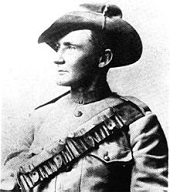











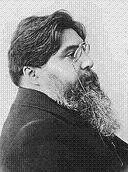







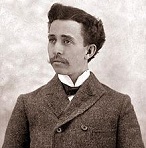











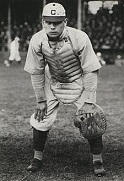











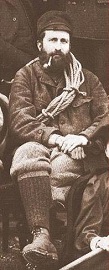
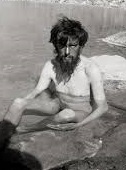
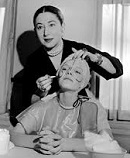
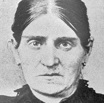
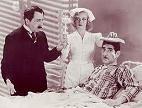

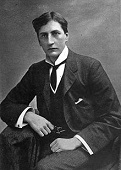

















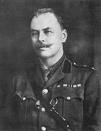

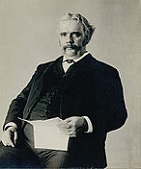




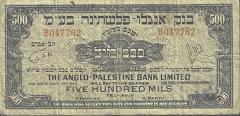







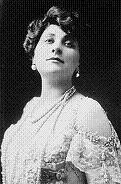












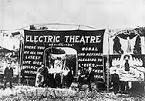

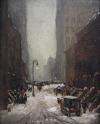
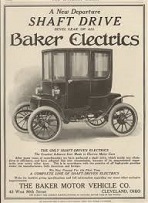
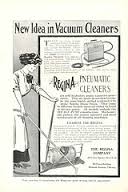
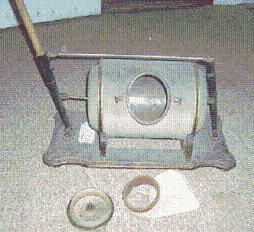
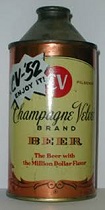
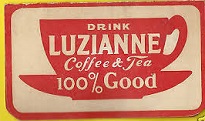



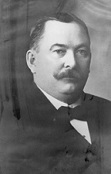
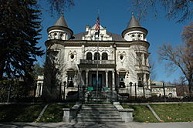
1902 Chinese Year: Tiger. The original Never On A Sunday? On Jan. 1 (Wed.) the first Rose Bowl (originally the Tournament East-West Football Game) is held; Mich. defeats Stanford by 49-0; the next one isn't held until 1916; it is always held on Jan. 1 unless it's a Sun., when it is held on Mon. Jan. 2; the Stanford Cardinal team was originally organized by Herbert Hoover when he was a freshman. There is a smallpox epidemic in Cleveland, Ohio this year. On Jan. 11 the first issue of Popular Mechanics is pub., featuring an article on the inner workings of a submarine. On Jan. 28 after retiring from business to become a philanthropist, Andrew Carnegie founds the Carnegie Institution for Science in Washington, D.C. with a $22M endowment, with the first board of trustees incl. Pres. Theodore Roosevelt, the pres. of the U.S. Senate, the Speaker of the House, the secy. of the Smithsonian Inst., and the pres. of the Nat. Academy of Sciences; Congress incorporates it in 1903; initial recipients of funding incl. physicist Albert A. Michelson, biologist Thomas Hunt Morgan, botanist Luther Burbank, and rocket scientist Robert H. Goddard; in 1904 funding is given only to research depts. not individuals, resulting in the development of Pyrex brand glass, hybrid corn, radar, and RNA interference science. On Jan. 30 the Anglo-Japanese Alliance is signed, recognizing the right of China and Korea to be free from Russian designs, while Japan recognizes Britain's rights in China, and Britain recognizes Japan's in Korea; Japan demands the withdrawal of Russian troops from Manchuria; meanwhile the Russkies milk a 1896 timber concession on the Yalu River in N Korea, and war is just around the corner. In Jan. Liserl Einstein, daughter of Albert Einstein (1879-1955) and Mileva Maric in born; she ends up mysteriously, probably adopted when Albert can't raise her and keep his career too; unable to get a professor to recommend him for a univ. post, in July he gets a job as a third class examiner in the Swiss Patent Office in Bern (Berne), where he plays the great amateur, along with fellow physics lover Michel Besso (his best friend?), with whom he gets his "big idea" (relativity) while trying to figure out how long light takes to travel from clock towers. On Feb. 27 the Anglo Palestine Co. in London is founded by Zionists to promote Jewish development of Palestine; it opens its first branch in Jaffa next year; in 1950 it is renamed Bank Leumi Le-Israel (Nat. Bank of Israel); in 1983 it is nationalized. On Feb. 27 Australian army Lt. Harry "Breaker" Harbord Morant (b. 1864) and Lt. Peter Joseph Handcock (b. 1868) are executed by the British army for the murder of nine Boer POWs after being acquitted of the murder of whistleblowing Lutheran minister Daniel Heese; although they are guilty as sin, they claim that the British high command gave standing orders to execute all Boer prisoners, and that they are scapegoats; filmed in 1980; Lt. George Ramsdale Witton (1874-1942) gets his sentence commuted, and serves three years in prison, going on to pub. Scapegoats of the Empire in 1907, refusing to fight for the British in WWI. On Mar. 4 the Am. Automobile Assoc. (AAA) is founded in Chicago, Ill. by nine clubs with 1.5K total members, growing to 51M members by 2010; it founds the AAA Racing (Contest) Board to officiate the Vanderbilt Cup internat. auto race in Long Island, N.Y., and goes on to sanction the Indianapolis 500 in 1905, 1916, 1920-41, and 1946-55; in 1902-13 the Glidden Tours, named after wealthy telephone pioneer (inventor of the telephone exchange, preferring female voices) Charles Jasper Glidden (1857-1927) (who this year became the first to circle the world in an automobile, a British Napoer with his wife Lucy, repeating it in 1908) are organized by the AAA to test "reliability and endurance" in a gruelling road rally through nearly impassible country roads, with drivers making repairs on the fly and helping each other between scaring horses and causing property and personal damage; starting in 1905 Glidden donates a $2K prize and the silver Glidden Trophy. On Mar. 20 France and Russia issue a declaration apparently favoring the Anglo-Japanese Alliance, but reserving the right to safeguard their interests, which is taken as an extension of the Franco-Russian Alliance to the Far East - an exaggeration? In the spring Italian castrato Alessandro Moreschi (1858-1922) makes his first phonograph recordings in London, becoming the only castrato recorded before Pope Pius X bans castratos next year. On Apr. 14 Hamilton, Mo.-born James Cash Penney (1875-1971) opens his first Golden Rule store in Kemmerer, Wyo. with $2K, moving to Salt Lake City, Utah in 1909 and growing to 34 stores in the Rocky Mt. area by 1912; in 1913 he consolidates them all under the name J.C. Penney Co., and in 1914 moves the HQ to New York City, growing to 175 stores in 22 states by 1917; in 1922 Big Mac work clothes brand is launched; in 1925 the 500th store opens in guess-where Hamilton, Mo.; in 1928 the 1,000th store opens, with the co. doing $190M/year; in 1940 Sam Walton begins working at a J.C. Penney store in Des Moines, Iowa; by 1941 there are 1.6K stores in 48 states; in 1959 the chain issues its own credit cards; in 1961 the first full-line shopping center department store is opened in Black Horse Pike Center in Audubon, N.J., followed in 1962 by King of Prussia Plaza in Penn.; in 1962 stores open in Anchorage and Fairbanks, Alaska, followed in 1966 by Honolulu, Hawaii, and San Juan, Puerto Rico in 1968 (261.5K sq. ft.); in 1962-81 it acquires the Gen. Merchandise Co., which runs discount The Treasury stores; in1971 a 300K sq. ft. store is opened in Woodfield Mall in Chicago, Ill., becoming the largest until one opens in 1998 at Plaza Las Americas in San Juan, Puerto Rico (350K sq. ft.); Old Man Cash dies on Feb. 12, 1971, and the stores all close for half a day, with revenues of $5B for the year, first time the catalog biz makes a profit; in 1973 the chain peaks at 2,053 stores incl. 300 full-line stores; in 1990 it moves to a new HQ in Plano, Tex., becoming the largest U.S. catalog retailer in 1993 after Sears closes its catalog biz; in 1996 it acquires Fay's Drug, Kerr Drug, and the Eckerd chain (sold 2004); in 1998 it launches an Internet store; in 2007 it launches the Ambrielle lingerie brand and Sephora brand cosmetics. On Apr. 16 Tex.-born Thomas Lincoln Tally (1861-1945) opens the Electric Theatre in Los Angeles, Calif., the first movie theater in the town; in 1912 he becomes the first in LA to show a color movie. On May 8 Mt. Pelee (Fr. "bald") on Martinique in the French West Indies erupts, and the island's largest town of St. Pierre in NW Martinique is destroyed, killing 30K-40K; only one man survives, locked up in an underground jail cell; on Aug. 30 it erupts again, wiping out Morne Rouge and other towns, killing 2K; St. Pierre is later rebuilt; the pyroclastic flows glow red in the dark. On May 17 having attained the age of majority, 16-y.-o. Spanish king (since 1886) Alfonso XIII (1886-1941) assumes rule (until Apr. 14, 1931). On May 19 a coal mine explosion in Fraterville, Tenn. kills 216 miners and leaves 150 widows. On May 20 Cuba, administered by the U.S. since 1898 gains full independence from Spain. On May 24 a statue of Comte de Rochambeau (1725-1807) is unveiled in Lafayette Square in Washington, D.C. by Pres. Theodore Roosevelt as part of a demonstration of U.S.-French friendship. Obey your master? In May after realizing that further resistance is futile, Boer CIC Gen. Louis Botha (1862-1919) begins negotiations in Middleburg, and on May 31 the Second Boer War (begun Oct. 11, 1899) ends with a British V and the Treaty (Peace) of Vereeniging; Orange Free State (Transvaal) becomes a British crown colony, with a promise of eventual self-govt., and Britain promises Ł3M to help rebuild Boer farms; 5,774 British and 4K Boers are killed; Britain has 300K troops in South Africa vs. 60-70K Boers; Pres. Paul Kruger lives in exile in Utrecht, Netherlands; British imperialism has grown sour and is on the way out after their poor showing against fellow whites and their merciless starvation and concentration camp tactics (28K die in camps); Venda in N South Africa comes under South African admin. In May-Oct. the Great Anthracite Coal Strike by the United Mine Workers (UMW) in E Penn. sees 17K workers refuse to join, causing retaliation against the "scabs", incl. one beaten to death; after it threatens a cold winter, Pres. Roosevelt sets up a fact-finding commission that gets them higher pay and less hours, ending the strike. On June 7 anti-clerical leftist Emile (Émile) Justin Louis Combes (1835-1921) becomes PM #69 of France (until Jan. 24, 1905), going on to push complete separation of church and state and use his Freemason connections to spy on army officers, resulting in his demise. On June 12 the Commonwealth Franchise Act is passed in Australia, giving white women the right to vote in federal elections, making them #2 after New Zealand, and also giving them the right to run for Parliament, a first. In June Edward VII is crowned shortly after an emergency appendectomy by his surgeon (1902-10) Sir Frederick Treves (of Elephant Man fame), for which he is given a residence in Richmond Park and takes an early retirement. On June 28 the U.S. Efficiency of Militia (Dirk) Act divides the militia into three distinct separate entities, making the use of the Nat. Guard for offensive warfare outside the borders of the U.S. illegal; too bad, starting with Pres. Wilson they all get away with it by claiming that the army is separate from the militia (until ?). In June the Triple Alliance between Germany, Austria, and Italy (begun 1882) is renewed for another six years; Italy secretly extends a guarantee to France that its actions should not be directed against it, adding to the guarantee already in effect for Britain. On July 1 the U.S. Philippine Philippine Organic (Cooper) Act, sponsored by Henry Allen Cooper (1850-1931) (R-Wisc.) is passed by the U.S. Senate, providing for a bicameral legislature consisting of an appointed upper house and elected lower house, with the U.S. govt. retaining veto powers; on July 4 the Philippine-Am. War (begun 1899) is officially ended by proclamation of Pres. Roosevelt; excommunicated priest Gregorio Labayan Aglipay (1860-1940) founds the Iglesia Filipina Independiente (Philippine Independent Church), an independent screw-you-popey Filipino nat. church; Taft purchases 410K acres of church-owned friar land for distribution to the tenants, which is never fully accomplished. On July 11 PM (since June 25, 1895) Robert Gascoyne-Cecil, 3rd Marquess of Salisbury (b. 1830), who has been British PM for most of the time since 1885 resigns due to failing health and grief over the death of his wife, and on July 12 Conservative Arthur James Balfour (1848-1930) becomes PM of England (until Dec. 5, 1905). In July after Parliament refuses to pay him enough, the 7th earl of Hopetoun suddenly resigns as gov.-gen. of Australia (since 1889), and South Australia gov. (since 1899) Hallam Tennyson, 2nd Baron Tennyson (1852-1928), son of Alfred, Lord Tennyson (like his father an ardent imperialist) becomes gov.-gen. #2 of Australia (until Jan. 21, 1904). On Aug. 2 Vt.-born Henry Martyn LeLand (1843-1932), inventor of electric barber clippers and the Leland-Detroit Monorail toy train founds the Cadillac Motor Co. (named after Detroit founder Antoine Laumet de La Mothe, Sieur de Cadillac) from the Henry Ford Co. to produce a 1-cylinder car originally developed for Oldsmobile, pioneering the use of interchangeable parts; on July 29, 1909 he sells Cadillac to Gen. Motors for $4.5M, remaining as an executive, pushing Charles Kettering to develop an electric self-starter after one of his engineers is hit in the head and killed by a starting crank when an engine backfires. On Aug. 11 Pres. Teddy Roosevelt appoints liberal Mass. chief justice (since Aug. 2, 1899) Oliver Wendell Holmes Jr. (1841-1935) (lt. col. in the Union army in the U.S. Civil War, son of Boston lit. lion you know who Sr.) (author of the std. reference "The Common Law", 1881) as U.S. Supreme Court justice #58 to fill the vacancy left by Horace Gray (d. 1902); on Dec. 4 he is sworn in, and serves 29 years (until Jan. 12, 1932), issuing concise and pithy opinions and becoming known as "the Great Dissenter". On Aug. 12 (Sun.) the West Side Riot between whites and blacks in the bordello-filled Tenderloin District in West Side, Manhattan, N.Y. starts when black man Arthur Harris kills white policeman Robert J. Thorpe with a razor for trying to arrest his black babe May Eao, after which Thorpe's friends begin taking revenge on random blacks, being joined by the Hell's Kitchen Gang of white hoodlums, who shout "Kill the niggers", after which police chief Devery orders his white pigs to "take no prisoners" and club the black rioters into submission, injuring 60 and stopping it fast, with only 35 arrests. On Aug. 22 Pres. Theodore Roosevelt becomes the first U.S. pres. to ride in an automobile in a procession in Hartford, Conn. In early Sept. after an unusually hot dry season and high winds, forest fires rage in every part of Greece. On Oct. 30 after the Catholic Modernist Movement founded in Saint Sulpice in Paris to fight the German school of Biblical scholarship turns into defectors and budding heretics, Pope Leo XIII issues the apostolic letter Pastoralis Vigilantiae, establishing the Pontifical Biblical Commission to insure that Biblical studies "be shielded not only from every breath of error but even from every rash opinion", and causing "a dark cloud of reactionary conservatism to settle over Roman Catholic biblical scholarship in the first half of the twentieth century" (Oxford Companion to the Bible, 1993, p. 603); in 1907 Pope Pius X issues a formal condemnation of Modernism, and on Sept. 1, 1910 the Church begins requiring clerics to swear an oath against Modernist tendencies, driving Modernism underground, with Modernist Abbe Turnel pub. under 14 different aliases until he is outed in 1929 and excommunicated. In Aug. Lord Rothschild writes a Letter to Theodor Herzl, with the soundbyte that he "should view with horror the establishment of a Jewish colony pure and simple; such a colony would be Imperium Imperio; it would be a Ghetto with the prejudice of the Ghetto; it would be a small petty Jewish state, orthodox and illiberal, excluding the Gentile and the Christian." On Nov. 1 Italy sends a note to France assuring neutrality and bolstering an Italian-French entente, which causes the Triple Alliance to tank and strains Italian-Austrian relations, which are threatened by Irredentist agitation anyway. On Nov. 8 Spain rejects a French offer of a substantial part of N Morocco as a sphere of influence for fear of antagonizing Britain. In Dec. the Committee of Imperial Defence holds its first meeting in London, consisting of the PM, lord pres., first lord of the admiralty, war secy., army CIC, first sea lord, and the heads of naval and military intel. In Dec. the Venezuela Blockade (ends 1903) is imposed by Britain, Germany, and Italy for failure to pay loans; on Dec. 19 Argentine foreign minister Luis Maria Drago (1859-1921) communicates his opinion vis a vis the Venezuelan Boundary Dispute (begun 1895) that a creditor nation doesn't have the right to use force to collect a debt from another sovereign state, known as the Drago Doctrine. Swaziland comes under British rule (until 1968). In Dec. Luzianne brand coffee is introduced by William B. Reilly of Monroe, La., followed in 1903 by Luzianne brand tea; in 1932 a blend formulated specially for iced tea is introduced, becoming their biggest seller; in the 1970s singer-actor Burl Ives stars in commercials. On Jan. 13 Wahhabi leader Abdul-Aziz Ibn Saud (1880-1953) seizes control of Riyadh, the capital of Nejd, founding the Third Saudi State (Saudi Arabia), with himself as emir of Nejd (until Nov. 3, 1921), followed by sultan (until Jan. 29, 1927), then king (until Sept. 23, 1932), and finally king #1 of Saudi Arabia on Sept. 23, 1932 (until Nov. 9, 1953). Krishnaraja Wodiyar IV (1884-1940) becomes ruler of Mysore, India, going on to invent modern yoga and try to palm it off as ancient? The leaders of the Five Civilized Tribes (Cherokee, Choctaw, Chickasaw, Creek or Muscogee, and Seminole) meet in Eufaula, Okla. (Indian Territory) to form their own state known as Sequoyah, holding a constitutional convention in Muskogee on Aug. 21, 1905, which is ignored by Congress and vetoed by Pres. Theodore Roosevelt. The Colonial Conference meets in London. Portugal declares nat. bankruptcy. Argentine pres. Julio Argentino Roca avoids a war with Chile over a boundary dispute. The U.S. Supreme (Fuller) Court begins hearing Kansas v. Colo., with Kansas claiming that Colo. takes too much water from the Arkansas River, reducing the value of its land; it strings along for over a cent., with rulings in 1907, 1943, 1995, 2001, 2004, and 2009. The Royal Victorian Chain is established by King Edward VII as a personal award of the monarch, not to be confused with the Royal Victorian Order; it becomes the top award for Canadians, who are ineligible to receive knighthoods, incl. Vincent Massey and Roland Michener; it must be returned on the recipient's death. Chicken becomes the 2nd town in Alaska to incorporate. The Trans-Pacific telephone cable connects Vancouver, Canada and Brisbane, Australia through Midway, completing a worldwide circuit. Robert F. Scott begins an Antarctic expedition which sets a new record for S latitude (ends 1904). Leon Trotsky escapes from a Siberian prison and settles in London. Mozaffar al-Din Shah Qajar of Persia visits Edward VII of England, expecting to receive the Order of the Garter like his daddy Nasser ed-Din Shah did, but the king refuses, but his secy. makes up a fake one and sends it to his yacht; too bad, he knows it's fake and tosses out the porthole; he finally gets it next year. Moldavian-born Rabbi Solomon Schechter (1847-1915) emigrates to the U.S. and becomes pres. of the Jewish Theological Seminary in New York City, co-founding the United Synagogue of Am. The U.S. Army begins dressing its soldiers in khakis (from the Urdu word for dusty). A German Spelling Cconference is held in Germany with reps. from N (Low German or Plattdeutch), S Germany (High German), Austria, and Switzerland to work out a uniform spelling for German, although they all retain their own pronunciation - Ich liebe dich - you wanna lick my what? The Pan Am. Health Org. is founded. King Edward VII establishes the Order of Merit, limited to 24 British subjects at any one time; Irish historian W.E.H. Lecky (d. 1903) is one of the lucky ones. Bocconi U. in Milan, Italy is founded, becoming the first Italian univ. to grant a degree in economics. The Am. Anthropological Assoc. (AAA) is founded in Arlington, Va. by 175 people after Franz Boas tried to limit it to 40 prof. anthropologists; pres. #1 (1902-12) is William John McGee (1853-1912); it takes over the journal American Anthropologist (founded 1888); in 2010 the executive board pub. the statement: "The strength of Anthropology lies in its distinctive position at the nexus of the sciences and humanities." The Anglo-Am. Pilgrims Assoc. (Pilgrims Society) is founded by wealthy businessmen in London and New York City to increase ties, and is patronized by the British monarchs. The Rand Daily Mail begins pub. in Johannesburg, South Africa in sept. (until Apr. 30, 1985), becoming known for its stand against apartheid. Sigmund Freud founds the Wednesday (Vienna) Psychological Society, which meets at his home and launches the psychoanalytic movement, with members incl. Vienna-born Alfred Adler (1870-1937) (pres. #1), who breaks with him after is is founded, instead founding Individual Psychology, and coining the term Inferiority Complex, and Swiss-born Paul Eugen Bleuler (1857-1939), who also breaks with him after it is founded, coining the terms "autism", "ambivalence", and "schizophrenia", which he believes is not incurable, necessitating early discharge from the hospital to avoid institutionalization. The British Academy is founded in London to support the humanities and social sciences by British Museum dir. (1888-1909) Sir Edward Maunde Thompson (1840-1929) et al., receiving a royal charter this year and going on to become Britain's nat. academy for the humanities and social sciences, with 1K+ leading scholars elected by their peers. The Order of the Coif is founded at the U. of Law for law students ranking in the top 10% of their class. After training in political philosophy and history, Thomas Woodrow Wilson becomes the first layman pres. of Princeton U. (until 1910). Edith Roosevelt becomes the first First Lady to have a private secy. William Jennings Bryan visits Colo. and gives his "Cross of Gold" speech in front of the New Sheridan Hotel in Telluride. French journalist Victor Moris coins the word "apache" (pr. a-POSH) for Parisian thugs to describe how an Apache Indian handles his bitch, er, woman in a brutal, masterly way - I'm not ready to fight with you, my dear, how about a drink instead? After a conviction for performing illegal abortions, Gformer midwife Elisabeth Wiese (1853-1905) of St. Pauli, Hamburg, Germany begins poisoning babies with morphine after working a scam on their adoptive parents, murdering five by the time she is arrested in 1903 and guillotined on Feb. 2, 1905, becoming known as "the Angel-Maker of St. Pauli"; Martha McChesney Berry (1866-1942) founds a log cabin school in the backwoods of Ga., going on to establish the Christian Berry Schools for Mountain Childen in Mount Berry, Ga., followed in 1930 by Berry College in Rome, Ga. - where they pick a lot of berries? Enrico Caruso makes his first gramophone recording. New Orleans, La.-born Jelly Roll Morton (Ferdinand Joseph LaMothe) (1890-1941) claims to invent Jazz this year, but not the term. Olaf Gulbransson (1873-1958) becomes political cartoonist for the "Simplicissimus". The comic strip Buster Brown by Richard Felton Outcault debuts in the New York Herald. Paul Cezanne (d. 1906) builds the Les Lauves studio in Aix-en-Provence, where he spends the last four years of his life painting monumental female nudes, skulls, and his gardener Vallier. Ealing Studios is founded in the White Lodge in Ealing Green, W London, England by William George "Will" Barker (1868-1951), going on to become the oldest continuously-operating film studio on Earth; in 1931 it begins filming talkies; after WWII it releases a series of classic films incl. "Kind Hearts and Coronets" (1949), "Passport to Pimlico" (1949), "The Lavender Hill Mob" (1951), and "The Ladykillers" (1955); in 1955-95 it is acquired by the BBC. The Jewish-Am. comedy team of Smith and Dale (Joe Smith and Charlie Dale) gets started when a local printer gives them a good deal on business cards; their real names are Joe Sultzer and Charlie Marks; they go on to become famous for their routine Doctor Kronkheit and His Only Living Patient. The World's Oldest Smithfield Ham is first cured in Smithfield, Va., and survives until ?, being insured for $1K by Lloyds of London. Franklin Clarence "Frank" Mars (1883-1934) founds the Mars Candy Co. in Tacoma, Wash., which is a bust until he invents the Milky Way candy bar in 1923 using Hershey's chocolate for the coating. The Thomas B. Jeffery Co. is founded in Kenosha, Wisc. by Stoke, Devon, England-born bicycle manufacturer Thomas Buckland Jeffery (1845-1910) (inventor of the clincher rim for tires in 1882), producing the Rambler ("Kenosha Cadillac") ("the car for country roads"), which he first built in 1897, becoming the first car with a spare wheel-tire assembly. After his Olds Motor Works burns to the ground last Mar. 9, Olds creates the first automotive assembly line for the $650 Curved Dash Oldsmobile, increasing production 5x using wooden wheeled platforms to hold the cars as parts are added, becoming the first mass-produced low-priced U.S. motor vehicle, selling 425 in 1901, 2.5K in 1902, and 19K by 1907 when it discontinues production; in 1904 after clashes with co-owner Frederic L. Smith, Olds leaves the co. and forms REO Motor Car Co., which is sold to General Motors in 1908, and discontinues production in 2004 - it's not your father's Oldsmobile? Threatened by competition from the phonograph, music box manufacturer Regina Co. in Jersey City, N.J. (founded 1892) begins making 2-person hand-pumped pneumatic vacuum cleaners (patent #847,947, 1907) (patent #1,016,921, 1912), which sell poorly along with the music boxes, causing the company to go bankrupt in 1922, surviving the 1930s with canister vacuum machines, and introducing their stick model the Eletrik Broom in the 1940s; in 1997 it is acquired by Oreck Co.; in 2000 it is acquired by the Royal Corp., which sells vacuum cleaners under the Home Depot brand. Macy's opens a giant store on New York's 34th St. at Herald Square. Goodwill Industries is founded in the U.S. Barcalounger Co. becomes the first U.S. co. to allow employees coffee breaks. Necco begins marketing Conversation Hearts Valentine's Day candies with cute messages. Champagne Velvet brand beer is introduced by Terra Haute Brewing Co. of Ind., based on a recipe developed by a son of immigrants from Tettnang, Germany requiring their hops, which is insured for $1M, causing the ad slogan "the Beer with the Million Dollar Flavor" to be used, becoming the #1 beer for Hoosiers. 4'10" Krakow-born Jew Helena (Chaja) Rubenstein (1872-1965) emigrates from Poland to Australia, finding herself in a wonderland of 75M merino sheep, from which she obtains lanolin to make her Creme Valaze beauty cream, becoming a success and moving to London, England in 1908 with $100K, then to Paris, France in 1912, where she opens a salon, then to New York City in 1914, where she opens another salon, becoming rivals with Elizabeth Arden; in 1928 she sells-out to the Lehman Brothers for $7.3M, then after the Great Depression arrives she buys it back for less than $1M, expanding to a dozen U.S. cities. Architecture: In Sept. the Galveston Seawall in Galveston, Tex.is begun (ends July 29, 1904). The 181-room Algonquin Hotel at 59 West 44th St. in Manhattan, N.Y. opens, becoming the home of the Alonquin Round Table in 1919-29. The Denver Museum of Natural History (later Denver Museum of Nature and Science) in Denver, Colo. is founded, later housing the Folsom Point, found in 1908 near Folsom, N.M. lodged between the ribs of a bison known to have been extinct for more than 10K years, proving the existence of humans in North Am. that far back - do I detect a little circular reasoning here? Am. architect Daniel Hudson Burnham (1846-1912) designs the triangular Flatiron Bldg. in New York City (at 23rd St., 5th Ave. and Broadway), as well as the Union Station in Washington, D.C. (opened Oct. 27, 1907); the Flatiron Bldg. acts as a wind tunnel, creating updrafts and viewing opportunities for men. The Aswan Dam in Egypt is completed. Bass Rock Lighthouse on Bass Rock in the Firth of Forth outside Edinburgh is built. The Campanile (Bell Tower) of St. Mark's Cathedral in Venice suddenly collapses, and is rebuilt by 1910. The Hollywood Hotel on Highland Ave. and Prospect Ave. in Los Angeles, Calif. opens, owned by Toronto, Canada-born real estate developer Hobart Johnstone "H.J." Whitley (1847-1931) ("the Father of Hollywood"), who incorporates Hollywood next Nov. 14; on Jan. 30, 1904 Hollywood bans liquor except for valid medical purposes; in 1910 it votes for annexation to Los Angeles, renaming Prospect Ave. to Hollywood Blvd. The marble-granite-sandstone Kearns Mansion at 603 E. Brigham (South Temple) St. in Salt Lake City is builty by wealthy Roman Catholic U.S. Sen. (R-Utah) (1901-5) Thomas Kearns (1862-1918) (owner of the Silver King Coalition Mine in Park City, Utah); in 1937 it becomes the official mansion of the gov. of Utah. Lubin Manufacturing Co. is founded in Philadelphia, Penn. by Polish Jewish immigrant optometrist Siegmund "Pop" Lubin (Lubszynski) (1851-1923), who started out in 1897 making films with his Cineograph combo camera/projector, using the open air roof of a bldg. in the business district as a studio; the trademark is the Liberty Bell; in 1910 Lubin builds a modern studio called Lubinville on the corner of Indiana Ave. and 20th St., expanding to Jacksonville, Fla., Los Angeles, Calif., and Coronado, Calif.; his stock co. incl. Harry C. "Henry" Myers (1882-1938), Florence Hackett (nee Hart) (1882-1954), Alan Hale Sr. (1892-1950), Oliver "Ollie" "Babe" (Norvell) Hardy (1892-1957) ($5/a day, 3 days a week guaranteed), Arthur Vaughan Johnson (1876-1916), Lottie Briscoe (1883-1950), Florence Lawrence (Florence Annie Bridgwood) (1883-1938), Ethel Clayton (1882-1966), Gladys Brockwell (Lindeman) (1893-1929), Edwin Carewe (Jay Fox) (1883-1940), Ormetta Grace "Ormi" Hawley (1889-1942), Rosemary Theresa Theby (Thebe) (Rose Masing) (1892-1973), and Pearl White (1889-1939); too bad, a fire at his studio in June 1914 destroys the negatives for new unreleased films, and after a losing copyright battle with the Edison Trust causes him to join it, entering a distribution agreement with Vitagraph, Selig, and Essanay Studios, only to see WWI destroy the foreign market, he declares bankruptcy on Sept. 1, 1916 after producing 1K films, and goes back to being an optometrist; meanwhile he stinks himself up by pirating films by Georges Melies et al. After the W end of the 2nd floor is found too small for his family of six children and staff, causing First Lady Edith Roosevelt to hire the architectural firm of McKim, Mead and White for a renovation, which Congress approves $500K for, the West Wing of the White House is built for $65K on the site of the greenhouses and stables, originally intended as a temporary office structure, with the Office of the Pres. and Cabinet Room on the E; in 1909 Pres. Taft expands the bldg. southward over the old tennis court, with the first Oval Office at the C of the S facade; Pres. Hoover rebuilds the West Wing and digs a partial basement supported with structural steel, which is damaged on Dec. 24, 1929 by an electrical fire, causing Hoover to rebuild it and add air conditioning; in 1932 Pres. FDR hires New York City architect Eric Gugler to redesign it to increase the space inside the same envelope, and he excavates a full basement under the lawn and adds underground offices, adding an unobtrusive penthouse story at the cost of narrow corridors and cramped offices; on the E side he adds a new Cabinet Room, Secy.'s Office, and Oval Office that gives the pres. greater privacy and concealed access to the White House; by the end of the cent. most staff members are moved to the Eisenhower Executive Office Bldg. Sports: On Jan. 5-Mar. 1 the 1902 Canadian Amateur Hockey League (CAHL) Season sees the Montreal Hockey Club win with a 6-2 record, going on to defeat the Winnipeg Victorias 2-1 on Mar. 13-17 to win the Stanley Cup. On Mar. 7 Ernest Fosberg of Rockford, Ill. becomes the first to roll a 300 game in ABC-sanctioned league play. On May 31 (Sat.) speed trials in Staten Island, N.Y. before a crowd of 10K sees the 7 hp 3K lb. Baker Electric Car from Baker Motor Vehicle Co. of Cleveland, Ohio come in 2nd at the 1km mark at 36.2 sec. before spinning out of control and crashing into the crowd, causing owner-driver W.C. Baker (b. 1870) and his asst. C.E. Denzer to be arrested, after which on June 3 the Automobile Club of Am. announces that it will no longer sanction automobile speed trials on public highways, and will authorize officials to ban cars they consider dangerous or unsuitable; it ran on 40 lead-zinc Gould batteries. On June 13 7-y.-o. "incorrigible and vicious" George Herman Ruth Jr. (1895-1948) (later known as the Babe, the Bambino, and the Sultan of Swat) is sent to St. Mary's Industrial School in Baltimore, Md., where he lives for the next ? years, getting taught about life and baseball by 6'6" 250 lb. Brother Matthias, whose uppercut swing and pigeon-toed run he copies, after which he becomes a ML baseball player in 1914-35, #1 of all time. On June 15 Ont., Canada-born Adrian, Mich.-raised catcher Jay Justin "Nig" Clarke (1882-1949) of the Corsicana Oil Citys of the Texas League scores a record eight home runs in one game in Ennis, Tex., defeating the Texarkana Casketmakers 51-3; too bad, "The right field fence at Ennis wasn't more than 40 feet [12 m] back of first base. Nig just pulled eight short flies around and over that wall. I'm not taking anything away from old Nig's batting prowess - he was the one of the best hitters I ever saw. But that's the way he hit eight homers that day. Didn't have to send the ball more than 140 feet [43 m] at the most." American baseball creates some defensive superstars out of a poem? On Sept. 2 (Tues.) Baseball's Sad Lexicon of Chicago Cubs shortstop Joseph Bert "Joe" Tinker (1880-1948), 2nd baseman John Joseph "Johnny" Evers (1881-1947) ("the Crab"), and 1st baseman Frank Leroy Chance (1877-1924) first appear in a game together, and turn their first double play on Sept. 3; on Sept. 14, 1905 (Thur.) Tinker and Evers fall out over a cab fare and don't speak to each again until 1938; mgr. Frank Gibson Selee (1859-1909) made Tinker switch from 3B, Evers from SS, and Chance from catcher; in 1910 (their final season) Franklin Pierce Adams writes a poem about them from the viewpoint of the defeated New York Giants, making them into legends; in 1946 all three are voted into the Baseball Hall of Fame; Frank Selee retires from illness in 1905, and Chance takes his job as mgr. (until 1912); from 1906-10 3rd base is played by Harry M. Steinfeldt (1877-1914), who is left out of the poem; in 1913 Cubs owner (since 1906) Charles Webb Murphy (1868-1931) fires Evers, who is traded to the Boston Braves and goes on to win the WS and the Chalmers Award, causing NL pres. (1914-18) John Kinley Tener (1863-1946) and Charles Phelps Taft (1843-1929) (brother of baseball fan Pres. William Howard Taft) to drive him out of diamonds-are-a-girl's-best-friend baseball; "E is for Evers, His jaw in advance; Never afraid To Tinker with Chance." (Ogden Nash) Automobile and motorcycle races begin to be held on 4.2-mi.-long Daytona Beach Road Course in Fla., whose hard-packed white sand is ideal for speed trials; closed on Feb. 23, 1958. "London Daily Mail" pub. Alfred Harmsworth (1865-1922), the first person in England to drive a Mercedes-Benz founds the Harmsworth Cup for motorboat racing; in 1905 he is created Baron Northcliffe, then 1st Viscount Northcliffe in 1918; in WWI his anti-German propaganda pisses-off the Huns so much that they send battleships to shell his house; too bad, when the Nazis arrive, his surviving partner-brother Harold Harmsworth, who is created 1st Viscount Rothermere in 1910 pushes an appeasement policy because three of his sons were KIA or went missing in one week in WWI. Lefty pitcher George Edward "Rube" Waddell (1876-1914) joins the Philadelphia Athletics (AL) (until 1907), pitching 250 games with a winning percentage of .618 (lifetime .580), incl. a record 349 strikeouts in 1904, which is not matched until 1946 by Bob Feller of the Cleveland Indians; the first real baseball star, he is helped by his bizarre behavior incl. leaving games to follow fire trucks, and getting entranced by puppies held up by the audience. In June a team led by English mountaineer Oscar Johannes Ludwig Eckenstein (1859-1921) (inventor of the modern crampon and friend of Aliester Crowley) and Swiss physician Jules Jacot-Guillarmod (1868-1925) reaches the base of K2; they don't summit, but Jacot-Guillarmod's photgraphs make the region famous, causing more attempts; on July 10, 1906 Eckenstein et al. make the first ascent of 4,069m Mont Brouillard (Fr. "mountain of mist") in the Val d'Aosta of Italy on the S ridge of Mont Blanc. 5'4" San Francisco, Calif.-born Jewish-Am. boxer ("the Little Hebrew") Abraham Washington "Abe" Attell (1883-1970) becomes world featherweight boxing champ, dominating the title until 1912, incl. a 6-year consecutive reign in 1906-12; too bad, since he is friends with gangster Abe Rothstein, he is charged with involvement in the 1919 Black Sox Scandal, but the charges are dismissed before trial. Nobel Prizes: Peace: Elie Ducommun (1833-1906) and Charles Albert Gobat (1843-1914) (Switzerland); Lit.: Theodor Mommsen (1817-1903) (Germany); Physics: Hendrik Antoon Lorentz (1853-1928) and Pieter Zeeman (1865-1943) (Netherlands) [Zeeman Effect]; Chem.: Hermann Emil Louis Fischer (1852-1919) (Germany) [sugar chem.]; Med.: Sir Ronald Ross (1857-1932) (U.K.) [malaria]. Inventions: On Feb. 15 British inventor Daniel "Dan" Albone (1860-1906) files a patent for the first commercially successful gasoline-powered farm tractor, forming Ivel Agricultural Motors Ltd. and selling them for Ł300 and building 500; in 1903 Charles W. Hart and Charles H. Parr begin marketing a 2-cylinder gasoline engine tractor in Charles City, Iowa, dooming the 20M horses and mules on U.S. farms to obsolescence over the next 20 years. Richard Cavill of guess where invents the Australian Crawl swim stroke - the Great White shark doesn't get part of the credit? French chemist-physicist-engineer Georges Claude (1870-1960) invents the Neon Lamp; the first neon sign is made in 1905 (1910?). French inventor Arthur Constantin Krebs (1850-1935) invents the Automatic Diaphragm Carburetor to provide a constant air-fuel ratio during acceleration, causing a dramatic improvement in fuel economy. Frederick W. Lanchester of the U.K. is granted the first patent for hydraulic power steering. Danish engineer Valdemar Poulsen (1869-1942) invents the Poulsen Arc Transmitter, which is widely used in radio until the advent of vacuum tubes. Science: A jumping gene year for biology? On Jan. 16 the existence and function of hormones are discovered by English physiologist Ernest Henry Starling (1866-1927) of University College, London; Starling and English physiologist Sir William Maddock Bayliss (1860-1924) discover the hormone secretin; Am. geneticist Walter Stanborough Sutton (1877-1916) and German biologist Theodor Heinrich Boveri (1862-1915) independently (via work with sea urchins) propose the Boveri-Sutton Chromosome Theory that chromosomes contain genetic info.; Sutton coins the term "gene"; Boveri theorizes that a cancerous tumor starts with a cell that gets its chromosomes scrambled; also in 1902 Bayliss discovers the Bayliss Effect (Myogenic Response), whereby blood vessels contract or distend based on blood pressure to create an autoregulation mechanism. French meteorologist Leon Teisserenc de Bort (1855-1913) uses instrumented balloons to discover a point in Earth's atmosphere at about 40K-50K ft. (0.1 bar) where the air stops cooling and begins growing warmer, which he calls the Tropopause, also coining the terms Stratosphere for the layer above and Troposphere for the layer below (down to ground level). Zurich, Switzerland-born Am. psychiatrist Adolf Meyer (1866-1950) becomes dir. of the Pathological (later Psychiatric) Inst. of the N.Y. state hospital system, going on to influence U.S. psychiatry via his "common sense" approach of keeping detailed patient records and by introducing the classification system of Emil Kraepelin and the sexual ideas of Sigmund Freud; in 1906 he calls dementia praecox a "reaction type", a "discordant bundle of maladaptive habits that arose as a response to biopsychosocial stressors"; in 1908 after coining the term "mental hygiene", he helps found the Conn. Society for Mental Hygiene, followed in 1909 by the Nat. Committee for Mental Hygiene. French archeologist Abbe Henri Edouard Prosper Breuil (1877-1961) visits the disputed Altamira Caves in NE Spain (discovered in 1879) and unearths animal bones with engravings identical to the ceiling paintings, causing the find to be declared authentic. The first Tyrannosaurus Rex (T-Rex) skeleton is discovered in Hell Creek, Mont. by Am. paleontologist "Mr. Bones" Barnum Brown (1873-1963), and housed in the Carnegie Museum of Nat. History in Pittsburgh, Penn.; Henry Fairfield Osborn (1857-1935) makes the First Drawing of a T-Rex - and his boy was named Sue? English physicist Oliver Heaviside (1850-1925) and Am. electrical engineer Arthur Edwin Kennelly (1861-1939) independently discover the Kennelly-Heaviside Layer (E-Layer) of the Earth's atmosphere, which conducts radio waves, theorizing that it's caused by ionized gas - from the dog kennel to heaven's side? Charles Robert Richet (1850-1935) discovers Anaphylaxis, winning the 1913 Nobel Med. Prize. Dutch botanist Hugo Marie De Vries (1848-1935) announces his Theory of Mutation, proposing that new species can arise in single jumps; too bad, he uses evidence that has nothing to do with genetic mutation, but afterwards evolutionists stick with him? Barbital (Barbitone) is synthesized by German chemists Emil Fischer and Joseph von Mering, becoming the first commercially available barbituate, used as a sleeping aid (hypnotic) until the 1950s; in 1904 Bayer markets it as Veronal, while Schering markets it as Medinal for "insomnia induced by nervous excitability", replacing broidmes as a sleeping aid; too bad, tolerance is easily developed, encouraging lethal ODs. The well-preserved frozen Beresovka Mammoth, complete with buttercups in its mouth is discovered along the Beresovka River after a big thaw, and some of the meat is consumed and found edible; temps below -150 F would be needed to freeze it without forming ice crystals that spoil the meat, yet the food in its mouth shows it was spring-summer - evidence of Noah's Flood? The first plants are methodically bred for disease resistance. After being first visited in 1849-50 by W.K. Loftus, Tell al-Warka in Iraq is excavated by Walter Andrae, followed in 1912-3 by German archeologist Julius Jordan, who discovers a temple of Ishtar dated to 3,000 B.C.E.; he returns in 1928, and is replaced in 1931-9 by Noldeke A. Ernst Heinrich and Heinrich J. Lenzen. Nonfiction: James Allen (1864-1912), As a Man Thinketh; inspired by Proverbs 23:7 ("As a man thinketh in his heart, so is he"); opens with: "Mind is the Master power that moulds and makes,/ And Man is Mind, and evermore he takes/ The tool of Thought, and, shaping what he wills,/ Brings forth a thousand joys, a thousand ills: —/ He thinks in secret, and it comes to pass:/ Environment is but his looking-glass"; incl. the soundbytes: "Men do not attract what they want, but what they are"; "Every action and feeling is preceded by a thought"; "Right thinking begins with the words we say to ourselves"; "Circumstance does not make the man, it reveals him to himself"; "The soul attracts that which it secretly harbors, that which it loves, and also that which it fears. It reaches the height of its cherished aspirations. It falls to the level of its unchastened desires - and circumstances are the means by which the soul receives its own"; "Every man is where he is by the law of his being; the thoughts which he has built into his character have brought him there, and in the arrangement of his life there is no element of chance, but all is the result of a law which cannot err." Honore de Balzac (1799-1850) and Alexander Amfiteatrov (1862-1938), Folk-Tales of Napoleon: The Napoleon of the People and Napoleonder; tr. George Kennan (1845-1924); pub. after a satirical article on the Russian imperial family gets him exiled from Russia to Italy. Margaret Barber (1869-1901), The Roadmender (posth.); pub. under alias Michael Fairless; bestselling book of meditations. William Bateson (1861-1926), Mendel's Principles of Heredity: A Defence. Hilaire Belloc (1870-1953), The Path to Rome. Edwyn Bevan (1870-1943), The House of Seleucus (2 vols.). George Sewall Boutwell (1818-1905), Reminiscences of Sixty Years in Public Affairs (autobio.). Malwine Bree, Die Gundlage der Methode Leschetizky; the piano method of Theodor Leschetizky (1830-1915). John Burroughs (1837-1921), Literary Values. Andrew Carnegie (1835-1919), Empire of Business. Hermann Cohen (1842-1918), Logik der Reinen Erkenntnis; followed by Ethik des Reinen Willens (1904), and Asthetic des Reinen Gefuhis ( Ästhetik des reinen Gefühls) (1912), laying out his own systematic philosophy. Timothy Cole (1852-1931), English Masters. Bishop Mandell Creighton (1843-1901), Thoughts on Education: Speeches and Sermons (posth.); The Church and the Nation: Charges and Addresses (posth.). Benedetto Croce (1866-1952), Philosophy of the Spirit. Felix Dahn (1834-1912), Duke Ernst of Swabia. John Dewey (1859-1952), The Child and the Curriculum; takes a middle road between sticking to the curriculum vs. child-centered education; "The child and the curriculum are simply two limits which define a single process. Just as two points define a straight line, so the present standpoint of the child and the facts and truths of studies define instruction." Edward Dicey, The Story of the Khedivate. Allen Welsh Dulles (1893-1969), The Boer War: A History; written by the 8-y.-o. future dir. of the CIA (1953-61). William Archibald Dunning (1857-1922), History of Political Theories, Ancient and Medieval (3 vols.) (1902-20); incl. "From Luther to Montesquieu" (1905), "From Rousseau to Spencer" (1920). Albert Joseph Edmunds (1857-1941), Buddhist and Christian Gospels (2 vols.); parallel texts; becomes a std. work. Richard T. Ely (1854-1943), The Coming City. John Fiske (1842-1901), John Bach McMaster (1852-1932), and John Henry Wright (1852-1908), Modern Development of the New World. H. Rider Haggard (1856-1925), Rural England. Lafcadio Hearn (1850-1904), Kotto: Being Japanese Curios, with Sundry Cobwebs. Pauli and Herbig, Corpus Inscriptionum Etruscarum (1893-1902). Thomas Wentworth Higginson (1823-1911), Henry Wadsworth Longfellow; John Greenleaf Whittier. J.A. Hobson, Imperialism. Paul Hoensbroich, The Papacy in Its Social and Cultural Influence. William James (1842-1910), The Varieties of Religious Experience: A Study in Human Nature; proposes a pragmatist view of religion independent of its origins, and draws a distinction between symbols and reality, taking over the academic mainstream, causing Time mag. in 1963 to print the soundbyte: "In making little allowance for the fact that people can also be converted to vicious creeds, he acquired admirers he would have deplored. Mussolini, for instance, hailed James as a preceptor who had showed him that 'an action should be judged by its result rather than by its doctrinary basis'." Albert Kalthoff (1850-1906), The Life of Jesus: Lectures given to the Protestant Reform Club of Berlin, followed by The Problem of Christ: Principles of a Social Theology. Paul Kruger (1825-1904), Memoirs. Andrew Lang (1844-1912), James VI and the Gowrie Mystery. Vladimir Lenin (1870-1924), What Is to Be Done?: Burning Questions of Our Movement; rejects the idea that workers will spontaneously become political, calling on Marxists to form a "vanguard" political party to spread Marxist ideas among the workers to bring about a dictatorship of the proletariat based on sheer terror and elimination of individuality in a total submersion to the will of the party, in which only a few people must understand what is going on; "The only choice is: either the bourgeois or the socialist ideology. There is no middle course (for humanity has not created a 'third' ideology, and, moreover, in a society torn by class antagonisms there can never be a non-class or above-class ideology). Hence to belittle the socialist ideology in any way, to turn away from it in the slightest degree, means to strengthen bourgeois ideology" ; "Every solution that offers a middle path is a deception ... or an expression of the dull-wittedness of the petty-bourgeois democrats" - check out Credit Karma, really free credit scores? Cesare Lombroso (1835-1909), The Last Brigand; about Calabrian outlaw Giuseppe Musolino, whom he concludes is halfway between a "born criminal" and a "criminaloid", and holds up as the archetype of the Italian "Southern type race", opposed to the "Northern race" - that's a pretty big deal for a little light bulb? John Bach McMaster (1852-1932), Daniel Webster; History of the Expedition under the Command of Captains Lewis and Clarke (3 vols.) (1902-6). James Mooney (1861-1921), Myths of the Cherokee. Max Mueller (1823-1900), Life and Letters (2 vols.) (posth.). Walter Hines Page (1855-1918), The Rebuilding of Old Commonwealths. Ulrich Bonnell Phillips (1877-1934), Georgia and State Rights: A Study of the Political History of Georgia from the Revolution to the Civil War, with Particular Regard to Federal Relations (doctoral dissertation) (Justin Winsor Prize). C. Plummer, The Life and Times of Alfred the Great. Jacob August Riis (1849-1914), The Battle with the Slum; Childen of the Tenements. James Harvey Robinson (1863-1936), An Introduction to the History of Western Europe. F.C.S. Schiller (1864-1937), Axioms as Postulates. Edwin Robert Anderson Seligman (1861-1939), The Economic Interpretation of History. William Sharp (1855-1905), The Progress of Art in the Nineteenth Century. Goldwin Smith (1823-1910), Commonwealth or Empire?; argues against the U.S. building an empire. Werner Sombart (1863-1941), Modern Capitalism (Der Moderne Kapitalismus: Historisch-Systematische Darstellung des Gesamteuropaischen Wirtschaftslebens von seinen Anfangen bis zur Gegenwart) (3 vols.) (1902-27); Youngest Historical School treatment of the history of economics, claiming that capitalism was made possible by double-entry bookkeeping. William Thomas Stead (1849-1912), The Americanization of the World: The Trend of the Twentieth Century; claims the inevitability of world domination by the U.S., hoping that it will rule the world in partnership with Britain. Sir Leslie Stephen (1832-1904), George Eliot. W. Stubbs, Historical Introductions to the Rolls Series. Gabriel Tarde (1843-1904), La Psychologie Economique (2 vols.) (1902-3); founds Economic Psychology. Adolphus William Ward (1837-1924), Lord John Dalberg-Acton (1834-1902) et al. (eds.), The Cambridge Modern History (12 vols.) (1902-12); covers 1450-1910; incl. "The Renaissance" (1902), "The Reformation: The End of the Middle Ages" (1903), "The Wars of Religion" (1904), "The Thirty Years' War" (1906), "The Age of Louis XIV" (1908), "The Eighteenth Century" (1909), "The United States" (1903), "The French Revolution" (1904), "Napoleon" (1906), "The Restoration" (1907), "The Growth of Nationalities" (1909), "The Latest Age" (1910); "The New Cambridge Modern History" (14 vols.) is pub. in 1957-79, covering 1450-1945. Das Arabische Reich und sein Sturz. Henry Smith Williams (1863-1943) (ed.), The Historians' History of the World (25 vols.); 2nd ed. 1907; 2 more vols. are later pub. covering WWI; Am. businessman Amos Urban Shirk (1890-1956) later becomes a celeb by reading the whole thing in two years, and the 1911 Encyclopaedia Britannica (11th ed.) in 4.5 years. Woodrow Wilson (1856-1924), A History of the American People (5 vols.). Movies: Edwin S. Porter's Jack and the Beanstalk (July 15) (Edison Studios) stars Thomas White, featuring a fake waterfall and man-legged cow. Georges Melies' A Trip to the Moon, a state-of-the-art science fiction film dir. by Georges Melies (1861-1938) features a rocket hitting the Man in the Moon square in the eye - that's not a rocket, this is a rocket? Oskar Eduard Messter's Salome. Music: Eugene d'Albert (1864-1932), Der Improvisator (opera). Sir Granville Bantock (1868-1946), Hudibras; The Witch of Atlas; based on a poem by Percy Bysshe Shelley; Lalla Rookh; after Thomas Moore. Leo Blech, Das War Ich (comic opera) (Dresden). Hughie Cannon (1877-1912), Won't You Come Home Bill Bailey (Bill Bailey, Won't You Please Come Home); big hit with Dixieland and Jazz bands. Cilea, Adriana Lecouvreur (opera); about Voltaire's babe Adrienne Lecouvreur (1692-1730) and Maurice de Saxe. Claude Debussy (1862-1918), Pelleas et Melisande (Pelléas et Mélisande) (opera) (Opera-Comique, Paris) (Apr. 30); based on the play by Maurice Maeterlinck; his only opera; about King Arkel of Allemonde (Felix Vieuille) and his grandson Prince Golaud (Hector-Robert Dufranne), who finds lost Melisane in the forest and marries her, then gets jealous of Golaud's younger half-brother Pelleas (Jean Perier); stars Mary Garden (1874-1967) (her debut) as Melisande, making her an instant celeb, causing Oscar Hammerstein to invite her to join the Manhattan Opera House in 1910, where she becomes "the Sara Bernhardt of Opera"; a controversial premiere makes Debussy an instant celeb, causing him to begin writing mainly for the piano (until 1910), incl. Miroirs (Mirrors) (1904-5), which he dedicates to the French artist-writer-musician group Les Apaches (founded 1900), who rallied around him during the controversy; incl. Mes Longs Cheveux. Frederick Delius (1862-1934), Appalachia. Antonin Dvorak (1841-1904), Armida (opera) (1902-3). Sir Edward Elgar (1857-1934), Pomp and Circumstance Marches; title comes from Shakespeare's "Othello", Act 3 Scene 3, "Pride, pomp, and circumstance of glorious war"; first of five marches (1902-30), which he adapts for Edward VII's coronation; Pomp and Circumstance No. 1. Edward German, Merrie England (operetta) (London). Vincent d'Indy (1851-1931), L'Etranger (opera). Franz Lahar (1870-1948), Der Rastelbinder (operetta) (Vienna). Paul Lincke (1866-1946), Lysistrata (operetta) (Berlin); incl. the song Gluhwurmchen (Glühwürmchen), which Johnny Mercer tr. into English as Glow Little Glow Worm. Edward Alexander MacDowell (1860-1908), Fireside Tales, Op. 61; New England Idyls, Op. 62. Jules Massenet (1842-1912), Le Jongleur de Notre-Dame (opera) (Monte Carlo). Andre Messager (1853-1929), Solo de Concours for Clarinet and Piano. Nikolai Rimsky-Korsakov (1844-1908), Servilia (opera) (Oct. 14) (Oct. 1 Old Style) (Mariinsky Theatre, St. Petersburg); libretto is based on the drama by Lev Alexandrovich Mey about Nero's reign; Kaschchey the Deathless (opera); about an ugly old wizard who preys on young women. Art: Frank Weston Benson (1862-1951), Eleanor Holding a Shell. Paul Cezanne (1839-1906), Bend in Forest Road. Paul Gaugin (1848-1903), Riders by the Sea. Charles Dana Gibson (1867-1944), The Social Ladder (drawings). Robert Henri (1865-1929), Snow in New York. Max Klinger (1857-1920), Nietzsche (sculpture). Claude Monet (1840-1926), Waterloo Bridge. Edvard Munch (1863-1944), Vampire (lithograph). Pablo Picasso (1881-1973), The Blue House. Auguste Rodin (1840-1917), Romeo and Juliet (sculpture). Charles Marion Russell (1864-1926), Assiniboine War Party; Impressionist watercolor. John Singer Sargent (1856-1925), Lord Ribblesdale. Max Slevogt (1868-1932), Portrait of Francesco d'Andrade as Don Giovanni. Plays: Hermann Bahr (1863-1934), Der Krampus. J.M. Barrie (1860-1937), The Admirable Crichton. Paul Tietjens (1877-1943) and Glen MacDonough (1870-1924), The Wizard of Oz (June 16), based on the 1900 L. Frank Baum novel at the Chicago Grand Opera House, moving to the Majestic Theatre in New York on Jan. 21, 1903 (293 perf.); stars Anna Laughlin as Dorothy Gale, Fred Stone as the Scarecrow, David C. Montgomery as the Tin Woodman (Niccolo Chopper) (sans funnel hat, and wearing a Scottish kilt), and Arthur Hill as the Cowardly Lion; incl. Pastoria II, true king of Oz, who ends up as a motorman in Kan. with girlfriend Trixie Tryfle, and Cynthia Cynch, the Lady Lunatic, girlfriend of the Tin Woodman; used as the basis of the 1939 MGM film version. Eugene Brieux (1858-1932), Petite Amie; a Parisian shop girl. Padraic Colum (1881-1972), The Saxon Shillin'. Cecil Cook, Adrian Ross, Ivan Caryll and Owen Hall (1853-1907), The Girl from Kays (The Belle of Bond Street) (musical) (Apollo Theatre, London) (Nov. 15) (432 perf.); stars Letty Lind; runs for 223 perf. in New York City starting next Nov. 3. Francois de Curel (1854-1928), La Fille Sauvage. Gerhart Hauptmann (1862-1946), Henry of Aue (verse drama). David Belasco (1853-1931) and John Luther Long (1861-1927), The Darling of the Gods. Maxim Gorky (1868-1936), The Lower Depths; his best known play? Maurice Maeterlinck (1862-1949), Monna Vanna (verse drama); Ariane et Barbe-Bleue (Ariadne and Bluebeard). Catulle Mendes (1841-1909), La Carmelite. August Strindberg (1849-1912), A Dream Play; Swan Blood. Howard Talbot (1865-1928), The Girl from Kays (musical). Frank Wedekind (1864-1918), King Nicolo, or Such is Life. William Butler Yeats (1865-1939), Cathleen ni Houlihan; Irish queen Caitlin (Gael. "pure") ni Houlihan, played by Maude Gonne; more serious still? Stefan Zeromski (1864-1925), Ashes; Poland during the Napoleonic Wars. Poetry: Gabriele d'Annunzio (1863-1938), Francesca da Rimini. Jane Barlow, Ghostbereft. Pieter Cornelis Boutens (1870-1943), Praeludien. Bliss Carman (1861-1929), Ballads and Lyrics. Lady Augusta Gregory (1852-1932), Cuchulain of Muirthemme. Thomas Hardy (1840-1928), Poems of the Past and Present. Else Lasker-Schuler (1869-1945), Styx (debut). Walter de la Mare (1873-1956), Songs of Childhood. John Masefield (1878-1967), Salt-Water Ballads (debut). Alfred Noyes (b. 1880), The Loom of Years (debut). Banjo Peterson (1864-1941), Rio Grande's Last Race and Other Verses. Henriette Roland Holst Van der Schalk (1869-1952), De Nieuwe Geboort (The New Birth). Edward Rowland Sill (1841-87), Poems (posth.). Arthur Symons (1865-1945), Poems (2 vols.). Novels: J.M. Barrie (1860-1937),The Little White Bird, or Adventures in Kensington Gardens (Nov.). ; narrated by Captain W; introduces Peter Pan, who starts out 1-week old; "All perambulators lead to Kensington Gardens". Andrei Bely (1880-1934), Second Symphony, the Dramatic. Enoch Arnold Bennett (1867-1931), The Grand Babylon Hotel; Anna of the Five Towns. Walter Besant (1836-1901), A Five Years' Tryst and Other Stories; No Other Way. Vicente Blasco-Ibanez (1867-1928), Reeds and Mud (Canas y Barro); the fighting fishing village of Albufera in Valencia. Joseph Conrad (1857-1924), Typhoon; Capt. MacWhirr vs. a storm; Heart of Darkness; originally pub. in "Blackwood's Mag." in 1899; English narrator Charles Marlow tries to rein in ivory trader Mr. Kurtz in Belgian Africa (Congo Free State); "The horror! The horror!" Marie Corelli (1855-1924), Temporal Power: a Study in Supremacy. Dorothy Dix (1870-1951), Mirandy. Arthur Conan Doyle (1859-1930), The Hound of the Baskervilles; first Sherlock Holmes story since "The Final Problem" (1893); set in the desolate moors of Dartmoor, Devon, about a diabolical bloodhound-mastiff cross called the Yeth Hound, based on the legend of Richard Cabell. Paul Laurence Dunbar (1872-1906), The Sport of the Gods. Josiah Flynt (1869-1907), The Little Brother. Ludwig Ganghofer (1855-1920), Das Neue Wesen: Roman aus dem 16 Jahrhundert. Hamlin Garland (1860-1940), The Captain of the Gray-Horse Troop. Andre Gide (1869-1951), The Immortalist (L'Immoraliste); conventional morality comes up against one's ethical concepts. Ellen Glasgow (1874-1945), The Battle-Ground. Owen Hall (1853-1907), Hernando. Joel Chandler Harris (1848-1908), Gabriel Tolliver: A Story of Reconstruction. William Henry Hudson (1841-1922), Tales of the Pampas. William Wymark Jacobs (1863-1943), The Monkey's Paw (short stories); At Sunwich Port (short stories); The Barge (short stories); Dialstone Lane (short stories); The Lady of the Minge (short stories); incl. The Toll House. Henry James (1843-1916), The Wings of the Dove; Am. heiress Milly Theale is stricken with a serious disease, causing different people to move in on her, incl. poor Kate Croy and her journalist beau Merton Densher, only to have their success in baiting her to him tear them apart; "We shall never be again as we were!" Mary Johnston (1870-1936), Audrey. Rudyard Kipling (1865-1936), Just-So Stories; incl. "How the Camel Got His Hump", "How the Rhinoceros Got His Skin", "The Cat that Walked by Himself", etc. Emily Lawless (1845-1913), With the Wild Geese. Jack London (1876-1916), A Daughter of the Snows. Pierre Loti (1850-1923), Les Derniers Jours de Pekin. Charles Major (1856-1913), Dorothy Vernon of Haddon Hall; bestselling romance set in Elizabethan times. A.E.W. Mason (1865-1948), The Four Feathers; British officer Harry Faversham resigns from the Royal North Surrey Regiment to avoid taking on the Mahdi in Sudan in 1882, causing his men and fiance Ethne Eustace to hand him you know what to signify cowardice, causing him to redeem himself; filmed in 1939. W. Somerset Maugham (1874-1965), Mrs. Craddock. Dmitri Merezhkovski (1865-1941), Leonardo da Vinci. Arthur Morrison (1863-1945), The Hole in the Wall. Edward Phillips Oppenheim (1866-1946), The Traitors. Sir Gilbert Parker (1862-1932), Donovan Pasha. Beatrix Potter (1866-1943), The Tale of Peter Rabbit; bestseller (45M copies); Peter loses his jacket and shoes to Farmer McGregor while his siblings Flopsy, Mopsy, and Cottontail stay safely at home; he escapes and returns home to his mother, who puts him to bed and gives him camomile tea. Jose Maria Eca de Queiroz (1845-1900), Contos (posth.). Rafael Sabatini (1875-1950), The Lovers (Suitors) of Yvonne (first novel). Francis Hopkinson Smith (1838-1915), The Fortunes of Oliver Horn. Bertha von Suttner (1843-1914), Marthas Kinder; sequel to "Die Waffen Nieder!" Henry De Vere Stacpoole (1863-1951), The Lady-Killer. Jakob Wassermann (1873-1934), Der Moloch. Margery Williams (1881-1944), The Late Returning (first novel). Owen Wister (1860-1938), The Virginian: A Horseman of the Plains; bestseller about a cattle ranch in Wyo., becoming the first Western novel; filmed in 1914, 1923, 1929, 1946, 2000, and 2014, and made into a TV series in 1962-71. Harold Bell Wright (1872-1944), That Printer of Udell's (first novel). Births: Am. person-centered humanistic psychologist Carl Ransom Rogers (d. 1987) on Jan. 8 in Oak Park, Ill.; educated at Columbia U. English opera mgr. (Jewish) Sir Rudolf Franz Joseph Bing (d. 1997) on Jan. 9 in Vienna, Austria; emigrates to Britain in 1934; knighted in 1971; gen. mgr. of the Metropolitan Opera in New York City (1950-72). Am. "Sheriff Roy Coffee in Bonanza" actor Ray Teal (d. 1976) on Jan. 12 in Grand Rapids, Mich. - from tea to coffee? Austrian mathematician (co-founder of Game Theory) Karl (Carl) Menger (d. 1985) on Jan. 13 in Vienna; son of Carl Menger (1840-1921); educated at the U. of Vienna. Am. historian Wilbur Kitchener Jordan (d. 1980) on Jan. 15 in Lynnville, Ind.; pres. of Radcliffe College (1943-60); educated at Harvard U. Scottish Olympic athlete ("the Flying Scotsman") Eric Henry Liddell (d. 1945) on Jan. 16 in Tianjin (Tientsin), China; son of Christian missionaries; educated at Eltham College. Am. "A River Runs Through It" writer Norman Fitzroy Maclean (d. 1990) on Jan. 23 in Clarinda, Iowa; grows up in Missoula, Mont.; educated at Dartmouth College, and U. of Chicago. Austrian economist (Austrian School) (co-founder of Game Theory with John von Neumann) (Jewish) Oskar Morgenstern (d. 1977) on Jan. 24 in Gorlitz, Germany; mother is an illegitimate daughter of German emperor Frederick III (1831-88). German Waffen SS officer (Muslim convert) Johann von Leers (d. 1965) (AKA Omar Amin) on Jan. 25 in Vietlubbe, Mecklenburg-Schwerin. Mexican actor-dir.-writer Romney Brent (Romulo Larralde) (d. 1976) on Jan. 26 in Saltillo, Coahuila; husband of Gina Malo. Am. 5'11" basketball player-coach Matthew "Nat" Hickey (d. 1979) on Jan. 30. Am. "Constance Porter in Lifeboat" actress (bi) Tallulah Brockman Bankhead (d. 1968) on Jan. 31 in Huntsville, Ala.; father is Dem. U.S. House Speaker in 1936-40. Swiss diplomat-politician-writer Alva Reimer Myrdal (d. 1986) on Jan. 31 in Uppsala; wife of Gunnar Myrdal (1898-1987). Am. anthropologist Julian Haynes Steward (d. 1972) on Jan. 31 in Washington, D.C.; educated at UCB, and Cornell U. Am. "Shakespeare in Harlem" 5'4" poet-novelist-writer (black) (gay) James Mercer Langston Hughes (b. 1967) on Feb. 1 in Joplin, Mo.; educated at Columbia U., and Lincoln U. Am. "Charles Evans Hughes" biographer-journalist (Mormon) Merlo John Pusey (d. 1985) on Feb. 3 in Woodruff, Utah. Am. aviator and America-First Nazi sympathizer ("the Lone Eagle") ("Lucky Lindbergh") Charles Augustus Lindbergh (d. 1974) on Feb. 4 in Detroit, Mich.; son of Charles August Lindbergh (1859-1924); husband (1929-) of Anne Morrow Lindbergh (1906-2001). Am. "Red Ryder" comic strip artist Fred Harman (d. 1982) (AKA Ted Horn) on Feb. 9 in St. Joseph, Mo.; brother of Hugh Harman (1903-82). Gabonese PM #1 (1959-61) and pres. #1 (1961-7) (black) Gabriel Leon Mba M'ba (d. 1967) on Feb. 9 in Libreville. Am. physicist (co-inventor of the transistor) Walter House Brattain (d. 1987) on Feb. 10 in Amoy, China; educated at the U. of Ore. and U. of Minn. German "Beer Barrel Polka" composer-bandleader-accordionist Will Glahe (Glahé) (d. 1989) on Feb. 12 in Elberfeld. Am. actor Ray "Crash" Corrigan (Raymond Benard) (d. 1976) on Feb. 14 in Milwaukee, Wisc. Am. Yale U. head football coach (1934-40) Raymond W. "Ducky" Pond (d. 1982) on Feb. 1 7 in Torrington, Conn.; educated at Yale U.; given nickname by Grantland Rice for returning a fumble 63 years against Harvard U. in a 1923 game that resembled "17 lakes, 5 quagmires, and a water hazard", becoming the first Yale TD against Harvard since the end of WWI. Am. writer-educator-activist Kay Boyle (d. 1992) on Feb. 19 in St. Paul, Minn.; grows up in Cincinnati, Ohio; lives in Europe in 1922-41. Am. "Buck and Bubbles" dancer-singer (black) John W. Bubbles (John William Sublett) (d. 1986) on Feb. 19 in Louisville, Ky.; partner of Ford L. Buck. Am. musician ("King of the Banjo") ("the Happiness Boy") (white) Capt. Edwin Ellsworth "Little Eddie" Peabody (d. 1970) on Feb. 19 in Reading, Mass. Am. #1 landscape photographer Ansel Easton Adams (d. 1984) on Feb. 20 in San Francisco, Calif. Am. historian William Best Hesseltine (d. 1963) on Feb. 21 in Brucetown, Va.; educated at Ohio State U.; teacher of Kenneth Milton Stampps, Frank Freidel, Richard N. Current, T. Harry Williams, Stephen E. Ambrose, and Roger G. Gunderson. German radiochemist Friedrich Wilhelm "Fritz" Strassmann (d. 1980) on Feb. 22 in Boppard; educated at the Tech. U of Hanover. English "The Inn of the Sixth Happiness" Protestant missionary (to China) Gladys Aylward (d. 1970) on Feb. 24 in Edmonton, London. Brazilian architect Lucio Marcal Ferreira Ribeiro Lima Costa (d 1998) on Feb. 27 in Toulon, France; Brazilian parents. Am. golfer (inventor of the sand wedge) Gene Sarazen (Eugenio Saraceni) (d. 1999) on Feb. 27 in Harrison, N.Y. Am. "The Grapes of Wrath", "Of Mice and Men" novelist John Ernst Steinbeck Jr. (d. 1968) on Feb. 27 in Salinas, Calif.; husband (1950-68) of Elaine Steinbeck (1914-2003). Am. UFO-nixing nuclear physicist Edward Uhler Condon (d. 1974) on Mar. 2 in Alamogordo, N.M.; educated at UCB. U.S. Sen. (D-W.V.) (1958-85) Jennings Randolph (d. 1998) on Mar. 8 in Salem, W. Va.; named after William Jennings Bryan; descendant of William Randolph (1650-1711). Am. "Grandpa in The Waltons" actor Will Geer (William Auge Ghere) (d. 1978) on Mar. 9 in Frankfort, Ind. Am. architect Edward Durell Stone (d. 1978) on Mar. 9 in Fayetville, Ark.; educated at the U. of Ark., Harvard U., and MIT. English engineer (pulse-code modulation inventor) Alec Harley Reeves (d. 1971) on Mar. 10 in Redhill, Surrey; educated at Imperial College, London. English actor-dir. Leslie Fenton (d. 1978) on Mar. 25 in Liverpool; emigrates to the U.S. in 1909; husband of (1932-45) Ann Dvorak. German artist Hans Bellmer (d. 1975) on Mar. 13. U.S. Govt. (expert in psychological warfare) Gen. Charles Douglas "C.D." Jackson (d. 1964) on Mar. 16 in New York City; educated at Princeton U.; senior exe. of Time mag. Am. amateur golfer ("greatest golfer of all time") Robert Tyre "Bobby" Jones Jr. (d. 1971) on Mar. 17 in Atlanta, Ga; wins his first children's tournament at age 6; educated at Harvard U.; retires in 1930 at age 27 after becoming the first to win the Grand Slam of Golf. Am. fashion designer (Jewish) Mollie (Sara Rosen) Parnis (Livingston) (d. 1992) on Mar. 18 in Brooklyn, N.Y.; Austrian Jewish immigrant parents. Am. "Vivian Vance's 1st hubby Arnold in I Love Lucy" actor Philip "Phil" Ober (d. 1982) on Mar. 23 in Ft. Payne, Ala.; husband (1941-) of Vivian Vance (1909-79). Am. "A Farewall to Arms", "How the West Was Won" cinematographer Charles Bryant Lang Jr. (d. 1998) on Mar. 27 in Bluff, Utah; husband (1942-54) of Hellen Parrish (1924-59). English 5'10" "Elizabeth I in Fire Over England", "Ftatateeta in Caesar and Cleopatra" actress Dame Am. Marxist-socialist philosopher (humanist) Corliss Lamont (d. 1995) on Mar. 28 in Englewood, N.J.; educated at Phillips Exeter Academy, Harvard U., New College, Oxford U., and Columbia U. Flora McKenzie Robson (d. 1984) on Mar. 28 South Shields, Durham; of Scottish descent; created dame in 1960. Am. Notre Dame U. football player-coach Don "Midnight" Miller (d. 1979) on Mar. 29 in Defiance, Ohio. Am. philanthropist Roberta Brooke Astor (d. 2007) on Mar. 30 in Portmouth, N.H.; father John Henry Russell Jr. (1872-1947) is commandant #16 of the U.S. Marine Corps. Am. N.Y. Repub. gov. #47 (1943-54) (baritone) Thomas Edmund Dewey (d. 1971) on Mar. 24 in Owosso, Mich.; loses 1944 and 1948 U.S. Pres. Elections; educated at the U. of Mich., and Columbia U.; husband (1928-) of Frances Eileen Hutt; father of Thomas Edmund Dewey Jr. (1932-); spends 1939-71 on his Dapplemere Farm near Pawling, N.Y. 65 mi. N of New York City. English "Facade", "Belshazzar's Feast", "Two Pieces for Strings" Neo-Romantic composer Sir William Turner Walton (d. 1983) on Mar. 29 in Oldham; educated at Christ Church, Oxford U.; knighted in 1951. German spymaster Maj. Gen. Reinhard Gehlen (d. 1979) on Apr. 3 in Erfurt. French pacifist naturalist-explorer-humanist scholar Theodore Andre Monod (d. 2000) on Apr. 9 in Rouen. Austrian conductor-violist Josef Alois Krips (d. 1974) on Apr. 8 in Vienna; brother of Henry Joseph Krips (1912-87). English mountaineer Andrew Comyn "Sandy" Irvine (d. 1924) on Apr. 8 in Birkenhead, Cheshire; educated at Merton College, Oxford U. Am. silent film actress Marion Mack (Joey Marion McCreery) (d. 1989) on Apr. 8 in Mammoth, Utah. Am. golfer Jesse W. "Jess" Sweetser (d. 1989) on Apr. 18 in St. Louis, Mo.; educated at Phillips Exeter Academy, and Yale U. English actor-theatrical mgr. Sir Donald Wolfit (Woolfitt) (d. 1968) on Apr. 20 in Newark, Nottinghamshire; knighted in 1957. Icelandic "The Fish Can Sing" novelist (Communist) Halldor (Halldór) Kiljan Laxness (born Halldor Gudjonsson) (d. 1998) on Apr. 23 in Reykjavik. German Nazi pshrink Werner Heyde (d. 1964) (AKA Fritz Sawade) on Apr. 25 in Forst (Lausitz). Am. silent film actress Mary Miles Minter (Juliet Reilly) (d. 1984) on Apr. 25 in Shreveport, La.; daughter of Charlotte Shelby (1877-1957); sister of Margaret shelby (1900-39). Am. writer Jonathan Worth Daniels (d. 1981) on Apr. 26 in Raleigh, N.C.; White House press secy. in Mar.-July 1945. English "Titanic", "The Best of Everything", "Simon Templar in The Saint" actor Brian Aherne (William Brian de Lacy Aherne) (d. 1986) on May 2 in King's Norton, Worcestershire; educated at Malvern College; brother of Pat Aherne (1901-70); husband (1939-45) of Joan Fontaine. English actor Sonnie Hale (John Robert Hale-Monroe) (d. 1959) on May 1 in London; son of Robert Hale; brother of Binnie Hale (1899-1985); husband (1931-44) of Jessie Matthews (1907-81). French physicist Alfred Kastler (d. 1984) on May ? in Guebwiller, Alsace. Austrian 6'6" "Clock King in Batman" actor Walter Slezak (d. 1983) on May 3 in Vienna; son of Leo Slezak (1873-1946). French "Liebelei" film dir. (Jewish) Max Ophuls (Ophüls) (Maximillian Oppenheimer) (d. 1957) on May 6 in Saarbrucken; emigrates to France in 1933. French microbiologist Andre (André) Michael Lwoff (d. 1994) on May 8 in Ainay-le-Chateau. Am. "The Snake Pit", "The Night of the Generals" dir.-producer-writer (Jewish) Anatole Litvak (Mikhail Anatol Litwak) (d. 1974) on May 10 in Kiev, Ukraine; husband (1937-9) of Miriam Hopkins (1902-72). Am. "Gone With the Wind", "Dinner at Eight", "A Star is Born", "Rebecca" film producer (Jewish) David O. Selznick (d. 1965) on May 10 in Pittsburgh, Penn.; son of Ukrainian immigrant silent film distributor Lewis J. Selznick (Zeleznik) (1870-1933); the middle initial is his invention to avoid confusion with an uncle; educated at Columbia U.; husband (1949-65) of Jennifer Jones (1919-2009); son-in-law of Louis B. Mayer (1884-1957); father of Mary Jennifer Selznick (1954-76). Brazilian soprano Balduina "Bidu" de Oliveira Sayao (Bidú Sayăo) (d. 1999) (pr. bee-DOO sigh-OWN) on May 11 in Botafogo, Rio de Janeiro. Austrian rocket scientist Friedrich Schmiedl (d. 1994) on May 11 in Schwertberg. Am. 4'11" physician Helen Flanders Dunbar (d. 1959) on May 14 in Chicago, Ill.; educated at Bryn Mawr College, Union Theological Seminary, Columbia U., and Yale U. Soviet ambassador to the U.S. (1939-43) (Jewish) Konstantin Aleksandrovich Umansky (d. 1945) on May 14 in Mykolaiv; educated at Moscow U. Am. Chicago Dem. mayor #38 (1955-76) ("Last of the Big City Bosses") Richard Joseph Daley (d. 1976) on May 15 in Bridgeport, South Chicago, Ill.; Irish Roman Catholic immigrant parents; educated at DePaul U.; father of Richard M. Daley (1942-). Am. "Road to Survival" ecologist William Vogt (d. 1968) on May 15 in Mineola, N.Y.; educated at Bard College. Am. "The Music Man" composer-conductor-playwright Robert Reiniger Meredith Willson (d. 1984) [two ls] on May 18 in Mason City, Iowa. Am. baseball hall-of-fame CF player (Cleveland Indians) Howard Earl Averill (d. 1983) on May 21 in Snohomish, Wash.; father of Earl Douglas Averill Jr. (1931-). Am. "Wassily Chair" Modernist architect-designer (Jewish) Marcel Lajos Breuer (d. 1981) on May 21 in Pecs, Hungary; emigrates to the U.S. in the 1930s. Am. baseball hall-of-fame outfielder Aloysius Harry "Bucketfoot Al" Simmons (Szymanski) (d. 1956) on May 22 in Milwaukee, Wisc. Am. physical chemist Calvin Souther Fuller (d. 1994) on May 25 in Chicago, Ill.; educated at the U. of Chicago. Am. "A Man Called Peter" Presbyterian minister Peter Marshall (d. 1949) on May 27 in Coatbridge, North Lanarkshire, Scotland; educated at Columbia U.; not to be confused with TV host Peter Marshall (1927-). Am. jazz saxophonist-bandleader (black) James Melvin "Jimmie" Lunceford (d. 1947) on June 6 in Fulton, Miss.; grows up in Oklahoma City, Okla. and Denver, Colo.; educated at Fisk U. Am. Delta blues musician (black) Nehemiah Curtis "Skip" James (d. 1969) on June 9 in Bentonia, Miss. Am. gymnast Alfred Jochim (d. 1981) on June 12 in New York City. Austrian "Ministry of Fear", "Jules Verne in From the Earth to the Moon" actor Carl Esmond (Willy Eichberger) (d. 2004) on June 14 in Vienna. Am. "Childhood and Society" "The Eight Ages of Man" Neo-Freudian psychoanalyst (Jewish convert to Christianity) Erik Homburger Erikson (d. 1994) on June 15 in Frankfurt, Germany; Danish father, Jewish mother; emigrates to the U.S. in 1933; a blonde blue-eyed Aryan raised as a Jew, he goes through an identity crisis, causing him to coin the term?; father of Kai T. Erikson (1931-). Am. maize geneticist Barbara McClintock (d. 1992) on June 16 in Hartford, Conn.; educated at Cornell U. Am. paleontologist George Gaylord Simpson (d. 1984) on June 16. Am. "Love Is a Many-Splendored Thing", "Wagon Train" hall-of-fame songwriter-composer (Jewish) Sammy Fain (Samuel E. Feinberg) (D. 1989) on June 17 in New York City. Canadian-Am. "Auld Lang Syne" bandleader-violinist and hydroplane racer Gaetano Alberto "Guy" Lombardo (d. 1977) (Royal Canadians) on June 19 in London, Ont.; brother of Carmen Lombardo (1903-71), Lebert Lombardo (1905-93), and Victor Lombardo (1911-94); becomes U.S. citizen in 1938. Canadian 5'9" hall-of-fame hockey player ("the Stratford Streak") ("the Mitchell Meteor") Howard William "Howie" Morenz (d. 1937) on June 21 in Mitchell, Ont.; best hockey player of the first half of the 20th cent.? Am. inventer (Lear Jet Corp. founder) William Powell "Bill" Lear (d. 1978) on June 26 in Hannibal, Mo. Am. "Blue Moon", "The Lady is a Tramp", "My Funny Valentine", "The Most Beautiful Girl in the World" composer (Jewish) Richard Charles Rodgers (d. 1979) on June 28 in Queens, N.Y.; educated at Columbia U; collaborator of Lorenz Hart (1895-1943) and Oscar Hammerstein II (1895-1960). Canadian writer-publisher Horatio Henry Lovat Dickson (d. 1987) on June 30 in Victoria, Australia; first Canadian to achieve a top position in British publishing. Am. "Mrs. Miniver", "Ben-Hur", "Roman Holiday", "Funny Girl" dir. (Jewish) William Wyler (Wilhelm Weiller) (d. 1981) on July 1 in Muhlausen, Alsace, Germany (Mulhouse, Haut-Rhin, France); Swiss father, German mother; relative of Cousin Laemmle, founder of Universal Pictures; becomes U.S. citizen in 1928. Am. crime boss (Murder Inc. founder) (Jewish) Meyer Lansky (Maier Suchowlanski) (d. 1983) on July 4 in Grodno, Russia (Hrodna, Belarus); emigrates to the U.S. in 1911. U.S. Sen. (D-Calif.) (1965-71) and "Broadway Melody of 1940" actor George Lloyd Murphy (d. 1992) on July 4 in New Haven, Conn.; educated at Yale U. Am. 5'5' basketball hall-of-fame player and Harlem Globetrotters founder (Jewish) Abe M. Saperstein (d. 1966) on July 4 in London, England. U.S. gen. Arthur G. Trudeau (d. 1991) on July 5 in Middlebury, Vt.; head of the Pentagon's files on the Roswell Incident. Italian "The Bicycle Thief" neorealist film dir.-actor Vittorio De Sica (d. 1974) on July 7 in Sora, Lazio (near Rome). German "Diels-Alder Reaction" chemist Kurt Alder (d. 1958) on July 10 in Konigshutte, Upper Silesia; collaborator of Otto P.H. Diels (1876-1954); educated at the U. of Kiel; DDT alternative Aldrin is named after him. Am. physicist Samuel Abraham Goudsmit (d. 1978) on July 11 in The Hague, Netherlands; emigrates to the U.S. in 1957. German "The Obsolescence of Humankind" philosopher-journalist-activist (Jewish) Gunther (Günther) Anders (Günther Siegmund Stern) (d. 1992) on July 12 in Breslau; husband (1929-37) of Hannah Arendt (1906-75), (1945-55) Elisabeth Freundlich (1906-2001), and (1957-) Charlotte Lois Zelka (1930-2001); student of Martin Heidegger (1889-1976); emigrates to France in 1933, and the U.S. in 1941. Am. "Gang Busters" radio actor Phillips Haynes Lord (d. 1975) on July 13 in Hartford, Vt.; educated at Bowdoin College. Canadian Anglophile historian Donald Grant Creighton (d. 1979) on July 15 in Toronto, Ont.; educated at the U. of Toronto, and Balliol College, Oxford U. Belgian Liberal politician Jean Rey (d. 1983) on July 15 in Liege. Am. "Good Will Hour" radio personality John J. Anthony (d. 1970) on July 16 in San Francisco, Calif. Soviet Vygotsky Circle neuropsychologist (Jewish) Alexander Romanovich Luria (d. 1977) on July 16 in Kazan. Australian "The Man Who Loved Children" novelist (Marxist)Christina Stead (d. 1983) on July 17 in Sydney; daughter of David George Stead (1877-1957); wife of William J. Blake (Wilhelm Blech) (18941968). Am. "The Friendly Persuasion" novelist (Quaker) Mary Jessamyn West (d. 1984) on July 18 near Mt. Vernon, Ind.; educated at Whittier College; 2nd cousin of Richard Nixon. Am. "voice of Francis the Talking Mule" actor-singer Theodore Childress "Chill" Wills (d. 1978) on July 18 in Seagoville, Tex.; named for being born on the hottest day of the year. English "Red Sails in the Sunset", "South of the Border (Down Mexico Way)" songwriter Jimmy Kennedy (d. 1984) on July 20 in Omagh, County Tyrone, Ulster; collaborator of Michael Carr (1905-68). Am. "Arsenic and Old Lace" playwright Joseph Otto Kesselring (d. 1967) on July 21 in New York City; German immigrant parents; not to be confused with Nazi gen. Albert Kesselring (1885-1960). Am. animal psychologist (army ants) Theodore Christian Schneirla (d. 1968) on July 23. U.S. Repub. Sen. (1937-44, 1947-53), U.S. ambassador to the U.N. (1953-60), U.S. ambassador to South Vietnam (1965-7), and U.S. ambassador to West Germany (1968-9) Henry Cabot Lodge Jr. (d. 1985) on July 25 in Nahant, Mass.; son of George Cabot Lodge (1873-1909); grandson of Henry Cabot Lodge Sr. (1850-1924); educated at Harvard U. Am. "Fever Pitch" novelist Frank Waters (d. 1995) on July 25 in Colorado Springs, Colo.; educated at Colo. College. German Nazi official Albert Maria Forster (d. 1952) on July 26 in Furth, Bavaria. Am. "The Big Clock" novelist-poet ("chief poet of the American Depression" - Macha Rosenthal) Kenneth Flexner Fearing (d. 1961) on July 28 in Oak Park, Ill.; educated at the U. of Ill., and U. of Wisc.; lover (1923-8) of Margery Latimer (1899-1932); husband (1933-43) of Rachel Meltzer, and (1945-52) Nan Lurie (1910-85); father of Bruce Fearing (1935-). British philosopher of science (Jewish) (agnostic) Sir Karl Raimund Popper (d. 1994) on July 28 in Vienna, Austria; converted Jewish Christian parents bring him up Lutheran; educated at the U. of Vienna; emigrates to New Zealand in 1937, and England in 1946; knighted in 1965. Am. gangster (Jewish) Dutch Schultz (Arthur Simon Flegenheimer) (d. 1935) on Aug. 6 in New York City. Am. actress Ann Harding (Dorothy Walton Gatley) (d. 1981) on Aug. 7 in San Antonio, Tex.; educated at Bryn Mawr College; known for waist-length blonde hair; wife (1926-32) of Harry Bannister (1889-1961) and (1937-62) Werner Janssen. English physicist Paul Adrien Maurice Dirac (d. 1984) on Aug. 8 in Bristol; educated at the U. of Bristol, and St. John's College, Cambridge U.; Lucasian prof. of math. at Cambridge U. (1932-69). French violinist Rene Charles "Zino" Francescatti (d. 1991) on Aug. 9 in Marseille. Canadian "Jerry Martin in The Divorcee", "Nina Leeds in Strange Interlude" 5'1" actress ("First Lady of MGM") ("Queen Norma") Edith Norma Shearer (d. 1983) on Aug. 10 in Montreal, Quebec; daughter of Edith Shearer (1873-1958); wife (1927-36) of Irving Thalberg (1899-1936) and (1942-) Martin Arrouge; sister of Douglas Shearer (1899-1971) and Athole Shearer (1900-85); known for her cross-eyed stare. Swedish biochemist Arne Wilhelm Kaurin Tiselius (d. 1971) on Aug. 10 in Stockholm.; educated at the U. of Uppsala. Am. "Det. Michael Shayne", "Dr. Swain in Peyton Place", "Evan in Hannah and Her Sisters" actor Lloyd Benedict Nolan (d. 1985) on Aug. 11 in San Francisco, Calif.; father owns a shoe factory. German Wankel Engine inventor Felix Heinrich Wankel on Aug. 13 in Lahr. Austrian "Jud Suss" actor Ferdinand Marian (Haschkowetz) (d. 1946) on Aug. 14 in Vienna. English "Regency England" romance novelist Georgette Heyer (d. 1974) (AKA Stella Martin) on Aug. 16 in Wimbledon, London. Estonian artist Adamson-Eric (Erich Carl Hugo Adamson) (d. 1968) on Aug. 18 in Tartu. Am. humorous poet Frederic Ogden Nash (d. 1971) on Aug. 19 in Rye, N.Y.; great-grandson of Am. Rev. Gen. Francis Nash, namesake of Nashville, Tenn.; educated at Harvard U. German "Triumph of the Will" filmmaker ("Hitler's filmmaker") (greatest female filmmaker of the 20th cent.?) Helene Bertha Amalie "Leni" Riefenstahl (d. 2003) on Aug. 22 in Berlin; her mother's mother is Jewish, and she covers it up by claiming her mother's stepmother as her grandmother? French #1 historian Fernand Braudel (d. 1985) on Aug. 24 in Lumeville-en-Ornois, Meuse; tries to write history without an event-driven narrative, how dull?; devotes his life to three main studies, "The Mediterranean" (1923-66), "Civilization and Capitalism (1955-79), and "Identity of France" (1970-85). Am. New York Mafia boss Carlo "Don" Carlo Gambino (d. 1976) on Aug. 24 in Caccamo, Palermo, Sicily; first cousin of Paul Castellano (1915-85); emigrates illegally to the U.S. in 1921 on a shipping boat, living on anchovies and wine. Am. avant-garde composer (Jewish) Stefan Wolpe (d. 1972) on Aug. 25 in Berlin; pupil of Franz Schreker and Ferruccio Busoni; emigrates to the U.S. in 1938. Am. "Stand Up and Sing" composer-lyricist Philip "Phil" Charig (d. 1960) on Aug. 31. Am. women's apparel manufacturer and New York Jets co-owner (Jewish) Philip H. "Phil" Iselin (d. 1976) on Sept. 1 in Port Washington, Long Island, N.Y. Polish "Kordian" Romantic poet-playwright ("Father of Modern Polish Drama") Juliusz Slowacki (d. 1849) on Sept. 4 in Kremenets. Togolese pres. #1 (1960-3) (black) Sylvanus Epiphanio Olympio (d. 1963) on Sept. 6 in Lome; educated at London School of Economics. Am. Notre Dame U. hall-of-fame football player, Mich. State College coach (1929-32), and Fordham U. coach (1933-41) James Harold "Jim" Crowley (d. 1986) on Sept. 10 in Chicago, Ill. Irish IRA activist Frank Ryan (d. 1944) on Sept. 11 in Bottomstown, County Limerick; educated at Univ. College Dublin. Brazilian pres. (1955-61) Juscelino Kubitschek de Oliveira (d. 1976) on Sept. 12 in Diamantina, Minas Gerais. Am. "Moira Devens in The Blind Goddess", "Mary Gray in The American Venus", "Mrs. Darling in Peter Pan" silent film actress Esther Ralston (nee Worth) (d. 1994) on Sept. 17 in Bar Harbor, Maine; vaudeville performer parents; sister of Howard Ralston (1904-92); aunt of Bob Ralston (1938-); great-grandaunt of Field Cate (1997-); begins performing at age 2. English anthropologist Sir Edward Evan Evans-Pritchard (d. 1973) on Sept. 21 in Sussex; educated at Exeter College, Oxford U.; knighted in 1971. English publisher (founder of Penguin Books) Sir Allen Lane (Williams) (d. 1970) on Sept. 21 in Bristol. Am. "Prof. Charles Kingsfield in The Paper Chase", "Smith Barney commercials" actor John Houseman (Jacques Haussmann) (d. 1988) on Sept. 22 in Bucharest, Romania; Alsatian-born Jewish father, British mother; educated at Clifton College; emigrates to the U.S. in 1943. Canadian "Speak With Distinction" vocal coach Edith Skinner (nee Warman) (d. 1981) on Sept. 22 in Moncton, N.B.; educated at Columbia U. English poet-novelist-dramatist (Communist) Charles Montagu Slater (d. 19546) on Sept. 23 in Millom, Cumberland. Iranian Shiite Muslim poet and supreme assholah (Muslim Shiite) Ayatollah (Arab. "sign of Allah") Ruhollah (Arab. "spirit of Allah") Mousavi (Musavi) Khomeini (d. 1989) on Sept. 24 in Khomein, Markazi (180 mi. S of Tehran); descendant of #7 of the 12 Imams, Musa al-Kazim. Am. film producer (Jewish) Darryl Francis Zanuck (d. 1979) on Sept. 25 in Wahoo, Neb. Am. Mafia and Murder Inc. boss ("the Mad Hatter") ("Lord High Executioner") Albert Anastasia (Umberto Anastasio) (d. 1957) on Sept. 26 in Parghelia, Calabria; emigrates to the U.S. in 1919. British financier (Jewish) Siegmund George Warburg (d. 1982) on Sept. 30 in Tubingen, Germany; emigrates to Britain in ? Brazilian pres. (1967-9) Marshal Artur da Costa e Silva (d. 1969) on Oct. 3. Am. "Three Stooges" comedic actor (Jewish) Larry Fine (Andrew Louis Feinberg) (d. 1974) on Oct. 5 in Philadelphia, Penn.; father-in-law of Don Lamond. Am. McDonald's Restaurants founder Raymond Albert "Ray" Kroc (d. 1984) on Oct. 5 in Oak park, Ill.; of Czech descent; husband (1922-61) of Ethel Fleming, (1963-8) Jane Dobbins Green (John Wayne's secy.), and (1969-84) Joan Beverly Kroc (1928-2003); lies about his age to become a Red Cross ambulance driver in WWI, ending up in the same unit as dito Walt Disney. Am. heavyweight boxing champ Jack Sharkey (Joseph Paul Cukoschay) (Zukauskas) (d. 1994) on Oct. 6 in Binghamton, N.Y.; of Lithuanian descent; named after Irish boxer "Sailor Tom" Sharkey (1873-1953). Chinese Communist leader Peng Zhen (d. 1997) on Oct. 12. Am. "St. Louis Woman" Harlem Renaissance poet (black) Arna Wendell Bontemps (d. 1973) on Oct. 13 in Alexandria, La.; educated at Pacific Union College. English "King George VI: His Life and Reign" conservative historian Sir John Wheeler Wheeler-Bennett (d. 1975) on Oct. 13 in Keston, Kent; educated at Malvern College. English "W.L. Tremayne in The Champions" actor Anthony (Sydney Horace) Nicholls (d. 1977) on Oct. 16 in Windsor, Berkshire. Am. psychologist Ernest Glen Wever (d. 1991) on Oct. 16 in Benton, Ill.; educated at Harvard U. Am. "Kitty" novelist-screenwriter Rosamond Marshall Van der Zee (d. 1957) on Oct. 17; grows up in Calif., England, France, Vienna, and Munich. Am. "Granny in The Beverly Hillbillies" actress Irene Ryan (Noblette) (d. 1973) on Oct. 17 in El Paso, Tex. (San Francisco, Calif.?); Am. father, Irish immigrant mother; wife (1922-42) of Tim Ryan (1899-1956). Am. "Old Acquaintance", "Becky Sharp" actress Ellen Miriam Hopkins (d. 1972) on Oct. 18 in Savannah, Ga.; rival of Bette Davis, who has an affair with her 3rd hubby (1937-9) Anatole Litvak (1902-74). German physicist Ernst Pascual Jordan (d. 1980) on Oct. 18 in Hanover; of Spanish descent; joins the Nazi Brownshirts, causing him to be passed over for the 1954 Nobel Physics Prize? Am. advertising exec James Edwin "Ned" Doyle (d. 1989) on Oct. 23. Am. historian and liberal anti-McCarthyism activist Henry Steele Commager (d. 1998) on Oct. 25 in Pittsburgh, Penn.; educated at the U. of Chicago. Am. "Singin' the Blues" jazz guitarist ("the Father of Jazz Guitar") Eddie Lang (Salvatore Massaro) (d. 1933) on Oct. 25 in Philadelphia, Penn. Canadian "Hardy Boys" novelist-screenwriter-journalist-filmmaker Charles Leslie McFarlane (d. 1977) on Oct. 25 in Carleton Place, Ont. Kenyan aviation pioneer (white) Beryl Markham (nee Chatterbuck) (d. 1986) on Oct. 26 in Ashwell, Rutland; emigrates to Kenya at age 4; friend of Karen Blixen. English "The Bride of Frankenstein" actress Elsa Sullivan Lanchester (d. 1986) on Oct. 28 in Lewisham, London; wife (1929-62) of Charles Laughton (1899-1962). Am. "Jethro in The Ten Commandments" actor Eduard Franz (Schmidt) (d. 1983) on Oct. 31 in Milwaukee, Wisc. Am. auto racer Warren Wilbur Shaw (d. 1954) on Oct. 31 in Shelbyville, Ind. Norwegian novelist-dramatist-poet Johan Nordahl Brun Grieg (d. 1943) on Nov. 1 in Bergen; relative of Edvarg Grieg (1843-1907) and Harald Grieg (1894-197). Russian harmonica player (Jewish) Borrah Minevitch (Minnevitch) (Boruch Minewitz) (d. 1955) (The Harmonica Rascals) on Nov. 5 in Minsk, Belarus. Am. actress Natalie Joyce (d. 1992) on Nov. 6 in Norfolk, Va.; cousin of Olive Borden (1906-47). English "Pygmalion", "The Importance of Being Earnest" film dir. (alcoholic) (gay?) Anthony Asquith (d. 1968) on Nov. 9 in London; son of PM Herbert Henry Asquith (1852-1928) and Margot Asquith (1864-1945); educated at Winchester College, and Balliol College, Oxford U.; friend of Terence Rattigan. Am. Olympic swimmer Pua Kele Kealoha (d. 1989) on Nov. 14 in Waialua. German Nazi official Wilhelm Stuckart (d. 1953) on Nov. 16 in Wiesbaden. Am. physicist-engineer (Jewish) ("the Silent Genius") E.P. (Eugene Paul) Wigner (d. 1995) on Nov. 17 in Budapest, Hungary; becomes a U.S. citizen in 1937; founds the theory of symmetries in quantum mechanics, and introduces group theory into it along with Hermann Weyl. Am. economist-historian Joseph John Spengler (d. 1991) on Nov. 19 in Piqua, Ohio; eduated at Ohio Stat U. Am. Yiddish novelist (Jewish) Isaac Bashevis Singer (d. 1991) on Nov. 21 in Leoncin, Congress Poland (Russia); son of a Hasidic rabbi and the daughter of a rabbi; grows up in Warsaw, where he writes in Hebrew, then moves to the U.S. in 1935 and begins working for the Jewish Daily Forward in New York City, switching to writing in Yiddish; brother of writer Israel Joshua Singer (1893-1944). Am. mobster Joe (Joey) Adonis (Giuseppe Antonio Doto) (d. 1971) on Nov. 22 in Montemarano (near Naples), Campania; emigrates to the U.S. in 1915. French marshal Philippe Francois Marie Leclerc de Hauteclocque (d. 1947) on Nov. 22 in Belloy-Saint-Leonard. Am. "Jonas Wilkerson in Gone with the Wind", "Injun Joe in The Adventures of Tom Sawyer" actor Victor Jory (d. 1982) on Nov. 23 in Dawson City, Yukon, Canada. Canadian 5'11" hockey hall-of-fame player Edward William "Eddie" "the Edmonton Express" Shore (d. 1985) on Nov. 25 in Fort Qu'appelle, Northwest Territories. Italian "Christ Stopped at Eboli" Communist novelist-painter-activist (Jewish) Carlo Levi (d. 1975) on Nov. 29 in Turin; educated at the U. of Turin. Am. 5'11-1/2" heavyweight boxer ("the Phantom of Philly") Thomas Patrick "Tommy" Loughran (d. 1982) on Nov. 29 in Philadelphia, Penn. Japanese-Am. Pearl Harbor attack leader Capt. Mitsuo Fuchida (d. 1976) on Dec. 3 in Nara Prefecture; goes Christian in 1950, and becomes U.S. citizen in 1960. British "49th Parallel", "Black Narcissus", "The Red Shoes" film dir.-writer-producer (Jewish) Emeric (Imre Jozsef Emmerich) Pressburger (d. 1988) on Dec. 5 in Miskolc, Hungary; emigrates to Britain in 1935; collaborator of Michael Powell (1905-90). U.S. Dem.-Dixiecrat-Repub. Sen. (1956-2003) James Strom Thurmond (d. 2003) on Dec. 5 in Edgefield, S.C.; educated at Clemson U.; father of Essie Mae Washington (1925-2013). Am. "Wicked Witch of the West in The Wizard of Oz", "Maxwell House spokesperson Cora" actress Margaret Brainard Hamilton (d. 1985) on Dec. 9 in Cleveland, Ohio; distant cousin of Neil Hamilton (1899-1984); starts out as a teacher, with pupils incl. William Windom and Jim Backus. Am. "The Structure of Social Action" Harvard sociologist Talcott Parsons (d. 1979) on Dec. 13 in Colorado Springs, Colo.; educated at Amherst College, London School of Economics, and U. of Heidelberg. Am. "The American Pageant" historian Thomas Andrew Bailey (d. 1983) on Dec. 14 in San Jose, Calif.; educated at Stanford U.; coiner of the term "international gangsterism". Am. "Aunt Bee in The Andy Griffith Show" actress Frances Elizabeth Bavier (d. 1989) on Dec. 14 in New York City; educated at Columbia U. Am. golfer William John "Billy" Burke (Burkowski) (d. 1972) on Dec. 14 in Naugatuck, Conn. Am. Vienna Circle philosopher (Jewish) Herbert Feigl (d. 1988) on Dec. 14 in Reichenberg, Bohemia; educated at the U. of Vienna; emigrates to the U.S. in 1931. Am. Nudie Suit tailor Nudie Cohn (Nuta Kotlyarenko) (d. 1984) on Dec. 15 in Kiev, Ukraine; emigrates to the U.S. as a child. Am. Consumer Reports founder Arthur Kallet (d. 1972) on Dec. 15 in Syracuse, N.Y. Am. "Sam Aldrich in The Aldrich Family" actor House Jameson (d. 1971) on Dec. 17. English "Ulrich of Craggenmoor in Dragonslayer", "6th Earl of Greystoke in Greystoke: The Legend of Tarzan, Lord of the Apes" actor Sir Ralph David Richardson (d. 1983) on Dec. 19 in Cheltenham, Gloucestershire; Quaker father, Roman Catholic mother. English prince (bi) George, 1st Duke of Kent (George Edward Alexander Edmund) (d. 1942) on Dec. 20 in Sandrinham Estate, Norfolk; 4th son of George V and Mary of Teck; christened with "ordinary" water, not the usual water from the Jordan River used for royals; educated at Dartmouth College; husband of Princess Marina of Kent (1906-68); 19-year lover of Noel Coward, also Anthony Blunt and Prince Louis Ferdinand of Prussia. Am. Marxist-turned-conservative pragmatist philosopher (Jewish) (Marcxit-turned-Dem. Socialist) Sidney Hook (d. 1989) on Dec. 20 in Brooklyn, N.Y.; Austrian Jewish immigrant parents; educated at CCNY, and Columbia U. Am. "The Unfinished Country" columnist (Jewish?) Maxwell Alan "Max" (Mikhail) Lerner on Dec. 20 in Minsk, Russia; emigrates to the U.S. in 1907. German July 20th plotter Count Ulrich-Wilhelm Schwerin von Schwanenfeld (d. 1944) on Dec. 21 in Copenhagen, Denmark; son of diplomat Ulrich Graf von Schwerin (1864-1930) and Freda von Bethmann-Hollweg, cousin of Chancellor Theobald von Bethmann-Hollweg; moves to Dresden at age 12. Am. conductor (pioneer of easy listening music) Andre Kostelanetz (d. 1980) on Dec. 22 in St. Petersburg, Russia; emigrates to the U.S. in 1922; uncle of Richard Kostelanetz (1940-). English archeologist John Nowell Linton Myres (d. 1989) on Dec. 27; son of Sir John Linton Myres (1869-1954); educated at Winchester College, and New College, Oxford U. Am. philosopher-educator (Jewish) Mortimer Jerome Adler (d. 2001) on Dec. 28 in New York City; Jewish immigrant parents; educated at Columbia U., which awards him a Ph.D. sans h.s. diploma, B.A. or M.A.; founder of the Great Books program (443 titles in a 54-vol. set pub. by Encyclopaedia Britannica). German historian Eckhart Kehr (d. 1933) in Brandenburg an der Havel; student of Friedrich Meineke (1862-1954). Am. West painter Frank Mechau (d. 1946) in Wakeeney, Kan.; studies in Paris, then heads the painting dept. of Columbia U. French fashion designer Robert Piguet (d. 1953) in Yverdon; emigrates to France in 1918. German dancer-choreographer Harold Kreutzberg (d. 1968). Saudi Arabian king #2 (1953-64) Ibn Abd el-Aziz ibn Saud (d. 1969); son of Ibn Saud (1880-1953); brother of Faisal (1905-75) and Khalid (1949-82). Czech ruralist novelist Jan Cep (d. 1974). Canadian ballet master ("Father of Canadian Ballet") Boris Volkoff (d. 1974) in Russia; emigrates to Canada in 1929. Am. stage designer Donald Mitchell Oenslager (d. 1975) in Harrisburg, Penn. Am. neurologist H. Houston Merritt (d. 1979). Am. poet Marya Zaturenska (d. 1982) in Kiev, Ukraine; emigrates to the U.S. in 1910. Spanish Catalan architect and city planner Jose Sert (Josep Lluis Sert) i Lopez (d. 1983) in Barcelona. Am. "Four Horsemen" football player Adam Walsh (d. 1985). Deaths: English historian-Orientalist George Rawlinson (b. 1812) on Oct. 7. French astronomer Herve Faye (b. 1814) on July 4. Am. women's rights leader Elizabeth Cady Stanton (b. 1815) on Oct. 26: "We hold these truths to be self-evident: that all men and women are created equal"; "The Bible and Church have been stumbling blocks in women's emancipation"; "I found nothing grand in the history of the Jews nor in the morals inculcated in the Pentateuch. Surely the writers had a very low idea of the nature of their god. They made him not only anthropomorphic, but of the very lowest type, jealous and revengeful, loving violence rather than mercy. I know of no other books that so fully teach the subjection and degradation of women." Scottish economist Henry Dunning Macleod (b. 1821) on July 16. German surgeon-pathologist Rudolf Virchow (b. 1821) on Sept. 5 in Berlin. Am. explorer-writer Jessie Benton Fremont (b. 1824) on Dec. 27. German-born Am. Civil War Union gen. Franz Sigel (b. 1824) on Aug. 21 in New York City. English diplomat Frederick Temple Blackwood (b. 1826). U.S. First Lady (1869-77) Julia Dent Grant (b. 1826) on Dec. 14; buried in Grant's Tomb: "The light of his glorious fame still reaches out to me, falls upon me, and warms me." English diplomat and travel writer Frederick Temple Hamilton-Temple-Blackwood (b. 1826) on Feb. 12. English chemist Sir Frederick Augustus Abel (b. 1827) on Sept. 6. U.S. Supreme court justice #46 (1881-1902) Horace Gray (b. 1828) on Sept. 15 in Nahant, Mass. British ambassador Lord Julian Pauncefote (b. 1828) on May 24. German poet (lover of Richard Wagner) Mathilde Wesendonck (b. 1828) on Aug. 31 in Altmunster, Austria. English historian Samuel Rawson Gardiner (b. 1829) on Feb. 24. German-born Am. physician Maria Elizabeth Zakrzewska (b. 1829) on May 12 in Jamaica Plain, Mass. German-born Am. landscape painter Albert Bierstadt (b. 1830) on Feb. 18 in New York City. Hungarian PM (1875-90) Kalman Tisza (b. 1830) on Mar. 23 in Budapest. Irish-born Am. journalist and "The Nation" founder Edwin Lawrence Godkin (b. 1831) on May 21 in Greenway, Devon, England. Spanish-born Am. pioneer Manuel A. Gonzalez (b. 1932) on Feb. 25 in Fort Myers, Fla. English children's writer George Alfred Henty (b. 1832) on Nov. 16 in Weymouth, Dorset. Am. Mason jar inventor John Landis Mason (b. 1832) on Feb. 26 in New York City; dies in poverty in a tenement house. Am. journalist-politician Julius Sterling Morton (b. 1832) on Apr. 27 in Lake Forest, Ill. German mathematician Lazarus Fuchs (b. 1833) on Apr. 26. English Mormon leader William Samuel Godbe (b. 1833) on Aug. 1 in Brighton, Utah. English historian Lord Acton (b. 1834) on June 19 in Tegernsee, Bavaria; dies before he can complete "The Cambridge Modern History" (1902): "Power tends to corrupt, and absolute power corrupts absolutely. Great men are almost always bad men"; "History is the arbiter of controversy, the monarch of all she surveys"; "Universal History is... not a burden on the memory but an illumination of the soul"; "The wisdom of divine rule appears not in the perfection but in the improvement of the world... History is the true demonstration of Religion"; "To develop and perfect and arm conscience is the great achievement of history"; "If the past has been an obstacle and a burden, knowledge of the past is the safest and the surest emancipation"; "History is not only a particular branch of knowledge, but a particular mode and method of knowledge in other branches"; "History, to be above evasion or dispute, must stand on documents, not on opinions"; "History provides neither compensation for suffering nor penalties for wrong"; "The science of politics is the one science that is deposited by the streams of history, like the grains of gold in the sand of a river, and the knowledge of the past, the record of truths revealed by experience, is eminently practical, as an instrument of action and a power that goes to making the future"; "Save for the wild force of Nature, nothing moves in this world that is not Greek in its origin"; "Liberty is not the power of doing what we like, but the right of being able to do what we ought." "The Celts are not among the progressive, initiative races, but among those which supply the materials rather than the impulse of history, and are either stationary or retrogressive. The Persians, the Greeks, the Romans, and the Teutons are the only makers of history, the only authors of advancement. Other races possessing a highly developed language, a speculative religion, enjoying luxury and art, attain to a certain pitch of cultivation which they are unable to either communicate or to increase. They are a negative element in the world"; "Subjection to a people of a higher capacity for government is of itself no misfortune; and it is to most countries the condition of their political advancement." Norwegian-Am. brewer William Copeland (b. 1834) on Feb. 11 in Yokohama, Japan. Am. explorer-geologist John Wesley Powell (b. 1834) on Sept. 23 in Brooklin, Maine. Am. humorist writer Frank Richard Stockton (b. 1834) on Apr. 20. English "Erewhon" writer Samuel Butler (b. 1835) on June 18. Polish banker Jan Bloch (b. 1836) on Dec. 25 in Warsaw. Am. writer Bret Harte (b. 1836) on May 6 in London (throat cancer): "The only sure thing about luck is that it will change." French painter James Tissot (b. 1836) on Aug. 8 in Buillon Abbey, Doubs Dept. English-born Canadian psychiatrist Richard Bucke (b. 1837) on Feb. 19 in London, Ont.; slips on some ice in front of his home. Am. writer Edward Eggleston (b. 1837) on Sept. 4 in Owl's Nest, Lake George, N.Y.; his home is declared a nat. historic landmark in 1971. Hungarian dermatologist Moritz Kaposi (b. 1837) on Mar. 6 in Vienna. Hungarian poet Lajos Tolnai (b. 1837) on Mar. 19 in Budapest. French sculptor Aime-Jules Dalou (b. 1838) on Apr. 15 in Paris. Am. zoologist-paleontologist Alpheus Hyatt (b. 1838) on Jan. 15. U.S. Sen. (R-Mich.) James McMillan (b. 1838) on Aug. 10 in Manchester, Mass. Am. "Atlantic Monthly" ed.-writer Horace Elisa Scudder (b. 1838). Am. Repub. legislator Thomas Brackett Reed (b. 1839) on Dec. 7 in Washington, D.C. (heart attack). Am. telephone exchange inventor Almon Brown Strowger (b. 1839) on May 26 in St. Petersburg, Fla. (aneurysm). Austrian-German sexologist Baron Richard von Krafft-Ebing (b. 1840) on Dec. 22. U.S. Spanish-Am. War Adm. William Thomas Sampson (b. 1840) on May 6 in Washington, D.C. German-born Am. political cartoonist Thomas Nast (b. 1840) on Dec. 7; creator of the Democratic donkey and Republican elephant; first to portray Santa Claus as fat fat fat? French novelist Emile Zola (b. 1840) on Sept. 29 in Paris (carbon monoxide poisoning from a defective chimney); Alfred Dreyfus (1859-1935) attends his Oct. 5 funeral; leaves the completed novel "Verite" about the Dreyfus trial, and the uncompleted novel "Justice"; in 1953 journalist Jean Bedel pub. an article in the newspaper "Liberation", claiming that chimney sweep Henri Buronfosse claims that he was told to block Zola's chimney Latvian poet Andrejs Pumpurs (b. 1841) on July 6 in Riga. Spanish diplomat-writer Enrique Gaspar y Rimbau (b. 1842) on Sept. 7 in Oloron. Romanian "Waves of the Danube" composer Ion Ivanovici (b. 1845) on Sept. 28 in Bucharest. German-born Am. Dem. politician John Peter Altgeld (b. 1847) on Mar. 12 in Joliet, Ill. Am. prospector-philanthropist Winfield Scott Stratton (b. 1848) on Sept. 14 in Colorado Springs, Colo.; leaves his $10M fortune to the Myron Stratton Home in Colorado Springs for "the aged poor and dependent children", which after his relatives contest his will dwindles to $6M. German bacteriologist Hans Buchner (b. 1850). Austrian novelist Baron Arthur von Suttner (b. 1850). Am. Dow Jones & Co. co-founder (1882) Charles Henry Dow (b. 1851) on Dec. 4 in Brooklyn, N.Y.; in Mar. 1903 "short rotund powerhouse" Am. journalist Clarence W. Barron (1855-1928) purchases the co. for $130K, raising the circulation of The Wall Street Journal from 7K to 50K by his death. Am. medical pioneer Walter Reed (b. 1851) (yellow fever, er, appendicitis). British-born South African financier and diamond magnate Cecil Rhodes (b. 1853) on Mar. 26 in Muizenberg (heart failure); his Cape Town home Groote Schuur becomes the official residence of the South African PM; he leaves $10M to found the 2-3 year Rhodes Scholarship at Oxford U. for British Commonwealth and U.S.; he leaves secret instructions to bring the U.S. back under British rule, resulting in the League of Nations, which is why the U.S. didn't join it?; the scholarships are effectively open to Anglo-Saxons only, whom he believed to be the superior master race. Am. painter John Henry Twachtman (b. 1853) on Aug. 8. German munitions maker Friedrich Alfred Krupp (b. 1854). Am. women's activist Ida Craddock (b. 1857) on Oct. 16 in New York City; commits suicide after Anthony Comstock gets her a 5-year sentence for obscenity for her pub. "The Wedding Night". Indian Swami Vivekananda (b. 1863) on July 4 in Belur Math (near Calcutta). English-born Australian Lt. Breaker Morant (b. 1864) on Feb. 27 in Pretoria, South Africa (executed). Japanese haiku poet Matsaoka Shiki (b. 1867) on Sept. 19 in Tokyo (TB). Australian Lt. Peter Handcock (b. 1868) on Feb. 27 in Pretoria, South Africa (executed). Scottish novelist George Douglas Brown (b. 1869) on Aug. 28 in London (pneumonia). Am. "The Octopus" novelist Frank Norris (b. 1870) on Oct. 25 - the good die young? Greek dramatist Ioannis Kambisis (b. 1872) - the good die young?









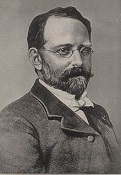
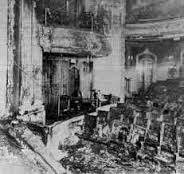


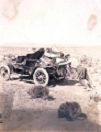








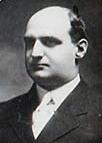


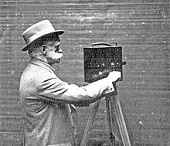
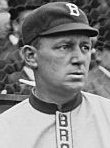











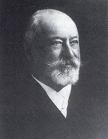



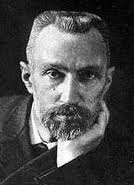

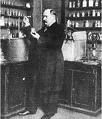

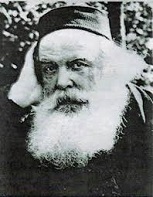
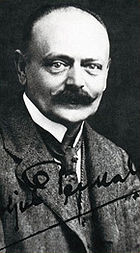
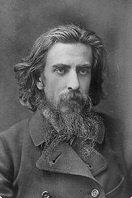
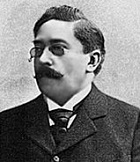
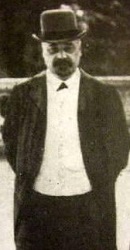








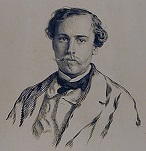
















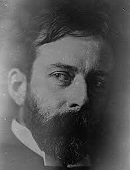








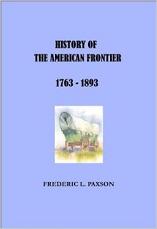



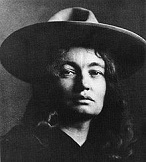
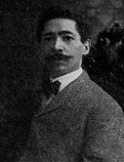
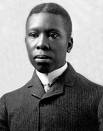
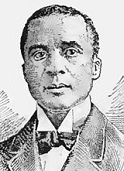
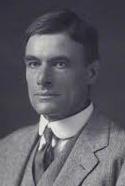



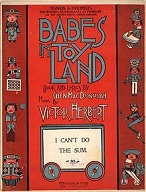
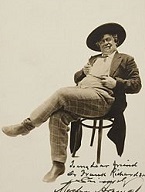
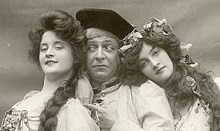















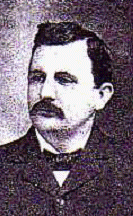

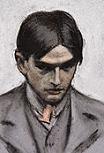
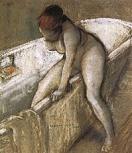




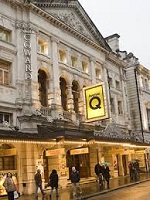
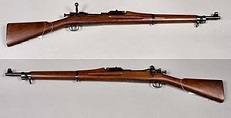



1903 Chinese Year: Rabbit. On Jan. 5 the U.S. Supreme (Fuller) Court rules unanimously in Lone Wolf v. Hitchcock that Congress has plenary power to unilaterally abrogate treaty obligations made between the U.S. and Native Am. tribes, reversing Cherokee Nation v. Ga. (1831) and Worcester v. Georgia (1832), meaning that Great White Father can defraud Indians of land at will. On Jan. 7 San Francisco, Calif.-born Repub. physician George Cooper Pardee (1857-1941) becomes Calif. gov. #21 (until Jan. 9, 1907), becoming the first born in Calif. after statehood and 2nd native-born after Romualdo Pacheco, going on to deal with the bubonic plague outbreak in San Francisco's Chinatown and the 1906 San Francisco earthquake until his bad relationship with the Southern Pacific Railroad keeps him from being renominated. On Jan. 13 the first Korean immigrants to the U.S. arrive in Honolulu. On Jan. 22 the Hay-Herran Treaty between the U.S. and Colombia provides for U.S. acquisition of a 6-mi.-wide canal zone with a renewable 100-year lease for $10M down and $250K/year; on Mar. 14 the U.S. Senate ratifies it; too bad, the Colombian Senate rejects it. On Jan. 20 Midway Island is made into a naval reservation by Pres. Roosevelt, with a radio station operated by the U.S. Navy. The Jan. ed. of McClure's Mag. contains the article The Shame of Minneapolis: The Rescue and Redempton of a City That Was Sold Out, about Repub. mayor Albert Alonzo "Doc" Ames (1842-1911) (a physician), his brother Col. Fred W. Ames (chief of police), and their "big mitt ledger" recording bribes paid by underworld figures, causing Doc to resign and flee the state before being arrested in N.H. in Feb. 1903, then manipulating the system to get off, while Fred is sentenced to several years in state prison. On Feb. 14 the U.S. Dept. of Commerce and Labor is established, based on legislation drafted by atty.-gen. Philander Chase Knox; it is divided into separate depts. of Commerce and Labor in 1913. On Feb. 15 the first Teddy (Teddy's) Bear (named after Pres. Theodore Roosevelt) is designed by Richard Steiff (1877-1939), and introduced in the U.S. by Morris and Rose Michtom, founders of the Ideal Toy Co.; in mid-Feb. the first annual Am. Internat. Toy Fair is held in New York City, with Lionel Trains featured, moving to 200 Fifth Ave. in 1910, which in 1925 is named the Internat. Toy Center; by 2013 it hosts 1.5K cos. from 30 countries in 300K sq. ft. of exhibit space, attended by 9.5K buyers from 5K retail outlets, and 30K other attendees from 92 countries. On Feb. 24 after pro-U.S. candidate gen. Tomas Estrada Palma (1832-1908) (pres. of the Cuban provisional govt. of 1877, who was imprisoned by the Spanish and exiled to the U.S.) is elected as pres. #1 of the Cuban Repub. (until 1906), the Teddy Roosevelt signs the Cuban-Am. Treaty of Relations, acquiring a naval station at Guantanamo ("Gitmo") Bay, becoming the first U.S. military base outside U.S. territory; it is closed in ?. In Feb. Russia and Austria propose a reform program for Macedonia, calling for a Muslim-Christian police force with proportional rep. and foreign officers, and reorg. of the financial system; after it proves inadequate, on Aug. 19 (Feast of the Transfiguration) the Ilinden-Preobrazhenie Uprising against the Ottomans is ruthlessly crushed; on Oct. 2 the Murzsteg Program is approved by the powers, adding Austrian and Russian inspectors and a foreign general, plus further admin. and judicial reforms - Alexander the Great would roll over in his tomb? On Mar. 2 the Martha Washington Hotel in New York City opens, becoming the first hotel exclusively for women - that's not a brothel or nunnery? On Mar. 5 Germany finally receives a final concession to finish the Baghdad Railway (begun 1899); by 1914 it still has large gaps, and takes until 1940 to finish, connecting Constantinople (Istanbul) to Baghdad and the Persian Gulf - just as air travel makes it antiquated? On Mar. 14 Pres. Theodore Roosevelt establishes Pelican Island Nat. Wildlife Refuge along the C Fla. Atlantic coast, becoming the first unit of the U.S. Nat. Wildlife Refuge System. On Apr. 4 Pres. Roosevelt dedicates the Roosevelt Arch at the N entrance to Yellowstone Park by the new train depot, signaling a new way for visitors to enjoy it. On Apr. 6-7 the Kishinev Pogrom in Bessarabia is instigated by Russian officials, causing Jewish poet Chaim Nachman Bialik (1873-1934) to compose the poem The City of Slaughter, chastising the Jews for not defending themselves, and throwing a monkey wrench in the Zionist movement as it splits over a 1902 offer by the British govt. to create a Jewish homeland in Uganda; after another pogrom in 1905 in Kishinev, the Am. Jewish Committee (AJC), dedicated to the advancement of the interests of U.S. Jewry is formed in 1906 by Am. Reform rabbi Judah Leon Magnes (1877-1948), German-born Am. financier Jacob Henry (Jakob Heinrich) Schiff (1847-1920) et al.; Am. Zionist Methodist minister William Eugene Blackstone (1841-1935) personally contacts Theodor Herzl to send him his personal Bible redlining Biblical references to a Jewish restoration in Palestine, which Herzl keeps on his desk for years. On Apr. 13 liberal-turned-conservative Manuel Bonilla (1849-1913) becomes pres. of Honduras (until Feb. 25, 1907), giving the banana cos. generous concessions. On Apr. 20 the Armstrong Nursing Practice Act of 1903 is passed by the New York state assembly, requiring registration of nurses. On May 23 Vt. doctor H. Nelson Jackson and his mechanic Sewell Crocker begin the first cross-country automobile trip in San Francisco, Calif., ending up in New York City on July 26 (63 days, 19 lost waiting for supplies and auto parts) in a $3K red windshield-less Winton brand motor carriage named Vermont; they take on a goggled bulldog named Bud in Idaho, who adds to the turn-of-the-cent. fame game, and win a $50 bet at a cost of $8K. In May after Colo. voters pass an 8-hour workday amendment for miners on Nov. 4 by 72%, but the Colo. legislature refuses to pass enabling legislation, and Gov. Peabody backs big business, the Colo. Labor Wars (end 1904) between gold-silver mineworkers represented by the Western Federation of Miners (WFM) and mine owners begin with a strike in Idaho Springs, followed by strikes in Colorado City, Cripple Creek, Telluride, Denver, and Durango, which are met with the state militia, vigilante groups, and the Pinkerton, Baldwin-Felts, and Thiel detective agencies, becoming one of the most violent episodes in U.S. labor history, hardening the WFM, which circulates a poster reading "Is Colorado in America?", helping launch the Industrial Workers of the World (IWW) (Wobblies" in 1905. On June 11 (a.m.) unpopular king (since 1889) Alexander I Obrenovic (b. 1876) and his wife Queen Draga (b. 1861) are assassinated by the military (Black Hand?), and Peter Karageorgevich, son of prince Alexander Karageorgevich becomes king Peter I Karadordevic (Karageorgevich) "the Liberator" (1844-1921) (until Aug. 16, 1921), Serbia's first constitutional monarch; only Russia (her greatest ally) and Austria (her greatest enemy) send reps to the coronation, with other countries considering Serbia to be a rogue state; On June 12 after splitting with the Armenian Rev. Federation (ARF), the Russian govt. passes an edict bringing all Armenian Church property under govt. control, causing the ARF to send militiamen to guard churches and conduct mass demonstrations. On June 16 Henry Ford (1863-1947) founds the Ford Motor Co., and delivers his first car to a respected Detroit buyer on July 20. On June 20 at the Indiana State Fairgrounds in Indianapolis, Berna Eli "Barney" Oldfield (1878-1946) becomes the first driver to run a 1 mi. track in 1 min. (60 mph); in 1910 he drives a Benz at 133 mph in Daytona Beach, Fla.; the expression "Who do you think you are, Barney Oldfield?" becomes popular. On July 4 the Commercial Pacific Cable Co. opens, connecting San Francisco, Calif., Hawaii, Guam, and Philippines, with Pres. Teddy Roosevelt sending the message "A happy Independence Day to the US, its territories and properties." On July 20 Pope (since 1878) Leo XIII (b. 1810) dies, and on Aug. 4 Giuseppe Melchiorre Sarto ("cape maker") is elected Pope (#257) Pius X (1835-1914), abolishing the custom of removing organs from dead popes before embalming. On July 21 Edward VII and Queen Alexandria make their first visit to Ireland, cutting their 5-day trip short because of the news of the death of Pope Leo XIII; on Apr. 26, 1940 they return for an 8-day visit. On July 30-Aug. 23 (July 17-Aug. 10 Old Style) the Russian Social Dem. Labor Party holds its Second Congress in Brussels, moving to London after the police boot them out on Aug. 6, and splitting into the Mensheviks (Russ. "minority group") (led by Plechanoff) and the Bolsheviks (Russ. "majority group") (led by Lenin and Trotsky), with the Bolsheviks wanting only active members admitted, while the Mensheviks want both passive and active members; the only time the Bolsheviks are in the majority is in the final vote which elects party leadership, but the names stick - because the final vote was rigged by the more active members? In July Russian forces cross the Yalu River and occupy a Korean town, causing Japan to go nonlinear. On Aug. 15 the Tsingtao Brewery (originally Germania Brewery) is founded in Qingdao, Shandong, China by the Anglo-German Brewery Co. Ltd., owned by German settlers in the German base of Hong Kong for German sailors and soldiers, continuing in production after the Japanese take over in WWI, going on to become the #1 brewery in China until the advent of Snow Beer (21.7%), with 15% of the market; the logo is a drawing of the Zhan Qiao Pier on the S shore of Qingdao; the original logo was a Swastika. On Sept. 7 Theodore Roosevelt delivers his Square Deal Speech at the New York State Agricultural Assoc., calling for a you know what for each man. On Sept. 12 the Category 2 (100 mph) New Jersey (Vagabond) Hurricane starts NE of Antigua, making landfall near Atlantic City on Sept. 16 with 80 mph winds, then weakening over Penn. and turning into an extratropical cycline in W N.Y. on Sept. 17, killing 57 and causing $8M damage, becoming the first North Atlantic hurricane to make landfall in N.J. since records began in 1851 (until ?). On Sept. 24 Alfred Deakin (1856-1919) becomes PM #2 of white-is-right Australia (until 1904). On Sept. 27 Wreck of the Old 97 sees a Southern Railway crack express mail train racing to keep up with the schedule jump the tracks and plunge into a ravine, killing nine and injuring seven. In Sept. Hollywood High School at 1521 N. Highland Ave. at the intersection with West Sunset Blvd., opens, going on to graduate movie stars incl. Meredith Baxter, Carol Burnett, Diana Canova, Keith Carradine, Robert Carradine, Marge Champion, Lon Chaney Jr., Warren Christopher, Johnny Crawford, Edward Dmytryk, Linda Evans, Nanette Fabray, Mike Farrell, Laurence Fishburne, Judy Garland, James Garner, Alan Hale Jr., Gloria Grahame, Barbara Hershey, John Huston, Swoosie Kurtz, Alan Ladd, Carole Lombard, Joel McCrea, Ann Miller, Yvette Mimieux, David Nelson, Ricky Nelson, Brandy Norwood, Sarah Jessica Parker, Stefanie Powers, John Ritter, Jason Robards, Ann Robinson, Mickey Rooney, Sharon Tate, Lana Turner, and Tuesday Weld; the mascot is the Sheiks, from the 1921 Rudolph Valentino film "The Sheik". On Oct. 1-13 the Boston Americans (Red Sox) of the AL defeat the Pittsburgh Pirates of the NL 5-3 in the best-of-9 First (1st) World Series of ML baseball; the format is then changed to best-of-7; in Game12 Boston outfielder Patrick Henry "Patsy" Dougherty (1876-1940) becomes the first Boston Red Sox player to hit a homer in the WS, also the first player to hit two homers in a single WS game (Game 1), also becoming the first to hit a leadoff inside-the-park WS homer (until 2015) in Game 6. On Oct. 5 (night) the small town (1K pop.) of Van Meter, Iowa is terrorized by a giant bat-like creature from an old abandoned mine; it reappears for two more nights than is never seen again. On Oct. 10 Emmeline Pankhurst (nee Goulden) (1858-1928) et al. found the Nat. Women's Social and Political Union (WSPU) in Manchester, England, with the slogan "Deeds, not words", going on to stage demonstrations and lobby Parliament until they get what they want, their members becoming the first to be called suffragettes by Charles Hands of the Daily Mail. On Nov. 2 Maggie Lena Walker (1867-1934) opens the St. Luke Penny Savings Bank in Richmond, Va., becoming the first black woman bank pres., which later becomes the Consolidated Bank and Trust Co., the oldest black-owned bank in the U.S. On Nov. 3 after the U.S. militarily supports an uprising in Panama against Colombian rule so that the new govt. will allow the building of the Panama Canal, Panama declares independence from Colombia, and on Nov. 18 the U.S. signs the Hay-Bunau Varilla Treaty, gaining permanent control of a 10-mi.-wide Canal Zone from Colombia for a payment of $10M, plus $250K a year starting in 1913, in return for a U.S. guarantee of the independence of the new Repub. of Panama, which is now considered part of Central rather than South Am., with French chief engineer Philippe Jean Bunau-Varilla (1859-1940) as pres. #1. On Nov. 9 U.S. rep. (R-Ill.) Joseph Gurney "Uncle Joe" Cannon (1836-1926) becomes House Speaker (until Mar. 4, 1911), becoming the most dominant speaker ever, calling Pres. Roosevelt a tyrant "with no more respect for the Constitution than a tomcat has for a marriage license." On Nov. 20 42-y.-o. Mo.-born hired gunman and stock dick Tom Horn (b. 1860) is hanged in Cheyenne, Wyo. for the 1901 murder of 14-y.-o. Willie Nickell based on a controversial confession. On Nov. 22 new old Pope Pius X issues the bull, er, bull Tra le Sollecitudini (Amidst the Cares), banning castratos and requiring boys to sing soprano and contraltro parts in the Church, while banning women from singing with men, and reaffirming the Gregorian chant over Renaissance polyphony, also banning the piano and percussion instruments. On Nov. 23 Enrico Caruso makes his U.S. debut at the Metropolitan Opera in New York, appearing as the Duke of Mantua in "Rigoletto", going on to become the chief attraction and #1 dramatic tenor until his last perf. in 1920. In Nov. Britain and Russia begin conversations over Persia, which break down when Russia refuses to agree to a partition into spheres of influence. On Dec. 9 the Norwegian parliament votes unanimously for female suffrage - guess what they all got that night? Here kitty kitty kitty? 12 sec. 120 feet? On Dec. 17 (10:35 a.m.) the Wright Brothers from Dayton, Ohio, incl. Wilbur Wright (1867-1912) and Orville Wright (1871-1948) make the first powered human flight of 120 ft. in 12 (13?) sec. on 90-ft. Kill Devil Hill near Kitty Hawk, N.C. on the Outer Banks (chosen for sand dunes and high winds) in Wright Flyer I, which is made of muslin, wood, and steel, and weighs 605 lb.; the wingspan of a Boeing 747 jumbo jet is 195.7 ft.; prior to this they achieved a 59-ft. flight in Bird of Prey; Orville won the 50-cent coin toss with heads and got to do the flying, after which they take turns; the pilot must crawl between the wings and fly in a prone position while the other opens the throttle of their homemade 12 hp. engine, and they make four flights at low altitudes, taking until 1905 to master controlled flight; later the same day Wilbur ups the record to 59 sec., covering 852 ft.; they had been coming to Kitty Hawk every year since 1900 testing their gliders; in 1910 the Airplane Waltz is created as a novelty; meanwhile earlier in the year rivals Samuel Pierpont Langley (1834-1906) and Charles Manly (1876-1927) fail in two trials with their piloted plane, and run out of funding; later it is discovered that the plane worked, and was given inadequate room for takeoff - how could they sleep after that? On Dec. 30 (3:15 p.m.) a fire at the recently opened Iroquois Theatre in Chicago, Ill. kills 602+ and injures 250, becoming the worst theater fire to date in the U.S. (until ?); the play Mr. Bluebeard is playing that night. In Dec. the Prix Goncourt, an annual prize given to "the best and most imaginative prose work of the year" in France begins to be awarded in honor of Jules Alfred Huot de Goncourt (1830-70) after a bequest by his brother Edmond de Goncourt (1822-96); the jury meets at the Drouant Restaurant in Paris to make their decision, and never gives it knowingly to the same author twice, although they goof up in 1975, giving it to Emile Ajar, who turns out to be Romain Gary (1914-80), who already got it in 1956 - I'll take it and run with it? Count Istvan Tisza (1861-1918) becomes PM of Hungary (until 1905). Italian home secy. (since 1901) and former PM (1892-3) Giovanni Giolitti becomes PM, being reelected 3x more through 1921. Former interim pres. (1899) Jose Pablo Torcuato Batlle y Ordonez (Ordóńez) (1856-1929) of the Colorado Party becomes pres. of Uruguay (until 1907). King Edward VII visits Paris, then French Pres. Emile Loubet visits London, leading to the Entente Cordial next year. Edward VII is crowned king-emperor in Delhi in a Coronation Durbar. The Transkeian Territories in SE South Africa (AKA Kaffraria) are formed; 60K Chinese laborers are imported between this year and 1907 to work in the Rand mines, undercutting African workers, but luckily for them the Chinese balk at the working conditions. The Trans-Siberian Railway reaches the Pacific Ocean. The Alaskan frontier is settled. Bolivia cedes a piece of its rubber-rich Acre province to Brazil. The scattered French possessions in the South Pacific (120 islands, 95 inhabited, incl. the Society Islands, the Marquesas Islands, et al.) are organized into the single colony of French Polynesia. The admins. of Mauritius and the Seychelles are separated. William Rufus Day (1849-1923) (asst. secy. of state in 1897-8 under his buddy McKinley) is appointed on Mar. 2 as the 58th U.S. Supreme Court (until Nov. 13, 1922) to fill the vacancy left by George Shiras Jr. (1892-1903), leaving the court at nine members. The Kitchener Reforms in the Indian Army are enacted new Indian CIC (1902-9) Lord Kitchener, unifying the three armies of the presidencies, the Punjab Frontier Force, the Hyderabad Contingent et al. into the Indian Army, which with the British Army in India comprises the Army of India, with the primary role being defense of the North-West Frontier, and the secondary role being internal security. After mystic Russian priest Sergius (Sergei) Alexandrovich Nilus (1862-1929) allegedly writes and presents it to the tsar, who declares it a fabrication and banishes him from the court, the Black Hundreds newspaper Znamya, owned by far-right anti-Semite Pavel Alekandrovich Krushevan (1860-1909) pub. the anon. Protocols of the Learned Elders of Zion, detailing an alleged Zionist meeting in Basle in 1897 where plans were made by Jews and Freemasons to subvert and destroy Christendom and rule Da World, starting with the overthrow of the holy Russian govt.; in 1905 it is repub. as an appendix to a book by mystical philosopher Vladimir Sergeyevich Solovyov (1853-1900), and it finally catches on as proved by 600 Okhrana-inspired Jewish pogroms throughout Russia that kill thousands in an effort to divert worker and peasant discontent away from the shaky govt.; although the Protocols are a total fabrication, they become a worldwide bestseller with anti-Semites until ?, and a favorite of Adolf Hitler; in 1921 the London Times claims them to be authentic before recanting; the first Arabic trans. appears in 1925, becoming a bestseller after the 1948 establishment of the State of Israel (until ?); the real author is Paris-based Okhrana agent Matvei (Mathieu) Vasilyevich Golovinski (1865-1920)?; meanwhile the Sixth Zionist Congress declines an offer for Jewish settlement in E Africa, causing Israel Zangwill and his English followers to walk out. Cotopaxi Volcano in Ecuador erupts again. Hans Meyer of Germany climbs and explores 20,565-ft. Mt. Chimborazo, the highest mountain in Ecuador, location of the spot on the Earth' s surface farthest from the center (3,968 mi. or 6,384.4 km). The first climbers attempt 20,320-ft. Mt. McKinley in Alaska, highest mountain in North Am.; by 2005 over 30K climbers have attempted it (95 deaths), incl. 1,340 in 2005, causing a limit of 1.5K a year to be set beginning in 2007. Reuben Swinburne Clymer (1878-1966) founds the Rosicrucian Brotherhood in Quakertown, Penn., going on to become head of the Fraternitas Rosae Crucis (allegedly founded in Germany in 1614) in 1922. The Internat. Brotherhood of Teamsters is organized in Niagara Falls, N.Y., with Daniel Joseph Tobin (1875-1955) as pres. in 1907-52. J.P. (John Pierpont) Morgan (1837-1913) founds the Internat. Mercantile Marine Co., which goes on to control the White Star Line. The Royal Naval College in Dartmouth, Devon, SW England is founded. The Deutsches Museum opens in Munich. The Elihu, secret society, named after founder Elihu Yale is founded at Yale U. Prince Albert I of Monaco founds the Internat. Peace Inst. Douglas MacArthur, son of WWI Medal of Honor winner Arthur MacArthur graduates from West Point with highest honors. Sherlock Holmes retires to the Sussex Downs to keep bees. The first motor car taxis appear in London. The Grand Trunk Railway in Canada from Moncton to Winnipeg to Edmonton, through the Yellowhead Pass to the Pacific is begun. Joseph Pulitzer donates $1M to Columbia U. to found the Pulitzer School of Journalism, which opens in 1912. Chocolate manufacturer Milton Snavely Hershey begins building a plant in his hometown of Derry Church, Penn. (14 mi. E of Harrisburg), which later becomes Hershey, Penn. (AKA Chocolatetown USA), "the Sweetest Place on Earth". Werther's Original (Werthers Echte) caramel-flavored hard candy is introduced by August Storck KG of Werther, Westphalia, Germany; in the 1990s it is marketed as Werther's Original. The first box of Crayola brand crayons hits the stores, costing 5 cents and containing eight different colors. Mark Twain begins endorsing ads for Conklin's Self-Filling Pen, calling it a "profanity saver" because it doesn't roll off his desk. Austrian film dir. Joseph Delmont (Josef Pollak) (1873-1935) begins making short Western films for Vitagraph, returning to Vienna in 1910 and going on to pioneer the use of wild beasts in films. Canadian-born James Lewis Kraft (1875-1953) begins a wholesale cheese business in Chicago, Ill. that grows into Kraft Foods. Britain enacts a 20 mph speed limit for motor cars. Glass windshields begin to appear on automobiles. Dr. Scholl's Foot Easer begins to be marketed by William Mathias Scholl (1882-1968) of Ill. - the future, my boy, is in feet? Spanish painter Pablo Picasso (1881-1973) moves to Paris, and begins his rise to worldwide fame. English brain man Herbert George Wells (1866-1946) joins the Fabian Society (until 1906), remaining a dedicated non-Marxist Socialist reformer until his death in 1946. The first nudist colony er, opens in Germany. The Scripps Inst. of Oceanography is founded in San Diego, Calif. Steeplechase Park on Coney Island, built by George C. Tilyou opens (until 1964), along with Luna Park in Cleveland, Ohio, built by Frederick Thompson and Elmer S. Dundy (closes in 1929), fixing Cony Island's rep as an amusement park. The Metropolitan Water Board is founded in London to govern nine private water cos. supplying the city. The Jewish Consumptive Relief Society is founded in Mile-High Denver, Colo. for TB sufferers. Triscuit brand baked whole wheat snack crackers are introduced by the Shredded Wheat Co. in Niagara Falls, N.Y., with the slogan "Baked by Electricity", the name suggesting that they're baked 3x. The first Harley-Davidson motorcycles are marketed by William Sylvester "Bill" Harley (1880-1943) and Arthur Walter Davidson Sr. (1881-1950) of Milwaukee, Wisc., with 3 hp; only three are produced, followed by 11 in 1905, and 154 in 1908; the original model design calls for quiet operation? Vauxhall Motors Ltd. (Vauxhall Iron Works until 1907) of Luton, Bedfordshire, England (founded 1857 in London to manufacture marine engines) begins manufacturing automobiles, producing 70 5 hp 1-cylinder cars with a tiller, two forward gears and no reverse gear, adding a steering wheel and reverse gear in 1904; in Oct. 1908 after the Y-Type Y1 race car wins the 1908 RAC and Scottish 2000 Mile Reliability Trials, they begin producing the 20 hp Vauxhall A-Type (until 1914), which on Oct. 26, 1910 becomes the first 20 hp car to exceed 100 mph; in 1913-22 they produce the Vauxhall 30-98 4-seat open touring car (until ?), becoming the last of the Edwardians and "the first and perhaps the best British sports car" (Automobile Quarterly); the co. is acquired by GM in 1925. Florence, Ala.-born William Christopher "W.C." Handy (1873-1958) first hears the blues from a raggedy black man in Tutwiler, Miss. Sports: On Jan. 3-Feb. 28 the 1903 Canadian Amateur Hockey League (CAHL) Season sees the Ottawa Hockey Club and Montreal Victories tie with 6-2 records, after which Ottawa defeats the Victorias in 2 games by 9-1 on Mar. 7-10 to win their first Stanley Cup, with each team member receiving a silver nugget from team dir. Bob Shillington, launching the Silver Seven Era, with the Ottowa team becoming known as the Silver Seven; on Dec. 30-Jan. 4 a CAHL Stanley Cup challenge series between the Ottawa Silver Seven and the Winnipeg Rowing Club becomes the first with goal lines drawn across the ice from post to post. The early 20th century has its own version of crowd-pleasing Spiderman? In Jan. 16-hand 1.2K lb. harness racing star horse Dan Patch (1897-1916) arrives at Union Depot in Minneapolis, Minn., then parades through downtown in front of 5K spectators, accompanied by new owner Marion Willis Savage (1859-1916), who bought him for $60K last Dec. and houses him in his magnificent Taj Stable; in his 1901 rookie year he won a dozen races with ease, and by the middle of the 1902 season gamblers refused bets on his races; after Star Pointer beats him to the 2:00 mi., he runs 1:59.5 in the fall, then matches the record with 1:59.25 in Reading, Mass. a few weeks later; in 1903 he beats the 2:00 mi. 5x, and sets a record at 1:56.25 in Oct. in Memphis, Tenn.; in 1904 he gets an impacted bowel, gaining nat. headlines, then recovers to run 1:56:0 in Memphis; in 1905 he sets a record of 1:55.25 in Lexington, Ky., which stands until 1938; in 1906 he sets an unofficial record of 1:55:0 at the Minn. State Fair; he retires in 1910 after 56 straight wins, then dies suddenly on July 11, 1916, and Savage dies the next day from a blood clot in the brain after receiving the news in a hospital where he was recovering from minor surgery. On May 31-July 5 after Marquis Jules Albert de Dion (1846-1946) founds the newspaper L'Auto to compete with Pierre Giffard's leading sports newspaper Le Velo (1892-1904) because of a feud over the Dreyfus Affair, and needs to boost circ. with a publicity stunt, the Tour de France cycling race is organized by French cyclist and journalist Henri Desgrange (1865-1940), ed. of L'Auto, who models the maillot jaune after Grenoble; the winner is Maurice-Francois Garin (1871-1957), who finishes the six stages in 93h 33m 14s at an avg. speed of 15.96 mph (25.68 km/h). On July 17 English Thoroughbreds Ard Patrick (1899-1923) (winner of the 1902 Epsom Derby), Sceptre (1899-1926), and Rock Sand (1900-14) have it out at the Epsom Stakes; Ard Patrick edges out Sceptre by a neck. On Sept. 11 the first auto race is held at the Milwaukee Mile in West Allis, Wisc.; William Jones of Chicago wins the 5-lap race, setting a track record of a 72 sec. lap (50 mph); Barney Oldfield sets the track record in 1905, and again in 1910 (70.159 mph) in his Blitzen Benz; is founded Ralph De Palma wins the first Milwaukee Mile Championship Car Race in his Golden Submarine. E.D. Peifer of Chicago, Ill. invents a handicap method of scoring for bowling. 26-y.-o. pitcher Mordecai "Three Fingers" Brown (1876-1948) joins ML baseball, playing for the Chicago Cubs from 1904-12, and becoming one of the top two pitchers in the NL with rival Christopher "Christy" "Matty" Mathewson (1880-1925), "the Christian Gentleman" of the New York Giants (1900-16); Brown's mangled right hand is missing most of the index finger and has a misset middle finger, letting him put unusual spin on the ball. On Dec. 1 the Montreal Wanderers AKA the Redbands amateur ice hockey team is founded in Montreal, Quebec, Canada by James F. Strachan (1876-1939), playing their home games in the Montreal Arena until Nov. 1909. when it is sold to P.J. Doran; it folds in 1918 after the Montreal Arena burns down, resuming operations in 1924 under the name Montreal Maroons (Montreal Prof. Hockey Club), backed by the English-speaking community of Montreal against French-speaking favorite Montreal Canadiens, playing their home games in the new $1.5M Montreal Forum (opened Nov. 29, 1924); they suspend play in 1938, and their franchise is canceled in 1947. On Dec. 5 the Federal Amateur Hockey League (FAHL) is founded in Montreal for teams rejected by the rival Canadian Amateur Hockey League (CAHL), incl. the Montreal Wanderers, Ottawa Capitals, Montreal Le National, and Cornwall Hockey Club; in 1904 Montreal Le National jumps to the CAHL, while the CAHL Stanley Cup champion Ottawa Hockey Club jumps to the FAHL, defeating the Montreal Wanderers on Mar. 2 to become FAHL champion; too bad, the on-ice death of Owen "Bud" McCourt (1884-1907) of Cornwall on Mar. 6, 1907 after a brawl causes the 1906-7 season to be suspended, after which the FAHL goes pro in 1908 under the name Federal Hockey League (FHL) , signing the Renfrew Creamery Kings to bring it back to four teams, pissing-off the Ottawa Victorias, who refuse to play them, causing the 1908-9 sea The U. of Ky. Wildcats men's basketball team is founded, with head coach #1 W.W.H. Mustaine; they go 1-2 for their first season after defeating Lexington YMCA and losing to Transylvania U.; they go on to become the winningest NCAA Div. 1 basketball program in NCAA history, with retired jerseys incl. Cliff Hagen (#6), Pat Riley (#42), Dan Issel (#44), and Bill Spivey (#77). A new rule is adopted in basketball prohibiting a player who is dribbling from shooting the ball at a basket; dropped in 1915. Cincinnati Reds slugger (since 1899) Samuel Earl "Wahoo Sam" Crawford (1880-1968) (known for a record 12 inside-the-park homers) signs with the Detroit Tigers (until 1917), going on to become the mentor and later rival of slugger Ty Cobb. The English Bowling Assoc. for lawn bowling is founded by cricketer W.G. Grace, who becomes pres. #1; on Jan. 1, 2008 it merges with the English Women's Bowling Assoc. to become Bowls England. Architecture: On Oct. 12 the Lyric Theatre (cap. 1.3K) at 213 West 42nd St. and 214-26 West 43rd St. opens (complete with two formal entrances), with Richard Mansfield's production of Old Heidelberg, going on to produce several Shakespeare plays; in 1906 Sarah Bernhardt appears there; in 1918 it produces Sigmund Romberg's 1917 musical Maytime; on Dec. 8, 1925 the Marx Brothers' musical The Cocoanuts, with books by George S. Kaufman and lyrics by Irving Berlin debuts there (276 perf.) (filmed in 1929); on Feb. 2, 1927 Florenz Ziegfeld debuts his musical Rio Rita (494 perf.),followed on Mar. 13, 1928 by The Three Musketeers (318 perf.); on Nov. 27, 1929 Cole Porter's musical Fifty Million Frenchmen debuts there (254 perf.); in 1934 it is converted into a movie theater; in 1992 it closes, and in 1996-8 it is combined with the former Apollo Theatre to become the Ford Center for the Performing Arts (cap. 1,938), later the Foxwoods Theatre, the Hilton Theatre, and the Lyric Theatre. Liverpool Cathedral, designed by G.G. Scott is begun. Oscar Hammerstein I builds his second Manhattan Opera House in New York City; the first one was built in 1893. The New Theatre on St. Martin's Lane in Westminster, West End, London (cap. 872) opens, designed by W.G.R. Sprague; in 1973 it is renamed the Albery Theatre; in 1920 Noel Coward appears in his own play "I'll Leave It To You", the first West End production of his play; in 2006 it is renamed the Noel Coward Theatre, opening on June 1 with the London debut of "Avenue Q". The Art Noveau Municipal House in Prague, Czech. is begun (finished 1911), containing Smetana Hall, which becomes the home of the Prague Symphony Orchestra. The Orpheum Theater at 1513 Welton St. in downtown Denver, Colo. opens as part of the Orpheum Circuit; in 1930 it is demolished and replaced with a new one, which is remodeled in 1955, closes in 1964, and is demolished in 1967. The Taj Mahal Hotel in Bombay (Mumbai), India opens; it was accidentally built backward, with guest rooms facing the harbor, which turns out to be a great idea; only whites are allowed. Nobel Prizes: Peace: Sir William Randal Cremer (1828-1908) (U.K.); Lit.: Bjornstjerne Martinius Bjornson (1832-1910) (Norway); Physics: Marie Sklodowska Curie (1867-1934) and Pierre Curie (1859-1906) and Antoine Henri Becquerel (1852-1908) (France) [radioactivity]; Chem.: Svante August Arrhenius (1859-1927) (Sweden) [electrochemistry]; Med.: Niels Ryberg Finsen (1860-1904) (Denmark) [phototherapy]; Marie Curie becomes the first female guest at the Nobel banquet at the Stockholm Stadhus, which in 1913-36 always serves turtle soup; she also becomes the first female to be granted a doctorate in France. Inventions: On Mar. 24 the first patent for the tea bag is granted to R.G. Lawson and M. McLaren in the U.S., made of open-mesh woven fabric and cotton thread; in June 1908 coffee-tea importer Thomas Sullivan of New York City begins shipping tea in silk pouches, which customers put directly in hot water, after which he switches to gauze. On June 19 after Pres. Teddy Roosevelt gives the U.S. Army a kick in the pants, the bolt-action M1903 Springfield .306-.06 Rifle is adopted, seeing service in WWI and not replaced until the semi-automatic M1 Garand in 1937, and even then, only partially, and proves so superior that it is used during the Korean War. Mary Anderson patents the first windshield wiper in Nov.; it uses a handle inside the car; it takes until 1916 before they become std. equipment on U.S. cars. French chemist Edouard Benedictus invents Laminated Safety Glass after a glass flask coated with cellulose nitrate is dropped; it is first used in gas masks during WWI, and widespread use in autos comes after the war, using an interlayer of polyvinyl butyral (PVB). After his electromagnetic cannon of 1901 proves a dud, Norwegian physicist Kristian Olaf Birkeland (1867-1917) hooks up with Norwegian engineer Samuel "Sam" Eyde (1866-1940) and uses it as the basis of a machine for producing artificial fertilizer; too bad, he is passed over for a Nobel Prize because the device makes money? Willem Einthoven (1860-1927) of Holland invents the heavy-magnet Electrocardiograph, and takes the first electrocardiogram (ECG) (EKG), winning him the 1924 Nobel Med. Prize; he invents Einthoven's Triangle on the chest as the points to attach the leads, along with the PQRST terminology for the various deflections. The Oxyacetylene torch is invented in France by Edmond Fouche and Charles Picard, revolutionizing welding. David T. Kenney (1866-1922) of New York City receives his first patent for a vacuum cleaner, installing the first one in the Henry Clay Frick Bldg. in Pittsburgh, Penn. in 1902, with steam pipes reaching throughout the structure; in 1906 he claims to have installed electric vacuum cleaning systems in the White House and New York Times Bldg.; he goes on to receive eight more patents by 1913, dominating the vacuum cleaning industry until the 1920s after the Vacuum Cleaner Manufacturers' Assoc. is formed in 1919 by licensees of his patents, esp. the one covering the opening in the nozzle that seals contact with the carpet. Croatian inventor Slavoljub Eduard Penkala (1871-1922) patents the rubber hot water bottle, which calls the "Termofor"; previously they were made of metal or porcelain; in 1906 he invents an improved mechanical pencil, which he calls the automatic pencil, followed in 1907 by the first solid ink fountain pen, founding the Penkala-Moster Co. with entrepreneur Edmund Moster, which becomes one of the world's biggest pen-pencil factories. A team led by Ludwig Roselius (1847-1943) of Bremen, Germany invents the first commercially successful decaffeination process; in 1905-6 it is introduced in Germany under the name Kaffee HAG (Handeis-Aktien-Gesellschaft) (Coffee Trading Public Co.), and in France under the name Sanka (Fr. "sans caffeine" = without caffeine); in 1909-10 it is introduced to the U.S. under the name Dekafa (Dekofa); after WWI the Allies confiscate the co. and sell it to a U.S. co. along with the trademark rights, after which it is introduced under the Sanka brand name in 1923. The Dolceola zither with a keyboard is introduced by the Toledo Symphony Co. (until 1907), becoming a favorite with Lead Belly. Karl (Carl) Auer von Welsbach (1858-1929) of Germany patents Lighter Flints (Ferrocerium), composed of a 70-30 alloy of cerium and iron that give off sparks when struck, becoming popular for cigarette lighters. Richard Adolf Zsigmondy (1865-1929) invents the Ultramicroscope for the illumination of smoke particles, fog droplets, etc., winning him the 1925 Nobel Chem. Prize. Science: German physician Carl Joseph Gauss (1875-1957) develops the Freiburg Method of Twilight Sleep using a combo of morphine and scopolamine as a surgical anesthesia to replace chloroform during childbirth. After supervising the rebuilding of the Great Hypostyle Hall in Karnak (which lost 11 columns in 1899 in a chain reaction), and discovering the colossal pink granite statue of Second Intermediate Period Pharaoh Senusret IV Seneferibre in Karnak in 1801, French Egyptologist Georges Albert Legrain (1865-1917) discovers a treasure trove of 800 stone statues and 17K bronzes in the NW courtyard of the Temple of Amun in Karnak, becoming the biggest find (until ?); most end up in the Cairo Museum. Am. horticulturist Hebert John Webber (1865-1946) coins the word "clone" to mean a colony of organisms derived via asexual reproduction from a single progenitor. Blondlots have more fun? French physicist Rene Prosper Blondlot (1849-1930) of the U. of Nancy claims to discover N-Rays, a new form of radiation that causes changes in brightness of electric sparks in spark gaps; by 1905 the idea is rejected by the scientific community after debunking by Am. physicist Robert Williams Wood (1868-1955). Hungarian physicist Philipp Lenard (1862-1947) observes that swift cathode rays can pass through metal sheets, proving that a large portion of the atom consists of empty space, winning him the 1905 Nobel Physics Prize. Barbiturates (derivatives of barbituric acid) are introduced into medicine in Germany. Dr. Moises Santiago Bertoni discovers the Stevia rebaudiana natural sweetener herb in Paraguay. Nonfiction: Thomas Bailey Aldrich (1836-1907), Ponkapog Papers (essays). Enoch Arnold Bennett (1867-1931), How to Become an Author. Wilhelm Bolsche, Das Liebesleben in der Natur. Otokar Brezina (1868-1929), Music of the Founts (essays). Oscar Browning (1837-1923), Wars of the Century and the Development of Military Science; Impressions of Indian Travel. Eduard Buchner (1860-1917) and Hans Buchner (1850-1902), Die Zymasegahrung. Sir Edmund Kerchever Chambers (1866-1954), The Mediaevel Stage (2 vols.) Agnes Clerke, Problems in Astrophysics. Bishop Mandell Creighton (1843-1901), University and Other Sermons (posth.). Michael Davitt (1846-1906), Within the Pale: The True Story of Anti-Semitic Persecutions in Russia; based on personal travels. W.E.B. Du Bois (1868-1963), The Souls of Black Folk; criticizes Booker T. Washington (1856-1915) for pushing industrial over higher ed. and for not openly striving to achieve civil rights; "For the problem of the Twentieth Century is the problem of the color-line." Richard T. Ely (1854-1943), Studies in the Evolution of Industrial Society. Havelock Ellis (1859-1939), The Analysis of the Sexual Impulse, Love and Pain, the Sexual Impulse in Women; vol. 3 of 6 in "Studies in the Psychology of Sex". Georges Auguste Escoffier (1846-1935), Le Guide Culinaire (The Culinary Guide); 5K recipes; codifies, streamlines, and simplifies modern French haute cuisine, incl. the five mother sauces; tr. into English in 1907. Joseph Favre (1849-1903), Dictionnaire Universel de Cuisine Practique: Encyclopédie Illustrée d'Hygične Alimentaire (posth.). Guglielmo Ferrero (1871-1942), Grandezza e Decadenze di Roma (The Greatness and Decline of Rome) (6 vols.) (1903-8). Leo Frobenius (1873-1938), Weltgeschichte des Krieges. James Anthony Froude (1818-94), My Relations with Carlyle (posth.); written in 1887 and pub. by his daughters; claims that Thomas Carlyle was impotent and never consummated his marriage. Samuel Rawson Gardiner (1829-1902), History of the Commonwealth and Protectorate, 1649-1660 (4 vols.) (posth.). Johannes Haller (1865-1947), The Papacy and Church Reform. Gilbert Hanotaux (1853-1944), Histoire de la France Contemporaine, 1871-1900 (1903-8). Albert Bushnell Hart (1854-1943) (ed.), The American Nation (28 vols.) (1903-18). Pierre Janet (1859-1947), Obsessions and Psychasthenia; develops a grand model of the mind in terms of levels of energy, efficiency, and social competence, and defining the Obsessive-Compulsive Disorder (OCD). Alvin Saunders Johnson (1874-), Rent in Modern Economic Theory. David Starr Jordan (1851-1931), The Call of the Twentieth Century. John Joseph Keane (1839-1918), Onward and Upward. Helen Adams Keller (1880-1968), The Story of My Life (autobio.); dedicated to Alexander Graham Bell, who introduced her to Anne Sullivan (1866-1936). George Lyman Kittredge (1860-1941), Chaucer and Some of His Friends; the "marriage group" in the Canterbury Tales; makes the study of Chaucer a std. part of the college English curriculum. Arthur and Gorlagon. Stanley Lane-Poole (1854-1931), Saladin and the Fall of the Kingdom of Jerusalem. Andrew Lang (1844-1912), The Valet's Tragedy; Social Origins; of totemism. Daniel De Leon (1852-1914), Two Pages from Roman History. John Bach McMaster (1852-1932), The Acquisition of Political, Social, and Industrial Rights of Man in America. George Edward Moore (1873-1958), Principia Ethica. Frederic Logan Paxson (1877-1948), The Independence of the South American Republics: A Study in Recognition and Foreign Policy (first book). Henri Poincare (1854-1912), Science and Hypothesis. Jacob August Riis (1849-1914), The Peril and the Preservation of the Home. George Saintsbury (1845-1933), Loci Critici: Passages Illustrative of Critical Theory and Practice. F.C.S. Schiller (1864-1937), Humanism.; 2nd ed. 1912. Sir Leslie Stephen (1832-1904), English Literature and Society in the Eighteenth Century (Ford Lectures). Lorado Taft (1860-1936), The History of American Sculpture; first-ever; the 1925 rev. version becomes a std. reference until Wayne Craven's "Sculpture in America" (1968). J.J. Thomson (1856-1940), The Conduction of Electricity through Gases. Mrs. Arnold Toynbee (1889-1975) (ed.), Letters of Horace Walpole (16 vols.) (1903-5). Albert Verwey (1865-1937), Het Leven van Potgieter. Adolphus William Ward (1837-1924), The Electress Sophia and the Hanoverian Succession; 2nd ed. 1909. Theodore Watts-Dunton (1832-1914), The Renascence of Wonder; the Romantic movement. Otto Weininger (1880-1903), Sex and Character (Geschlecht und Charakter) (June); claims that all people have elements of both masculinity and femininity, and there is a deeper psychical realm beyond sexuality and gender which can liberate mankind, er, humanity from original sin; homosexuals are "intermediate sexual forms"; when it doesn't make the big splash he thought it should, he commits suicide, after it which it begins to sell and gains true believers. Walter Weyl (1873-1919), Current Labor Problems. Helen Thompson Woolley (1874-1947), The Mental Traits of Sex: An Experimental Investigation of the Normal Mind in Men and Women; the first dissertation on psychological sex differences, finding that men performed better on most tests of motor ability, while women tended to do better on some of the coordination tasks; men showed more creativity, while women showed more acute senses and better memory performance; she found no evidence that women are influenced by emotion more in life than men, and in general found more similarities than differences. William Butler Yeats (1839-1922), Ideas of Good and Evil; "I believe... that our memories are part of one great memory, the memory of Nature herself". Louis Zangwill (1869-1938), One's Womenkind. Art: Lawrence Alma-Tadema (1836-1912), Silver-favorites. Jozef Israels (1824-1911), A Jewish Wedding - under the chuppah? Gusatav Klimt (1862-1918), Philosophy, Medicine and Jurisprudence (painted ceiling at Vienna U.). Maximilien Luce (1858-1941), Une Rue a Paris en Mai 1871 ou La Commune (A Paris Street in the May 1871 Commune) (1903-5). Pablo Picasso (1881-1973), The Mackerel, La Vie, Phallus and Nude (drawings); Portrait of Angel Fernandez de Soto; an artist he shares a studio with, showing his haunting face with a smoke cloud hovering over him. Sir Edward Poynter (1867-1919), Cave of the Storm Nymphs. Odilon Redon (1840-1916), The Flower Clouds. George Bernard Shaw (1856-1950), Maxims for Revolutionists; "He who can, does. He who cannot, teaches." Everett Shinn (1876-1953), Girl in a Bathtub; Revue; Rehearsal of the Ballet. Joaquin Sorolla y Bastida (1863-1923), Children on the Seashore. P.W. Steer, Richmond Castle. Maurice de Vlaminck (1876-1958), Portrait of Guillaume Apollinaire (1880-1918). Movies: Cecil Hepworth's Alice in Wonderland (Oct. 17) is the first film adaptation of the Lewis Carroll book, featuring special effects incl. Alice shrinking in the Hall of Many Doors, getting stuck in the White Rabbit's house, and reaching for help through a window. Frank Mottershaw's A Daring Daylight Burglary (Apr.), followed in Sept. by "The Robbery of the Mail Coach" pioneers the chase movie. Wallace McCutcheon's The Dude and the Burglars (Aug.) (Am. Mutoscope and Biograph) is about a bashful young man who foils two burglars and rescues his lady. A.E. Weed's The Flatiron Building on a Windy Day (Nov. 2) has its premiere, becoming a big hit by Crescent Films; "It is at this [N] corner where one can get a good idea of the prevailing types in hosiery and lingerie." Edwin S. Porter's Life of an American Fireman (Jan.) (Edison Studios) features a continuous narrative over seven scenes in nine shots with dissolves. Edwin S. Porter's 13-min. $150 The Great Train Robbery (Dec. 1) (Edison Studios) (filmed in Dove, N.J.) stars Pine Bluff, Ark.-born Gilbert M. "Broncho Billy" Anderson (Maxwell Henry Aronson) (1880-1971), becoming the first movie with a plot, and the longest film to date, changing the film industry with the introduction of multiple plot lines, editing and cross-cutting, the chase scene, and the Western, becoming the #1 attraction in the first nickelodeon in 1905. Edison Studio's Subub Surprises the Burglar (Aug. 11) has its premiere, showing a dude in a fold-up Murphy bed being surprised by a burglar, then surprising him when it is revealed to be armored and locked and loaded. Music: A good year for the saxophone? Eugen D'Albert (1864-1932), Tiefland (opera) (Prague); Wie Wir de Natur Erleben, Op. 24. Hugo Alfven (1872-1960), Swedish Rhapsody No. 1 (Midsummer Vigil); his biggest hit, later made famous in the U.S. by Chet Atkins (1957). Sir Arnold Bax (1883-1953), The Grand Match. Amy Marcy Beach (1867-1944), Scottish Legend, Op. 54. Anton Bruckner (1824-96), Symphony No. 9 in C ("The Great") (posth.) (Vienna). Ferruccio Busoni (1866-1924), Concerto for Piano and Orchestra Ernest Chausson (1855-99), Le Roi Arthur, Op. 23 (King Arthur) (posth.) (1886-95) (Nov. 30) (La Monnaie, Brussels). Claude Debussy (1862-1918), Estampes; Rhapsody for Saxophone and Orchestra; La Mer: Three Symphonic Sketches for Orchestra (The Sea) (1903-5); composed while on holiday at at the English Channel coast in Eastbourne; debut on Oct. 15, 1905 in Paris. Frederick Delius (1862-1934), Sea Drift; based on the poetry of Walt Whitman. Sir Edward Elgar (1857-1934), The Apostles (oratorio) (Birmingham). Edmund Eysler, Bruder Straubinger (operetta) (Vienna). Harry Lawrence Freeman, An African Kraal (opera). Victor Herbert (1859-1924) and Glen MacDonough (1870-1924), Babes in Toyland (operetta) (Grand Opera House, Chicago) (June 17) (Majestic Theatre, New York) (Oct. 13) (192 perf.); an attempt to cash in on "The Wizard of Oz", incl. playing in the same theater (Majestic); filmed in 1934 starring Laurel and Hardy, in 1939 starring Judy Garland and Mickey Rooney, and in 1961 by Walt Disney, and in 1997 by MGM (animated); incl. Babes in Arms, March of the Toys, Toyland. Juan Manen (1883-1971), Giovanna di Napoli (opera). Francis O'Neill (1848-1936), O'Neill's Music of Ireland; 1,850 compositions collected by an Irish-born Chicago policeman. Jean Sibelius (1865-1957), Violin Concerto in D minor, Op. 47. Richard Strauss (1864-1949), Sinfonia Domestica (New York); uses a quartet of saxophones. Giuseppe Verdi (1813-1901), Ernani (opera); the first one ever recorded. Joseph Franz Wagner (1856-1908), Under the Double Eagle March (Unter dem Doppeladler) (March of the Austrian-Hungarian Empire); becomes official regimental march of the 1st Austrian Artillery Regiment No. 2 - makes you want to go out and kill for the emperor? Amy Woodforde-Finden (1860-1919), Four Indian Love Lyrics from the Garden of Kama; lyrics by Laurence Hope; incl. big hit Kashmiri Song, the first Edwardian hit?; "Pale hands I loved beside the Shalimar, where are you now? Where are you now?" Ermanno Wolf-Ferrari (1876-1948), Le Donne Curiose (opera) (Munich). Plays: George Ade (1866-1944), The County Chairman (comedy) (Wallack's Theatre, New York) (Nov. 24) (222 perf.); produced by Henry W. Savage; stars Maclyn Arbuckle as small-time Antioch County politician Jim Hackler; Anna Buckley plays Chick Elzey; Willis P. Sweatnam plays Sassafras Livingston in blackface; filmed in 1914, and in 1935 starring Stepin Fetchit as Sassafras. Alfred Austin (1835-1913), Flodden Field (His Majesty's Theatre, London). Jacinto Benavente y Martinez (1866-1954), Saturday Night. Johan Bojer (1872-1959), Troens Magi; Theodora. Eugene Brieux (1858-1932), La Couvee. Padraic Colum (1881-1972), Broken Sail. Rachel Crothers (1878-1958), Nora (New York); an actress turns playwright and gets a play produced, directing it herself and going on to a great career. Andre Gide (1869-1951), Saul (Saül) (verse drama). Owen Hall and Sidney Jones, The Medal and the Maid. Gerhart Hauptmann (1862-1946), Rose Bernd (tragedy). Hugo von Hofmannsthal (1874-1929), Elektra (verse drama). Fiona MacLeod (William Sharp) (1855-1905), The House of Usna. Baroness Emma Orczy (1865-1947), The Scarlet Pimpernel (Oct. 15) (Theatre Royal, Nottingham); Englishman poses as a fop to rescue aristocrats during the Reign of Terror in France; "Look at that thing, sink me what a mess"; flops, is rewritten, debuts on Jan. 5, 1905 at the New Theatre in London, and becomes a hit. August Strindberg (1849-1912), Queen Christina. Leslie Stuart (1863-1928), Paul Rubens (1875-1917), Henry Hamilton, Paul M. Potter, and Charles H. Taylor (1859-1907), The School Girl (musical comedy) (Prince of Wales Theatre, West End, London) (May 9) (333 perf.) (Daly's Theatre, New York) (Sept. 1, 1904); produced by George Edwardes and Charles Frohman; stars Edna May, Billie Burke, Pauline Chase, Maude Percival, Marie Studholme, James Blakeley, Reginald Somerville, and G.P. Huntley/George Grossmith Jr.; features the song My Little Canoe. John Millington Synge (1871-1909), In the Shadow of the Glen; "When writing [it], I got more aid than any learning could have given me from a chink in the floor of the old Wicklow house where I was staying, that let me hear what was being said by the servant girls in the kitchen." Howard Talbot (1865-1928), Three Little Maids (musical). Bert Williams (1875-1922) and George Walker, In Dahomey (musical) (New York); first musical written and performed by blacks in a white New York City theater. William Butler Yeats (1865-1939), The Hour Glass; more serious still? Poetry: Petr Bezruc (1867-1958), A Silesian Number (debut); his only vol. of poetry establishes him as #1 in Bohemia for life? Chaim Nachman Bialik (1873-1934), In the City of Slaughter; about the Jewish pogram at Kishinev this year, gaining him, his Hebrew lit. pub. firm in Odessa, and the Zionist cause fame. Alexander Blok (1880-1921), Fabrika. Wilfrid Scawen Blunt (1840-1922), Seven Golden Odes of Pagan Arabia. Bliss Carman (1861-1929), The Greeen Book of the Bards. His Pipes of Pan, No. 2. Arthur Hugh Clough (1819-61), Poems (posth.), incl. Amours de Voyage, There Is No God. Will Marion Cook (1869-1944), Paul Laurence Dunbar (1872-1906), and Jesse Allison Shipp Jr. (1864-1934), In Dahomey: A Musical Comedy (New York Theater, New York City) (Feb. 18) (53 perf.); the first full-length musical written and played by blacks to be performed at a major Broadway house; two Boston con men devise a plan to colonize you know what; ends with a spectacular cakewalk. Richard Dehmel (1863-1920), Zwei Menschen: Roman in Romanzen. Herman Heijermans (1864-1924), Ora et Labora. Hugo von Hofmannsthal (1874-1929), Ausgewahlte Gedichte. Laurence Hope, Stars of the Desert. John Masefield (1878-1967), Ballads. H.L. Mencken (1880-1956), Ventures into Verse. George Sterling (1869-1926), The Testimony of the Suns and Other Poems (debut). Novels: Mary Hunter Austin (1868-1934), The Land of Little Rain; the region between the High Sierra and Mojave Desert of Southern Calif. Emilia Pardo Bazan (1851-1921), Misterio. Enoch Arnold Bennett (1867-1931), The Gates of Wrath; Leonora. Samuel Butler (1835-1902), The Way of All Flesh (posth.); semi-autobio. satire on mid-Victorian family life, about the Pontifex family. Robert Erskine Childers (1870-1922), The Riddle of the Sands; thriller by future Irish rebel predicting a German invasion of Britain. Joseph Conrad (1857-1924) and Ford Madox Ford (1873-1939), Romance. Mary Eleanor Wilkins Freeman (1852-1930), The Wind in the Rose Bush. George Gissing (1857-1903), The Private Papers of Henry Ryecroft; semi-autobio. H. Rider Haggard (1856-1925), Pearl Maiden. Henry Harland (1861-1905), My Friend Prospero. Lafcadio Hearn (1850-1904), Kwaidan: Stories and Studies of Strange Things. Herman Heijermans (1864-1924), Diamantstad (2 vols.). Theodor Herzl (1860-1904), Alt-Neuland (The Old New Land); title is trans. to "Tel Aviv" in Hebrew, causing the town to be named after it, although it's also in Ezek. 3:15 as "Hill of Spring"? J.K. Huysmans (1848-1907), L'Oblat; becomes a Benedictine oblate and accepts suffering in the world. Vicente Blasco-Ibanez (1867-1928), La Catedral (The Shadow of the Cathedral). William Wymark Jacobs (1863-1943), Odd Craft (short stories). Henry James (1843-1916), The Ambassadors; The Beast in the Jungle. Mary Johnston (1870-1936), Pioneers of the Old South. Andrew Lang (1844-1912), The Crimson Fairy Book. William John Locke (1863-1930), Where Love Is. Jack London (1876-1916), The Call of the Wild; 140 lb. St. Bernard and Scottish shepherd Buck goes from tame to savage after Judge Miller's gardener's helper Manuel kidnaps him to pay gambling debts; makes tiny Skagway (Tlingit "windy place with white caps on the water") (founded 1900) in the Alaska Panhandle famous; "Buck did not read the newspapers, or he would have known that trouble was brewing, not alone for himself, but for every tide-water dog, strong of muscle and with warm, long hair, from Puget Sound to San Diego. Because men, groping in the Arctic darkness, had found a yellow metal, and because steamship and transportation companies were booming the find, thousands of men were rushing into the Northland. These men wanted dogs, and the dogs they wanted were heavy dogs, with strong muscles by which to toil, and furry coats to protect them from the frost." Pierre Loti (1850-1923), L'Inde sans les Anglais. Charles K. Lush, The Autocrats; artist Richard Laurenkranz is based on Richard Lorenz (1858-?). Charles Major (1856-1913), A Forest Hearth. Thomas Mann (1875-1955), Tonio Kroger. William Babington Maxwell (1866-1938), Fabulous Fancies. George Moore (1852-1933), The Untilled Field (short stories); written in Ireland, where he lives from 1901-10. Frank Norris (1870-1902), The Pit; #2 in the wheat trilogy (#3 is never written). Edward Phillips Oppenheim (1866-1946), The Yellow Crayon. Edgar Saltus (1855-1921), Purple and Fine Women. Gene Stratton-Porter (1863-1924), The Song of the Cardinal (first novel). Flora Annie Webster Steel (1847-1929), In the Guardianship of God. Mrs. Mary Humphry Ward (1851-1920), Lady Rose's Daughter; bestseller. Jakob Wassermann (1873-1934), Der Niegekusste Mund. Kate Douglas Wiggin (1856-1923), Rebecca of Sunnybrook Farm; Rebecca Rowena Randall goes to live with her two stern aunts in Riverboro, Maine; filmed in 1917, 1932, and 1938. Owen Wister (1860-1938), Philosophy 4 (autobio.); his college days at Harvard U. Births: British-Canadian Gen. Charles Foulkes (d. 1969) on Jan. 3 in Stockton-on-Tees. German anti-Nazi geographer Albrecht Georg Haushofer (d. 1945) on Jan. 7 in Munich; son of Karl Haushofer (1869-1946) and a half-Jewish mother; educated at Munich U. English 6'6" "Alfred the Butler in Batman", "Earl of Warwick in Joan of Arc" actor Alan Napier (Alan W. Napier-Clavering) (d. 1988) on Jan. 7; educated at the Royal Academy of Dramatic Art; cousin of Neville Chamberlain (1869-1940); great-great-grandson of Charles Dickens (1812-70). Am. Frito's inventor Charles Elmer Doolin (d. 1959) on Jan. 10 in Kansas City, Kan. English "Family of Man" Modernist artist-sculptor Dame Jocelyn Barbara Hepworth (d. 1975) on Jan. 10 in Wakefield, West Riding of Yorkshire; educated at Leeds School of Art; created dame in 1965. South African "Cry, the Beloved Country" anti-apartheid writer Alan Stewart Paton (d. 1988) on Jan. 11 in Pietermaritzburg, Natal. French auto racer and spy William Charles Frederick Grover-Williams (Grover) (d. 1945) on Jan. 16 in Montrouge, Hauts-de-Seine; English father, French mother. Am. "The Spider's Web" actor-TV host John Warren Hull (d. 1974) on Jan. 17 in Gasport, N.Y.: educated at NYU. German composer Boris Blacher (d. 1975) on Jan. 19 (Jan. 6 Old Style) in Niuzhuang, Manchuria; father of Tatjana Blacher (1956-). German physicist Friedrich Georg "Fritz" Houtermans (d. 1966) on Jan. 22 in Zoppot (Sopot) (near Danzig), Poland. British astrologer (Roman Catholic) Louis (Ludwig) de Wohl (d. 1961) on Jan. 24 in Berlin, Germany; Hungarian father, Austrian mother, both of Jewish descent; emigrates to Britain in 1935. Am. "The Metaphysical Needle" poet-dramatist (Roman Catholic) Madeline Gleason (d. 1979) on Jan. 26 in Fargo, N.D.; grows up in Portland, Ore. Australian neurophysiologist Sir John Carew Eccles (d. 1997) on Jan. 27 in Melbourne; educated at Magdalen College, Oxford U. Am. mathematician-physicist Howard Percy "Bob" Robertson (d. 1961) on Jan. 27 in Hoquiam, Wash.; educated at the U. of Wash., and Caltech. Irish crystallographer (Baptist-turned-Quaker) Dame Kathleen Lonsdale (nee Yardley) (d. 1971) on Jan. 28 in Newbridge, County Kildare; educated at Univ. College London; created dame in 1956. Am. Look mag. publisher Gardner "Mike" Cowles Jr. (d. 1985) on Jan. 31 in Algona, Iowa; educated at Phillips Exeter Academy. Am. baritone (black) (the original Porgy) Robert Todd Duncan (d. 1998) on Feb. 3 in Danville, Ky.; educated at Butler U. and Columbia U. Am. poet-novelist and dance critic Edwin Orr Denby (d. 1983) on Feb. 4 in Tientsin, China. Am. world's oldest man (Jewish) (parapsychologist) Alexander Imich (d. 2014) on Feb. 4 in Czestochowa, Poland; emigrates to the U.S. in 1952. Chilean pianist Claudio Arrau Leon on Feb. 6 in Chillan; gves first concert at age 5. Malaysian PM (1957-70) ("Father of Malaysia") Sir Tunku Abdul Rahman Putra Al-Haj ibni Almarhum Sultan Abdul Hamid Halim Shah (d. 1990) on Feb. 8 in Istana Pelamin, Alor Star, Kedah. Am. explorer rear Adm. George John Dufek on Feb. 10 in Rockford, Ill. Austrian soccer player ("the Mozart of Soccer") Matthias "Paper-Man" Sindelar (d. 1939) on Feb. 10 in Kozlov. Belgian mystery writer (in French) ("Man of 10,000 Women") Georges Joseph Christian Simenon (d. 1989) (AKA G. Sim and Monsier Le Coq) on Feb. 13 in Liege; confesses to a need to have sex 3x a day and pays 8K hos for it. Am. "Joe Palooka in Palooka", "Pigskin Parade" actor Stuart "Stu" Erwin (d. 1967) on Feb. 14 in Squaw Valley, Calif.; husband of June Collyer (1906-68). Am. "Charlie McCarthy", "Mortimer Snerd" ventriloquist Edgar John Bergen (Berggren) (d. 1978) on Feb. 16 in Chicago, Ill.; Swedish immigrant parents; educated at Northwestern U.; father of Candice Bergen (1946-). Am. astral projection writer Sylvan Muldoon (d. 1969) on Feb. 18. Soviet pres. (1965-77) Nikolai Viktorovich Podgorny (d. 1983) on Feb. 18 (Feb. 5 Old Style) in Karlovka, Ukraine. French erotic novelist-diarist (bi?) Anais (Anaďs) Nin (Angela Anais Juana Antolina Rosa Edelmira Nin y Culmell) (d. 1977) (pr. ah-na-EES) on Feb. 21 in Neuilly, France; Cuban father, Cuban-French-Danish mother. French "Zazie in the Metro", "Oulipo" novelist-poet (founder of Oulipo) Raymond Queneau (d. 1976) on Feb. 21 in Le Havre; husband (1938-72) of Janine Kahn (-1972), sister-in-law of Andre Breton; educated at the U. of Paris, Am. baseball owner (Boston Red Sox) Thomas Austin "Tom" Yawkey (d. 1976) on Feb. 21 in Detroit, Mich. Estonian Nazi leader Ain-Ervin Mere (Ain-Ervin Martson) (d. 1969) on Feb. 22. English Ramsey Problem philosopher-mathematician-economist (atheist) Frank Plumpton Ramsey (d. 1930) on Feb. 22 in Cambridge; son of Arthur Stanley Ramsey (1867-1954); educated at Winchester College, and Trinity College, Cambridge U.; friend of Ludwig Wittgenstein. Am. baritone Robert Weede (Wiedefeld) (d. 1972) on Feb. 22 in Baltimore, Md. German pesticide chemist Gerhard Schrader (d. 1990) in Bortfeld (near Wendenburg); educated at Braunschweig U. of Tech. Italian polymer chemist Giulio Natta (d. 1979) on Feb. 26 in Imperia; educated at Pavia U., U. fo Rome La Sapienza, and Politecnico di Torino. British Chindit deep-penetration campaign Maj. Gen. Orde Charles Wingate (d. 1944) on Feb. 26 in Nainital, modern-day Uttarakhand, India. Am. rabbi (Orthodox Jewish) ("The Rov or Rav") Joseph (Yoshe) Ber Soloveitchik (d. 1993) on Feb. 27 in Pruzhany, Grodno, Russia (Belarus); emigrates to the U.S. in 1932; father-in-law of Isadore Twersky (1930-97). Am. "Meet Me in St. Louis", "An American in Paris", "Gigi" film dir.-producer Lester Anthony "Vincente" Minnelli (d. 1986) on Feb. 28 in Chicago, Ill.; French Canadian descent mother, Sicilian paternal grandfather; husband (1945-51) of Judy Garland (1922-69); father of Liza Minnelli (1946-). Japanese empress consort (1926-89) Kojun ("fragrant purity") (Nuni Nagako) (d. 2000) on Mar. 6 in Tokyo; eldest daughter of Prince Kuni Kuniyoshi (1873-1929) and Chikako (1879-1956); wife (1924-) of Hirohito (1901-89); mother of Akihito (1933-). Am. jazz pianist-corner player Leon Bismarck "Bix" Beiderbecke (d. 1931) on Mar. 10 in Davenport, Iowa; first great white jazz musician? Am. New York Post publisher (Jewish) Dorothy Schiff (d. 1989) on Mar. 11 in New York City; granddaughter of Jacob Henry Schiff (1847-1920); educated at Bryn Mawr College. Am. bandleader (Roman Catholic) Lawrence Welk (d. 1992) on Mar. 11 in Strasburg, N.D.; German-speaking immigrant parents from Alsace-Lorraine via Odessa, Ukraine; husband (1931-92) of Fern Veronica Renner; father of Shirley Welk, Donna Welk, and Lawrence "Larry" Welk Jr. Am. jazz promoter Max Gordon (d. 1989) on Mar. 12 in Svir, Vilna (Myadzyel Raion, Belarus); emigrates to the U.S. in 1926; educated at Reed College. Kurdish Dem. Party leader (1946-79) Mullah Mustafa Barzani (d. 1979) on Mar. 14 in Barzan, Iraq; father of Massoud Barzani (1946-). Am. abstract expressionist artist Adolph Gottlieb (d. 1974) on Mar. 14 in New York City. Am. Dem. U.S. Sen. (D-Mont., 1953-77) Michael Joseph "Mik" Mansfield (d. 2001) on Mar. 16 in New York City; Irish Catholic immigrant parents; grows up in Mont. Am. "Mr. Peale's Museum" historian Charles Coleman Sellers (d. 1980) on Mar. 16 in Overbrook, Penn.; great-grandson of Charles Willson Peale (1741-1827); educated at Haverford College, Harvard U., and Temple U. British spy Vera Leigh (nee Glass) (d. 1944) on Mar. 17 in Leeds. Am. "Uncle Joe Carson in Petticoat Junction" William Edgar Buchanan (d. 1979) on Mar. 20 in Humansville, Mo.; grows up in Ore. and Calif. English "Nefertiti Lived Here" archeologist Mary Chubb (d. 2003) on Mar. 22 in London. German sex hormone biochemist Adolf (Adolph) Friedrich Johannes Butenandt (d. 1995) on Mar. 24 in Wesemunde-Lehe (near Bremerhaven); educated at the U. of Marburg, and U. of Gottingen. English journalist, spy and Christian apologist Thomas Malcolm Muggeridge (d. 1990) on Mar. 24 in Croydon; educated at Selwyn College, Cambridge U. German ambassador (to Vichy France) Heinrich Otto Abetz (d. 1958) on Mar. 26 in Schwtzingen; friend of Joachim von Ribbentrop. Kiwi "The Wind and the Rain" playwright Merton Emerton Hodge (d. 1958) on Mar. 28 in Taruheru, Povery Bay; educated at Kings College, Auckland, and Edinburgh U. Am. "Durango Kid" actor Charles Starrett (d. 1986) on Mar. 28 in Athol, Mass.; educated at Dartmouth College. Am. Roller Derby creator Leo A. Seltzer (d. 1978) on Apr. 5 in Helena, Mont. Am. baseball hall-of-fame catcher-mgr. Gordon Stanley "Mickey" Cochrane (d. 1962) on Apr. 6 in Bridgewater, Mass.; Scottish immigrant parents; Mickey Mantle is named after him. Am. electrical engineer (stroboscope inventor) Harold Eugene "Doc" Edgerton (d. 1990) on Apr. 6 in Fremont, Neb.; descendant of Plymouth Gov. William Bradford (1590-1657); grows up in Aurora, Neb.; educated at the U. of Neb., and MIT. Am. auto racer Frank Lockhart (d. 1928) on Apr. 8 in Dayton, Ohio. Am. "Maj. Seth Adams in Wagon Train", "Sgt. Maj. O'Rourke in Fort Apache", "Bert the Cop in It's a Wonderful Life" actor Wardell Edwin "Ward" Bond (d. 1960) on Apr. 9 in Benkelman, Neb.; moves to Denver, Colo. in 1919. Am. biologist (oral contraceptive pioneer) (Jewish) Gregory Goodwin Pincus (d. 1967) on Apr. 9 in Woodbine, N.J.; educated at Cornell U., and Harvard U. Am. conservative Repub. congresswoman-diplomat-playwright (ed. of Vanity Fair 1930-4) Clare Boothe Luce (d. 1987) on Apr. 10 in New York City; wife (1935-) of Henry Robinson Luce (1898-1967); becomes a Roman Catholic in 1946 after the 1944 auto accident death of her daughter Ann, and joins the Dames of Malta; in the late 1950s she and her husband Harry experiment with LSD. Dutch Tinbergen Norm economist Jan Tinbergen (d. 1994) on Apr. 12 in The Hague; educated at the U. of Leiden. Am. cellist (Jewish) Gregor "Grisha" Piatigorsky (d. 1976) on Apr. 17 in Ekaterinoslav (Dnepropetrovsk), Ukraine; makes concert debut at age 9; emigrates to the U.S. in 1939. Am. "Untouchable" Prohibition agent Eliot Ness (d. 1957) on Apr. 19 in Chicago, Ill.; fan of Sherlock Holmes. Romanian-Am. mathematician (discoverer of splines) (Jewish) Isaac Jacob Schoenberg (d. 1990) on Apr. 21 in Galati. Russian (Soviet) mathematician Andrei (Andrey) Nikolaevich Kolmogorov (d. 1987) on Apr. 25 in Tambov; educated at Moscow State U. British endorphin pharmacologist (Jewish) Hans Walter Kosterlitz (d. 1996) on Apr. 27 in Berlin, Germany; educated at the Humboldt U. of Berlin; emigrates to Scotland in 1934; father of John Kosterlitz (1943-). Am. conservative radio-TV broadcaster Fulton Lewis Jr. (d. 1966) on Apr. 30 in Washington, D.C.; father of Fulton Lewis III (1936-). Am. pediatrician ("the man who raised 50 million kids") Dr. Benjamin McLane Spock (d. 1998) on May 2 in New Haven, Conn.; educated at Phillips Exeter Academy, and Yale U. Am. "Father Chuck O'Malley in Going My Way and The Bells of St. Mary" singer-actor Harry Lillis "Bing" Crosby (Scan. "by the cross") (d. 1977) on May 3 in Tacoma, Wash.; son of Harry Lowe Crosby; celebrates his birthday on May 4 and claims to have been born in 1904; moves to Spokane, Wash. in 1906 and changes his first name to Bing after the comic strip "The Bingville Bugle"; educated at Gonzaga U. Am. "Voyage of the Damned", "The Man in the Bottle in The Twilight Zone" actor-dir. (Jewish) Luther (Lutha) Adler (d. 1984) on May 4 in New York City; son of Jacob Adler (1855-1926) and Sara Adler (1858-1953); brother of Stella Adler (1901-92); husband (1938-47) of Sylvia Sidney (1910-99). Am. Francophile chef (gay) ("the Dean of American Cuisine" - Julia Child) James Andrew Beard (d. 1985) on May 5 in Portland, Ore.; educated at Reed College. Am. country-blues singer Cliff Carlisle (d. 1983) on May 6 in Taylorsville, Ky.; brother of Bill Carlisle (1908-2003). Am. hall-of-fame bowler (black) J. Elmer Reed (d. 1983) on May 6 in Cleveland, Ohio. Am. baseball hall-of-fame 2B player (Detroit Tigers) (1924-42) Charlie Leonard "the Mechanical Man" Gehringer (d. 1993) on May 11 in Fowlerville, Mich. English composer Sir Lennox Randal Francis Berkeley on May 12 in Oxford; educated at Merton College, Oxford U.; student of Nadia Boulanger; knighted in 1974; father of Michael Berkeley (1948-). Am. Objectivist poet Lorine Faith Niedecker (d. 1970) on May 12 in Black Hawk Island near Fort Atkinson, Wisc.; educated at Beloit College. Am. "Gladiator", "When Worlds Collide" novelist Philip Gordon Wylie (d. 1971) (AKA Leatrice Homesley) on May 12 in Beverly, Mass.; educated at Princeton U. Am. "The American Beauty" actress Billie Dove (Bertha/Lillian Bohny) (d. 1997) on May 14 in New York City; Swiss immigrant parents; wife (1923-9) of Irvin Willat (1890-1976), and (1933-70) Robert Alan Kenaston Sr. (-1970); mother of Robert Alan Kenaston Jr. (-1995). German Nazca Lines mathematician ("the Lady of the Lines") Maria Reiche (d. 1998) on May 15 in Dresden; educated at Dresden Technical U.; collaborator of Paul Kosok British Barrett's Esophagus surgeon Norman Rupert "Pasty" Barrett (d. 1979) on May 16 in Adelaide, Australia; emigrates to England at age 10; educated at Eton College, and Trinity College, Cambridge U. Dutch auxin biologist Frits Warmolt Went (d. 1990) on May 18 in Utrecht; son of Friedrich Went (1863-1935). Am. "Henry Adams" biographer-atty. (Jewish) Ernest Samuels (d. 1996) on May 19 in Chicago, Ill.; educated at the U. of Chicago. Am. "Catherine Howard in The Private Life of Henry VIII" actress (Jewish convert to Roman Catholicism) Gittel Enoyce "Binnie" "Gertrude" "Maude" Barnes (d. 1998) on May 25 in Islington, London, England; Jewish father, Italian mother. French "Hymne a l'Amour", "Irma La Douce" composer-songwriter Marguerite Monnot (d. 1961) on May 28 in Decize, Neivre. Am. "Road to Singapore" actor-comedian-demigod ("Ski-Nose" - Bing Crosby) Leslie Townes "Bob" Hope (d. 2003) on May 29 in Greenwich (Eltham), England; emigrates to the U.S. in 1908; husband (1934-2003) of Dolores Hope (1909-2011). Am. "One Way to Heaven" black poet-novelist (black) Countee Cullen (d. 1946) on May 30 in New York City; educated at Harvard U. Indian "The Evolutionary Energy in Man" yogi Gopi Krishna (d. 1984) on May 30 in Srinagar, Jammu and Kashmir. Armenian Communist "Sabre Dance" composer Aram Ilyich Khachaturian (d. 1978) on June 6 (May 24 Old Style) in Tiflis, Georgia; Armenian parents. U.S. Sen. (D-Tex.) (1957-71) ("patron saint of Texas liberals") "Smilin'" Ralph Webster Yarboroush (d. 1996) on June 8 in Chandler, Tex.; educated at UTA. French "Memoirs of Hadrian" novelist and animal rights activist (bi) Marguerite Yourcenar (Marguerite Antoinette Jeanne Marie Ghislaine Cleenewerck de Crayencour) on June 8 in Brussels, Belgium; French father, Belgian mother; lover of translator Grace Frick in 1937-79; emigrates to the U.S. in 1939; becomes U.S. citizen in 1947; first woman elected to the Academie Francais (1980). Am. football hall-of-fame player ("the football player without a fault" - Pop Warner) Ernest Alonzo "Ernie" Nevers (d. 1976) on June 11 in Willow River, Minn.; educated at Stanford U. Am. "Rose Marie", "The Merry Widow", "The Love Parade" singer-actress Jeanette Anna MacDonald (d. 1965) on June 18 in Philadelphia, Penn.; sister of Blossom Rock (1895-1978). French "The Devil in the Flesh" novelist-journalist ("Monsieur Bebe") Raymond Radiguet (d. 1923) on June 18 in Saint-Maur-des-Fosses (near Paris). Am. baseball hall-of-fame 1st baseman (New York Yankees #4, 1925-39) ("the Iron Horse") Henry Louis (Ludwig Heinrich) "Lou" Gehrig (d. 1941) on June 19 in New York City; bats behind #3 Babe Ruth. Am. New York Times caricaturist (Jewish) ("The Line King") Albert "Al" Hirschfeld (d. 2003) on June 21 in St. Louis, Mo.; husband (1943-94) of Dolly Haas (1910-94); father of Nina Hirschfeld (1945-), whose name NINA he likes to hide in his caricatures, which are made with black ink and a crow's quill. Am. bank robber John Herbert Dillinger (d. 1934) on June 22 in Indianapolis, Ind. Am. baseball hall-of-fame player (lefty) ("the Meal Ticket") (New York Giants) (#11) "King" Carl Owen Hubbell (d. 1988) on June 22 in Carthage, Mo.; first NL player to have his number retired. Am. jazz bandleader-drummer Ben Pollack (d. 1971) on June 22 in Chicago, Ill.; discoverer of Glenn Miller and Benny Goodman. English "1984", "Animal Farm" novelist-writer George Orwell (Eric Arthur Blair) (d. 1950) on June 25 in Motihari, India; educated at Eton College; picks his pseudonym based on the patron saint of England and the name of a river in Suffolk. Am. broadcaster James Middleton Cox Jr. (d. 1974) on June 27 in Dayton, Ohio; son of James Middleton Cox (1870-1957); educated at Yale U. English aviator Amy Johnson (d. 1941) on July 1 in Kingston upon Hull, East Riding of Yorkshire. British Conservative PM (1963-4) Sir Alexander Frederick Douglas-Home, Baron Home of the Hirsel and 14th Earl of Home (d. 1995) on July 2; last member of the House of Lords to be appointed PM (until ?); first PM to leave the House of Lords and move to the Commons (until ?); first PM to play first class cricket; first PM born in the 20th cent.; uncle of Charles Douglas-Home (1937-85); educated at Eton College, and Christ Church, Oxford U. Norwegian king (1957-91) Olav V (Alexander Edward Christian Fredrik of Denmark) (d. 1991) on July 2 in Sandringham, Norfolk, England; only son of Prince Carl of Denmark (Hakon VII) (1872-1957) and Princess Maud (1869-1938) (daughter of Edward VII of Britain, and granddaughter of Queen Victoria); father of Harald V (1937-). Canadian 5'10" "hockey hall-of-fame player Irvine Wallace "Ace" Bailey (d. 1992) on July 3 in Bracebridge, Ont. English "A People's History of England" Marxist historian A.L. (Arthur Leslie) Morton (d. 1987) on July 4 in Suffolk; educated at Cambridge U. Swedish scientist Axel Hugo Theodor Theorell (d. 1982) on July 6 in Linkoping. English "History of the Crusades" medieval historian Sir James Cochran Stevenson "Steven" Runciman (d. 2000) on July 7 in Northumberland; educated at Eton College, and Trinity College, Cambridge U.; student of J.B. Bury; friend of George Orwell. Am. "Woodrow Wilson" historian Arthur Walworth (d. 2005) on July 9 in Newton, Mass.; educated at Harvard U. German Auschwitz deputy commandant Capt. Karl Fritzsch (d. 1945) on July 10 in Nassengrub. English "The Day of the Triffids" sci-fi novelist John Wyndham (John Wyndham Parkes Lucas Beynon Harris) (d. 1969) on July 10 in Knowle, Warwickshire. Soviet spy Rudolf Abel (Vilyam Genrikhovich "Willie" August Fisher) (d. 1971) on July 11 in Benwell, Newcastle-upon-Tyne; German-Russian parents. Am. "Death in the Afternoon" matador (Jewish) Sidney Franklin (Frumkin) (d. 1976) on July 11 in Brooklyn, N.Y.; drops out of Columbia U. to become the first successful matador from the U.S. Am. writer-critic William Troy (d. 1961) on July 11 in Chicago, Ill.; educated at Yale U. and Columbia U. English "Civilisation" art historian-critic Sir Kenneth Mackenzie Clark, Baron Clark (d. 1983) on July 13 in Mayfair, London; educated at Trinity College, Oxford U.; likes to write standing up. Am. "The Agony and the Ecstasy", "Lust for Life" historical novelist (Jewish?) Irving Stone (Tennenbaum) (d. 1989) on July 14 in San Francisco, Calif. Am. "Drums Along the Mohawk" historical novelist Walter Dumaux "Walt" Edmonds (d. 1998) on July 15 in Booneville, N.Y.; educated at Harvard U. German-Am. aircraft control engineer (female) Irmgard Flugge-Lotz (Flügge-Lotz) (d. 1974) on July 16 in Hameln; educated at the U. of Hanover; first female engineering prof. at Stanford U. (1961). Canadian saxophonist-singer-songwriter Carmen Lombardo (d. 1971) on July 16 in London, Ont.; brother of Guy Lombardo (1902-77). Am. diplomat Hiram "Harry" Bingham IV (d. 1988) on July 17; son of Hiram Bingham III (1875-1956) and Alfreda Mitchell. Am. shopping mall architect Victor David Gruen (Grünbaum) (d. 1980) on July 18 in Vienna; emigrates to the U.S. in 1938. Am. psychologist Theodore Mead Newcomb (d. 1984) on July 4 in Rock Creek, Ohio; educated at Columbia U. U.S. Sen. (D-Tenn.) (1949-63) Carey Estes Kefauver (d. 1963) on July 26 in Madisonville, Tenn.; educated at the U. of Tenn., and Yale Law School. Czech novelist-dramatist Frantisek Krelina (d. 1976) on July 26 in Podhradi (near Jicin). Soviet "Alexander Nevsky", "Ivan the Terrible" actor Nikolai Konstantinovich Cherkasov (d. 1966) on July 27 in Leningrad. Am. fashion editor Diana Vreeland (Dalziel) (d. 1989) on July 29 in Paris; British father, Am. mother (descendant of George Washington's brother who was a cousin of Francis Scott Key); emigrates to the U.S. in 1914. Canadian (black sheep?) sports team owner (Toronto Maple Leafs) Harold Ballard on July 30 in Toronto, Ont. Am. movie gossip columnist (1964-77) Dorothy Manners Haskell (d. 1998) on July 30 in Fort Worth, Tex. Am. "Great River: The Rio Grande in North American History" historian-novelist (Roman Catholic) Paul Horgan (d. 1995) on Aug. 1 in Buffalo, N.Y.; grows up in Albuquerque, N.M.; friend of Peter Hurd (1904-84). Am. stunt pilot ("the Honeymoon Pilot") Albert Paul Mantz (d. 1965) on Aug. 2 in Alameda, Calif; flies in the 1927 flick "Wings". Tunisian pres. #1 (1957-87) ("Father of Tunisia") Habib Bourguiba (d. 2000) on Aug. 3 in Monastir (100 mi. S of Tunis); educated at College Sadiki, Lycee Carnot, and U. of Paris. Am. "Looney Tunes", "Merrie Melodies" animator Rudolf Carl "Rudy" Ising (d. 1992) on Aug. 7 in Kansas City, Mo.; collaborator of Hugh Harman (1903-82). British Kenyan anthropologist-archeologist (devout Christian Darwinian) Louis Seymour Bazett Leakey (d. 1972) on Aug. 7 in Kabete, British East Africa (Kenya); British Christian missionary parents; husband of Frida Avern Leakey (-1936) and (1936-) Mary Leakey (1913-96); father of Colin Leakey (1933-), Richard Leakey (1944-), and Philip Leakey (1949-). British Kantian philosopher (Jewish-turned-Christian) Heinrich Walter "Heinz" Cassirer (d. 1979) on Aug. 9 in Berlin, Germany; son of Ernst Cassirer (1874-1945); emigrates to Britain in 1933. English Clue game inventor Anthony Ernest Pratt (d. 1994) on Aug. 10 in Birmingham. Am. "Jim Bell in Sky King" actor Charles Randolph "Chubby" Johnson (d. 1974) on Aug. 13 in Terre Haute, Ind.; starts out as a journalist before turning to acting in his 40s. Am. "By Love Possessed" novelist (Episcopalian) James Gould Cozzens (d. 1978) on Aug. 19 in Chicago, Ill.; Am. father, Canadian mother; grows up in Staten Island, N.Y.; educated at Harvard U. French "The Madwoman of Chaillot", "Is Paris Burning?" actor Claude Dauphin (d. 1978) on Aug. 19 in Corbeil-Essonnes, Paris; brother of Jean Nohain (1900-81). Am. actress Muriel Kirkland (d. 1971) on Aug. 19 in Yonkers, N.Y. Am. businessman-philanthropist (Jewish) William Rosenwald (d. 1996) on Aug. 19; son of Julius Rosenwald (1862-1932); educated at MIT, Harvard U., and London School of Economics. Am. jazz bandleader and stride pianist Claude Driskett Hopkins (d. 1984) on Aug. 24 in Alexandria, Va. Spanish Falange Espanola fascist leader Jose Antonio Primo de Rivera (d. 1936) on Apr. 24 in Madrid; son of Miguel Primo de Rivera (1870-1930). English artist Graham Vivian Sutherland (d. 1980) on Aug. 24 in Streatham, London; educated at Epsom College, and the U. of London; converts to Roman Catholicism in 1926. Am. "Lamb in His Bosom" novelist Caroline Pafford Miller (d. 1992) on Aug. 26 in Waycross, Ga. Am. child psychologist (Jewish) Bruno Bettelheim (d. 1990) on Aug. 28 in Austria; educated at the U. of Vienna; emigrates to the U.S. in 1943; believes that autism is caused by bad upbringing by "refrigerator mothers". French poet-writer-jurist Jean Follain (d. 1971) on Aug. 29 in Canisy, La Manche; educated at the U. of Caen. Am. radio-TV personality ("The Old Redhead") Arthur Morton Godfrey (d. 1983) on Aug. 31 in Manhattan, N.Y. Am. "Looney Tunes", "Merrie Melodies" animator Hugh Harman (d. 1982) on Aug. 31 in Pagosa Springs, Calif.; collaborator of Rudy Ising (1903-92). Am. bandleader ("Father of Western Swing") Milton Brown (d. 1936) (Musical Brownies) on Sept. 7 in Stephenville, Tex. English writer-critic Cyril Vernon Connolly (d. 1974) on Sept. 10 in Coventry, Warwickshire; classmate of George Orwell and Sir Cecil Beaton in St. Cyprian's School, Eastbourne; beats Orwell for the Harrow History Prize; educated at Eton College, and Balliol College, Oxford U. Irish novelist-playwright-poet Frank O'Connor (Michael Francis O'Donovan) (d. 1966) on Sept. 17 in Cork; known for his short stories and memoirs. Am. mobster Joseph "Joe Cargo" Valachi (d. 1971) on Sept. 22 in East Harlem, N.Y. Australian seaman-writer Capt. (Mayflower II cmdr.) Allan John Villiers on Sept. 23 in Melbourne, Victoria. Am. "Anna and the King of Siam" novelist (Methodist) Margaret Dorothea Landon (nee Mortenson) (d. 1993) on Sept. 7 in Somers, Wisc.; grows up in Somers, Wisc.; educated at Wheaton College. German "Dialect of Enlightenment" Frankfurt School Marxist philosoper-sociologist-musicologist Theodor W. Adorno (Theodor Ludwig Wiesengrund) (d. 1969) on Sept. 11 in Frankfurt; Jewish father, Roman Catholic mother; emigrates to the U.S. in 1933. Am. "Elie Andrews in It Happened One Night" actress Claudette Colbert (Emilie "Lily" Chouchoin) (d. 1996) on Sept. 13 in Saint-Mande, Paris; known for he round apple face; wife (1928-35) of Norman Foster (1903-76). Am. "singing sheriff in O, My Darling Clementine", "Great Speckled Bird" actor-country musician (Freemason) ("King of Country Music") Roy Claxton Acuff (d. 1992) (Smoky Mountain Boys) on Sept. 15 near Maynardville, Tenn. Am. jazz violinist ("Father of Jazz Violin") Giuseppe "Joe" Venuti (d. 1978) on Sept. 16; born on a ship en route from Italy to the U.S.; every Xmas sends 1-armed trumpet player Wingy Manone one cufflink? Am. actress ("Goddess of the Silent Screen") Dolores Costello (d. 1979) on Sept. 17 in Pittsburgh, Penn.; daughter of Maurice Costello (1877-1950) and Mae Costello (1882-1929); sister of Helene Costello (1906-57); wife (1928-35) of John Barrymore (1882-1942); mother of John Drew Barrymore (1932-2004); grandmother of Drew Barrymore (1975-). Am. "March of Time" radio narrator ("the Voice of Doom") ("Time marches on!") Westbrook Van Voorhis (d. 1968) on Sept. 21 in New Milford, Conn. South African Gen. Hendrik Balzazar Klopper (d. 1977) on Sept. 25. Pakistani Sunni Muslim theologian (founder of Jamaat-e-Islami) Abul A'ala Maududi (Maudoodi) (Modudi) (d. 1979) on Sept. 25 in Aurangabad, Hyderabad. Am. abstract Color Field abstract impressionist painter (Jewish) Mark Rothko (Marcus Rothkowitz) (d. 1970) on Sept. 25 in Daugavpila, Latvia; emigrates to the U.S. in 1913. Italian Fascist leader Alessandro Pavolini (d. 1945) on Sept. 27 in Florence. Am. historian (of the Am. West) Ray Allen Billington (d. 1981) on Sept. 28 in Bay city, Mich.; educated at the U. of Mich., U. of Wisc., and Harvard U. British gov. of Kenya (1952-9) Sir Evelyn Baring, 1st Baron Howick of Glendale (d. 1973) on Sept. 29; son of Evelyn Baring, 1st Earl of Cromer (1841-1917); created baron in 1960. Am. surgeon (heart-lung machine inventor) John Heysham Gibbon Jr. (d. 1973) on Sept. 29 in Philadelphia, Penn.; educated at Princeton U., and Jefferson Medical College. Am. pediatric pathologist (Jewish) ("Father of Modern Chemotherapy") Sidney Farber (d. 1973) on Sept. 30 in Buffalo, N.Y.; brother of Marvin Farber (1901-80); educated at the U. at Buffalo, SUNY. Am. pianist Vladimir Samoylovich Horowitz (d. 1989) on Oct. 1 in Kiev, Ukraine; emigrates to the U.S. in 1928. Am. engineer (electronic digital computer inventor) John Vincent Atanasoff (d. 1995) (a-ta-NA-soff) on Oct. 4 in Hamilton, N.Y.; Bulgarian immigrant parents; educated at Iowa State College, and the U. of Wisc. Swiss Daseinalysis psychiatrist Medard Boss (d. 1990) on Oct. 4; friend of Martin Heidegger. Austrian 6'7" SS Gen. Ernst Kaltenbrunner (d. 1946) on Oct. 4 in Ried im Innkreis. Am. Technocracy Movement founder and geoscientist Marion King Hubbert (d. 1989) on Oct. 5 in San Saba, Tex.; educated at the U. of Chicago. Irish physicist Ernest Thomas Sinton Walton (d. 1995) on Oct. 6 in Dungarven, County Waterford; father is a Methodist minister; first Irish person to receive a Nobel Prize for science (1951) (until ?). Hungarian PM (1946-7) Ferenc Nagy (d. 1979) on Oct. 8 in Bisse, Austria-Hungary. Am. baseball exec (Brooklyn/Los Angeles Dodgers) Walter O'Malley (d. 1979) on Oct. 9 in Bronx, N.Y.; educated at the U. of Penn. Belgian prince regent (1944-50) Charles, Count of Flanders (d. 1983) on Oct. 10 in Brussels; 2nd son of Albert I and Duchess Elisabeth; brother of Leopold III. Am. "April in Paris", "I Can't Get Started" composer (not Jewish) Vernon Duke (Vladimir Alexandrovich Dukelsky) (d. 1969) on Oct. 10 in Prafianovka, Belarus, Russia; born in a train station as mother is en route to another Russian town. Am. Columbia U. pres. #14 (1953-68) Grayson Louis Kirk (d. 1997) on Oct. 12 in Jeffersonville, Ohio; educated at Miami U. (Phi Kappa Tau), and Clark U. Am. "The Day of the Locust" novelist-screenwriter (Jewish) Nathanael West (Nathaniel von Wallenstein Weinstein) (d. 1940) on Oct. 17 in New York City; Lithuanian Jewish immigrant parents; changes his name to West on the advice of Horace Greeley?; educated at Brown U. Swedish "Plan 9 from Outer Space", "Bride of the Monster" wrestler-actor ("The Super Swedish Angel") Tor Johnson (Johansson) (d. 1971) on Oct. 19. Am. geneticist (atheist) George Wells Beadle (d. 1989) on Oct. 22 in Wahoo, Neb.; educated at the U. of Neb. , and Cornell U. Am. "Three Stooges", "Woo woo woo", "Nyuk nyuk nyuk" comedic actor (Jewish) Curly Howard (Jerome Lester "Jerry" Horwitz) (d. 1952) on Oct. 22 in Brownsville, Brooklyn, N.Y.; of Lithuanian Jewish descent; brother of Shemp Howard (1895-1955) and Moe Howard (1897-1975). Am. "The Painter's Eye" painter Maurice Grosser (d. 1986) on Oct. 23 in Huntsville, Ala. Am. FBI agent (1927-35) Melvin Horace "Little Mel" Purvis II (d. 1960) on Oct. 24 in Timmonsville, S.C.; educated at the U. of S.C. British-Am. economist (Jewish) Abba (Abraham) Ptachya Lerner (d. 1982) on Oct. 28 in Bessarabia; emigrates to Britain in 1906, and the U.S. in 1937. English "Brideshead Revisited", "The End of the Battle" novelist-satirist (Anglican-to-Roman Catholic convert) Arthur Evelyn St. John Waugh (d. 1966) (pr. EVE-lin) on Oct. 28 in London; brother of Alec Waugh (1898-1981); his first wife is named Evelyn (pr. EV-lin), basis of his 2nd novel "Vile Bodies"; converts to Roman Catholicism in 1930. English "Spread A Little Happiness", "Coronation Scot" musical comedy composer Vivian Ellis (d. 1996) on Oct. 29 in Hampstead, London; grandson of Julia Woolf. Am. "No atheists in foxholes" military chaplain (Maryknoll Roman Catholic) Father William Thomas Cummings (d. 1945) on Oct. 30 in San Francisco, Calif. English post-Keynesian economist Joan Violet Robinson (d. 1983) on Oct. 31 in Surrey; educated at Girton College, Cambridge U.; student of John Maynard Keynes; husband of Austin Robinson (1897-1993); coiner of the term "monopsony". Italian "The Naked Truth" film producer-dir. Mario Zampi (d. 1963) on Nov. 1 in Sora; emigrates to Britain in 1930. Am. inventor Ivar Jepson (d. 1965) on Nov. 2 in Kristianstad, Sweden. Am. "Let Us Now Praise Famous Men" photographer Walker Evans (d. 1975) on Nov. 3 in St. Louis, Mo.; educated at Phillips Academy, and Williams College; known for photos of the Great Depression. Am. Objectivist poet Carl Rakosi (d. 2004) on Nov. 6 in Berlin, Germany; emigrates to the U.S. in 1910; educated at the U. of Chicago, and U. of Wisc. Austrian "On Aggression", "King Solomon's Ring", "Man Meets Dog" zoologist Konrad Zacharias Lorenz (d. 1989) on Nov. 7 in Vienna; educated at Columbia U., and the U. of Vienna; student of Oskar Heinroth; collaborator of Nikolaas Tinbergen. Am. "Mrs. Townsend in North by Northwest" actress (bi) Josephine Hutchinson (d. 1998) on Nov. 10 in Seattle, Wash.; lover of Eva Le Gallienne. Am. "Benzino Napaloni in The Great Dictator" actor ("the World's Oldest Freshman") Jack Oakie (Lewis Delaney Offield) (d. 1978) on Nov. 12 in Sedalia, Mo.; grows up in Muskogee, Okla. French fashion designer ("the Fragonard of the Shoe") ("the Faberge of Footwear") (creator of the Stiletto heel) Roger Henri Vivier (d. 1998) on Nov. 13. Am. "Which Bible?" fundamentalist Baptist pastor David Otis Fuller (d. 1988) on Nov. 20. Am. chemist-physicist Lars Onsager (d. 1976) on Nov. 27 in Oslo, Norway; emigrates to the U.S. in 1928. French fashion designer ("the Spinx of Fashion") Madame Alix Gres (Grés) (Germaine Emilie Krebs) (d. 1993) (AKA Alix Barton) on Nov. 30 in Paris. English (Cornish) historian Arthur Leslie "A.L." Rowse (d. 1997) on Dec. 4 in Tregonissey, Cornwall; educated at Christ Church, Oxford U. Am. Congressional Quarterly, St. Petersburg Times pub. Nelson Poynter (d. 1978) on Dec. 5 in Sullivan, Ind.; educated at Yale U. Am. "Twelve O'Click High", "Vanishing Point" actor Dean Jeffries Jagger on Nov. 7 in Lima, Ohio. Am. Dem. Washington Post ed. (1947-68) and U.S. U.N. ambassador #8 (1968-9) James Russell Wiggins (d. 2000) on Dec. 4 in Luverne, Minn. Am. "Rear Window" mystery writer ("Father of Noir Fiction") Cornell George Woolrich (Hopley-Woolrich) (AKA William Irish, George Hopley) (d. 1968) on Dec. 4 in New York City; educated at Columbia U. Am. auto racer Cavino Michele "Kelly" Petillo (d. 1970) on Dec. 5 in Philadelphia, Penn. English pion physicist Cecil Frank "C.F." Powell (d. 1969) on Dec. 5 in Tonbridge, Kent; educated at Sidney Sussex College, Cambridge U. Am. country musician Thomas Hubert "Hugh" Farr (d. 1980) (Sons of the Pioneers) on Dec. 6 in Llano, Tex.; brother of Karl Farr (1909-61). Hungarian violinist-composer Zoltan Szekely (Zoltán Székely) (d. 2001) on Dec. 8 in Kocs. English "The Borrowers" children's writer Mary Norton (d. 1992) on Dec. 10 in London. Japanese "Tokyo Story", "Tokyo Twilight" film dir.-writer Yasujiro Ozu (d. 1963) on Dec. 12 in Tokyo. Venezuelan diplomat (creator of OPEC) Juan Pablo Perez (Pérez) Alfonso (d. 1979) on Dec. 13 in Caracas. Am. "Week-End Marriage", "Mr. Moto Takes a Vacation" dir.-actor Noman Foster (John Hoeffer) (d. 1976) on Dec. 13 in Richmond, Ind.; husband (1928-35) of Claudette Colbert (1903-96) and (1935-76) Sally Balne (1910-97). Spanish flamenco guitarist Carlos Montoya (d. 1993) on Dec. 13 in Madrid; son of Ramon Montoya (1880-1949). English artist John Edgerton Christmas Piper (d. 1992) on Dec. 13 in Epsom, Surrey; educated at Epsom College; husband (1937-92) of Mfanwy Piper (1911-97). Am. writer Erskine Preston Caldwell (d. 1987) on Dec. 17 in White Oak (Coweta County), Ga. English "Love on the Dole" novelist-playwright Walter Greenwood (d. 1974) on Dec. 17 in Hankey Park, Salford, Lancashire; self-educated. English "Midnight, the Stars and You" composer-bandleader-actor Ray Noble (d. 1978) (New Mayfair Dance Orchestra) on Dec. 17 in Brighton. Am. geneticist George Davis Snell (d. 1996) on Dec. 19 in Bradford, Mass.; educated at Dartmouth College. Am. physiologist Haldan Keffer Hartline (d. 1983) on Dec. 22 in Bloomsburg, Penn. Am. Surrealist assemblage artist Joseph Cornell (d. 1972) on Dec. 24 in New York City; educated at Phillips Academy. Am. "Hollywood Cavalcade", "Queen of the Amazons" actor (Jewish?) Joseph Edward (J. Edward) "Joe" Bromberg (Josef Bromberger) (d. 1951) on Dec. 25 in Temesvar, Hungary; emigrates to to the U.S. in 1908. Am. "Wilmer in The Maltese Falcon", "Torrey in Shane", "Icepick in Magnum, P.I." actor Elisha Vanslyck Cook Jr. (d. 1995) on Dec. 26 in San Francisco, Calif. Am. jazz pianist (black) Earl Kenneth "Fatha" Hines (d. 1983) on Dec. 28 in Duquesne, Penn. Soviet "The Cranes Are Flying" dir. Mikhail Konstantinovich Kalatozov (Mikheil Kalatozishvili) (d. 1973) on Dec. 28 in Tbilisi. Am. mathematical physicist and digital computer pioneer (co-founder of Game Theory with Oskar Morgenstern) (Jewish) John von Neumann (d. 1957) on Dec. 28 in Budapest, Austria-Hungary; educated at the U. of Budapest; comes to Princeton U. in 1930. French chef Henri Soule (Soulé) (d. 1966 in Bayonne. Am. abstract expressionist artist (Jewish) Louis Schanker (d. 1981) in New York City; of Romanian descent; husband (1960-) of Libby Holman (1904-71). Israeli scientist-philosopher (Orthodox Jewish) Yeshayahu Leibowitz (d. 1994) in Riga, Latvia; emigrates to Palestine in 1935; brother of Nechama Leibowitz (1905-97). German Bettman Archive founder Otto Bettman (d. 1998) in Leipzig. Ecuadorian poet-diplomat Jorge Carrera Andrade in Quito; educated at the U. of Barcelona, Spain. Deaths: Am. antislavery leader Cassius Marcellus Clay (b. 1810) on July 22 in White Hall, Ky. Italian pope (1878-1903) Leo XIII (b. 1810) on July 20 in Rome. Dutch writer Nikolaas Beets (b. 1814) on Mar. 13 in Utrecht (brain hemorrhage). English painter John Callcott Horsley (b. 1817) on Oct. 18 in London. German "History of Rome" historian Theodor Mommsen (b. 1817) on Nov. 1; pub. 1.5K+ works. Scottish-born Australian explorer John Ross (b. 1817) on Feb. 5 in Norwood, South Australia. Scottish psychologist Alexander Bain (b. 1818) on Sept. 18 in Aberdeen. Am. multi-barrel death merchant R.J. Gatling (b. 1818). Irish physicist Sir George Stokes (b. 1819) on Feb. 1 in Cambridge, England. Canadian statesman Sir Oliver Mowat (b. 1820) on Apr. 19 in Toronto. English philosopher Herbert Spencer (b. 1820) on Dec. 8 in London; "Who now reads Spencer?" (Talcott Parsons, 1837) Am. architect Frederick L. Olmsted (b. 1822) on Aug. 28 in Belmont, Mass. French-born British painter Sophie Anderson (b. 1823) on Mar. 10 in Falmouth, Cornwall. Scottish physician George William Balfour (b. 1823) on Aug. 9 in Colington. Am. writer Charles Godfrey Leland (b. 1824) on Mar. 20. Am. "Law West of the Pecos" judge Roy Bean (b. 1825) on Mar. 16 in Langtry, Tex. German-born Am. brewer Theodore Hamm (b. 1825) on July 31 in St. Paul, Minn. Am. grape juice maker Thomas Branwell Welch (b. 1825) on Dec. 29 in Vineland, N.J. German anatomist Karl Gegenbaur (b. 1826) on June 14. Am. composer Edmond Dede (b. 1827) in Paris. French Impressionist painter Camille Pissarro (b. 1830) on Nov. 12/13 in Eragny-sur-Epte. British "Splendid Isolation" Conservative PM (1885-6, 1886-92, 1895-1902) Robert Gascoyne-Cecil, 3rd Marquess of Salisbury (b. 1830) on Aug. 22 in Hatfield, Hertfordshire; his estate is worth Ł374M by 2005. Am. Rocky Mountain News founder William Byers (b. 1831) on Mar. 25 in Denver, Colo. French-born Am. explorer Paul du Chaillu (b. 1831) on Apr. 19. English clergyman-writer Frederic William Farrar (b. 1831) on Mar. 22 in Canterbury. German mathematician Rudolf Lipschitz (b. 1832) on Oct. 7. English Roman Catholic Cardinal (1893) Herbert Vaughan (b. 1832). English inventor James Wimshurst (b. 1832) on Jan. 3 in Clapham. Am. Methodist bishop John Fletcher Hurst (b. 1834) on May 4 in Bethesda, Md. Scottish golfer Willie Park Sr. (b. 1834). English novelist John Henry Shorthouse (b. 1834) on Mar. 4. Am. "art for art's sake" artist James Abbott McNeill Whistler (b. 1834) on July 17 in London. Russian mathematician Nikolai Bugaev (b. 1837) on June 11. U.S. Rep. (D-Ga.) (1873-93) James Henderson Blount (b. 1837) on Mar. 8 in Macon, Ga. German Bavarian bureaucrat Alois Hitler (Schicklgruber) (b. 1837) on Jan. 3 in Gasthaus Stiefler, Linz; father of Adolf Hitler (1889-1945). English philanthropist Montagu Corry, Lord Rowton (b. 1838) on Nov. 9; dies without heirs. Irish historian W.E.H. Lecky (b. 1838) on Oct. 22. Am. physicist Josiah Willard Gibbs (b. 1839) on Apr. 28 in New Haven, Conn. French philologist Gaston Paris (b. 1839) on Mar. 5 in Cannes. Am. meatpacking king Gustavus Swift (b. 1839) on Mar. 29 in Lake Forest, Ill. French inventor Jean Maurice Emile Baudot (b. 1845) on Mar. 28. Am. writer-journalist Henry Demarest Lloyd (b 1847) on Sept. 28 in Chicago, Ill. (pneumonia). French-Tahitian artist Paul Gaugin (b. 1848) on Oct. 22 in Hiva Oa Island, French Polynesia (Marquesas Islands): "What a stupid existence we have here in Europe!" Swiss chef Joseph Favre (b. 1849) on Feb. 17 in Boulogne-sur-Seine, France. English poet William Ernest Henley (b. 1849) on July 11: "I am the master of my fate; I am the captain of my soul." Syrian Islamic scholar Abd al-Rahman al-Kawakibi (b. 1849) in Cairo (exile); leaves two books calling on Arabs to take over the Muslim caliphate from the corrupt Turks (Ottomans), spurring Arab nationalism. Russian novelist Vsevolod Solovyov (b. 1849) on Nov. 2 (Oct. 20 Old Style). Am. artist Edwin Lord Weeks (b. 1849) in Nov. in Paris, France. Am. Wild West manly frontierswoman Calamity Jane (b. 1852); buried in a white dress holding a gun in each hand alongside Wild Bill Hicock in Mount Moriah Cemetery in Deadwood, S.D. Scottish philosoopher David George Ritchie (b. 1853) on Feb. 3 in St. Andrews. U.S. Rep. (R-Penn.) Henry Burk (b. 1850) on Dec. 5 in Philadelphia, Penn. Am. Hawaiian rev. leader Robert William Wilcox (b. 1855) on Oct. 23 in Honolulu, Hawaii; dies after converting to Roman Catholicism in 1900. English novelist George Gissing (b. 1857) on Dec. 28: "That is one of the bitter curses of poverty; it leaves no right to be generous." Am. gunman Tom Horn (b. 1860) on Nov. 20 in Cheyenne, Wyo. (hanged). Austrian composer Hugo Wolf (b. 1860) on Feb. 22; dies in a mental institution; composed 260+ songs. Filipono PM #1 (1899) Apolinario Mabini y Maranan (b. 1864) on May 13 in Manila. English caricaturist Phil May (b. 1864) on Aug. 5. Am. baseball hall-of-fame player Ed Delahanty (b. 1867) on July 2 in Niagara Falls, Ont., Canada; dies after being kicked off a train by a conductor for being drunk and disorderly, after which he jumps or falls off the Internat. Bridge into the falls. Serbian king (1889-1903) Alexander I Obrenovic (b. 1876) on June 11 in Belgrade (assassinated). Australian philosopher Otto Weininger (b. 1880) on Oct. 4 in Vienna (suicide); "There was one good Jew in Germany, and he killed himself... Otto and I are good friends" (Adolf Hitler) - jilted by a cruel babe?





 <
<
































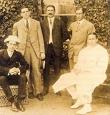

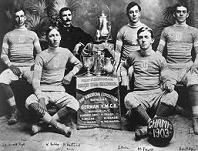
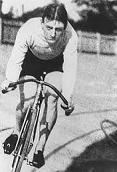



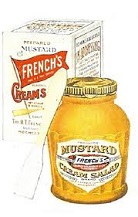
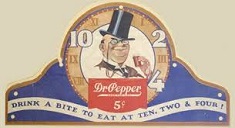


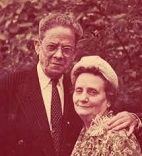
















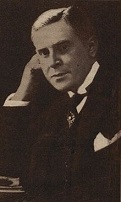


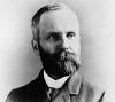


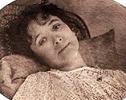


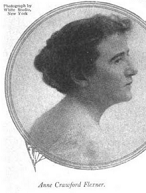




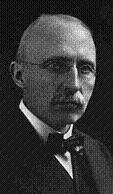


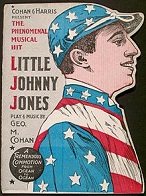
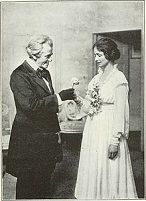




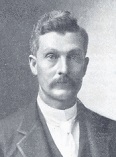
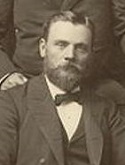




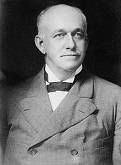



















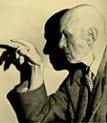









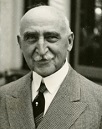




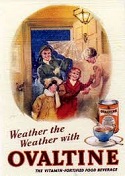
1904 Chinese Year: Dragon. On Jan. 4 after Puerto Rican activst Isabel Gonzalez (1882-1971) goes all the way to the top, the U.S. Supreme Court rules ?-? in Gonzalez v. Williams that Puerto Ricans are not aliens and can enter the U.S. freely, but stops short of declaring them U.S. citizens, and they become known as "noncitizen nationals" - but illegal aliens can have kids on U.S. soil who automatically become U.S. citizens? On Jan. 12 the Herero and Namaqua Genocide in German South West Africa (modern-day Namibia) begins as the Herero people under chief Samuel Maherero (1856-1923) rise against German colonial rule, ending in 1907 with 24K-65K (50%-70%) of the Herero and 10K (50%) of the Nama pop. exterminated, becoming the first genocide of the 20th cent.; German gen. Erich Victor Carl August Franke (1865-1936) becomes known as the "Hero of Omaruru" for a V; in July 2016 German chancellor Angela Merkel apologizes to the govt. of Namibia. On Feb. 1 Pres. Roosevelt appoints Philippines gov. (since 1901) William H. Taft as U.S. secy. of war #42 (until June 30, 1908). On Feb. 7-8 a fire in Baltimore, Md. rages for 30 hours and destroys 1.5K+ bldgs. The first time since the Mongols that an Asian military force totally defeats a European power? On Feb. 8 (10:30 p.m.) "World War Zero", AKA the Russo-Japanese War (ends Sept. 5, 1905) over control of Manchuria and Korea begins with a surprise Japanese attack on the Russian naval squadron at Port Arthur (Lushun) in Liaodung Province (leased to Russia by China), followed by a formal declaration of war by Japan on Feb. 10 (the U.S. doesn't learn a lesson from this?); the Japanese, led by field marshal (since 1898) Prince Iwao Oyama (1842-1916) immediately occupy Seoul, and force Korea to annul all concessions made to Russia. On Feb. 12 Dahomey (Benin) is incorporated into French West Africa, and the 12th and last king (since 1894) Agoli-Agbo flees to exile in Gabon, returning in 1918 as a private citizen - da homey boys been in? On Feb. 13 Panama adopts a constitution, which prohibits fiat money, causing the U.S. to intervene and get the govt. to sign an agreement making the U.S. dollar legal tender (paving the way for drug-dealing presidentes like Manuel Noriega?); meanwhile the Panama Canal is begun (finished 1914), with surgeon Col. William Crawford Gorgas (1854-1920) clearing out yellow fever-carrying mosquitoes for the next two years; U.S. army engineer Col. David DuBose Gaillard (1859-1913) supervises the Gaillard (Culebra) Cut through the Continental Divide in the canal's S section. On Feb. 13 the French organize Senegal as a colony and protectorate. On Apr. 6 the Second Manifesto is issued by LDS Church (Mormon) pres. #6 (since Oct. 10, 1901) Joseph Fielding Smith Sr., reaffirming the 1890 Woodruff Manifesto and providing for excommunication of violators, but keeping the snakelike language that polygamous marriages in violation of a nation's laws are not to be contracted; the 1890 manifesto is later canonized, but not this one; LDS apostles John Whitaker Taylor (1858-1916) (son of LDS Church pres. #3 John Taylor) and Matthias Foss Cowley (1858-1940) dissent and resign from the Quorum of the Twelve Apostles in 1906 (becoming the last until?), causing the Mormon Fundamentalist Movement to arise, pointing out that neither manifesto is claimed as a revelation from Jehovah. On Apr. 8 British foreign secy. (1900-5) Sir Henry Charles Keith Petty-Fitzmaurice, 5th Marquess of Lansdowne (1845-1927), having approached France to end past colonial differences last July (and speeded up by the Russo-Japanese War) signs the Anglo-French Entente Cordial, giving Britain a free hand in Egypt while receiving British guarantees regarding the Egyptian debt and the 1888 treaty providing for free navigation of the Suez Canal, and France a free hand in Morocco, which has given them mucho trouble in the past, and is divided into zones of French and Spanish influence in anticipation of a future partition; France gives up ancient rights on the shores of Newfoundland, while retaining fishing rights, and in return receives territory near French Gambia and E of the Niger River; spheres of influence in Siam are defined, and disputes over Madagascar and the New Hebrides are settled - all tidy now? On Apr. 13 the Japanese score a V in the naval Battle of Port Arthur, and invade Manchuria by land. On Apr. 19 (night) the Great Toronto Fire of 1904 destroys the lower part of Toronto, Canada, causing $10M in damages. On Apr. 22 Russian Far East cmdr. gen. Alexei Nikolayevich Kuropatkin (1848-1925) (imperial war minister since 1898) sends 25K troops under Lt. Gen. Mikhail Ivanovich ZaSulich (1843-1910) to block the main road from Korea to Manchuria so that refinforcements from the 1-track Trans-Siberia Railway can be given the needed 6 mo. to build up; too bad, on Apr. 30-May 1 the Battle of the Yalu River near Wiju (Uiju), North Korea on the Chinese border, the first major land battle of the Russo-Japanese War is a V for 42K Japanese of the First Army under Gen. Count Kuroki Tamemoto (1844-1923), after which the Russkies retreat N toward Fenghuangcheng. On Apr. 29 English tenor Gervase Cary Elwes (1866-1921) wows audiences with his perf. of Sir Edward Elgar's "Dream of Gerontius" at Queen's Hall, London, and ends up performing it 118x; too bad, he has a freak accident in a Boston, Mass. railway station in 1921 and dies. On Apr. 27 John Christian Watson (1867-1941) becomes PM #3 of Australia, the first Labour Party PM in history; on Aug. 18 Sir George Houstoun Reid (1845-1918) of the Free Trade Party becomes PM #4 (until July 5, 1905). On Apr. 28 Sisavang Vong (1885-1959) becomes king of Luangprabang (Laos) (until Oct 20, 1959). On Apr. 30-Dec. 1 the 1904 St. Louis World's Fair (Louisiana Purchase Exhibition) is held in commemoration of the centennial of the Louisiana Purchase a year late, and 20M visitors attend it; Cotton candy (Fairy Floss) (invented in 1897 by dentist William James Morrison of Nashville, Tenn.), French's Mustard, and Dr Pepper (not "Dr. Pepper") are introduced; on Apr. 30 Pres. Roosevelt presses a telegraph key at the White House to signal its official start; it costs $31K a day to run, and features the Gateway to the West Arch, designed by Finnish-born Eero Saarinen (1910-61) NOT (wait till 1968); iced tea, invented by plantation owner Richard Blechynden, and peanut butter, provided by C.H. Sumner, along with the Egyptian fan dancer are the hits of the fair; Geronimo appears at the fair; on July 1-Nov. 23 the Third (3rd) (III) (1904) Summer Olympic Games are held as part of the fair (first Olympics held in the U.S.), with 651 athletes (incl. 6 women) from 12 countries competing in 94 events, with the Russo-Japanese War and the remote location keeping most of the top athletes from attending; boxing, weightlifting, freestyle wrestling, and decathlon debut; on Aug. 12-13 "Anthropology Days" are held to pit aborigines from around the world with white men for curious anthropologists; James Davies "Jim" Lightbody (1882-1953) of the U.S. wins golds in the 800m and 1.5km (world record) and steeplechase, and silver in the 4 mi. team event; U.S. gymnast George Eyser (1871-?) wins six medals despite a wooden left leg; Emil A. Rausch (1883-1954) of Germany wins two golds and a bronze in swimming, becoming the last man to win an Olympic gold in sidestroke; the Buffalo Germans (founded at a YMCA in 1895), coached by Dr. Fred Burkhardt win the AAU nat. basketball tournament, which serves as a demonstration sport at the 1904 St. Louis Olympics; in 1907-10 they have a 111-game winning streak; they disband in 1925 with a 792-86 record; Columbia U. basketball star Marcus Latimer Hurley (1883-1941) of the U.S. wins four golds in cycling, and bronze in the 2-mi. race; Beals C. Wright (1879-1961) of the U.S. wins golds in singles and doubles tennis; the marathon is run in dusty hot weather, and is a clown show, with the accompanying vehicles kicking up dust; Frederick "Fred" Lorz (1883-1914) is declared the winner until it is found he only ran 9 mi., got in a car, then got back out with 5 mi. to go, and is banned for 1 year by the AAU, winning the Boston Marathon next year; Cuban postman Felix de la Caridad Carvajal y Soto (Andarin Carvajal) (1875-1949) (who runs in cut-off pants) stops in an orchard and eats rotten apples, causing him to get sick and take a nap, after which he comes in 4th; South African Tswana tribesmen Len Tau (Taunyane) and Yamasani (Jan Mashiani) become the first black Africans to compete in the Olympics, coming in 9th and 12th, although Tau was chased 1 mi. off-course by dogs; the winner is British-born Thomas J. Hicks (1875-1963) of the U.S. (winner of the 1904 Boston Marathon), who is given two doses of 1 mg. of strychnine sulfate mixed with brandy by his trainers to revive him; too bad, only 42 events have athletes not from the U.S., causing the all-U.S. events to be combined with U.S. championships, and most of the real Olympic events are held on Aug. 29-Sept. 3; the whole thing is such a joke that new (intercalated) games are arranged for 1906 in Athens; on July 23 the ice cream cone is allegedly invented by money-money-money Charles E. Menches during the fair when his girlfriend rolls one of the layers of an ice cream sandwich around some flowers; either that, or Syrian zalabia (waffle) seller Earnest A. Hamwi suggests using his product. On May 4 British auto salesman and electric crane manufacturer Charles Stewart Rolls (1877-1910) and British auto engineer Frederick Henry Royce (1863-1933) meet at the Midland Hotel in Manchester, and decide to form a partnership, producing their first 4-cyl. car in Dec., then forming Rolls-Royce Ltd. on Mar. 15, 1906; in 1931 they acquire rival car maker Bentley; in 1933 they change the logo color from red to black because so many customers choose red; in 1971 after the costs of developing the RB211 jet engine cause it to go bankrupt, the co. is nationalized, then privatized again in 1987. In May the Paris Conference is held on the white slave trade, signing an internat. protocol for its suppression on May 18. On June 15 the excursion steamboat General Slocum burns in East River, N.Y. after passing through Hell Gate en route to a Sunday school picnic, killing 1,031 of 1,400 aboard. On June 16 ("Bloomsday") (Thur.) the fictional story about ad salesman Leopold Bloom in Dublin in James Joyce's 1922 novel Ulysses takes place. On June 20 the Federation Internationale de l'Automobile (FIA) is founded in Paris to represent automobile enthusiasts and orgs., becoming the governing body for many auto racing events incl. Formula One and World Rally Championship races, also certifying land speed records; by modern times it has 213 nat. member orgs. in 125 countries worldwide; the International Olympic Committee (IOC) doesn't grant it full recognition until 2013. On June 21-23 the 1904 Repub. Nat. Convention in Chicago, Ill. nominates Pres. Theodore Roosevelt for pres., and conservative Charles Warren Fairbanks of Ind. for vice-pres.; in July the 1904 Dem. Nat. Convention in St. Louis, Mo., controlled by the Eastern Gold Dems. rebuffs William Jennings Bryan, and nominates conservative 80-y.-o. N.Y. judge Alton Brooks Parker (1852-1926) for pres., and obscure 82-y.-o. W. Va. millionaire financier Henry Gassaway Davis (1823-1916) for vice-pres.; House Speaker Joe Cannon utters the soundbyte that Roosevelt has "no more use for the Constitution than a tomcat has for a marriage license" - the Geritol ticket, only a gas away from the White House? On June 28 deaf-blind student Helen Adams Keller (1880-1968) graduates with honors from Radcliffe College. In June the London Symphony Orchestra gives its first concert, and makes its first tour of the U.S. and Canada in 1912 under the direction of Hungarian conductor Arthur Nikisch (1855-1922). On July 10 the Battle of Motien Pass in Manchuria is a V for the Japanese under Gen. Count Kuroki Tamemoto (1844-1923) over 25K Russians under Gen. Count Fyoror (Feodor) (Fedor) Keller (b. 1850), allowing the pass to be occupied July 13, blocking the main road between the coast and Liaoyang; Keller dies in a counterattack on July 31. On July 12 the Amalgamated Meat Cutters Strike by 18K union members of the Armour Co. in Chicago, Ill. begins; on Aug. 19 after Jonathan Ogden Armour tries to break the strike by hiring African-Am. scabs, pissing them off, 4K union members and their families riot; too bad, on Sept. 6 the strike collapses, after which Jane Addams personally gives head, er, meets with the head of Armour Co. to help them secure a contract. On July 28 hated Jew and Armenian-persecuting Russian interior minister (since 1902) Viacheslav (Vyacheslav) Plehve (b. 1846) is assassinated by the Socialist Rev. Party, and is replaced by Prince Michael Nikolaevich Sviatopolk-Mirsky (1870-1938) (until Jan. 1905), who relaxes repression and lets the opposition hold the Zemstvo Congress in Nov. in St. Petersburg, which demands a rep. assembly and civil liberties; meanwhile Plehve's actions precipitate war with Japan. On Aug. 1 the Japanese begin the Siege of Port Arthur (ends Jan. 2, 1905); in Aug. Korea is forced to accept Japanese diplomatic and financial advisers; on Aug. 24-Sept. 4 the Russians are defeated by the Japanese First Army under gen. Count Kuroki Tamemoto at the Battle of Liaoyang, followed on Oct. 5-17 by the Battle of Sha-ho (Shaho) on the Sha River N of Liaoyang; trenches are first used in this war? On Aug. 3 fearing Russian involvement in Tibetan affairs, the British under Lt. Col. Francis Edward Younghusband (1863-1942), under orders of Lord Curzon, viceroy of India, and supported by king Ugyen Wangchuck of Bhutan invade Tibet, and capture Lhasa after a massacre of Tibetans, forcing Tibetan leaders to sign a treaty on Sept. 7, which the British govt. then repudiates - to arrogant Euros, it's a two-bit country? On Aug. 7 anti-U.S. Rafael Reyes Prieto (1849-1921) becomes dictator-pres. #5 of Colombia (until July 27, 1909). On Aug. 7 a train derails on a bridge during a flash flood in Eden, Colo., killing 96 of 153 passengers. On Aug. 12 Russian tsarina Alexandra Fyodorovna Romanov (1872-1918) bears her only son, Tsarevich Alexei Nikolaevich Romanov (d. 1918) (a hemophiliac) in Peterhoff. On Aug. 14 Gen. Ismael Montes Gamboa (1861-1933) becomes pres. of Bolivia (until Aug. 12, 1909); the Bolivian-Chilean Treaty confirms Chilean possession of Antofagasta, and Chile establishes diplomatic relations with Peru, causing U.S. cos. to begin investing in Chilean copper production. On Sept. 15 Orville Wright makes the first (should we say right?) turn with an airplane; on Sept. 20 his brother Wilbur makes the first complete circle. On Sept. 26 Albert Henry George Grey, 4th Earl Grey (1851-1917) (nephew of the 3rd earl Grey) is appointed gov.-gen. of Canada (until 1911) - I'll have him for breakfast? In fall after losing his shirt investing in the Dreibus-Heim Candy Co., German immigrant Emil Julius Brach (1859-1947) founds Brach's Confections (E.J. Brach Corp.) (originally Brach's Palace of Sweets) in North Side Chicago, Ill. with $1K, undercutting competitors and moving to West Side Chicago in May 1906, going wholesale-only and growing to 50K lbs./week by 1911, and four factories by 1923 producing 127 different candy varieties at 2.225M lbs/week; in 1948 an electrical spark causes an explosion that kills 11 employees and injures 18, and after it is rebuilt it becomes the largest candy manufacturing plant on Earth (2.2M sq. ft.), with 2.4K workers producing 4M lbs./year ($10M/year); in 1958 they introduce the Pick-A-Mix option at grocery stores; in 1966 it is acquired by Am. Home Products; in 1980 its 3.5K workers produce 250M lbs./year; in 1987 it is acquired by Jacobs Suchard Ltd. of Switzerland for $730M, who drive it into the ground by changing the name and product line; in 1990 Philip Morris acquires Jacobs Suck, er, Suchard for $3.8B, splitting Brach off, which in Sept. 1994 acquires the Brock Candy Co. of Chattanooga, Tenn. for $140M; too bad, in 2003 Brach-Brock is acquired by Barry Callebaut AG, and production is moved to Mexico; in 2007 it is acquired by Farley's & Sathers Candy Co., which in 2012 merges with the Ferrara Pan Candy Co. to form the Ferrara Candy Co., becoming the largest manufacturer of bulk candy in the U.S. On Oct. 17 Amadeo Peter (Pietro) Giannini (1870-1949) founds his little Bank of Italy in San Francisco, Calif.; after the big 1906 earthquake hits, he puts a plank on top of two barrels on the wharf and resumes business, speeding up the rebuilding as his bank is the first to lend money to the avg. worker; the giant Bank of America is the end result. On Oct. 21 (night) the Dogger Bank Episode (Incident) (North Sea Incident) (Russian Outrage) (Incident of Hull) begins when the Russian fleet under Adm. Zinovy Petrovich "Mad Dog" Rozhestvensky (Rodjestvensky) (1848-1909) sails through the North Sea en route to the Far East, and fires on British trawlers, claiming they are Japanese destroyers; after the intervention of France, the dispute is settled by an internat. commission on Feb. 25, 1905. On Oct. 27 the Interborough Rapid Transit (IRT), the first rapid transit subway is inaugurated in New York City by new Princeton-educated mayor #93 (Jan. 1, 1904-Dec. 31, 1909) George Brinton McClellan Jr. (1865-1940), son of inept Civil War Union gen. George B. McClellan Sr.; it goes from City Hall to W. 145th St. in 26 min., and tickets cost a nickel (no tokens until 1953). On Oct. 27-Nov. 23 after Britain protests the coaling of the Russian fleet by German cos., Germany and Russia hold negotiations for an alliance; on Oct. 30 a draft treaty provides for mutual aid in case of attack by another Euro power, but the plan falls through when Russia insists on consulting France before signing; on Dec. 12 they settle on an agreement to aid each other in the event of complications arising from the coaling of the fleet. In Oct. the black township of Soweto SW of Johannesburg is founded to house mine laborers. On Nov. 1 German navy minister (June 6, 1897-Mar. 15, 1916) Adm. Alfred Peter Friedrich von Tirpitz (1849-1930) demands that foreign policy be subordinated to his naval buildup. On Nov. 8 after an unusual U.S. pres. campaign where neither candidate campaigns, the Dems. relying on heavy financing by Wall Street tycoons Thomas Ryan and August Belmont, while Theodore Roosevelt in Oct. gets "emergency funds" from Union Pacific Railroad pres. Edward Henry Harriman (1848-1909) and U.S. Steel pres. Henry Clay Frick (1849-1919), the 1904 U.S. Pres. Election is easily won by Roosevelt, who receives 7.6M popular and 336 electoral votes to Parker's 5.1M popular and 140 electoral votes, winning every section except the South, becoming the first incumbent U.S. pres. to win an election in his own right after having ascended upon the death of a predecessor (Coolidge, 1924, Truman, 1948, LBJ, 1964), with the largest plurality ever won by a pres. candidate; I am no longer a political accident" (Roosevelt); when he turns around and denounces "malefactors of great wealth", Henry Clay Frick reportedly grumbles "We bought the son of a bitch and then he didn't stay bought!"; "Show Me State" Missouri (where east meets west and North meets South) backs the winning candidate, going on a roll and only backing the loser in 1956 and ? On Dec. 6 Pres. Roosevelt delivers his 4th Annual Message to Congress, adding the Roosevelt Corollary to the Monroe Doctrine, making the U.S. a self-declared "international police power" responsible for dealing with instability in the Western Hemisphere, a power exercised continually over the next 20 years; the U.S. now not only prevents European intervention in its own hemisphere, but can intervene at will, starting with the Dominican Repub., which defaulted on its loans to several European countries, causing Pres. Roosevelt to create a U.S. receivership of the Dominican customs to collect the debt. On Dec. 10 Anti-Austrian Serbian nationalist Nikola P. Pasic (Pashitch) (Pachitch) (1845-1926) becomes PM of Serbia (until May 28, 1905), breaking with Austria and openly aligning with Russia, going on to stay in power most of the time until his death. On Dec. 14 a cyclone hits Comoros; anther follows next Dec. 16, killing 30 and injuring 150. On Dec. 27 the Abbey Theatre in Dublin, Ireland, organized by the Irish Nat. Theatre Society opens, becoming the Irish nat. you know what as William Butler Yeats, John Millington Synge et al. write plays for it. On Dec. 31 (midnight) One Times Square (originally Longacre Square), built for The New York Times publisher Adolph S. Ochs celebrates its opening with New Year's Eve fireworks at the 24-story Times Tower before a crowd of 200K after a giant ball made from wood and iron outfitted with 100 25-watt lightbulbs is lowered from the 70-ft. flagpole at the top, starting a tradition; actually, it opened on Apr. 8, but it took 6 mo. for the subway terminal to open. In Dec. Prussian Gen. Josias von Heeringen (1850-1926), head of the army dept. in the war ministry pub. a report that insists that Germany put "preparedness for war... above all other considerations". In Dec. Harry Gabriel Pelissier (1874-1913) stages his "Pelissier's Follies" before King Edward VII and Queen Alexandra at Sandringham Palace in celebration of her birthday, going on to be a big hit in the U.K.; in 1912 he marries actress Fay Compton (1894-1978), who debuts in his follies; when he kicks off the next year, she goes on to marry again 3x. Hottentot Rebellion (Hottentots and Hereros) against the Germans in SW Africa begins, requiring 20K German troops to quash (ends 1908). Mauritania in NW Africa is organized by the French as a territory. The king and chief of Manu'a cede the Manu'a Group (the islands of Ofu, Olosega, and Tau) to the U.S. The kingdom of Laos (Luangprabang) becomes a French protectorate. Norodom I (b. 1834) dies, and Preah Bat Sisowath (1840-1927) becomes king of Cambodia (until 1927). The Welsh Religious Revival causes policemen to be laid-off for lack of work. The Affaire des Fiches de Delation (Délation) ("Affair of the Cards of Denunciation") sees militantly anticlerical war minister Gen. Louis André exposed using members of the Freemasons to watch all 19K army officers and assembling a huge card index on public officials, detailing which were Romanic Catholic and who attended Mass, with a view to preventing their promotions, bringing down his boss PM (since 1902) Emile Combes. The Casement Report, by Irish-born Protestant British diplomat Sir Roger Casement (1864-1916) details abuses in Belgian king Leopold II's Congo Free State, leading to him relinquishing it in 1908 after a Belgian commission verifies it; Casement then goes to South Am. to do similar good work for the Putamayo Indians of Peru; too bad, the experience causes him to rethink being a slave of the stankin' English, and in 1913 he quits, then joins the Irish Volunteers. U.S. atty.-gen. Philander Chase Knox resigns to fill an unexpired term in the U.S. Senate from Penn., then is elected in 1905 to a full term as a Repub. (until 1909). Sara Ann Delano Roosevelt (1854-1941) (descendant of French Huguenots) goes on a cruise with her son Franklin Delano Roosevelt to prevent Eleanor Roosevelt from hooking him - sounds like rich hillbillies? The First Aliyah (begun 1882) ends, and the I-feel-fabulous Second Aliyah begins (ends 1914), settling 33K more Jews into Palestine, incl. David Ben Gurion and other founders of Israel, causing the Yishuv (Jewish pop. of Palestine) to total 75K by 1914 (10%). Dirty Denver gets an Irish Boss Tweed? Mount Union, Penn.-born Dem. politician Robert Walter Speer (1855-1918), who moved from Penn. in 1878 to help his TB becomes the first home-rule mayor (#26) of Denver, Colo. (until 1912, then #30 in 1916-18), becoming boss of a political machine known for extensive public improvements based on the 1893 Centennial Exhibition, incl. E-W town-crossing Speer Blvd. (1908), the City and County Bldg. (1932) and the Civic Center, the Denver Zoo (founded 1896), the Denver Museum of Nature and Science (founded 1900), the 12K-seat Denver City Auditorium (1908) (2nd in size to Madison Square Garden), city parks and 110K free shade trees donated to city residents, 56 mountain parks (14K acres), the world's highest automobile road (to the top of 14,264-ft. Mt. Evans), a public golf course, street lighting and paved residential streets, a welcome arch in front of Union Station with 1,294 lights, and the first city bathing beach (Smith Lake); nude sunbathing and "spooning" (but not forking) in public parks are decriminalized, while Speer backs the city's 400 saloonkeepers against the temperance movement, and is cosy with grandmotherly brothel keeper Mattie Silks (1845-1929); "More sunshine and sons of bitches than any place in the country." The Trans-Siberian Railway (begun in 1891) is completed, joining up with the Russian European system; Russia has 48K mi. of railways. The first railroad tunnel under the North (Hudson) River is built between Manhattan, N.Y. and N.J. Levi Zeigler Leiter (1834-1904) founds the gold-plated town of Zeigler, Ill. in S Ill. around a coal mine, and designs it like Washington, D.C., complete with a game preserve, and since he helped get Pres. Theodore Roosevelt elected with his big bucks, he hoped he could buy, er, convice him into moving the White House there; too bad, the day after the grand opening on June 8 he dies in Washington, D.C. - always a distinct possibility when traveling with my 70-y.-o. grandfather? The U.S. govt. outlaws the Sun Dance among Plain Indians. The Liquor Licensing Act is passed in Britain, for the first time allowing for liquor licenses to be taken away from alehouses who have committed no misconduct provided that compensation is paid out of a fund paid into by the other licensed houses. France establishes a 10-hour work day. Ft. Peabody in SW Colo., the highest military fort in the U.S. (13,365 ft.) is built in the winter to stop labor union sympathizers from entering the mining town of Telluride via Imogene Pass. After the town of Pacific City (formerly Shell Beach, Smeltzer, Gospel Swamp, and Fairview) cedes power to Oneonta, N.Y.-born Pacific Electric Railway magnate Henry Edwards Huntington (1850-1927) to secure access to the lines of the Pacific Electric Red Car from Los Angeles that stopped at Long Beach, the city of Huntington Beach, Calif. (modern-day pop. 200K) in Orange County builds a 1K-long pier on its 9.5-mi.long sandy beach that attracts beachgoers, and is incorporated on Feb. 17, 1909, becoming known for oil wells, sugar beets processed by Holly Sugar, and the defense contractor McDonnell Douglas Astronautics, known for the Apollo and Skylab space programs. Pope Pius X appoints a commission of cardinals to codify Roman Catholic canon law, which has become an unwieldy mess filled with spurious interpolations (ends 1917); meanwhile Zionism founder Theodor Herzl (1860-1904) asks him for Vatican support for a Jewish homeland in Palestine, apparently unaware of the St. Augustine lovely brainwave that Jews are to be kept ever-wandering as proof of what they deserve for rejecting Christ; the pope's reply is the immortal soundbyte: "The Jews who should have been the first to acknowledge Jesus Christ have not done so to this day. And so if you come to Palestine and settle your people there, we will be ready with churches and priests to baptize all of you." The Chestnut Blight (Cryphonectria parasitica) is discovered in chestnut trees imported from Asia in the Bronx, N.Y. Zoo by Hermann W. Merkel, going on to spread to Am. chestnuts, which have no natural resistance, wiping them out, going from 25% of the forests in the E U.S., with 4B trees from Maine to Fla., prized for rot-resistant wood to zippo; in 2006 a stand of a half dozen trees is discovered in Albany, Ga. near FDR's Little White House at Warm Springs; another stand of 6K trees 15 mi. E of La Cross, Wisc. remains blight-free until 1988. Thomas Edison's glassblower Clarence Madison Dally (b. 1865) becomes the first person to die from overexposure to X-rays, which many still believe are harmless. Boston U. prof. Borden Parker Bowne (1847-1910) becomes the first person to be put on trial for heresy in the U.S. Methodist Church for his defense of Biblical higher criticism; he is unanimously acquitted, signaling the arrival of the "liberal Protestant consensus" with other mainline Protestant denominations. The first color photos appear in newspapers. Archer Milton Huntington (1870-1955) founds the Hispanic Society of Am. in New York City on May 18, and has his sculptor wife Anna Hyatt Huntington (1876-1973) adorn it with large sculptures. Mary McLeod Bethune (1875-1955) founds Bethune-Cookman U. (originally Daytona Educational and Industrial Training School until 1941) in Daytona Beach, Fla., becoming the first black college founded by a black woman, with standards comparable to white schools; in 1923 it merges with the Cookman Inst. of Jacksonville, Fla.; in 1924 it affiliates with the Methodist Church. The date palm is introduced to the U.S. The steerage rate for immigrants to the U.S. is cut to $10. The Nat. City Bank of New York introduces traveller's checks. A New York City cop arrests a woman for smoking a cigarette in public. TNT begins to be used by the military for the obvious. The U. of Leeds (originally Yorkshire College of Science) in Leeds, West Yorkshire, England is chartered by Edward VII, affiliated with the federal Victoria U. alongside Owens College and Univ. College Liverpool, incorporating the Leeds School of Medicine (founded 1831). The Wall Street brokerage firm of E.F. Hutton & Co. is founded by Edward Francis Hutton (1875-1962) et al., going on to push the ad slogan "When E.F. Hutton talks, people listen"; after opening an office in San Francisco, Calif., he uses its private telegraph to sell off his San Fran investments before the news of the big earthquake reaches the East Coast. Automobiles are for the rich only? Studebaker introduces a gasoline automobile; Ransom Eli Olds (1864-1950) (only man to have two automobiles named for him) resigns from the Olds Motor Vehicle Co. and forms the REO Motor Car Co. (ends 1936); Cadillac replaces the tiller with a steering wheel. German industrialist Carl Duisberg (1861-1935) founds I.G. Farben (Interessen-Gemeinschaft Farbenindustrie) AG (Ger. "farben" = paints or dyes), which reorganizes on a larger scale in 1925 and goes on to give the world Zyklon B. British Vice-Adm. (since 1901) Charles Cooper Penrose-Fitzgerald (1841-1921) pub. an article in the Deutsche Review stating that Britain would be better off with a naval war with Germany now when their navy is bigger, whipping-up German support for naval expansion. Pres. Roosevelt writes to the U.S. treasury secy. that "I think our coinage is artistically of atrocious hideousness", recommending that they be redesigned to look like the beautiful ancient Greek tetradrachma, hiring Augustus Saint-Gaudens, who designs the 1907 $20 Double Eagle gold coin. The Marine Biological Assoc. in Plymouth, England begins releasing 1,020 bottles into the North Sea (ends 1906), offering a 1 shilling reward for their return; one found in 2017 becomes the oldest known message in a bottle to be found. French bacteriologist Pierre Paul Emile (Émile) Roux (1853-1933) becomes dir. of the Pasteur Inst. after receiving its $20K Pris Osiris in 1903 - my face is getting clearer, the past is gone? Karlsberg Beer (founded 1878) of Hamburg, Bavaria becomes "purveyors to the Danish royal court". 13-y.-o. Ukrainian-born violinist Mischa Elman (1891-1967), who auditioned for Leopold Auer at age 11 (playing the Wieniawski Concerto No. 2 and 24th Caprice by Paganini) debuts in Berlin, creating a sensation. The Socialist newspaper L'Humanite (Humanity) is founded in Paris by Jean Leon Jaures (1859-1914). The Nat. Tuberculosis Assoc. (Am. Lung Assoc.) is founded in Atlantic City, N.J. on June 6 by Sir William Osler et al. to educate the public about TB AKA white plague, the leading cause of mortality in the U.S. (1.88K deaths per million annually). The Am. Academy of Arts and Letters in New York City is founded by the Nat. Inst. of Arts and Letters as an honorary assoc. with a membership limit of 50 (later 250), granted for noteworthy achievement a la the Academie Francaise; the first seven members incl. writers Samuel Clemens (Mark Twain), William Dean Howells, Edmund Clarence Stedman, and John Hay, artists Augustus Saint-Gaudens and John La Farge, and composer Edward Alexander MacDowell; too bad, MacDowell is run over by a Hansom cab, and ends up with brain damage making him childlike until his death in 1908, causing former U.S. pres. Grover Cleveland et al. to raise funds for his care. The Prix Femina French lit. prize is created by the mag. La Vie Heureuse, with an all-female jury, although winners can be male. Da Juze iz here, da Juze is here? Stuyvesant High School in Manhattan, N.Y. opens, becoming one of the top public high schools in the U.S. specializing in math and science, producing Nobel Prize winners Joshua Lederberg, Robert Fogel, Roald Hoffmann, and Richard Axel; Frank McCourt teaches English there. The Royal Academy of Dramatic Art (RADA) is founded in Haymarket, London, England by Sir Herbert Beerbohm Tree (1852-1917), becoming a leading drama school. The annual Priz Femina lit. prize is established by 22 writers of La Vie Heureuse (later Femina) mag., with prizes decided by an all-female jury but not limited to women; the prize is announced on the first Wed. of Nov.; the first winner is Myrian Harry for "La Conquete de Jerusalem"; in 1920 the Femina-Vie Hereuse Prize is established in Britain by the Hachette Group for English writers (until 1940); in 1920 the Northcliffe Prize is established by Lady Northcliffe, wife of Alfred Harmsworth for French writers (until 1940); in 1985 the Prix Femina Étranger award is established for non-French writers, with the first winner John Maxwell Coetzee for "Michael K, sa Vie, son Temps" (The Life and Times of Michael K.); in 2001 the Prix Femina Essay award is established, with first winner Elivre de Brissac (1939-) for "Ô dix-neuvičme!" (2001). Ajaccio, Corsica-born Francois Coty (Joseph Marie Francois Spoturno) (1874-1934) founds a perfume co. in Paris, France, making slow headway until he spills a bottle of his La Rose Jacqueminot on a countertop at the Grands Magasins du Louvre dept. store, causing a customer frenzy that makes him into a player in the perfume world, becoming the first to sell products in attractive bottles; in 1908 he relocates his HQ to Suresnes near Paris, founding La Cite des Parfums, growing to 9K employees producing 100K bottles/day; in 1921 he expands to New York City, amassing a fortune of $34M by 1929; in 1922 he purchases the conservative Parisian newspaper Le Figaro and renames it Figaro, turning far-right and anti-semitic; in 1963 Coty Inc. is acquired by Pfizer, which switches to drugstore distribution; in 1922 they sell Coty to Joh. A. Benckiser GmbH of Germany. Jewywood starts in Jew York long before moving to Hollyweird? New York Jew Marcus Loew (1870-1927) founds the People's Vaudeville Co., a chain of theaters with live vaudeville shows, expanding into 1-reel nickelodeon films; in 1 910 he founds Loew's Consolidated Enterprises along with well-fixed Hungarian-born Jewish former fur trader Adolph Zukor (1873-1976), and Russian-born Jewish brothers Joseph Michael Schenck (1878-1961) and Nicholas M. Schenck (1881-1969), then changes its name to Loew's Inc. in 1919 and purchases Metro Pictures Corp. in 1920; Nicholas Schenck goes on to head United Artists, while Joseph Schenck heads MGM. Picasso's Blue Period (begun 1901) ends, and his Rose Period begins (ends 1905), with dignified impersonal figures in chalky pink, incl. Gertrude Stein. Maurice Utrillo (1883-1955) begins his Montmagny Period (ends 1908), painting townscapes from Pierrefitte-Montmagny N of Paris. A. Piker Clerk, by Clare Briggs (1875-1930) debuts in the Chicago Herald (until 1907), becoming the first panel-style daily comic strip; his later strips coin popular Am. phrases "Ain't It a Grand and Glorious Feeling?", "Danny Dreamer", "When a Feller Needs a Friend", "The Days of Real Sport", "Movie of a Man", "Mrs. and Mrs.", "Real Folks at Home". Warwickshire, England-born Aleister (Edward Alexander) Crowley (1875-1947) is allegedly contacted by his guardian angel Aiwass in Egypt, who gave him The Book of the Law, from which he develops his libertinist philosophy of Thelema, with the motto "Do What Thou Wilt", practicing black magic and becoming known as "the wickedest man in the world". Nestle begins marketing Swiss chocolate; next year Nestle (Nestlé) S.A. (originally Nestle and Anglo-Swiss Condensed Milk Co., then Nestle Alimentana SA in 1947-77) is formed from the merger of Nestle with the Anglo-Swiss Milk Co. (founded 1866), introducing Nescafe (Nescafé) brand instant coffee on Apr. 1, 1938, which becomes a hit with the U.S. military in WWII, then acquiring Maggi (1974), Cross & Blackwell (1950), Findus (1963), Libby's (1971), Stouffer's (1973), L'Oreal (1974), Alcon Labs (1977), Carnation (1984), Rowntree Mackintosh (1988), San Pellegrino (1997), and Spillers Petfoods (1998); by the end of the 20th cent. it's the world's largest food co., going on to acquire Ralston Purina (2002), Dreyer's (June 2002), Chef America (Aug. 2002) et al. Lucerne Dairy Farms (originally Lucerne Cream & Butter Co.) is founded in Lucerne Township, Kings County, Calif.; in 1929 it is acquired by Safeway. Ovaltine (originally Ovalmaltine, from L. "ovum" + malt) brand milk flavoring made of powdered malt, milk, and eggs is first manufactured in Berne, Switzerland, changing to the current name when exported to Britiain 1909, followed by the U.S. in 1915; in 2003 Wanger AG acquires the brand from Novartis, after which Nestle acquires the U.S. rights separately; the brand sponsors the U.S. radio series "Little Orphan Annie" (1931-40) and "Captain Midnight" (1938-49), and the U.S. TV series "Captain Midnight" (1954-6); an anagram for "Vital One". Sports: On Jan. 2-Feb. 24 the 1904 Canadian Amateur Hockey League (CAHL) Season sees the Ottawa Hockey Club (Silver Seven) resign in Feb., defaulting on four games, giving the Quebec Bulldogs the CAHL championship; Ottawa retains the Stanley Cup despite a protest by Quebec. On May 4 Estonian-born 5'9 219 lb. he-man Georg Hackenschmidt (1877-1968), "the Russian Lion", inventor of the bearhug and the hackenschmidt, er, hack squat defeats Tom Jenkins in New York City, becoming the first recognized world heavyweight wrestling champ (until 1908). On May 5 Denton True "Cy" (Cyclone) Young (1867-1955) pitches the AL's first perfect game as the Boston Red Sox defeat the Philadelphia Athletics 3-0; the ML baseball World Series between the Giants and Boston is called off as a result of a dispute with Giants mgr. (1902-32) John Joseph McGraw (1873-1934) (AKA Little Napoleon and Muggsy). Elwood (jockey F. Prior) wins the Kentucky Derby on ?. On July 2-24 the 1904 Tour de France is won by Henri Cornet (Jardry) (1884-1941) of France, who is only 19 years 350 days old, a record that holds until ?; he actually finishes 5th, but the first four cyclists (Eugene Christopher in the lead) are later disqualified. On Sept. 1 the Federation Internationale de Football Assoc. (FIFA) is founded; soccer breaks from its British roots and goes internat. On Oct. 8 the first Vanderbilt Cup internat. auto race is held on the dirt roads of Nassau County, Long Island, N.Y., becoming the first major U.S. auto race, founds with an enticingly large prize by William Kissam Vanderbilt II (1878-1944) (who earlier this year set a land speed record of 92.30 mph in a Mercedes at Daytona Beach), with large crowds eager to see an American car beat the Euro cars; too bad, it's won by Long Island native George Heath (1862-1943) in a French Panhard in 6 hours 56 min. 45 sec., with an avg. speed of 52.2 mph; it takes until 1908 for George H. Robertson (1884-1955) of Garden City, N.Y. to win in an American car, a Locomobile, becoming the first U.S.-built car to win in internat. competition; is founded it moves to Savannah, Ga., followed in 1912 by Milwaukee, Wisc., and 1914 and 1916 by Santa Monica, and San Francisco, Calif. in 1915; it is canceled in 1917-36. Walter J. Travis (1862-1927) of the U.S. becomes the first man to hold the British and U.S. amateur golf titles at the same time; the U.S. Open is won by Will Anderson. The U.S. Lawn Tennis singles titles are won by Holcombe Ward and May G. Sutton. The Nat. Ski Assoc. of Am. is founded in Ishpeming, Mich. After the U.S. Rubber Co. produces the first rubber-soled shoes in the U.S. in 1892, Spalding Sports Co. markets the first suction-sole shoes, becoming the first Basketball Sneakers in 1907. Architecture: On Mar. 13 the 7m-high Christ the Redeemer of the Andes monument in the Andes Mts. at 12,572 ft. (3,832m) alt. in La Cumbre Pass between Argentina and Chile on the road between Mendoza, Argentina, and Santiago, Chile is unveiled to celebrate the end of their border dispute in May 1902; designed by Mateo Alonso. The Carson, Pirie, Scott & Co. Bldg. (begun 1899) (originally the Schlesinger and Meyer Dept. Store) in Chicago, Ill. is finished, becoming a forerunner of Art Nouveau. The Larkin Bldg. in Buffalo, N.Y., the first air-conditioned office, the first to have metal-bound plate glass doors and all-metal office furniture is designed by Frank Lloyd Wright. The Central Mosque on Vypolzovy St. in Moscow is built by Tartar businessman Salikh Yerzhin; it is demolished on Sept. 11, 2001 to make room for a newer bigger mosque to help accomodate the hordes of Muslim immigrants. In 1904-8 the North River Tunnels under the Hudson River are built, connecting Penn. Station in Manhattan, N.Y. with Weehawken, N.J., opening for passenger service in 1910 and carrying 20% of all U.S. commerce by 2020; too bad, they become a ticking time bomb after failing to be renewed? Nobel Prizes: Peace: Inst. de Droit Internat. (Belgium); Lit.: Frederic Mistral (1830-1914) and Jose Echegaray y Eizaguirre (1832-1916) (Spain); Physics: John William Strutt, 3rd Baron Rayleigh (1842-1919) (U.K.) [noble gases]; Chem.: Sir William Ramsay (1852-1916) (U.K.) [helium]; Med.: Ivan Petrovich Pavlov (1849-1936) (Russia) [digestion not salivation] - the prize for the richest collection of surnames? Inventions: Former Am. journalist Nellie Bly patents a 55-gal. steel drum that becomes a std. in the U.S. Using the Hallwachs Effect of 1888, Julius P.L. Elster (1854-1920) of Germany invents the first practical Photoelectric Cell. English engineer Sir John Ambrose Fleming (1849-1945) becomes the first to use a thermonic (vacuum) tube to generate radio waves. David Roberts of Grantham, England patents the continuous track for use on tractors; in 1907 Benjamin Holt of Calif. patents the crawler type tread tractor; in 1914 (WWI) they start out being used to transport artillery, and in 1915 British Lt. Col. Ernest Swinton of the Royal Engineers proposes to the War Office that they should be used in an armored track vehicle that can destroy German guns, which is adopted by Winston Churchill, who calls them "land ships". About this time Ford Motor Co. employee Louis Goldenberg of New Brunswick, N.J. invents the electric washing machine. Arthur Korn (1870-1945) of Germany telegraphically transmits the first photographs from Munich to Nuremberg. Lumiere brothers Louis and Auguste develop a 3-color screen process for color photography using dyed starch granules as filters and a photographic emulsion sensitive to the entire visible spectrum. Austrian priest-physicist August Musger (1868-1929) patents the slow-motion effect in films, using a mirrored drum as a synchronization mechanism; he first demonstrates it in Graz - home of Last Action Hero Ahnuld? Thomas Sullivan of New York City invents the tea bag. The first Ultraviolet (UV) Lamp is invented by ?. Science: Child lead poisoning is linked to lead-based paints. Sir James Hopwood Jeans (1877-1946) accounts for the energy of radioactivity by the mutual annihilation of positive and negative charges; Ernest Rutherford and Frederick Soddy postulate a gen. theory of radioactivity. Frederick Stanley Kipping (1863-1949) of the U. of Nottingham in England discovers silicones - the century is safe for Hollywood's big-breasted Maid Marians and Lady Godivas? Dutch physicist Hendrik Lorentz pub. the Lorentz Transformations, showing how electrodynamic phenomena in different reference frames can be described by identcial equations with well-defined transformation properties, and also discusses time dilation and the increase of inertal mass of rapidly moving objects, all of which is soon adopted by Albert Einstein. Japanese physicist Hantaro Nagaoka (1865-1950) proposes the Saturnian Model of the Atom, modeling the structure on the planet Saturn, replacing the swarm of satellites by negative electrons and the attracting center by a massive positively charged particle - let me get out my astrology book and figure out the implications? German physicist Ludwig Prandtl (1874-1953) pub. the paper "Fluid Flower in Very Little Friction", first describing the theory of the boundary layer. Charles Spearman (1863-1945) advances the "g" Theory of Intelligence. German mathematician Ernst Zermelo (1871-1953) pub. a proof that every set can be well-ordered, opening mathematics to the use of paradoxical Transfinite Methods (Diagonal Method). Nonfiction: Ephraim Douglass Adams (1865-1930), The Influence of Grenville on Pitt's Foreign Policy, 1787-1798. Henry Brooks Adams (1838-1918), Mont-Saint-Michel and Chartres; how medieval culture was cool, esp. between 1150-1250, because it spiritualized femininity and earthly love (sex) via the Virgin Mary, while its cathedrals expressed "an emotion, the deepest man ever felt — the struggle of his own littleness to grasp the infinite." Andrew Cecil Bradley (1851-1935), Shakespearean Tragedy; makes him #1 among Shakespearean scholars, treating the chars. like they're real people; becomes a std. work, essential for passing exams in English schools, causing the rhyme to circulate: "I dreamt last night that Shakespeare's ghost/ Sat for a civil service post./ The English paper for that year/ had several questions on King Lear/ Which Shakespeare answered very badly/ Because he hadn't read his Bradley"; too bad, by the 1950s he is discredited for his Victorian views, esp. after the 1933 satirical essay "How Many Children Had Lady Macbeth?" by English lit. critic Lionel Charles Knights (1906-97). Sir Francis Burnand (1836-1917), Records and Reminiscences (autobio.). Edward Caird (1835-1908), Evolution of Theology in the Greek Philosophers. Thomas Chrowder Chamberlin (1843-1928), Contribution to the Theory of Glacial Motion. Winston Churchill (1874-1965), The Crossing; bestseller. Moncure D. Conway (1832-1907), Autobiography, Memories and Experiences (2 vols.). Kenyon Cox (1856-1919), Mixed Beasts. Marie Curie (1867-1934), Recherches sur les Substances Radioactives. Daniel De Leon (1852-1914), The Burning Question of Trades Unionism. Clarence Edward Dutton (1841-1912), Earthquakes in the Light of the New Seismology. Richard T. Ely (1854-1943), Elementary Principles of Economics: Together with a Short Sketch of Economic History. Eduard Fueter Sr. (1876-1928), Religion and Church in England in the Fifteenth Century (Religion und Kirche in England im fünfzehnten Jahrhundert) (Tubingen). Leonard Trelawny Hobhouse (1864-1929), Democracy and Reaction. Elisabeth Forster-Nietzsche (1846-1935), Das Leben Friedrich Nietzsche (The Life of Friedrich Nietzsche); by his sister. Charles Edouard Guillaume (1861-1938), Les Applications des Aciers au Nickel. Lafcadio Hearn (1850-1904), Japan: An Attempt at Interpretation. Albert Kalthoff (1850-1906), The Rise of Christianity: New Questions about the Christ Problem (English trans. pub. 1907), resurrecting the works of Bruno Baer by reviving his Christ myth theory; "It sometimes happens in the scientific discussion of a problem that we make a considerable advance towards its solution by abandoning some point of view from which we have fruitlessly striven to master it, and confronting it from a fresh position. The experience suggests itself forcibly in the controversy with regard to the historical character of Jesus. Starting from the theory that the evangelical writings of the New Testament must be regarded as sources of evidence for the life-story of an historical individual, liberal theology has lost itself in a labyrinth from which it cannot escape. Even in circles where the dogma of a personal founder of Christianity is till rigorously maintained, people are beginning to see that very little biographical material can be obtained from the Gospels"; "A Son of God, Lord of the World, born of a virgin, and rising again after death, and the son of a small builder with revolutionary notions, are two totally different beings. If one was the historical Jesus, the other certainly was not. The real question of the historicity of Jesus is not merely whether there ever was a Jesus among the numerous claimants of a Messiahship in Judea, but whether we are to recognise the historical character of this Jesus in the Gospels, and whether he is to be regarded as the founder of Christianity." Halford Mackinder (1861-1947), The Geographical Pivot of History; proposes the Heartland Theory, founding the field of Geopolitics; claims that the Eurasian steppe is the most coveted landmass on Earth, which he calls the Pivot Region. Edgar Lee Masters (1868-1950), The New Star Chamber and Other Essays. Fiona MacLeod (William Sharp) (1855-1905), The Winged Destiny: Studies in the Spiritual History of the Gael. Andrew Cunningham McLaughlin (1861-1947), Sketch of Charles Pinckney's Plan for a Constitution, 1787. Hugo Munsterberg (1863-1916), Die Amerikaner. Hermann Oncken (1869-1945),Lassalle, Between Marx and Bismarck (first book). Herbert Levi Osgood (1855-1918), The American Colonies in the Seventeenth Century (3 vols.) (1904-07); dies after finishing The American Colonies in the Eighteenth Century (4 vols.) (1924) (posth.). Sir William Osler (1849-1919), Aequanimitas (essays). Thomas Nelson Page (1853-1922), The Southerner's Problem. George Herbert Palmer (1842-1933), The Nature of Goodness. Agnes Repplier (1855-1950), Compromises. Jacob August Riis (1849-1914), Theodore Roosevelt, the Citizen. George John Romanes (1848-94), Thoughts on Religion (posth.). William Sharp (1855-1905), Literary Geography. Frederick Soddy (1877-1956), Radioactivity. Lincoln Steffens (1866-1936), The Shame of the Cities; Minneapolis, Cleveland, Pittsburgh, St. Louis, Philly ("the most hopeless"), and New York City. Rudolf Steiner (1861-1925), Theosophy: An Introduction; a human being has a body, soul and spirit, can undergo reincarnation, and has a unity of the spiritual and sense-perceptible "as two sides of a single coin". Bertha von Suttner (1843-1914), Der Krieg und Seine Bekampfung (Bekämpfung). Ida Minerva Tarbell (1857-1944), The History of the Standard Oil Company (2 vols.); launches the U.S. govt. antitrust action that breaks it up is founded. Leon Trotsky (1879-1940), Our Political Tasks (Aug.); a critique of Vladimir Lenin's "What Is to Be Done?" (1902), pointing out that his idea of a Communist Party will inevitably lead to a bloody Reign of Terror like in the French Rev., and rule by a dictator; "Lenin's organizational scheme befits a party that intends to replace the labor classes and work on their behalf by proxy, in a substitutive way. Lenin's way leads to the party organization supplanting the whole party, then the central committee supplanting the party organization, and finally the dictator supplanting the central committee." Thorstein Veblen (1857-1929), The Theory of Business Enterprise; how the growth of business results in a conflict between businessmen and engineers, resulting in waste and predation. Jakob Wassermann (1873-1934), Kunst der Erzahlung (essays). Max Weber (1864-1920), The Protestant Ethic and the Spirit of Capitalism; claims that the Protestant (Calvinist) work ethic drove the development of capitalism instead of Karl Marx's atheistic historical materialism, giving the capitalist-communist debate a religious dimension, becoming one of the most important sociological works of the 20th cent. Movies: Cecil Hepworth's Rescued by Rover stars a collie, and is a big hit in England. ?'s Le Barbier de Seville and ?'s Le Damnation de Faust are produced in France. Music: Eugene d'Albert (1864-1932), Mittelalterliche Venushymne, Op. 26; An den Genius von Deutschland, Op. 30. Sir Arnold Bax (1883-1953), A Celtic Song Cycle; To My Homeland. Claude Debussy (1862-1918), L'Ile Joyeuse. Frederick Delius (1862-1934), Koanga (opera) (Elberfeld). Harry Lawrence Freeman (1869-1954), The Octoroon (opera). Pauline Garcia-Viardot (1821-1910), Cendrillon (opera) (Paris). Victor Herbert (1859-1924), It Happened in Norland. Leos Janacek (1854-1928), Jenufa (opera) (Brno). Ruggiero Leoncavallo (1857-1919), Der Roland von Berlin (opera) (State Opera, Berlin) (Dec. 13; based on the 1840 novel of Willibald Alexis (1798-1871). Giacomo Puccini (1858-1924), Madama Butterfly (opera) (Feb. 17) (La Scala, Milan); libretto by Luigi Illica and Giuseppe Giacosa; based on the 1898 short story by John Luther Long and the 1887 novel "Madame Chrysantheme" by Pierre Loti; flops until it is revised on May 28 to make the 2nd act shorter, becoming a giant hit; incl. Un Bel di Vedremo, Vogliatemi Bene, Tu, Tu Piccolo Iddio, Cio-Cio San; F.B. Pinkerton is really Benjamin Franklin Pinkerton, but "B.F." means "bloody fool" to Brits?; changed to Linkerton for Germans because Pinkerton sounds like a German swear word? Sergei Taneyev (1856-1915), String Quintet in G, Op. 14. Anton Webern (1883-1945), Im Sommerwind. Art: Max Beerbohm (1872-1956), Poets Corner. George Henry Boughton (1836-1905), Strome Valley. David Young Cameron (1865-1945), Paris Etchings (etchings). E.S. Curtis, Canon (Cańon) de Chelly - Navaho (photo). Cyrus Edwin Dallin (1861-1944), Don Quixote (sculpture). Eugene Field (1850-95), Poems of Childhood; illustrated by Maxfield Parrish, incl. The Dinky Bird. Richard Lorenz (1858-?), The Buffalo Hunt. Pablo Picasso (1881-1973), The Two Sisters. Odilon Redon (1840-1916), The Buddha. Henri Rousseau (1844-1910), The Wedding. Deodat de Severac (1872-1921), En Languedoc; Cerdanya (1904-11); his masterpiece?; incl. Tantum Ergo. Jean Sibelius (1865-1957), Symphony No. 3 in C major (1904-7). Abbott Handerson Thayer (1849-1921), Monadnock in Winter. Plays: George Ade (1866-1944), College Widow; the first play about Am. football, about the rivalry between Atwater College and Bingham College; star halfback Billy forsakes Bingham to play for Atwater to be near his babe Jane, daughter of the pres.; made into the 1917 Broadway musical "Leave It to Jane" by Jerome Kern, Guy Bolton, and P.G. Wodehouse. Gabriele d'Annunzio (1863-1938), La Figlia di Iorio (The Daughter of Iorio). J.M. Barrie (1860-1937), Peter Pan; or, The Boy Who Wouldn't Grow Up (Peter and Wendy) (Dec. 27) (Duke of York's Theatre, London); about Peter Darling, the boy who wouldn't grow up and learned to use his imagination to fly and do other magic, and his adventures in Neverland with the Lost Boys, Tinkerbell the Fairy, Capt. Hook, Smee, and the Crocodile; the Darling kids of Bloomsbury (Peter, Wendy, John, Michael) are inspired by the five boys of Sylvia Jocelyn Llewelyn Davies (1866-1910); Barrie's mother lost her own childhood at age 8?; Peter lost his shadow; the Lost Boys are inspired by real children lost in Kensington Gardens; a kiss is a "thimble"; coins the name "Wendy", which is not related to Gwendolyn, making it popular; Salt Lake City, Utah-born Maude Ewing Adams Kiskadden (1872-1953) plays Peter Pan, which becomes her signature role, causing her to hold out for the movies until color can be perfected to play the part in vain through the 1920s; Sir Gerald Hubert Edward Busson du Maurier (1873-1934) (son of "Trilby" author George du Maurier and father of "Rebecca" author Daphne du Maurier) plays Capt. Hook, making him a star; turned into a 1911 novel, after which in 1929 Barrie gives the copyright to Great Ormond Street Hospital in London. David Belasco (1853-1931) and John Luther Long (1861-1927), Adrea. Johan Bojer (1872-1959), Brutus. Eugene Brieux (1858-1932), Maternite; La Deserteuse (with M. Jean Sigaux). Anton Chekhov (1860-1904), The Cherry Orchard (Moscow Art Theater) (Jan. 17) (his birthday); he dies on July 15 (happy?). George M. Cohan (1878-1942), Little Johnny Jones (first musical) (Parsons Theatre, Hartford, Conn.) (Oct.) (Liberty Theatre, New York) (Nov. 7) (debuts one block from the subway terminal in Times Square a few days after it opens) (52 perf.) (New York Theatre, New York) (1905) (200 perf.); dir. by Cohan; produced by Sam H. Harris; Am. jockey Johnny Jones (inspired by Tod Sloan) goes to ride his horse Yankee Doodle in the English Derby, and falls for San Francisco copper heiress Goldie Gates, who disguises herself as a man to see if he really loves her; filmed in 1924 and 1929; portrayed in the 1942 film "Yankee Doodle Dandy" starring James Cagney; launches Cohan's flag-waving career on his way to becoming "the King of Broadway", and "the Man Who Owns Broadway"; features the songs Give My Regards to Broadway, and The Yankee Doodle Boy. Marcellus Emants (1848-1923), Domheidsmacht. Anne Crawford Flexner (1874-1955), Mrs. Wiggs of the Cabbage Patch. Max Halbe (1865-1944), Der Strom (The Stream) (Vienna). Gunnar Heiberg (1857-1929), Kjaelighedens Tragedie (The Tragedy of Love); English tr. 1921; his masterpiece? Herman Heijermans (1864-1924), Brand in de Jonge Jan (A Case of Arson); Henri de Vries impersonates all seven witnesses. Hugo von Hofmannsthal (1874-1929), Das Gerettete Venedig, nach Thomas Otway (verse drama). Laurence Housman (1865-1959) and Harley Granville-Barker (1877-1946), Prunella; or, Love in a Dutch Garden (Court Theatre, London) (Dec. 23). Charles Klein (1867-1915), The Music Master (comedy-drama) (Belasco Theatre, New York) (124 perf.) (Bijou Theatre, New York) (511 perf.); produced and dir. by David Belasco; stars David Warfield as Anton von Barwig; incidental msuic by William Furst. Catulle Mendes (1841-1909), Le Files de l'Etoile; music by Camille Erlanger; about Bar Kochba. Georges de Porto-Riche (1849-1930), Les Malefilatres. Nikolai Rimsky-Korsakov (1844-1908), Pan Voyevoda (The Gentleman Provincial Governor) (Oct. 16) (Oct. 3 Old Style) (St. Petersburg). George Bernard Shaw (1856-1950), John Bull's Other Island. John Millington Synge (1871-1909), Riders to the Sea. Howard Talbot (1865-1928), The Blue Moon (musical). Frank Wedekind (1864-1918), Die Buchse der Pandora (Pandora's Box); 2nd "Lulu" play. Poetry: Andrei Bely (1880-1934), Gold in Azure. Alexander Blok (1880-1921), Verses About a Beautiful Lady; The City (1904-8). Bliss Carman (1861-1929), The Book of Myths. His Pipes of Pan, No. 1; The Kinship of Nature; Sappho: One Hundred Lyrics; Songs from a Northern Garden. Pipes of Pan, No. 4; Songs of the Sea Children. Lady Augusta Gregory (1852-1932), Gods and Fighting Men. Pierre Loti (1850-1923), Vers Ispahan. William Vaughan Moody (1869-1910), The Fire-Bringer. Kostes Palamas (1859-1943), Assalephti Zoi (Immutable Life). Carl Sandburg (1878-1967), In Reckless Ecstasy (debut). Novels: Mikhail Artsybashev (1878-1927), Death of Lande. Andrei Bely (1880-1934), The Northern, or First Heroic. Enoch Arnold Bennett (1867-1931), A Great Man; Teresa of Watling Street. George A. Birmingham (1865-1950), The Seething Pot. Paul Bourget (1852-1935), Un Divorce. Teofilo Braga (1843-1924), Viriato. James Branch Cabell (1879-1958), The Eagle's Shadow. Robert William Chambers (1865-1933), In Search of the Unknown. G.K. Chesterton (1874-1936), The Napoleon of Notting Hill; set in 1984 London, when the govt. doesn't care. Joseph Conrad (1857-1924), Nostromo. Ronald Firbank (1886-1926), The Fairies Wood; The Mauve Tower. Ludwig Ganghofer (1855-1920), Der Hohe Schein; Der Besondere. H. Rider Haggard (1856-1925), Stella Fregelius; Brethren. Thomas Hardy (1840-1928), The Dynasts. O. Henry (1862-1910), Cabbages and Kings (short stories) (debut); imprisoned in 1898-1902 for embezzlement as a bank teller in Austin, Tex. before settling in New York City. Robert Herrick (1868-1938), The Common Lot. Hermann Hesse (1877-1962), Peter Camenzind (first novel). Laurence Housman (1865-1959), Sabrina Warham. William Henry Hudson (1841-1922), Green Mansions; romance of the South Am. wilderness with bird girl Rima; filmed in 1959 starring Audrey Hepburn and Anthony Perkins. Henry James (1843-1916), The Golden Bowl (Nov. 10). M.R. James (1862-1936), Ghost Stories of an Antiquary; launches the genre of the antiquarian ghost story. Mary Johnston (1870-1936), Sir Mortimer. Bernhard Kellermann (1879-1951), Yester und Li. Andrew Lang (1844-1912), The Brown Fairy Book. Maurice Leblanc (1864-1941), Gueule Rouge; Arsene Lupin #1, the French Sherlock Holmes, which becomes a hit, causing him to crank out 21 by 37; 80 Chevaux; Arsene Lupin #2. Jack London (1876-1916), The Sea-Wolf; Capt. Wolf Larsen of The Ghost. Jean Lorrain (1855-1906), La Maison Philibert. Walter de la Mare (1873-1956), Henry Brocken. William Babington Maxwell (1866-1938), The Ragged Messenger. George Barr McCutcheon (1866-1928), Beverly of Graustark. Arthur Morrison (1863-1945), The Green Eye of Goona (The Green Diamond). Edward Phillips Oppenheim (1866-1946), The Betrayal; Anna the Adventuress. Sir Gilbert Parker (1862-1932), The Ladder of Swords. Beatrix Potter (1866-1943), The Tale of Benjamin Bunny; Peter returns to Mr. McGregor's garden with his cousin Benjamin to retrieve his lost duds; in 1905 she uses the royalties to buy Hill Top Farm in Near Sawrey, Lancashire near Windermere in the English Lake District, becoming a prize-winning breeder of Herdwick sheep, making big bucks marketing spinoff merchandise. Wladyslaw Reymont (1868-1925), Chlopi (4 vols.) (1904-9); each vol. is one season in the life of Polish peasants. Romain Rolland (1866-1944), Jean-Christophe (10 vols.) (1904-12); roman fleuve about the corruption of France and Germany as seen through the eyes of German musical genius Jean-Christophe Kraft, who makes France his second home, winning him the 1915 Nobel Lit. Prize. Frederick Rolfe (Baron Corvo) (1860-1913), Hadrian the Seventh; Englishman George Arthur Rose is elected pope and tries to save the world. Raymond Roussel (1877-1933), La Vue, Le Concert, and Le Source. Rafael Sabatini (1875-1950), The Tavern Knight. Edgar Saltus (1855-1921), The Pomps of Satan. Gregorio Martinez Sierra (1881-1947), Sol de la Tarde. Francis Hopkinson Smith (1838-1915), Col. Carter's Christmas. Gene Stratton-Porter (1868-1924), Freckles; 19-y.-o. orphan guards timber in the shrinking Limberlost Swamp in NW Ind.; followed by "A Girl of the Limberlost" (1909). Bert Leston Taylor (1866-1921), The Well in the Wood; title from the saying "Truth lies at the the bottom of a well"; its 2nd printing in 1922 becomes a children's classic. Ludwig Thoma (1867-1921), Lausbubengeschichten (Rascal Stories). Louis Joseph Vance (1879-1933), Terence O'Rourke (first novel). Jules Verne (1828-1905), Master of the World; a "black novel" filled with the fear of the rise of tyrants incl. villain Robur. Elizabeth Stuart Phelps Ward (1844-1911), Trixy; exposes the evil effect that vivisection has on physicians, becoming a std. work. Margery Williams (1881-1944), The Price of Youth. Births: German quantum physicist Walter Heinrich Heitler (d. 1981) on Jan. 2 in Karlsruhe. Am. neurosurgeon James Winston Watts 9d. 1994) on Jan. 19 in Lynchburg, Va.; educated at VMI, and U. of Va.; collaborator of Walter Freeman (1895-1972). Am. psychic (Roman Catholic) Jeane L. Dixon (Lydia Emma Pinckert) (d. 1997) on Jan. 5 in Medford, Wisc.; German immigrant parents; not to be confused with Am. actress Jean Dixon (1896-1981); likes to gaze into crystal balls; tries to hide her birth year so astrologists can't do a make on her? Am. New Yorker cartoonist (1925-68) Peter Arno (Curtis Arnoux Peters Jr.) (d. 1968) on Jan. 8 in New York City; educated at Yale U. German physician (of Adolf Hitler) Karl Brandt (d. 1948) on Jan. 8 in Mulhouse, Alsace-Lorraine. Am. Dubble Bubble gum inventor (1926) Walter E. Diemer (d. 1998) on Jan. 8 in Philadelphia, Penn. Am. "Love Her with a Feeling", "Let Me Play with Your Poodle" Chicago blues musician (black) ("the Man with the Gold Guitar") ("the Guitar Wizard") Tampa Red (Hudson Woodbridge or Whittaker) (d. 1981) on Jan. 8 in Smithville, Ga. Am. "Cowardly Lion in the Wizard of Oz" actor Ray Wallace Bolger (d. 1987) on Jan. 10 in Dorchester, Mass. English "Warsaw Concerto in Dangerous Moonlight" film-TV-theater composer Richard Addinsell (d. 1977) on Jan. 13; educated at Hertford College, Oxford U. English costume designer-photographer-writer (bi) Sir Cecil Walter Hardy Beaton (d. 1980) on Jan. 14 in London; educated at Harrow School, and St. John's College, Cambridge U.; knighted in 1972. Am. novelist-anthropologist-activist William D'Arcy McNickle (d. 1977) on Jan. 14 on the Flathead Rez in St. Ignatius, Mont.; Irish father, Cree Metis mother; educated at Oxford U. Am. "Bringing Up Baby", "North by Northwest" 6'1-1/2" actor (bi?) Cary Grant (Gael. "tall, big") (Archibald Alexander Leach) (d. 1986) on Jan. 18 [Capricorn] in Bristol; an only child, dropping out of school at age 14; father Elias is a tailor's presser; mother Elsie is committed to a mental institution in the spring of 1914, and he doesn't see her again until 1940, finding out that she didn't recognize him in the movies; becomes a U.S. citizen in 1942; marries Virginia Cherrill, Barbara Hutton, Betsy Drake, Dyan Cannon, and Barbara Harris, and divorces them all while carrying on with 12-year housemate Randolph Scott et al.?; father of Jennifer Grant (1966-). Am. lit. critic-poet Richard Palmer "R.P." Blackmur (d. 1965) on Jan. 21 in Springfield, Mass.; self-educated. Am. ballet choreographer George Balanchine (Georgi Melitonovitch Balanchivadze) (d. 1983) on Jan. 22 in St. Petersburg, Russia; Georgian parents; defects to the West in 1924; emigrates to the U.S. in 1933. Am. historian (black) Benjamin Arthur Quarles (d. 1996) on Jan. 23 in Boston, Mass.; educated at the U. of Wisc. Am. "A" Objectivist poet (Jewish) Louis Zukofsky (d. 1978) on Jan. 23 in New York City; Lithuanian Jewish immigrant parents; educated at Columbia U.; friend of Whittaker Chambers. Am. K-ration and Mediterranean Diet physiologist ("Mr. Cholesterol") Ancel Benjamin Keys (d. 2004) on Jan. 26 in Colorado Springs, Colo.; grows up in Berkeley, Calif.; educated at UCB, UCSD, and Kings College, Cambridge U. Irish politician Sean MacBride (d. 1988) on Jan. 26 in Paris; son of Maj. John MacBride (1865-1916) and Maud Gonne (1866-1953); educated at Univ. College, Dublin. Am. psychologist James Jerome Gibson (d. 1979) on Jan. 27 in McConnelsville, Ohio; educated at Princeton U. Am. "Horse Feathers", "Monkey Business", "Around the World in Eighty Days" humorist writer (Jewish) Sidney Joseph Perelman (d. 1979) on Feb. 1 in Brooklyn, N.Y.; Russian Jewish immigrant parents; grows up in Providence, R.I.; husband of Laura West (Lorraine Weinstein), sister of Nathanael West (1903-40). Am. "The French Key" detective novelist Frank Gruber (d. 1969) on Feb. 2 in Elmer, Minn.; AKA Stephen Acre, Charles K. Boston, and John K. Vedder. Italian 12-tone atonal composer Luigi Dallapiccola (d. 1975) on Feb. 3 in Pisino d'Istria (Pazin, Croatia). Am. Lucchese crime family mobster ("the Czar of Boxing") Paul John (Paolo Giovanni) "Frankie" Carbo (d. 1976) on Feb. 4 in New York City; Sicilian immigrant parents; engineer of the murder of Bugsy Siegel? Am. bank robber Charles Arthur "Pretty Boy" Floyd (d. 1934) on Feb. 3 in Adairsville, Ga. Am. "Spirit Lake", "Andersonville" novelist MacKinlay Kantor (d. 1977) on Feb. 4 in Webster City, Iowa. Am. "Wake Island", "Around the World in Eighty Days" film dir.-writer-producer John Farrow (John N.B. Villiers-Farrow) (d. 1963) on Feb. 10 in Sydney, Australia; husband of Maureen O'Sullivan (1911-98); father of Mia Farrow (1945-). French world's oldest woman (118) Lucile Randon (d. 2023) (AKA Siter Andre) on Feb. 11 in Ales. Am. "Original Amateur Hour" TV personality Ted Mack (William Edward Maguiness) (d. 1976) on Feb. 12 in Greeley, Colo. Am. "Uncle Remus in Song of the South" actor (black) James Baskett (d. 1948) on Feb. 16 in Indianapolis, Ind. German Wanssee Conference Nazi deputy gov. of Cracow Joseph Buhler (Bühler) (d. 1948) on Feb. 16 in Bad Waldsee. Am. "The Sources of Soviet Conduct", "Russia Leaves the War" diplomat-historian and Cold War political thinker ("Father of Containment") George Frost Kennan (d. 2005) on Feb. 16 in Milwaukee, Wisc.; cousin twice removed of explorer George Kennan (1845-1924) (same birthday); educated at Princeton U. Puerto Rico gov. #3 (1969-73) Luis Alberto Ferre (Ferré) Aguayo (d. 2003) on Feb. 17 in Ponce; educated at MIT. Italian Sephardic rabbi Riccardo Reuven Pacifici (d. 1943) on Feb. 18 in Florence. Soviet PM (1964-80) Alexei Nikolayevich Kosygin (d. 1980) on Feb. 20 in St. Petersburg; joins the Communist Party in Siberia in 1927. Austrian SS Gen. Franz Kutschera (d. 1944) on Feb. 22 in Oberwaltersdorf. Israeli activist (co-founder of the Etzel movement) (Jewish) Moshe Zvi Segal (d. 1985) on Feb. 23 in Poltava, Ukraine; emigrates to Israel in 1924. Am. Genovese crime family boss (1972-) Alphonse Frank "Funzi" "Old Man" Tieri (d. 1981) on Feb. 22 in Naples, Italy; emigrates to the U.S. in 1911". Am. "The Rise and Fall of the Third Reich" journalist-historian (Protestant) William Lawrence Shirer (d. 1993) on Feb. 23 in Chicago, Ill.; educated at Coe College. Am. "Let's Cook It Right" natural food evangelist Daisie Adelle Davis (d. 1974) on Feb. 25 in Lizton, Ind.; educated at UCB. Am. Hawaiian entrepreneur ("the Chinese Rockefeller) Chinn Ho (d. 1987) on Feb. 26. Am. "Studs Lonigan" novelist James Thomas Farrell (Gael. "hero") (d. 1979) on Feb. 27 in Chicago, Ill.; educated at the U. of Chicago. Am. jazz bandleader-clarinetist-saxophonist on Feb. 29 in Shenandoah, Penn.; brother of Tommy Dorsey (1905-56). English "The Perplexed Heart" novelist Angela du Maurier (d. 2002) on Mar. 1 in St. Pancras, London; daughter of Sir Gerald du Maurier and Muriel Beaumont; granddaughter of George du Maurier (1834-96); sister of Daphne du Maurier (1907-89). Am. "Chattanooga Choo-Choo", "Moonlight Serenade", "Elmer's Tune", "Pennsylvania 6-5000" big bandleader-trombonist Alton Glenn Miller (d. 1944) on Mar. 1 in Clarinda, Iowa; grows up in Grant City, Mo., and Fort Morgan, Colo.; educated at the U. of Colo. (Sigma Nu). Am. "Princess and Trimline telephone", "Big Ben alarm clock" industrial designer Henry Dreyfuss (d. 1972) on Mar. 2 in Brooklyn, N.Y.; student of Norman Bel Geddes. Am. "The Cat in the Hat", "Green Eggs and Ham" writer-poet-cartoonist Theodor "Ted" Seuss ("Dr. Seuss") Geisel (d. 1991) (AKA Theophrastus Seuss, Theo LeSieg, Rosetta Stone) on Mar. 2 in Springfield, Mass.; raised near Mulberry St.; educated at Dartmouth College, and Lincoln College, Oxford U. Am. physicist George Gamow (d. 1968) on Mar. 4 in Russia. English "A Girl in a Million" actor Hugh Anthony Glanmore "Tam" Williams (d. 1969) on Mar. 6 in Bexhill-on-Sea, East Sussex. German Nazi leader ("the Blonde Beast") Reinhard Tristan Eugen Heydrich (d. 1942) on Mar. 7 in Halle an der Saale. English "The Later Roman Empire" historian A.H.M. (Arnold Hugh Martin) (Hugo) Jones (d. 1970) on Mar. 9. Am. "Buck Cantrell in Jezebel", "Dr. "Frederick Steele in Dark Victory" actor George Brent (nee George Brandan Nolan) (d. 1979) on Mar. 15 in Ballinasloe, Ireland; emigrates to the U.S. in Aug. 1921; known for 11 films with Bette Davis. English "Rope", "Gas Light" playwright-novelist Anthony Walter Patrick Hamilton (d. 1962) on Mar. 17 in Hassocks (near Brighton), Sussex. Am. Skinner Box radical behaviorist psychologist (atheist) B.F. (Burrhus Frederic) Skinner (d. 1990) on Mar. 20 in Susquehanna, Penn.; educated at Hamilton College, and Harvard U. Am. candy mogul (1940 inventor of M&Ms and Mars bar) Forrest Edward Mars Sr. (d. 1999) on Mar. 21 in Tacoma, Wash.; son of Frank C. Mars (1883-1934). Am. "Mildred Pierce" actress Joan Crawford (Lucille Fay LeSueur) (d. 1977) on Mar. 23 in San Antonio, Tex.; mother of Christina Crawford (1939-); debuts under the name Lucille LeSueur as a dancer on the New York stage in 1924, then as an actress in the film "Sally, Irene, and Mary" in 1925; "Who are three people who've never been in my kitchen?" (Archibald Leach, Bernard Schwartz, and Lucille LeSueur). French Resistance leader Gustave Daniel Alfred (Bieler) Biéler (d. 1944) on Mar. 26 in Buerlay. Am. "The Golden Bough" comparative mythologist Joseph John Campbell (d. 1987) on Mar. 26 in White Plains, N.Y.; raised Roman Catholic; educated at Dartmouth College, and Columbia U.; student of Raymond Melbourne Weaver (1888-1948). Am. "The Paleface" actor Iron Eyes Cody (Espera Oscar de Corti) (d. 1999) on Apr. 3 in Kaplan, La.; Italian immigrant father, Sicilian mother; husband (1936-) of Bertha Parker (1907-78). Am. "Bolero" stripper-actress Sally Rand (Harriet Helen Gould Beck) (d. 1979) (AKA Billy Beck) on Apr. 3 in Hickory County, Mo. English "Digby Digger O'Dell in The Life of Riley" actor John H. Brown on Apr. 4 in Hull, Yorkshire; placed on the Hollywood Blacklist in 1952. Am. poet and U.S. poet laureate #13 (1959-61) Richard Ghormley Eberhart (d. 2005) on Apr. 5 in Austin, Minn.; educated at the U. of Minn., Dartmouth College, and Harvard U. German chancellor (1966-9) Kurt Georg Kiesinger (d. 1988) on Apr. 6 in Ebingen; starts out a Nazi. English economist Sir John Richard Hicks (d. 1989) on Apr. 8 in Warwick; educated at Balliol College, Oxford U.; knighted in 1964. Canadian Maj. Gen. Christopher Vokes (d. 1985) on Apr. 13 in Amagh, Northern Ireland; emigrates to Canada in 1910; brother of Lt.-Col. Frederick Vokes. English "Master of Trinity in Chariots of Fire" actor-singer-dir. (gay) (#1 Shakespearean actor of the 20th cent.?) Sir Arthur John Gielgud (d. 2000) on Apr. 14 in South Kensington, London; Roman Catholic Lithuanian-descent father, Protestant mother; knighted in 1953; partner of Martin Hensler (-1998); "A silver trumpet muffled in silk" (Sir Alec Guinness describing his voice). Am. abstract expressionist painter Arshile Gorky (Vostanik Manoug Adoyan or Adoyan) (d. 1948) on Apr. 15 in Khorkom (near Van), Armenia. Mexican "Gold Hat in The Treasure of the Sierra Madre", "Ramon Guiteras in The Big Country", "We don't need no stinkin' badges" actor Alfonso Bedoya (d. 1957) on Apr. 16 in Vicam, Sonora. U.S. Bartlett Act Sen. (D-Alaska) (1959-68) Edward Lewis "Bob" Bartlett (d. 1968) on Apr. 20 in Seattle, Wash.; educated at the U. of Alaska. Am. "Jack Driscoll in King Kong" actor Bruce Cabot (Etienne Pelissier Jacques de Bujac) (d. 1972) on Apr. 20 in Carlsbad, N.M.; French father, Am. mother; loses the role of the Ringo Kid in "Stagecoach" (1939) to his friend John Wayne. Am. physicist ("Father of the Modern Digital Computer") George Robert Stibitz (d. 1995) on Apr. 20 in York, Penn.; educated at Cornell U. German SS officer Odilo Lotario Globocnik (d. 1945) on Apr. 21 in Trieste. Am. nuclear physicist ("Father of the Atomic Bomb") (Jewish) Julius Robert Oppenheimer (d. 1967) on Apr. 22 in New York City; educated at Harvard U., U. of Gottingen, and Caltech. - twisting by the pool? Am. "The Cisco Kid" actor-artist Duncan Renaldo (Renault Renaldo Duncan) (Vasile Dumitru V. Coyanos?) (Basil Couyanos?) (d. 1980)on Apr. 23 in Oancea, Romania; emigrates to the U.S. in the 1920s illegally, is arrested for it in 1934, and pardoned by Pres. FDR. Am. "Woman Series" abstract expressionist painter (alcoholic) Willem de Kooning (d. 1997) on Apr. 24 in Rotterdam; emigrates to the U.S. in 1926. British poet laureate (1968-72) Cecil Day-Lewis (d. 1972) (AKA Nicholas Blake) on Apr. 27 in Ballintubbert, County Laois, Ireland; moves to England at age 2; quits the Communist Party in 1939; father of Tamasin Day-Lewis (1953-) and Daniel Day-Lewis (1957-). Am. King Records founder (Jewish) Sydney "Syd" Nathan (d. 1968) on Apr. 27 in Cincinnati, Ohio. Am. psychic Dora Van Gelder Kunz (d. 1999) on Apr. 28 in Tjeweng (near Djombang), Dutch East Indies; emigrates to the U.S. in 1927. Am. bandleader-songwriter Russ Morgan (d. 1969) on Apr. 29 in Scranton, Penn.; of Welsh descent. Egyptian #1 singer-songwriter-actress (Muslim) ("the Star of the East") Umm Kulthum Ibrahim (d. 1975) on May 4 in Tamay ez-Zahayra (near El Senbellawein). English jockey Sir Gordon Richards (d. 1988) on May 5 in Donnington Wood, Shropshire; first jockey to be knighted (1954). Am. "Milburn Drysdale in The Beverly Hillbillies" actor Raymond Thomas Bailey (d. 1980) on May 6 in San Francisco, Calif. Am. comedian (Jewish) Harry Einstein (d. 1958) (AKA Harry Parke, Nick Parkyarkus) on May 6 in Boston, Mass.; Jewish immigrant parents; father of Charles Einstein (1926-2007), Bob Einstein (1942-2019), and Albert Brooks (1947-). Israeli Feldenkrais method physicist Moshe Pinchas Feldenkrais (d. 1984) on May 6 in Slavuta, Ukraine. English archeologist Sir Max Edgar Lucien Mallowan (d. 1978) on May 6 in Wandsworth; educated at New College, Oxford U.; husband of Agatha Christie (1890-1976); knighted in 1968. Swedish novelist-poet-sailor Harry Edmund Martinson (d. 1978) on May 6 in Jamshog, Blekinge Province. Russian-Am. novelist-producer-screenwriter (Jew-turned-Christian) VWladimir Ivan "Val" Lewton (Vladimir Ivanovich Hofschndier) (d. 1951) (AKA Carlos Keith) on May 7 in Yalta; nephew of Alla Nazimova (1879-1945); emigrates to the U.S. in 1909; father of Val Lewton (1937-2015). English "Steps to an Ecology of Mind" anthropologist Gregory Bateson (d. 1980) on May 9 in Grantchester, Cambridgeshire; son of William Bateson (1861-1926); husband of Margaret Mead (1901-78); father of Mary Catherine Bateson (1939-); educated at Charterhouse School, and St. John's College, Cambridge U. English entrepreneur Sir David Brown (d. 1993) on May 10 in Huddersfield, Yorkshire. Spanish Surrealist "The Persistence of Memory" "paranoic critical process" artist Salvador Dali (Salvador Domingo Felipe Jacinto Dali i Domenech, 1st Marquis of Pubol) (d. 1989) on May 11 in Figueras, Catalonia, Spain; claims Moorish descent; husband (1934-) of Gala Dali (1894-1982); created marquis in 1982; lives in the U.S. in 1940-8; Andre Breton coins the term "avida dollars" for his eagerness to make dollars - if he's so crazy why didn't he marry his first cousin? Canadian "Now is Time" poet Earle Alfred Birney (d. 1995) on May 13 in Calgary, Alberta. English Ziegfeld Follies entertainer Betty (Violet Halling) Compton (d. 1944) on May 13 in Sandown, Isle of Wight; wife (1933-) of Jimmy Walker (1881-1946). Am. hydraulics engineer (U. Calif. Berkeley) (Jewish) Hans Albert Einstein (d. 1973) on May 14 in Switzerland; son of Albert Einstein (1879-1955) and Mileva Maric Einstein (1875-1948). Am. writer-ed. Clifton "Kip" Fadiman (d. 1999) on May 15 in Brooklyn, N.Y.; educated at Columbia U.; nephew of William James Sidis (1898-1944). French "Pepe le Moko" film actor Jean Gabin (Jean-Alexis Gabin (Moncorgé) (d. 1976) on May 17 in Paris; #1 French film actor of all time?; is greeted by Marlene Dietrich when he marches with the Free French into liberated Paris in 1944. U.S. Sen. (R-N.Y.) (1957-81) (Jewish) Jacob Koppel "Jack" Javits ' (d. 1986) on May 18 in New York City. English "Albert Campion" mystery novelist Margery Louise Allingham (d. 1966) on May 20 in Ealing, London. Am. "Danny in Night Must Fall", "Joe Pendleton in Here Comes Mr. Jordan" actor-dir. and Screen Actors Guild pres. (1935, 1946) Robert Montgomery (Henry Montgomery Jr.) (d. 1981) on May 21 in Fishkill Landing (Beacon), N.Y.; father is pres. of New York Rubber Co., who commits suicide in 1922 by jumping off the Brooklyn Bridge, leaving the family in poverty; father of Elizabeth Montgomery (1933-95) and Robert Montgomery Jr. (1936-2000). Am. "Honeysuckle Rose", "Ain't Misbehavin" Harlem stride jazz pianist-songwriter (black) Thomas Wright "Fats" Waller (d. 1943) on May 21 in New York City. Am. food writer-ed. Avis DeVoto (MacVicar) (d. 1989) on May 22 in Houghton, Mich.; educated at Northwestern U.; wife (1923-) of Bernard DeVoto (1897-1955). Am. stage actress-singer (Jewish) (bi) Elizabeth Lloyd "Libby" Holman (d. 1971) on May 23 in Cincinnati, Ohio.; friend of Martin Luther King Jr. (1929-68) and Coretta Scott King (1927-2006); wife (1960-) of Louis Schanker (1903-81). English"Moanin' Low" singer-comedian (ukelele player) George "Hoy" Formby (Booth) Jr. (d. 1961) on May 26 in Wigan, Lancashire; son of George Formby Sr. (1875-1921). British zoologist (science advisor to PM Churchill et al.) (Jewish) Solly Zuckerman, Baron Zuckerman (d. 1993) on May 30 in Cape Town; created baron in 1971. Am. "The Story of Alexander Graham Bell" actor Dominic Felix "Don" Ameche (Amici) (d. 1993) on May 31 in Kenosha, Wisc.; Italian immigrant father, Irish-German descent mother. Am. "High Hat, Trumpet, and Rhythm" jazz musician (black) ("Little Louis" - Louis Armstrong) Valaida Snow (d. 1956) on June 2 in Chattanooga, Tenn.; wife of Ananias Berry, and Earl Edwards. Am. "Tarzan" actor-swimmer Peter John "Johnny" (Janos) (Johann Peter) Weissmuller (Weißmüller) (d. 1984) on June 2 in Bansag Austria-Hungary (Timisoara, Romania); a Banat Swabian; emigrates to the U.S. at age 7 mo.; grows up in Windber, Penn.; husband (1933-9) of Lupe Velez (1908-44). Am. physician (black) (inventor of Scotch Tape and the Blood Bank) Charles Richard Drew (d. 1950) on June 3 in Washington, D.C. Am. tenor Jan Peerce (Jacob Pincus Perelmuth) (d. 1984) on June 3 in New York City; educated at Columbia U.; father of Larry Peerce (1930-). Am. "Pine Top's Boogie Woogie" blues pianist (black) Clarence "Pinetop" "Pine Top" Smith (d. 1929) on June 11 in Troy, Ala. Am. voice teacher Beverley Peck Johnson (d. 2001) on June 12 in Portland, Ore. Am. football hall-of-fame halfback ("the Galloping Ghost") (greatest college football player of all time) (Chicago Bears, 1925, 1929-34) Harold Edward "Red" Grange (d. 1991) on June 13 in Forksville, Penn.; educated at the U. of Ill. Am. Life mag. photojournalist Margaret Bourke-White (d. 1971) on June 14 in Bronx, N.Y.; Jewish father, Anglo-Irish mother; educated at Cornell U. Am. "His Girl Friday", "Dan Leeson in The Awful Truth", "Bruce Baldwin in His Girl Friday", "James Morse in Pretty Woman" actor Ralph Rexford Bellamy (d. 1991) on June 17 in Chicago, Ill. Am. automobile designer Gordon Miller buehrig (d. 1990) on June 18 in Mason City, Ill. Chinese "Master Po in Kung Fu" actor Keye Luke (d. 1991) on June 18 in Guangzhou; relative of Wing Luke (1925-65); grows up in Seattle, Wash. Am. "You'll Never Know", "At Last", "Chattanooga Choo-Choo", "I've Got a Gal in Kalamazoo" composer-lyricist (Jewish) Mack Gordon (Morris Gittler) (d. 1959) on June 21 in Warsaw, Poland. Am. "The Origin of Races" physical anthropologist Carleton Stevens Coon (d. 1981) on June 23 in Wakefield, Mass.; of Cornish descent; educated at Phillips Academy, and Harvard U. Am. "Baloo in The Jungle Book" bandleader-singer-songwriter-actor Wonga Phillip "Phil" Harris (d. 1995) on June 24 in Linton, Ind.; Irish descent mother; husband (1941-95) of Alice Faye (1915-98). Austrian-Hungarian "The Maltese Falcon", "Casablanca", "The Raven" 5'5" actor (Jewish) Peter Lorre (Laszlo Loewenstein) (d. 1964) on June 26 in Rosenberg, Czech.; emigrates to England in 1933. French film critic (coiner of the term "film noir") Nino Frank (d. 1988) on June 27 in Barletta, Italy. French "Four Muskeeters" tennis hall-of-fame player ("the Crocodile") Jean Rene Lacoste (d. 1996) on July 2 in Paris; husband of Simone Thion de la Chaume, first French woman to win the British Open in golf. English "Anthony Blanche in Brideshead Revisited" athlete-scholar (gay) Sir Harold Mario Mitchell Acton (d. 1994) on July 5. near Florence, Italy; son of Arthur Acton (1873-1953) and Hortense Mitchell (1871-1962); educated at Christ Church College, Oxford U.; knighted in 1974. Am. "Systematics and the Origin of Species" evolutionary biologist-ornithologist Ernst Walter Mayr (d. 2004) on July 5 in Kempten, Germany; spots a rare red-billed duck as a teenie, launching his career; defines species as a group that can only breed among themselves, and argues for the existence of human races. French "Mastering the Art of French Cooking" cooking teacher Simone "Simca" Beck (d. 1991) on July 7 in Normandy. Chilean "White Hills" poet Pablo Neruda (Neftali Ricardo del Carman Reyes Basoalto) (d. 1973) on July 12 in Parral. Am. Abe Lincoln's last descendant Robert Todd Lincoln Beckwith (d. 1985) on July 19 in Riverside, Ill.; brother of Peggy Beckwith (1898-1975). Am. auto racer Louis Meyer (d. 1995) on July 21 in Manhattan, N.Y; French immigrant parents; grows up in Los Angeles, Calif. Canadian "The Organization of Behavior" psychologist ("Father of Neuropsychology and Neural Networks") Donald Olding Hebb (d. 1985) on July 22 in Chester, N.S.; educated at Dalhouse U., and the U. of Chicago; student of Karl Lashley. Am. writer-composer and record co. exec Jay Richard Kennedy (d. 1991) on July 23 in Chicago, Ill. Am. psychologist Ernest Ropiequet "Jack" Hilgard (d. 2001) on July 25 in Bellevue, Ill.; educated at the U. of Ill., and Yale U. Am. "The Wop in It's A Great Life", "Jimmy Bean in Pollyanna" actor Howard Ralston (d. 1992) on July 25 in Bar Harbor, Maine; brother of Esther Ralston (1902-94); father of Bob Ralston (1938-). Am. "Spencer's Mountain", "Broken Arrow", "3:10 to Yuma" dir.-writer-producer Delmer Daves (d. 1977) on July 27 in San Francisco, Calif.; educated at Stanford U. English ballet dancer-choreographer (gay) Sir Anton Dolin (Sydney Francis Patrick Healey-Kay) (d. 1983) on July 27 in Slinfold, Sussex; knighted in 1981; lover of John Gilpin (1930-83). Polish market socialist economist Oskar Ryszard Lange (d. 1965) on July 27 in Tomaszow. Am. mob boss (Jewish) Abner "Longie" Zwillman (d. 1959) on July 27 in Newark, N.J. Soviet Cerenkov Radiation physicist Pavel Alekseyevich Cherenkov (Cerenkov) (d. 1990) on July 28 in Voronezh. British Conservative politician John Selwyn Brooke Lloyd, Baron Selwyn-Lloyd (d. 1978) on July 28; educated at Magdalene College, Cambridge U.; created baron in 1976. Am. sci-fi writer Clifford Donald Simak (d. 1988) on Aug. 3 in Millville, Wisc.; educated at the U. of Wisc. Polish "Ferdydurke", "Kosmos" novelist-dramatist Witold Marian Gombrowicz (d. 1969) on Aug. 4 in Maloszyce (near Kielce). Am. "Wings" actor Charles "Buddy" Rogers (d. 1999) on Aug. 13 in Olathe, Kan. Am. biochemist-virologist Wendell Meredith Stanley (d. 1971) on Aug. 16 in Ridgeville, Ind.; educated at the U. of Ill. Am. "One O'Clock Jump" jazz musician-bandleader (black) William James "Count" Basie (d. 1984) on Aug. 21 in Red Bank, N.J. Chinese Communist 4'10" PM (1978-92) Deng Xiaoping (d. 1997) on Aug. 22 in Paifang, Xiexing, Guang'an County, Sichuan (Szechwan) Province; educated in France. Scottish viola player William Primrose (d. 1982) on Aug. 23 in Glasgow. Am. actor Harry "Jingles" Keaton (d. 1983) on Aug. 24 in New York City; brother of Buster Keaton (1895-1966). English-Am. "Goodbye to Berlin", "Bhagavad Gita, The Song of God" novelist-playwright (gay) Christopher William Bradshaw Isherwood (d. 1986) on Aug. 26 near Dilsey and High Lane, Cheshire; educated at Repton School, and Corpus Christi College, Cambridge U.; W.H. Auden's lit. mentor; emigrates to the U.S. in 1939. German cardiac catheterization physician Werner Theodor Otto Forssmann (d. 1979) on Aug. 29 in Berlin; educated at the U. of Berlin. Am. "Ride 'Em Cowboy" cowboy actor and college football player ("the Dothan Antelope") John "Johnny" Mack Brown (d. 1974) on Sept. 1 in Dothan, Ala.; educated at the U. of Ala. Guatemalan pres. (1945-51) Juan Jose Arevalo (José Arévalo) Bermejo (d. 1990) on Sept. 10 in Taxisco. English "The Falcon" actor Tom Conway (Thomas Charles Sanders) (d. 1967) on Sept. 15 in St. Petersburg, Russia; brother of George Sanders (1906-72). Am. "Who's Yehudi?", "Greetings, Gates" handlebar-mustachioed comedian-singer-songwriter Gerardo Luigi "Jerry" Colonna (d. 1986) on Sept. 17 in Boston, Mass. British dancer-choreographer Sir Frederick William Mallandaine Ashton (d. 1988) on Sept. 17 in Guayaquil, Ecuador; is turned on at age 13 by a performance of Anna Pavlova in Lima, Peru; knighted in 1962. Am. "Dictionary of Quotations" scholar and "The $64,000 Question" TV host Bergen Baldwin Evans (d. 1978) on Sept. 19. Am. art historian-critic (Jewish) (Marxist) Meyer Schapiro (d. 1996) on Sept. 23 in Siauliai (Shavel) in Lithuania; emigrates to the U.S. in 1907; educated at Columbia U. Canadian painter William Goodridge Roberts (d. 1974) on Sept. 24 in Barbados, West Indies. English "Mrs. Miniver" actress Eileen Evelyn Greer Garson (d. 1996) on Sept. 29 in Manor Park, East Ham, Essex (modern-day Greater London); Scottish descent father, Irish descent mother; Greer is short for family name MacGregor; educated at King's College London, and U. of Grenoble. British physicist (Jewish) Otto Robert Frisch (d. 1979) on Oct. 1 in Vienna, Austria; nephew of Austrian physicist Lise Meitner (1878-1968); co-designer with Rudolf Peierls (1907-95) of the first A-bomb detonator in 1940; emigrates to Britain in 1933. English "Brighton Rock", "The Power and the Glory", "The Heart of the Matter", "The End of the Affair", "Our Man in Havana", "The Quiet American" #1 novelist (Roman Catholic) Henry Graham Greene (d. 1991) on Oct. 2 in Berkhamsted, Hertfordshire; parents are 1st cousins; mother is cousin of Robert Louis Stevenson; brother of Raymond Greene (1901-82) and Hugh Greene (1910-87); educated at Balliol College, Oxford U.; joins the Communist Pary of Britain n 1922; converts to Roman Catholicism in 1926; joins MI6 in Aug. 1941 for life, using a traveling novelist as a perfect cover? Am. organic chemist Charles John Pedersen (d. 1989) on Oct. 3 in Busan, Korea; Norwegian father, Japanese mother; educated at MIT. Am. jazz clarinetist Jimmy Lytell (James Sarrapede) (d. 1972) (The Original Memphis Five) on Dec. 1. Am. Ritz Brothers comedian Jimmy Ritz (Joachim) (d. 1985) on Oct. 5; Austrian immigrant father; brother of Al Ritz (1901-65) and Harry Ritz (1907-86). Chinese "Miss Sophia's Diary"writer Ding (Ting) Ling (d. 1986) on Oct. 12 in Linli, Hunan. Canadian Socialist politician and Sask. PM #7 (1944-61) Thomas Clement "Tommy" Douglas (d. 1986) on Oct. 20 in Falkirk, Scotland; emigrates to Canada in 1910; father of Shirley Douglas (1934-2020), wife (1966-70) of Donald Sutherland (1935-2024); grandfather of Kiefer Sutherland (1966-). Am. "No, No, Nanette", "Nell Gwynn", "The Lady with the Lamp" actress-singer Dame Anna Neagle (Florence Marjorie Robertson) (d. 1986) on Oct. 20 in Forest Gate, London; wife (1943-) of Herbert Wilcox (1892-1977); created dame in 1969. Am. "Rebecca of Sunnybrook Farm", "Winner Take All" actress Marian Nixon (Nissinen) (d. 1983) on Oct. 20 in Superior, Wisc.; wife (1934-64) of Wiliam A. Seiter (1890-1964) and (1974-9) Ben Lyon (1901-79). Irish poet Patrick Kavanagh (d. 1967) on Oct. 21 in Inniskeen, County Monaghan. Am. "Marian Kerby in Topper" actress Constance Campbell Bennett (d. 1965) on Oct. 22 in New York City; daughter of Richard Bennett (1870-1944) and Adrienne Morrison (1883-1940)); sister of Barbara Bennett (1906-58) and Joan Bennett (1910-90); wife (1941-6) of Gilbert Roland (1905-94). Am. "You Can't Take It With You", "Gentleman's Agreement" playwright-dir. (Jewish) Moss Hart (d. 1961) on Oct. 24 in New York City; collaborator of George S. Kafuman (1889-1961). Am. top Disney animator Vladimir Peter "Bill" Tytla (d. 1968) on Oct. 25 in Yonkers, N.Y.; Ukrainian immigrant parents. English-Am. "The Strange Death of Liberal England", "The Era of Good Feelings" journalist-historian George Bubb Dangerfield (d. 1986) on Oct. 28 in Newbury, Berkshire; educated at Hertford College, Oxford U.; emigrates to the U.S. in 1930. English Hollywood makeup artist Percival Harry "Perc" Westmore (d. 1970) (pr. like purse) on Oct. 29 in Canterbury. Am. "Three Men on a Horse" playwright-actor-dir. John Cecil Holm (d. 1981) on Nov. 4 in Philadelphia, Penn. Egyptian Muslim Brotherhood supreme leader #3 (1972-86) (Sunni Muslim) Umar al-Tilmisani (d. 1986) on Nov. 4 in Cairo. Am. "Ingrid Bergman's mother in Joan of Arc" actress Selena Royle (d. 1983) on Nov. 6 in New York City; daughter of Edwin Milton Royle (1862-1942) and Selena Fetter (1860-1955); sister of Josephine Fetter Royle (1901-92). German SS Col. Viktor Hermann Brack (d. 1948) on Nov. 9 in Haaren. Am. diplomat and hissing target Alger (OE "spear from the elves") Hiss (d. 1996) on Nov. 11 in Baltimore, Md. Am. "Out of the Past" dir. Jacques Tourneur (d. 1977) on Nov. 12 in Paris; son of Maurice Tourneur (1873-1961); emigrates to the U.S. in 1914. German jurist Count Peter Yorck von Wartenburg (d. 1944) on Nov. 13 in Klein-Ols (near Ohlau), Silesia. Nigerian pres. #1 (1963-6) black Chief Benjamin Nnamdi Azikiwe (d. 1996) on Nov. 16 in Zungeru. Am. "42nd Street" , "Gold Diggers of 1933", "Footlight Parade", "Philip Marlowe" actor-singer-producer-dir. Richard Ewing "Dick" Powell (d. 1963) on Nov. 14 in Mountain View, Ark.; husband of (1925-32) Mildred Maund, (1936-44) Joan Blondell and(1945-63) June Allyson. Am. judge (black) William Henry Hastie Jr. (d. 1976) on Nov. 17 in Knoxville, Tenn.; first African-Am. federal judge, federal appellate judge, and U.S. gov. of the U.S. Virgin Islands; educated at Amherst College, and Havard U.; teacher of Thurgood Marshall. Am. sculptor Isamu Noguchi (Sam Gilmour) (d. 1988) on Nov. 17 in Los Angeles, Calif.; illegitimate son of Japanese poet Yone Noguchi and Irish-Am. teacher Leonie Gilmour; in 1907 mother and son join daddy in Japan, but he splits and marries a Japanese woman; apprentices with Gutzon Borglum, works with Diego Rivera, and designs sets for Martha Graham. Am. murderer-ornithologist (Jewish) (gay) Nathan Freudenthal Leopold Jr. (d. 1971) on Nov. 19 in Chicago, Ill.; collaborator of Richard Albert Loeb (1905-36). Am. jazz tenor saxophonist (black) Coleman Randolph "Hawk" "Bean" Hawkins (d. 1969) on Nov. 21 in St. Joseph, Mo. British psychical researcher Theodore Deodatus Nathaniel Besterman (d. 1976) on Nov. 22 in Lodz, Poland. Mexican artist-ethnologist Jose Miguel Covarrubias (d. 1957) on Nov. 22 in Mexico City. Am. jazz pianist (black) Horace W. Henderson (d. 1988) on Nov. 22 in Cuthberg, Ga.; brother of Fletcher Henderson (1897-1952). French physicist Louis Eugene Felix Neel (d. 2000) on Nov. 22 in Lyon. Italian "The Song of the Mountains" conductor-composer-alpinist Antonio "Toni" Ortelli (d. 2000) on Nov. 25 in Schio, Piedmont. Am. abstract expressionist painter Clyfford Still (d. 1980) on Nov. 30 in Grandin, N.D. Am. drama critic Louis Kronenberger (d. 1980) on Dec. 9; educated at the U. of Cincinnati. English "That's a Good Girl" entertainer Elsie Randolph (d. 1982) on Dec. 9 in London; acting partner of Jack Buchanan (1891-1957). Czech pres. (1957-68) (Communist) Antonin Novotny (d. 1975) on Dec. 10 in Letnany (Prague). French banker (Jewish) (gay) Nicholas "Niki" Louis Alexandre, Baron de Gunzburg (d. 1981) on Dec. 12 in Paris; Russian Jewish descent father, Brazilian mother; emigrates to the U.S. in 1934. French artist Lucien Coutaud (d. 1977) on Dec. 13 in Meynes, Gard. German art historian William Sebastian Martin Hugo Heckscher (d. 1999) on Dec. 14 in Hamburg; student of Erwin Panofsky (1892-1968). Am. "Death of a Salesman","The Diary of Anne Frank", "Look Homeward, Angel", "The Music Man", "Equus" theatrical producer Kermit Bloomgarden (d. 1976) on Dec. 15 in Brooklyn, N.Y.; educated at NYU.; known for producing plays by Lillian Hellman. Canadian "A Study of Human Understanding" Jesuit priest-philosopher-theologian Bernard Joseph Francis Lonergan (d. 1984) on Dec. 17 in Buckingham, Quebec; educated at Loyola College. Am. "A Place in the Sun", "Shane", "Giant" film dir. George Stevens (d. 1975) on Dec. 18 in Oakland, Calif. Am. wacky-wonderful billionaire aerospace and movie mogul (OCD sufferer) Howard Robard Hughes Jr. (d. 1976) on Dec. 24 (Sept. 24?) in Humble (Houston), Tex. Canadian physical chemist Gerhard Herzberg (d. 1999) on Dec. 25 in Germany; emigrates to Canada in 1935. Am. contralto Gladys Swarthout (d. 1969) on Dec. 25 in Deepwater, Mo. Cuban "The Kingdom of This World" "Reasons of State" magical realist novelist-writer Alejo Carpentier y Valmont (d. 1980) on Dec. 26 in Laussane, Switzerland; grows up in Havana; French father, Russian mother. Am. violinist Nathan Mironovich Milstein (d. 1992) on Dec. 31 in Odessa, Ukraine; becomes U.S. citizen in 1942. Am. auto racer William "Shorty" Cantlon (d. 1947) in Paris, Ill. Am. diplomat (black) Ralph Johnson Bunche (d. 1971) in Detroit, Mich.; grandson of a slave; raised in Los Angeles, Calif.; educated at UCLA, and Harvard U. English "Love in a Cold Climate" novelist Nancy Mitford (d. 1973). French immunologist (Jewish) (antihistamine developer) Bernard Halpern (d. 1978) in Tarnoruda, Ukraine; deported with his family to Siberia in 1905; emigrates to France in 1926. Am. Grumman Aircraft founder William T. Schwendler (d. 1978); educated at NYU. Am. Time mag. artist Boris Chaliapin (d. 1979) in Russia; son of Feodor Chaliapin (1873-1938); brother of Feodor Chaliapin Jr. (1905-92). English "Big Bad Mouse" playwright Philip "Phil" King (d. 1979) in Yorkshire. English labor leader George Woodcock (d. 1979) in Bamber Bridge, Lancashire; not to be confused with Canadian writer George Woodcock (1912-95). Am. (Colo.) painter Vance Kirkland (d. 1981). Am. Hollywood gossip columnist Sheilah Graham (d. 1988). Am. poet-writer Charles Norman (Bloom) (d. 1996) in Russia; emigrates to the U.S. in 1910; educated at NYU. Am. religious historian Sidney E. Mead (d. 1999). Deaths: Scottish writer Samuel Smiles (b. 1812) on Apr. 16 in Kensington. German Sanskrit scholar Otto von Bohtlingk (b. 1815) on Apr. 1. Am. "Dixie" composer Daniel Decatur Emmett (b. 1815) on June 28 in Mount Vernon, Ohio. Am. physician Nathan Smith Davis (b. 1817) on June 16. English artist George Frederic Watts (b. 1817) on July 1. Am. financier James Boorman Colgate (b. 1818) on Feb. 7; namesake of Colgate, N.D. and Colgate U.; largest landowner in the U.S. (5K acres). German anti-Semitic activist Wilhelm Marr (b. 1819) on July 17; dies after recanting his anti-Semitism and apologizing to the Jews. English impresario Charles Morton (b. 1819) on Oct. 18 in London. Italian-born French princess Mathilde Bonaparte (b. 1820) on Jan. 2 in Paris. Am. Northern Cheyenne chief Little Wolf (b. 1820) in Mont. German-born Am. banker Marcus Goldman (b. 1821) on July 20 in New York City. Am. Civil War Confed. Gen. James Longstreet (b. 1821) on Jan. 2 in Gainesville, Ga. English painter Frederick Goodall (b. 1822) on July 29. French artist Jean-Leon Gerome (b. 1824) on Jan. 10 in Paris. Hungarian novelist-statesman Maurus (Mor) Jokai (b. 1825) on May 5 in Budapest. South African pres.-gen. Paul Kruger (b. 1825) on July 14. English painter Frederick Sandys (b. 1829) on June 25 in Kensington, London. Am. entrepreneur George Francis Train (b. 1829) on Jan. 5 in New York City: "Strange times are these, in which we live, forsooth;/ When young and old are taught in Falsehood's school:–/ And the man who dares to tell the truth,/ Is called at once a lunatic and fool." English-born Am. "Horse in Motion" photographer Eadweard Muybridge (b. 1830). Am. politician-orator George Graham Vest (b. 1830) on Aug. 9 in Sweet Springs, Mo.; last living Confed. state senator: "In all revolutions the vanquished are the ones who are guilty of treason, even by the historians, for history is written by the victors and framed according to the prejudices and bias existing on their side." German-born Am. brewer Henry Weinhard (b. 1830) on Sept. 20 in Portland, Ore. English "The Light of Asia" poet Sir Edwin Arnold (b. 1832) on Mar. 24. English educator Thomas Fowler (b. 1832) on Nov. 20. Am. Civil War Confed. Brig. Gen. John Brown Gordon (b. 1832). English philosopher-critic Sir Leslie Stephen (b. 1832). French Statue of Liberty sculptor Frederic Auguste Bartholdi (b. 1834) on Oct. 4. French Protestant missionary Francois Coillard (b. 1834) on May 27 in Lealui, Barotseland, Northern Rhodesia (haematuric fever). Am. businessman Levi Zeigler Leiter (b. 1834) on July 8 in Washington, D.C. French painter Ignace Fantin-Latour (b. 1836) on Aug. 25 in Bure, Orne (lyme disease). German portrait painter Franz von Lenbach (b. 1836) on May 6. German-born Am. Pabst Brewing Co. founder Frederick Pabst (b. 1836) on Jan. 1 in Milwaukee, Wisc. Am. Repub. president-maker Alonzo Mark Hanna (b. 1837) on Feb. 15 in Washington, D.C. Russian chemist Vladimir Markovnikov (b. 1838) on Feb. 11 in St. Petersburg. English painter Valentine Cameron Prinsep (b. 1838) on Nov. 4 in London. Am. celeb (friend of Wild Bill Hickock) Colorado Charlie Utter (b. 1838); dies of yellow fever while working as a laborer on the Panama Canal?; seen in 1910? German chemist Clemens Alexander Winkler (b. 1838) on Oct. 8 in Dresden. Czech composer Antonin Dvorak (b. 1841) on May 1 in Prague; his funeral is a nat. day of mourning in Bohemia. German historian Hermann Eduard von Holst (b. 1841) on Jan. 20 in Freiburg. Scottish archeologist Alexander Stuart Murray (b. 1841) in Mar. British drama critic Clement Scott (b. 1841). British explorer-journalist Sir Henry Morton Stanley (b. 1841) on May 10 in London; namesake of Mount Stanley, Stanley Falls, Stanley Pool, and Stanleyville. U.S. Navy secy. (1885-9) Williams Collins Whitney (b. 1841) on Feb. 2. Am. Bloomingdale's co-founder Joseph Bernard Bloomingdale (b. 1842) on Nov. 21. French psychologist Gabriel Tarde (b. 1843) on May 13 in Paris. Am. Lakota Sioux chief Kicking Bear (b. 1846). Am.-born English writer Julian Sturgis (b. 1848) on Apr. 13 in Knightsbridge, London. Am. novelist Kate Chopin (b. 1850) on Aug. 22. Greek-born Irish writer Lafcadio Hearn (b. 1850) on Sept. 26 in Tokyo, Japan. Russian gen. Count Feodor Keller (b. 1850) on July 31. English historian Frederick York Powell (b. 1850) on May 8 in Oxford. Swiss physicist-chemist Charles Soret (b. 1854) on Apr. 4 in Geneva (gastrointestinal illness). Am. celeb Edward Capehart O'Kelley (b. 1857) on Jan. 13 in Oklahoma City, Okla.; killed trying to kill policeman Joseph Grant "Joe" Burnett (1867-1917). French Tourette Syndrome physician Georges de la Tourette (b. 1857) on May 26 in Lausanne. Russian playwright Anton Chekhov (b. 1860) on July 15 (July 2 Old Style) in Badenweiler, Germany; last words: "It's been a long time since I've had champagne"; his body is transported to Moscow in a refrigerated oyster railway car; his funeral is confused by thousands with another for Gen. Keller: known for Chekhov's Gun/Rifle: "One must never place a loaded rifle on the stage if it isn't going to go off. It's wrong to make promises you don't mean to keep." Danish phototherapy physician Niels Ryberg Finsen (b. 1860) on Sept. 25 in Copenhagen; 1903 Nobel Med. Prize. Austrian Jewish writer and Zionism founder (with a bee beard?) Theodor Herzl (b. 1860) on July 3 - the good die young? English poet Laurence Hope (b. 1865) on Oct. 4 in Madras, India (suicide). Am. celeb "Baby" Ruth Cleveland (b. 1891) on Jan. 7 in Princeton, N.J. (diphtheria).

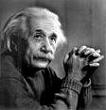

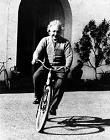








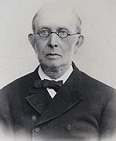










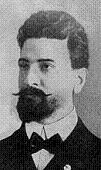
































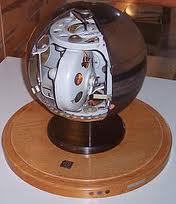

















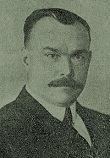
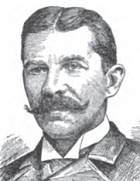


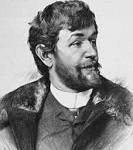











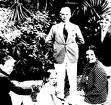
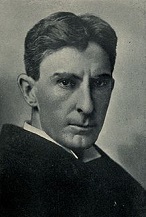





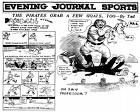




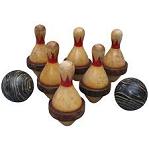



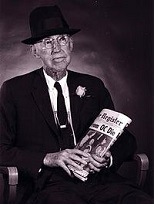
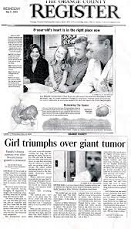
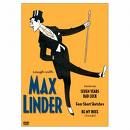
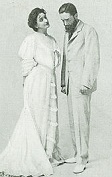
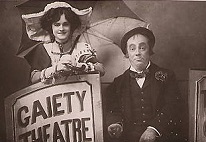
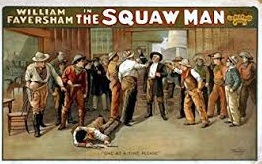
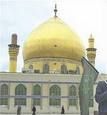




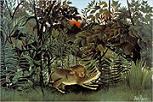










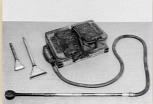
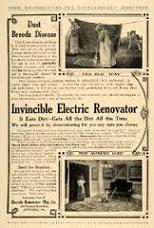


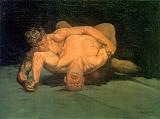
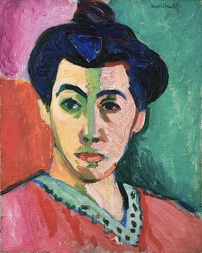
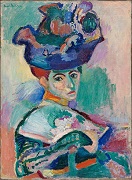
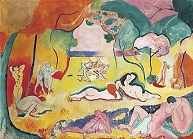
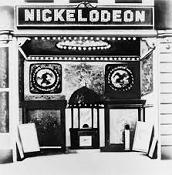
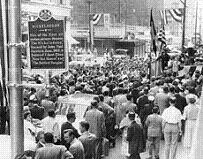
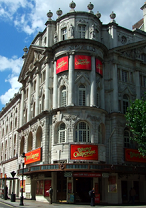
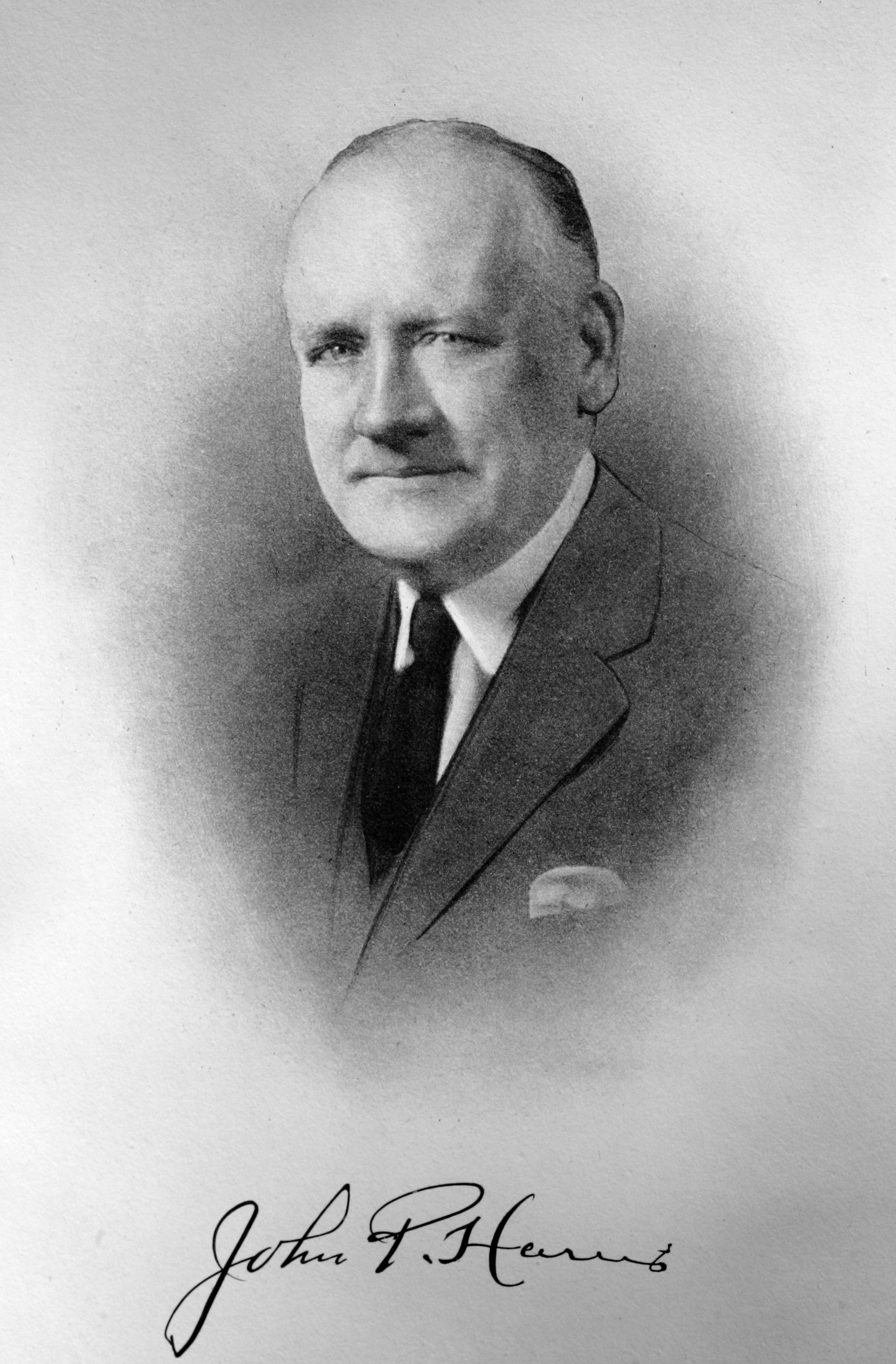
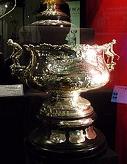
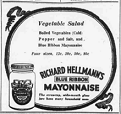
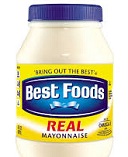
1905 Chinese Year: Snake. The Czarist regime in Russia starts to topple when the Japanese kick their butts and it kicks its own citizens' butts? On Jan. 2 (9:00 p.m.) a letter from Russian Gen. Baron Anatoly Mikhaylovich Stessel (Stoessel) (1848-1915) formally surrendering Port Arthur (sieged since Aug. 1, 1904) by Japanese Gen. Count Nogi Maresuke (Kiten, Count Nogi) (1849-1912), and on Jan. 22 (Jan. 9 Old Style) (Sun.) a rev. breaks out in Russia for the first time in St. Petersburg, becoming known as Bloody (Red) Sunday after thousands of peaceful demonstrating Russian workers led by Russian Orthodox priest Father Georgi Apollonovich Gapon (1870-1906) are fired on by imperial army troops as they approach the Winter Palace, killing 70 and wounding 240, starting a bloody spiral that can only end with the tsar's head on a platter?; on Mar. 3 the tsar announces a consultative assembly, an edict of religious toleration, permission to use the Polish language in Polish schools, relief for Jews, and part-cancellation of redemption payments; this doesn't stop his pigs from arresting Polish writer Stefan Zeromski (1864-1925), who ends up in exile in France and Austrian Galicia until 1918. On Jan. 17 French PM (since June 7, 1902) Emile Combes resigns after he and the Radical Party of France, citing the Roman Catholic Church's role in framing Christ-killer, er, good Jewish Frenchman Alfred Dreyfus push Church-State Separation Laws, written by Aristide Briand (1862-1932), which are soon passed, recognizing Islam as a religion, tolerating Muslims for the first time; by the end of the cent. Islam becomes the #2 religion in France in number of worshippers - Clovis I and Charles Martel roll over in their graves? On Jan. 19 the 3,106 carat (1-1/3 lb.) Cullinan Diamond is discovered in the Premier Mine in South Africa 20 mi. E of Pretoria (discovered by Sir Thomas Cullinan and opened in 1903), embedded in the wall of the 30-ft.-deep mine pit, and cut out by the mgr. with a penknife, becoming the largest known diamond (until ?); it is brought back to England this year, changes hands several times, is given to King Edward VII on his 66th birthdayat the orders of PM (since May 31, 1910) Louis Botha, and cut into nine large and 96 small gems weighing 1,063 carats total, incl. the 530.2 carat Great Star of Africa (Cullinan I), the largest cut diamond in the world, placed into the British Royal Scepter (made in 1661), which is worn by the monarch during the coronation on the right hand. On Jan. 27 the 1905 U.S. Senate election reelects Ind. Rep. Sen. (since 1899) Albert Jeremiah Beveridge (1862-1927), who turns reformer, backing overseas imperialism, nat. child labor regulation, and the 1906 U.S. Federal Meat Inspection Act, breaking ranks with Pres. Taft over the Payne-Aldrich Tariff; after losing his seat in the 1910 election, he joins the short-lived Progressive "Bull Moose" Party of Theodore Roosevelt in 1912, ruining his career; despite a reform candidate running against him, his popularity with the working man causes corrupt San Francisco, Calif. mayor #26 (since Jan. 8, 1902) Eugene Edward "Handsome Gene" Schmitz (1864-1928), puppet of city boss Abraham "Abe" Ruef (1864-1936) to be reelected (until July 8, 1907), just in time for a big earthquake, which destroys Ruef's real estate empire and leaves them both open to prosecution. On Jan. 30 the U.S. Supreme (Fuller) Court rules unanimously in Swift & Co. v. U.S. that the Commerce Clause allows the govt. to regulate monopolies if it has a direct effect on commerce, helping Pres. Theodore Roosevelt destroy the Beef Trust, establishing the Stream of Commerce theory, which is superseded by Nat. Labor Relations Board v. Jones & Laughlin Steel (1937). On Feb. 18 Belgian Capt. Albert Paulis (1875-1933) and 20 men are captured by the Mangbettu, a 4K sq. mi. nation of cannibals next to the Belgian Congo; instead of being eaten, he hornswaggles Sultan Yembio to release them and give control of his domain to the king of Belgium by pretending to make the Moon disappear (he had learned of an 8:00 p.m. lunar eclipse from his almanac). On Feb. 20 the Japanese, led by Field Marshal Iwao Oyama (1842-1916) begin advancing toward the regional capital of Mukden (Shenyang), defeating the Russians on Mar. 10 in the Battle of Mukden (Shenyang) (first modern battle in history, with 400K Japanese against 350K Russians, and 200K+ casualties); on May 27-29 the Russian Baltic Fleet is destroyed by the Japanese fleet under "Father of the Japanese Imperial Navy" Adm. Togo Heihachiro (1848-1934) in the Battle of Tsushima Straits, discrediting the tsar's govt. On Feb. 23 the first Rotary Club service org. is founded in Chicago by Paul P. Harris et al. In Feb. the Armenian-Tatar Massacres begin in Baku when a Tatar (Azeri) schoolboy and shopkeeper are murdered by Armenians, triggering four days of fighting that kills 126 Tatars and 218 Armenians, causing the Armenians to blame the Russians; on May 11 Russian gov.-gen. (since 1904) Mikhail Nakashidze is assassinated by Dashnak( ARF) revolutionary Drastamat "Dro" Kanayan (1884-1956), and the Armenian Rev. Federation (ARF) begins regular massacres of Azerbaijanis, whipping-up and consolidating the Muslims of the Caucasus; by 1907 128 Armenian and 158 Azerbaijani villages are pillaged or destroyed, with 3K-10K killed, mostly Azerbaijanis. On Mar. 4 U.S. Pres. Theodore Roosevelt is inaugurated for a 2nd term (until Mar, 4, 1909) in the 30th U.S. Pres. Inauguration; this time he is sworn-in on the Bible; Ohio-born Charles Warren Fairbanks (1852-1918) becomes the 26th U.S. vice-pres.; after his inauguration slim-for-life-not Teddy goes to Glenwood Springs, Colo., setting up a temporary White House in the Hotel Colorado (built 1893), and begins hunting bears, bagging 10 along with three lynxes, posing on the hotel lawn with a big one to the amusement of his daughter Alice, who suggests the name Teddy Bear; some maids later claim they helped him coin the name; some claim it comes from a cartoon by Clifford Berryman in The Washington Post of Nov. 16, 1902, about his bear hunting trip in Miss.; on July 1 he appoints Charles Joseph Bonaparte (1851-1921) (grand-nephew of Napoleon) as U.S. navy secy. (until 1906), then U.S. atty.-gen. on Dec. 16 of next year (until 1909), who goes on to found the Federal Bureau of Inquisition (precursor of the FBI) in 1908, and the Am. Protective League - secret Jesuit-run agencies to spy on U.S. anti-Catholics for the Vatican, who backed Napoleon Bonaparte? In Feb. the Socialist weekly Appeal to Reason begins pub. a serial novel by Upton Sinclair (1878-1968) of Baltimore, Md. titled The Jungle, which was commissioned after the failed 1904 Chicago stockyard strike, and written after a 7-week visit. On Mar. 17 Harvard grad. Franklin D. Roosevelt (b. 1882) marries Anna Eleanor Roosevelt (1884-1962) (the brains of the two?); they have 5 sons and 1 daughter. On Mar. 31 the First Moroccan (Tangier) Crisis (ends May 1906) begins after French foreign minister (since 1898) Theophile Delcasse (Théophile Delcassé) (1852-1923) excludes Germany from the Moroccan negotiations, causing Count Bernhard von Bulow and foreign advisor (1890-1906) Friedrich August von Holstein (1837-1909) to decide to make mineral-rich Morocco into a test of the Anglo-French Entente, and German Kaiser Wilhelm II makes his inflammatory Tangier Speech concerning his rivalry with France over Morocco, leading to the fall of Delcasse after the French cabinet rejects his hasty proposal to form an Anglo-French front against Germany without Russia's backing and with only hazy correspondence with the Brits on May 17 and May 25; on Apr. 6 von Bulow falls ill in the Reichstag, causing Lord Fitzmaurice of Britain to compare him to Lord Chatham (a compliment); on June 5 Opportunist Maurice Rouvier (1842-1911) disses Delcasse for imprudence over Morocco, and after a heated discussion Delcasse resigns, and Rouvier succeeds him, attempting to avoid a rupture with Germany; on June 6 (no coincidence) Bulow recovers, and is raised to prince (to become equal to Bismarck) on the occasion of the marriage of the crown prince, while the world is rocked by Germany's humiliation of the French; on July 8 after the U.S. agrees to back them, Rouvier meets with Germany, securing an agreement accepting the internat. conference proposed by the sultan of Morocco on the assurance that Germany will recognize the special nature of the interest of France in maintaining order on the frontier of its Algerian empire; after lengthy discussions a new convention results on Sept. 28 which contains the program of the proposed conference, and in Dec. Rouvier makes a statement of the whole proceedings in the chamber, receiving the assent of all parties, setting a new conference for next Jan., giving the French some time to get their soggy ducks in a row. On Apr. 17 the U.S. Supreme Court rules 5-4 in Lochner v. New York that mandatory limits to working time violate the 14th Amendment due process clause, which contains "the right and liberty of the individual to contract", launching the free market-friendly Lochner Era, in which the Supreme Court invalidates several state and federal statutes attempting to regulate working conditions incl. min. wage, federal child labor laws, and banking, insurance, and transportation regulations, which Robert Bork calls "the symbol, indeed the quintessence, of judicial usurpation of power"; it ends with the New Deal case West Coast Hotel Co. v. Parrish (1937); "You go to a case like the Lochner case, you can read that opinion today and it's quite clear that they're not interpreting the law, they're making the law." (John Roberts) On May 8 the Russian Union of Unions under Prof. Pavel Nikolayevich Milyukov (1859-1943) unites the liberal groups in a demand for parliamentary govt. and universal suffrage, while unrest and disorder spread through Aug. A giant grid with a city on top that shakes all the money out of people's pockets and funnels it to the lucky casino owners down below? On May 15 after 110 dusty acres in the Mojave Desert near the Union Pacific Railroad tracks are auctioned off, the city of Las Vegas, Nev. (Sp. "las vegas" = the meadows) (modern-day pop. 630K/2.4M) is founded; it is incorporated on Mar. 16, 1911; in 1931 Nev. legalizes casino gambling and reduces residency requirements for divorce to 6 weeks; in 1935 nearby Hoover Dam is completed; on Apr. 3, 1941 the Pair-o-Dice Club becomes the first casino built on the Las Vegas Strip (named after the Sunset Strip in Los Angeles), attracting New York City mobsters incl. Bugsy Siegel, who opens The Flamingo in 1946, causing the city to become known as "Sin City", "the City of Lights", and "The Gambling Capital of the World", going on to invite top entertainers incl. Wayne Newton, Dean Martin, Sammy Davis Jr., and Elvis Presley to perform, causing it to become known as "the Entertainment Capital of the World", combining it with quickie marriages, making it "the Marriage Capital of the World"; in 1955 the famous Welcome to Las Vegas Sign is located outside the city by Betty Willis; the mobsters later bow to corporate-funded mega-resorts, starting with The Mirage in 1989, making it "The Silver City", and "America's Playground"; in 1959 the Fremont Street Experience opens in a 5-block area of downtown known as Glitter Gulch, featuring 12.5M lights and 500MW shows held each hour from dusk until midnight; the town's ad slogan is: "What happens in Vegas stays in Vegas". On June 12 the Lincoln Nat. Life Insurance Co. is founded in Ft. Wayne, Ind., receiving permission from Abraham Lincoln's only surviving child Robert to use the family name, which causes the co. to take off, after which they set up the Lincoln Historical Research Foundation in 1928, followed by the Lincoln Museum in Ft. Wayne Ind. in 1931, housing the largest private collection of Lincoln artifacts, and the largest public or private collection until 2005. On June 13 the crew of the Russian battleship Potemkin kills their cmdr. Capt. Golikov, throws his corpse overboard. and mutinies over conditions on the ship. On June 19 the Nickelodeon (nickel + Odeon, the 18th cent. enclosed theater in Paris, also the Greek word for theater) is opened in a vacant storefront at 433-35 Smithfield St. in Pittsburgh, Penn. by John Paul Harris (1871-1926) (owner of the Harris Comedy and Specialty Co., who showed the first moving picture in Pittsburgh in 1897) and his brother-in-law Harry Harris, becoming the first theater in the world devoted exclusively to moving pictures, open 7 days a week from 8 a.m. to midnight, with customers sitting on folding chairs watching movies shown on a muslin curtain, becoming a big hit, with 450 visitors on day 1 and 1.5K on day 2 lining up to see a 15-min. picture show for 5 cents, launching a nickelodeon boom across the U.S.; by 1907 there are 2.5K nickelodean theaters in the U.S., and 8K in 1908, and by 1910 26M visit them each week, causing all kinds of sex problems with hanky-panky in the darkened theaters. On June 29 The Automobile Assoc. (AA) in London, England is founded. In July 2 Bolshevik printers in St. Petersburg, Russia demand to be paid the same rate for punctuation marks as for letters, forming a trade union, followed by another in Moscow on Oct. 31. On July 5 former (#2) PM Alfred Deakin becomes the PM #5 of Australia (until Nov. 13, 1908). On July 8 Calif. sets a record high avg. temp of 104F (until ?), with more than half the state above 105F and more than a third 110F or above; Orland in N Calif. is 120F; CO2 concentration is 300 ppm. On July 24 after mutual yacht visits, the secret mutual defense accord Bjorko (Björkö) Treaty (Treaty of Koivisto) is signed by the kaiser and the tsar, resurrecting the Oct. 1904 alliance but confined to Europe, and to take effect only after Russian-Japanese peace; it is scuttled in Oct. when Russian statesmen Sergei Witte and Count Vladimir Lamsdorf return from Portsmouth, learn about, it, and argue that it's invalid unless France signs it, pissing-off Kaiser Wilhelm II, who utters the soundbyte: "We joined hands and signed before God, who heard our vows!... What is signed is signed, and God is our testator!"; if Nicholas II hadn't listened to Witte and Lamsdorf "the whole history of Europe and the world could have been different" (Annika Mombauer and Wilhelm Deist). On July 27 the Taft-Katsura Agreement allegedly conceals a secret pact to carve out spheres of influence for Japan and the U.S. and maintain peace in the event of a Japanese V over Russia; the U.S. recognize the Japanese sphere of influence in Korea, while Japan recognizes the U.S. sphere of influence in the Philippines. On Aug. 12 the Anglo-Japanese alliance is renewed for 10 years, and is extended to incl. India, and is modified to provide for mutual support in case of attack by only one other power at a time. I'm giving you peasants your own assembly, Duma, Duma, I'm giving you dumbasses your own assembly, oh Duma day? On Aug. 19 the Russian tsar issues the Duma Manifesto, creating the Duma (imperial assembly), but the limited franchise and lack of powers only fans the rev. fervor. On Aug. 28 French agricultural laborer Jean Lafray (1873-1906) of Commugny, Switzerland gets drunk on hard liquor, wine, and 2 oz. of absinthe, then murders his pregnant wife and two children, causing protests and a petition signed by 82K that causes absinthe to be banned in Vaud; in 1908 it is banned in all Switzerland, followed by most Euro countries, and the U.S. in 1912; in 2007 after it is proved not to contain hallucenogenic chemicals, it is relegalized in the U.S.; it was really a conspiracy by winemakers to get rid of competition? On Aug. 28 hoping to pay off a $1.7K debt, Merritt Memorial Church (founded 1902) at W. 23rd Ave. and Irving St. in Denver, Colo. (1 diagonal block from TLW's future home in 1982-2010 at 22nd. and Hooker St.) hosts a lecture on the bright side of life at Libby Prison during the Civil War. On Sept. 1 the huge Canadian prairie provinces of Alberta (120-109 W long.) (255.3K sq. mi.) (capital Edmonton) and Saskatchewan (109-104 W long., 49-60 N lat.) (251.7K sq. mi.) (capital Regina) enter the Canadian Confederation as the 8th and 9th provinces. They were made for each other, blini and sake? On Sept. 5 defeated Russia signs the Treaty of Portsmouth at the Portsmouth Naval Shipyard in Portsmouth, N.H. (first U.S. city to host the formal conclusion of a foreign war until ?), mediated by Pres. Teddy Roosevelt (who wins the 1906 Nobel Peace Prize for it), ending the Russo-Japanese War (begun Feb. 8, 1904), and becoming the first Asian V over a Western power in modern history, giving control of Manchuria to China, and control of Korea to Japan, bringing peace between Japan and Russia for four decades; Japanese foreign minister Jutaro Komura (1855-1911) is chief Japanese rep.; the Anglo-Japanese alliance is renewed for 10 years; Japanese Field Marshal Iwao Oyama becomes a bigger hero than ever, and is given the rank of prince in 1907. On Sept. 12 Japanese pre-dreadnought battleship Mikasa (launched Nov. 8, 1900) explodes and sinks in Sasebo Harbor, killing 599, after which it is salvaged and ends up becoming the last pre-dreadnought battleship on Earth, housed in a museum at Mikasa Park in Yokosuka. On Oct. 4 Orville Wright breaks the half-hour barrier by keeping it (his craft) up for 33 min. 17 sec. Tough meets classy in Russia? On Oct. 6 (Sept. 24 Old Style) the Russian Gen. Strike begins with printers in Moscow, joined by rail workers on Oct. 19, and telegraph workers on Oct. 22, becoming a gen. strike on Oct. 25; on Oct. 26 the First Soviet (Council) of Workers' Deputies in St. Petersburg is formed to direct it, ending it on Nov. 3 after old fart reactionary Konstantin Petrovich Pobedonostsev (1827-1907) and other ministers are forced to resign, and Tsar Nicholas II takes the advice of Count Sergei Witte (1849-1915) to promise reforms, and on Oct. 30 issues the October Manifesto, granting Russia a constitution along with an imperial Duma with legislative power, an extended franchise, and civil liberty guarantees, with Witte as PM; meanwhile on Oct. 30 (Oct. 17 Old Style) the St. Petersburg Soviet prints the first issue of the newspaper Izvestia (Russ. "news"); many liberals bite and join the conservative govt. ranks, on Oct. 26 forming the Octobrist Party (Union of October 17), but the holdouts, incl. nobles and scholars form the more radical Constitutional Dem. Party (K.D.) (Cadets), and the more radical Social Dems. reject the whole govt. program, while the yet more radical St. Petersburg Soviet opens branches in new cities and attempts to organize another strike; meanwhile on Oct. 31 Bolshevik activist Nikolai Ernestovich Bauman (b. 1873) is killed in street fighting, triggering a street war between right and left; meanwhile in Oct. the Peasant Union of the Volokolamsk District creates the independent Markovo Repub. 90 mi. from Moscow (crushed in July, 1906); religious Russian poet Dmitri Sergeyevich Merezhkovsky (1866-1941) declares the rev. a religious happening, with himself as the prophet. On Oct. 9-14 the New York Giants (NL) (mgr. John McGraw) defeat the Philadelphia Athletics (mgr. Connie Mack) (AL) 4-1 to win the Second (2nd) World Series of baseball; triple crown-winning Giants pitcher Christopher "Christy" "Matty" Mathewson (1880-1925) (known as "the Christian Gentleman" because he never pitches on Sunday) pitches a 4-hit shutout in Game 1, then another in Game 3, followed by a 6-hit shutout in Game 5 (3 complete games pitched without allowing a run), becoming the greatest ML playoff performance until ?; the first WS played as best-of-7, and first consisting entirely of shutouts (Giants team ERA = 0.00); Game 3 sees the first steal of home in the 5th inning by Giants shortstop William Frederick "Bad Bill" Dahlen (1870-1950); the Athletics become the first team to lose a WS game on an unearned run 1-0. On Oct. 22-24 the Meat Riot (Revolt) in Chile caused by inflated prices due to tariffs on cattle imports from Argentina sees protestors storm the pres. palace, with 250 killed; week-long urban labor riots in Santiago, Chile are retaliated against by the govt., which arms landowner youths to massacre hundreds. On Nov. 1 Count Sergei Witte forms a cabinet, offering the Cadets posts, which they refuse; on Nov. 2 the funeral of Bolshevik N.E. Bauman causes yet more demonstrations and street fighting; on Nov. 5-6 the Kronstadt Mutiny, followed on Nov. 9-10 by the Vladivostok Mutiny show that Russia's devilish side is still exposed; on Nov. 19-25 the Peasants Union holds a conference in Moscow demanding a constituent assembly, land distribution, and political union of peasants and urban workers; on Nov. 11 the fascist anti-Semitic Union of Russian People is created by A.I. Dubrovin, funded by govt. officials; on Nov. 27 the Moscow branch of the Peasants Union is arrested by the govt, triggering a telephone/telegraph workers strike on Nov. 29. On Dec. 5 after a landslide, Scottish-born Liberal Sir Henry "CB" Campbell-Bannerman (1836-1908) becomes British PM (until Apr. 5, 1908), becoming the last election in which the Liberals gain a majority in the Commons (until ?); on Dec. 10 the title of Prime Minister (PM) is officially recognized in Britain by Edward VII, replacing the title of first minister (first lord of the treasury); he becomes known as "Britain's first and only radical Prime Minister", appointing Liberal MP (1885-1911) Richard Burdon Sanderson Haldane, 1st Viscount Haldane of Cloan (1856-1928) (friend of Herbert Henry Asquith, and uncle of biologist J.B.S. Haldane) as war secy., who begins preparing the British army for a possible Euro war by establishing the British Expeditionary Force (BEF), the Imperial Gen. Staff (1908), the Officer Training Corps (1908), and the Special Reserve (1907); on Dec. 10 Edward Marjoribanks, 2nd Baron Tweedmouth (1849-1909) (husband of Lady Fanny Spencer-Churchill, Winston Churchill's aunt) is appointed First Lord of the Admiralty (until Apr. 12, 1908); too bad, in early 1908 he is called on the carpet for private correspondence with Kaiser Wilhelm II on the British naval program, and has to go. On Dec. 6 the tsar introduces Provisional Rules, abolishing some aspects of censorship while introducing harsher penalties for those praising "criminal acts". On Dec. 8 Georgy Stepanovich Khrustalev-Nosar, head of the St. Petersburg Soviet is arrested, causing it on Dec. 9 to elect a triumvirate to replace him that incl. Leon Trotsky (1879-1940), and to appeal to the armed forces to support them. On Dec. 10 Liberal Sir Edward Grey (1862-1933) becomes British foreign secy. (until Dec. 10, 1916), becoming the longest holder of that office until ?; on Dec. 13 he tells Russian ambassador Count Alexander Benckendorff that he supports the idea of an agreement in order to maintain a balance of power, and conducts secret negotiations with the French for ditto. On Dec. 11 Rivadavia, Argentina sets a South Am. record high temp of 120 F (49 C). On Dec. 16 after the Socialist Dems. begin handing out weapons, Russian PM Sergei Witte has the 190 members of the pesky St. Petersburg Soviet arrested, leading on Dec. 23 to the Moscow Worker Insurrection (Uprising), which is bloodily suppressed by Dec. 28 by the loyal Russian army and the far-right monarchist Black Hundred, who stage punitive raids, after which the old police state returns bigtime along with an army sweep across Russia to crush dissent, while on Dec. 24 Russian's urban pop. and workers are thrown a bone with electoral changes giving them the franchise, while Little Nicky II and his son accept honorary membership in the Union of the Russian People; meanwhile Witte arranges a $400M loan from France and Britain to avoid having to beg the Duma for money to run the govt.; many Jews flee to Germany, where they are given refuge. On Dec. 16 weekly entertainment trade mag. Variety begins pub. in New York City by Cortland, N.Y.-born Jew Sime Silverman (1873-1933), going on to coin the term "pix" in 1932; in 1933 Daily Variety begins pub. to cover the motion picture industry in Los Angeles/Hollywood, after which Sime dies of a heart attack on Sept. 23 at the Ambassador Hotel. On Dec. 30 former Idaho gov. (1897-1901) Frank Steunenberg (b. 1861) is killed by a bomb rigged to the gate of his house in Caldwell, Idaho by radical miner Albert Edward Horsley (1866-1954) (AKA Harry Orchard), who tries to implicate radical leaders of the Western Federation of Miners (WFM) and later claims a religious conversion, and despite a confession is found not guilty by a jury, then changes his plea to guilty in Mar. 1908 and receives a death sentence, which is commuted by Idaho Gov. Gooding to life in prison. Louis Botha and his Het Volk Party protest the govt. in Transvaal and the new constitution. Orthodox Christian Greeks in Crete battle Muslim Turks. Prince Nicholas I of Montenegro decrees the end of autocratic govt., and grants a liberal 1905 Montenegran Constitution with a parliamentary govt. After sitting out the Russo-Japanese War and the 1905 Rev., Vladimir Lenin returns to Russia at the end of the year, staying in St. Petersburg (until 1907). William Dudley "Big Bill" Haywood (1869-1928) (Western Federation of Miners), Daniel De Leon (1852-1914) et al. found the Internat. Workers of the World (IWW) (AKA the Wobblies) in the U.S. You go norway, I'll go mine? On June 7 after the Norwegian Parliament decides to end the artificial union between Norway and Sweden established during the Napoleonic Wars, king (since Sept. 18, 1872) Oscar II (1829-1907) becomes king of Sweden alone (until Dec. 8, 1907), and on Nov. 18 Haakon VII (1872-1957) becomes king of Norway (until Sept. 21, 1957), with his stylish-dressing English-born wife Maud of Wales becoming queen consort Maud (1869-1938) (until Nov. 20, 1938), becoming the last coronation of a Scandinavian monarch. King Chulalongkorn (Rama V) of Siam abolishes slavery. Western-educated brain man Sun Yat-sen (1866-1925) founds a union of secret societies to kick the Manchus out of China. Liberal Lord John Morley, Viscount Morley of Blackburn (1838-1923) becomes British secy. of state for India (until 1910). Gifford Pinchot (1865-1946) becomes the first dir. of the new U.S. Forest Service (formerly the Forestry Div. of the Dept. of Agriculture) (until 1910), with his motto being "The greatest good for the greatest number in the long run"; he soon begins a war with John Muir over preservation vs. conservation (controlled renewable use), preferring the latter. The Salton Sea, a salty lake in SE Calif. is formed by overflow of water from the Colorado River through a badly-designed irrigation canal near Yuma, Ariz. to the Imperial Valley, submerging 2K sq. mi. before being controlled by Feb. 1907; a 2nd break occurs in 1910 flowing into the Paredones River 15 mi. downstream, threatening Volcano Lake before it is fixed. Israel Zangwill founds the Jewish Territorial Org., which seeks to find new territories for Jews to get them out of the ghettos, but not necessarily Ottoman-controlled Palestine, and begins working with German-born Am. Jewish philantrophist Jacob Henry (Hirsch) Schiff (1847-1920) to find a home in the vast de-Indianized U.S. hinterland; meanwhile Schiff loans Japan $200M to fight Russia to get them for their anti-Semitic Tsarist pogrom regime, and when Japan wins, anti-Semitic forces jump on his case, pointing to him as proof of a worldwide Zionist conspiracy, which is helped by his being invited to a private audience with Edward VII of England in 1904, and being the first foreigner to be awarded the Japanese Order of the Rising Sun by Emperor Meiji in 1907 - the State of New Israel in Arizona or New Mexico would be nice? Northampton, Mass. atty. (Amherst grad.) Calvin Coolidge (b. 1872) marries Grace Anna Goodhue (1879-1957); they have 2 sons and no daughters. Pres. Roosevelt is so impressed with young destitute poet Edwin Arlington Robinson (1869-1935) and his 1890-7 poem The Children of the Night that he gets him a clerkship in the New York Custom House, telling him, "I expect you to think poetry first and customs second"; he keeps the job for four years while launching his successful career. Korean nationalists found the religion of Chundo to counter pro-Japanese sentiments. Edward VII bestows the title of Royal on the Canadian Mounted Police (Mounties). The Inst. of Musical Art, later known as the Julliard School (originally Inst. of Musical Art) is founded in New York City, named after philanthropist Augustus D. Juilliard (1836-1919). The Nat. U of Singapore (originally King Edward VII College of Medicine until Oct. 8 1949, U. of Malaya, Singapire until 1962, and U. of Singapore until 1980) is founded by Tan Jiak Kim. The Carnegie Foundation for the Advancement of Teaching is founded with a $10M gift from Andrew Carnegie with the mission to "uphold and dignify the profession of the teacher and the cause of higher education within the U.S., Canada and Newfoundland"; the U.S. Congress charters it in Mar. 1906, and Carnegie pumps in another $20M. The Habima Theatre, a Hebrew-language theatrical group is founded in Moscow soon after the Russian revolt by actor-producer Konstantin Stanislavski (1863-1938) et al. The Orange County Register (originally the "Santa Ana Daily Register") daily newspaper is founded in Santa Ana, Calif. by a consortium, which sells it in 1906 to J.P. Baumgartner, who sells it in 1927 to J. Frank Burne, who sells it in 1935 to Alliance, Ohio-born libertarian Raymond Cyrus "R.C." Hoiles (1878-1970), who drops the "Daily" from the title and opposes internment of Japanese-Ams. in WWII, founding Freedom Newspapers Inc. (later Freedom Communications) in 1950, which advocates a U.S. pullout from the U.N., opposes public schools, and finds the views of Repubs. Dwight D. Eisenhower and Robert A. Taft too liberal; in 1952 it drops "Santa Ana" from the title; in 1959 it adds a morning ed.; in 1986 it begins pub. in full color; in 1985 it assumes its modern name after winning its first Pulitzer Prize for coverage of the 1984 Summer Olympics in Los Angeles, followed by two more in 1989 and 1996; in 1990 it launches the 24-hour OCN news channel (until 2001); in 1992 it launches Excelsior (Excélsior), a Spanish language weekly, with a circ. of 51K to serve Orange County's Hispanic pop. of 1M; it goes on to continue its libertarian heritage, opposing the Iraq War and laws regulating prostitution, drug use, and gay marriage, reaching a modern-day circ. of 250K daily and 311K Sun. The Atlanta Life Insurance Co. is founded in the Sweet Auburn district of Atlanta, Ga. on Auburn Ave. ("the richest negro street in the world" - Fortune mag., 1956) by black businessman Alonzo Herndon (1858-1927), becoming the largest black-controlled stockholder life insurance co. Nora Stanton Blatch Barney (1883-1971) becomes the first woman in the U.S. to obtain a degree in civil engineering. The Austin Motor Co. is founded in Northfield (near Birmingham), England in the summer by Herbert Austin (1866-1941), starting with a 5-liter 4-cylinder chain drive auto, growing to 22K employees in WWI. The first motor buses begin operation in London, England; next year the Piccadilly and Bakerloo underground (subway) lines begin operation. Cars can now be purchased on the installment plan in the U.S. Harvey Samuel Firestone (1868-1930) obtains a large order for his Firestone Tire and Rubber Co. from Ford Motor Co. to make tires for the Model T, making him one of America's best known industrialists by the 1920s, going on camping trips with Henry Ford and Thomas Edison. Am. cartoonist Thomas Aloysius "Tad" Dorgan (1877-1929), the most prolific coiner of new slang terms in U.S. history uses the term "hot dog" in the cartoon of the same name for what had until then been called dachshund sausages, popularly thought to be made from dog meat (because he can't spell dachsund?), based on observations of English-born vendor "Scorecard Harry" Mosley Stevens (1855-1934) (inventor of the baseball scorecard) at the New York Polo Grounds, home of the Giants; actually the term goes back to at least 1884, and the earliest known cartoon of his with the term is about a bike race at Madison Square Garden on Dec. 12, 1906, but he always gets the credit for new Am. slang, 23-skidoo? Am. X-ray technician Elizabeth Fleischman Ascheim (b. 1859) becomes the 2nd (1st female) fatality from X-ray exposure, contracting skin cancer, which causes one arm to be amputated at the shoulder, followed by death. The U.S. Federal Insect Pest Act prohibits importation of live injurious insects to the U.S. The word "smog" is coined.
Speaking of injurious insects and smog? The German (Internat.) Society for Racial Hygiene is founded on June 22 in Berlin by physician Alfred Ploetz to return the Nordic race "to a healthy and blooming, strong and beautiful life" through sterlization and selective breeding, becoming the first white supremacist eugenics society; gains support of the German govt., spawning numerous orgs. in other countries, incl. England (1907) and Nordicland Sweden (1909); honorary members incl. Ernst Haeckel. Mt. Wilson Observatory on 5.7K-ft. Mt. Wilson in the San Gabriel Mts. of Calif., named after Los Angeles, Calif. mayor (1851-2) Benjamin Davis "Don Benito" Wilson (1811-78) (grandfather of U.S. Gen. George S. Patton Jr.) is completed for solar studies, with a 100-in. reflecting telescope, later used to study stars and nebulae. The Aero Club of America is formed by Lowell, Mass.-born Charles Jasper Glidden (1857-1927) et al. to promote U.S. aviation, issuing the first U.S. pilot's licenses; in 1923 it becomes the Nat. Aeronautic Assoc. Jersey-born Am. psychic phenomena investigator Hereward Carrington (Hubert Lavington) (1880-1958) joins the staff of the Am. Society for Psychical Research, going on to spend his life investigating psychics and mediums. Annie Rix Militz (1856-1924) founds the New Thought org. Home of Truth in Calif. After Thomas Edison successfully defends his patent on motion pictures, the Motion Pictures Patents Co. (MPCC) is founded to force patent royalties out of the "Big Ten Studios" incl. Vitagraph, Melies, Pathe, and Selig, causing movie studios to move W to Calif. to make it harder to enforce them, relying on the lax enforcement of the 9th Circuit Court of Appeals in San Francisco; in Sept. 10 the Gen. Film Co. is formed by Edison to monopolize U.S. film distribution, becoming known as the Edison Trust; before the fall of the Edison Trust in 1915, films are distributed by two methods, the States Rights Method, where a copy of a film is sold to a salesman at 10 cents a foot, who then makes as much money as he can until it falls apart, and the Road Show Method, where it's featured in a theater with advertising and reserved seating, and the producer collects the gate. Alexander Khanzhonkov (1877-1945) begins producing films in Moscow, becoming the #1 filmmaker in Russia, with 100 films by 1919; too bad, after moving to Yalta on the Crimea in 1917 and producing about 15 films, his studio and land are confiscated by the Communists in 1920. Mary Lemist Titcomb (1857-1932) operates the first bookmobile in Md. 13-y.-o. Hungarian Jewish violinist Joseph Szigeti (1892-1973) makes his debut in Berlin playing Bach's "Chaconne in D minor" et al.; too bad, there are so many musical prodigies that it barely makes the newspapers, and he doesn't make his U.S. debut until 1925 at age 33, and develops arthritis in his hands in the 1950s just when he's getting famous? Paul Fort founds the French symbolist mag. Vers et Prose, which he edits until 1914. French comedian Max Linder (Gabriel-Maximilien Leuvielle) (1883-1925) begins starring in films for Pathe in Louis Gasnier's The Legend of Punching, becoming the first internat. film star with his onscreen persona "Max" in 1909, with fans incl. Tsar Nicholas II and George Bernard Shaw, becoming a dir. of his own films, with a salary of 1M francs a year in 1912, causing Charles Pathe to call him "the Napoleon of the Cinema", giving Maurice Chevalier his start; after serving in WWI in 1914-15 entertaining troops, he is invited to Essanay Studios by George K. Spoor in 1916 at $5K/week to replace Charlie Chaplin (whom he moves in next door to, becoming friends, with Chaplin calling himself his disciple), making three films, all of which bomb, causing the remaining nine to be canceled, throwing him into depression; on Oct. 31, 1925 after bungling a suicide attempt at a hotel in Vienna in early 1924, he commits suicide along with his wife (since 1923) Helene "Jean" Peters (b. 1899) in their room on the 4th floor of the Hotel Baltimore in Paris after watching a theatrical production of "Quo Vadis?", which features a suicide scene by Nero and his servant Acte. William N. Selig sends dir. Francis W. Boggs to Los Angeles to film new titles, and after scouting the area out they settle in Sycamore Grove in Highland Park, Calif. in NE Los Angeles, with actors Charlie Chaplin et al. hanging out at the Mount Washington Hotel; by 1910 they move to Edendale. The Fauvist (Les Fauves) (Fr. "wild beasts") movement in art begins, dedicated to using intense color, led by French artist Henri Matisse (1869-1954), who starts out by painting his wife with a green stripe over her face. German expressionist painter Erich Heckel (1883-1970), an admirer of Edvard Munch founds Die Brucke (The Bridge) artist community in Dresden to bridge between traditional neo-Romantic German art and modern expressionist painting; too bad, in 1937 the Nazis proclaim him "degenerate", and destroy most of his work. Albert Verwey (1865-1937) of the Dutch Eightiers founds De Beweging (The Movement) (until 1919), fostering a new gen. of Dutch lit. rebels. Sir Thomas Beecham (1879-1961) makes his debut as a conductor in London. Failed lesbian actress-turned-interior-decorator Elsie de Wolfe (1865-1950) does Stanford White's Colony Club at 120 Madison Ave. at 30th St., which becomes the #1 women's social club, later becoming the home of the Am. Academy of Dramatic Arts. The comic strip Little Nemo in Slumberland debuts in the U.S. (until 1914), by Winsor McCay (1867-1934), who goes on to produce cool animated cartoons of it, plus Gertie the Dinosaur, setting the bar for later animators incl. Walt Disney. P.A. Geier Co. is founded in a garage in Cleveland, Ohio by Philip Geier to market household appliances; in 1937 they introduce the Princess (Royal Prince), "the industry's first hand-held vac"; in WWII they make military parts; in 1953 they go bankrupt and are acquired by Walter E. Scott Org. (owner of the Cincinnati Reds ML baseball team) and renamed Royal Appliance Mfg Co., marketing the first household vacuum with a metal case and patented Cyclone system in 1955, selling 25M units; in the 1980s they begin selling Dirt Devil vacuum cleaners with plastic cases, and finally make it big with the Dirt Devil Hand-Held Vac in 1984, becoming #3 behind Hoover and Eureka until the 1990s. German immigrant Richard C. Hellmann (1876-1971) from Vetschau (near Berlin), Germany opens a deli in New York City, using mayonnaise in many of his salads that becomes popular, building a factory and mass-marketing Hellmann's Blue Ribbon Mayonnaise on Sept. 1, 1912, with the motto "Bring out the best", which is sold on the U.S. East Coast; in 1920 the New York Tribune rates it the best mayonnaise, noting that it has more oil (85%) than the other brands; in Aug. 1927 after reaching $15M/year sales, he sells out to Postum Foods (later Gen. Foods) and retires, and in 1932 after Best Foods of Calif. begins selling a competing version, it sets up a deal where Best Foods is sold W of the Rocky Mts. and Hellman's E of the Rockies; in 1958 Corn Products Refining Co. acquires Best Foods, becoming CPC Internat. in 1969; in 1960 both brands use the blue ribbon logo; in 1997 CPC Internat. splits into Bestfoods and Corn Products Internat.; in 2000 Bestfoods is acquired by Uniliver; by 2007 the two products are nearly identical, with Best Foods using more lemon juice. Wells Fargo and Co. founds the Wells Fargo Nevada Nat. Bank, later becoming the Wells Fargo Bank. The Austin Motor Co. in Longbridge (near Birmingham), England is founded by Sir Herbert Austin, 1st Baron Austin (1866-1941) to produce luxury cars that become hits with British and Russian nobility et al.; they also dabble in racing cars; in 1952 they merge with Morris Motors; the Austin marque is retired in 1987. Sports: On Jan. 2-Mar. 11 the 1905 Canadian Amateur Hockey League (CAHL) Season (7th and last) sees the Montreal Victorias win with a 9-1 record; after a rules dispute, no Stanley Cup game is played; on Jan. 13-16 after the Dawson City Nuggets travel 4K mi. by dogsled to Ottawa, the 1905 Stanley Cup Finals see the Ottawa Senators defeat the Dawson City Nuggets 9-2 and 23-2 (largest margin of victory until ?). In Mar. world boxing champ (since 1899) James J. Jeffries retires undefeated, and names Marvin Hart (1876-1931) ("the Kentucky Plumber") ("the Fightin' Kentuckian") (who defeated Jack Johnson in San Francisco earlier this year) and Bohemian-born Jack Root (Janos Ruthaly) (1876-1963) (who had already beaten him once) as leading contenders, agreeing to referee their title fight in Reno, Nev. on July 3, in which Hart KOs Root in the 12th round, becoming world heavyweight boxing champ #4 (until 1906). On May 8-June 22 the first Transcontinental U.S. Auto Race is run from New York City to the World's Fair in Portland, Ore., crossing the Oregon Trail by Oldsmobile. On July 31 the 1905 Kanchenjunga Expedition, consisting of Swiss physician Jules Jacot-Guillarmod (1868-1925), English occultist Aleister (Edward Alexander) Crowley (1875-1947) et al. sets out with 230 porters and three Kashmiri servants, making camp at Camp V on Sept. 1 at 6,200m, after on Sept. 2 an avalanche kills three porters and Alexis Pache, and the attempt fails, with cruel "Do what thou wilt" Crowley stealing the expedition funds and later claiming in his autobio. that they reached 7,620m, an altitude record not broken until the 1922 British Mount Everest expedition in 1922. On Aug. 30 Narrows, Ga.-born ("the Georgia Peach") Tyrus Raymond "Ty" Cobb (1886-1961), makes his ML batting debut with the Detroit Tigers, hitting a double in his first at-bat in a game against the New York Highlanders using a split grip; the Tigers win 5-3; he goes on to become the greatest player of the Dead Ball Era despite being hated for his meanness incl. sliding into bases feet-first with spikes bared, later becoming the first player elected to the Baseball Hall-of-Fame. On Oct. 9 after Boston, Mass.-born Harvard U. pres. (1869-1909) Charles William Eliot (1834-1926), ed. of the Harvard Classics, known for turning Harvard into an internat. research univ. and giving blacks W.E.B. DuBois et al. opportunities comes out in opposition to college football, calling it "a fight whose strategy and ethics are those of war", where "the weaker man is considered the legitimate prey of the stronger", concluding "no sport is wholesome in which ungenerous or mean acts which easily escape detection contribute to victory", causing The New York Times, Harper's mag., McClure's mag., and Nation mag. to back him up, calling for reform or outright abolishment of the sport, Pres. Theodore Roosevelt holds a meeting at the White House with Walter Camp, Bill Reid, and Arthur T. Hillebrand representing Yale, Harvard, and Princeton, talking them into saving the sport via rule changes; too bad, on Nov. 25 19-y.-o. Union College halfback Harold Moore is knocked-out in a game against NYU and dies of a cerebral hemorrhage six hours later, causing NYU pres. Henry MacCracken to call for protective headwear for athletes, and the Cincinnati Commercial Tribune to run the cartoon "Grim Reaper Smiles on the Goalposts" on Dec. 3, becoming known as football's first concussion crisis; on Dec. 28 after two White House conferences convened by Pres. Theodore Roosevelt to "encourage reforms" in college football to prevent injuries and deaths, followed by a meeting of 13 U.S. colleges and univs. organized by NYU chancellor Henry MacCracken, a meeting of 62 higher education institutions appoints the Am. Football Rules Committee, which convenes next Jan. 12, banning the flying wedge, creating the neutral zone, and increasing the distance for a first down from 5-10 yards; next Mar. 31 they form the Intercollegiate Athletic Assoc. of the U.S. (IAAUS), which changes its name to the Nat. Collegiate Athletic Assoc. (NCAA) in 1910; in 1921 it conducts the first NCAA nat. championship, the Nat. Collegiate Track and Field Championships; in 1939 it conducts its first basketball championship; meanwhile failing to abolish football, lame retro Eliot goes after baseball, basketball, and hockey, uttering the soundbyte: "I understand that a curve ball is thrown with a deliberate attempt to deceive. Surely this is not an ability we should want to foster at Harvard" - since I got in the loop I can see the future? On Dec. 11 the Eastern Canada Amateur Hockey Assoc. (ECAHA) amateur ice hockey league is founded by two teams from the Federal Amateur Hockey League (FAHL) and four from the Canadian Amateur Hockey League (CAHL), going pro for the 1908 season after the amateur Montreal Victorias and Montreal Hockey Club leave in protest for other teams using pro players, changing its name to the Eastern Canada Hockey Assoc., then dissolving in Jan. 1909 after poor game attendance; in 1906 the Arena Cup is donated by the Montreal Arena Co., made from 90 oz. (2.6kg) of sterling silver; in 1908 after winning it for three straight seasons, it is given to the Montreal Wanderers. Beals C. Wright (1879-1961) wins the U.S. Lawn Tennis men's singles title, and Elisabeth Holmes "Bessie" Moore (1876-1959) wins the women's singles. Tanya (1902-?) on ? becomes the 2nd filly to win the Belmont Stakes since Ruthless in its first running in 1867. The Columbia U. Lions men's basketball team is named the first nat. college basketball champions by the Helms Athletic Foundation after defeating Minnesota U. (27-15) and Wisconsin U. (21-15) and finishing with a 19-1 record; 5'9" Harold A. "Harry" Fisher (1882-1967) and team captain (Olympic cyclist) Marcus Latimer Hurley (1883-1941) are named to the first-ever 1905 College Basketball All-Am. Team. Honus Wagner becomes the first player to have his signature branded into a Louisville Slugger bat. The Mills Commission, chaired by Abraham Gilbert Mills (1844-1929) decides that U.S. Civil War Gen. Abner Doubleday invented baseball in 1839. The Internat. Bowling Board is founded to govern lawn bowling in Europe. The Ebonite, the first rubber bowling ball is created by Stowe Woodward Laboratory. William Wuerthele of Pittsburgh, Penn. invents Rubberband Duckpin Bowling by encircling duckpins with pieces of rubber to increase scoring; in the 1920s the Am. Duckpin Congress is founded, becoming the Am. Rubber Band Duckpin Bowling Congress in 1945; after becoming popular in Quebec, Canada, it becomes almost extinct elsewhere. Architecture: On May 4 Belmont Park in Elmont Hamlet, Hempstead, Nassau County, Long Island, N.Y. opens, becoming the home of the annual Belmont Stakes horserace, the third and final leg of the Triple Crown, held three weeks after the Preakness Stakes and five weeks after the Kentucky Derby. On May 22 the Novello Theatre (originally Waldorf Theatre, Strand Theatre, and Whitney Theatre until 1913) in Aldwych, Westminster, London (cap. 1,105) opens, owned by the Shubert Org. The sneaky-like-a-snake Shiite Askariya (El-Askari) Shrine in Samarra, 60 mi. N of Baghdad (built 836-944) is given a golden dome by Muzaffar al-Din Shah (1896-1907); the dome is blown up in 2006 by Sunnis during the U.S. Iraq War. The 45m-high El Hank Lighthouse is built in Casablanca, Morocco; renovated in 1914-17. Nobel Prizes: Peace: Bertha von Suttner (1843-1914) (Austria) (first woman to win Nobel Peace Prize, 2nd woman to win a Nobel Prize); Lit.: Henryk Adam Aleksander Pius Sienkiewicz (1846-1916) (Poland); Physics: Philipp Eduard Anton von Lenard (1862-1947) (Germany) [cathode rays]; Chem.: Adolf Friedrich Wilhelm Adolf von Baeyer (1835-1917) (Germany) [synthesis of organic dyes]; Medicine: Robert Heinrich Herman Koch (1843-1910) (Germany) [anthrax]. Inventions: The first recipe for Chocolate Brownies is pub. in the Boston Daily Globe on Apr. 2, attributing their origin to Bangor, Maine. The first commercial Espresso Machine is manufactured in Italy. German chemist Alfred Einhorn (1857-1917) uses Benzocaine to develop non-addictive Procaine, AKA Novocaine (Novocain) (Lat. "new" + caine meaning alkaloid used for an anesthetic); in 1907 German dentist Heinrich Friedrich Wilhelm Braun (1862-1934) introduces it into dentistry to replace addictive cocaine. The Popsicle is invented by 11-y.-o. Frank W. Epperson (1894-1983) of Calif. after leaving a frozen drink out over night with a stirring stick in it; he waits until the 1920s to go in biz with it, originally calling it Epsicle until his kids start calling it "pop's sicle"; it is patented in 1924. Walter Griffiths of Birmingham, England invents the first portable vacuum cleaner, with a flexible hose and interchangeable nozzles, worked by a single operator who has to compress a bellows to suck dust through the hose; some models have two bellows operated by treading on them alternately by one operator while the second operator works the hose and nozzle - the first Stairmaster? Arthur Constantin Krebs of France invents the Electric Brake Dynamometer for testing hi-perf. engines. Austrian physicist Robert von Lieben (1878-1913) invents the thermionic valve for amplifiers. Rayon yarn is first manufactured through a viscose process. Dr. William Noe of San Francisco, Calif. builds the first portable electric vacuum cleaner, weighing 92 lbs., with a large DC electric motor, a 2-stage 18-in.-diam. turbine fan, and a rigid metal dust container mounted on the handle, with a thick floor nozzle containing a rotary brush, complete with wheels, or mounted on a board; Alonzo E. Chapman and Benjamin J. Skinner of the Skinner Manufacturing Co. in San Francisco begin manufacturing and selling it door-too-door, also offering a cleaning service priced by the square yard; on Oct. 31 Chapman files a patent application for his "pneumatic sweeper and renovator"; too bad, the co. bldg. is destroyed in the Apr. 18, 1906 San Francisco Earthquake, and on Jan. 1, 1907 Skinner and Chapman found the Electric Renovator Manufacturing Co. in Pittsburgh, Penn. to produce the Invincible Electric Renovator, facing patent lawsuits for years, finally getting Chapman's patent #1,183,952 granted on May 23, 1916, and Skinner's patent #1,185,354 granted on May 30, 1916. Ira Hobart Spencer (1873-1928) founder of the Organ Power Co. (1892), maker of the Organblow multi-stage turbine blower for organs founds the Spencer Turbine Cleaner Co. in Hartford, Conn. to make the Turbine Vacuum Cleaner, a stationary installed vacuum cleaning system with lightweight hoses that operates on only 5 in. of water suction, with a trademarked "sugar scoop" housing profile. Elmer Ambrose Sperry (1860-1930) of the U.S. and Hermann Franz Joseph Hubertus Maria Anschutz-Kaempfe (Anschütz-Kaempfe) (1872-1931) of Germany invent the Gyrocompass; in 1910 Sperry founds the Sperry Gyroscope Co. in Brooklyn, N.Y.; in 1914 Anschutz-Kaempfe sues Sperry for patent infringement and wins. Science: Every time I tried to tell you the words just came out wrong, so I had to tell you in a relativistic song? While working in the Swiss Patent Office in Bern, Austrian-born Jewish physicist Albert Einstein (1879-1955) has his Miracle Year of 1905, publishing five theoretical physics papers in Annalen der Physik, three of which are key to the development of 20th cent. physics: on the photoelectric effect (going beyond Planck to explain aborption as well as emission of radiation, and deriving the famous equation E = M * C^2, which goes beyond Maxwell and Planck, who showed how energy can be described by Fourier waveforms, and suggests that matter and energy are waveforms that can be mutually transformed), on statistical mechanics, and on the Special Theory of Relativity, which suggests abandoning the idea of absolute time and space by turning the speed (distance of travel divided by elapsed time) of light upside down as the real absolute (which, like Newton's theory, becomes a religious and political lost-shaker-of-salt hot potato because of its revolutionary social implications to some deep thinkers?); he also pub. a theoretical explanation of Brownian motion in terms of atoms, which is experimentally verified by French physicist Jean Baptiste Perrin, ending the dispute over John Dalton's Atomic Theory; he formulates the Relativistic Mirror Gedankenexperiment, claiming that the reflection from a mirror moving close to c would produce bright light pulses in the short wavelength range, which is confirmed in 2013; he incl. his wife Marity's name on the papers and gives her the Nobel Prize money; she really did all the math for him?; for the next five years few read or respond to the articles, until one day the great man himself, Max Planck becomes a groupie and invites him into the club, launching Lazy Eye's meteoric rise through Zurich U., Berlin, his Nobel (for the photoelectric effect, not relativity), and soon I've been everywhere, man, but I still haven't found what I'm looking for, a Unified Field Theory (UFT), AKA the Theory of Everything, a set of five equations attempting to unify electromagnetism and gravity, which he pub. in 1954; Einstein was actually a plagiarist, stealing "E=MC^2" from an 1903 paper by Olinto de Pretto and another 1904 paper by Friedrich Hasenhorf, the special theory of relativity from an 1878 Encyclopedia Britannica article by James Clerk Maxwell, a 1889 paper by George Fitzgerald, and an 1898 paper by Henri Poincare, the quantum theory from a 1900 paper by Max Planck and Wilhelm Wien, the photoelectric effect from an 1888 paper by Heinrich Hertz, the deflection of the light around the Sun by Sir Isaac Newton ca. 1700, Brownian motion from an 1827 paper by Robert Brown, plus more from an 1801 paper by Johann Georg von Soldner? In 1950 he pub. General Field Theory; "Time and space and gravitation have no separate existence from matter"; "Physical objects are not in space, but these objects are spatially extended (as fields). In this way the concept 'empty space' loses its meaning... The field thus becomes an irreducible element of physical description, irreducible in the same sense as the concept of matter (particles) in the theory of Newton... The physical reality of space is represented by a field whose components are continuous functions of four independent variables - the co-ordinates of space and time. Since the theory of general relativity implies the representation of physical reality by a continuous field, the concept of particles or material points cannot play a fundamental part, nor can the concept of motion. The particle can only appear as a limited region in space in which the field strength or the energy density are particularly high." Just upload your catchphrases at Moron.com? The Binet-Simon IQ Test is developed by French psychologists Alfred Binet (1857-1911) and Theodore Simon (1873-1961); too bad, to take it you have to speak French, but never fear, in 1908 East Vassalboro, Maine-born God's-gift psychologist Henry Herbert Goddard (1866-1957), dir. (1906-8) of the Vineland Training School for Feeble-Minded Girls and Boys in Vineland, N.J. trans. it into English and distributes 22K copies, introducing the term "mormon", er, "moron" and promoting not only intelligence testing to weed them out, but proposing IQ labels on May 18, 1910 (moron is actually the top of the food chain, with IQ of 51-70, i.e., mental age of 8-12, followed by imbecile at 26-50 and oh no, dumber-than-a-donut idiot at 0-25), then helping write the first U.S. law requiring special segregated education for them in public schools along with the blind and deaf; in 1912 he pub. The Kallikak Family: A Study in the Heredity of Feeble-Mindedness; now listen while I tell you a story about a man named Martin, whose Appalachian descendants get into inbreeding and become "a race of defective degenerates", causing him to call for eugenics programs incl. compulsory sterilization and segregation for the feeble-minded; in 1913 he tests IQs of 172 Euro immigrants on Ellis Island, finding that he correctly matches 80% of feeble-minded immigrants with those classed that way before they left; in 1914 he becomes the first U.S. non-moron psychologist to lend his high IQ to testify in court that being a moron should limit criminal responsibility of defendants; he also utters the unmoronly soundbyte: "Democracy means that the people rule by selecting the wisest, most intelligent and most human to tell them what to do to be happy" - what, me worry, here comes another "There are two kinds of people" messiah - not, since now morons ain't even human (you need a toupee with some brains in it, nyuk nyuk?) French surgeon Alexis Carrel (1873-1944) emigrates to the U.S., going on to develop new methods of suturing blood vessels and grafting veins and arteries. Italian physician Aldo Castellani (1877-1971) discovers the cause of the infectious tropical disease Yaws (which causes disfiguring raspberry-like skin lesions) as the spirochete Treponema pertenue, which is closely related to the syphilis spirochete. German zoologist Fritz Schaudinn (1871-1906) and German dermatologist Erich Hoffmann (1868-1959) of Germany isolate Spirochaeta pallida, the organism causing syphilis at the Berlin Charite Clinic - too late for superman Nietzsche? Am. psychologist Edward Lee "Ted" Thorndike (1874-1949) of Columbia U. pub. the Law of Effect: "Responses that produce a satisfying effect in a particular situation become more likely to occur again in that situation, and responses that produce a discomforting effect become less likely to occur again in that situation." Upper Clapton, London-born Sir Charles Leonard Woolley (1880-1960) becomes asst. at the Ashmolean Museum in Oxford, and is volunteered next year to assist English archeologist Francis John Haverfield (1860-1919) at a Roman excavation in Corbridge, and goes on, without training, to become one of the top archeologists, making big discoveries in Ur and other locales, getting knighted in 1935. Nonfiction: Augustine Birrell (1850-1933), In the Name of the Bodleian and Other Essays. Maurice Bloomfield (1855-1928), Cerberus, the Dog of Hades: The History of an Idea. James Henry Breasted (1865-1935), A History of Egypt from the Earliest Times to the Persian Conquest; (first book); gets him the first chair in Egyptology and Oriental History in the U.S. at the U. of Chicago. David Josiah Brewer (1837-1910), The United States: A Christian Nation; "But in what sense can it be called a Christian nation? Not in the sense that Christianity is the established religion or that people are in any matter compelled to support it. On the contrary, the Constitution specifically provides that "Congress shall make no law respecting an establishment of religion, or prohibiting the free exercise thereof." Neither is it Christian in the sense that all of its citizens are either in fact or name Christian. On the contrary, all religions have free scope within our borders. Numbers of our people profess other religions, and many reject all. Nor is it Christian in the sense that a profession of Christianity is a condition of holding office or otherwise engaging in public service, or essential to recognition either politically or socially. In fact, the government as a legal organization is independent of all religions. Nevertheless, we constantly speak of this republic as a Christian Nation - in fact, as the leading Christian Nation of the world. This popular use of the term certainly has significance. It is not a mere creation of the imagination. It is not a term of derision but has substantial basis - one which justifies its use." Oscar Browning (1837-1923), Napoleon, the First Phase: Some Chapters on the Boyhood and Youth of Bonaparte, 1769-1793. Oscar Browning (1837-1923) (ed.), Milton's Tractate on Education, A Facsimile Reprint from the ed. of 1673. John Burroughs (1837-1921), Ways of Nature. J.B. Bury (1861-1927), Ireland's Saint: The Essential Biography of St. Patrick; tries to prove that he really lived and is not a myth. Andrew Carnegie (1835-1919), James Watt. Edward Perkins Channing (1856-1931), A History of the United States (6 vols.) (1905-25); becomes a std. work., stressing the endless progress and ultimate victory of the forces of union over particularism Social Darwinist style, covering the unique contributions of each section to the whole, and breaking with Frederick Jackson Turner and his Frontier Thesis to emphasize the role of urbanization and improvements in transportation; incl. Vol. 1: The Planting of a Nation in the New World, 1000-1660 (1905), with the soundbyte: "Religious enthusiasm, human affection, the pursuit of gain - these three motives account for the peopling of America by men of European stock and Christian faith", Vol. 2: A Century of Colonial History, 1660-1760 (1908), Vol. 3: The American Revolution, 1761-1789 (1912), Vol. 4: Federalists and Republicans, 1789-1815 (1917), Vol. 5: The Period of Transition, 1815-1848 (1921), Vol. 6: The War for Southern Independence, 1849-1865 (1925) (Pulitzer Prize). G.K. Chesterton (1874-1936), Heretics. Kenyon Cox (1856-1919), Old Masters and New. John Dewey (1859-1952), The Postulate of Immediate Empiricism. Albert Venn Dicey (1835-1922), Lectures on the Relation Between Law and Public Opinion in England. Wilhelm Dilthey (1833-1911), Experience and Poetry. William Archibald Dunning (1857-1922), Reconstruction, Political and Economic, 1865-1877; which disses Reconstruction and takes the side of white Southerners with "meticulous and thorough research", founding the Dunning School, which promotes the "Gone With the Wind" Tragic Legend that "condemned Reconstruction as a conspiracy by vindictive radical Republicans to subjugate southern whites at bayonet point, using federal troops to prop up corrupt state regimes led by an unholy trinity of carpetbaggers, scalawags, and freedmen" (Mark L. Bradley), dominating U.S. academia through the 1930s, after which Howard K. Beale, Eric Foner et al. search for cracks in their castle. Havelock Ellis (1859-1939), Sexual Selection in Man, Touch, Smell, Hearing, Vision; vol. 4 of 6 in "Studies in the Psychology of Sex". Sigmund Freud (1856-1939), Three Contributions to the Theory of Sex; links sex to anxiety, and claims that childhood experiences determine sexual orientation - shocks the Victorianism out of readers? James Geikie (1839-1915), Structural and Field Geology; becomes std. textbook. Geronimo (1829-1909), Geronimo: His Own Story (autobio.); as told to S.M. Barrett, supt. of education in Lawton, Okla., then ed. by Frederick Turner; appeals to Pres. Roosevelt to get permission to pub. it; "Since my life as a prisoner has begun I have heard the teachings of the white man's religion, and in many respects believe it to be better than the religion of my fathers... Believing that in a wise way it is good to go to church, and that associating with Christians would improve my character, I have adopted the Christian religion. I believe that the church has helped me much during the short time I have been a member. I am not ashamed to be a Christian, and I am glad to know that the President of the United States is a Christian, for without the help of the Almighty I do not think he could rightly judge in ruling so many people. I have advised all of my people who are not Christians, to study that religion, because it seems to me the best religion in enabling one to live right." Hermann Gollancz (1852-1930), Russia and the Alien Question. Ernst Haeckel (1834-1919), Der Kampf um den Entwickelungsgedanken. H. Rider Haggard (1856-1925), The Poor and the Land. Albert Bushnell Hart, Essentials of American History. Francis John Haverfield (1860-1919), The Romanization of Roman Britain; founds the discipline of Roman-British archeology; first Brit to face the ugly truth? David George Hogarth (1862-1927), The Penetration of Arabia: A Record of Western Knowledge Concerning the Arabian Peninsula. W. Holman Hunt (1827-1910), Pre-Raphaelitism. W. Holman Hunt (1827-1910) and R.L. Poole (eds.), The Political History of England (1906-11). Karl Johann Kautsky (1854-1938), Theories of Surplus Value (4 vols.) (1905-10); based on mss. left by Karl Marx (1818-83) and originally intended as a 4th vol. of Das Kapital. Andrew Lang (1844-1912), John Knox and the Reformation; The Secret of the Totem. Vladimir Ilyich Lenin (1870-1924), Two Tactics Jack London (1876-1916), The War of the Classes; Socialist essays. Max Otto Lorenz (1876-1959), Methods of Measuring the Concentration of Wealth; proposes the Lorenz Curve, a cumulative distribution function of the probability distribution of wealth, measuring social inequality. Emilio T. Marinetti, Futurist Manifesto. Henry Martyn and Henry Morton Dexter (1846-1910), England and Holland of the Pilgrims. John Masefield (1878-1967), Sea Life in Nelson's Time. Edgar Lee Masters (1868-1950), The Blood of the Prophets. Shailer Mathews (1863-1941), The Messianic Hope in the New Testament. Andrew Cunningham McLaughlin (1861-1947), Confederation and Constitution, 1783-1789. George Moore (1852-1933), Memoirs of My Dead Life (autobio.). Charles Morton (1819-1904), Sixty Years of Stage Service (autobio.) (posth.). Hugo Munsterberg (1863-1916), The Eternal Life; The Principles of Art Education. Sir James Outram (1864-1925), In the Heart of the Canadian Rockies. Walter Hines Page (1855-1918), A Publisher's Confession (autobio.). George Washington Plunkitt (1842-1924), Plunkitt of Tammany Hall: A Series of Very Plain Talks on Very Practical Politics; Tammany Hall politician, who almost died from an Oct. 7 operation for retro-peritoneal abscess (because he was so full of shit?) tries to defend Tammany Hall and its graft, with the soundbyte: "Everybody is talkin' these days about Tammany men growin' rich on graft, but nobody thinks of drawin' the distinction between honest graft and dishonest graft", explaining that it "does missionary work like a church, it's got big expenses and it's got to be supported by the faithful", praising it for helping families whose houses have burned down because "It's philanthropy, but it's politics, too, mighty good politics. Who can tell how many votes one of these fires brings me? The poor are the most grateful people in the world, and, let me tell you, they have more friends in their neighborhoods than the rich"; "I might sum up the whole thing by sayin' I seen my opportunities and I took 'em." Reginald Punnett (1875-1967), Mendelism; the first textbook on genetics?; introduces the Punnett Square. Agnes Repplier (1855-1950), In Our Convent Days. Bertrand Russell (1872-1970), On Denoting; pub. in Mind; introduces definite and indefinite descriptions, and formulates descriptivism for proper names, reducing them to disguised and abbreviated definite descriptions, causing Frank P. Ramsey to call it "that paradigm of philosophy", and Peter Ludlow to call it "the paradigm of philosophy"; he goes on to found Analytic Philosophy, which emphasizes modern formal logic and rejects grand sweeping philosophical systems in favor of well-analyzed bits and pieces. Charles Edward Russell (1860-1941), The Greatest Trust in the World; exposes the Am. meatpacking industry, inspiring Upton Sinclair. Wanda von Sacher-Masoch (Aurora von Romelin), Memoirs; wife of masochist Leopold von Sacher-Masoch (1836-95) tells all. George Santayana (1863-1952), The Life of Reason: Or, The Phases of Human Progress (5 vols.) (1905-6). Albert Schweitzer (1875-1965), Johann Sebastian Bach (2 vols.) (1905, 1908); advocates the simple undistorted style of performing his works, which gets accepted as std. Alfred Percy Sinnett (1840-1921), The Growth of the Soul. Rudolf Steiner (1861-1925), Knowledge of the Higher Worlds and Its Attainment; "There slumber in every human being faculties by means of which he can acquire for himself a knowledge of higher worlds. Mystics, Gnostics, Theosophists - all speak of a world of soul and spirit which for them is just as real as the world we see with our physical eyes and touch with our physical hands. At every moment the listener may say to himself: that, of which they speak, I too can learn, if I develop within myself certain powers which today still slumber within me. There remains only one question - how to set to work to develop such faculties. For this purpose, they only can give advice who already possess such powers." William St. Clair Tisdall (1859-1928), The Original Sources of the Qur'an. Music: Eugene d'Albert (1864-1932), Flauto Solo (1-act comedy) (Prague) (Nov. 12); libretto by Hans von Wolzogen. Sir Arnold Bax (1883-1953), When We Are Lost; From the Uplands to the Sea; Leaves, Shadows and Dreams; In the Silence of the Woods; Green Branches; The Fairies; Golden Guendolen; The Song in the Twilight; Mircath: Viking Battle Song. Ernest Bloch (1880-1959), Hiver-Printemps (Winter-Spring) (symphony). Louis A. Coerne, Zenobia (opera) (Bremen); first U.S. opera produced in Europe. Claude Debussy (1862-1918), Images (First Series). Frederick Delius (1862-1934), A Mass of Life. Sir Edward Elgar (1857-1934), Introduction and Allegro for Strings. Henry Franklin Belknap Gilbert (1868-1928), Americanesque; based on three minstrel show tunes. Victor Herbert (1859-1924), Miss Dolly Dollars (operetta) (Knickerbocker Theatre, New York) (Sept. 4); Mlle. Modiste (operetta) (Knickerbocker Theatre, New York) (Dec. 25) (202 perf.); incl. Kiss Me Again. Franz Lehar (1870-1948), The Merry Widow (Die Lustige Witwe) (operetta) (Theater an der Wien, Vienna) (Dec. 30); incl. Vilja Song, You'll Find Me at Maxim's, Merry Widow Waltz; after hearing it, Austrian composer Oscar Straus (1870-1954) remarks "Das kann ich auch" ("I can also do that"). Jules Massenet (1842-1912), Cherubin (Chérubin) (opera) (Monte Carlo, Feb. 14); a sequel to "The Marriage of Figaro", written for Mary Garden. Sir Hubert Parry (1848-1918), The Pied Piper of Hamelin. Richard Strauss (1864-1949), Salome (opera) (Dresden); his first hit; the lust of Salome for John the Baptist shocks Victorian audiences, causing it to be banned in Boston, Mass., making it more popular?; incl. Dance of the Seven Veils. Harry Von Tilzer (1872-1946) and Andrew B. Sterling (1874-1955), Wait 'Till the Sun Shines, Nellie; sung every Xmas Eve and on the last trading day of each year by floor traders at the NYSE starting in 1934. Anton Webern (1883-1945), Langsamer Satz. Movies: J. Stuart Blackton's Adventures of Sherlock Holmes; or, Held for Ransom (Oct. 7) written by Theodore Liebler Jr. based on "The Sign of the Four" by Arthur Conan Doyle, the first serious Sherlock Holmes film stars Maurice George Costello (1877-1950), who becomes the first matinee idol, becoming a member of the first-ever motion picture stock co., playing opposite "the Vitagraph Girl" Florence Turner (who has her pay raised to $22 a week, supplemented by seamstress work); Maurice discovers Moses Harry "Moe" Horwitz (b. 1897) of Three Stooges fame when he runs errands for the studio at no charge; his wife (1902-27) Mae Costello (1882-1929) also works for Vitagraph, going on to have daughters Helene Costello (1906-57) and Dolores Costello (1903-79) ("Goddess of the Silent Screen"), who in 1928-35 marries John Barrymore, having son John Drew (Blyth) Barrymore (1932-2004), father of Drew Barrymore (1975-). Ren Jingfeng's The Battle of Dingjunshan (Beijing) is the first Chinese film, launching the Golden Age of Chinese Cinema centered in Shanghai (ends 1937). Edwin S. Porter's The Kleptomaniac (Feb. 5) (Edison Studios) stars Aline Boyd as kleptomaniac Mrs. Banker, and Phineas Nairs and Jane Stewart as store detectives. Nonguet's Potemkin is produced in France. Edwin S. Porter's The Seven Ages (Feb. 27) (Edison Studios) follows a couple from childhood through old age, making use of side lighting, closeups, and changing shots within a scene. ?'s Tom, Tom, the Piper's Son (Mar. 9) (Biograph) stars Frank Marion and Wallace McCutcheon. Edwin S. Porter's and Wallace McCutcheon's The White Caps (Sept. 1905) (Edison Studios), about a KKK-like group stars Kate Toncray and John R. Cumpson, and is the film debut of Cincinnati, Ohio-born Arthur Vaughan Johnson (1876-1916), who in 1909 goes to work for Biograph Studios, where he becomes D.W. Griffith's favorite actor, performing with Mary Pickford and Florence Lawrence; is founded after being offered the chance to direct, he moves to Lubin Studios, working with Florence Hackett; too bad, bad health causes him to retire in 1915 after acting in 300+ films and directing 26, and on Jan. 17, 1916 he dies of TB. Art: E.S. Curtis, Geronimo (photo); Red Cloud (photo); Sioux Chiefs (photo). Charles Dana Gibson (1867-1944), Our Neighbors (drawings). George Luks (1867-1933), Hester Street; The Wrestlers. Henri Matisse (1869-1954), Madame Matisse (The Green Stripe/Line); his wife Amelie Noellie Matisse-Parayre; his first Fauvist work, exhibited at the Salon d'Automne along with Woman with a Hat (La Femme au Chapeau) (Fauvist); (another of his wife Amelie), earning the label as a slam from critic Louis Vauxcelles on Oct. 17 in Gil Blas ("Donatello chez les fauves"); purchased by Leo and Gertrude Stein in Paris, raising Matisse's spirits; The Open Window; Luxe, Calme et Volupte; Les Toits de Collioure; Landscape at Collioure; Le Bonheur de Vivre (The Joys of Life) (69.5" x 94.75") (1905-6); exhibited at the Salon des Independants next year, causing outrage with its huge size, cadium colors, and spatial distortions, turning on Pablo Picasso and causing him to begin work on "Les Demoiselles D'Avignon". Pablo Picasso (1881-1973), The Harlequin's Family; incl. Acrobat and Young Harlequin, Acrobat with Ball; Woman with Loaves. Odilon Redon (1840-1916), Buddha. Frederic Remington (1861-1909), Evening on a Canadian Lake. Henri Rousseau (1844-1910), The Hungry Lion Throws Itself on the Antelope; exhibited at the Salon des Independants at the first showing of the Fauves; Girl with a Doll. John Singer Sargent (1856-1925), The Marlborough Family; Group with Parasols (A Siesta); Sotheby's auctions it for $23.5M in Dec. 2004. John Sloan (1871-1951), Sunbathers on the Roof. Plays: Emilia Pardo Bazan (1851-1921), Verdad. Richard Beer-Hofmann, Der Graf von Charolais (verse drama). David Belasco (1833-1931), The Girl of the Golden West (Pittsburgh); in the 1849 San Francisco Gold Rush, Polka Saloon owner Minnie, her beau Dick Johnson, bandit Ramerrez, and sheriff Jack Rance; made into an opera by Puccini in 1910. Tristan Bernard (1866-1947), Triplepatte (comedy). Frances Hodgson Burnett (1849-1924), A Little Princess: Being the Whole Story of Sara Crew Now Being Told for the First Time; 7-y.-o. India-born Sara Crew is taken by her wealthy father Capt. Crewe to Miss Minchin's Boarding School for Girls in London, leaving her with an elegant wardrobe and the doll Emily, making headmistress Miss Minchin jealous, which she hides until Capt. Crewe dies penniless of jungle fever four years later, causing Miss Minchin to seize her belongings and make her into a beggar-servant who has to live in the attic and endure abuse, while being consoled by friends Ermengarde, Lottie, and Becky, until a baker adopts her, after which Capt. Crewe's partner Tom Carrisford arrives looking for her after their diamond mine strikes it rich, and she is discovered by his servant Ram Dass and his pet monkey. Ivan Caryll (1861-1921), George Grossmith Jr. (1874-1935), Lionel Monckton (1861-1924), Adrian Ross (1859-1933), and Percy Greenbank (1878-1968), The Spring Chicken (musical comedy) (Gaiety Theate, West End, London) (May 30) (401 perf.); produced by George Edwardes; stars Grossmith as atty. Gustav Babori, Harry Grattan as his client Baron Papuche, Edmund Payne as Mr. Girdle, Connie Ross as Mrs. Girdle, and Gertie Millar as Rosalie. Padraic Colum (1881-1972), The Land. Edgar Lee Masters (1868-1950), The Blood of the Prophets. Catulle Mendes (1841-1909), Scarron. Jean Richepin (1849-1926), Don Quichotte. Edwin Milton Royle (1862-1942), The Squaw Man (Oct. 23) (Wallack's Theatre, New York) (222 perf.); stars William Faversham as Englishman Capt. James Wynnegate AKA Jim Carson, who goes West and falls in love with an Indian babe, and William S. Hart as bad guy Cash Hawkins; filmed in 1914. George Bernard Shaw (1856-1950), Man and Superman (drama) (Royal Court Theatre, London) (May 23); written in 1903; Mr. Whitefield dies, leaving his daughter Ann (Lilah McCarthy) in the care of old Roebuck Ramsden and young stud John "Jack" Tanner (Harley Granville Barker), author of "The Revolutionist's Handbook and Pocket Companion", who "is prodigiously fluent of speech, restless, excitable (mark the snorting nostril and the restless blue eye, just the thirty-secondth of an inch too wide open), possibly a little mad", who tries unsuccessfully to inculcate his rev. beliefs in her, but ends up getting pussy-whipped and marrying him, beating out suitor Octavius Robinson; incl. the seemingly extraneous 3rd act "Don Juan in Hell", in which Don Juan is the quarry not the hunter, and which is not staged until June 4, 1907. Major Barbara (Royal Court Theatre, London) (Nov. 28) (Playhouse Theatre, New York) (Dec. 9, 1915); Salvation Army Maj. Barbara Undershaft in West Ham, East London finds out that she is the long-separated daughter of wealthy munitions manufacturer Andrew Undershaft, and they agree to visit each other's place of work, finding her engaged to Greek scholar Adolphus Cusins, and tries to impress her by giving money to the Salvation Army, which only turns her off because she believes his wealth is "tainted", but later decides that "They would take money from the Devil himself and be only too glad to get it out of his hands and into God's"; "I stood on the rock I thought eternal; and... it crumbled under me"; filmed in 1941 starring Wendy Hiller and Rex Harrison; written for English actress Eleanor Robson Belmont (1879-1979), who can't perform the role due to contractual obligations, and retires after marrying rich Yankee August Belmont Jr. on Feb. 26, 1910, going on to found the Metropolitan Opera Guild. John Millington Synge (1871-1909), The Well of the Saints. Howard Talbot (1865-1928), The White Chrysanthemum (musical). Poetry: Bliss Carman (1861-1929), Poems; The Poetry of Life. Laurence Hope (1865-1904), Indian Love. Pauline Johnson (1861-1913), Canadian Born. Andrew Lang (1844-1912), New Collected Rhymes. Jean Moreas (1856-1910), Les Stances (6 vols.). Christian Morgenstern (1871-1914), Galgenlieder. Sir Lewis Morris (1833-1907), The New Rambler from Desk to Platform. Alfred Noyes (1880-1958), The Forest of Wild Thyme. Rainer Maria Rilke (1875-1926), Das Stundenbuch (The Book of Hours). Arthur Symons (1865-1945), A Book of Twenty Songs. John Todhunter, Sounds and Sweet Airs. Emile Verhaeren (1855-1916), Les Heures d'Apres-Midi. Oscar Wilde (1854-1900), De Profundis (posth.). Novels: Jacques d'Adelsward-Fersen (1880-1923), Lord Lyllian; satire of his Oscar Wilde-like scandal of 1903, where he is arrested for having sex with Parisian schoolboys and allegedly holding Black Masses, after which he flees to exile on Capri Island in Italy, building Gloriette House (AKA Villa Lysis) near where Roman emperor Tiberius had his Villa Jovis, living with gay bud Nino Cesarini. Leonid Nikolaevich Andreyev (1871-1919), The Red Laugh. Emilia Pardo Bazan (1851-1921), La Quimera. Andrei Bely (1880-1934), The Return. Enoch Arnold Bennett (1867-1931), Sacred and Profane Love (The Book of Carlotta); Tales of the Five Towns (short stories). Johan Bojer (1872-1959), Helga (first novel). Robert William Chambers (1865-1933), The Reckoning. Charles W. Chesnutt (1858-1932), The Colonel's Dream. G.K. Chesterton (1874-1936), The Club of Queer Trades (short stories). Thomas Frederick Dixon Jr., (1864-1946) The Clansman: A Historical Romance of the Ku Klux Klan; #2 in the Ku Klux trilogy incl. "The Leopard's Spots" and "The Traitor"; spawns a 1905 play; filmed in 1915 as "The Birth of a Nation", which spawns a revival of the KKK, which Dixon dissociates himself from because he is pro-Jewish and pro-Roman Catholic. Marcellus Emants (1848-1923), Waan. Ronald Firbank (1886-1926), Impression d'Automne; Odette d'Antrevernes; A Study in Temperament. E.M. Forster (1879-1970), Where Angels Fear to Tread (first novel); unusual maturity of style for such a young whippersnapper? Jacques Futrelle (1875-1912), The Problem of Cell 13; introduces Prof. Augustus S.F.X. Van Dusen, "the Thinking Machine". H. Rider Haggard (1856-1925), Ayesha: The Return of She. Lafcadio Hearn (1850-1904), The Romance of the Milky Way and Other Studies and Stories (posth.). Verner von Heidenstam (1859-1940), Folkungatradet (Folkungaträdet). Hermann Hesse (1877-1962), Unterm Rad. William Wymark Jacobs (1863-1943), Captain's All (short stories). Alexander Kuprin (1870-1938), The Duel. William John Locke (1863-1930), The Morals of Marcus Ordeyne. Jack London (1876-1916), Tales of the Fish Patrol (short stories); The Game (prize fighting). Pierre Loti (1850-1923), La Troisieme Jeunesse de Madame Prune. Charles Major (1856-1913), Yolanda. Heinrich Mann (1871-1950), Professor Unrat (The Blue Angel). John Masefield (1878-1967), A Mainsail Haul (first novel). William Babington Maxwell (1866-1938), Vivien. George Moore (1852-1933), The Lake. Natsume Soseki (1867-1916), I Am A Cat (1905-7). Edward Phillips Oppenheim (1866-1946), A Maker of History; The Master Mummer. Luigi Pirandello (1867-1936), Il Fu Mattia Pascal. Walter Herries Pollock (1850-1926) and Guy Cameron Pollock, Hay Fever. Henrik Pontoppidan (1857-1943), Burgomaster Hoeck and His Wife; husband is jealous of his wife's joie de vivre. Morgan Robertson (1861-1915), The Submarine Destroyer; describes his invention of the periscope, which he sells to the Holland Submarine Co. for $50K. Frederick Rolfe (1860-1913), Don Tarquinio. Rafael Sabatini (1875-1950), Bardelys the Magnificent. Edgar Saltus (1855-1921), The Perfume of Eros: A Fifth Avenue Incident. Francis Hopkinson Smith (1838-1915), At Close Range. Natsume Soseki (1867-1916), I Am a Cat; makes him a star; Rondon (Tower of London). Carl Spitteler (1845-1924), Olympic Spring. August Strindberg (1849-1912), Historical Miniatures. Bertha von Suttner (1843-1914), Babis Siebente Liebe. Ludwig Thoma (1867-1921), Andreas Vost. Mary Augusta Humphry Ward (1851-1920), The Marriage of William Ashe; bestseller. Jakob Wassermann (1873-1934), Alexander von Babylon. H.G. Wells (1866-1946), Kipps: The Story of a Simple Soul; a draper's asst. inherits a small fortune; made into the 1940 Carol Reed film "Kipps" and the 1967 George Sidney film "Half a Sixpence". Edith Wharton (1862-1937), The House of Mirth. Births: English composer (gay) (Communist) (pacifist) Sir Michael Kemp Tippett (d. 1998) on Jan. 2 in London; English-Cornish descent; educated at the Royal College of Music; knighted in 1966. Am. "The Thief of Bagdad" actress Anna May (Lu Tsong) Wong (d. 1961) on Jan. 3 in Los Angeles, Calif.; first notable Hollywood Chinese-Am. actress. Welsh poet Idris Davies (d. 1953) on Jan. 6. Am. country singer-actor Woodward Maurice "Tex" Ritter (d. 1974) on Jan. 12 in Murvaul, Tex.; father of John Ritter (1948-); grandfather of Jason Ritter (1980-). Am. "Girls About Time", "Trouble in Paradise" 5'9 actress ("Wavishing Kay Fwancis") Kay Francis (Katharine Edwina Gibbs) (d. 1968) on Jan. 13 in Oklahoma City, Okla.; wife of John Meehan, (1931-3) Kenneth MacKenna (1899-1962), and three others. English "Richard Burton's father Sen. Gallio in The Robe", "Sokurah the Magician in The 7th Voyage of Sinbad", "Sir Henry Morgan in Blackbeard the Pirate" actor Torin Thatcher (d. 1981) on Jan. 15 in Bombay, India. Am. jazz saxophonist-bandleader Peggy Gilbert (Margaret F. Knechtges) (d. 2007) on Jan. 17 in Sioux City, Iowa. Am. "Silas Meacham in Fort Apache" actor-producer Granville G. "Grant" Withers (d. 1959) on Jan. 17 in Pueblo, Calif.; marries 5x; friend of John Wayne and John Ford. Am. crime boss Joseph (Giuseppe) "Joe Bananas" Bonanno (d. 2002) on Jan. 18 in Castellammare del Golfo, Sicily; emigrates to the U.S. in 1906; father of Salvatore "Bill" Bonanno (1932-2008). Am. Houston Post chmn. and U.S. HEW secy. #1 (1953-5) Oveta Culp Hobby (d. 1995) on Jan. 19 in Killeen, Tex.; wife (1931-) of William Pettus Hobby (1878-1964). French fashion designer Christian Dior (d. 1957) on Jan. 21 in Granville, Normandy; at age 10 memorizes the Latin names of flowers. Mexican functionalist architect Enrique del Moral Dominguez (d. 1987) on Jan. 21 in Irapuato, Guanajuato. Am. "mean old man in I Love Lucy" actor Charles Lane (Charles Gerstle Levison) (d. 2007) on Jan. 26 in San Francisco, Calif. Austrian singer Baroness Maria Augusta von Trapp (nee Kutschera) (d. 1987) on Jan. 26 in Vienna; wife (1927-) of naval cmdr. Georg von Trapp (1880-1947); mother of Rosmarie von Trapp (1929-), Eleanore von Trapp (1931-) and Johannes von Trapp (1939-). Am. "Floyd Lawson the Barber in The Andy Griffith Show" actor Howard Terbell McNear (d. 1969) on Jn. 27 in Los Angeles, Calif. Am. inventor Luther George Simjian (d. 1997) on Jan. 28 in Gaziantep, Turkey; Armenian parents; emigrates to the U.S. in 1920. Am. abstract expressionist painter-sculptor (Jewish) Barnett Newman (d. 1970) on Jan. 29 in New York City; Russian Jewish immigrant parents; educated at CCNY. Italian physicist (Jewish) Emilio Gino Segre (Segrč) (d. 1989) on Jan. 30 in Tivoli; educated at the U. of Rome; emigrates to the U.S. in 1938. Dutch novelist Anna Blaman (Johanna Petronella Vrugt) (d. 1960) on Jan. 31 in Rotterdam. Am. "Appointment in Samarra", "BUtterfield 8" John Henry O'Hara (d. 1970) on Jan. 31 in Pottsville, Penn. Am. "The Fountainhead", "Atlas Shrugged" Libertarian philosopher-novelist-playwright (Jewish) (atheist) (Objectivism founder) Ayn Rand (Alisa Zinovyevna Rosenbaum) (d. 1982) (pr. like German "ein") on Feb. 2 (Jan. 20 Old Style) in St. Petersburg, Russia; emigrates to the U.S. in 1926. Polish Communist leader Wladyslaw Gomulka (d. 1982) on Feb. 6 in Krosno. British WWII firefighter Cyril Thomas Demarne (d. 2007) on Feb. 7 in Poplar, London. Am. jazz-swing drummer (black) (hunchback) ("the King of Swing") William Henry "Chick" Webb (d. 1939) on Feb. 10 in Baltimore, Md. Am. "Over the Rainbow" composer (Jewish) Harold Arlen (Hyman Arluck) (d. 1986) on Feb. 15 in Buffalo, N.Y. Am. trumpteer-bandleader Charlie Spivak (d. 1982) on Feb. 17 in New Haven, Conn. (Ukraine?). Am. New Thought writer Neville Lancelot Goddard (d. 1972) on Feb. 19 in St. Michael, Barbados; emigrates to the U.S. in 1922. Am. millner (hatmaker) Sally Victor (nee Josephs) (d. 1977) on Feb. 23 in Scranton, Penn. Am. "The New England Mind" historian ("the master of American intellectual history" - Alfred Kazin) (atheist) Perry G.E. Miller (d. 1963) on Feb. 25 in Chicago, Ill.; educated at the U. of Chicago. Am. "Roger Byam in "Mutiny on the Bounty" actor Stanislas Pascal Franchot Tone (d. 1968) on Feb. 27 in Niagara Falls, N.Y.; son of Frank Jerome Tone, pres. of the Carborundum Co.; relative of Wolfe Tone (1763-98); claims to be a descendant of Irish rebel Theobald Wolfe Tone (1763-98); educated at Cornell U. Am. "The Cradle Will Rock"pianist-composer (Jewish) (gay) Marc Blitzstein (d. 1964) on Mar. 2 in Philadelphia, Penn.; gives first concert at age 5, composes at 7, and makes his debut as solo pianist with the Philadelphia Orchestra at 15 husband of novelist Eva GoldBeck (1970-), daughter of opera singer Lina Abarbanell. Am. "Ida Red" Western swing bandleader ("King of Western Swing") James Robert "Bob" Wills (d. 1975) (Texas Playboys) on Mar. 6 near Kosse, Tex.; brother of Billy Jack Wills (1926-91) and Johnnie Lee Wills. English biographer-critic Peter Courtney Quennell on Mar. 9 in Bromley, London; educated at Oxford U. English "Caterpillar in Alice in Wonderland" actor Richard Haydn (George Richard Haydon) (d. 1985) on Mar. 10 in Camberwell, London. French "The Opium of the Intellectals" sociologist-journalist (Jewish) Raymond Claude Ferdinand Aron (d. 19830 on Mar. 14 in Paris; takes first place in 1928 Agregation of philosophy the same year that his friend-opponent Jean-Paul Sartre fails. English "South of the Border (Down Mexico Way)", "Man of Mystery" composer (Jewish) Michael Carr (Maurice Alfred Cohen) (d. 1968) on Mar. 17 in Leeds, West Yorkshire; collaborator of Jimmy Kennedy (1902-84). Am. physicist and UFO researcher Thomas Townsend Brown (d. 1985) on Mar. 18 in Zanesville, Ohio. English "Charles Edward Chipping in Goodbye, Mr. Chips", "Richard Hanny in The 39 Steps" actor Friedrich Robert Donat (d. 1958) on Mar. 18 in Withington, Manchester; husband (1953-8) of Renee Asherson (1915-). German Nazi architect ("Architect of the Third Reich") Berthold Konrad Hermann Albert Speer (d. 1981) on Mar. 19 in Mannheim; only senior Nazi figure to say he's sorry? Am. poet and children's writer Phyllis McGinley (d. 1978) on Mar. 21 in Ontario, Ore.; educated at USC and the U. of Utah. German "Lili Marleen" singer-songwriter Lale Anderson (Liese-Lotte Helene Berta Bunnenberg) (d. 1972) (AKA Nicola Wilke) on Mar. 23 in Bremerhaven. Am. bowler Lou "Wrongfoot Louie" Campi (d. 1989) on Mar. 23 in Verona, Italy. English physicist Sir John Turton Randall (d. 1984) on Mar. 23 in Newton-le-Willows, St. Helens, Lancashire; educated at the U. of Manchester. German Col. Albrecht Ritter Mertz von Quirnheim (d. 1944) on Mar. 25 in Munich; son of Capt. Hermann Ritter Mertz von Quirnheim (1866-1947). Austrian "Man's Search for Meaning" psychiatrist (Jewish) Viktor Emil Frankl (d. 1997) on Mar. 26 in Leopoldstadt, Vienna. Am. "Mutual of Omaha's Wild Kingdom" zoologist Richard Marlin Perkins (d. 1986) on Mar. 28 in Carthage, Mo.; educated at the U. of Mo. English painter Edward Burra (d. 1976) on Mar. 29 in East Sussex; educated at the Royal College of Art; known for his depictions of black life in Harlem, N.Y. Am. physicist Gerald L. Pearson (d. 1987) on Mar. 31 in Salem, Ore.; educated at Stanford U. French Algiers Putsch gen. Edmond Jouhaud (d. 1995) on Apr. 2 in Bou-Sfer, Algeria; of Corsican descent. Am. "Fred's wife in Make Room for Daddy" actress Peggy Converse (nee Randall) (d. 2001) on Apr. 3 in Oregon City, Ore.; wife (1944-97) of Don Porter (1912-97). U.S. Fulbright Fellowships Sen. (D-Ark.) (1945-75) (Half-Bright?) James William (J. William) Fulbright (OG "very bright") (d. 1995) on Apr. 9 in Sumner, Mo.; educated at the U. of Ark., Oxford U., and George Washington U. U.S. Sen. (D-Wash.) (1944-81) Warren Grant "Maggie" Magnuson (d. 1989) on Apr. 12 in Moorhead, Minn.; of Norwegian and Swedish descent; educated at the U. of Wash. Am. chemotherapy physician George Herbert Hitchings (d. 1998) on Apr. 18 in Hoquiam, Wash.; educated at the U. of Wash., and Harvard U. Scottish aviator (alcoholic) James Allan "Jim" Mollison (d. 1959) on Apr. 19 in Glasgow. Am. Dem. Calif gov. #32 (1959-67) Edmund Gerald "Pat" Brown Sr. (d. 1996) on Apr. 21 in San Francisco, Calif.; German Protestant descent family, Irish Roman Catholic descent mother; nicknamed Pat after giving Patrick Henry's "Give me liberty or give me death" speech at street corners at age 12 to sell Liberty Bonds; educated at San Francisco Law School; father of Jerry Brown (1938-). Am. "All the King's Men" novelist-poet Robert Penn Warren (d. 1989) on Apr. 24 in Guthrie, Ky.; son of Robert Warren and Anna Penn; descendant of Am. Rev. War Col. Abram Penn (1743-1801); educated at Vanderbilt U., where he joins the Fugitive Group of Southern regional writers, UCB, Yale U, and New College, Oxford U. Am. psychologist (founder of Personal Construct Psychology) George Alexander Kelly (d. 1967) on Apr. 28 in Sumner County, Kan.; not to be confused with playwright George Edward Kelly (1887-1974). Am. "Flower Drum Song", "The Robe", "The Singing Nun", film dir. (Jewish) Henry Koster (Hermann Kosterlitz) (d. 1988) on May 1 in Berlin, Germany; discoverer of Abbott & Costello. Am. "MacDougal Duff" mystery writer (Jewish) Charlotte Armstrong Lewi (d. 1969) (AKA Jo Valentine) on May 2 in Vulcan, Mich. English "The Cruel Sea", "The Captive Heart" composer Alan Rawsthorne (d. 1971) on May 2 in Haslingden, Lancashire. Am. TV-movie producer Philip Ned Krasne (d. 1999) on May 6 in Norfolk, Neb.; educated at the U. of Mich. Am. "Jedediah Leland in Citizen Kane, "Third Man" actor Joseph Cheshire Cotten (d. 1994) on May 15 in Petersburg, Va. English "The Darling Buds of May", "My Uncle Silas" novelist Herbert Ernest Bates (d. 1974) on May 16 in Rushden, Northamptonshire. Am. "Tom Joad in The Grapes of Wrath", "Mister Roberts", "Juror #8 in Twelve Angry Men", "The President in Fail-Safe" 6'1" actor (Christian Scientist-turned-agnostic) Henry Jaynes "Hank" Fonda (d. 1982) on May 16 in Grand Island, Neb.; educated at the U. of Mich.: father of Jane Fonda (1937-) and Peter Fonda (1940-); grandfather of Bridget Fonda (1964-) and Troy Garity (1973-). Am. "The Teahouse of the August Moon" playwright John Patrick (Goggan) (d. 1995) on May 17 in Louisville, Ky. Am. Repub. liberal judge John Minor Wisdom (d. 1999) on May 17 in New Orleans, La.; educated at Washington & Lee U., and Tulane U. Am. historian (of the Renaissance) (Jewish) Felix Gilbert (d. 1991) on May 21 in Baden-Baden; educated at the U. of Berlin; student of Friedrich Meinecke. Russian "Quiet Flows the Don", "Virgin Soil Upturned" novelist Mikhail Alexandrovich Sholokhov (d. 1984) on May 24 (May 11 Old Style) in Veshenskaya. Am. journalist (Christian Science Monitor) Joseph Close Harsch (d. 1998) on May 25 in Toledo, Hio; educated at Williams College. English "Long John Silver in Treasure Island" actor Robert Newton (d. 1956) on June 1 in Shaftesbury, Dorset; originator of the pseudo-Cornish "arrgh" pirate accent used in films. English "Ayleborne in Star Trek" actor John Abbott (Kefford) (d. 1996) on June 5 in London. Am. Congregational minister Harold John Ockenga (d. 1985) on June 6 in Chicago, Ill.; educated at Princeton Theological Seminar, Westminster Theological Seminary, and U. of Pittsburgh. Am. world heavyweight boxing champ #14 (1935-7) ("Bulldog of Bergen") ("Cinderella Man") James J. (Walter) "Jim" Braddock (d. 1974) on June 7 in Hell's Kitchen, New York City. Am. murderer (Jewish) (gay) Richard Albert Loeb (d. 1936) on June 11 in Chicago, Ill.; collaborator of Nathan Leopold Jr. (1904-71); Jewish father, Roman Catholic mother. Am. "Kollege of Musical Knowledge" bandleader (Christian Scientist) James Kern "Kay" Kyser (d. 1985) on June 18 in Rocky Mount, N.C.; educated at the U. of N.C.; mother is the first female pharmacist in the U.S., which doesn't stop him from becoming a Christian Scientist about 1945. Am. "Rock Hudson's mother in McMillan and Wife" actress Mildred Natwick (d. 1994) on June 19 in Baltimore, Md.; of Norwegian descent; educated at Bennett College. Am. "The Children's Hour", "The Little Foxes" dramatist (Jewish) (Communist) Lillian Florence "Lilly" Hellman (d. 1984) on June 20 in New Orleans, La.; educated at New York U., and Columbia U.; lover of Dashiell Hammett (1894-1961), who immortalizes her as Nora Charles. French existentialist Marxist philosopher-novelist-essayist-playwright (atheist) (anarchist?) (blind in right eye) Jean-Paul Charles Aymard Sartre (d. 1980) on June 21 in Paris; mother is a cousin of Albert Schweitzer. English archdeacon of Hastings (1956-76) Guy Mayfield (d. 1976) on June 23; educated at Lancing College, and Magdalene College, Cambridge U. English artist Reginald John "Rex" Whistler (d. 1944) on June 24 in Eltham, London. German-born Am. astronomer Rupert Wildt (d. 1976) on June 25 in Munich; educated at the U. of Berlin. Am. "The Race Question" humanist anthropologist (Jewish) Ashley Montagu (Montague Francis Ashley-Montagu) (Israel Ehrenberg) (d. 1999) on June 28 in London; educated at Columbia U., and London School of Economics; becomes U.S. citizen in 1940; husband (1929-75) of Diana Trilling (1905-96). Am. "The Middle of the Journey" writer-critic (Jewish) Lionel Mordechai (Mordecai) Trilling (d. 1975) on July 4 in Queens, N.Y.; educated at Columbia U. Am. "Nancy Drew" novelist Mildred Augustine Wirt Benson (AKA Carolyn Keene) (d. 2002) on July 10 in Ladora, Iowa. Pakistani PM #4 (1955-6) Chaudhry Mohammad (Muhammad) Ali (d. 1980) on July 15 in Juilunder, Punjab; father of Khalid Anwer (1938-). Am. "Return of the Fly" film dir.-writer Edward Bernds (d. 2000) on July 12 in Chicago, Ill. English royal heir (epileptic) Prince John of the U.K. (d. 1919) on July 12 in York Cottage, Sandringham; diagnosed with epilepsy in 1909 and kept from public view in Sandringham House under the care of governess "Lala" Bill. Am. NYT film critic (1940-67) Francis Bosley Crowther Jr. (d. 1981) on July 13 in Lutherville, Md.; educated at Princeton U. Kiwi RAF Cmdr. Henry Neville Gynes Ramsbottom-Isherwood (d. 1950) on July 13 in Petone, Wellington. Am. "Swing Time", "Redhead" "Sweet Charity", "The Way You Look Tonight", "The Sunny Side of the Street" librettist-lyricist (Jewish) Dorothy Fields (d. 1974) on July 15 in Allenhurst, N.J.; Polish Jewish immigrant father; sister of Joseph Fields (1895-1966) and Herbert Fields (1897-1958); collaborator of Jimmy McHugh (1894-1969). Am. historian Merrill Monroe Jensen (d. 1980) on July 16 in Elk Horn, Iowa; educated at the U. of Wash., and U. of Wisc.; follower of Charles Austin Beard's Progressive School of Am. History. Am. "Martin Kane, Private Eye", "Barrie Craig, Confidential Investigator" actor William Gargan (d. 1979) on July 17 in Brooklyn, N.Y.; brother of Edward Gargan (1902-64). Am. writer-critic (Jewish) Diana Trilling (nee Rubin) (d. 1996) on July 21; wife (1929-75) of Lionel Trilling (1905-75). British "Crowds and Power" novelist (Jewish) Elias Canetti (d. 1994) on July 25 in Rousse, Bulgaria; descended from Sephardic Spanish Jews; emigrates to England in 1938. Am. baseball hall-of-fame player-mgr. Leo Ernest "Lippy" "the Lip" Durocher (d. 1991) on July 27 in West Springfield, Mass.; French-Canadian immigrant parents; husband (1948-60) of Laraine Day (1920-2007); joins the New York Yankees as an infielder in 1925 and 1928-9, then the Cincinnati Reds in 1930-3, then 1933-7 as star shortstop for the St. Louis Cardinals, followed by the Brooklyn Dodgers in 1938-41, 1943, 1945; mgr. (1939-46, 1948) of the Brooklyn Dodgers, (1948-55) New York Giants, (1966-72) Chicago Cubs, and (1972-3) Houston Astros. Am. "Rudolph the Red-Nosed Reindeer" creator (Jewish) Robert L. "Bob" May (d. 1976) on July 27 in Rochelle, N.Y.; brother-in-law of Johnny Marks (1909-85). Am. "Mantrap", "Wings" actress ("the It Girl") Clara Gordon Bow (d. 1965) on July 29 in Brooklyn, N.Y.; wife (1931-62) of Rex Bell. Swedish statesman and U.N. secy.-gen. (1953-61) Dag ("daylight") Hjalmar Agne Carl Hammarskjold (Hammarskjöld) (d. 1961) on July 29 in Jonkoping (Jönköping); educated at Uppsala U., and Stockholm U. Am. poet (Jewish) and U.S. poet laureate #23 (1974-6) and #50 (2000-1) Stanley Jasspon Kunitz (d. 2006) on July 29 in Worcester, Mass.; educated at Harvard U.; bankrupt father commits suicide 6 weeks before he is born. Am. "Nora Charles in The Thin Man" actress ("Queen of Hollywood") Myrna Loy (Myrna Adele Williams) (d. 1993) on Aug. 2 near Radersburg (near Helena), Mont.; Pres. Teddy Roosevelt's favorite actress?; Dillinger was watching one of her films at the Biograph Theater on the day of his death. Mexican "Belinha De Rezende in Flying Down to Rio" actress ("Princess of Mexico") Dolores del Rio (Maria de los Dolores Asunsolo y Lopez Negrete) (d. 1983) on Aug. 3 in Durango; 2nd cousin of Ramon Navarro (1899-1968). Am. economist (Jewish) Wassily Wassilyovitch Leontief (d. 1999) on Aug. 5 in Munich, Germany; Jewish mother; educated at the U. of Leningrad, and U. of Berlin; emigrates to the U.S. in 1931. Soviet MiG aircraft designer Artem Ivanovich Mikoyan (d. 1970) on Aug. 5 in Sanahin, Elisabethpol; of Armenian descent; brother of Anastas Ivanovich Mikoyan (1895-1978); collaborator of Mikhail Gurevich (1893-1976). French atonal composer Andre Jolivet (d. 1974) on Aug. 8 in Paris; student of Edgard Varese; dir. of the Comedie Francaise in 1945-59. Am. Buffalino crime family boss Joseph "Joe the Barber" Barbara (d. 1959) on Aug. 9 in Castellammare del Golfo, Sicily; emigrates to the U.S. in 1921. English "Quo Vadis", "Personal Affair" actor Leo John Genn (d. 1978) on Aug. 9 in London; educated at Cambridge U. English Keynesian economist (Jewish) Richard Ferdinand Kahn, Baron Kahn (d. 1989) on Aug. 10 in Hampstead; educated at King's College, Cambridge U.; created baron in 1965. Am. biochemist Erwin Chargaff (d. 2002) on Aug. 11 in Czernowitz, Austria; emigrates to the U.S. in 1935. Welsh journalist Gareth Richard Vaughan Jones (d. 1935) on Aug. 13 in Barry; educated at the U. of Wales, and Trinity College, Cambridge U. Am. Gestalt Therapy psychotherapist (Jewish) Laura Perls (nee Lore Posner) (d. 1990) on Aug. 15 in Pforzheim, Germany; emigrates to the U.S. in 1946; wife (1930-) of Fritz Perls (1893-1970). Polish mathematician (Enigma Machine codebreaker) Marian Adam Rejewski (d. 1980) on Aug. 16 in Bromberg, Germany. Am. 5'1" "first Miss America (1921) Margaret Gorman (Margaret G. Cahill) (d. 1995) on Aug. 18 in Washington, D.C. Am. "Persuasive Percussion" bandleader-violinist Enoch Light (d. 1978) on Aug. 18. Am. "Nancy" cartoonist Ernest Paul "Ernie" Bushmiller Jr. (d. 1982) on Aug. 23 in South Bronx, N.Y.; immigrant parents. English "The Rio grande" composer-conductor Leonard Constant Lambert (d. 1951) on Aug. 23; son of George Lambert (1873-1930); father of Kit Lambert (1935-81); educated at the Royal College of Music. Am. "Panama Hattie" actor-comedian John Lee Morgan Beauregard "Rags" Ragland (d. 1946) on Aug. 23 in Louisville, Ky. Sierra Leone pres. #1 (1971-85) (black) Siaka Probyn Stevens (d. 1988) on Aug. 24 in Moyamba; Limba parents. Am. "The Snake Pit" novelist Mary Jane Ward (d. 1981) on Aug. 27 in Fairmount, Indl. Am. "Lt. Abrams in Shadow of the Thin Man", "Nathan Detroit in Guys and Dolls" actor (Jewish) Samuel "Sam" Levene (d. 1980) on Aug. 28 in Russia. Am. "Boys Town", "Sunrise at Campobello" dir.-writer-producer (Jewish) ("The Anteater") Isidore "Dore" Schary (d. 1980) on Aug. 31 in Newark, N.J. Am. vaudeville dancer Elvera Sanchez Davis (d. 2000) on Sept. 1 in New York City; of Cuban descent; wife of Sammy Davis Sr. (1900-88); mother of Sammy Davis Jr. (1925-90). Am. physicist (discoverer of the positron) Carl David Anderson (d. 1991) on Sept. 3 in New York City; Swedish immigrant parents; educated at Caltech English "The Persian Boy" historical novelist (lesbian) Mary Renault (nee Eileen Mary Challans) (d. 1983) on Sept. 4 in Forest Gate, London, England; educated at St. Hugh's College, Oxford U.; emigrates to South Africa in 1948; known for her novels about ancient Greece. French Algiers Putsch gen. Maurice Challe (d. 1979) on Sept. 5 in Le Pontet, Vaucluse. British "The Sleepwalkers", "Darkness at Noon" writer (Jewish) (atheist) Arthur Koestler (d. 1983) on Sept. 5 in Budapest; German-speaking parents; joins the Communist Party in 1931, flip-flops in 1938, and becomes a British subject in 1945, becoming a leading anti-Communist. German Geiger-Mueller Tube physicist Walther Mueller (Müller) (d. 1979) on Sept. 6 in Hanover; asst. of Hans Geiger. Am. Repub. politician and U.S. treasurer (1953-61) (Mormon) Ivy Baker Priest (d. 1975) on Sept. 7 in Kimberly, Utah; mother of Pat Priest (1936-). Am. movie producer (Jewish) Joseph Edward Levine (d. 1987) on Sept. 9 in Boston, Mass.; the man who brought Godzilla to the U.S. Swedish actress Greta Garbo (Gustaffson) (d. 1990) on Sept. 18 in Stockholm. Am. "Jack Benny's valet Rochester van Jones" comic actor (black) Edmund Lincoln "Eddie" Anderson (d. 1977) on Sept. 18 in Oakland, Calif. Am. "Rodeo", "Oklahoma!" dancer-choreographer Agnes George de Mille (d. 1993) on Sept. 18 in Harlem, N.Y.; daughter of William C. De Mille (1878-1955); niece of Cecil B. De Mille (1881-1959); granddaughter of Henry George (1839-97). Am. labor leader Michael Joseph "Red Mike" Quill (d. 1966) on Sept. 18 in Gortloughera (near Kilgarvan), County Kerry, Ireland. Am. Watergate special prosecutor (1973-4) (Roman Catholic) Leonidas "Leon" Jaworski (d. 1982) on Sept. 19 in Waco, Tex.; Polish immigrant father, Austrian immigrant mother; educated at George Washington U., and Baylor Law School. Austrian physicist and rocket scientist Eugen Sanger (Sänger) (d. 1964) on Sept. 22 in Prebnitz, Bohemia. Am. molecular biologist Severo Ochoa de Albornoz (d. 1993) on Sept. 24 in Luarca, Asturias, Spain; educated at the U. of Madrid; emigrates to the U.S. in 1942; discoverer of an enzyme that can synthesize ribonucleic acid (RNA). Am. sportswriter Walter Wellesley "Red" Smith (d. 1982) on Sept. 25 in Green Bay, Wisc.; educated at the U. of Notre Dame. German heavyweight boxing champ (1903-2) Maximilian Adolph Otto Siegfried "Max" Schmeling (d. 2005) on Sept. 28 in Klein Luckow. English physicist Sir Nevill Francis Mott (d. 1996) on Sept. 30 in Leeds; educated at St. John's College, Cambridge U.; knighted in 1962. English "The Red Shoes" film dir. Michael Latham Powell on Sept. 30 in Bekesbourne, Kent; collaborator of Emeric Pressburger (1902-88). Am. radio-TV host Ruth Lyons (nee Reeves) (d. 1988) on Oct. 4. Am. "Margaret Drysdale in The Beverly Hillbillies" actress Harriet E. MacGibbon (d. 1987) on Oct. 5 in Chicago, Ill.; educated at Vassar College. Russian "Jorge de Burgos in The Name of the Rose" actor Feodor Chaliapin Jr. (d. 1992) on Oct. 6 in Moscow; son of Feodor Chaliapin (1873-1938); brother of Boris Chaliapin (1904-79). Am. tennis player ("Little Miss Poker Face") Helen Wills Moody (Helen Newington Wills Roark) (d. 1998) on Oct. 6 in Centerville, Calif. Am. "Jingles in Wild Bill Hickock" actor Andrew Vabre "Andy" Devine (d. 1977) (AKA Jeremiah Schwartz) on Oct. 7 in Flagstaff, Ariz.; educated at Northern Arizona U., and Santa Clara U. Am. "Compulsion" novelist (Jewish) ("#1 Jewish-Am. Writer of the 20th Cent.") Meyer Levin (d. 1981) on Oct. 7 in Chicago, Ill.; educated at the U. of Chicago. Am. self-made millioniare real estate developer Frederick Christ (pr. "Krist") "Fred" Trump Jr. (d. 1999) on Oct. 11 in Woodhaven, N.Y.; son of German immigrants Friedrich Drumpf (1869-1918) and Elisabeth Christ (1880-1966); husband (1936-) of Mary Anne MacLeod (1912-2000): father of Donald Trump (1946-), Maryanne Trump, Robert Trump, Elizabeth Trump, and Fred Trump III (-1984); grandfather of Fred Trump IV (1964-). Am. ENIAC mathematician Arthur Walter Burks (d. 2008) on Oct. 13 in Dulith, Minn.; educated at DePauw U., and the U. of Mich. English "The Two Cultures", "Strangers and Brothers" physical chemist-novelist Charles Percy Snow, Baron Snow of Leicester (d. 1980) on Oct. 15 in Leicester; educated at Christ's College, Cambridge U.; knighted in 1957; created baron in 1964; husband (1950-) of Pamela Hansford Johnson (1912-81). Ivory Coast pres. #1 (1960-93) (black) Felix Houphouet-Boigny (Félix Houphouët-Boigny) (d. 1993) on Oct. 18 in Yamoussoukro. Am. "Ellery Queen" novelist (Jewish) Frederic Dannay (Daniel Nathan) (d. 1982) on Oct. 20 in Brooklyn, N.Y.; 1st cousin of Manfred B. Lee (1905-71). Am. radio astronomy pioneer Karl Guthe Jansky (d. 1950) on Oct. 22 in Norman, Okla. Am. physicist Felix Bloch (d. 1983) in on Oct. 23 in Zurich, Switzerland. Chinese Taiwan pres. (1975-8) Yen Chia-kan (d. 1993) on Oct. 23 in Wu County, Suzhou, Jiangsu; educated at Saint John's U. Am. Olympic swimmer ("the Queen of the Waves") Gertrude Caroline "Trudy" "Gertie" Ederle (d. 2003) on Oct. 23 in Manhattan, N.Y. French "Mastering the Art of French Cooking" chef-writer Louisette Bertholle (d. 1999) on Oct. 26. English "Loving" novelist Henry Green (Henry Vincent Yorke) (d. 1973) on Oct. 29 near Tewkesbury, Gloucestershire; educated at Eton College, and Oxford U. Am. psychologist (not Jewish) Harry Frederick Harlow (Harry Israel) (d. 1981) on Oct. 31 in Fairfield, Iowa; educated at Stanford U.; student of Lewis Terman. English novelist-biographer Mary Elizabeth Jenkins (d. 2010) on Oct. 31 in Hitchin, Hertfordshire; educated at Newnham College, Cambridge U. Am. inventor-philosopher (Bell Helicopter designer) Arthur Middleton Young (d. 1995) on Nov. 3 in Paris, France; son of Charles Morris Young (1869-1964) and Eliza Coxe (1875-1960); educated at Princeton U. English composer William Alwyn (Smith) (d. 1985) on Nov. 7 in Northampton. German novelist-actress Erika Julia Hedwig Mann (d. 1969) on Nov. 9 in Munich; eldest daughter of Thomas Mann (1875-1955) and Katia Mann (1881-1980); sister of Klaus Mann (1906-49). Am. "Meet Me in St. Louis", "Easter Parade", "On the Town", Show Boat", "An American in Paris", "Singin' in the Rain" composer (gay) Roger Edens (d. 1970) on Nov. 9 in Hillsboro, Tex.; of Scots-Irish ancestry; partner of Leonard Gershe (1922-2002). Anglo-Italian conductor Annunzio Paolo Mantovani (d. 1980) on Nov. 15 in Venice, Italy; emigrates to Britain in 1912; educated at Trinity College of Music, London. Am. jazz guitarist-bandleader Albert Edwin "Eddie" Condon (d. 1973) on Nov. 16 in Goodland, Ind. Russian "Kolenkov in You Can't Take It With You" actor Mischa Auer (Ounskowsky) (d. 1967) on Nov. 17 in St. Petersburg; grandson of Leopold Auer (1845-1930). Japanese "Mr. Osato in You Only Live Twice" actor Teru Shimada (d. 1988) on Nov. 17. Belgian Bernadotte queen consort (1934-5) Astrid Sofia Lovisa Thyraof Sweden (d. 1935) on Nov. 17 in Stockholm, Sweden; 1st wife of Leopold III; mother of Baudoin of Belgium, and Albert II of Belgium. Italian novelist-journalist-film historian Joseph-Marie Lo Duca (d. 2004) (b. 1910)?) on Nov. 18 in Milan; of Sicilian descent. Am. trombonist-bandleader ("Sentimental Gentleman of Swing") Thomas Francis "Tommy" Dorsey (d. 1956) on Nov. 19 in Mahonoy Plains (Shenandoah), Pa.; younger brother of Jimmy Dorsey (1904-57). Am. "The Managerial Revolution", Suicide of the West" leftist-turned-conservative political philosopher (Roman Catholic-turned-atheist) James Burnham (d. 1987) on Nov. 22 in Chicago, Ill.; educated at Princeton U., and Balliol College, Oxford U. Austrian theater-film producer-dir. (Jewish) Irving Allen (Applebaum) (d. 1987) on Nov. 24 in Lemberg, Austria. Welsh "The Corn Is Green", "Night Must Fall" actor-playwright George Emlyn Wiliams (d. 1987) on Nov. 26 in Mostyn (near Prestatyn), Flintshire; educated at Christ Church, Oxford U. French Roman Catholic archbishop Marcel Francois Lefebvre (d. 1991) on Nov. 29 in Tourcoing, Nord. Am. "The Circus of Dr. Lao" novelist Charles G. Finney (d. 1984) on Dec. 1 in Sedalia, Mo.; serves with the U.S. Army in China in 1927-9. Am. Folkways Records record exec (Jewish) Moses "Moe" Asch (d. 1986) on Dec. 2 in Warsaw, Poland; son of Sholem Asch (1880-1957); brother of Nathan Asch; emigrates to France in 1912, and the U.S. in 1915. Am. "The Story of Ferdinand" children's writer Munro Leaf (Wilbur Monroe Leaf) (d. 1976) on Dec. 4 in Hamilton, Md.; educated at Harvard U. Brazilian pres. #28 (1969-74) Gen. Emilio Garrastazu Medici (Emílio Garrastazu Médici) (d. 1985 on Dec. 4 in Bage, Rio Grande do Sul; Italian immigrant grandparents; Basque-descent mother. Kashmiri leader (Muslim) ("the Lion of Kashmir") Sheikh Mohammed Abdullah (d. 1982) on Dec. 5 in Soura, Srinagar; father of Farooq Abdullah (1937-). Am. physicist (invent of the Zener Diode) Clarence Melvin Zener (d. 1993) on Dec. 5 in Indianapolis, Ind.; educated at Harvard U. Am. ABC-TV owner Leonard H. Goldenson (d. 1999) on Dec. 7 in Penn. Am. astronomer Gerard Peter (Gerrit Pieter) Kuiper (d. 1973) on Dec. 7 in Harenkarspel (Tuitienhorn), Netherlands; emigrates to the U.S. in 1933. Am. "Johnny Got His Gun", "Spartacus" novelist-screenwriter (Hollywood Ten member) Dalton Trumbo (d. 1976) on Dec. 9 in Montrose, Colo.; educated at the U. of Colo. Irish pres. #4 (1973-4) (Protestant) Erskine Hamilton Childers (d. 1974) on Dec. 11 in London, England; son of Robert Erskine Childers (1870-1922) and Mollie Osgood, a descendant of U.S. pres. John Quincy Adams. Mexican "The Cisco Kid", "Hugo in The Miracle of Our Lady of Fatima" actor Gilbert Roland (Luis Antonio Damaso de Alonso) on Dec. 11 in Ciudad Juarez, Chihuahua; names himself after John Gilbert and Ruth Roland; husband (1941-6) of Constance Bennett (1904-65). Am. beauty queen (Miss America 1925) Fay Elinora Lanphier (d. 1959) on Dec. 12 in El Dorado, Calif. Am. auto racer Richard William "Billy" Arnold (d. 1976) on Dec. 16 in Chicago, Ill. Am. beauty queen Mary Katherine Campbell (d. 1990) on Dec. 18 in Columbus, Ohio; educated at Ohio State U., and Ohio Wesleyan U. English artist-educator (gay) Charles Robert Owen Medley (d. 1994) on Dec. 19 in London; lover-collaborator of Rupert Doone (1903-66). Am. "Dr. Alexander Thorkel in Dr. Cyclops" actor and Dem. politician Albert (Van) Dekker (Van Ecke) (d. 1968) on Dec. 20 in Brooklyn, N.Y.; educated at Bowdoin College. English "A Dance to the Music of Time" novelist ("the English Marcel Proust") Anthony Dymoke Powell (d. 2000) (pr. like pole) on Dec. 21 in Westminster; educated at Eton College, and Balliol College, Oxford U. English "Colossus" engineer Thomas Harold "Tommy" Flowers (d. 1998) on Dec. 22 in Poplar, London; educated at the U. of London. French auto racer Pierre Levegh (Pierre Eugene Alfred Bouillon) (d. 1955) on Dec. 22 in Paris; names himself after his auto racer uncle who died in 1904. Am. "Flower Wreath Hill" San Francisco Renaissance poet Kenneth Charles Marion Rexroth (d. 1982) on Dec. 22 in South Bend, Ind.; educated at the Art Inst. of Chicago; known for reading Chinese lit. Am. Manchester Union Leader publisher (Jewish) William "Bill" Loeb III (d. 1981) on Dec. 26; father William Loeb Jr. (1866-1937) is Teddy Roosevelt's exec secy.; grandfather William Loeb Sr. is a German Jewish immigrant; educated at Williams College. Am. "Charley Weaver, the wild old man from Mount Idy" actor Clifford Arquette (d. 1974) on Dec. 28 in Toledo, Ohio; father of Lewis Arquette (1935-2001); grandfather of Patricia Arquette (1968-), Rosanna Arquette (1959-), Alexis Arquette (1969-), Richmond Arquette (1963-), and David Arquette (1971-). Am. "Weatherbird" jazz pianist (black) Earl Kenneth "Fatha" Hines (d. 1983) on Dec. 28 in Duquesne, Penn. French Socialist PM #145 (1956-7) Guy Mollet (d. 1975) on Dec. 31 in Flers, Orne, Normandy. Am. "Funny Girl", "Gentlemen Prefer Blondes", "Hallelujah, Baby!", "Let It Snow! Let It Snow! Let It Snow!" composer-lyricist (Jewish) Jule Styne (Julius Kerwin Stein) (d. 1994) on Dec. 31 in London; Jewish Ukrainian immigrant parents. Mexican aviator hero ("the Lindbergh of Mexico") Capt. Emilio Carranza Rodriguez (d. 1928); great-nephew of Venustiano Carranza (1859-1920); nephew of Alberto Salinas Carranza. Am. archeologist-ethnologist Wendell Clark Bennett (d. 1953) in Marion, Ind.; educated at the U. of Chicago. French economist Leonard Rist (d. 1982); son of Charles Rist (1874-1955); first chief economist of the World Bank. Am. librarian and book reviewer Margaret Clara Scoggin (d. 1968). Am. "Ellery Queen" novelist (Jewish) Manfred Bennington Lee (Manford Lepofsky) (d. 1971) (AKA Barnaby Ross) in Brooklyn, N.Y.; 1st cousin of Frederic Dannay (1905-82). Russian biochemist Andrei Nikolaevich Belozersky (d. 1972). Am.-English stage actress (lesbian) Margaret Webster (d. 1972) in New York City; daughter of Ben Webster (1864-1947) and Dame May Whitty (1865-1948); lover of Pamela Frankau (1906-67). English novelist Henry Green (d. 1973). English "The Road to Oxiana" travel writer (gay) Robert Byron (d. 1941); educated at Eton College, and Merton College, Oxford U. Russian choreographer Pavel P. Virsky (d. 1975). Am. real estate developer (Jewish) William Zeckendorf Sr. (d. 1976). Am. "The Katzenjammer Kids" cartoonist (Jewish) Joe Musial (d. 1977) in Yonkers, N.Y. Russian choreographer Serge Lifar (d. 1986). Canadian inventor Robert Swanson (d. 1994); invents the 5-6-chime air horn for locomotives. Israeli Orthodox Jewish Biblical scholar Nechama Leibowitz (d. 1997) in Riga, Latvia; emigrates to Palestine in 1932; sister of Yeshayahu Leibowitz (1903-94). Italian leather-goods manufacturer Aldo Gucci (d. 1990); son of Guccio Gucci (1881-1953); brother of Rodolfo Gucci. Irish "Good Behaviour" novelist-playwright Molly Keane (Mary Nesta Skrine) (d. 1996) in Newbridge, County Kildare; hides her lit. life under the alias "M.J. Farrell" so she can continue with "hunting and horses and having a good time". Lebanese PM (1952, 1953, 1960-1, 1970-3) (Sunni Muslim) Saeb Salam (d. 2000); son of Salim Salam. Deaths: Am. Standard & Poor's co-founder Henry Varnun Poor (b. 1812) on Jan. 4 in Brookline, Mass. English-born Am. Mormon leader William Bickerton (b. 1815) on Feb. 17 in St. John, Kan. German realist painter Adolph von Menzel (b. 1815) on Feb. 9 in Berlin. German pathologist Rudolph Albert von Kolliker (b. 1817) on Nov. 2 in Wurzburg, Germany. Am. politician George Sewall Boutwell (b. 1818) on Feb. 27 in Groton, Mass. U.S. Sen. (D-Tex.) (1887-91) John Henninger Reagan (b. 1818) on Mar. 6 in Palestine, Tex. Scottish teacher Alexander Melville Bell (b. 1819) on Aug. 7 in Washington, D.C.; father of Alexander Graham Bell. French economist Clement Juglar (b. 1819) on Feb. 28 in Paris. German painter-writer Rudolf Lehmann (b. 1819) on Oct. 27. Scottish historian Sir William Muir (b. 1819) on July 11. Am. "Bartlett's Familiar Quotations" publisher John Bartlett (b. 1820) on Dec. 3 in Cambridge, Mass.: "I have gathered a posy of other men's flowers and nothing but the thread that binds them is mine own." Am. tobacco magnate George Washington Duke (b. 1820) on May 8 in Durham, N.C. Am. financier Jay Cooke (b. 1821) on Feb. 16 in Ogontz, Penn. English YMCA founder Sir George Williams (b. 1821). Am. physician James Henry Salisbury (b. 1823) on Sept. 23 in Dobbs Ferry, N.Y. English inventor Robert Whithead (b. 1823) on Nov. 14 in Shrivenham, Berkshire. Scottish novelist-poet George MacDonald (b. 1824). French painter William-Adolphe Bouguereau (b. 1825) on Aug. 19 in La Rochelle. German-born Am. architect Adolf Cluss (b. 1825) on July 24 in Washington, D.C. German-born French archeologist Julius Oppert (b. 1825) on Aug. 21 in Paris. Am. Civil War Union gen. Hugh Boyle Ewing (b. 1826) on June 30 in Lancaster, Ohio. British gen. Frederick Augustus Thesiger, 2nd Baron Chelmsford (b. 1827) on Apr. 9 in Westminster, London. Am. "Ben-Hur" novelist plus plus plus Lew Wallace (b. 1827) on Feb. 15. Swiss-born Am. capitalist Meyer Guggenheim (b. 1828) on Mar. 15. French "From the Earth to the Moon" science-fiction pioneer Jules Verne (b. 1828) on Mar. 24-25 in Amiens: "Anything one man can imagine, other men can make real." Am. stage actor Joseph Jefferson (b. 1829) on Apr. 23. Hungarian playwright Karoly Szasz (b. 1829) in Budapest. French geographer Jean Jacques Elisee Reclus (b. 1830) on July 4 in Torhout, Belgium. English architect Alfred Waterhouse (b. 1830) on Aug. 22 in Yattendon, Berkshire. Am. "Hans Brinker" writer Mary Mapes Dodge (b. 1831) on Aug. 21. Belgian painter-sculptor Constantin Meunier (b. 1831) on Apr. 4 in Brussels (Meunier's disease?). Anglo-Am. painter George Henry Boughton (b. 1833). German aviation pioneer Paul Haenlein (b. 1835) on Jan. 27 in Mainz. Am. Civil War Confed. Gen. Fitzhugh Lee (b. 1835) on Apr. 18 in Washington, D.C. German-born Am. conductor Theodore Thomas (b. 1835) on Jan. 4 in Chicago, Ill. (pneumonia); dies three weeks after his new Orchestra Hall in Chicago opens (Dec. 14, 1904) (designed by Daniel Hudson Burnham). Am. Sioux Indian chief Touch the Clouds (b. 1836) on Dec. 26 near the Cheyenne River. French "Carmen" mezzo-soprano Celestine Galli-Marie (b. 1837) on Sept. 22 in Vence (near Nice). Am. financier Charles Tyson Yerkes Jr. (b. 1837) on Dec. 29 in New York City; leaves a $4M estate, with $100K going to found Yerkes Observatory. German-born French Nouveau Art dealer Siegfried Bing (b. 1838). Am. Open Door Policy diplomat John Milton Hay (b. 1838) on July 1 in Newbury, N.H. English stage actor Sir Henry Irving (b. 1838) on Oct. 13 in Bradford (stroke); dies after playing Becket and uttering his dying words "Into thy hands, O Lord, into thy hands", the chair he was sitting in placed in the Garrick Club; cremated and buried in Westminster Abbey; his statue is erected near the Nat. Portrait Gallery in London. German physicist Ernst Karl Abbe (b. 1840) on Jan. 14 in Jena. Swedish chemist Per Teodor Cleve (b. 1840) on June 18 in Uppsala. English artist Simeon Solomon (b. 1840) on Aug. 14 in St. Giles' Workhouse, London; arrested in 1873 for sodomy in a public urinal. Am. Bloomingdale's co-founder Lyman Gustave Bloomingdale (b. 1841) on Oct. 13 in Elberon, N.J. English dept. store magnate Charles Digby Harrod (b. 1841). Scottish classical scholar Sir Richard Claverhouse Jebb (b. 1841) on Dec. 9. Cuban-born French poet Jose-Maria de Heredia (b. 1842) on Oct. 3 in Seine-et-Oise. French Impressionist painter Berthe Morisot (b. 1841) on Mar. 2. Cuban French poet Jose Maria de Heredia (b. 1842) on Oct. 2 in Seine-et-Oise. Am. lawman-shootist Virgil Earp (b. 1843) on Oct. 19 in Goldfield, Nev. French airship pioneer Charles Renard (b. 1847) (suicide). Am. actor Maurice Barrymore (b. 1849) on Mar. 26 in Amityville, N.Y. (syphilis); goes mad during a 1901 Harlem vaudeville show, and spends the rest of his life in Bellevue insane asylum. Egyptian liberal reformer Muhammad Abduh (b. 1849) on July 11 in Alexandria. Austrian mystic Carl Kellner (b. 1851) on June 7. Italian-born French explorer Pietro Savorgnan di Brazza (b. 1852) on Sept. 14 in Dakar, Senegal. German serial murderer Elisabeth Wiese (b. 1853) on Feb. 2 in Hamburg (guillotined). Scottish "The heart is a lonely hunter" writer William Sharp (b. 1855) on Dec. 12 in Castello di Maniace, Sicily. Australian poet Victor Daley (b. 1858) on Dec. 29 in Sydney (TB). Am. celeb atty. Temple Lea Houston (b. 1860) on Aug. 15 Woodward, Okla. (stroke); dies two years before Okla. statehood; flags are flown at half-mast in Okla. and Tex.; dies broke. Am. novelist Henry Harland (b. 1861) on Dec. 20 in San Remo, Italy. Am. Idaho gov. #4 (1897-1901) Frank Steunenberg (b. 1861) on Dec. 30 in Caldwell, Idaho (assassinated). Am. theatrical mgr. Sam Shubert (b. 1878) on May 31 near Harrisburg, Penn. (train wreck).















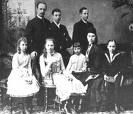



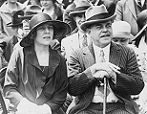






















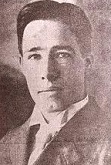
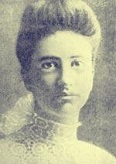







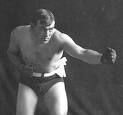
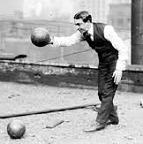
















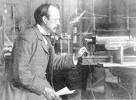
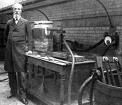
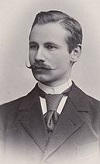
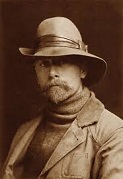
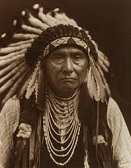
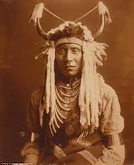
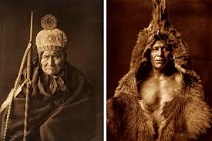



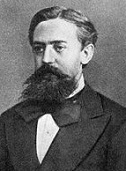

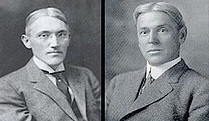

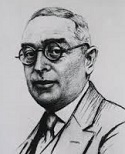


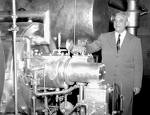
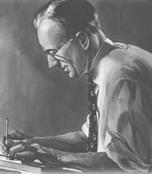

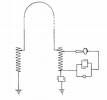








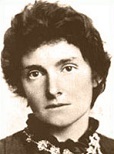





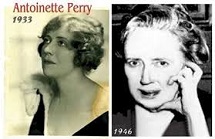







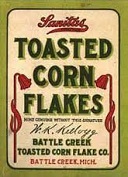

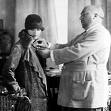





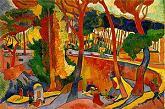
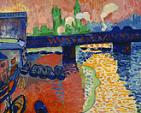
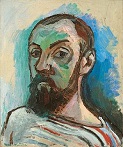
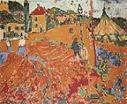
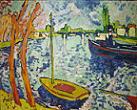
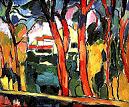
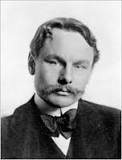

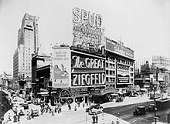

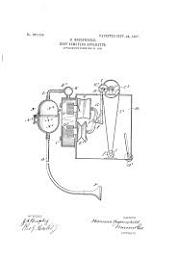
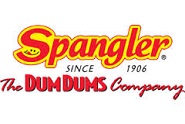
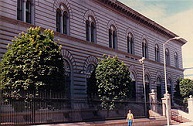
1906 Chinese Year: Horse. Army sizes: Russia: 13M, Germany: 7.9M, Austria-Hungary: 7.4M, France: 4.8M, Italy: 3M, U.S.: jackshit? On Jan. 1 Ernst Haeckel forms the German Monists League (Deutscher Monistenbund) in Jena, which reaches 6K members by 1912, with the theological wing led by Barmen, Germany-born Protestant theologian Albert Kalthoff (1850-1906), along with Emil Jakob Felden (1874-1959), Oscar Mauritz (1867-1959), Moritz Schwalb (1833-1916), and Friedrich Steudel (1866-1939), none of whom believe in the historicity of Jesus Christ; on Dec. 16, 1933 after dwindling to 3.2K members the league is dissolved by the Nazis. On Jan. 9 the Vladivostok Uprising in Russia begins; on Jan. 24 rebels proclaim the Vladivostok Repub., which is quashed by Feb. 1 by tsarist forces. On Jan. 10 Britain and France begin Military and Naval Conversations (end 1912), which had been unofficially initiated the previous Dec. by foreign secy. Dec. 10, 1905-Dec. 10, 1916) Sir Edward Grey (1862-1933); Britain refuses to promise support to France in case of German attack, but leaves the door open, admitting to a "moral obligation"; the conversations are kept from the British Cabinet as a whole until 1911. On Jan. 12 the Dow Jones Industrial Avg. closes above 100 for the first time. On Jan. 12-Feb. 8 after the Conservatives back preferential tariffs, alienating the working class, who call it "Big Loaf, Little Loaf" the 1906 British Gen. Election sees the Liberals under by PM Henry Campbell-Bannerman win a large majority of 125 seats, while the Conservatives under Sir Arthur Balfour lose more than half of their own seats, incl. Balfour's own; the Labour Representation Committee (founded 1900) is reorganized as the 29-MP center-left British Labour Party, led by James Keir Hardie (1856-1915); the Liberal Welfare Reforms (end 1914) turn Britain into a modern welfare state. On Jan. 16-Apr. 7 after German chancellor Bernhard von Bulow ignores the advice of foreign advisor Friedrich von Holstein to break the French-British entente for fear of war with Britain, causing von Holstein to resign, leaving Germany isolated, the secret Algeciras Conference on Morocco results in the Act of Algeciras, reaffirming the independence and integrity of Morocco while internationalizing it economically, giving France and Spain police control of it while limiting France's privileges; British Liberal PM Sir Henry Campbell-Bannerman authorizes staff talks (without commitments) with France, worsening relations with Germany, which is sided with only by Austria. On Jan. 17 Britain and France begin holding secret talks planning for the British Expeditionary Force (BEF) to be sent to France if war breaks out with Germany. On Jan. 21 U.S. temps measured by USHCN stations see almost half over 60F, and 20% over 70F; on Jan. 22 it reaches 80F in Boston, Mass.; on Jan. 26 the Junction City Union of Junction City, Kan. carries the soundbyte: "A warm wave which scores the highest record in temperature since 1890, prevailed Sunday throughout the region between the Mississippi valley and the Atlantic coast. Its crest was in Ohio, where the temperature as reported to the weather bureau ranged from 70 to 74 degrees." On Jan. 27 the first Mozart Festival is held in Salzburg, Austria on the 250th anniv. of his 1756 birth. On Jan. 29 Christian IX (b. 1818) dies, and his eldest son Frederik VIII (1843-1912) becomes king of Denmark (until May 14, 1912). In Jan. the First Russian Duma is elected by universal suffrage, with the radicals boycotting it and the Cadets winning a majority; it first meets on May 10 in the Tauris Palace. On Jan. 29-Feb. 3 the first annual Nat. Western Stock Show is held in the cow town of Denver, Colo. by the new Western Stock Show Assoc., devoted to "unabashed bovine boosterism" (Thomas J. Noel); attendance is 15K; the Grand Champion steer sells for 33 cents/lb. (23 cents over market price); it becomes so important to the city's economy that the elaborate Christmas lights on the Denver City and County Bldg. are left on for it. In Jan. the Valencia sinks off the shore of Washington state, drowning 117, mainly women and children. This one swallowed a coin collection, this one was shot in the face, or, Jackie Fisher who are you dreadnought? The first 20th cent. Peacekeepers? On Feb. 10 the revolutionary 17.9K-ton 21-knot HMS Dreadnought, the first modern all big-gun battleship is launched, designed by British First Sea Lord (Oct. 21, 1904-Jan. 25, 1910) Adm. John Arbuthnot "Jackie" Fisher, 1st Baron Fisher (1841-1920) ("the second Lord Horatio Nelson") (motto: "Fear God and dread nought"), featuring 11-in. armor and 10 12-in. guns; by May the Germans decide to build six of their own dreadnoughts, voting to widen and deepen the Kiel Canal to allow their passage from landlocked Germany to the North Sea. On Feb. 17 Pres. Roosevelt's beautiful rebellious daughter Alice Lee Roosevelt (1884-1980) (eldest child and only child with first wife Alice Hathaway Lee) (known for smoking cigs in public, riding in cars with men, staying out late partying, placing bets with a bookie, and keeping a pet snake named Emily Spinach and a Pekingese named Manchu given her by Chinese empress Cixi in 1902 during a diplomatic visit she went on with 35 congressmen incl. her future hubby, during which she jumped into the ship's pool fully clothed and coaxed the others to join her, and from which she returned with loads of silk from China and a killer string of pearls from Cuba, causing the junket to become known as "Alice in Plunder Land") marries Ohio Repub. Rep. Nicholas Longworth IV (1869-1931) in the East Room, becoming the 4th pres. daughter to be married in the White House (next 1913), and the most spectacular, with 1K guests; priceless gifts are sent by Pope Pius X and govt. heads; she goes to have her only child Paulina with progressive U.S. Sen. (R-Idaho) (1907-40) William Edgar Borah (1865-1940); "I can do one of two things. I can run the country or control Alice. I cannot do both." (Theodore Roosevelt). On Feb. 18 after French pres. (since 1899) Emile Loubet retires (becoming the first Third Repub. pres. to serve out his whole term), former PM (1883) Clement Armand Fallieres (Clément Armand Falličres) (1841-1931) becomes pres. #9 of France (until Feb. 18, 1913), going on to fight against the death penalty, pardoning many death row convicts. On Feb. 19 Kellogg's Cereal Co. (originally Battle Creek Toasted Corn Flake Co.) is founded in Battle Creek, Mich. by Will Keith Kellogg (1860-1951), who breaks with his older brother Dr. John Harvey Kellogg (1852-1943) in marketing beyond the Seventh-Day Adventist health food nuts, turning Americans into cold cereal eaters, and later returning some of the giant profits to philanthropic causes; in 1930 it shifts workers from a 40-hour to a 30-hour work week to help hire more workers during the Depression - after enough sugar is added? On Feb. 26 Upton Sinclair's novel "The Jungle" is pub., leading to the quick (4 mo.) passage of the U.S. Pure Food and Drugs (Wiley) Act, signed on June 30 along with the U.S. Meat Inspection Act, prohibiting sale of adulterated foods or drugs, and mandating honest statements of contents on labels; it greatly curbs the use of patent medicines, many of which had been loaded with opium and other addictive drugs; the tobacco lobby keeps nicotine out of the list of regulated drugs; really wanting his book to cause Socialism to happen in the U.S., disappointed Sinclair utters the soundbyte "I aimed at the public's heart, and by accident I hit it in the stomach." On Mar. 1 the Cadets condemn the Moscow Uprising, strikes and land seizures, and attempt to pass measures shutting down the rev., incl. new punishments on Mar. 3 for publishing "inaccurate" statements against the govt. On Mar. 5 an imperial ukase (edict) authorizes the Duma as the lower house of parliament, along with an upper house created out of the old Council of the Empire, and declares that no law can be passed without its consent, although in practice it can only ask? On Mar. 10 a coal mine explosion in Courrieres, France in N France 13 mi. SSW of Lille kills 1,099, incl. many children, becoming the largest death toll so far in mine history (until ?). On Mar. 12 after the Philippine Supreme Court forces the Iglesia Filipina Independiente to return Church property it had confiscated, the pro-independence Partido Union Nacionalista is founded, with the goal of "immediate, absolute and complete independence", going on to dominate Philippine politics. On Mar. 17 Pres. Theodore Roosevelt first uses the term "muckrakers" in his Muckraker Speech about overdone investigative journalism to the Gridiron Club in Washington, D.C., saying they are like a man working in a stable who could "look no way but downward with a muckrake in his hand"; the term comes from John Bunyan's "Pilgrim's Progress" about "the man who in this life consistently refuses to see aught that is lofty, and fixes his eyes with solemn intentness only on that which is vile and debasing"; on Apr. 14 Roosevelt dedicates the cornerstone of the Beaux-Arts style U.S. House Office Bldg. in Washington, D.C., repeating his muckraking speech; when asked to name names, he mentions his rival, N.Y. Dem. rep. William Randolph Hearst; on Jan. 9, 1908 a ceremony is held to draw marbles from a bag to assign House Chamber desks and the first-ever offices of their own (15'x23'), and the first selected is N.C. Rep. Claude Kitchin, who picks Room 430, which is later named for Ill. Speaker Joseph Cannon. On Mar. 17 new Provisional Rules from Tsar Nicholas II guarantee the right of assembly and association and the right to political parties. In spring the Imperial Postal Joint-Session Conference in Shanghai sanctions the Chinese Postal Map Romanization System for Romanizing Chinese place names, which eliminates diacritical and accent marks, e.g., Peking, Chungking, Tientsin, Tsinan, Zhenjiang. On Apr. 6 African-Am. minister William Joseph Seymour (1870-1922) leads the Azusa St. Revival in Los Angeles, Calif., launching the modern Pentecostal movement, known for speaking in tongues, ecstatic trances, etc. which spreads like wildfire among African-Ams. and poor whites, reaching hundreds of groups in 50 countries by 1910, with Seymour announcing that racial integration not the gift of tongues is the decisive sign of the Last Days, with the soudnbyte: "If you get angry or speak evil, or backbite, I care not how many tongues you have, you have not the baptism with the Holy Spirit"; ""God sent this latter rain to gather up all the poor and outcast, and make us liove everybody. God is taking the despised things, the base things, and being glorified in them." (D.W. Myland); no surprise, reason-loving Bible-thumping Christian fundamentalists despise them. On Apr. 7 Mt. Vesuvius erupts, devastating Naples and causing the planned 1906 Athens Summer Olympics to be canceled so that the funds can be used to rebuild it, and London is selected for a 1908 Olympics. What in Sam Hill? Millennium Feverists get a godsend in Fawlty Towers California? On Apr. 18 (5:12 a.m.) the 7.8 1-min. 8.25 North Am. Plate 1906 (Great) San Francisco Earthquake in Calif., centered in San Francisco, located on the 600-mi. San Andreas Fault Zone lays 490 city blocks waste, demolishes 25K bldgs., and breaks gas mains and power lines, causing four days of fire and $400M in property damage; 3K-6K are killed and 250K left homeless; the board of supervisors whitewashes it, pegging the official death toll at 478 for decades; Lotta's Fountain (donated in 1875 by dancer Lotta Crabtree) at Market, Geary and Kearny Sts. in downtown is used as a meeting point for survivors trying to locate family and friends; the new (1904) Westin St. Francis Hotel survives, and offers 10 survivors a free room for the night; their breakfast menu is chilled rhubarb, rice griddle cakes, southern hominy, and scrambled eggs; the newly-formed Pentecostal Church sees it as a sign of the End of Times, causing its ranks to swell with don't-let-freezer-burn-happen-to-your-family true believers pretending another quake is coming and rolling around on the floor; Los Angeles overtakes San Fran as the city of choice for Calif. newcomers; as it is rebuild the famously crooked Lombard St. winds down Russian Hill; Pacific Heights becomes home to classic Victorian homes; 710 Ashbury St. at its intersection with Haight St. later becomes home to the Grateful Dead; the S turntable for cable cars is at Market and Powell Sts. On Apr. 26 the U.S. Five Civilized Tribe Act is passed to "Provide for the Final Disposition of the Affairs of the Five Civilized Tribes in Oklahoma." In Apr. in order to counter a planned German railway terminus in Aqaba on the Red Sea, Britain issues an ultimatum forcing Turkey to cede the Sinai Peninsula to Egypt, with the E border set between Aqaba and Rafah, allowing the British to rush guns from Egypt to the Bay of Taba to bombard it if necessary. In Apr. Maria Frances Russell (1850-1938), celibate Bible-thumping wife of Watch Tower Society (later Jehovah's Witnesses) pres. Charles Taze Russell (1852-1916) sues for legal separation, telling a jury that her husband was ball, er, unfaithful with secy. Rose Ball, but not convincing them; earlier he had charged her with organizing a "female conspiracy" against "the Lord's organization", and being smitten with "the same malady which has smitten others: ambition" - I've never been out of control before? Show me the love? Deal or No Deal? In Apr. Tsar Nicholas appoints Alexander Petrovich Izvolsky (1856-1919) as foreign minister (until Nov. 1910), who goes on to become the architect of Russia's alliance with Britain. In Apr. after pesky Serbia tries to get around the Hapsburgs, importing French munitions in 1904 and establishing a customs union with Bulgaria in 1905, the Pig War begins, with Austria closing its borders to Serbian pork; it ends in Mar. 1908 after Serbia gains help from Russia, France, and Germany, and pressures Bosnia-Herzegovina into giving them a trade outlet on the Adriatic Sea, with the countries becoming openly hostile, and war between Austria and Russia averted only after a 1909 German ultimatum demanding cessation of Russian aid to Serbia, helping lead to WWI. On May 2 Tsar Nicholas II dismisses Sergei Witte as PM, and replaces him with conservative old skool bureaucrat Ivan Goremykin (1839-1917) (until 1906); on May 6 he promulgates the Fundamental Laws of the Empire, laying the ground rules for the 500-member First Russian Duma, which meets on May 10, after the voting is rigged in favor of the 200K Russian landowners, who choose 2,594 electors, vs. 1,168 for the 70M+ peasants (the left boycotts it); meanwhile on May 9 censorship is lifted; in June the tsar appoints kulak champion (conservative but not reactionary yet) Peter (Pyotr) Arkadyevich Stolypin (1862-1911) as interior minister (until 1911), who in Nov. promulgates the Agrarian Reform Act, ending the communal (mir) system of landholding, and letting peasants own private land; workers are allowed to have local but not nat. unions. On May 19 Joao Franco Ferreira Pinto Castelo Branco (1855-1929) becomes PM #48 of Portugal (until Feb. 4, 1908), ruling with an iron hand as the repub. movement gains steam and blows up in his face? On June 8 Pres. Theodore Roosevelt signs the U.S. Antiquities Act, giving the U.S. pres. authority to issue executive orders to protect federal land with antiquities on it, albeit with token punishments; Roosevelt names Devils Tower Nat. Monument, rising 1267 ft. above the Belle Fourche River in NE Wyo. as the first U.S. nat. monument, along with a 1347-acre park; 783-acre Montezuma Castle Nat. Monument on Beaver Creek (Verde River) near Camp Verde, Yavapai County, Ariz. is also proclaimed, containing the well-preserved pre-Columbian 11th cent. 5-story 20-room Indian Montezuma Castle cliff dwelling 110 ft. up on a cliff face overlooking Beaver Creek in Camp Verde; Am. archeologist Edgar Lee Hewett (1865-1946) is instrumental in bringing the Antiquities Act about. On June 13 the Denshawai (Dinshaway) Incident sees five British army officers visiting Denshawai, Egypt to shoot domestic pigeons piss-off villagers, who demonstrate against them, after which they open fire, wounding five and setting fire to their grain, after which the villagers capture but don't harm them; too bad, two officers escape, and one dies of heat stroke trying to get away after which Egyptian gov. (since 1879) Sir Evelyn Baring, Lord Cromer sends the British army in, arresting 52 villagers and railroading four of them to death sentences for murdering the sunstroked whitey, crassly hanging them in front of their families while flogging 80 others with 50 lashes each, then imprisoning an Egyptian policeman for telling the truth; "May Allah compensate us well for this world of meanness, for this world of injustice, for this world of cruelty" (hanged man Darweesh's last words); Baring, ahem, steps down next year after Edward VII makes him a member of the British Order of Merit - no wonder Egyptians can't stand the Brits? On June 16 the U.S. (Okla.) Enabling Act of 1906 authorizes people living in Indian Territory and Okla. Territory to elect delegates to a state constitutional convention, doing ditto for the people of New Mexico Territory and Ariz. Territory, with a referendum to determine if they will be made into one state or two. On June 17 French multilingual Sinologist Paul Pelliot (1878-1945) leaves Paris on an expedition to China to find Chinese books; after many cool adventures where his fluency in Chinese gets him out of hot water, he returns on Oct. 24, 1909 with a hoard of priceless mss. that rejuvenate Chinese studies in the West; too bad, jealous colleague Edouard Chavannes (1865-1918) starts a smear campaign, claiming forgery, but Pelliot is vindicated by 1912. On June 18 Italian explorer Prince Luigi Amedeo Giuseppe Maria Ferdinando Francesco, Prince of Savoy-Aosta, Duke of the Abruzzi (1873-1933) makes the first ascent of the 16,762-ft. (5,109m) highest peak of the Ruwenzori Mts. (Range) in Africa, a source of the Nile River, causing Mt. Luigi di Savola to be named in his honor; in 1909 he unsuccessfully ascends K2 in Karakorum, reaching 6,250m, causing his route up the East Ridge to be named the Abruzzi Spur in his honor. In June the first iron and steelworkers strike takes place in the Saar region. In June after they become dissatisfied with the muckraking label, The American Magazine is founded by muckraking journalists Ray Stannard Baker, Lincoln Steffens, and Ida Tarbell. In the summer the Ottoman Freedom Society is founded by Ottoman army officers and civilian officials in Salonica to oppose the regime of sultan Abdul Hamid II; after establishing branches in Macedonia, it unites next Sept. with the Young Turks of Ahmed Riza under the original (1889) name Committee of Union and Progress - the sultan's ass is grass? The first American sex goddess? On June 25 New York City's #1 Gilded Age architect Stanford White (b. 1853), designer of Washington Arch and Madison Square Garden is shot 3x and murdered at his table in Madison Square Garden by Pittsburgh steel heir Harry Kendall Thaw (1871-1947) in a jealous rage over his showgirl wife, "Floradora girl" model Evelyn Nesbit (1884-1967), AKA "The Girl on the Swing" ("The Eternal Question" Gibson Girl), resulting in the first Trial of the Cent., in which Thaw is found not guilty by reason of insanity based on her unprecedented revealing testimony of how in 1901 White had seduced and raped the 16-y.-o. sweet young thing, and how when she married Thaw in 1902 he er, forced it out of her, causing his insane reaction; the words "brainstorm" and "playboy" are coined to describe him. On June 27 Pres. Theodore Roosevelt issues an executive order placing the U.S. consular service on a full merit basis, requiring competitive exams for all candidates. On July 11 (eve.) Mont.-born Chester Ellsworth Gillette (1883-1908) drowns his pregnant girlfriend Grace Mae Brown (1886-1906) on Big Moose Lake in Herkimer County, N.Y.; did she fall out of the boat and he extended a paddle in vain to save her, or did he push her out and hit her over the head with his tennis racquet, or did she commit suicide by jumping out and refusing help?; either way, he made a quick getaway to Fulton Chain Lakes, checking into a hotel under his real name and acting like nothing happened; he is electrocuted on Mar. 30, 1908, and later immortalized in Theodore Dreiser's 1925 long-but-good novel An American Tragedy, which tries to palm it off as a perfect storm of accident and self-incrimination; filmed in 1931, and in 1951 as "A Place in the Sun". On July 18 Jewish liberal Cadet Duma member Mikhail Yakovlevich Gertsenshtein (b. 1859) is assassinated in Odessa by the Black Hundred, and after the Cadet reps. violently criticize the govt., the tsar dissolves the Duma on July 21 (after 73 days); the Cadets respond by moving to Viborg and issuing the Viborg (Vyborg) Manifesto (Appeal) on July 23, signed by 200 Duma members, calling upon the people to refuse to pay taxes, with little response, showing their lack of popular support, after which those who signed are blacklisted by the govt. from reelection. On July 30-Aug. 2 the leftist Sveaborg Mutiny rocks Russia, followed on Aug. 1-11 by the Kronstadt Mutiny. In July the Western Film Exchange is founded in Milwaukee, Wisc. by John R. Freuler (1872-1958), Harry E. Aitken (1877-1956), and Roy Aitken (1882-1976) to produce and distribute Western films to movie theaters in the midwest U.S.; in fall 1910 after the Motion Picture Patents Co. fails to shut them down, Freuler and Samuel S. Hutchinson found the Am. Film Manufacturing Co. in Chicago, Ill., with the Flying "A" Studios in La Mesa, San Diego County, Calif., run by Allan Dwan, producing 150+ films; in Mar. 1912 Mutual acquires Thanhouser Studios; in July 1912 they found Mutual Film Corp. to combine all their business, which acquires distribution rights for Keystone Studios and Majestic Studios; in Aug. 1912 they establish a branch in Santa Barbara, Calif., becoming one of the largest motion picture studios in the U.S. until shuts down in 1922 after producing 1.2K films. On Aug. 13 (night) the Brownsville Affair sees up to 20 unidentified men shoot up Brownsville, Tex., killing a bartender and severely injuring a policeman, causing Pres. Theodore Roosevelt to come down on nearby Ft. Brown where black Buffalo soldiers of the 25th Infantry are posted, discharging 167 "without honor" sans trial on Nov. 6 (after the nat. elections), pissing-off the NAACP and other African-Am. orgs., who turn on the Repub. Party; in 1972 Repub. Pres. Richard Nixon pardons the men and awards them honorable discharges sans back pay; in 1973 Congress grants a tax-free $25K pension to the last survivor Dorsie Willis. On Aug. 15 the summer home of Russian minister Peter Stolypin is bombed, killing 30+ but missing him, causing him to turn mean and set up special courts martial on Sept. 1 to deal with troublemakers, which end up executing, imprisoning or exiling 60K - I was told there'd be no spandex? On Aug. 20 Spangler Candy Co. in Bryan, Ohio is founded by Arthur G. Spangler (-1945) by the purchase of Gold Leaf Baking Co., producing baking soda and powder; in 1911 it introduces its first candy, the Spangler Cocoanut Ball, followed by hard and stick candy in 1922, going on to introduce Marshmallow Circus Peanuts (1940), Marshmallow Topping (1941) et al. before acquiring Dum Dums lollipops from Akron Candy Co. in 1953, turning Bryan, Ohio into "the Dum Dum Capitol of the World", acquiring A-Z Christmas Candy Cane Co. in 1954, Ohio Confections Fudge (makers of Pecan Divinity) in 1957, Shelby Bubble Gum in 1962, Am. Mint Corp. in 1965, Saf-T-Pops in 1978, Astro Pops in 1987, and Suck an Egg brand in 1995, going on to produce 45% of the candy canes in the U.S. On Aug. 27 Pres. Theodore Roosevelt (1858-1919), known for his poor spelling begins a campaign to reform English spelling, issuing a directive to the Govt. Printing Office (GPO) to adopt 300 reformed spellings, such as dropping the "u" from "honour", and changing "centre" to "center"; despite many notable supporters, Congresse overturnes itte. In Aug. John Huddleston discovers diamonds in his farm near Murfreesboro, Ark., becoming the first person outside South Africa to find diamonds at their original source, after which improper mining leaves thousands of small diamonds, causing a boom of amateur diamond hunters, who found the town of Kimberly in 1909; in Mar. 1956 the 15.33 carat Star of Ark. Diamond is found.; in 1972 it becomes Crater of Diamonds State Park. On Sept. 8 Franz Xavier Wernz (1842-1914) is elected superior-gen. #25 of the Jesuit Order, going on to reform its study plan. On Sept. 12 Jacob Christian Ellehammer (1871-1946) of Denmark becomes the first Euro to fly an airplane in Lindholm, going 421m at an alt. of 50 cm; he had done it totally unaware of the Wright brothers. On Sept. 18 Pedro Elias Pablo Montt y Montt (1849-1910) of the Nat. Party is elected pres. #15 of Chile (until Aug. 16, 1910), going on to see his honeymoon end quick and bog down in political corruption, dying in office. On Sept. 22-24 after newspaper stories about the rapes of four white women by black men in separate incidents, the Atlanta Race Riot of 1906) in Ga. sees 25+ blacks and 2+ whites killed. On Sept. 28 the Russian govt. orders its local branches to use "any means" to maintain public order, incl. aiding loyalist groups; the tsar threatens political parties with abolition if they don't settle down. In Sept.-Nov. the govt. puts the members of the St. Petersburg Soviet on trial, but most get off due to the grandstanding of Leon Trotsky (1879-1940), although he gets exile; meanwhile the Socialist Muslim Waisi movement in Tatartan, Russia is founded. On Oct. 9-14 the Chicago White Sox (AL) upset the Chicago Cubs (NL) 4-2 to win the Third (3rd) (1906) World Series, splitting the first four games, after which the Sox get 26 hits; the Cubs went 116-36, setting a modern-era record winning percentage of .763; with an AL-worst team batting avg. of .230 and no regular team member batting as high as .280, the White Sox are called "the Hitless Wonders". On Oct. 13 after pres. Tomas Estrada Palma is charged with corruption and deposed by liberals shortly after his reelection, causing U.S. troops to begin the to Second Occupation of Cuba in Sept. (until Feb. 1909) after an attempt at reconciliation fails, Owatonna, Minn.-born atty. Charles Edward Magoon (1861-1920) (known for the 1900 Magoon Incident, where a report he wrote for the U.S. govt. stating its position that "the constitution follows the flag", only to have U.S. war secy. Elihu Root make him rewrite it with a reverse conclusion, after which Congress uncovers the original) becomes provisional gov. #2 of Cuba (until Jan. 28, 1908). In Oct. part-Jewish (not really, just suspected during his lifetime) Count Alois Lexa Aehrenthal (1854-1912) becomes Austrian-Hungarian foreign minister (until 1912), going on to engineer the 1908 annexation of Bosnia-Herzogovina, which blocks Serbia from the Adriatic and ends up dragging Europe into WWI - so it's a Jewish conspiracy after all? In Oct. the first official Columbus Day to celebrate the Oct. 12, 1492 discovery of the New World by Christopher Columbus in the U.S. is celebrated by Colo.; it becomes a federal holiday in 1934 (until ?). In Oct. French medical student Georges Duhamel (1884-1966) (not to be confused with the artist born in 1941) founds the utopian l'Abbaye de Creteil (Créteil) lit. circle with Jules Romains (1885-1972), Charles Vildrac (1882-1971) et al., meeting at the Creteil Abbey in Paris; Romains founds the Unanimism movement to portray collective consciousness and crowd behavior. On Nov. 6 (Tue.) the 1906 U.S. House of Reps Elections see the Repubs. lose 26 seats, retaining a 224-167 lead over the Dems.; the 1906 U.S. Senate Elections are a V for the Repubs., who gain three seats in the U.S. Senate (still chosen by state legislatures), almost doubling the Dems 58-32. In Nov. Cornell U. law prof. and life insurance reformer Charles Evans Hughes (1862-1948) defeats William Randolph Hearst, becoming Repub. gov. #36 of N.Y. next Jan. 1 (until Oct. 6, 1910), working to clean up corruption. On Nov. 29 Lancia & Co. is founded in Turin, Italy by Fiat racing drivers Vincenzo Lancia (1881-1937) and Claudio Fogolin (1872-1945), producing the 28 hp 4-cylinder Alpha 12 HP (Tipo 51) in 1907-8, selling 100 units; in 1913-18 they produce the Lancia Theta (Tipo 61), becoming the first Euro production car with a complete electrical system incl. starter motor; in 1922-31 they produce the Lancia Lambda, which features Sliding Pillar independent front suspension and load-bearing monocoque body along with shock absorbers and 4-wheel brakes; in 1948 they produce the first production car with a 5-speed gearbox; in 1950-8 they produce the Lancia Aurelia, with the first full-production V6 engine, combination transaxle, and radial tires; too bad, they never get into mass-production, making the cars by hand, holding them back, and Fiat acquires it in 1969. On Dec. 4 Alpha Phi Alpha is founded at Cornell U., becoming the first intercollegiate fraternity for African-Ams - white supremacists believe it should be spelled APE? On Dec. 12 German-born Oscar Solomon Straus (1850-1926) is confirmed by the U.S. Senate as U.S. secy. of commerce and labor #3 (until Mar. 5, 1909), becoming the first Jewish member of a pres. cabinet (Theodore Roosevelt); in 1946 his grandson Roger W. Straus Jr. founds the Farrar, Straus and Giroux pub. house - they thought he was a famous composer and let him play? On Dec. 12 Harvard-educated William Henry Moody (1853-1917), a classmate and friend of Teddy Roosevelt who enjoyed his stints as U.S. Navy secy. (1902-4) and U.S. atty.-gen. (1904-6) is appointed as U.S. Supreme Court justice #60 (until Nov. 20, 1910) to fill the vacancy left by Henry B. Brown (1890-1906), and is confirmed on Dec. 17, keeping the court at nine members. In Dec. the Second Russia Duma is elected after the govt. invalidates a large number of liberal and Socialist electors to insure it will be conservative. On Dec. 30 the All-India Muslim League is founded by Aga Khan (1875-1957) in India to wage jihad, er, protect Muslim rights in a Hindu nation. The Bhambatha Rebellion in Zululand led by Zulu chief Bhambatha (Bambata) kaMancinza (Mbata Bhambatha) (b. 1860), caused by a change in the poll tax from tax per hut to tax per head is quashed by the Natal Police, who kill 3.5K incl. Bhambatha and try King Dinzulu (d. 1913) for treason, and in Mar. 1908 sentence him to four years; in 1910 after his friend Louis Botha becomes PM of South Africa, he is released and spends the rest of his life on the Uitkyk farm in Transvaal. The imperialist Unionist Party in Britain is defeated by the Liberal Party on the question of tariffs. China and Britain finally agree to a reduction of opium production. Self-govt. is granted to the Transvaal and Orange River colonies. The Anglo-French Condominium of the New Hebrides sets up a joint admin. French-born Roman Catholic Hilaire Belloc (1870-1953) is elected to the British Parliament. Night-shift (time period, not nightclothes) work for women is internationally forbidden - they should be on their backs instead? In his mag. Die Zukunft, German journalist Maximilian Harden (Witkowski) (1861-1927) attacks Kaiser Wilhelm II and his corrupt court camarilla. Kaiser Wilhelm II and Edward VII meet - what did they smoke? Mexican workers at the Cananea Copper Co. (founded 1899) and Rio Blanco textile plant stage labor strikes; the Rio Blanco strikers are bloodily suppressed next Jan. 7. After the San Francisco school board proposes to establish segregated schools for Oriental children, Pres. Roosevelt intervenes, persuading it to desist. A rev. in Persia sees the 1906 Persian Constitution proclaimed; too bad, it doesn't last long (1911). After disagreements with pro-Greek Cretan leader Venizelos, Prince George resigns as high commissioner of Euro-occupied Crete. The Young Turks committee moves from Geneva to Salonika. Finland gives women the right to vote, becoming the first European country to do so. Britain passes the 1906 Merchant Shipping Act, introduced by Board of Trade pres. David Lloyd George. British New Guinea (Papua) is turned over to paternalistic Australia, with Sir John Hubert Plunkett Murray (1861-1940) as gov. in 1908-40. Pres. Roosevelt visits the Canal Zone (Panama), becoming the first pres. to leave the continental U.S. while in office. Anarchist Ricardo Flores Magon (1873-1922) organizes the Mexican Liberal Party to fight the Diaz regime. Celebrated Jewish French Capt. Alfred Dreyfus is finally rehabilitated, and the royalists in the French army are replaced by republicans in a supreme circumcizing reverse guillotine swing; meanwhile French journalist Maurice Barres (Barrčs) (1862-1923) becomes a leader of the anti-Dreyfusards, and is elected to the nat. assembly. John Francis "Honey Fitz" Fitzgerald (1863-1950), son of Irish Roman Catholic immigrants, known for his golden singing voice becomes mayor of Boston, Mass., and the U.S. Kennedy Dynasty is on the make. The case of cobbler Friedrich Wilhelm Voigt (1849-1922), who masquerades as the Prussian "Captain of Koepenick (Köpenick)", takes over a military unit and raids the Koepenick treasury rocks Berlin. The Guilds Restoration Movement in England is founded by economist George Douglas Howard Cole (1889-1959) et al. to promote guild socialism, ownership of factories by the workers; in 1915 it becomes the Nat. Guilds League, and it goes out of existence in 1930 after the British Labour Party absorbs its members. After claiming that it was ice-free in 1903, Norwegian explorer Roald Amundsen becomes the first to sail the Northwest Passage after determining the position of the magnetic North Pole. Mesa Verde Nat. Park in SW Colo. is established on June 29. The Goodyear Tire and Rubber Co. founds Bogalusa, La., 80 mi. ENE of Baton Rouge, with the 12K-acre Goodyear Plantation. The city of El Centro, Calif. (modern-day pop. 42.5K) in the Imperial Valley of S Calif. near San Diego (150 mi. SE of Los Angeles and 10 mi. N of Mexicali, Mexico) is founded by W.F. Holt and C.A. Barker, who purchase the land for $40//acre and put $100K into improvements; it starts out desert until irrigation from the Colorado River turns it into a major fruit-vegetable growing region of rubber and Chinese tung trees about 15 mi. to the SW. The city of Juneau, Alaska (formerly Harrisburg and Rockwell) at the base of Mount Juneau across from Douglas Island on the Gastineau Channel in the Alaskan Panhandle, named in 1881 after Quebec-born prospector Joseph "Joe" Juneau (1836-99) succeeds Sitka as capital of Alaska, becoming the most populous city in Alaska in 1920-50; on July 1, 1970 it merges with Douglas. Harvard U. offers its first "concentrations", history and lit. Pace U. in the New York Tribune Bldg. in Manhattan, N.Y. is founded by brothers Homer St. Clair Pace (1879-1942) and Charles Ashford Pace (-1940) to teach accounting and business, building expansion campuses in Pleasantville, N.Y. and White Plains, N.Y. Frank Ernest Gannett (1876-1957) purchases the Elmira Gazette in Elmira, N.Y., going on to build an empire of 16 newspapers by 1929 and 22 by 1957 while backing the Repub. Party. Am. novelist Jack London begins living in his made-to-order yacht Snark, sailing the high seas until 1908. Am.-born super-rich British Conservative politician William Waldorf Astor, 2nd Viscount Astor (1879-1952) marries Am. divorcee Nancy Witcher Langhorne (1879-1964), and they move into a lavish estate given to him by his daddy at Cliveden, going on to host all the British elite incl. Winston Churchill, Arthur Balfour, Rudyard Kipling, and Lord Curzon of Kedleston, who become known as the "Cliveden Set"; too bad, in the 1930s the Astors promote detente with the Nazis for fear of British military weakness although protesting their treatment of Jews, but do get Neville Chamberlain replaced by Churchill in 1940 so they're not really bad? High-born New York City socialite Emily Post (1872-1960) gets fed-up with her high-born hubby's sexual daliances being exposed in the newspapers and files for divorce, then becomes an independent journalist, writing serialized novels and hanging out with Mark Twain, Edith Wharton et al.; after failing at that, she does what all writers do and begins writing about what she knows best, etiquette, pub. her hit book in 1922. Whitewater, Wisc.-born Seattle, Wash. society photographer Edward Sheriff Curtis (1868-1930) abandons his career to begin photographing the vanishing Am. Indians, spending 30 years photographing 80 tribes W of the Mississippi River and compiling a 20-vol. 20-portfolio set of 2.2K photos and 4K pages of text, backed by Pres. Theodore Roosevelt and partially funded by J.P. Morgan, but ending up going bankrupt as the public wants to forget the Indians and content themselves with the buffalo nickel (1913)? In Switzerland two brothers and their dog are tried for murder; the men get life in prison and the dog is executed? Ruth St. Denis (Ruthie Dennis) (1879-1968) of New York City tours Europe, introducing modern dancing. Picasso's Pink Period (begun 1904) ends, and his Iberian (Negro) (West African) Period begins (ends 1908), influenced by West African sculpture, with masklike staring faces and angular schematic figures. Russian immigrant actress Alla Nazimova (1879-1945) makes her U.S. debut in "Hedda Gabler", going on to become a big hit in Salome in 1923. Melrose, Mass.-born Am. soprano Geraldine Farrar (1882-1967) makes her U.S. debut on Nov. 26 at the Metropolitan Opera in New York City in Romeo et Juliette, later going into silent movies and developing fanatical fans known as Gerryflappers while engaging in a 7-year affair with Arturo Toscanini et al., becoming the silent era Liz Taylor; in 1915 Toscanini abruptly resigns from the Metropolitan Opera after she gives him an ultimatum; on Feb. 8, 1916 she marries silent film actor Lou Tellegen, who cheats on her, leading to a divorce in 1923 after she retires in 1922; in 1934 Tellegen commits suicide in Hollywood, and Farrar replies "Why should that interest me?" Italian coloratura soprano Amelita Galli-Curci (1882-1963) makes her debut as Gilda in Verdi's "Rigoletto" in Trani, becoming big in Italy, Europe, and South Am., followed by the U.S. in 1926. German-born Karl Muck (1859-1940) becomes conductor of the Boston Symphony Orchestra (until 1907) - does he conduct with a rake while in America? 18-y.-o. Denver, Colo.-born actress Antoinette Perry (1888-1946) debuts opposite David Warfield in Music Master; too bad, she gets married in 1909 and retires from the stage until her hubby's death in 1922. The anarchist periodical Mother Earth is founded in the U.S. in Mar. by Emma Goldman et al. Theodore Roosevelt wins the Nobel Peace Prize for his part in ending the Russo-Japanese War in 1905, and uses part of his $40K prize to endow the Foundation for the Promotion of Industrial Peace. French fashion designer Paul Poiret (1879-1944) establishes a fashion house in Paris, breaking away from the soft Edwardian style shades in favor of vibrant primary colors, creating the hobble skirt and suspender belt, and promoting the brassiere over the corset, along with flesh-colored stockings and culottes; "It was in the name of Liberty that I proclaimed the fall of the corset and the adoption of the brassiere which, since then, has won the day. Yes, I freed the bust, but I shackled the legs"; in 1909 he introduces harem pants, a revival of bloomers; he later introduces the perfume "Rosine" (named for his eldest daughter), becoming the first couturier with his own perfume; his signature is a rose. Canadian emigrant Alfred Carl Fuller (1885-1973) founds the Fuller Brush Co. in Hartford, Conn., building sales to $1M/year by 1919. The Prince Albert Trademark is introduced by the R.J. Reynolds Co. Planters Peanuts Co. is founded in Wilkes-Barre, Penn. by Italian-born Amedeo Obici (1877-1947), produced with his new skinning and blanching method; in 1913 he builds a processing plant in the heart of peanut country of Suffolk, Va.; the Mr. Peanut logo is originally supplied by a 13-y.-o. boy. 39-y.-o. black St. Louis, Mo. laundry worker and former La. cotton-picker Sara Breedlove Walker of Denver, Colo. changes her name to Madame (Madam) C.J. Walker (1867-1919) and barnstorms the U.S. selling and teaching her Walker System of Beauty and Hair Care for Black Women, moving to Indianapolis, Ind. in 1910 and eventually becoming the first black female millionaire in the U.S., and owner of the nation's biggest black business, later turned into the Madame Walker Urban Life Center at 617 Indiana Ave., Indianapolis; after her death her daughter A'Lelia Walker (1885-1931) continues the biz, running a salon in New York City that becomes a gathering place for the Harlem Renaissance. Alfa Romeo Automobiles (originally Societa Anonima Italiana Darracq) is founded by Pierre Alexandre Darracq (1855-1931) plus some Italian investors, changing its name to ALFA (Aninima Lombarda Fabbrica Automobili) on June 24, 1910. Sunner (Sünner) Brewery of Cologne, Germany introduces Kolsch (Kölsch) style barley pale ale beer, a less cloudy version of pale Weiss (white) style ale (developed in the 1890s) with a straw yellow hue like pale lager, going on to become popular after WWII, reaching 50M l in 1960 and 370M l in 1980 before beginning a slide to 240M l in 2005. The Xerox Co. (originally the Haloid Photographic Co.) in Rochester, N.Y. is founded; in 1958 it becomes Haloid Xerox, followed by Xerox in 1961. Sports: From this year to 1910 U.S. football games are played on fields marked with 5-yd. checkerboard lines. In Jan. Frenchman Fred Marriott breaks the 2-mi.-per-min. barrier at Daytona Beach, Fla. in a Stanley Steamer Rocket, reaching 127.659 mph (205.5 km/h); a gasoline engine doesn't break the barrier until 1908, when the Fiat Mephistopheles reaches 121.64 mph. On Feb. 23 24-y.-o. 180-lb. Tommy Burns (1881-1955) outpoints Marvin Hart in 20 rounds in Los Angeles, Calif. to become world heavyweight boxing champ #5 (until 1908); James J. Jeffries is the referee. On Mar. 13 Jimmy Smith (Mellilo) (1885-1948) of Brooklyn, N.Y. defeats Johnny Voorhies in an 11-game match in Brooklyn, N.Y., claiming the world bowling championship (until 1921). The 1906 Stanley Cup is won by the Montreal Wanderers. On June 26-27 the first French Grand Prix is held outside Le Mans, France; the winner is Hungarian-born driver Ferenc Szisz (1873-1944), who drives a Renault at an avg. speed of 62.88 mph, and wins 45K French francs (13kg of gold). William J. Clothier (1881-1962) wins the U.S. Lawn Tennis men's singles title, and later becomes pres. #1 of the Tennis Hall of Fame, while his son William J. Clothier II (1916-2002) becomes a tennis pro and a CIA spy; Helen Homans wins the women's singles title. The amateur Smart Set Athletic Club in Brooklyn, N.Y. (AKA the Grave Diggers), and the St. Christopher (St. C's) Club in Harlem, N.Y., which draws its members from St. Philip's Episcopal Church are founded, becoming the first all-black basketball teams, launching the Black Fives Era; in 1907 the all-black Olympian Athletic League is founded by the Smart Set Athletic Club, Marathon Athletic Club, Alpha Physical Culture Club, and Jersey City Colored YMCA, making basketball popular in the New York City area; the St. C's become known as the Red and Black Machine for their scientific and methodical play; in 1908 the Smart Set Athletic Club wins the first Colored Basketball World's Championship, coined by Lester Walton of The New York Age, and awarded by African-Am. newspaper sports writers; St. Christopher wins four by the end of WWI; the last one (for 1924-5) goes to the New York Renaissance Big Five; the 1918-19 St. C's lineup incl. Rutgers U. football star Paul Leroy Robeson (1898-1976) (forward), Clarence Reginald "Fats" Jenkins (1898-1968) (forward) ("the fastest man in basketball"), James "Pappy" Ricks, and Hampton Inst. star center Charles Bradford; St. Philip's pastor Rev. Hutchens Chew Bishop uses his light complexion to trick white racist residents into sellling him a church bldg. on 134th St. along with a large tract of apt. bldgs. on 135th St., allowing him to move his flock in and create Black Harlem. A 200 hp V-8 Darracq French automobile reaches 122.4 mph (2 mi./min.) and wins a race at Daytona Beach, Fla. After a power struggle between New York City, which wants to charge $1 per league, and Chicago, which wants to charge $1 per team, New York City secedes from the ABC, returning in 1920; meanwhile ABC bars women from membership. Architecture: On Feb. 1 after its new machinery is displayed at the 1904 St. Louis Exposition, the Denver Branch Mint at Delaware St. and W Colfax Ave. in Denver, Colo. (begun 1897) strikes its first coins, producing 167M coins the first year and going on to become the largest coin producer in the world. On Feb. 12 the 8-story luxury Alexandria Hotel at 501 S. Spring St. in Los Angeles, Calif. opens, designed by John B. Parkinson, who builds a 12-story addition is founded, becoming the most luxurious hotel in Los Angeles until the Biltmore Hotel opens 3 blocks W in 1923, known for gold leaf ceilings and stained-glass Tiffany skylight; in Oct. 1911 Palm Court ("the crystal palm room") opens, becoming the mingling place of Hollywood celebs until the opening of the Biltmore Hotel in 1923, hosting receptions for Pres. Woodrow Wilson in Sept. 1919 and Gen. John J. Pershing in 1920; in Dec. 1919 bandleader ("the Jazz King") Paul Whiteman gets his start there; so many business deals are made in the lobby that the Persian rug there is called the "million-dollar carpet". On Sept. 21 the Astor Theatre at 1537 Broadway at West 45th St. in Times Square, New York City opens with Shakespeare's "A Midsummer's Night Dream"; in 1925 Loew's Theatres acquires it and turns it into a first-run movie theater for MGM, debuting with "The Big Parade" (96 weeks); it closes in 1972. Forest Hills is built, becoming the first large development in Queens, N.Y.; after it becomes a favorite with Jews, in 1908 800-home Forest Hills Gardens is built by architect Grosvenor Atterbury (1869-1956), with each house sold with restrictive covenants excluding Jews, blacks, and working class people (until the 1970s); modelled after a traditional Jew-free English village with mainly Tudor and Georgian style homes in a parklike setting, the houses are all built from 170 standardized prefab concrete panels with hollow insulation chambers. The expensive drainage scheme for the Zuider Zee is begun. The 12.5 mi. (19.8 km) Simplon Tunnel between Italy and Switzerland (begun 1898) opens. Liberal-progressive (and Mason) Civil War nurse Samuel P. "Sam" Dinsmore (1843-1928) retires to Kansas, and in one year builds his own house, then spends the rest of his life building his Garden of Eden, consisting of cement statues of Adam (with a cement Masonic apron) and Eve, and tributes to labor; at age 80 he marries a 20-y.-o. woman and has two children. Nobel Prizes: Peace: Theodore "T.R." Roosevelt Jr. (1858-1919) (U.S.); Lit.: Giosue (Giosuč) Alessandro Giuseppe Carducci (1835-1907) (Italy); Physics: Sir Joseph John "J.J." Thomson (1856-1940) (U.K.); Chem.: Ferdinand Frederick Henri Moissan (1852-1907) (France) [electric arc furnace]; Medicine: Camillo Golgi (1843-1926) (Italy) [Golgi Apparatus] and Santiago Ramon y Cajal (1852-1934) (Spain) [Cajal's Cells]. Inventions: On Oct. 31 German immigrant Hermann Bogenschild of Milwaukee, Wisc. files a patent application (#341,468) for a dust-removing apparatus mounted on wheels with a hose connected to a filtering system. On Dec. 24 (Xmas Eve) Canadian-born Reginald Aubrey Fessenden (1866-1932) (the Thomas Edison of Canada?) broadcasts the first radio program consisting of voice and music in Brant Rock, Mass. using a 75 Khz 500 watt Alexanderson High Frequency Alternator designed by Swedish-born engineer Ernst Frederick Werner Alexanderson (1878-1975); the transmission is heard as far away as the Caribbean Sea. Ex-Lax (phenolphthalein) begins to be marketed, becoming the first commercial laxative in tablet form; in 1995 studies are pub. linking the active ingredient to cancer in mice. Am. engineer Willis Carrier (1876-1950) patents his first cooling system, going to make air conditioning popular and help populate the U.S. Sunbelt. Scottish-born inventor James B. "Jim" Kirby (1884-1971) of Richfield (near Cleveland), Ohio develops the first hand-powered vacuum cleaner (the Domestic Cyclone) that uses water to separate dirt and cloth to filter it out; next year he modifies it to use centrifugal action and cloth sans water; in 1919 Kirby partners with George Scott and Carl Fetzer, producing the Vacuette Electric in 1925, with removable nozzle and handle; in 1935 they introduce the Kirby Model C, the first vacuum cleaner with the Kirby name. Arthur Constantin Krebs of France invents the shock absorber for vehicles. Sicilian immigrant Salvatore Lupo, owner of Central Grocery in New Orleans, La. invents the Muffuletta sandwich, filled with olive salad. George Albert Smith (1864-1959) of England invents Kinemacolor, the first successful color motion picture process, using a 2-color additive color process that projects B&W film behind alternating red and green filters; it is used commercially until 1914. The Henry Ford Co. uses vanadium in the steel of its Model N. Am. inventor Lee De Forest (1873-1961) invents the Audion Triode Vacuum Tube, spurring the development of radio. Am. race car driver Ray Harroun (1879-1968) develops the spring-mounted automobile bumper. Branding ink for use in meat inspection in the U.S. is developed. The first Caterpillar Tractor powered by a gasoline engine is developed by the Holt Co. Maine-born Am. engineer Jean-Luc Picard, er, Greenleaf Whittier Pickard (1877-1956) discovers the rectifying properties of crystals, causing the first Cat's Whisker Crystal Radio sets to be made, becoming popular by the end of the decade. In 1906 Belgium-born George Constant Louis Washington (1871-1946) of New York City invents Red E Coffee during a trip to Central Am., returning and marketing it in 1909, becoming the first mass-produced Instant Coffee. The Wright brothers receive a patent for their invention of the airplane. Science: Romanian botanist Aaron Aaronsohn (1876-1919) discovers Triticum diococcoides ("mother of wheat") while on a field trip to Mount Hermon, making him an internat. celeb., which he uses to help him work for the Allies and Zionists in WWI. Am. radiochemist Bertram Borden Boltwood (1870-1927) discovers the element Ionium, and shows it to be chemically identical to thorium, proving the existence of isotopes. Am. geologist Clarence Edward Dutton (1841-1912) pub. a theory, based on studies in Hawaii, Calif., and Ore. that volcanism is caused by radioactivity. English biochemist Arthur Harden (1865-1940) discovers cases of catalysis among enzymes, going on to win the 1929 Nobel Chem. Prize. Russian mathematician Andrei (Andrey) Andreyevich Markov (Markoff) (1856-1922) pub. a paper describing the Markov Chain, a stochastic process in which one may predict the next value of a squence based on the last state alone. German chemist Walter Hermann Nernst (1864-1941) formulates the Third Law of Thermodynamics (1906-12), that the entropy of a system approaches a constant value as its temperature approaches absolute zero. Italian economist Vilfredo Federico Damaso Pareto (1848-1923) makes the observation that 20% of the pop. owns 80% of the property in Italy, which is generalized as the Pareto Principle. Austrian pediatrician Clemens von Pirquet (1874-1929) and Hungarian-born Jewish Am. pediatrician Bela Schick (1877-1967) coin the term "allergy", from the Greek "allos" + "ergon" = other + reaction. Ernest Rutherford (1871-1937) in Canada observes that alpha particles are scattered when passing through a thin sheet of metal, but he doesn't carry the experiment further to determine how much. In 1906 and 1909 Finnish mathematician Karl Frithiof Sundman (1873-1949) proves the existence of a convergent infinite series solution to the three-body problem, which is generalized to more than three bodies in 1991 by Qiudong Wang at the U. of Ariz. The rare earth metal element Lutetium (Lu) (#71) is discovered by French chemist Georges Urbain (1872-1938) after he separates ytterbia (discovered in 1878 by Jean de Marignac) into neoytterbia (ytterbium) and lutecia (lutetium); Karl (Carl) Auer Freiherr von Welsbach (1858-1929) of Germany independently does the same thing, calling them aldebaranium and cassiopeium. German bacteriologist August von Wassermann (1866-1925) devises the Wassermann (Wasserman) Test for pesky syphilis - was up er, man? The ancient site of Hatti is discovered in the village of Bogazkoy (Boghazkeui) (Hattushash) in Turkey 150 mi. S of Sinop, incl. the royal archives containing 10K Hittite cuneiform documents. The Queen Alexandra's Birdwing, largest butterfly in the world is discovered in Papua New Guinea by Albert Stewart Meek (1871-1943), and named next year in honor of Edward VII's wife. Nonfiction: Henry Brooks Adams (1838-1918), The Education of Henry Adams (Pulitzer Prize); privately pub. by the author, and not commercially pub. until after his death; an autobio. in the 3rd person, by the grandson of U.S. pres. J.Q. Adams, wailing about his cruddy formal education that didn't prepare him for the 20th cent.; how the medieval unity of religion, science, and art has become kaput, leaving the human spirit disorganized, and the cult of the Virgin has been supplanted by the cult of the Dynamo; "A teacher affects eternity, he can never tell where his influence ends"; predicts that in 50 years the two countries ruling the world will be Russia and the U.S.; his path to wisdom began by ditching his daddy's plan to make him U.S. president? Jonathan Ogden Armour (1863-1927), The Packers, the Private Car Lines, and the People; son of Armour & Co. founder Philip Danforth Armour, who took over as pres. in 1901 responds to Upton Sinclair. William Walker Atkinson (1862-1932), Thought Vibration or the Law of Attraction in the Thought World; popularizes New Thought. John Woodhouse Audubon (1812-62), Western Journal of 1849-1850; first pub. reference to the use of the term "gringoes" by Mexicans to describe Yankees, when his party passed through Cerro Gordo, Veracruz, and was hooted and shouted at. Charles Austin Beard (1874-1948), An Introduction to the English Historians; reviews English history through the eyes of the historians while bringing out their disagreements and digging up materials that are hard to find for students, becoming a novel approach, making him an academic star, switching from the history dept. to a new chair in politics and govt. Ambrose Bierce (1842-1914), The Cynic's Word Book; repub. as The Devil's Dictionary. Maurice Bloomfield (1855-1928), Vedic Concordance. Georg Morris Brandes (1842-1927), Recollections of My Childhood and Youth (autobio.). James Henry Breasted (1865-1935), Ancient Records of Egypt: Historical Documents from the Earliest Times to the Persian Conquest, collected, edited, and translated, with Commentary (2 vols.) (1906-7). John Burroughs (1837-1921), Bird and Bough. G.K. Chesterton (1874-1936), Charles Dickens: A Critical Study; causes a Dickens revival. Winston Churchill (1874-1965), Lord Randolph Churchill (2 vols.); his daddy; "A clever, tactful and rather cheap and vulgar life of that clever, tactful and rather cheap and vulgar egotist." (Theodore Roosevelt) Moncure D. Conway (1832-1907), My Pilgrimage to the Wise Men of the East. Bishop Mandell Creighton (1843-1901), Persecution and Tolerance: Hulsean Lectures, University of Cambridge, 1893-4 (posth.). Fanny Crosby (1820-1915), Memories of Eighty Years (autobio.). Percy Dearmer and Ralph Vaughan Williams (1872-1958), The English Hymnal. Charles Montagu Doughty (1843-1926), The Dawn in Britain. Havelock Ellis (1859-1939), Erotic Symbolism, the Mechanism of Detumescence, the Psychic State in Pregnancy; vol. 5 of 6 in "Studies in the Psychology of Sex". Henry Watson Fowler (1858-1933) and Francis George Fowler (1871-1918), The King's English; "Any one who wishes to become a good writer should endeavour, before he allows himself to be tempted by the more showy qualities, to be direct, simple, brief, vigorous, and lucid. This general principle may be translated into practical rules in the domain of vocabulary as follows: Prefer the familiar word to the far-fetched. Prefer the concrete word to the abstract. Prefer the single word to the circumlocution. Prefer the short word to the long. Prefer the Saxon word to the Romance." Archibald Geikie (1835-1924), Scottish Reminiscences. Leonard Trelawny Hobhouse (1864-1929), Mind in Evolution. George Wharton James (1858-1923), The Wonders of the Colorado Desert (2 vols.); makes fans of U.S. vice-pres. Charles Fairbanks, naturalist John Muir, and Robert Louis Stevenson's widow Fanny Stevenson before it is demolished in 1909. Albert Kalthoff (1850-1916), Modern Christendom. Rodolfo Lanciani (1846-1919), The Golden Days of the Renaissance in Rome, from the Pontificate of Julius II to Paul III. Andrew Lang (1844-1912), Homer and His Age. Harry Lauder (1870-1950), Harry Lauder at Home and on Tour. Percival Lowell (1855-1916), Mars and Its Canals. Maurice Maeterlinck (1862-1949), The Intelligence of Flowers; written while living in the Benedictine Abbey of St. Wandrille in Normandy, dressed as an abbess in roller skates. Lord John Morley (1838-1923), Literary Essays. Hugo Munsterberg (1863-1916), Science and Idealism. Fridtjof Nansen (1861-1930) et al., Norwegian North Pole Expedition 1893-1896 (6 vols.). Maria Francis Russell (1850-1938), The Twain One; wife of the founder of the Jehovah's Witnesses uses the Bible to back up her unapproved views on the equality of women. George Saintsbury (1845-1933), A History of English Prosody from the 12th Century to the Present Day (3 vols.) (1906-10). Albert Schweitzer (1875-1965), The Quest of the Historical Jesus: A Critical Study of Its Progress from Reimarus to Wrede (Geschichte der Leben-Jesu-Forschung); English trans. pub. in 1910; 2nd ed. in 1913; how the "real" Jesus was all about "late Jewish eschatology", believing that his ministry would bring about the end of history in a short time; the 2nd. ed. tries to rebut those who claim that he never lived; becomes a std. work, stopping work on the historical Jesus for decades as a sub-discipline of New Testament studies; "He comes to us as One unknown, without a name, as of old, by the lake-side." Werner Sombart (1863-1941), Why is There No Socialism in the United States?; the classic question asked by Euros; used as the takeoff for the 1981 Princeton U. thesis of Elena Kagan titled To the Final Conflict: Socialism in New York City, 1900-1933. Bram Stoker (1847-1912), Personal Reminiscences of Henry Irving (2 vols.); the personal asst. and business mgr. of English actor Sir Henry Irving (1838-1905), who is believed to have based his char. of Dracula on him. Bertha von Suttner (1843-1914), Stimmen und Gestalten. Music: Isaac Albeniz, Iberia (1906-9). Sir Granville Bantock (1868-1940), Omar Khayyam (choral epic) (1906-09). Sir Arnold Bax (1883-1953), A Hushing Song; I Fear Thy Kisses Gentle Maiden; Ballad: The Twa Corbies; Magnificat (Luke 1:46-55); The Blessed Damozel. George M. Cohan, Forty-five Minutes from Broadway (musical) (New York). Claude Debussy (1862-1918), The Children's Corner (1906-8). Sir Edward Elgar (1857-1934), The Kingdom Oratorio (Birmingham). Harry Lawrence Freeman (1869-1954), Valdo (opera) (Cleveland) (May). Victor Herbert (1859-1924), The Red Mill (operetta) (Knickerbocker Theatre, New York) (Sept. 24) (274 perf.); in 1906 producer Charles Dillingham places Broadway's first moving illuminated sign in front of the theater, an electric revolving red windmill; debuts again on Oct. 16, 1945 at the Ziegfield Theatre for 531 perf.; Dream City (operetta); The Magic Knight. Pierre Massenet, Ariane (opera) (Paris). Sir Hubert Parry (1848-1918), The Soul's Ransom; "ethical cantata". Max von Schillings (1868-1933), Moloch (opera) (Dresden). Ethel Smyth, The Wreckers (opera) (Leipzig). William Graham Sumner (1840-1910), Folkways: A Study of the Sociological Importance of Usages, Manners, Customes, Mores, and Morals; coins the term "ethnocentrism". Ralph Vaughan Williams (1872-1958), Norfolk Rhapsodies. Ermanno Wolf-Ferrari (1876-1948), I quattro rusteghi (The School for Fathers) (comic opera) (Munich). The anthem Anchors Aweigh is adopted by the U.S. Navy. Movies: J. Stuart Blackton's The Automobile Thieves (Nov. 10) (Vitagraph) is the film debut of Florence Lawrence (Florence Annie Bridgwood) (1883-1938), who is uncredited by Vitagraph policy to avoid actors attaining celeb status and commanding huge salaries like on the stage; on Dec. 27 she moves to the Edison Manufacturing Co. to play Daniel Boone's daughter in Daniel Boone; or, Pioneer Days in America, at a pay rate of $5/day for 14 days in freezing weather in Bronx Park, where she has to ride a horse; in 1907 she returns to Vitagraph Co. in Brooklyn, then return to the stage for a 1-year road show, then back to Vitagraph after vowing to "never again lead that gypsy life", only to be wooed to Biograph Studios by D.W. Griffith for a $5/week pay raise on her $20/week salary, where they continue to refuse to credit her, causing her to become known as "the Biograph Girl" by fans; after they find out that they made an offer to Essanay Studios, she and her hubby Harry Solter are fired, and in 1909 they sign up with Carl Laemmle's Independent Moving Pictures Co. of Am. (IMP), which not only gives her a marquee but stages a publicity stunt for her, a street car accident in New York City, after which she makes a publicity appearance in St. Louis, Mo. in Mar. 1910 at which eager fans tear her clothes off; in Mar. 1910 Florence Lawrence and Florence Turner become the first screen actors to have their names publicized by their studio; Lawrence becomes known as "the First Movie Star", "the Girl of a Thousand Faces", "the Biograph Girl", and "the Imp Girl"; after making 50 films in 11 mo. and demanding too high a salary, they go on vacation in Europe, then in 1910 join Lubin Manufacturing Co., advising young Canadian actress Mary Pickford to take her place at IMP, and making 48 films with Arthur V. Johnson; in 1912 they found the Victor Film Co. in Ft. Lee, N.J. with Carl Laemmle, where Lawrence makes $500/week as leading lady, and Solter $200/week as dir. before selling out to Universal Pictures in 1913; too bad, in 1915 she gets into a bad accident during filming of Pawns of Destiny, causing her career to begin tailspinning, reducing her to uncredited bit parts by 1925. Edwin S. Porter's and Wallace McCutcheon's Dream of a Rarebit Fiend (Feb.) (Edison Studios), based on the comic strip by Winsor McCay about a dude who gorges on a rarebit and begins hallucinating. Louis Halberstadt's and Viggo Larsen's Professorens Morgenavis (Mar. 25) (Nordisk Films) is the film debut of Copenhagen, Denmark-born Jean Pierre Hersholt (1886-1956), who emigrates to the U.S. in 1913. James Stuart Blackton's Humorous Phases of Funny Faces, made by Thomas Edison's lab with drawings by James Stuart Blackton becomes the first animated film cartoon. Alice Guy's The Life of Christ incl. 300 extras; The Spring Fairy (Le Fee Printemps) becomes one of the first color films. Charles Tait's 60 min. (4K ft.) The Story of the Kelly Gang (Dec. 26) (J&N Nevin Tait), based on the play "The Kelly Gang" by Arnold Denham stars Elizabeth Tait and John Tait, becoming the first full-length feature film, debuting at Athenaeum Hall on Collins St. in Melbourne, Australia, followed by the U.K. in Jan. 1908. Art: Eugene Anatole Carriere (1849-1906), Madame Menard-Dorian. Paul Cezanne (1839-1906), The Garden at Les Lauves. Arthur Bowen Davies (1862-1928), Unicorns (Legend Sea Calm). Andre Derain (1880-1954), The Port of London; The Turning Road, L'Estaque; Charing Cross Bridge, London; Blackfriars Bridge, London. Aristide Maillol (1861-1944), Chained Action (sculpture). Henri Matisse (1869-1954), Self-Portrait in a Striped T-Shirt; The Young Sailor I (Fauvist); The Young Sailor II (Fauvist); 18-y.-o. fisherman Germain Augustin Barthelemy Montarges (1888-1938); Vase, Bottle and Fruit. Georges Rouault (1871-1958), Little Olympia; At the Mirror. Walter Sickert, The Lady in the Gondola. Joseph Stella (1877-1946), The Old Man. Maurice de Vlaminck (1876-1958), The River Seine at Chatou; The Circus; Landscape with Red Trees. Anders Leonard Zorn, Dalarna Girls Bathing; Dans i Gopsmor; Bruno Liljefors; Carl Fredrik Liljevalch. Plays: Leonid Andreev (1871-1919), The Life of Man. Eugene Brieux (1858-1932), Les Hannetons (comedy). Fernand Crommelynck (1886-1970), Nous n'Irons Plus au Bois. Owen Davis Sr. (1874-1956), Nellie, the Beautiful Cloak Model (debut). Owen Hall (1853-1907), The Little Cherub. Cicely Hamilton (1872-1952), The Traveller Returns (debut). Gerhart Hauptmann (1862-1946), And Pippa Dances (Und Pippa Tanzt). Henry Arthur Jones (1851-1929), The Hypocrites. Thomas Mann (1875-1955), Fiorenza. Arthur Wing Pinero (1855-1934), His House in Order. George Bernard Shaw (1856-1950), Caesar and Cleopatra (New York); Arms and the Man (New York); John Bull's Other Island (New York). Man and Superman (New York); chauffeur Henry Straker represents the skilled mechanic class. Howard Talbot (1865-1928), The Girl Behind the Counter (musical). Frank Wedekind (1864-1918), Musik. Novels: Zoltan Ambrus (1861-1933), King Midas. Margaret Barber (1869-1901), The Gathering of Brother Hilarius (first and only novel). J.M. Barrie (1860-1937), Peter Pan in Kensington Gardens (Nov.); L. Frank Baum (1856-1919), John Dough and the Cherub. Rex Beach (1877-1949), The Spoilers (first novel); bestseller about corrupt govt. officials seizing gold mines from prospectors during the Nome Gold Rush in Alaska; the hero is Roy Glennister; filmed in 1914, 1930, 1942, 1955. Enoch Arnold Bennett (1867-1931), Whom God Hath Joines; Hugo. George A. Birmingham (1865-1950), Hyacinth; Hyacinth Conneally converts from Protestantism to Catholicism, becoming an Irish nationalist, then mellows out. Algernon Blackwood, The Empty House. Robert William Chambers (1865-1933), The Tracer of Lost Persons. Mary Cholmondeley (1859-1925), Prisoners. Paul Claudel (1868-1955), Partage de midi. Robert William Cole, His Other Self: The Story of a Man with a Past. Joseph Conrad (1857-1924), The Informer: An Ironic Tale; The Anarchist: A Desperate Tale. Louis Couperus (1863-1923), De Berg van Licht (The Mountain of Light); the decadence of ancient Rome; Van Oude Menschen, de Dingen, die Voorbij Gaan (Of Old People and the Things that Pass). Theodor Fontane (1819-98), Mathilde Mohring (posth.). John Galsworthy (1867-1933), The Silver Box; The Man of Property; first in the Forsyte Saga trilogy (1906-22). Ludwig Ganghofer (1855-1920), Der Mann im Salz. Karl Gjellerup (1857-1919), The Pilgrim Kamanita: A Legendary Romance. H. Rider Haggard (1856-1925), The Way of the Spirit; Benita. Joel Chandler Harris (1848-1908), Uncle Remus and Br'er Rabbit. O. Henry (1862-1910), The Four Million (short stories); incl. the The Gift of the Magi, containing the lines: "One dollar and eighty-seven cents. That was all. And 60 cents of it was in pennies" (2-cent and 3-cent coins are still in circulation). Anthony Hope (1863-1933), Sophy of Kravonia. Edward Hutton (1875-1969), Sigismondo Malatesta; the Wolf of Rimini (1417-68), who exemplifies the bad side of the Italian Renaissance; pub. in 1926 as "The Mastiff of Rimini". Nikos Kazantzakis (1883-1957), Serpent and Lilly (first work); uses alias Karma Nirvami. Bernhard Kellermann (1879-1951), Ingeborg; reprinted 131x by 1939. Rudyard Kipling (1865-1936), Puck of Pook's Hill (short stories); two children living near Pevensey are plucked out of history by Puck. Alexander Kuprin (1870-1938), Junior Captain Rybnikov. Selma Lagerlof (1858-1940), The Wonderful Adventures of Nils (2 vols.) (1907-7); about young Nils Holgersson, whose "chief delight was to eat and sleep, and after that he liked best to make mischief", who nets a tomte (tiny white-bearded gnome with a red knit cap) who turns him into one. Andrew Lang (1844-1912), The Red Romance Book; The Orange Fairy Book. Emily Lawless (1845-1913), Book of Gilly. William John Locke (1863-1930), The Beloved Vagabond. Jack London (1876-1916), White Fang; sequel to "The Call of the Wild"; his parents are Kiche and One-Eyed; Beauty Smith trains him to become a dog fighter. John Luther Long (1861-1927), The Way of the Gods. Pierre Loti (1850-1923), Les Desenchantees. Rose Macaulay (1881-1958), Abbots Verney (first novel). William Babington Maxwell (1866-1938), The Guarded Flame. Catulle Mendes (1841-1909), Ariane; music by Massenet; Glatigny. Ferenc Molnar (1878-1952), The Paul Street Boys; two rival youth gangs in Budapest; #2 favorite Hungarian novel of all time? George Moore (1852-1933), My Dead Life. Edith Nesbit (1858-1924), The Railway Children; after the father is falsely imprisoned for spying, the Waterbury family of a mother and three children are forced to move from a mansion to a modest house called The Three Chimneys in Yorkshire near the railway, befriending the Old Gentleman, who takes the 9:15 a.m. train each day, and helps prove his innocence; meanwhile the family helps Russian exile Mr. Szczepansky and Jim, the Old Gentleman's grandson; filmed in 1970. Edward Phillips Oppenheim (1866-1946), A Lost Leader; The Tragedy of Andrea; The Malefactor (Mr. Wingrave, Millionaire). Rafael Sabatini (1875-1950), The Trampling of the Lilies. Edgar Saltus (1855-1921), Vanity Square; Historia Amoris. Upton Sinclair (1878-1968), The Jungle (Feb. 26); Lithuanian immigrants Jurgis and Ona Rudkus in Packingtown (Chicago's Back-of-the-Yards); Jurgis earns 17.5 cents an hour as a "shoveler of guts", in the unsanitary and hazardous Chicago meatpacking industry, where delicious breakfast sausage is made from cows and hogs with TB and cholera, rat droppings, floor sweepings, and the occasional Lithuanian rendered into lard; not only the plant but the city, the state and the entire world are a jungle, where "nothing counted but brutal might"; "Now & then a visitor wept, to be sure; but this slaughtering machine ran on, visitors or no"; Jurgis loses his wife and son, becomes a tramp, pulls up a farmer's peach trees after being refused food, and becomes a Socialist; final words: "CHICAGO WILL BE OURS!"; "sub-literary belligerence". Francis Hopkinson Smith (1838-1915), The Tides of Barnegat. Natsume Soseki (1867-1916), Grass Pillow (Kusamakura); The Three-Cornered World; "Walking up a mountain track, I fell to thinking. Approach everything rationally, and you become harsh. Pole along in the stream of emotions, and you will be swept away by the current. Give free reign to your desires, and you become uncomfortably confined. It is not a very agreeable place to live, this world of ours." (opening). Carl Spitteler (1845-1924), Imago. Henry De Vere Stacpoole (1863-1951), Fanny Lambert. Henry De Vere Stacpoole (1863-1951) and W.A. Bryce, The Golden Astrolabe. Flora Annie Webster Steel (1847-1929), A Sovereign Remedy. Ludwig Thomas, Tante Frieda (Aunt Frieda). Edgar Wallace (1875-1932), The Four Just Men. Mrs. Mary Humphry Ward (1851-1920), In the Days of the Comet; humanity is "exalted" when a comet causes "the nitrogen of the air, the old azote" to "change out of itself" and become "a respirable gas, differing indeed from oxygen, but helping and sustaining its action, a bath of strength and healing for nerve and brain"; "The great Change has come for evermore, happiness and beauty are our atmosphere, there is peace on earth and good will to all men." Margery Williams (1881-1944), The Bar. Owen Wister (1860-1938), Lady Baltimore. Stefan Zeromski (1864-1925), Story of a Sin. Births: Am. "Esky" cartoonist (black) Elmer Simms Campbell (d. 1971) on Jan. 2 in St. Louis, Mo. Soviet coal miner hero Alexi (Alexey) Grigoryevich Stakhanov (d. 1977) on Jan. 3 in Lugovaya (near Oryol). English archeologist Dame Kathleen Mary Kenyon (d. 1978) on Jan. 5 in London; eldest daughter of Sir Frederic Kenyon (1863-1952); educated at Somerville College, Oxford U. Am. "The Life of Johnny Reb" historian Bell Irvin Wiley (d. 1980) on Jan. 5 in Halls, Tenn.; educated at Asbury College, and Yale U.; student of Ulrich Bonnell Phillips (1877-1934). Am. jazz trumpeter (black) Henry "Red" Allen (d. 1967) on Jan. 7 in New Orleans, La.; first to fully incorporate the innovations of Louis Armstrong. Am. aviator Evelyn "Bobbi" Trout (d. 2003) on Jan. 7 in Greenup, Ill.; get her nickname afte adopting the short Bob haircut of actress Irene Castle. Norwegian Navy Lt. Cmdr. Leif Andreas "Shetlands" Larsen (d. 1990) on Jan. 9 in Bergen. Swiss LSD scientist Albert Hofmann (d. 2008) on Jan. 11 in Baden. Greek shipping magnate Aristotle Sokratis "Ari" "Aristo" Socrates Onassis (d. 1975) on Jan. 15 in Smyrna, Turkey; husband (1946-80) of Athina Livanos (1929-74) and (1968-75) Jacqueline Kennedy (1929-94). Am. "Conan the Barbarian" writer-poet Robert Ervin Howard (d. 1936) on Jan. 22 in Peaster, Tex. Am. "Babe Ruth in The Babe Ruth Story", "Chester A. Riley in The Life of Riley" actor William Bendix (d. 1964) on Jan. 14 in New York City; batboy for the New York Yankees during the Babe Ruth era; starts out as a grocer. Am. singer-actor Sully Mason (d. 1970) on Jan. 15 in Durham, N.C. German "Fanny Eisler" actress-singer Lilian Harvey (Lilian Helen Muriel Pape) (d. 1968) on Jan. 19 in Hornsey, North London, England; German father, English mother; grows up in England and Switzerland; her German citizenship is revoked by the Nazis in 1943 for performing for French troops. Am. chef (in Tex.) ("the Balenciaga of food and the best cook in Texas" (Chicago Tribune) ("the Julia Child-esque cooking celebrity with a Texas twang") (Los Angeles Times) Helen Corbitt (d. 1978) on Jan. 25 in Benson, N.Y. Am. singer "Incomparable" Hildegarde (Loretta Sell) on Feb. 1 in Adell, Wisc. British wildlife conservationist ("the Lion Man") ("Father of Lions") George Adamson (d. 1989) on Feb. 3 in Dholpur, Rajasthan, India; husband of Joy Adamson (1910-80). German Lutheran anti-Nazi theologian-martyr Dietrich Bonhoeffer (d. 1945) on Feb. 4 in Breslau; son of Karl Bonhoeffer (1868-1948); brother of Klaus Bonhoeffer (1901-45). Am. astronomer Clyde William Tombaugh (d. 1997) on Feb. 4 in Streator, Ill.; educated at the U. of Kansas; joins the staff of the Lowell Observatory in Flagstaff, Ariz. in 1929; 1930 discoverer of Pluto, named by his 11-y.-o. son. Am. "Warden in The Hurricane", "El Nacional in Blood and Sand", "Preacher Jim Casy in The Grapes of Wrath", "Brother Jerome in The Twilight Zone episode The Howling Man" actor ("the Voice") ("Bard of the Boulevard") John (Richmond Reed) Carradine (d. 1988) (AKA John Peter Richmond) on Feb. 5 in Greenwich Village, N.Y.; father of David Carradine (1936-2009); has his nose broken in jail, creating "the look that would become world famous"; starts out as a set designer for Cecil B. DeMille, later doing voiceovers with his trademark baritone voice. Am. iron lung inventor John Haven "Jack" Emerson (d. 1997) on Feb. 5; cousin of Maxfield Parrish (1870-1966). Am. physicist and xerography inventor Chester Floyd Carlson (d. 1958) on Feb. 8 in Seattle, Wash.; educated at Caltech Chinese Qing (Manchu) emperor #12 (last) (1908-12) Aisingyoro Henry Pu Yi (Puyii) (d. 1967) on Feb. 7 in Peking (Beijing). Am. writer Henry Roth (d. 1995) on Feb. 8 in Tysmenica, Ukraine. Am. "Larry Talbot in The Wolf Man" 6' actor Lon Chaney Jr. (Creighton Tull Chaney) (d. 1973) on Feb. 10 in Oklahoma City, Okla.; son of Lon Chaney Sr. (1883-1930). Syrian pres. (1961-3) Nazim al-Kudsi (al-Qudsi) (d. 1998) on Feb. 14 in Aleppo. Austrian Asperger's Syndrome pediatrician Hans Asperger (d. 1980) on Feb. 18 in Vienna. German Nazi official Franz Rademacher (d. 1973) on Feb. 20 in Neustrelitz, Mecklenburg-Strelitz. Am. "Harvey", "Sorority House", "Bernardine" writer Mary Coyle (Gael. "follows the battle") Chase (nee Mary Agnes McDonough Coyle) (d. 1981) on Feb. 25 in Denver, Colo.; grows up at 532 W. 4th Ave. in the Roman Catholic Baker neighborhood near the railroad tracks; educated at the U. of Colo. Boulder, and U. of Denver English "The 39 Steps" actress Edith Madeleine Carroll (d. 1987) on Feb. 26 in West Bromwick, Staffordshire; Irish father, French mother; educated at the U. of Birmingham; wife (1931-9) of Capt. Philip Astley, (1942-6) Sterling Hayden, (1946-9) Henri Lavorel, and (1950-65) Andrew Heiskell; becomes a U.S. citizen in 1943. Vietnamese PM (1955-87) Pham Van Dong (d. 2000) on Mar. 1 in Duc Tan, Quang Ngai. English bomb disposal expert Charles Henry George Howard, 20th Earl of Suffolk, 13th Earl of Berkshire (d. 1941) (AKA Viscount Andover) on Mar. 2; educated at Royal Naval College, and Edinburgh U; husband (1934-) of Mimi Forde-Pigott; father of Michael Howard, 21st earl of Suffolk (1935-). Am. "Mood Indigo" jazz clarinetist-saxophonist-composer (black) Albany Leon "Barney" Bigard (d. 1980) on Mar. 3 in New Orleans, La. Am. Abbott & Costello comic Lou Costello (Louis Francis Cristillo) (d. 1959) on Mar. 6 in Paterson, N.J.; partner of Bud Abbott (1895-1974). Cuban composer Alejandro Garcia Caturla (d. 1940) on Mar. 7 in Remedios. French Battle of France Col. Pierre Armand Gaston Billotte (d. 1992) on Mar. 8; son of Gen. Gason Billotte (1875-1940). Chinese Communist writer Wang Shiwei (Sidao) (Shuhan) (d. 1947) on Mar. 12 in Guangzhou, Henan Povince. Spanish Generation of 1927 novelist Francisco Ayala Garcia-Duarte (d. 2009) on Mar. 16 in Granada, Andalusia; educated at the U. of Madrid. Am. comedian ("King of the One-Liners") (Jewish) Henry "Henny" Youngman (b. 1998) on Mar. 16 in Liverpool, England; grows up in New York City; known for carrying a violin and saying "Take my wife - please"; has his bar mitzvah at age 73. German head of the Jewish office of the Nazi Gestapo Lt. Col. Adolf Otto Eichmann (d. 1962) on Mar. 19 in Solingen; starts out as a traveling salesman for the Vacuum Oil Co. of Austria. Am. 5'2" Dem. New York City mayor #104 (1974-7) Abraham David "Abe" Beame (Birnbaum) (d. 2001) on Mar. 20 in London, England; Polish Jewish immigrant parents; emigrates to the U.S. at age 3 mo.; educated at CCNY. Am. actor-bandleader Oswald George "Ozzie" Nelson (d. 1975) on Mar. 20 in Jersey City, N.J.; Swedish parents; husband (1935-) of Harriet Nelson (1909-). Am. "Shaving Cream" singer-songwriter (Jewish) Benny Bell (Benjamin Zamberg or Samberg) (d. 1999) on Mar. 21 in New York City. Am. philanthropist John Davison Rockefeller III (d. 1978) on Mar. 21; eldest son of John D. Rockefeller Jr. (1874-1960) and Abby Aldrich Rockefeller; grandson of John D. Rockefeller Sr. (1839-1937); brother of Nelson Aldrich Rockefeller (1908-79), Winthrop Rockefeller (1912-73), and David Rockefeller Sr. (1915-); educated at Princeton U. Am. "Now and On Earth" "Thai silk king" novelist James Harrison Wilson "Jim" Thompson (d. 1967) on Mar. 21 in Greenville, Del. Am. writer-ed.-critic and radical activist Dwight Macdonald (d. 1982) on Mar. 24 in New York City; educated at Phillips Exeter Academy, and Yale U.; starts out a Trotskyist and becomes an anti-Soviet anarchist, complaining that there are red flags during the 1968 Columbia U. protests but no black flags to reflect his "anarchist tastes". English #1 historian ("People's Historian") ("Everyman's Historian") ("the pyrotechnician of history") A.J.P. (Alan John Percivale) Taylor (d. 1990) on Mar. 25 in Birkdale; of Scottish descent; educated at Oriel College, Oxford U.; proposes the Anti-Great-Man Theory, that history is made by towering figures of stupidity rather than genius. Am. football-basektball coach (Brown U., 1944-9) (Penn State U., 1950-66) Charles A. "Rip" Engle (d. 1983) on Mar. 26 in Elk Lick, Penn. Am. Dixieland jazz clarinetist Charles E. "Pee Wee" Russell (d. 1969) on Mar. 27 in Maplewood, Mo.; grows up in Muskogee, Okla. Am. organist E. Power (Edward George Power) Biggs (d. 1977) on Mar. 29 in Westcliff-on-Sea, Essex, England; educated at the Royal Academy of Music; emigrates to the U.S. in 1930. English "Irma La Douce" composer-lyricist David William Heneker (d. 2001) on Mar. 31 in Southsea. Japanese quantum electrodynamics physicist Sin-Itiro (Shinichiro) Tomonaga (d. 1979) on Mar. 31 in Tokyo. Am. "Pearl Bodine in The Beverly Hillbillies", "Kate Bradley in Petticoat Junction", "Betty Rubble in The Flintstones", "Granny in Tweety Bird" actress Bea Benaderet (d. 1968) on Apr. 4 in New York City; raised in San Francisco, Calif. Am. TV journalist ("Let's go hop-scotching around the world for headlines") ("That's the story, folks - glad we could get together") ("It takes a licking and keeps on ticking") John Cameron Swayze (d. 1995) on Apr. 4 in Wichita, Kan.; 6th cousin once removed of Patrick Swayze (1952-2009). French "Zebra" Op Art artist Victor Vasarely (d. 1997) on Apr. 9 in Pecs, Hungary; emigrates to France in 1930. Hungarian conductor-composer Antal Dorati (Deutsch) (d. 1988) on Apr. 9 in Budapest; becomes U.S. citizen in 1947; knighted in England in 1983. British Labour Party leader (1955-63) Hugh Todd Naylor Gaitskell (d. 1963) on Apr. 9 in Kensington, London; educated at Dragon School, Winchester College, and New College, Oxford U. Am. "Brenda Starr" cartoonist (first syndicated woman comic strip artist in the U.S.) Dalia "Dale" Messick (d. 2005) on Apr. 11 in South Bend, Ind. Irish "Waiting for Godot" absurdist dramatist-poet-novelist Samuel Barclay Beckett (d. 1989) on Apr. 13 (Fri.) in Foxrock, Dublin; educated at Trinity College, Dublin; writes mainly in French. German Gen. Gerhard Michael Engel (d. 1976) on Apr. 13 in Guben, Brandenburg. Saudi Arabian king #3 (1964-75) (Sunni Muslim) Faisal III (Faisal-ibn Abd al-Aziz ibn Saud) (bin Abdulaziz Al Saud) (d. 1975) on Apr. 14 in Riyadh; son of Ibn Saud (1880-1953); brother of Saud (1902-69) and Khalid (1949-82). Am. blues pianist (black) Eurreal Wilford "Little Brother" Montgomery (d. 1985) on Apr. 18 in Kentwood, La. Am. TV inventor (Mormon) Philo Taylor Farnsworth (d. 1971) Apr. 19 in Beaver County, Utah; makes Rugby, Idaho famous - invents a long-distance way to see beavers playing rugby? Am. "Bing Edwards in Brother Rat", "Oliver Wendell Douglas in Green Acres" actor Eddie Albert (Edward Albert Heimberger) (d. 2005) on Apr. 22 in Rock Island, Ill.; Christian German immigrant parents; educated at the U. of Minn; husband (1945-85) of Margo (1917-85); father of Edward Albert (1951-2006). British pro-Nazi radio host William Joyce (AKA Lord Haw-Haw) (d. 1946) on Apr. 24 in Brooklyn, N.Y.; Irish Roman Catholic father, English Protestant mother; grows up in Ireland - who had the last haw-haw? U.S. Supreme Court justice #90 (1956-90) (first Roman Catholic justice) William Joseph Brennan Jr. on Apr. 25 in Newark, N.J.; Irish Roman Catholic immigrant parents; educated at Wharton School, and Harvard U. Austrian-Am. Godel's Theory mathematical logician Kurt Friedrich Godel (Gödel) (d. 1978) on Apr. 28 in Brunn (Brno, Czech.); educated at the U. of Vienna. German Nazi Dr. Horst Schumann (d. 1983) on May 1 in Halle an der Salle, Prussia. Am. "The Maltese Falcon" movie actress (alcoholic) Mary Astor (Lucille Vascincellos Langhanke) (d. 1987) on May 3 in Quincy, Ill.; German immigrant father, Portuguese descent Am. mother; nickname Rusty. Am. portrait and jump photographer (Jewish) Philippe Halsman (d. 1979) on May 6 in Riga, Latvia; emigrates to the U.S. in 1940; friend of Albert Einstein, who poses for him in 1947. British actress Ursula Jeans (d. 1973) on May 5 in Simla, India; sister of Desmond Jeans and Isabel Jeans (1891-1985); wife (1936-73) of Roger Livesey (1906-76). French Bourbaki mathematician (Jewish) Andre Weil (d. 1998) on May 6; Alsatian parents; brother of Simone Weil (1909-43). Am. mobster (Jewish) Abraham "Abe" "Kid Twist" Reles (d. 1941) on May 10 in Brownsville, Brooklyn, N.Y. Am. "Enchantment", "All My Sons" film dir. Irving Reis (d. 1953) on May 7 New York City. Italian "Romma Citta Aperta", "Journey to Italy" dir. ("Father of the French New Wave") Roberto Rossellini (d. 1977) on May 8 in Rome; brother of Renzo Rossellini (1908-82); husband (1915-) of Ingrid Bergman (1915-82); father of Isabella Rosselini (1952-); starts out making propaganda films for Mussolini. Am. aviator Jacqueline "Jackie" Cochran (Bessie Lee Pittman) (d. 1990) on May 11 in Muscogee, Fla. Am. geophysicist-oceanographer William Maurice "Doc" Ewing (d. 1974) on May 12 in Lockney, Tex.; educated at Rice U. English lit. critic Lionel Charles Knights (d. 1997) on May 15; educated at Selwyn College, Cambridge U. Am. "Mickey Mouse" voice actor John James "Jimmy" MacDonald (d. 1991) on May 16 in Scotland. Am. fundamentalist Presbyterian minister Carl Curtis McIntire Jr. (d. 2002) on May 17 in Ypsilante, Mich.; educated at Southeastern Okla. State U., Park College, and Princeton Theological Seminary Italian Roman Catholic Cardinal (1953-) (archbishop of Genoa in 1946-87)Giuseppe Siri (d. 1989) on May 20 in Genoa. Am. "The Taft Story" journalist-biographer William S. White (d. 1994) on May 20 in ?. Soviet cardiac surgeon Alexander Alexandrovich Vishnevsky (d. 1975) on May 24 (May 11 Old Style) in Kazan. Am. auto racer Mauri Rose (d. 1981) on May 26 in Columbus, Ohio. German actor Charles Hans Vogt (d. 1978) on May 28 in Berlin. English "The Once and Future King" novelist (gay) (agnostic) T.H. (Terence Hanbury) White (1906-64) on May 29 in Bombay, India; educated at Queens College, Cambridge U.; not to be confused with Theodore Harold White (1915-86). English EMI record producer (British Philharmonia Symphony founder) Walter Legge (d. 1979) on June 1 in Shepherds Bush, London. English economist Sir Roy George Douglas Allen (d. 1983) on June 3 in Worcester; educated at Sidney Sussex College, Cambridge U.; knighted in 1966. French singer-stripper (black) ("Bronze Venus") ("Black Pearl") ("Jazz Cleopatra") ("Creole Goddess") Josephine Baker (Freda Josephine McDonald) (d. 1975) on June 3 in St. Louis, Mo.; white father, black washerwoman mother; becomes French citizen in 1937; first African-Am. female to star in a major motion picture, to integrate a U.S. concert hall, and become a world-famous entertainer; appears in the Ziegfeld Follies with Bob Hope and Fanny Brice, and ends up one of the richest black women in the world and a nat. heroine in France with a Legion of Honor for supporting the WWII resistance before dying broke; offered the leadership of the U.S. civil rights movement in 1968 by Coretta Scott King after the MLK Jr. assassination - watch out fashion world, here comes Josephine? Am. "Lonesome Dove" novelist Larry McMurtry on June 3 in Wichita Falls, Tx. Am. actor-dir. Richard Whorf (d. 1966) on June 4 in Winthrop, Mass. Indonesian pres. #1 (1945-67) (Muslim) Ahmed Sukarno (Achmed Soekarno) (Kusno Sosrodihardjo) (d. 1970) on June 6 in Blitar, East Java; Javanese father, Balinese mother; speaks Sundanese, Indonesian, Dutch, German, English and French. Am. advertising exec Maxwell "Mac" Dane (d. 2004) on June 7 in Cincinnati, Ohio. South African poet-playwright Nicolaas Petrus van Wyk Louw (d. 1970) on June 11 in Sutherland, Cape Province; brother of William Ewart Gladstone van Wyk Louw (1913-80). Belgian Fascist (Rexist Party) leader Leon Degrelle (d. 1994) on June 15 in Bouillon, Wallonia. British biochemist and penicillin pioneer (Jewish) Sir Ernst Boris Chain (d. 1979) on June 19 in Berlin; Russian father, German mother; educated at Friedrich Wilhelm U.; emigrates to England in 1933; knighted in 1969; collaborator of Howard Florey (1898-1968). French "Beat Girl" dir. Edmond T. Greville (Gréville) (d. 1966) on June 20 in Nice, France. Am. golf course architect Robert Trent Jones Sr. (d. 2000) on June 20 in Ince, England; emigrates to the U.S. at age 5; educated at Cornell U. Am. silent film actress Helene Costello (d. 1957) on June 21 in New York City; daughter of Maurice Costello (1877-1950) and Mae Costello (1882-1929); sister of Dolores Costello (1903-79). Am. "The Art of Teaching" writer-critic Gilbert Arthur Highet (d. 1978) on June 22 in Glasgow, Scotland; educated at St. John's College, Oxford U.; emigrates to the U.S. in 1937; husband of Helen MacInnes (1907-85). Am. "Gift from the Sea" writer-aviator Anne Morrow Lindbergh (nee Anne Spencer Morrow) (d. 2001) on June 22 in Englewood, N.J.; daughter of Dwight W. Morrow (1873-1931) and Elizabeth Cutter Morrow (1873-1955); way shorter wife (1929-) of Charles Lindbergh (1902-74); educated at Smith College; mother of Charles Augustus Lindbergh Jr. (1930-2), Jon Morrow Lindbergh (1932), Land Morrow Lindbergh (1937-), Anne Lindbergh (1940-93), Scott Lindbergh 91942-), and Reeve Lindbergh (1945-). Am. "Some Like It Hot", "Sunset Boulevard", "Stalag 17", "The Apartment" dir.-writer-producer (Jewish) Samuel "Billy" Wilder (d. 2002) on June 22 Sucha Beskidzka, Galicia (Austria-Hungary); grows up in Vienna; emigrates to the U.S. in 1933. British (Welsh) "The Life and Death of Colonel Blimp" actor Roger Livesey (d. 1976) on June 25 in Barry, Wales; husband (1936-73) of Ursula Jeans (1906-73). English "The Fifteen Streets" novelist (alcoholic) Dame Catherine Cookson (nee Catherine Ann "Kate" McMullen) (d. 1998) on June 27 in Tyne Dock, South Shields, County Durham; unmarried mother; sets her novels in NE England. Am. physicist (Jewish) Maria Goeppert-Mayer (d. 1972) on June 28 in Kattowitz, Silesia (Katowice, Poland); educated at the U. of Gottingen. Israeli archeologist Benjamin Mazar (d. 1995) on June 28 in Ciechanowiez, Poland; emigrates to Palestine in 1929. Soviet Gen. (youngest until ?) Ivan Danilovich Chernyakhovsky (Cherniakhovsky) (d. 1945) on June 29 (June 16 Old Style) in Oksanina, Uman. French mathematician Jean Alexandre Eugene Dieudonne (d. 1992) on July 1. Am. cosmetics queen (Jewish) Estee (Estée) Lauder (Josephine Esther Mentzer) (d. 2004) on July 1 in Corona, Queens, N.Y.; Hungarian Jewish immigrant parents. Am. nuclear physicist (Jewish) Hans Albrecht Bethe (d. 2005) on July 2 in Strasbourg, Alsace-Lorraine, Germany; Jewish mother. Italian WWII hero (Jewish) Eugenio Calo (Calň) (d. 1944) on July 2 in Pisa. English "Addison DeWitt in All About Eve", "Mr. Freeze in Batman" actor George Henry Sanders, Baron Rank of Sutton Scotney (d. 1972) on July 3 in St. Petersburg, Russia; emigrates to Britain in 1917; brother of Tom Conway (1904-67); husband of Susan Larson (1940-9), Zsa Zsa Gabor (1949-54), Benita Hume (1959-67), and Magda Gabor (1970-1). German imperial heir (#2 in line) Wilhelm of Hohenzollern (Prussia) (d. 1940) on July 4 in Marble Palace near Potsdam; son of Crown Prince Wilhelm (1882-1951) and Duchess Cecilie of Mecklenburg-Schwerin; brother of Prince Louis Ferdinand (1907-94). Am. baseball hall-of-fame pitcher (black) Leroy Robert "Satchel" Paige (d. 1982) on July 7 in Mobile, Ala. Am. architect Philip Cortelyou Johnson (d. 2005) on July 8 in Cleveland, Ohio; educated at Harvard U.; known for wearing thick round-framed glasses. Am. radio announcer Harry von Zell (d. 1981) on July 11 in Indianapolis, Ind. Am. silent film actress ("the Joy Girl") Olive Borden (d. 1947) on July 14 in Richmond, Va.; distant relative of Lizzie Borden; cousin of Natalie Joyce (1902-92). Am. "Mr. Skeffington", "The Young Philadelphians" film dir. Vincent Sherman (d. 2006) on July 16 in Vienna, Ga. Am. "Language in Thought and Action" linguist-politician Samuel Ichiye "S.I." Hayakawa (d. 1992) on July 18 in Vancouver, B.C., Canada; of Japanese descent; educated at the U. of Manitoba, McGill U., and U. of Wisc. Am. fashion designer ("America's First Couturier") Charles Wilson Brega James (d. 1978) on July 18 in Sandhurst, England; British father, Am. mother; educated at Harrow School. Am. "Waiting for Lefty" playwright-screenwriter and Socialist activist (Jewish) Clifford Odets (d. 1963) on July 18 in Philadelphia, Penn.; Jewish immigrant parents; husband (1937-) of Luise Rainer (1910-). Swiss-Croatian chemist Vladimir Prelog (d. 1998) on July 23 in Sarajevo; emigrates to Switzerland in 1941. Am. "Paul Bunyan Suite", "Dixie Concerto" composer Arthur Kreutz (d. 1991) on July 25 in La Crosse, Wisc. Turkish-Am. social psychologist Muzafer Sherif (Muzaffer Serif Basoglu) (d. 1988) on July 29 in Odemis, Aidin Vilayet, Turkey; educated at Istanbul U., and Columbia U.; husband (1945-) of Carolyn Wood Sherif (1922-83). Am. "Monkey Business", "Horse Feathers" actress ("the Ice Cream Blonde") Thelma Alice "Hot Toddy" Todd (d. 1935) on July 29 in Lawrence, Mass. English "Miss Jane Marple" actress Joan Hickson (d. 1998) on Aug. 5 in Kingsthorpe, Northampton. Am. "The Maltese Falcon, "The Treasure of the Sierra Madre", "The Asphalt Jungle", "Key Largo", "The African Queen" actor-dir.-writer John Marcellus Huston (d. 1987) on Aug. 5 in Nevada, Mo.; son of Walter Huston (1884-1950) and Rhea Gore; father of Anjelica Huston (1951-) and Danny Huston (1962-). Italian theoretical physicist Ettore Majorana (d. 1960) on Aug. 5 in Catania, Sicily; nephew of Quirino Majorana (1871-1957). Australian-Am. tennis player-coach Henry Christian "Harry" Hopman (d. 1985) on Aug. 12 in Glebe, Sydney, N.S.W.; emigrates to the U.S. in 1969. Am. "Taps for Private Tussie" writer-poet-novelist Jesse Hilton Stuart (d. 1984) on Aug. 8 in Riverton, Ky.; grows up in Ironton, Ohio; educated at Lincoln Memorial U., and Vanderbilt U. Am. silent film actress Barbara Jane Bennett (d. 1958) on Aug. 13 in Palisades Park, N.J.; daughter of Richard Bennett (1870-1944) and Adrienne Morrison (1883-1940)); sister of Constance Bennett (1904-65) and Joan Bennett (1910-90); wife (1929-41) of Morton Downey (1901-85), and (1941-5) Addison Randall (1906-45); mother of Morton Downey Jr. (1933-2001). Liechtenstein prince (1938-89) Franz Joseph (Josef) II (d. 1989) on Aug. 16 in Schloss Frauenthal, Styria; son of prince Aloys (1869-1955) and archduchess Elisabeth Amalie of Austria (1878-1960). Portuguese PM #102 (1968-74) Marcelo (Marcello) Jose das Nevas Alves Caetano (d. 1980) on Aug. 17 in Lisbon. Am. "Virginia Moore in The Love Doctor" actress June Collyer (Dorothea Heermance) (d. 1968) on Aug. 19 in New York City; sister of Bud Collyer (1908-69); sister-in-law of Marian Shockley (1911-81); wife of Stu Erwin (1903-67). Polish-Am. microbiologist (Jewish) (inventor of the oral polio vaccine) Albert Bruce Sabin (d. 1993) on Aug. 26 in Bialystok, Poland; emigrates to the U.S. in 1922. Am. necrophilia murderer ("the Plainfield Ghoul") ("Psycho") Edward Theodore "Ed" Gein (d. 1984) on Aug. 27 in Plainfield, Wisc.; known for making "woman suits"; basis for Buffalo Bill in the 1991 film "The Silence of the Lambs". English poet laureate (1972-84) Sir John Betjeman (d. 1984) on Aug. 28 in Hampstead, London; educated at Magdalen College, Oxford U.; knighted in 1969. Egyptian Muslim Brotherhood leader Sayyid Qutb (d. 1966) on Aug. 29 in Musha; discovers novelist Naguib Mahfouz; visits Greeley, Colo. in 1948-50, where he freaks out at the poor haircuts, brutal boxing matches, racism, restrictions on divorce, animal-like mixing of sexes, Negro jazz "noise to whet their sexual desires", and how the "brutish" Americans salt their waltermelons and drink unsweetened tea; his writings later help launch al-Qaida. Am. "Nan Prescott in Footlight Parade", "Annie Rawlins in The Blue Veil", "Lady Fingers in The Cincinnati Kid" actress Rose Joan "Rosebud" Blondell (d. 1979) on Aug. 30 in New York City; French descent father, Irish descent mother;; sister of Gloria Blondell (1915-86); grows up in Dallas, Tex., and Santa Monica, Calif.; educated at the U. of North Tex.; wife (1933-6) of George Barnes, (1936-44) Dick Powell, and (1947-50) Michael "Mike" Todd (1909-58). Dominican Repub. pres. (1960-2, 1966-78, 1986-90) Joaquin Amparo Balaguer Ricardo (d. 2002) on Sept. 1 in Navarrete. Am. biophysicist Max Ludwig Henning Delbruck (Delbrück) (d. 1981) on Sept. 4 in Berlin, Germany; son of Hans Delbruck (1848-1929); educated at the U. of Gottingen; emigrates to the U.S. in 1937. Argentine biochemist-physician Luis Federico Leloir (d. 1987) on Sept. 6 in Paris, France. Am. celeb John Coolidge (d. 2000) on Sept. 7 in Northampton, Mass.; son of U.S. pres. Calvin Coolidge (1872-1933). German Olympic runner (1936 Berlin Summer Olympics final torchbearer) Fritz Schligen (d. 2005) on Sept. 8 in Kronberg im Taunus (near Frankfurt); educated at Darmstadt U. of tech. Am. "The Lyons Den" newspaper columnist (Jewish) Leonard Lyons (Sucher) (d. 1976) on Sept. 10 in New York City; Austrian Jewish immigrant parents; educated at CCNY; attends h.s. with Lou Gehrig. Am. swimsuit designer (Mormon) Rose Marie Reid (nee Yancey) (d. 1978) on Sept. 12 in Cardston, Alberta, Canada. British Lt. Col. John Malcolm Thorpe Fleming "Mad Jack" "Fighting Jack" Churchill (d. 1996) on Sept. 16 in Surrey; known for going into battle with a sword and longbow. Am. "Harold and the Purple Crayon", "Barnaby" cartoonist-children's writer Crockett Johnson (David Johnson Leisk) (d. 1975) on Oct. 20 in New York City; grows up in Elmhurst, Queens; educated at NYU. Am. "Frosty the Snowman", "Here Comes Peter Cottontail", "Smokey the Bear" songwriter Steve Edward Nelson (d. 1981) on Sept. 15 in Keyswer, W. Va.; collaborator of Walter E. Rollins (1906-73). English actor-producer Derrick R.E.A. De Marney (d. 1978) on Sept. 21 in Brentford, Middlesex; of French-Irish descent, German war criminal ("the Beast/Witch/Bitch of Buchenwald") Ilse Koch (Kohler) (Köhler) (d. 1967) on Sept. 22 in Dresden. Russian Soviet "Lady Macbeth of Mtsensk District" composer Dmitri Dmitryievich Shostakovich (d. 1975) on Sept. 25 in St. Petersburg. English "Milton's God" poet-critic Sir William Empson (d. 1984) on Sept. 27; educated at Magdalene College, Cambridge U. Am. "The Getaway", "The Grifters" crime novelist James Myers "Jim" Thompson (d. 1977) on Sept. 27 in Andarko, Okla. Am. Am. Motors Corp. (AMC) CEO (1962-7) Roy Abernethy (d. 1977) on Sept. 29 in Penn. Italian FIBA co-founder and secy.-gen. #1 (1932-76) Renato William Jones (d. 1981) on Oct. 5 in Rome. Am. "Sunrise", "Seventh Heaven", "A Star is Born" actress (winner of first Best Actress Oscar) Janet Gaynor (Laura Augusta Gainor) (d. 1984) on Oct. 6 in Philadelphia, Penn. Am. NASA chief #2 (1961-8) James Edwin Webb (d. 1992) on Oct. 7 in Tally Ho, N.C.; educated at George Washington U. Senegalese pres. #1 (1960-80) (black) Leopold Sedar (Léopold Sédar) Senghor (d. 2001) on Oct. 9 in Joal. Am. composer Paul Creston (Giuseppe Guttoveggio) (d. 1985) on Oct. 10 in New York City. Indian novelist R.K. Narayan (Rasipuram Krishnaswami Iyer Narayanaswami) (d. 2001) on Oct. 10 in Madras (Chennai). Am. Revlon Cosmetics founder (Jewish) Charles Haskell Revson (d. 1975) on Oct. 11 in Somerville, Mass.; Jewish Lithuanian immigrant father, German Jewish ancestry mother. Am. "The Human Condition" political theorist (Jewish) Johanna "Hannah" Arendt (d. 1975) on Oct. 14 in Hanover, Germany; educated at the U. of Marburg; student and lover of Martin Heidegger (1889-1976); student of Karl Jaspers (1883-1969); wife of (1929-37) Gunther Anders (1902-92) and (1940-) Heinrich Blucher (1899-1970); emigrates to Czech. and Switzerland in 1933, France in 1934, and the U.S. in 1941; becomes U.S. citizen in 1950. Egyptian Muslim Brotherhood founder (Sunni Muslim) Sheikh Hassan al-Banna (Hassan Ahmed Abdel Rahman Muhammed al-Banna) (d. 1949) on Oct. 14 in Mahmoudiyah, Beheira; brother of Gamal al-Banna (1920-); father-in-law of Said Ramadan (-1995); grandfather of Tariq Ramadan (1962-). Am. publisher (founder of Newsday) Alicia Patterson (d. 1963) on Oct. 15 in Libertyville, Ill.; daughter of Joseph Medill Patterson, founder of the New York Daily News; great-granddaughter of Joseph Medill, own of the Chicago Tribune; sister of Elinor Patterson (1904-84) and Josephine Patterson (1913-63); half-sister of James J. Patterson (1922-92); wife (1929-30) of James Simpson Jr., (1931-9) Joseph W. Brooke, and (1939-63) Harry Guggenheim. Am. "Black Snake Blues", "Dope Head Blues", "Organ Grinder Blues" blues singer-songwriter (black) Victoria Regina "Queen Victoria" Spivey (d. 1976) on Oct. 15 in Houston, Tex.; sister of Elton Island Spivey (1900-71) and Addie "Sweet Pease" Spivey (1910-43). Italian "The Tartar Steppe" novelist-poet-writer-painter Dino Buzzati Traverso (d. 1972) on Oct. 16 in San Pellegrino. Am. baseball player-mgr. Robert Abial "Red" Rolfe (d. 1969) on Oct. 17 in Penacook, N.Y.; educated at Phillips Exeter Academy, and Darthmouth College. German test pilot Erich Warsitz (d. 1983) on Oct. 18 in Hattingen. English "Miss Pettigrew Lives for a Day" novelist Winifred Eileen Watson (d. 2002) on Oct. 20 in Whitley Bay, Newcastle, Tyne and Wear. Am. "Men in White" dramatist Sidney Kingsley (Kirschner) (d. 1995) on Oct. 22 in New York City; educated at Cornell U.; husband (1939-81) of Madge Evans (1909-81). Soviet (Russian) Gelfond-Schneider Theorem mathematician Alexander Osipovich Gelfond (d. 1968) on Oct. 24 in St. Petersburg; educated at Moscow State U. Am. 6'6" 276 lb. heavyweight boxing champ #12 (1933-4) ("The Ambling Alp") Primo Carnera (d. 1967) on Oct. 26 in Sequals (near Udine), Italy; becomes U.S. citizen in 1953. Italian auto racer Emilio Giuseppe "Nino" Farina (d. 1966) on Oct. 30 in Turin. German SS Lt. Gen. Hans Georg Otto Hermann Fegelein (d. 1945) on Oct. 30 in Ansbach; brother-in-law of Eva Braun. Italian "The Leopard" film dir.-writer Luchino Visconti di Modrone, Count of Lonate Pozzolo (d. 1976) on Nov. 2 in Milan. U.S. deputy defense secy. #10 (1961-4) Roswell Leavitt Gilpatric (d. 1996) on Nov. 4 in Brooklyn, N.Y.; educated at Hotchkiss School, and Yale U. Am. psychologist Stanley Smith Stevens (d. 1973) on Nov. 4 in Ogden, utah; educated at the U. of Utah, and Stanford U. English "A Vision of the Aquarian Age" New Age writer Sir George Lowthian Trevelyan, 4th Baronet (d. 1996) on Nov. 5 in London; educated at Trinity College, Cambridge U. Am. astronomer Fred Lawrence Whipple (d. 2004) on Nov. 5 in Red Oak, Iowa; educated at UCLA; creator of the "dirty snowball" model of comet composition. Am. "Relaxin' at the Touro" jazz cornetist (white) Francis Joseph Julian "Muggsy" Spanier (d. 1967) on Nov. 9 in Chicago, Ill.; treated for a perforated ulcer in 1938 at the Touro Infirmary in New Orleans, La. German Bergen-Belsen Camp commandant ("the Beast of Belsen") Josef Kramer (d. 1945) on Nov. 10 in Munich. Am. auto racer William "Wild Bill" Cummings (d. 1939) on Nov. 11 in Indianapolis, Ind. Am. "The Flowering Stone" poet-editor George Hill Dillon (d. 1968) on Nov. 12 in Jacksonville, Fla.; educated at the U. of Chicago. Am. "Pandora's Box" actress Mary Louise Brooks (d. 1985) on Nov. 14 in Cherryvale, Kan.; atty. father, pianist mother; her Pandora's Box is opened (sexually abused) at age 9, and mommy blames her for "leading him on", after which "For me nice, soft, easy men were never enough - there had to be an element of domination." Am. "Peter Pan" actress Elizabeth Ada "Betty" Bronson (d. 1971) on Nov. 17 in Trenton, N.J. Japanese industrialist (Honda Motor Co. founder) Soichiro Honda (d. 1991) on Nov. 17 in Hamamatsu, Shizuoka Prefecture. Italian film dir.-writer Mario Soldati (d. 1999) on Nov. 17 in Turin; educated at the U. of Turin, and U. of Rome. German "Mephisto" writer (Jewish) (gay) Klaus Mann (d. 1949) on Nov. 18 in Munich; son of Thomas Mann (1875-1955) and Katia Mann (1883-1980); Lutheran father, Jewish mother; brother of Erika Mann (1905-69). Am. biologist (Jewish) George David Wald (d. 1997) on Nov. 18; Jewish immigrant parents; educated at Brooklyn Technical High School, NYU, and Columbia U. Am. hall-of-fame bowler Nelson Burton Sr. (d. 1994) on Nov. 25; father of Nelson Burton Jr. (1942-). English "Dr. Gideon Fell", "Sir Henry Merrivale" novelist John Dickson Carr (d. 1977) (AKA Carter Dickson, Carr Dickson, Roger Fairbairn) on Nov. 30 in Uniontown, Penn.; educated at Haverford College; establishes permanent residence in England in 1932. Australian conservative media mogul and yachtsman Sir Douglas Frank Hewson "Frank" Packer (d. 1974) on Dec. 3 in Kings Cross, Sydney, N.S.W. English architect Francis Reginald Stevens "F.R.S." Yorke (d. 1962) on Dec. 3 in Stratford-upon-Avon; educated at Birmingham School of Architecture. Am. "Stalag-13", "Laura", "Advise and Consent" actor-producer-dir. (Jewish) Otto Preminger (d. 1986) on Dec. 5 in Wiznitz, Austria; emigrates to the U.S. in 1935. Am. vinyl LP record inventor (Jewish) Peter Carl Goldmark (d. 1977) on Dec. 7 in Germany; emigrates to the U.S. in 1936. English "How Green Was My Valley" novelist Richard Llewellyn (Richard David [Dafydd] Vivian Llewellyn Lloyd) (d. 1983) on Dec. 8 in Hendon, Middlesex; Welsh parents; claims to be born in St. Davids, West Wales. Am. computer pioneer rear Adm. ("Amazing Grace") Grace Murray Hopper (nee Grace Brewster Murray) (d. 1992) on Dec. 9 in New York City; educated at Vassar College, and Yale U.; developer of the first computer programming language compiler. English duchess of Kent Princess Marina (d. 1968) on Dec. 13 in Athens, Greece; wife of duke George of Kent (1902-42). South African "The Lost World of the Kalahari", "The Heart of the Hunter" writer-soldier Sir Laurens Jan van der Post (d. 1996) on Dec. 13 in Philippolis, Orange River Colony; godfather of English Prince William. Am. nuclear physicist Walter Henry Zinn (d. 2000) on Dec. 14 in Kitchener, Ont., Canada; educated at Queen's U., and Columbia U. Am. Barnes Dance traffic engineer Henry A. Barnes (d. 1968) on Dec. 16. Soviet bushy-eyebrowed gen. secy. (1964-82) Leonid Ilyich Brezhnev (d. 1982) on Dec. 19 in Kamenskoe, Ukraine; educated as a metallurgicalengineer - bushnev? Am. GM CEO (1965-71) James M. Roche (d. 2004) on Dec. 16 in Elgin, Ill.; never attends college. English "No Orchids for Miss Blandish" novelist James Hadley Chase (Rene Brabazon Raymond) (d. 1985) (AKA James L. Doherty, Ambrose Grant, Raymond Marshall) on Dec. 24 in London. German-Am. composer (Jewish) Franz Waxman (Wachsmann) (d. 1967) on Dec. 24 in Konigshutte (Chorzow), Silesia (Poland). U.S. defense secy. #9 (1968-9) Clark McAdams Clifford (d. 1998) on Dec. 25 in Ft. Scott, Kan.; educated at Washington U. German physicist (electron microscope inventor) Ernst August Friedrich Ruska (d. 1988) on Dec. 25 in Heidelberg. Am. photographer (Jewish) Andreas Bernhard Lyonel Feininger (d. 1999) on Dec. 27 in Paris; son of Lyonel Feininger (1871-1956). Am. "Blame It On My Youth" composer-pianist-actor (Jewish) Oscar Levant (d. 1972) on Dec. 27 in Pittsburgh, Penn.; Russian Jewish immigrant parents. Am. baseball pitcher (Detroit Tigers) (1930-46) Thomas Jefferson Davis "Tommy" Bridges (d. 1968) on Dec. 28 in Gordonsville, Tenn. English "The Third Man", "Our Man in Havana", "Oliver!" dir.-producer Sir Carol Reed (d. 1976) on Dec. 30 in Putney, London; illegitimate son of Sir Herbert Beerbohm Tree (1852-1917) and May Pinney Reed; knighted in 1953 (2nd British film dir. after Alexander Korda in 1942). Am. country singer Buddy Jones (d. 1956) on ? in Asheville, N.C. Am. abstract expressionist sculptor David Smith (d. 1965) on ? in Decatur, Ind. Am. Tyson Foods founder John W. Tyson (d. 1967) on ? in Mo.; father of Donald J. Tyson (1930-2011). Am. "Amos Berry" novelist and short story writer Allan Seager (d. 1968) on ? in Adrian, Mich.; educated at the U. of Mich., and Oxford U. English Communist poet (lesbian) Mary Valentine Ackland (d. 1969) on ? in ?; wife (1930-69) of Sylvia Townsend Warner (1893-1978). Am. rocket scientist Willie Ley (d. 1969) on ? in Germany; introduces Wernher von Braun to rocketry, and founds the U.S. space program. Am. humorist writer-poet Richard Willard Armour (d. 1989) on ? in San Pedro, Calif.; educated at Pomona College, and Harvard U. U.S. Air Force Chief of Staff (Berlin Airlift hero) Gen. Curtis E. LeMay (d. 1990) on ? in ?. Am. zoologist Edgar John Boell (d. 1996) on ? in Rudd, Iowa. Deaths: Spanish laryngoscope inventor Manuel Garcia II (b. 1805) on July 1 in London. English philanthropist Angelina Georgina Burdett-Coutts (b. 1814) on Dec. 30. U.S. Civil War Union gen. Thomas Maley Harris (b. 1817) on Sept. 30. Danish king (1863-1906) Christian IX (b. 1818) on Jan. 29. Argentine pres. (1862-8) Bartolome Mitre Martinez (b. 1821) on Jan. 19 in Buenos Aires. Am. antiquities dealer Edwin Smith (b. 1822) on Apr. 27 in Naples, Italy. English clergyman-ornithologist Henry Baker Tristram (b. 1822) on Mar. 8. English-born Am. mystic Thomas Lake Harris (b. 1823) on Mar. 23 in Santa Rosa, Calif. French reinforced concrete inventor Joseph Monier (b. 1823) on Mar. 13 in Paris. Am. painter Eastman Johnson (b. 1824) on Apr. 5. German-born Am. chemist Charles Pfizer (b. 1824) on Oct. 19 in Newport, R.I.; dies a few weeks after a fall down stairs. Am. Confed. First Lady ("Widow of the Confederacy") (1861-5) Varina Howell Davis (b. 1826) on Oct. 26 in the Hotel Majestic, New York City (double pneumonia). Am. novelist John William De Forest (b. 1826) on July 17 in New Haven, Conn. (heart failure); leaves A Volunteer's Adventures: A Union Captain's Record of the Civil War (pub. 1946), and A Union Officer in the Reconstruction (pub. 1948). French painter Jules Breton (b. 1827) on July 5 in Paris. Norwegian "A Doll's House" dramatist ("father of the modern drama") Henrik Ibsen (b. 1828) on May 23 in Oslo; last words (in response to a nurse telling others that he seemed to be getting better): "Tvertimod" ("On the contrary"). Belgian painter Alfred Stevens (b. 1828) on Aur. 24 in Brussels. Scottish politician Sir Mountstuart Elphinstone Grant Duff (b. 1829) on Jan. 12 in Chelsea, London, England. French sculptor Charles-Auguste Lebourg (b. 1829) in Feb. in Paris. German-born Am. statesman and Union Civil War gen. Carl Schurz (b. 1829) on May 14 in New York City. Am. suffragist Susan Brownell Anthony (b. 1830) on Mar. 13 in Rochester, N.Y.: "I distrust those people who know so well what God wants them to do, because I notice it always coincides with their own desires"; "Suffrage is the pivotal right." French mathematician and slide rule king Victor Mayer Amedee Mannheim (b. 1831) on Dec. 11 in Paris. U.S. Civil War Union gen. John McAllister Schofield (b. 1831) on Mar. 4 in St. Augustine, Fla. Swiss pacifist journalist Elie Ducommun (b. 1833) on Dec. 7 in Bern; 1902 Nobel Peace Prize. Am. Chicago dept. store king Marshall Field (b. 1834) on Jan. 16 in New York City: "Right or wrong, the customer is always right." Am. aviation pioneer Samuel Pierpont Langley (b. 1834) on Feb. 27 in Aiken, S.C. German chemist Hermann Sprengel (b. 1834) on Jan. 14 in London. English architect Charles Locke Eastlake (b. 1836). U.S. Civil War Confed. Gen. Joseph Wheeler (b. 1836) on Jan. 25 in New York City. Canadian Metis leader Gabriel Dumont (b. 1837) on May 19. Irish-born Am. crown bottle cap inventor William Painter (b. 1838) on July 15. German anti-Bismarck liberal politician Eugen Richter (b. 1838) on Mar. 10 in Lichterfelde (Berlin). French Provencal artist Paul Cezanne (b. 1839) on Oct. 23 in Aix-en-Provencal; dies after catching cold in a rainstorm; the last Post-Impressionist?: "I will astonish Paris with an apple." Am. "Yes, Virginia, there is a Santa Claus" newspaper ed. Francis Pharcellus Church (b. 1839) on Apr. 11 in New York City; buried in Sleepy Hollow, N.Y. Cemetery. Am. musicologist-teacher John K. Paine (b. 1839). English dramatist B.C. Stephenson (b. 1839) on Jan. 22 in Taplow, Berkshire. Mexican archeologist-politician Alfredo Chavero (b. 1841). German philosopher Eduard von Hartmann (b. 1842) on June 5 in Berlin. French historian Albert Sorel (b. 1842). Russian art critic Vladimir Stasov (b. 1824) on Oct. 24 in St. Petersburg. Am. astronomer and airplane designer Samuel Pierpont Langley (b. 1843). Am. shredded wheat inventor Henry Drushel Perky (b. 1843) on June 29 in Glencoe, Md. Austrian scientist Ludwig Boltzmann (b. 1844) on Sept. 5 in Duino (near Triest), Italy (suicide); his tombstone in Vienna reads "S=k * logW". Am. Church of Divine Science co-founder Malinda Cramer (b. 1844) on Aug. 2 in San Francisco, Calif. Am. actor Lewis Morrison (b. 1845) on Aug. 20 in Long Island, N.Y. Irish MP Michael Davitt (b. 1846) on May 30. French painter-lithographer Eugene Anatole Carriere (b. 1849). French writer-poet Emile Goudeau (b. 1849) on Sept. 18. Norwegian novelist-dramatist Alexander Kielland (b. 1849) on Apr. 6 in Bergen. German Monist theologian Albert Kalthoff (b. 1850) on May 11 in Bremen. English historian-jurist Frederic William Maitland (b. 1850) on Dec. 19. Am. architect Stanford White (b. 1853) on June 25 in New York City (murdered). French writer Jean Lorrain (b. 1855) on June 30 in Paris. Am. Jell-O magnate Orator Francis Woodward (b. 1856) on Jan. 21 in Gennessee County, N.Y. Am. actress Georgia Cayvan (b. 1857). French physicist Pierre Curie (b. 1859) on Apr. 19 in Paris; dies after a carriage accident in a snowstorm while crossing the Rue Dauphine, getting his head crushed under the wheels; won 1903 Nobel Physics Prize along with wife Marie Curie and Henri Becquerel for pioneering the study of radioactivity (which term she coined); leaves his 38-y.-o. wife Marie Curie to raise two children, Eve (b. 1904), and Irene (b. 1897) as a single mother; Marie is given his chair at the Sorbonne created for him; too bad, she soon begins a big love affair with Pierre's student Paul Langevin, which is sensationalized by the press, incl. an alleged hot love letter, almost causing her to not show up for her 1911 Nobel Chem. Prize - scientific talent is heritable? German theologian Wilhelm Wrede (b. 1859) on Nov. 23 in Breslau. English inventor Dan Albone (b. 1860) on Oct. 30. French auto racer Albert Lemaitre (b. 1864) on May 7 in Paris (suicide after murdering his wife Lucie, who filed for divorce). German zoologist Fritz Schaudinn (b. 1871) on June 22; dies aboard a ship en route back to Germany from Lisbon from amoeba infection contracted during his studies. Am. poet Paul Laurence Dunbar (b. 1872) on Feb. 9 - the good die young?
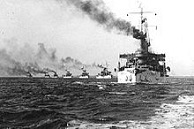











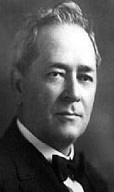








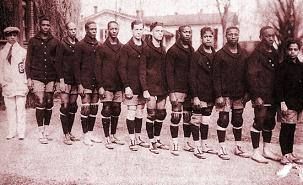
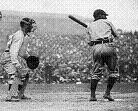











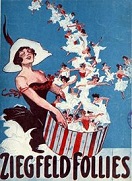
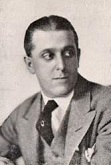
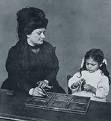









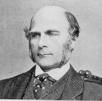
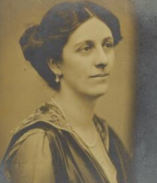






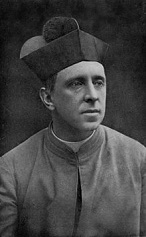
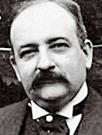


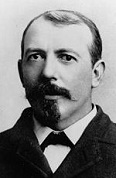









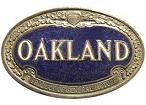






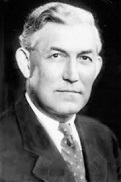
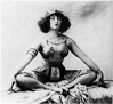




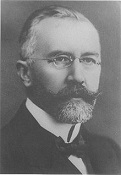


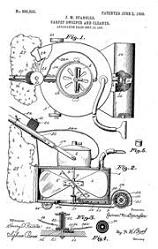
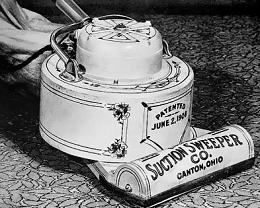
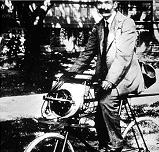
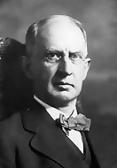
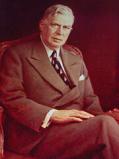
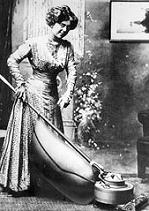
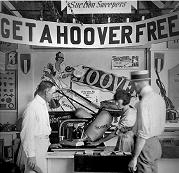

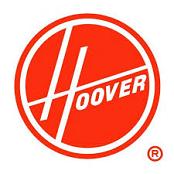
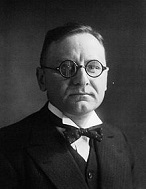
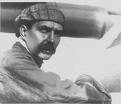



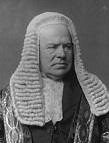



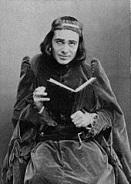
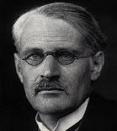
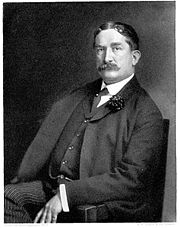
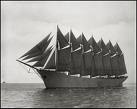

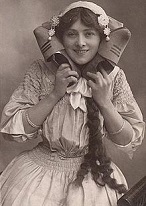


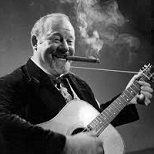

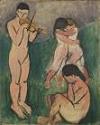

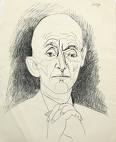
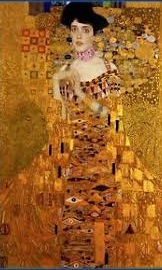
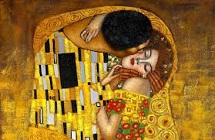

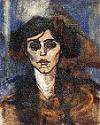
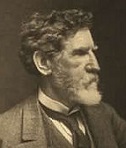
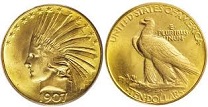
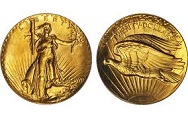
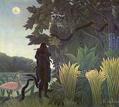

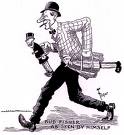
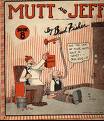

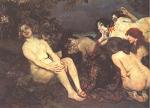
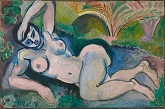
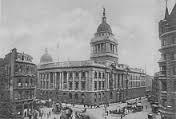

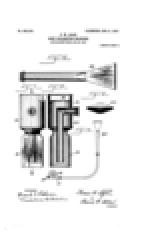
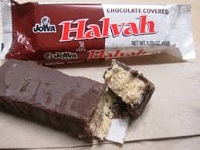
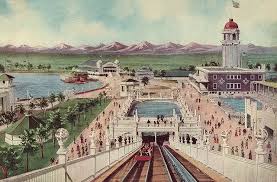
1907 Chinese Year: Sheep. This is the peak year for U.S. immigration, now at 1M (16M since 1840); in Feb. Congress passes the 1907 U.S. Immigration Act in an attempt to restrict it; on Mar. 14 Pres. Roosevelt negotiates a Gentleman's Agreement with Japan whereby it agrees to stop the emigration of laborers to the U.S., while Roosevelt agrees to block exclusionary legislation. On Jan. 1 after an attempt to attract attention at the 1904 New Year's celebration with fireworks didn't work, the New York Times bldg. on Times Square (formerly Longacre Square) drops a 700 lb. iron ball from a flagpole; Pres. Roosevelt shakes hands with 8,513 people at a New Year's Day White House presentation - a world record? On Jan. 1 new British foreign ministry official Sir Eyre Alexander Barby Wichart Crowe (1864-1925) pub. Memorandum on the Present State of British Relations with France and Germany, which concludes that Germany has replaced France as its main (only?) opponent, and warns that the British Empire is doomed if Germany achieves naval supremacy; "Second only to the ideal of independence, nations have always cherished the right of free intercourse and trade, in the world's markets, and in proportion as England champions the principle of the largest measure of general freedom of commerce, she undoubtedly strengthens her hold on the interested friendship of other nations, at least to the extent of making them feel less apprehensive of naval supremacy in the hands of a free trade England than they would in the face of a predominant protectionist Power. This is an aspect of the free trade question which is apt to be overlooked. It has been well said that every country, if it had the option, would, of course, prefer itself to hold the power of supremacy at sea, but that, this choice being excluded, it would rather see England hold that power than any other State"; "Either Germany is definitely aiming at a general political hegemony and maritime ascendency, threatening the independence of her neighbours and ultimately the existence of England; Or Germany, free from any such clear-cut ambition, and thinking for the present merely of using her legitimate position and influence as one of the leading Powers in the council of nations, is seeking to promote her foreign commerce, spread the benefits of German culture, extend the scope of her national energies, and create fresh German interests all over the world wherever and whenever a peaceful opportunity offers, leaving it to an uncertain future to decide whether the occurrence of great changes in the world may not some day assign to Germany a larger share of direct political action over regions not now a part of her dominions, without that violation of the established rights of other countries which would be involved in any such action under existing political conditions. In either case Germany would clearly be wise to build as powerful a navy as she can afford"; Sir Thomas Sanderson issues the following soundbyte: "It has sometimes seemed to me that to a foreigner reading our press the British Empire must appear in the light of some huge giant sprawling over the globe, with gouty fingers and toes stretching in every direction, which cannot be approached without eliciting a scream." On Jan. 3 the pantomime play Reve D'Egypte debuts at the Moulin Rouge in Paris, and open lezzie lovers Colette (1873-1954) and Mathilde de Morny, Marquise de Belbeuf (1862-1944) (AKA Missy) (playing a man) make out so passionately on stage that it outrages not only the Marquise's husband but the audience, causing them to riot and the play to be banned, forcing the two to have to go in the closet while Colette has a straight affair with Italian writer Gabriele D'Annunzio - shouldn't Jack be in jail? No soup for you? On Jan. 7 Mozaffar al-Din Shah (b. 1853) dies after his dissolute dictatorial rule sparks the Persian Constitutional Rev. (ends 1911) and forces him to approve a constitution with parliament (Majli), and on Jan. 8 his son Mohammad Ali Shah Qajar (1872-1925) becomes Qajar shah #6 of Persia (until July 16, 1909), going on to dissolve the Majli and rule as a dictator while enjoying as many European hos as he can buy and letting Russia achieve ascendancy over Persia; on Aug. 29 Russia recognizes Britain's sphere of influence in SE Persia and the Persian Gulf; on Aug. 31 the Triple Entente aligns Russia with Britain and France against the Central Powers (Germany, Austria-Hungary), isolating them diplomatically, pissing-off Queen Victoria's grandson Kaiser Wilhelm II, who resents how her other grandson George V and son Edward VII have got away with becoming king-emperors, ruling India via sea power; Britain recognizes the Russian sphere of influence in N Persia and a neutral sphere in the center; Russia agrees that Afghanistan is outside its sphere of influence and that it will deal with the emir only through Britain, while Britain promises not to interfere with its domestic affairs or change the country's status; both countries recognize the suzerainty of China over Tibet and promise to respect its territorial integrity. On Jan. 9 Viroqua, Wisc.-born Repub. James Norris Gillette (1860-1937) becomes Calif. gov. #22 (until Jan. 3, 1911), going on to sign Calif.'s first eugenics law, resulting in 19K people sterilized by 1950, and the 1909 Calif. State Highway Bond Act, establishing the Calif. state highway system; too bad, his connections with the Southern Pacific Railroad cause Progressives to get him replaced with Hiram Johnson. On Jan. 13 British steamship SV Pengwern sinks in the North Sea, killing 24. On Jan. 14 after an earthquake, Hamburg-Am. line steamer Prinz Waldemar runs aground at Plum Point in Kingston, Jamaica, killing three. On Jan. 22 the Music Hall Strike (War) of 1907 in Britain begins with a strike by music hall performers at the Holborn Empire Theatre, spreading to 22 theatres; entertainers Marie Dainton, Arthur Roberts, Joe Elvin, and Gus Elen, along with popular music hall singer Marie Lloyd (Matilda Alice Victoria Wood) (1870-1922) mans picket lines; after two weeks the strike is favorably settled after Somerset Maugham gets it referred to arbitration; in 1912 the owners exclude Lloyd from the first music hall royal command perf. to get even. On Jan. 26 the Austrian parliament establishes nat. quotas for its 55 seats, giving 241 to Germans, 97 to Czechs, 80 to Poles, 34 to Ruthenes, 23 to Slovenes, 19 to Ialians, 13 to Croats, 5 to Romanians, and 3 to Serbs; the main left-wing Social Dem. Party consists of 50 Germans, 23 Czechs, 7 Poles, 5 Italians, and 2 Ruthenes; there are 5 Jewish deputies. In Jan. Liberal MP (1889-1900) Augustine Birrell (1850-1933) (known for his witty lit. style) becomes British secy. for Ireland (until 1916), working to push the pro-Irish Irish Councils Bill (seeking the establishment of an Irish council to direct the spending of Irish tax proceeds), only to see a nationalist convention in Dublin repudiate it, causing him to withdraw it; he makes up for his loss of face by getting legislation passed setting up a reconstituted Irish Roman Catholic univ. On Feb. 12 the Union of Russian Peoples unsuccessfully attempts to assassinate Count Sergei Witte. On Feb. 12 steamship Larchmont collides with the Harry Hamilton in Long Island Sound, killing 183. On Feb. 20 Pres. Theodore Roosevelt signs the U.S. Immigration Act of 1907, prohibiting immigration of people with TB and other loathsome or dangerous contagious diseases, along with mentally-disabled and insane persons, hos and anarchists and people who advocate the violent overthrow of the U.S. govt., and people who practice or believe in the practice of polygamy, neatly keeping Muslims out of the U.S. On Feb. 21 English ship RMS Berlin sinks off the Hook of Holland, killing 142. On Feb. 24 Australian Lloyd steamship Imperatrix en route from Trieste to Bombay sinks off the Cape of Crete, killing 137. On Mar. 2 Pres. Roosevelt signs the U.S. Lacy Act of 1907, sponsored by U.S. Rep. (R-Iowa) (1889-91, 1893-1907) John Fletcher Lacey (1841-1913), revising federal Indian Law to allot tribal funds to certain classes of Indians upon application. On Mar. 3 the Romanian Peasants' Revolt in N Moldavia begins with an attack on Jews, then on the landowners who force them to sign share-cropping contracts, causing martial law to be proclaimed and agrarian reforms enacted; the revolt engenders anti-Semitism, which becomes a quasi-official Romanian govt. policy. On Mar. 4 SS Congo is sunk at the mouth of the Ems River near Borkum, Netherlands by German steamship Nerissa, killing seven. On Mar. 5 the Second Russian Duma convenes, which is no longer boycotted by the radicals, who end up dominating it. On Mar. 12 French battleship Iena explodes at the dock in Toulon, killing 120, causing it to be used as a gunnery target. On Mar. 15 women take their first seats in the Finnish Diet, becoming the first time in Europe - after all, they do it in the sauna? On Mar. 27 Jewish liberal Cadet Duma member Grigory Borisovich Iollos (b. 1859), ed. of Vedmosti is assassinated by the Black Hundred. In Mar. upper-class kitchen manager and cook, Irish immigrant "Typhoid Mary" Mallon (1869-1938) is arrested in New York City to prevent the spread of typhus after several people in families she has worked for become sick, spreading typhoid to at least 1.3K in New York City; she is eventually placed in permanent detention in 1915, and spends the rest of her life there, courtesy of the New York Public Health Dept., because she is a carrier, even though she is in perfect health otherwise - and just has a little problem about washing her hands after going potty? In Mar. after being expelled by the Japanese govt., Sun Yat-sen begins staging uprisings in Hanoi (until Mar. 1908), announcing the program of his Chinese Dem. Repub.; too bad, the Manchus pressure Hanoi and he ends up fleeing to Singapore, then visits Europe and the U.S. trying to drum up support. On Apr. 12 Switzerland passes a new army bill establishing an army of 281K men and a reserve of 200K while maintaining Swiss neutrality, which the Swiss army cmdrs. support in a proclamation is founded. On Apr. 18 Gen. Miguel R. Davila (Dávila) (1856-1927) becomes pres. of Honduras (until Mar. 28, 1911), going on to give foreign banana firms a blank check with land concessions, allowing them to wrest control of production from local growers by 1913 (combined with shipping and distribution), then interfere in Honduran politics, causing a labor movement on plantations to form. In Apr. the British govt. sends a note to Russia expressing willingness for a change in the Straits Agreements favorable to Russia. On May 12 the 2nd Sunday in May is established in Philadelphia, Penn. as Mother's Day. On May 16 the Pact of Cartagena between Britain, France,, and Spain maintains the status quo in the Mediterranean and the part of the Atlantic that touches Europe and Africa, and is aimed at German designs in the Balearic and Canary Islands. On June 9 the Union of Russian Peoples attempts to assassinate Count Sergei Witte again. On June 15 Harper's Weekly features a cartoon about dirigible airships. On June 15-Oct. 18 the Second Hague Peace Conference (first in 1899) of 46 nations meets, and fails to reduce armaments because of British-German rivalry, although on Oct. 18 the Hague Convention outlaws dum-dum (expanding) bullets, suffocating gases, and missiles thrown from balloons; the U.S. refuses to participate; in WWI poison gas produces 100K deaths and 900K injuries? On June 16 after it opposes the arrest of several of its members, the Second Russia Duma is dissolved by Peter Stolypin after 103 days, and a new electoral law is promulgated that tilts the electorate even more to the propertied classes and reduces peasant and worker rep., taking away two-thirds of Polish districts, after which the happy camper tsar appoints him PM, becoming known as the Stolypin Coup. On July 6 the Star and Badge of the Order of St. Patrick (the Irish crown jewels, created by George III in 1783 and presented to Ireland by William IV) are stolen from the Castle Bedford Tower in Dublin four days before a state visit of Edward VII and Queen Alexandra, after the keys to the main door disappear on June 28; the thieves and their jewels are never caught, and in the fall Edward VII demands the resignation of the four men in charge, Sir Arthur Vicars, Ulster king of arms, his nephew Pierce Mahoney, and two assts. Francis Shackleton and Francis Bennett-Goldney; Vicars refuses, but a commission of inquiry set up next Jan. dismisses him; on Apr. 14, 1921 his body is found in his home garden in County Kerry with a note saying "Spy. Informers beware. IRA Never Forgets", but the IRA later denies involvement. On July 8 Florenz Ziegfeld Jr. (1867-1932) presents the first of his 21 Ziegfeld Follies (1907-31) on the Jardin de Paris roof theater atop the the New York Theatre; revivals are staged in 1934, 1936, and 1943, dir. by Canadian-born John Murray Anderson (1886-1954); they become a radio program in 1932 and 1936. In July 15 Germany, Austria, and Italy renew the Triple Alliance for six more years despite doubts about Italy's loyalty. On July 20 SS Columbia (launched Feb. 24, 1880) en route from San Francisco, Calif. to Portland, Ore. collides in the fog with steam schooner San Pedro off San Pedro, Calif., killing 50. On July 21 lumber schooner steamship San Pedro collides in fog with passenger liner steamship Columbia off Shelton Cove, Calif., which sinks, killing 88 of 168; a massive cargo of redwood keeps San Pedro afloat. On July 27 (night) the Hong Kong Typhoon sinks passenger steamer Ying King, killing 421. On July 30 the first elections are held in the Philippines, with voting limited to literate property owners (2% of the pop.); the Union Nacionalista wins 59 of the 80 seats, bringing Manuel L. Quezon (1878-1944) and Sergio Osmena (Osmeńa) (1878-1961) to prominence. On July 30 Russia and Japan sign an agreement similar to the one between France and Japan. In Aug. Winston Churchill's future sister-in-law writes him a letter, with the soundbyte: "Please don't become converted to Islam; I have noticed in your disposition a tendency to orientalise, Pasha-like tendencies, I really have... "If you come into contact with Islam your conversion might be effected with greater ease than you might have supposed, call of the blood, don't you know what I mean, do fight against it"; by now he's a dyed-in-the-wool atheist? On Sept. 4 (midnight) the first documented attack on Sikhs in the U.S. occurs in Bellingham, Wash. as a mob of 500 (mainly white lumber and mill workers) attacks "Hindoo" immigrants from Punjab, after which the Seattle Morning Times covers it up as "not a question of race, but of wages", with the soundbyte: "When men who require meat to eat and real beds to sleep in are ousted from their employment to make room for vegetarians who can find the bliss of sleep in some filthy corner, it is rather difficult to say at what limit indignation ceases to be righteous"; on Sept. 7 another anti-Asian riot in Vancouver, B.C., Canada destroys the Chinese and Japanese quarters; on Sept. 11 a fight between 20 Swedes and 100 Sikhs in Seattle, Wash. occurs in a bar. On Sept. 7 Am. ticklish lesbian feminist Alice Babette Toklas (1877-1967) meets Gertrude Stein (1874-1946) in Paris on the first day she arrives, and they become lovers, moving in together and hosting a salon at 27 Rue de Fleurus for Am. expatriate writers incl. Ernest Hemingway (1899-1961), Sherwood Anderson (1876-1941), Thornton Wilder (1897-1975), and Paul Bowles (1910-99), and avant-garde artists incl. Pablo Picasso (1881-1973), Henri Matisse (1869-1954), and Georges Braque (1882-1963) - B as in bi? On Oct. 8-12 the Chicago Cubs (NL) defeat the Detroit Tigers (AL) 4-0-1 to win the Fourth (4th) (1907) World Series, with the Cubs allowing only three runs while stealing 18 bases; Tigers pitcher Ty Cobb makes his WS debut. On Oct. 17 after Otto Heinz tries to corner the copper market, the Panic of 1907 causes a run on U.S. banks, and a stock market slide of 50%, until J.P. Morgan imports $100M in gold from Europe; bucket shops, betting parlors around Wall St. where non-stock owners place side bets on the market, which contributed to the panic, are soon outlawed by a new federal law; too bad, the law is annulled in 2000, setting up the U.S. for the 2008 Liquidity Crisis. On Oct. 17-18 the Org. of American Historians (originally the Miss. Valley Historical Assoc.) is founded in Lincoln, Neb.; in 1914 it begins pub. The Mississippi Valley Historical Review, which in 1963 becomes the Journal of Am. History; on Apr. 23, 1965 it adopts its current name; in 1963 it moves its offices from Tulane U. to Indiana U., followed in summer 1970 by the U. of Utah; by modern times it reaches a membership of 8K individuals and 1,250 institutions, becoming the largest prof. society dedicated to the teaching and study of Am. history. Nero reborn, or, What an artist dies in me, Part 2? In Oct. Adolf Hitler takes the exam at the Academy of Fine Arts in Vienna and fails for the first of 3x (1908, 1910), the rector telling him he'll never make an artist but that he could become an architect; Hitler later writes, "Without exaggeration, I always believe that the world has lost a great deal, in that I could not attend the academy and learn the technical end of the art of painting. Or has fate chosen me for something else?"; his mother Frau Hitler, who wrote complaining about his "crazy trip to Vienna" dies; next year he shares a room with August Kubizek (1888-1956) ("sweet-cheeks?") at 29 Stumpergasse, where he either has a gay gassestumper relationship with him or watches him moon over unapproachable Stephanie?; in 1953 Kubizek pub. the gushing memoir The Young Hitler I Knew - what will he do with his life, don't ask? On Nov. 12 the town of Lakeside, Colo. immediately W of Denver at 44th Ave. and Sheridan Blvd. in Jefferson County is incorporated by Denver brewer Adolph J. Zang (1856-1916) (son of Zang Brewery founder Philip Zang), who next year opens Lakeside Amusement Park (AKA the White City in an attempt to clone the 1893 Chicago Exposition) 1/2-mi. from Elitch's Gardens on the E shore of 37-acre Lake Rhoda, allowing it to escape Dirty Denver liquor laws with its own laws and jail, featuring a glittering display of 100K lights and the 150-ft. Tower of Jewels on top of the park casino and casino theater, along with the Orient Express miniature train that circles the lake, pulled by steam locomotives Puffing Billy and Whistling Tom from the 1904 St. Louis World's Fair, along with the world's first miniature gauge diesel locomotive modeled after the Calif. Zephyr; in 1912 the Derby Racer wooden roller coaster opens; in 1935 longtime park employee Benjamin Krasner (-1965) (father of Rhoda of Lake Rhoda fame, who becomes a physician and succeeds him as owner) purchases it, adding the El Patio Ballroom which hosts stars incl. Duke Ellington and Glenn Miller, and hires Denver architect Richard Crowther to give it an Art-Deco style complete with rainbow neon lights; in 1938 Lakeside Speedway opens, closing in 1988; in 1938 the baseball field is turned into a 7K-car parking lot with free parking; in 1940 the Ed Vettel-designed Cyclone wooden roller coaster opens, followed in 1955 by the Wild Chipmunk, and in 1986 by a Zamperia dragon coaster (on the site of the old Funhouse, which featured Laughing Sal, a Fat Lady mannequin); in 1965 physician Rhoda Krasner becomes the owner; a total of eight persons live on the SE side, all employees; in 1956 Lakeside Mall opens, closing in 2010 and replaced by a Wal-Mart. On Nov. 13 French aviator Paul Cornu (1881-1944) makes a 6-ft.-high, 20 sec. free flight in a homemade tandem-rotor helicopter in Lisieux. On Nov. 14 the conservative-to-the-core (Rightist, Nationalist, Octobrist) Third Russian Duma is elected (ends 1912), and it begins arresting and convicting thousands of political undesirables while forming wondeful new groups such as the Union of True Russian Men (Sept. 1905) and the League of the Russian Nobility, pissing many off and causing them to turn to the radicals; meanwhile PM Peter Stolypin continues reforms, incl. social insurance, zemstvo reform, police reorg., land banks, education, and promotion of emigration to lovely Siberia; Russia begins to expand economically and industrialize - there's unity in the team? On Nov. 15 the comic strip A. Mutt, later Mutt and Jeff, created by Harry Conway "Bud" Fisher (1885-1954) debuts in the San Francisco Chronicle (until 1982), becoming the first U.S. newspaper cartoon pub. as a strip of panels (i.e. comic strip); "two mismatched tinhorns", Augustus Mutt (tall), Jeff (short) and his twin bro' Julius; Jeff rises from a mental institution to being nominated for U.S. pres; ends June 26, 1983. On Nov. 16, "Sooner State" Oklahoma (Choctaw "red people") is admitted as the 46th U.S. state, with an Okla. Constitution modeled after that of the proposed state of Sequoyah, with capital in Guthrie, Okla. (until 1910); on Nov. 16 after helping draft the Okla. Constitution and helping it gain statehood, blocking the inclusion of women's suffrage and pushing for inclusion of prohibition, prominent Dem. Muskogee businessman Charles Nathaniel Haskell (1860-1933) (who arrived in Muskogee in mar. 1901 and built the first 5-story business block in Okla. Territory, with 14 brick bldgs., organizing and building railroads to pump up its pop. to 25K by 1910) becomes Okla. gov. #1 (until Jan. 9, 1911), going on to push for Oklahoma City to become the state capital despite Muskogee being the same distance (approx. 140 mi.) from Guthrie. On Dec. 6 a coal mine explosion in Monongha, W. Va. caused by eight runaway coal cars kills 361. On Dec. 8 Oscar II (b. 1829) dies, and his bi son Gustaf (Gustav) V (1858-1950) becomes king of Sweden (until Oct. 29, 1950). On Dec. 9 Christmas Seals go on sale for the 1st time in the Wilmington, Del. post office; the proceeds are used to fight TB. On Dec. 16 Pres. Roosevelt dispatches the Great White Fleet, 16 white-painted battleships (flagship Connecticut, Georgia, Illinois, Kansas, Kearsarge, Kentucky, Louisiana, Minnesota, Missouri, Nebraska, New Jersey, Ohio, Rhode Island, Vermont, Virginia, Wisconsin) on a global voyage from Hampton Roads, Va., in order to impress the Japanese and show that the U.S. intends to range freely in the Pacific; it sails through the Strait of Magellan to Japan, Australia, and New Zealand before returning through the Suez Canal, stopping in many ports and arriving back on Feb. 22, 1909 after sailing 46K mi.; in 1908 the Great White Fleet passes in review off the coast of the leper colony in Molokai, Hawaii as a signal of respect to Brother Joseph. - don't ask what the oil bill was? On Dec. 17 Ugyen Wangchuck (1862-1926) is unanimously chosen as the first maharaja (hereditary monarch) of backward isolated Bhutan (until Aug. 21, 1926) by the people at the capital of Punakha; the British give him the style of highness, and grant him a permanent 15-gun salute is founded; he was already knighted in 1904. On Dec. 18 1.78M acre Ouachita Nat. Forest ("Washita" = good hunting grounds) (originally Ark. Nat. Forest until Apr. 29, 1926) in W Ark. and E. Okla. is established. On Dec. 19 a coal mine explosion in the Darr Mine in Jacobs Creek, Penn. kills 239 workers, some as young as 14. In Dec. German diplomat Friedrich von Holstein pub. the Holstein Memorandum, declaring that the expansion program of the German Navy League is misguided because it will raise suspicion about Germany's motives, and is futile because the Brits will build two ships for every new one they build. Wilhelm II and Nicholas II meet at Swinemunde in Pomerania, Prussia on the Baltic in NW Poland. Edward VII goes to Rome, Paris, and Marienbad, where he meets with Russian foreign minister Alexander Izvolski. England and France agree on the independence of Siam. The Transvaal is established as a self-governing British colony, with Louis Botha as PM #1 (until ?). New Zealand (pop. 1M) becomes a British dominion. Vietnamese emperor (since 1889) Than Thai (1879-1954) is arrested by the French when he tries to join a resistance movement, is declared insane and forced to abdicate, and his son prince Nguyen Phuc Vinh San becomes emperor Duy Tan (1899-1945) (until 1916). Sungjong abdicates, becoming the last Yi Dynasty king of Korea, and Japan is granted a protectorate over Korea. The Dutch defeat the Achinese tribe and complete the occupation of Sumatra; meanwhile Sir Henry Wilhelm August Deterding (1866-1939), who got his start in the Duri Old Field in Sumatra forms the Royal Dutch Shell Co. . A strike by nitrate workers in Santa Maria de Iquique, Chile is crushed by the army, killing several thousand. Austria approves universal direct suffrage. New Zealand keeps out front with a nat. child welfare program. Pope Pius X recognizes the validity of civil marriages, but his encyclical Pascendi Gregis condemns modernism - at first it was total denial? After yearly attempts to pass it since 1847, the British Deceased Wife's Sister's Marriage Act reverses the 1835 Marriage Act that prohibited a man from marrying a you know what unless they did it abroad like William Holman Hunt and John Collier. The Harden-Eulenburg Affair exposes the homosexuality of Prince Philip of Eulenberg-Hertefeld, Count Bernhard von er, Bulow and other cabinet members, discrediting them and causing the Kaiser to end up relying more on his military leaders, setting Germany up for WWI? Crown Princess Louise of Sachsen (divorced in 1903 for adultery) marries Italian violinist Enrico Toselli. The Young Tunisian Movement is founded by univ. students to discuss modernization and technological development of Tunisia while keeping an Islamic culture, and begins pub. Le Tunisien (until 1911). U.S. district judge (since 1905) Kenesaw Mountain Landis (1866-1944) of N Ill. finds Standard Oil Co. guilty of illegal rebating, and imposes a $29M fine, which is later reversed but attracts a mountain of nat. attention to him. Executive orders of the U.S. pres. begin to be given official numbers. The U.S. Tillman Act, sponsored by white supremacist Dem. S.C. Sen. (1895-1918) "Pitchfork" Benjamin Ryan Tillman (1847-1918) becomes the first legislation in the U.S. prohibiting monetary contributions to nat. political campaigns by corporations; weak enforcement makes it ineffectual; in 1910 disclosure reqts. and spending limits are enacted for House candidates, followed by Senate candidates is founded; in 1902 Tillman assaulted fellow Dem. S.C. Sen. (1897-1903) John Lowndes McLaurin (1860-1934), causing the Senate to add a provision to its rules that "No senator in debate shall, directly or indirectly, by any form of words impute to another Senator or to other Senators any conduct or motive unworthy or unbecoming a Senator". Due to the celebrated wrongful conviction of Adolf Beck (1841-1909) from mistaken identity, the English Court of Criminal Appeals is created. Joseph Stalin robs a transport from the State Bank in Tiflis of 375K rubles; Vladimir Lenin leaves Russia for W Europe, mainly Switzerland (until 1917), and founds the newspaper The Proletarian - with the loot? English eugenics founder Sir Francis Galton (1822-1911) (Charles Darwin's half-cousin) and English feminist trendsetter Sybil Neville-Rolfe (nee Sybil Katherine Burney) (1885-1955) found the Eugenics Education Society (which becomes the Eugenics Society in 1924, and the Galton Inst. in 1989) to reduce the birth rate of low IQ and low class useless eaters; Sexy Sybil goes on to host the 1st Internat. Eugenics Congress in South Kensington, London in 1912, lobby to pass the British Mental Deficiency Act of 1913, and found the Nat. Council for Combating Venereal Disease (NCCVD) in 1914 (changing to British Social Hygiene Concil in 1926) and the Nat. Council for the Unmarried Mother and Her Child in 1918 (later renamed Ginberbread). United Press Internat. (UP or UPI) (originally United Press Assocs. until 1958) is founded by Edward Willis "E.W." Scripps (1854-1926) from the merger of three smaller news syndicates, reaching 6K media subscribers incl. newspapers, mags., and radio and TV stations fed by 200 news bureaus in 92 countries with 2K full-time employees; in 1958 it acquires the Hearst Corp.'s INS agency; in 1982 it sells-out for the first time; in 1999 it sells its broadcast client list to the rival Associated Press (AP). The Lake Mohonk Conference on Internat. Cooperation convenes, with Columbia U. pres. (since 1901) Nicholas Murray Butler (1862-1947) as chmn. (again in 1909-12) - I've got a hunger deep inside, but only got a dollar to decide? German Jewish philosopher Theodor Lessing (1872-1933) founds the first anti-noise (antilarmverein) society in Germany. Ernest Shackleton begins an Antarctic expedition that reaches the south magnetic pole (ends 1909); too bad, he abandons the expedition in 1909, leaving two crates of McKinley & Co. Scotch whiskey, which is recovered in 2009. The city of Honolulu, Hawaii (modern-day pop. 900K/1.3M) is incorporated; the U. of Hawaii is founded in Manoa, Honolulu, Hawaii, becoming the flagship of the U. of Hawaii system; alumni incl. both parents of U.S. pres. Barack Obama. The United Parcel Service is founded in Seattle, Wash. Gila Cliff Dewellings Nat. Monument in N.M. on the W fork of the Gila River is established by the U.S. govt. to preserve three groups of prehistoric Indian cliff dwellings. The Gary Plan of progressive experimental education that tries to eliminate Christianity from the curriculum is launched in Gary, Ind., headed by William Wirt, student of John Dewey at the U. of Chicago; in 1914 it is adopted in New York City. A mining disaster in Wales leads to the 1910 English music hall song Don't Go Down in the Mine, Dad. The U.S. Mint discontinues the Coronet design (begun 1838 for the eagle and 1949 for the double eagle) and begins issuing $10 Indian Head Eagle coins and $20 Standing Liberty Double Eagle coins (until 1933), all designed by Dublin, Ireland-born Am. sculptor Augustus Saint-Gaudens (1848-1907), who works from a studio in Cornish, N.H.; Pres. Roosevelt forbids the motto "In God We Trust", considering it in bad taste; Pres. Taft restores it in 1908. The United Methodist Church is founded in Britain by the union of the Methodist New Connection (founded 1797), the Bible Christians (founded 1815), and the United Methodist Free Churches (founded 1857). Carl Hagenbeck (1844-1913) opens the Tierpark Hagenbeck private zoo in Hamburg-Stellingen, becoming the first modern zoo with native habitats sans bars. U.S. army engineer George Washington Goethals (1858-1928) is put in charge of building the Panama Canal (ends 1914). The 31K-ton SS Lusitania and 31-ton SS Mauretania are launched; Lusitania breaks the transatlantic record, steaming from Queenstown (Cobh), Ireland to New York City in 5 days, 45 min. The Eiffel Tower escapes demolition by being reclassified as a radio antenna. The U.S. govt., after looking the other way during the post-Civil War land grab gives all remaining Cherokee territory to the lily-white state of Okla., and abolishes the Cherokees' right to self-govt. (until 1975). Ga.-born Father Divine (Rev. Major Jealous Divine) (George Baker Jr.) (1876-1965) begins his ministry as "the Messenger", claiming to be God and founding the Internat. Peace Mission in New York City, relocating to Philly in 1942. Habibullah Khan founded one military and one civilian school in Kabul, and visits British India as a guest of viceroy Gilbert Elliot. The term "egghead" is coined for (white) smart people - forget about brown eggs? The U. of Saskatechewan is founded in Saskatoon, Canada, emphasizing agriculture like its brother U. of Alberta. Maria Montessori (1870-1952) devises the Montessori Method for teaching young children by emphasizing guidance and self-education over rigid control - what have you got to lose except your headache? The Ladies' Alpine Club is founded in London, England; in 1975 it merges with the Alpine Club. The first Cubist Exhibition is held in Paris; Cubism breaks an image down into multiple views on the same canvas. Am. novelist Edith Wharton moves to France. Leon Daudet (1867-1942), contributor to Le Figaro, Le Gaulois, and the anti-Semitic La Libre Parole founds the royalist newspaper L'Action Francaise. Yachting Mag. debuts with an article on tea by Sir Thomas Lipton. San Francisco, Calif. writer Frank Gelett Burgess (1866-1951) coins the term "blurb". Austrian Jewish physicist Lise Meitner (1878-1968) comes to Berlin, beginning research on thorium with Otto Hahn, with him getting all the credit while she does all the work, struggling through impassable glass ceilings to eventually become the first woman professor in Germany. San Francisco, Calif.-born "The Call of the Wild" celeb novelist John Griffith "Jack" London (nee John Griffith Chaney) (1876-1916) visits Hawaii with his wife Charmian on their yacht Snark, incl. Pearl Harbor, Ewa Plantation, Haleakala, Kailua-Kona, Hilo, and Molokai, introducing Americans to surfing, after which his checks bounce; they return in 1915 for 10 mo., giving a speech at a banquet with Queen Liliuokalani, Prince Jonah Kuhio Kalanianaole, and Duke Kahanamoku, advocating restriction of immigration. Corsets go out of fashion. Film titles replace the commentator in movie houses. Brothers David Horsley (1873-1933) and William Horsley (1870-1956), along with ex-Biograph Studios employee Charles Gorman found Centaur Film Co. in a converted store in Bayonne, N.J., producing three movies a week by 1910. Gilbert M. "Broncho Billy" Anderson (Maxwell Henry Aronson) (1880-1971) and George Kirke Spoor (1872-1953) found Essanay (S&A) Studios (originally Peerless Film Manufacturing Co.) in Chicago, Ill., releasing its first film An Awful Skate, or The Hobo on Rollers on July 31, making a star of the studio janitor Bernard "Ben" Turpin (1869-1940), who allegedly insures his trademark crossed eyes for $25K/$100K; in 1908 it moves to a 72K sq. ft. bldg. at 1333-45 W. Argyle St. in Uptown Chicago; Allan Dwan is hired as a screenwriter, going on to become a famous Hollywood dir.; Louella Parsons is hired as ditto; the studio discovers stars incl. Wallace Beery, Francis Xavier Bushman, and Gloria Swanson; the trademark is an Indian head; in 1915 it begins releasing comedies pairing Ben Turpin with English actor Charlie Chaplin, who soon hikes to Calif.; it goes defunct in 1917. The Metz Co. of Waltham, Mass. is founded to produce brass era automobiles, incl. the 1914 $475 4-cylinder 22.5 hp Model 22 2-seat torpedo roadster ("winner of the Glidden Tour") and the $250 Success, offering the first kit automobile on the installment plan (until 1911); it goes bankrupt in 1922. The New York Taxicab Co. is founded by Harry N. Allen, who imports 65 gasoline-powered cars from France and paints them red and green, then changes to yellow for visibility; by next year it has 700 taxicabs. Col. Robert Samuel McLaughlin (1871-1972) of Canada founds the McLaughlin Motor Co., which next year becomes Gen. Motors of Canada, and McLaughlin partners with William Crapo "Billy" Durant (1861-1947) to build Buick power trains, producing McLaughlin Buicks (until 1942); in 1915 McLaughlin founds the Chevrolet Motor Co. of Canada. The Oakland Motor Car Co. is founded in Pontiac, Mich., becoming a div. of Gen. Motors (GM) in 1909-31; in 1916 it introduces a V8 engine. The Kalem Co. (after the initials KLM) is founded in New York City by Chicago film distributor George Kleine, Samuel Long, and Frank J. Marion (sales mgr. at Biograph Studios), joining the Edison Trust and filming outdoors because of the lack of a studio, run by dir. Sidney Olcott (1873-1949), who is lured away from Biograph with the offer of $10 per picture, with a min. of one picture per week; in Feb. his first film The Sleigh Belle debuts, becoming a hit; on Dec. 7 Ben Hur debuts, becoming a hit, causing Olcott to be promoted to pres. and awarded one share of stock; in 1910 under Olcott Kalem Studios becomes the first to travel outside the U.S. to film on location, going to Ireland and making 12+ films, followed by Palestine in 1912, where he makes From the Manger to the Cross; or, Jesus of Nazareth (debuts Oct. 3 in London), starring Robert Henderson-Bland as Jesus, Percy Dyer as Boy Jesus, Alice Hollister as Mary Magdalene, and Gene Gauntier as the Virgin Mary, becoming the first 5-reel film, doing $1M box office on a $35K budget, making him the film industry's #1 dir.; in 1910 a studio for Western films is founded in Verdugo Canyon in Glendale, Calif., and another one on the grounds of the Roseland Hotel near Jacksonville, Fla.; is founded another studio is founded in Santa Monica, Calif., closing in Oct. 1913 when they take over the Essanay Studios property at 1425 Fleming St. in Hollywood, Calif.; too bad, despite making them big bucks, the chintzy studio owners won't raise his $150/week salary, and after cashing in his share for $350 he resigns, joining Famous Players-Lasky in 1915, followed by Paramount, after which Kalem Studios tanks and sells out to Vitagraph Studios in 1916 after making 1.5K movies; is founded after the estate of "Ben-Hur" author Lew Wallace sues for copyright infringement, they settle out of court for $25K, waking up film studios to the need to obtain rights to stories before filming. French gastronome Curnonsky "Cur" (Maurice Edmond Sailland) (1872-1956) coins the name "Bibendum" for the Michelin Man, because "Michelin tires drink everything [nails], even obstacles"; on Nov. 25 he begins pub. the weekly column "Les Lundis de Michelin" in Le Journal. Joyva confectionary co. is founded in Brooklyn, N.Y. by Russian immigrant Nathan Radutzky to manufacture kosher sesame-based halvah, becoming a hit with kosher delis and stores. Architecture: On Feb. 27 the new Old Bailey Bldg. in London opens. On Sept. 29 the foundation stone is laid for the Nat. Cathedral in Washington, D.C., with a speech given to a crowd of 10K by Pres. Theodore Roosevelt and the bishop of London; the inscription reads: "The Word was made flesh, and dwelt among us" (John 1:14); Bethlehem Chapel opens for services in 1912; the cathedral is completed in 1990. Sultan Abdulhamid orders the construction of Buyuk Sinagog (Great Synagogue) in Edirne, Turkey, home to 20K Jews; too bad, after the 1934 pogroms, most Jews leave, and by modern times there are only two Jews left, while the synagogue becomes a wreck. The Augusta Victoria Sanatorium on the Mount of Olives in Jerusalem, named after Kaiser Wilhelm II's wife is built (finished 1910), joining the 1888 Church of the Ascension, becoming the center of the German Protestant community in Ottoman Palestine. The Great American Music Hall in San Francisco, Calif. is built as a restaurant and gentleman's club; in 1971 it becomes a jazz club, later opening to rock bands incl. Jerry Garcia and Journey. The 1.5-mi. Gatun Dam across the Chagres River in Panama is begun (finished 1913), creating Gatun Lake, which becomes 20 mi. of the Panama Canal. The Maid of Erin statue is erected in Tipperary, Ireland. Sports: In July Humboldt, Kan.-born Walter Perry "Big Train" "Barney" "Big Swede" Johnson (1887-1946), known for his good sportsmanship becomes a pitcher for the Washington Senators (AL) (until 1927), winning 414 of 802 games (.597) in 21 seasons, becoming the first with 3K strikeouts until Bob Gibson on July 17, 1974. On Nov. 29 the Alberta Amateur Hockey Assoc. (AAHA) is founded in Red Deer, Canada by the Edmonton Hockey Club, Calgary Shermans et al. The 1907 Stanley Cup is won by the Montreal Wanderers. Pittsburgh Pirates shortstop Honus Wagner hits .350 this season, causing the Pirates to double his salary next year to a record $10K. New York Giants catcher (1902-8) Roger Philip Bresnahan (1879-1944), "the Duke of Tralee" introduces the catcher's shin guard into ML baseball, using modified wicket-keeper cricket pads. Sir Norman Everard Brookes (1878-1968) of Australia wins the Wimbledon singles tennis title. The first Isle of Man Tourist Trophy motorcycle race is held; the top avg. speed is 37 mph. Forrest Clare "Phog" Allen (1885-1974) becomes head basketball coach at the U. of Kan. (until 1909, then 1919-56), going on to win 24 conference and three nat. titles and become known as "the Father of Basketball Coaching". The second Nat. Bowling Assoc. (NBA) is formed in Atlantic City, N.J. competing with the Am. Bowling Congress (ABC) before disbanding in 1917; in 1907 the first NBA tournament is won by John Voorheis of Brooklyn, N.Y.; on Mar. 2-14, 1908 the Second NBA Tournament is won by Larry Erdmann of Brooklyn, N.Y.; on May 24-June 5, 1909 the Third NBA Tournament has a $50K purse. Nobel Prizes: Peace: Ernesto Teodoro Moneta (1833-1918) (Italy) and Louis Renault (1843-1918) (France); Lit.: Joseph Rudyard Kipling (1865-1936) (U.K.); Physics: Albert Abraham Michelson (1852-1931) (U.S.); Chem.: Eduard Buchner (1860-1917) (Germany) [enzymes]; Medicine: Charles Louise Alphonse Laveran (1845-1922) (France) [malaria]. Inventions: On June 2 dept. asthmatic store janitor James Murray Spangler (1848-1915) of Canton, Ohio patents the "electric suction sweeper" (#847,947), originally built out of an old fan motor mounted on a Bissell carpet sweeper, a soap box, broom handle, and pillow case, with refinements incl. a rotating brush to loosen debris; an early customer is his cousin Susan Troxel Hoover (1846-1925), whose leather goods manufacturer hubby William Henry "Boss" Hoover (1849-1932) of New Berlin (North Canton), Ohio goes on to purchase the patent from him in 1908 and found the Electric Suction Sweeper Co with $36K capital, serving as pres., with Spangler as production supervisor, which after his death becomes the Hoover Suction Sweeper Co., which in 1922 is renamed the Hoover Co., starting out offering a 10-day free home trial of its first model, the $125 ($60?) Model O (complete with steel casing, casters, and attachments), and er, sweeping the U.S. market, making "hoover" into a verb, adding a "beater bar" in 1919 (with the slogan "It beats as it sweeps as it cleans"), disposal filter bags in the 1920s, and an upright model in 1926; his son Herbert William Hoover Sr. (1877-1954), who helped all along takes over after the Boss dies. In July William Willett (1856-1915) of England pub. the pamphlet The Waste of Daylight, proposing Daylight Savings Time, with clocks advanced by 20 min. at 2 a.m. each Sunday in Apr. for a total of 80 min., then retarded likewise in Sept.; despite Winston Churchill's backing, Parliament rejects it until WWI forces them to reconsider. On Aug. 6 Frank W. Agan of Ludlow, Vt. receives U.S. Patent #862,369 for the Agan Vacuum, which requires one operator to turn a handle that runs the fan while the second operator operates the hose and nozzle, collecting the dirt and dust in a water tank. On Sept. 19 French Nobel Prize winning physiologist Charles Robert Richet (1850-1935) makes a successful ascent of about 2 ft. in a tethered aircraft with four biplane rotors in Douai, France, becoming the first successful helicopter, designed by Louis Charles Breguet (1880-1955) and his brother Jacques Breguet, and named the Gyroplane Laboratoire. The Age of Plastic begins with something baking? Bakelite (pr. BAY-ka-lite), a plastic made out of phenol and formaldehyde, and first sold as a synthetic substitute for shellac is invented and manufactured (baked?) by Leo Hendrik Baekeland (1863-1944), who came to the U.S. in 1889; it is so versatile and superior in its chemical, mechanical, and physical qualities that it can be molded into any unbreakable shape, and is a perfect insulator, making possible the first automobile self-starters. A 4-cylinder engine with sliding transmission is introduced by Buick. To compete with Wilbur Buds from Lititz, Penn., Hershey Co. begins producing the Hershey's Kiss (named after the sound and motion made by the machine depositing the chocolate), introducing a wrapping maching in 1921, allowing a small paper ribbon to be added to each kiss. Arthur Constantin Krebs (1850-1935) of France invents the Multi-Disc Clutch. Paris-born French chemist Eugene Paul Louis Schueller (1881-1957) invents a new synthetic hair dye which he calls Aureale, founding L'Oreal (originally Societe Francaise de Teintures Inoffensives pour Cheveux), which grows into a cosmetics giant, the world's largest; in 1936 he invents sunscreen. Chicago dentist H. William Taggart adapts the disappearing wax technique of jewelers to the making of accurate gold dental inlays, and later discovers that he had been preceded by 25 years by Dr. Philbrook of Dennison, Iowa. The Diabolo, a toy consisting of a wooden spool whirled and tossed on a string tied to two sticks is invented (or just named from dia + bolo = two + throw, as well as diablo = devil?). Persil becomes the first commercially marketed laundry detergent. Science: On Mar. 16 Austrian surgeon Hermann Schloffer (1868-1937) performs the first successful removal of a pituitary tumor at the U. of Innsbruck through a superior nasal transsphenoidal route; in 1916 he becomes the first to perform a splenectomy. Am. radiochemist Bertram Borden Boltwood (1870-1927) uses the decay of uranium to lead to date rocks to ages between 400M and 2.2B years, becoming the first successful use of Radiometric Dating; the Nat. Academy of Sciences officially adopts it in 1926. Austrian-born Am. psychiatrist Abraham Arden Brill (1874-1948) performs tests with Carl Jung at the Zurich Psychiatric Clinic which corroborate the theories of Sigmund Freud, who is also of Zurich; next year Brill returns to the U.S., becoming the first to introduce Freudian psychoanalysis to the U.S. and trans. Freud into English. Goodwater, Ala.-born mathematician Robert Daniel Carmichael (1879-1967) proposes Carmichael's Totient Function Conjecture, producihg a faulty proof that he withdraws in 1922; it is first solved in ? Irish physicist Arthur William Conway (1875-1950) proposes that spectral lines are created by single electrons, each in an "abnormal state", producing vibrations of a specific frequency, which is later used by Niels Bohr to develop quantum mechanics. English astronomer Sir George Howard Darwin (1845-1912) (son of Charles Darwin) and Am. astronomer William Henry Pickering (1858-1938) speculate that the Moon was created by breaking away from the Pacific Ocean; Pickering also proposes that Am., Asia, Europe, and Africa were once a single continent, and drifted after the Moon separated. German chemist Hermann Emil Louis Fischer (1852-1919) discovers Peptide Chains, consisting of amino acids that fold in three dims. to produce proteins. Am. pathologist Ross Harrison develops tissue culture techniques. Am. zoologist Thomas Hunt Morgan (1866-1945) begins work on the first chromosome map (for fruit flies). Does the name Pavlov ring a bell? A Nobel Prize under his belt for digestion, Ivan P. Pavlov (1849-1936) studies conditioned reflexes with his salivate-on-cue Pavlov's Dogs. The first Blood Transfusion of matched (typed) blood takes place. The rare earth metal element Lutetium (Lu) (#71) is discovered by French chemist Georges Urbain (1872-1938) after he separates ytterbia (discovered in 1878 by Jean de Marignac) into neoytterbia (ytterbium) and lutecia (lutetium); Karl Auer Freiherr von Welsbach (1858-1929) of Germany independently does the same thing, calling them aldebaranium and cassiopeium. A single jaw is found in Heidelberg, Germany, which scientists decide is a new hominoid species termed Homo heidelbergensis (Heidelberg Man), dating it to -150K, and deciding that it is a direct ancestor of the Neanderthal - meet the Flintstones? Nonfiction: Alfred Adler (1870-1937), Study of Organ Inferiority and Its Psychical Compensation. Robert Appleton Co., The Catholic Encyclopedia (4 vols.) (1907-12). Svante Arrhenius (1859-1927), Worlds in the Making: The Evolution of the Universe; "Another process which withdraws carbonic acid [carbon dioxide] from the air is the assimilation of plants... [If] the percentage of carbon dioxide be doubled, the absorption by the plants would also be doubled. If, at the same time, the temperature rises by 4C, the vitality will increase in the ratio of 1:1.5, so that the doubling of the carbon dioxide percentage will lead to an increase in the absorption of carbonic acid by the plant approximately in the ratio of 1:3. An increase of the carbon dioxide percentage to double its amount may hence be able to raise the intensity of vegetable life... threefold"; "We often hear lamentations that the coal stored up in the earth is wasted by the present generation without any thought of the future, and we are terrified by the awful destruction of life and property which has followed the volcanic eruptions of our days. We may find a kind of consolation in the consideration that here, as in every other case, there is good mixed with the evil. By the influence of the increasing percentage of carbonic acid in the atmosphere, we may hope to enjoy ages with more equable and better climates, especially as regards the colder regions of the earth, ages when the earth will bring forth much more abundant crops than at present, for the benefit of rapidly propagating mankind." George Louis Beer (1872-1920), British Colonial Policy, 1754-1765. Enoch Arnold Bennett (1867-1931), The Reasonable Life. Henri Bergson (1859-1941), L'Evolution Creatrice. Oscar Browning (1837-1923), The Fall of Napoleon. William Bulfin, Rambles in Eirinn; his 3K mi. cycle ride through Ireland. Champlin Burrage, The True Story of Robert Browne (1550?-1633), Father of Congregationalism. Cambridge U. Press, The Cambridge History of English Literature (18 vols.) (1907-21). Hereward Carrington (1880-1958), The Psychical Phenomena of Spiritualism, Fradulent and Genuine. H.M. Chadwick, Origin of the English Nation. Robert William Cole, The Death Trap. Timothy Cole (1852-1931), Spanish Masters. John Rogers Commons (1862-1945), Races and Immigrants in America; U. of Wisc. economist lays out arguments for white superiority, ramping up the eugenics movement; "In the entire circuit of the globe those races which have developed under a tropical sun are found to be indolent and fickle. From the standpoint of survival of the fittest, such vices are virtues, for severe and continuous exertion under tropical conditions bring prostration and predisposition to disease. Therefore, if such races are to adopt that industrious life which is a second nature to races of the temperate zones, it is only through some form of compulsion. The negro could not possibly have found a place in American industry had he come as a free man..."; "Other races of immigrants, by contact with our institutions, have been civilized — the negro has only been domesticated"; "The Chinese and Japanese are perhaps the most industrious of all races, while the Chinese are the most docile. The Japanese excel in imitativeness, but are not as reliable as the Chinese. Neither race, so far as their immigrant representatives are concerned, possesses the originality and ingenuity which characterize the competent American and British mechanic." Kenyon Cox (1856-1919), Painters and Sculptors. Phyllis Dare (1890-1975), From School to Stage (autobio.). Edward Dicey, The Egypt of the Future. Wilhelm Dilthey (1833-1911), The Essence of Philosophy (Das Wesen der Philosophie); English trans. pub. in 1954; expounds his Romantic hermeneutics that considers understanding as the key for the human sciences (human expression of life) in contrast with the natural sciences (Nature), influencing Existentialism and making fans of Martin Buber and Martin Heidegger; he attempts to define philosophy through history with the three basic Weltanschauungs (popularizing the term), incl. Naturalism, which sees man as determined by Nature, Subjective Idealism, in which man is conscious of his separation from Nature by his freewill, and Objective Idealism, in which man is conscious of his harmony with Nature, picturing a spectacle of philosophies passing through history, rising and falling, and covering the Earth like vegetation, causing the philosopher to have to classify them "as the botanist classifies plants"; as a balance, the "formative laws of the mind" and the "structure of inner life" AKA structure psychology and the "ever constant structure of life", i.e. psychology is expected to provide a firm foundation for all human studies one day. Rudolf Christoph Eucken (1846-1926), Life's Basis and Life's Idea: The Fundamentals of a New Philosophy of Life. Emil Fischer (1852-1919), Researches on the Chemistry of Proteins. John Frederick Charles Fuller (1878-1966), The Star in the West: A Critical Essay Upon the Works of Aleister Crowley (first book). Archibald Geikie (1835-1924), Landscape in History and Other Essays. Hardinge Stanley Giffard, 1st Earl of Halsbury (1823-1921), Halsbury's Laws of England (31 vols.) (1907-17); becomes a std. work; followed by "Halsbury's Statutes" (1929), and "Halsbury's Statutory Instruments". Edmund William Gosse (1849-1928), Father and Son; about him and his famous Bible-thumping naturalist daddy Philip Henry Gosse (1810-88), whom he calls a "scientific crackpot", "Bible-soaked romantic", "stern and repressive father", and "pulpit-thumping Puritan throwback to the seventeenth century". Remy de Gourmont (1858-1915), Le Probleme du Style. Frank Channing Haddock (1853-1915), The Power of Will: A Practical Companion-Book for Unfoldment of Selfhood Through Direct Personal Culture; vol. 1 of the 7-vol. "Power-Book Library", which emphasizes the secular side of New thought. Evelyn Beatrice Hall, Friends of Voltaire; erroneously attributes the quote "I disapprove of what you say but I will defend to the death your right to say it" to him, but it sticks; he actually said "Think for yourselves and let others enjoy the same privilege." W. Hunt, The English Church from Its Foundation to the Norman Conquest. Ellsworth Huntington (1876-1947), The Pulse of Asia: A Journey in Central Asia Illustrating the Geographic Basis of HIstory. William James (1842-1910), Pragmatism. Karl Johann Kautsky (1854-1938), Ethics and the Materialist Conception of History. George Lyman Kittredge (1860-1941), Notes on Witchcraft. John Knox Laughton (1830-1915), Sea Fights and Adventures, Described. Shailer Mathews (1863-1941), The Church and the Changing Order. Nikolai Alexandrovich Morozov (1854-1946), The Revelation in Storm and Thunder: The History of the Emergence of the Apocalypse; Russian historian-scientist claims that ancient history chronology is way off, and that the Revelation of St. John was written by John of Antioch (Chrysostomus) on Sept. 30, 395 C.E., later making a disciple of Russian mathematician Anatoly Fomenko (1945-); pub. being imprisoned in Peter and Paul Fortress and Shlisselburg Fortress in 1882-1905, giving him leisure for intensive studies in history and the sciences. Adelaide Nutting and Lavinia L. Dock, A History of Nursing: The Evolution of Nursing Systems from the Earliest Times to the Foundation of the First English and American Training Schools for Nurses (2 vols.). John Henry Patterson (1867-1947), The Man-Eaters Lions of Tsavo; the 1898 incident in Kenya; filmed in 1996 as "The Ghost and the Darkness", starring Val Kilmer. Otto Rank (1884-1939), Der Kunstler (The Artist). Ellen Swallow Richards (1842-1911), The Cost of Cleanness: Sanitation in Daily Life; promotes the newfangled vacuum cleaners. James Harvey Robinson (1863-1936), The Fall of Rome: Some Current Misapprehensions in Regard to the Process of Dissolution of the Roman Empire. Romain Rolland (1866-1944), The Life of Beethoven. F.C.S. Schiller (1864-1937), Studies in Humanism. Ferdinand Tonnies (1855-1936), Die Entwicklung der Sozialen Frage. George Macaulay Trevelyan (1876-1962), The Garibaldi Trilogy (3 vols.) (1907-11); incl. Garibaldi's Defence of the Roman Republic, 1848-9 (1907), Garibaldi and the Thousand (1909), and Garibaldi and the Making of Italy (1911); "Without bias, I should never have written them at all. For I was moved to write them by a poetical sympathy with the passions of the Italian patriots of the period, which I retrospectively shared." Mark Twain (1835-1910), Chapters from My Autobiography (North Am. Review, July 5); "Figures often beguile me, particularly when I have the arranging of them myself, in which case the remark attributed to Disraeli would often apply with force: There are three kinds of lies: lies, damned lies, and statistics"; too bad, Disraeli never pub. that saying; the first known author is Charles Wentworth Dilke (1843-1911) in 1891; Christian Science; dedicated to Mary Baker Eddy, "queen of frauds and hypocrites", who claims that pain, sickness and death don't exist, causing Eddy to found her own pub., "The Christian Science Monitor", next year - pinch her to see if she's asleep? Queen Victoria (1819-1901), Letters, 1837-61 (3 vols.); ed. by Arthur Christopher Benson and Viscount Esher; followed by Letters, 1862-85 (3 vols.) in 1926 and Letters, 1886-1901 (3 vols.) in 1930-2. Owen Wister (1860-1938), The Seven Ages of Washington: A Biography. Robert Mearns Yerkes (1875-1956), The Dancing Mouse: A Study in Animal Behavior. Paul Moritz Warburg (1868-1932), Defects and Needs of Our Banking System; A Plan for a Modified Central Bank; basis of the U.S. Federal Reserve. Art: Georges Braque (1882-1963), Terrace of Hotel Mistral, L'Estaque; getting into Cubism?; Nude (1907-8). David Young Cameron (1865-1945), Etchings in Belgium (etchings). Emil Carlsen (1853-1932), The Surf. Marc Chagall (1887-1985), Peasant Women. Istvan Csok (1865-1961), The Vampires. Natalia Goncharova (1881-1962), Self-Portrait with Yellow Lilies. Augustus John (1878-1961), W.B. Yeats. Gustav Klimt (1862-1918), The Kiss (Der Kuss); Portrait of Adele Bloch-Bauer I (Golden Adele I) (The Lady/Woman in Gold I) (1903-7); portrait of Picasso's mistress Marie-Therese Walter, a Viennese society woman in an elegant gown; stored by the Nazis in a mountain cavern in Altaussee, Austria; in 1912 Klimt completes his Golden Adele II; in July, 2006 it becomes the world's most expensive painting when U.S. cosmetics magnate Ronald Lauder buys it from U.S. casino mogul Steve Wynn for $135M, who bought it for $48.4M in 1997; housed at Neue Galerie Museum in New York City - I'm a supermodel? Henri Matisse (1869-1954), Blue Nude (Fauvist); paints it after his sculpture shatters, shocking the public at the Societe des Artistes Independants, after which it is burned in effigy at the 1913 Armory Show in New York City; La Coiffure; The Red Turban (Madras Rouge); his wife Amelie; The Three Bathers (Le Trois Baigneuses); Le Luxe II (1907-8). Luxury; Music. Amedeo Modigliani (1884-1920), Maude Abrantes. Edvard Munch (1863-1944), Portrait of Walter Rathenau. Pablo Picasso (1881-1973), Les Demoiselles d'Avignon (The Young Ladies or Brothel of Avignon) (1906-7); Cezanne's shifting-tilting planes combined with West African figures; the beginning of Cubism?; discovered by German-born art dealer Daniel-Henry Kahnweiler (1884-1979), who immediately offers to buy all his works, causing Picasso to utter the soundbyte "What would have become of us if Kahnweiler hadn't had a business sense?" Henri Rousseau (1844-1910), The Snake Charmer. Joaquin Sorolla y Bastida, King Alfonso XIII in a Hussar's Uniform. Music: Eugene d'Albert (1864-1932), Tragaldabas (opera). Claude Debussy (1862-1918), Images (Second Series). Frederick Delius (1862-1934), Brigg Fair; A Village Romeo and Juliet (opera) (Berlin). Paul Dukas (1865-1935), Ariane et Barbe-Bleue (opera) (Paris). Henry van Dyke (1852-1933), Joyful, Joyful We Adore Thee; sung to the tune of Beethoven's "Ode to Joy". Leo Fall (1873-1925), The Dollar Princess (operetta) (Vienna). Gabriel Faure (1845-1924), Penelope (opera). Michel Fokine (1880-1942), Chopiniana (ballet); revised and renamed "Les Sylphides" in 1909. Harry Lawrence Freeman (1869-1954), Captain Rufus (musical) (Harlem Music Hall, New York) (Aug. 12). Jules Massenet (1842-1912), Thais (Thaďs) (Manhattan Opera House); stars Mary Garden; Oscar Hammerstein is the mgr. Andre Messager (1853-1929), Fortunio (opera). Kerry Mills (1869-1948) and Thurland Chattaway, Red Wing; adapted from "The Happy Farmer Returning from Work" from "Album for the Young", Opus 68 (1848); when the copyright expires it becomes popular as music for ice cream trucks. Francis O'Neill (1848-1936), The Dance Music of Ireland (AKA O'Neill's 1001). Sir Hubert Parry (1848-1918), The Vision of Life; "ethical cantata". Gabriel Pierne (1863-1937), Les Enfants de Bethlehem (oratorio). Nikolai Rimsky-Korsakov (1844-1908), The Legend of the Invisible City of Kitezh and the Maiden Fevroniya (opera) (Feb. 7) (Mariinsky Theatre, St. Petersburg). Florent Schmitt (1870-1958), La Tragedie de Salome. Oscar Straus (1870-1954), A Waltz Dream (Ein Walzertraum) (operetta) (Carltheater, Vienna) (Mar. 2); libretto by Leopold Jacobson and Felix Dormann, based on the Hans Muller-Einigen's 1905 "Book of Adventures"; incl. Leise, Ganz Leise; Canadian-born tenor Edward Johnson (1878-1959) debuts as Niki in the 1908 New York City production. Movies: ?'s How to Cure a Cold (June 8) (Vitagraph) is the film debut of New York City-born 4'10" stage actress Florence Turner (1885-1946) (uncredited), who goes on to become known as "the Vitagraph Girl" in an age of uncredited actors; on June 18, 1910 the New York Dramatic Mirror pub. A Motion Picture Star about her, popularizing the phrase. J. Searle Dawley (1877-1949), The Nine Lives of a Cat (July); Dawley is hired by Edison Co. to direct instead of the usual arrangement of the cameraman doing it, becoming the first prof. movie dir. Louis J. Gasnier's Skating (May 10) stars Max Linder as a skater causing havoc on a frozen lake. Plays: Hermann Bahr (1863-1934), Ringelspiel. Robert Courtneidge (1859-1939), Alexander Mattock Thompson (1861-1948), and Charles Henry Taylor (1859-1907), Tom Jones (opera) (Apollo Theatre, London) (Apr. 17) (110 perf.); based on the 1749 Henry Fielding novel; stars Hayden Coffin as Tom Jones, and Ruth Vincent as Sophia. Mary Johnston (1870-1936), The Goddess of Reason (first play); the French Rev. Sir Compton Mackenzie (1883-1972), The Gentleman in Grey (first play). Jacinto Benavente y Martinez (1866-1954), Los Intereses Credos (The Bonds of Interest) (comedy). Padraic Colum (1881-1972), The Fiddlers' House. Georges Feydeau (1862-1921), A Flea in Her Ear. Maurice Maeterlinck (1862-1949), Marie-Victoire. Edgar Lee Masters (1868-1950), Althea. Paul Rubens (1875-1917) and Austen Hurgon debut their musical comedy Miss Hook of Holland: A Dutch Musical Incident (Prince of Wales Theatre) (Jan. 31) (462 perf.); produced by Frank Curzon; stars Isabel Jay as Miss Sally Hook, and Harry Grattan as distillery foreman Ludwig Schnapps, who is in love with the Hooks' maid Mina (Gracie Leigh). August Strindberg (1849-1912), The Ghost Sonata; a "chamber play"; a ghost walks around in broad daylight, a woman is transformed into a mummy who lives in the closet, and the cook sucks the nourishment out of the food before serving it; The Storm; The Burned House; The Pelican. Let Love In? Victorian Playboys are a far cry from Hugh Hefner, but at least they make one think twice about having children? John Millington Synge (1871-1909), The Playboy of the Western World (Abbey Theatre, Dublin) (Jan. 26); about Christy Mahon, on the lam after believing he has killed his father, given sanctuary by publican Micheal James near a village on the wild coast of Mayo in W Ireland, where he steals his daughter Pegeen Mike from her suitor Shawn Keogh; its nationalism and indecency (a reference to females standing in their shifts or nightclothes) causes near instant rioting (the Playboy Riots) during its premiere; Christy is based on James Lynchehaun (1860-1937), who attacked his eccentric English landlady Agnes MacDonnell and set her Valley House on Achill Island, Ireland on fire after she sacked him, then escaped from jail after seven years and fled to the U.S., where the courts set a precedent by refusing British extradition; he sneaks back this year after the riots disguised as a U.S. tourist and settles in Scotland for the rest of his life? William Vaughan Williams (1869-1910), The Great Divide. William Butler Yeats (1865-1939), Deirdre (verse play); Deirdre of the Sorrows, the fiancee of King Conchobor of Ulster, whose red-gold tresses break a man's heart; she falls in love with Noise, son of Usnech, flees with him to Scotland, and is induced to return to Ireland by the king, who kills him, causing her to die of a broken heart; more serious still? Poetry: Enre Ady (1877-1919), Blood and Gold. Hans Bethge (tr.), Die Chinesische Flote (The Chinese Flute). Alexander Blok (1880-1921), The Unexpected Joy; Snow-Mask. Pieter Cornelis Boutens (1870-1943), Stemmen. Blaise Cendrars (1887-1961), The Legend of Novgorode (debut). Padraic Colum (1881-1972), Wild Earth. Richard Dehmel (1863-1920), Die Verwandlungen der Venus. Georges Duhamel (1884-1966), Des Legendes, des Batailles (debut). Iwan Gilkin (1858-1924), Le Sphinx. Henriette Roland Holst (1869-1952), Opwaartsche Wegen. Laurence Housman (1865-1959), Mendicant Rhymes. Johannes Wilhelm Jensen, Digte 1906; introduces the prose poem to Danish lit. James Joyce (1882-1941), Chamber Music (debut); "A protest against myself". Frederic Manning (1882-1935), The Vigil of Brunhild. Christian Morgenstern (1871-1914), Melancholie; how sad he is that he hasn't found that Christian Morningstar yet? Alfred Noyes (1880-1958), The Flower of Old Japan and Other Poems; incl. The Highwayman; "The wind was a torrent of darkness among the gusty trees/ The moon was a ghostly galleon tossed upon cloudy seas,/ The road was a ribbon of moonlight over the purple moor,/ And the highwayman came riding--/ Riding--riding--/ The highwayman came riding, up to the old inn-door"; often set to music. Kostes Palamas (1859-1943), Dodekalogos tou Yiphtou (The Gypsy's Decalogue). Aldo Palazzeschi (1885-1974), Lanterna (debut). Rainer Maria Rilke (1875-1926), New Poems (2 vols.) (1907-8). Novels: Alexander Amfiteatrov (1862-1938), Vosmidesyatniki (The 80-Niks) (1907-8); the Russian intelligentsia of the 1880s. Mikhail Artsybashev (1878-1927), Sanin; unabashed artsy story of a lecher who likes to seduce innocent country girls; scandalizes Victorian Europe and gets banned in many countries, incl. the Soviet Union, making it more popular? Andre Billy (1882-1971), Benoni (Bénoni), moeurs d'eglise (first novel). Enoch Arnold Bennett (1867-1931), The Grim Smile of the Five Towns (short stories); The Ghost: A Modern Fantasy. Robert Hugh Benson (1871-1914), Lord of the World; the Antichrist and the End of the World; written by an Anglican priest who converted to Roman Catholicism in 1903, about Father Percy Franklin and U.S. Vt. Sen. Julian Felsenburgh, who tries to destroy all religion; called prophetic by Pope Benedict XVI and Pope Francis; "He was coming now, swifter than ever, the heir of temporal ages and exile of eternity, the final piteous Prince of rebels, the creature against God, blinder than the sun which paled and the earth which shook; and, as He came, passing even then through the last material stage to the thinness of a spirit fabric, the floating circle swirled behind Him, tossing like phantom birds in the wake of a phantom ship... He was coming, and the earth, rent once again in its allegiance, shrank and reeled in the agony of divided homage"; "Then this world passed, and the glory of it." George A. Birmingham (1865-1950), The Northern Iron; Benedict Kavanagh. Mary Elizabeth Braddon (1837-1915), Dead Love Has Chains. Robert William Chambers (1865-1933), The Tree of Heaven; The Green Mouse. Joseph Conrad (1857-1924), The Secret Agent. James Elroy Flecker (1884-1915), The Bridge of Fire. E.M. Forster (1879-1970), The Longest Journey; lame Rickie Elliott, his ugly wife Agnes Pembroke, and his wild half-brother Stephen Wonham. Ludwig Ganghofer (1855-1920), Waldrausch. Maxim Gorky (1868-1936), Mother. Remy de Gourmont (1858-1915), Un Coeur Virginal. H. Rider Haggard (1856-1925), Fair Margaret. O. Henry (1862-1910), The Trimmed Lamp (short stories). William Wymark Jacobs (1863-1943), Short Cruises (short stories). Alexander Kuprin (1870-1938), The Emerald. Else Lakser-Schuler, Die Nachte der Tino von Bagdad. Andrew Lang (1844-1912), The Olive Fairy Book. Thomas William Lawson (1857-1925), Friday the Thirteenth; about a deliberate Wall St. panic on Friday the 13th; after the 7-masted schooner Thomas W. Lawson (built 1902) (largest schooner and sailing ship ever built) wrecks off uninhabited Annet Island in the Scilly Iles on Feb. 13, 1907, it helps popularize the superstition that the day is unlucky, which up till now wasn't very well known?; just a coincidence that the original Friday the 13th (arrest of the Knights Templar) was in 1307? Maurice Leblanc, The Exploits of Arséne (Arsene) Lupin. Rose Macaulay (1881-1958), William Babington Maxwell (1866-1938), Hill Rise. John Masefield (1878-1967), A Tarpaulin Muster (short stories). Clarence Edward Mulford (1883-1956), Hopalong Cassidy: Bar 20; introduces wooden-legged sarsaparilla-drinking Bill "Hopalong" "Hoppy" Cassidy (clad in black incl. his hat), his white horse Topper, and his sidekick Windy Halliday, who rescue damsels in distress et al. in the Wild West; first of a series of 28 (ends 1941); turned into a 66-film movie series starring William Boyd in 1935 (ends 1948). Edward Phillips Oppenheim (1866-1946), Berenice; The Avenger (The Conspirators). Sir Gilbert Parker (1862-1932), The Weavers. Mary Roberts Rinehart (1876-1958), The Circular Staircase; her first bestseller; the first "had-I-but-known" novel; "A middle-aged spinster is persuaded by her niece and nephew to rent a country house for the summer, which turns out to belong to a banker who has hidden stolen securities in the walls." Frederick Rolfe (1860-1913), Don Renato. Rafael Sabatini (1875-1950), Love-At-Arms: Being a Narrative Excerpted from the Chronicles of Urbino During the Dominion of the High and Mighty Messer Guidobaldo da Montefeltro. Leopold von Sacher-Masoch (1836-95), Fierce Women (posth.). Edgar Saltus (1855-1921), The Lords of the Ghostland. Robert W. Service (1874-1958), Songs of a Sourdough (The Spell of the Yukon and Other Verses); incl. The Shooting of Dan McGrew; The Cremation of Sam McGee. Gregorio Martinez Sierra (1881-1947), Tu Eres la Paz. Francis Hopkinson Smith (1838-1915), The Veiled Lady; The Romance of an Old Fashioned Gentleman. Fyodor Sologub (1863-1927), The Petty Demon; antihero Peredonov goes nuts and parnoid in a provincial town. Natsume Soseki (1867-1916), The Poppy. Carl Spitteler (1845-1924), Two Little Misogynists; semi-autobio. Henry De Vere Stacpoole (1863-1951) and W.A. Bryce, The Meddler: A Novel of Sorts. Gene Stratton-Porter (1863-1924), At the Foot of the Rainbow. H.G. Wells (1866-1946), The War in the Air; predicts aerial warfare in WWI; Bert Smallways, a "forward-thinking young man" and a "kind of bicycle engineer of the let's-'ave-a-look-at-it and enamel-chipping variety." Edith Wharton (1862-1937), The Fruit of the Tree. Harold Bell Wright (1872-1944), The Shepherd of the Hills; written by a Christian pastor in Pittsburg, Kan.; set in Branson, Mo.; bestseller, making Branson a tourist stop, launching his phenomenal career selling lit. junk to millions, becoming the first U.S. writer to sell 1M copies of a novel and make $1M from writing fiction, becoming the best-selling Am. author until Earl Stanley Gardner. Births: Am. "Don Birnam in The Lost Weekend" actor Ray Milland (Reginald Alfred John Truscott-Jones) (d. 1986) on Jan. 3 in Neath, Glamorgan, Wales; names himself after the Millands area near Neath. French Radical PM #254 (1954-5) (Jewish) Pierre Mendes (Mendčs) France (d. 1982) on Jan. 11 in Paris. Am. diplomat Paul Henry Nitze (d. 2004) on Jan. 16 in Amherst, Mass.; of German descent; educated at Harvard U. Am. aviator Douglas "Wrong Way" Corrigan (nee Clyde Groce Corrigan) (d. 1995) on Jan. 22 in Galveston, Tex. Am. "The Woman in the Window", "Black Angel", "Winchester '73" bad guy actor Dan Duryea (d. 1968) on Jan. 23 in White Plains, N.Y; educated at Cornell U. Am. Integrity Groups psychologist-psychotherapist Orval Hobart Mowrer (d. 1982) on Jan. 23 in Unionville, Mo.; educated at the U. of Mo., and Johns Hopkins U. Japanese physicist Hideki Yukawa (d. 1981) on Jan. 23 in Tokyo; educated at Kyoto U.; first Japanese to win a Nobel Prize (1949). English golfer Sir Henry Thomas Cotton (d. 1987) on Jan. 26 in Cheshire; knighted in 1988. Hungarian-Canadian "The Stress of Life" physiologist Hans Hugo Bruno Selye (d. 1982) on Jan. 26 in Vienna, Austria; educated at the German U. of Prague. German Gruppe 47 dramatist-writer Gunter (Günter) Eich (d. 1972) on Feb. 1 in Lebus. Am. "Centennial", "The Covenant", "Hawaii" novelist (Quaker) James Albert Michener (d. 1997) on Feb. 3 in Doylestown, Penn.; educated at Swarthmore College, and U. of Northern Colo.; born in poverty and never sure of his parentage he has a lifelong fear of ending up in the poor house? Am. "Gentle Ben" children's writer Walter "Walt" Morey (d. 1992) on Feb. 3 in Hoquiam, Wash. German parapsychologist Hans Bender (d. 1991) on Feb. 5 in Freiburg. Am. Hunt's Foods industrialist-philanthropist and art collector (Jewish) Norton Winfred Simon (d. 1993) on Feb. 5 in Portland, Ore.; educated at UCB. Am. "The man with My Face", "Flubber", "The Absent-Minded Professor" novelist-screewriter-historian (Mormon) Samuel Woolley Taylor (d. 1997) on Feb. 7 in Provo, Utah; son of LDS Church pres. John Taylor; educated at BYU. Am. "Hurricane Smith" actor Ray Earl Middleton Jr. (d. 1984) on Feb. 8 in Chicago, Ill.; first actor to play Superman on July 3, 1940 at the 1939 New York World's Fair on Superman Day. French physicist (Jewish) Lew Kowarski (d. 1979) on Feb. 10 in St. Petersburg, Russia. Am. "George Wilson in Dennis the Menace" actor Joseph Sherrrard Kearns (d. 1962) on Feb. 12 in Salt Lake City, Utah; grows up in Calif. Am. jockey (first to win 6K races, with 6,032) (Mormon) John Eric "Johnny" Longden (d. 2003) on Feb. 14 in Wakefield, Yorkshire; emigrates to Canada in 1909 and the U.S. in 1927; misses his ride on the Titanic in 1912. Am. "Double Wedding" actress Florence Rice (d. 1974) on Feb. 14 in Cleveland, Ohio; daughter of Grantland Rice (1880-1954). Am. "The Joker in Batman", "Hernan Cortez in Captain from Castile" actor (gay) Cesar Julio Romero Jr. (d. 1994) on Feb. 15 in New York City; Italian father; Cuban mother Maria Mantilla is the daughter of Cuban nat. hero Jose Marti. Australian soprano Marjorie Florence Lawrence (1907-79) on Feb. 17 in Deans Marsh, Victoria; contracts polio in 1941; her story is filmed in 1955 as "Interrupted Melody". Am. "Funeral Blues" poet-essayist (gay) Wystan Hugh "W.H." Auden (d. 1973) on Feb. 21 in York, England; educated at Christ Church, Oxford U.; emigrates to the U.S. in 1939; lover of Christopher Isherwood; 34-year lover (1939-73) of Chester Kallman (1921-75). Am. "Jim Anderson in Father Knows Best", "Marcus Welby, M.D." actor Robert George Young (d. 1998) on Feb. 22 in Chicago, Ill. Turkish "Madonna in a Fur Coat" novelist Sabahattin Ali (d. 1948) on Feb. 25 in Egridere, Gumulcine. English Attachment Theory psychologist-psychiatrist Edward John Mostyn "John" Bowlby (d. 1990) on Feb. 26 in London; educated at Trinity College, Cambridge U. Am. "Mexican minx in In Old Arizona" actress Dorothy Burgess (d. 1961) on Mar. 4 in Los Angeles, Calif.; niece of Fay Bainter. Am. Baltimore Colts and Los Angeles Rams owner (Jewish) Carroll Rosenbloom (d. 1979) on Mar. 5. English "Ever Green", "Over My Shoulder") actress-singer-dancer ("the Dancing Divinity") Jessie Margaret Matthews (d. 1981) on Mar. 11 in Soho, London; wife (1931-41) of Sonnie Hale (1902-59). German jurist Count Helmuth James von Moltke (d. 1945) on Mar. 11 in Kreisau, Silesia. Romanian "The Sacred and the Profane", "Bengal Nights", "The Forbidden Forest" historian-philosopher-novelist Mircea Eliade (d. 1986) on Mar. 13 (Feb. 28 Old Style) in Bucharest. Swedish actress-singer (Jewish?) Zarah Leander (Sara Stina Hedberg) (d. 1981) on Mar. 15 in Karlstad. Am. mathematician Hassler Whitney (d. 1989) on Mar. 23; son of Edward Baldwin Whitney (1857-1911) and A. Josepha Newcomb (daughter of Simon Newcomb); grandson of William Dwight Whitney (1827-94); educated at Yale U. and Harvard U. Am. "When You Wish Upon a Star", "Whistle While You Work", "Some Day My Prince Will Come" film composer (Mormon) Leigh Adrian Harline (d. 1969) on Mar. 26 in Salt Lake City, Utah. Am. baseball hall-of-fame shortstop (Chicago White Sox) (1930-50) Lucius Benjamin "Luke" Appling (d. 1991) on Apr. 2 in High Point, N.C. British Communist historian-poet ("non-Jewish Jew") (atheist) Isaac Deutscher (d. 1967) on Apr. 3 in Chrzanow, Galicia, Poland; starts out a Talmudic prodigy, then "tests God" by eating unkosher food at the grave of a tzadik on Yom Kippur, and when God doesn't strike him down he becomes a Communist atheist. Am. Harvard U. pres. #24 (1953-71) Nathan Marsh Pusey (d. 2001) on Apr. 4 in Council Bluffs, Iowa; educated at Harvard U. - so Harvard is for puseys? Vietnamese Communist Party gen. secy. (1960-86) ("Third Brother") Le Duan (Dung) (d. 1986) on Apr. 7 in Quang Tri Province; #2 after Ho Chi Minh. Am. "Porter Hollingsway A Letter to Three Wives", "Angels in the Outfield" actor Paul Douglas (d. 1959) on Apr. 11 in Philadelphia, Penn. English composer-conductor Imogen Claire Holst (d. 1984) on Apr. 12; only child of Gustav Holst (1874-1934). Haitian pres. #32 (1957-71) (black) Dr. Francois "Papa Doc" Duvalier (d. 1971) on Apr. 14 in Port-Au-Prince; father of Jean-Claude "Baby Doc" Duvalier (1951-). British ornithologist-ethologist Nikolaas "Niko" Tinbergen (d. 1988) on Apr. 15 in The Hague, Netherlands. French "France-Soir" publisher ("the Napoleon of Journalists") Pierre Lazareff (d. 1972) on Apr. 16 in Paris. Finnish "Complex Analysis" mathematician Lars Valerian Ahlfors (d. 1996) on Apr. 18 in Helsinki; educated at the U. of Helsinki. Soviet Azerbaijani composer-conductor Afrasiyab Badal oglu Badalbeyli (d. 1976) on Apr. 19 in Baku. Am. "Young Man with a Horn" novelist Dorothy Baker (nee Dodds) (d. 1968) on Apr. 21 in Missoula, Mont.; grows up in Calif.; educated at Whittier College, and UCLA.; wife (1930-) of Howard Baker (1905-90). Am. photographer-model (alcoholic) Elizabeth "Lee" Miller, Lady Penrose (d. 1977) on Apr. 23 in Poughkeepsie, N.Y.; German descent father, Scottish-Irish descent mother. Am. pin-up artist-illustrator Zoe (Zoë) Mozert (Alice Adelaide Moser) (d. 1993) on Apr. 27 in Colorado Springs, Colo. Am. historian Lynn Townsend White Jr. (d. 1987) on Apr. 29; educated at UCLA. Am. "From Here to Eternity", "High Noon", "A Man for All Seasons" dir. (Jewish) Fred Zinnemann (d. 1997) on Apr. 29 in Vienna, Austria. Am. "God Bless America" singer ("the First Lady of Radio") ("the Songbird of the South") Kathryn Elizabeth "Kate" Smith (d. 1986) on May 1 in Greenville, Va. Am. football hall-of-fame coach (Baltimore Colts, New York Jets) Wilbur "Weeb" Ewbank (d. 1998) on May 6 in Richmond, Ind. Am. psychologist Kenneth Wartenbe Spence (d. 1967) on May 6; educated at Yale U.; student of Robert Yerkes. Am. Christian evangelist and faith healer Kathryn Johanna Kuhlman (d. 1976) on May 9 in Concordia, Mo.; German immigrant parents. German Nazi Hitler Youth leader Baldur Benedikt von Schirach (d. 1974) on May 9 in Weimar. Am. "Twelfth Street Rag" jazz trombonist-bandleader (white) Walter Gerhardt "Pee Wee" Hunt (d. 1979) on May 10 in Mt. Healthy, Ohio. Indian "Ram Rajya" dir.-writer-producer Vijay Bhatt (d. 1993) on May 12 in Palitana, Gujarat; grandfather of Vikram Bhatt (1969-). English "Simon Templar the Saint" novelist Leslie Charteris (Leslie Charles Bowyer-Yin) (d. 1993) on May 12 in Singapore; Chinese father, English mother; educated at King's College, Cambridge U.; emigrates to the U.S. in 1932; husband of Audrey Long (1922-); names himself after Col. Francis Charteris after seeing him featured in a BBC Radio 4 documentary "A Saintly Centennial". Am. psychologist Evelyn Hooker (d. 1996) on ?. Am. "The African Queen", "The Lion in Winter" actress ("First Lady of the Cinema") (greatest actress of all time?) (bi) (atheist) Katharine Houghton Hepburn (d. 2003) on May 12 (Nov. 8?) in Hartford, Conn.; father Thomas Norval Hepburn is a urologist and direct descendent of James Hepburn, 4th Earl of Bothwell (1536-78); mother is a suffragette; their publicizing of the dangers of VD and need for birth control and equal rights for women gets them "snubbed by everyone, but we grew to quite enjoy that"; brother Tom accidentally hangs himself at age 14; graduates in history and philosophy from Bryn Mawr College in 1928 - immortalizes the Connecticut accent? English "Rebecca", "The Birds" novelist-playwright (bi) Dame Daphne du Maurier, Lady Browning (d. 1989) on May 13 in London; daughter of Sir Gerald du Maurier (1873-1934); granddaughter of George du Maurier (1834-96); created dame in 1969, but never uses the title. Am. prof. poker player ("the Grand Old Man of Poker") Johnny Moss (d. 1995) on May 14 in Marshall Tex. U.S. Sen. (D-Conn.) (1952-71) Thomas Joseph Dodd (d. 1971) on May 15 in Norwich, Conn.; father of Christopher Dodd (1944-); Irish immigrant grandparents; educated at Yale U. English concert pianist Sir Clifford Michael Curzon (Siegenberg) (d. 1982) on May 18 in London; knighted in 1977; greatest Mozartian of his day. Am. photographer Carl Mydans (d. 2004) on May 20 in Boston, Mass.; educated at Boston U. Belgian "The Adventires of Tintin" cartoonist (anti-Semitic) Herge (Hergé) (Georges Prosper Remi) (d. 1983) on May 22 in Etterbeek. English "Heathcliff in Wuthering Heights", "Maxim de Winter in Rebecca", "Ezra Lieberman in The Boys from Brazil", "Christian Szell in Marathon Man" actor-dir.-producer (bi?) Sir Laurence Kerr "Larry" Olivier, Baron Olivier (d. 1989) on May 22 in Dorking, Surrey; husband (1930-40) of Jill Esmond (1908-90), (1940-60) Vivien Leigh (1913-67), and (1961-89) Joan Plowright (1929-); knighted in 1947; created baron in 1970 (first actor). Am. "Stagecoach", "The Quiet Man", "True Grit" actor-producer (Freemason) ("the Duke") John Wayne (Marion Robert/Mitchell Morrison) (d. 1979) on May 26 in Winterset, Iowa; of Scots-Irish and English descent; grows up in Glendale, Calif.; named Duke after his Airedale Terrier Little duke; educated at USC; stage name comes from Am. Rev. War Gen. Mad Anthony Wayne, with the "Italian-sounding" surname replaced; husband (1933-45) of Josephine Alicia Saenz (1908-2003), (1946-54) Esperanza Baur (1924-61), and (1954-73) Pillar Pallete (1936-); father of Michael Wayne (1934-2003), Mary Antonia "Toni" Morrison LaCava (1936-2000), Patrick Wayne (1939-), and Melinda Morrison Munoz (1940-) - born in the Year of the Sheep? Am. "Silent Spring" ecologist Rachel Louise Carson (d. 1964) on May 27 in Springdale, Penn.; educated at Johns Hopkins U.; lives in beautiful Sheepscot Bay, Maine - did she spring silently? French ethnologist Germaine Tillion (d. 2008) on May 30 in Allegre, Haute-Loire. English writer Robert Peter Fleming (d. 1971) on ?; brother of Ian Flemng (1908-64); educated at Eton College, and Christ Church, Oxford U.; husband (1936-71) of Celia Johnson (1908-83). English jet engine pioneer Sir Frank Whittle (d. 1996) on June 1 in Earlsdon, Coventry. English writer-poet (gay) John Frederick Lehmann (d. 1987) on June 2 in Bourne End, Buckinghamshire; educated at Trinity College, Cambridge U.; son of Rudolph Chambers Lehmann (1856-1929); brother of Rosamond Lehmann (1901-90) and Beatrix Lehmann (1903-79). Am. "His Girl Friday", "Auntie Mame" actress (Roman Catholic) Catherine Rosalind Russell (d. 1976) on June 4 in Waterbury, Conn.; named for a ship on which her parents traveled; educated at Marymount College. British physicist (Jewish) Sir Rudolf Ernst Peierls (d. 1995) on June 5 in Berlin, Germany; co-designer with Otto Robert Frisch (1904-79) of the first A-bomb detonator (1940); educated at Cambridge U. Am. "Under the Elms" abstract expressionist painter-critic (bi) Fairfield Porter (d. 1975) on June 10 in Winnetka, Ill.; enters Harvard U. at age 16 to study art history, then decides to do it himself. Am. "pepper pot mute" jazz trombonist (black) William "Dickie" "Dicky" Wells (d. 1985) (Count Basie Orchestra) on June 10 in Centerville, Tenn. Am. philanthropist and thoroughbred racehorse breeder Paul Mellon (d. 1999) on June 11 in Pittsburgh, Penn.; son of Andrew W. Mellon (1855-1937); educated at Yale U. (Scroll & Key), and Clare College, Cambridge U. French surrealist poet Rene Char (d. 1988) on June 14 in L'Isle-sur-la-Sorgue, Vaucluse. Anglo-Scottish "narrator in The Guns of Navarone" actor James Robertson Justice (James Norval Harald Justice) (d. 1975) on June 15 in Lee, Lewisham, South London; speaks 12+ languages. Am. "Grandpa Joe in Willy Wonka and the Chocolate Factory" actor Jack Albertson (d. 1981) on June 16 in Malden, Mass. Am. industrial designer Charles Ormond Eames Jr. (d. 1978) on June 17 in St. Louis, Mo.; husband (1941-) of Ray Eames (nee Kaiser) (1912-88). Swiss Perennialist philosopher-metaphysician-poet Frithjof Schuon (d. 1998) on June 18 in Basel; German parents. English Keynesian economist James Edward Meade (d. 1995) on June 23 in Swanage, Dorset; educated at Oriel College, Oxford U., and Trinity College, Cambridge U. Am. "It's the Most Wonderful Time of the Year" actor-songwriter-producer Edward "Eddie" Pola (d. 1995) on June 23 in New York City; collaborator of George Wyle (1916-2003). German nuclear physicist Johannes Hans Daniel Jensen (d. 1973) on June 25 in Hamburg; educated at the U. of Hamburg. Am. Continental Airlines CEO (1936-81) Robert Forman Six (d. 1986) on June 25 in Stockton, Calif.; husband (1953-60) of Ethel Merman (1908-84), and (1961-86) Audrey Meadows (1922-96). Am. baseball player Debs C. Garms (d. 1984) on June 26 in Bangs, Tex. English "Jamaica Inn", "Rebecca", "Alfred Hitchcock Presents" film producer-writer Joan Harrison (d. 1994) on June 26 in Guildford, Surrey; educated at St. Hugh's College, Oxford U.; starts out in 1933 as asst. of Alfred Hitchcock. Am. swing musician (Mormon) Alvino Rey (Alvin McBurney) (d. 2004) on July 1 in Oakland, Calif. Am. "The Colgate Sports Reel" sportscaster Bill Stern (d. 1971) on July 1 in Rochester, N.Y. Am. legal scholar (Jewish) Felix Solomon Cohen (d. 1953) on July 3 in Manhattan, N.Y.; educated at CCNY, Harvard U., and Columbia U.; son of Morris Raphael Cohen (1880-1947). Mexican artist Frida Kahlo (d. 1954) on July 6; changes her birth year to 1910 in honor of the Mexican Rev.; known for her black eyebrows that meet in the middle, like blackbird wings. Am. "Starship Troopers", "Stranger in a Strange Land" sci-fi novelist Robert Anson Heinlein (d. 1988) on July 7 in Butler, Mont. Am. Repub. Mich. gov. #43 (1963-9) and U.S. HUD secy. #3 (1969-73) (Mormon) George Wilcken Romney (d. 1995) on July 8 in Galeana, Chihuahua, Mexico; CEO of Am. Motors Corp. (1954-62); father of Mitt Romney (1947-); descendant of English portraitist George Romney (1734-1802); his ancestors fled to Mexico in the 1880s to be able to practice polygamy; grandfather Miles Park Romney married his 5th wife in 1897, six years after polygamy was officially banned by Mormon leaders. Am. "I Dreamed of a Hill-Billy Heaven" Western actor-singer Eddie Dean (Edgar Dean Glosup) (d. 1999) on July 9 in Posey, Hopkins County, Tex. Am. "The Brave Bulls" novelist-historian-artist Thomas Calloway "Tom" Lea III (d. 2001) on July 11 in El Paso, Tex. Am. popcorn magnate Orville Clarence Redenbacher (d. 1995) on July 16 in Brazil, Ind.; educated at Purdue U., and Colo. College. Am. "Stella Dallas", "Ball of Fire", Double Indemnity" actress Barbara Stanwyck (Ruby Catherine Stevens) (d. 1990) on July 16 in Brooklyn, N.Y.; orphaned at age 4; highest-paid woman in the U.S. in 1944. Am. Tupperware inventor (1946) Earl Silas Tupper (d. 1983) on July 28 in Berlin, N.H. Am. "King of Torts", "Melvin Bellicose", "Gorgan in Star Trek" atty. Melvin Mouron Belli (d. 1996) on July 29 in Sonora, Calif.; educated at UCB. Am. "The Boston Strangler" writer Gerold Frank (d. 1998) on Aug. 2 in Cleveland, Ohio; educated at Ohio State U. Am. psychic The Amazing Criswell (Jeron Criswell Konig) (d. 1982) on Aug. 7 in Princeton, Ind.; a favorite of film dir. Ed Wood; known for wearing a sequined tuxedo and sleeping in a coffin. Am. "Prelude to a Kiss" jazz man (black) Bennett Lester "Benny" Carter (d. 2003) on Aug. 8 in Harlem, N.Y. Am. Barker Gang member Alvin Francis "Creepy Karpis" Karpowicz (d. 1979) on Aug. 10 in Montreal, Quebec, Canada; Polish immigrant parents; raised in Wiohita, Kan. Am. blues singer (black) (lesbian) Gladys Bentley (d. 1960) on Aug. 12 in Philadelphia, Penn.; Trinidadian mother; known for dressing in a tuxedo and top hat. German Nazi death merchant (munitions maker) Alfried Felix Alwyn Krupp von Bohlen und Halbach (d. 1967) on Aug. 13 in Essen; son of Gustav von Bohlen und Halbach (1870-1950). Scottish Modernist/Brutalist architect Sir Basil Urwin Spence (d. 1976) on Aug. 13 in Bombay, India; educated at George Watson's College, and Edinburgh College. Irish MP Harford Montgomery Hyde (d. 1989) on Aug. 14 in Belfast; educated at Magdalen College, Oxford U.; distant cousin of Henry James (1843-1916). English writer-illustrator Nicolas (Nicholas) Clerihew Bentley (d. 1978) on Aug. 14; son of clerihew verse form inventor Edmund Clerihew Bentley (1875-1956). British "Piccadilly Circus" expressionist painter Feliks Topolski (d. 1989) on Aug. 14 in Poland; emigrates to Britain in 1935. French novelist-diplomat (gay) ("Pope of the Homosexuals") Roger Peyrefitte (d. 2000) on Aug. 17 in Castres; cousin of Alain Peyrefitte (1925-99). German photographer Walter Frentz (d. 2004) on Aug. 21 in Heilbronn. Am. electrical engineer John George Trump (d. 1985) on Aug. 21; son of Fred Trump Sr. (1869-1918); brother of Fred Trump Jr. (1905-99); uncle of Donald J. Trump (1946-); business partner of Robert J. Van De Graaff (1901-67). Am. 6'4" basketball player (center) (black) (New York Renaissance, 1929-41) Charles "Tarzan" Cooper (d. 1980) on Aug. 30 in Newark, Del. Am. physicist (ENIAC, EDVAC, BINAC, UNIVAC I computer designer) John William Mauchly (d. 1980) on Aug. 30 in Cincinnati, Ohio; educated at Johns Hopkins U.; collaborator of J. Presper Eckert Jr. (1919-95). Am. archeologist (first Native Am.) Bertha "Birdie" Cody (nee Parker) (d. 1978) on Aug. 30 in Chautauqua County, N.Y.; of Abenaki and Seneca descent; daughter of Arthur C. Parker (1881-1955); wife (1936-78) or Iron Eyes Cody (1904-99). Philippine pres. #3 (1953-7) Ramon del Fierro Magsaysay (d. 1957) on Aug. 31 in Iba, Luzon. Am. labor leader Walter Philip Reuther (d. 1970) on Sept. 1 in Wheeling, W. Va.; founder of the United Automobile Workers of Am. (UAW) (1935). Am. "The Immense Journey", "The Night Country" anthropologist Loren Corey Eiseley (d. 1977) on Sept. 3 in Lincoln, Neb. Am. "Henry James" historian-critic Joseph Leon Edel (d. 1997) on Sept. 9 in Pittsburgh, Penn.; brother of Abraham Edel (1908-2007); grows up in Yorkton, Sask., Canada; educated at McGill U., and Paris U. German Nazi hero Horst Ludwig Wessel (d. 1930) on Sept. 9 in Bielefeld. Irish poet-playwright (gay) Frederick Louis MacNeice (d. 1963) on Sept. 12 in Belfast; educated at Merton College, Oxford U. Am. Gestalt social psychologist (Jewish) Solomon Eliot Asch (d. 1996) on Sept. 14 in Warsaw, Poland; emigrates to the U.S. in 1920; educated at CCNY, and Columbia U. German Jesuit priest (July 20th plotter) Alfred Delp (d. 1945) on Sept. 15 in Mannheim. Swedish poet-writer Gunnar Ekelof (Ekelöf) (d. 1968) on Sept. 15 in Stockholm. Canadian-Am. "Ann Darrow in King Kong" actress ("Queen of Screams") Vina Fay (Gael. "raven") Wray (d. 2004) on Sept. 15 near Cardston, Alberta; English father, Am. mother; grows up in Salt Lake City and Hollywood, Calif.; becomes U.S. citizen in May 1935. U.S. chief justice #15 and assoc. justice #97 (1969-86) Warren Earl Burger (d. 1995) on Sept. 17 in St. Paul, Minn.; educated at St. Paul (William Mitchell) College of Law. Austrian "Gen. Albert Burkhalter in Hogan's Heroes" actor (Jewish) Leon Askin (Aschkenasy) (d. 2005) on Sept. 18 in Vienna; emigrates to the U.S. in 1940. Am. chemist Edwin Mattison McMillan (d. 1991) on Sept. 18 in Redondo Beach, Calif.; educated at Caltech, and Princeton U. U.S. Supreme Court justice #99 (1972-87) Lewis Franklin Powell Jr. (d. 1998) on Sept. 19 in Suffolk, Va.; educated at Washington and Lee U., and Harvard U. German Nazi Lt. Col. Herbert Kapper (d. 1978) on Sept. 23 in Suttgart. Portuguese pretender (1920-) Duarte Nuno, Duke of Braganza (d. 1976) on Sept. 23 in Seebenstein; son of Duke Miguel II (1853-1927). Am. "Lassie" animal trainer Ruddell Bird "Rudd" Weatherwax (d. 1985) on Sept. 23 in Engle, N.M. Am. Manhattan Project atomic bomb physicist John Ray Dunning (d. 1975) on Sept. 24 in Shelby, Neb.; educated at Columbia U. Am. "Shorty Kellums in The Beverly Hillbillies", "Charlie Kern in Ripcord" actor-singer George Clinton "Shut" Fisher Jr. (d. 1984) (Sons of the Pioneers) on Sept. 26 in Tabler, Okla.; part Choctaw mother. Am. Outboard Marine Corp. chmn. Ralph S. Evinrude (d. 1986) on Sept. 27 in Milwaukee, Wisc.; educated at the U. of Wisc.; husband (1955-86) of Frances Langford (1913-2005). Am. "Back in the Saddle Again", "Rudolph the Red-Nosed Reindeer", "Frosty the Snowman", "Here Comes Santa Claus" cowboy actor-singer ("the Singing Cowboy") Orvon Grover "Gene" Autry (d. 1998) on Sept. 29 in Tioga, Tex. Scottish biochemist Alexander Robertus Todd, Baron Todd (d. 1997) on Oct. 2 near Glasgow; educated at the U. of Glasgow, and Oriel College, Oxford U.; knighted in 1954; created baron in 1962. French "Gods of Love and Ecstasy" historian (Roman Catholic-turned-Hindu Shaivist) alain Danielou (Daniélou) (d. 1994) on Oct. 4 in Neuilly-Sur-Seine. Am. Dem. Tex. gov. #37 (1949-57) Robert Allan Shivers (d. 1985) on Oct. 5 in Lufkin, Tex.; educated at Tex. State U. Am. "All Quiet on the Western Front" actor Owen Gould Davis Jr. (d. 1949) on Oct. 6 in New York City; son of Owen Davis Sr. (1874-1956). Am. "Horizon", "Ride a Pale Horse" spy novelist Helen Clark Macinnes (d. 1985) on Oct. 7 in Glasgow, Scotland; educated at the U. of Glasgow; emigrates to the U.S. in 1937. French "Mr. Hulot's Holiday" actor-dir. Jacques Tati (Tatischeff) (d. 1982) on Oct. 9 in Le Pecq, Yvelines; Russian father, Dutch mother; father of Sophie Catherine Tatischeff (1946-2001). Am. "original Alice Kramden in The Honeymooners" actress-singer Pert Kelton (d. 1968) on Oct. 14 in Great Falls, Mont.; Am. journalist ("the American Schindler") ("the Artists' Schindler") Varian Mackey Fry (d. 1967) on Oct. 15 in New York City; educated at Harvard U. Am. "Phil Cavalleri in Love Story", "Jack Woltz in The Godfather", "David Banner's father in The Incredible Hulk", "Cat Ballou's father" actor John Marley (Mortimer Marlieb) (d. 1984) on Oct. 17 in New York City; father of Ben Marley. Am. "What's My Line?" TV panelist-actress ("the First Lady of Television" - Newsweek) Arlene Francis (Arline Francis Kazanjian) (d. 2001) on Oct. 20 in Boston, Mass.; known for wearing a gold necklace with heart pendant; Armenian immigrant father; wife (1935-45) of Neil Agnew and (1946-86) Martin Gabel; mother of Peter Gabel (1947-). Am. baseball hall-of-fame 1B player James Emory "Jimmie" "Jimmy" "Double X" "The Beast" Foxx (d. 1967) on Oct. 22 in Sudlersville, Md. Am. still life painter (Quaker) Henriette Wyeth Hurd (d. 1997) on Oct. 22 in Wilmington, Del.; daughter of N.C. Wyeth; sister of Carolyn Wyeth and Andrew Wyeth; grows up in Chadds Ford, Penn.; wife of Peter Hurd; contracts polio at age 3, losing use of her right hand, which she can still paint with. English Olympic runner Thomas "Tommy" Hampson (d. 1965) on Oct. 28 in Clapham, London. Am. "Laurie in Little Women" actor Robert Douglass Montgomery (d. 1966) on Oct. 29 in Los Angeles, Calif. Am. light heavyweight boxing champ (1932-4) and actor (Jewish) Max Everitt "Slapsie Maxie" Rosenbloom (d. 1976) on Sept. 6 in Harlem, N.Y. Am. hairdresser (Jewish) Sydney Guilaroff (d. 1997) on Nov. 2 in London; Jewish Russian immigrant parents; grows up in Canada; first to be acknowledged with screen credit. U.S. U.N. ambassador #9 (1969-71) Charles Woodruff Yost (d. 1981) on Nov. 6 in Watertown, N.Y.; educated at Hotchkiss School, and Princeton U. German imperial heir (#3 in line) Louis Ferdinand of Hohenzollern (Prussia) (d. 1940) on Nov. 9 in Marble Palace near Potsdam; son of Crown Prince Wilhelm (1882-1951) and Duchess Cecilie of Mecklenburg-Schwerin; brother of Prince Wilhelm (1906-40). Am. "With a Song in My Heart" singer-actress Jane Froman (d. 1980) on Nov. 10 in University City, Mo. Am. Mormon pres. #14 (1994-5) Howard William Hunter (d. 1995) on Nov. 14 in Boise, Idaho. Swedish "Pippi Longstocking" children's writer Astrid Anna Emilia Lindgren (nee Ericsson) (d. 2002) on Nov. 14 in Vimmerby. Am. chess master (Jewish) Israel Albert Horowitz (d. 1973) on Nov. 15 in Brooklyn, N.Y. German July 20 Plot Leader Lt. Col. Claus Philipp Maria Graf von Stauffenberg (d. 1944) on Nov. 15 in Jettingen, Bavaria. Am. "Harry Bemis in The Twilight Zone episode 'Time Enough at Last'", "The Penguin in Batman", "Micky Goldmill in Rocky" actor Oliver Burgess Meredith (d. 1997) on Nov. 16 in Cleveland, Ohio; educated at Amherst College. Hong Kong entertainment mogul Sir Run Run Shaw (AKA Shao Yifu, Siu Yat-fu) (d. 2014) on Nov. 19 in Ningbo, China; immigrates to Shanghai as a child; knighted in 1977. Am. "Kukla, Fran and Ollie" comedian-singer Frances Helen "Fran" Allison (d. 1989) on Nov. 20 in LaPorte City, Iowa; educated at Coe College. Am. "The Day Lincoln Was Shot", "The Day Kennedy Was Shot" writer-journalist Jim Bishop (d. 1987) on Nov. 21 in Jersey City, Jersey. French photographer-poet-painter (Jewish) Dora Maar (Henriette Theodora Markovitch) (d. 1997) on Nov. 22 in Tours; Croatian father, French mother; grows up in Argentina; lover of Pablo Picasso (1881-1973), who meets her in Jan. 1936 at the Cafe Les Deux Magots in Paris and watches her cut her fingers playing 5-finger fillet, turning him on. Am. "Henry Luce", "Norman Thomas" biographer William Andrew "W.A." Swanberg (d. 1992) on Nov. 23 in St. Paul, Minn.; educated at the U. of Minn. Am. writer (atheist) L. (Lyon) Sprague de Camp (d. 2000) on Nov. 27 in New York City; maternal grandson of Charles Ezra Sprague (1841-1912); educated at Caltech, and Stevens Inst. of Technology. Italian "The Conformist" novelist (Jewish) Alberto Moravia (Pincherle) (d. 1990) on Nov. 28 in Rome; Jewish father, Roman Catholic mother; husband (1941-) of Elsa Morante (1912-87). Am. "From Dawn to Decadence" cultural historian Jacques Martin Barzun on Nov. 30 in Creteil, France; son of modernist artist Henri Martin-Barzun; educated at Columbia U. Am. "The Object of My Affection" singer Constance Foore "Connee" Boswell (d. 1976) (Boswell Sisters) on Dec. 3 in Kansas City, Mo.; known for duets with Bing Crosby. Am. celeb mother Janet Norton Lee Bouvier Auchincloss Morris (d. 1989) on Dec. 3 in Manhattan, N.Y.; mother of Jacqueline Bouvier Kennedy (1929-94); wife (1928-40) of "Black Jack" Bouvier III (1891-1957); educated at Sweet Briar College, and Barnard College. Chinese Communist leader marshal Lin Biao (Piao) (Yurong) (d. 1971) on Dec. 5 in Huanggang, Hubei. Filipino jazz musician-composer-bandleader (in Britain) Federico "Fred" Elizalde (d. 1979) on Dec. 12 in Manila; educated at St. Joseph's College, London, and Stanford U. Brazilian U.N. HQ architect Oscar Ribeiro de Almeida Niemeyer Soares Filho (d. 2012) on Dec. 15 in Rio de Janeiro. Canadian "Lonesome" film actress Barbara Kent (nee Cloutman) (d. 2011) on Dec. 16 in Gadsby, Alberta. English "The Lady's Not for Burning" poet-playwright (pacifist) Christopher Fry (Arthur Hammond Harris) (d. 2005) on Dec. 18 in Bristol. Am. auto racer Bill Holland (d. 1984) on Dec. 18 in Philadelphia, Penn. English actress Dame Edith Margaret Emily "Peggy" Ashcroft (d. 1991) on Dec. 22 in Croydon; co-founder of the Royal Shakespeare Co.; created dame in 1956. Israeli Zionist rev. leader (Stern Gang founder) (Jewish) Avraham Stern (d. 1942) on Dec. 23 in Suwalki, Poland; emigrates to Palestine in 1925. Am. "I.F. Stone's Weekly" muckraking progressive investigative journalist (Jewish) Isidor Feinstein "Izzy" "I.F." Stone (d. 1989) on Dec. 24 in Philadelphia, Penn.; Russian Jewish immigrant parents; educated at the U. of Penn.; brother of Judy Stone (1949-). Am. "Hi-De-Ho", "Minnie the Moocher" jazz singer-bandleader (black) ("the Hi De Ho Man") Cabell "Cab" Calloway III (d. 1994) on Dec. 25 in Rochester, N.Y. Am. "The Strangler in Night and the City", "Moose Malloy in Murder, My Sweet" 6'5" tough guy actor-wrestler Mike Mazurki (d. 1990) on Dec. 25 in Kupchyntsi, Galicia, Austria-Hungary (modrn-day Tarnopol, Ukraine); emigrates to the U.S. at age 6. East German Communist Stasi head Erich Fritz Emil Mielke (d. 2000) on Dec. 28 in Berlin. U.S. secy. of Housing and Urban Development #1 (1966-8) (black) Robert Clifton Weaver (d. 1997) on Dec. 29 in Washington, D.C.; educated at Harvard U.; first African-Am. in a U.S. cabinet-level position. Am. "Not as a Stranger" novelist Morton Thompson (d. 1953); husband of Frances Pindyck; friend of Robert Benchley; inventor of the Thompson Turkey. Am. "The World of Mathematics" mathematician James Roy Newman (d. 1966) in Hungary. Am. theologian Rabbi Abraham Joshua Heschel (d. 1972). Am. "Frosty the Snowman", "Peter Cottontail" songwriter Walter E. "Jack" Rollins (d. 1973); collaborator of Steve Nelson (1907-81). South African novelist Stuart Cloete (d. 1976). Am. serologist Alexander S. Wiener (d. 1976); co-discoverer with Karl Landsteiner (1868-1943) of the Rh blood factor. Am. abstract expressionist painter (Jewish) Ilya Bolotowsky (d. 1981) in St. Petersburg, Russia; emigrates to the U.S. in 1923. British spy and Queen's art advisor Sir Anthony Frederick Blunt (d. 1983). Am. writer Arthur Mizener (d. 1988) in Erie, Penn.; educated at Princeton U., and Harvard U. Am. painter (Saturday Evening Post) George Hughes (d. 1989) in New York City. Spanish artist Francisco Ribera Gomez (d. 1990). Am. "Shane" novelist Jack Warner Schaefer (d. 1991) in Cleveland, Ohio; educated at Oberlin College. Italian curare scientist Daniel Bovet (d. 1992). English physician-entomologist Sir Cyril Astley Clarke (d. 2000). Austrian actress Paula Wessely Am. bowling champ Joe Norris (d. 2001) on Springfield, Ill.; grows up in Detroit, Mich. Deaths: Irish journalist William Howard Russell (b. 1821) on Feb. 11 in London. Am. naturalist (Radcliffe College founder) Elizabeth Cabot Carey Agassiz (b. 1822) on June 27. French astronomer Pierre Janssen (b. 1824) on Dec. 23 in Meudon. Am. statesman and Civil War Confed. Gen. John Tyler Morgan (b. 1824). Irish physicist William Thomson, 1st Baron Kelvin (b. 1824) on Dec. 17 in Largs, Ayrshire, Scotland: "All Science is numbers." German Jesus painter Bernhard Plockhorst (b. 1825) on May 18 in Berlin. Am. Colo. gov. #1 (1876-9) and #7 (1891-3) John Long Routt (b. 1826) on Aug. 13 in Denver, Colo. French chemist Pierre Berthelot (b. 1827) on Mar. 18. Russian reactionary statesman Konstantin Pobedonostsev (b. 1827) on Mar. 23 in St. Petersburg. Italian philologist Graziadio Isaia Ascoli (b. 1829). Am. astronomer Asaph Hall (b. 1829) on Nov. 22. Swedish king (1872-1907) and Norwegian king (1872-1905) Oscar II (b. 1829) on Dec. 8 in Stockholm. British politician George Joachim Goschen, 1st viscount Goschen (b. 1831) on Feb. 7. Hungarian violinist-composer Joseph Joachim (b. 1831) on Aug. 15 in Berlin (actinomycosis). British mathematician Edward J. Routh (b. 1831). English dept. store pioneer William Whiteley (b. 1831) on Jan. 24 in London; murdered by Horace George Raynor (b. 1878), who claims to be his illegitimate son; his new store (replacing the one that burned down in 1897) opens in Queensway is founded; leaves Ł1M to build Whiteley Village in Surrey. U.S. Civil War Brig. Gen. Joseph Fulton Boyd (b. 1832) on Mar. 23 in Chambersburg, Penn. Am. abolitionist journalist Moncure Daniel Conway (b. 1832) on Nov. 5 in Paris, France. Am. architect William Le Baron Jenney (b. 1832) on June 14 in Los Angeles, Calif.; designed the Home Insurance Bldg. in Chicago (demolished 1931). Am. Theosophical Society co-founder Henry Steel Olcott (b. 1832) on Feb. 17 in Adyar, Chennai. Norwegian philologist Sophus Bugge (b. 1833) on July 8. Welsh poet Sir Lewis Morris (b. 1833) on Nov. 12. Russian Periodic Table chemist Dmitri Mendeleev (b. 1834) on Jan. 20. Italian poet Giosue Carducci (b. 1835) on Feb. 16 in Bologna; 1906 Nobel Lit. Prize: "I know neither God nor peace with the Vatican or any priests. They are the real and unaltering enemies of Italy." German archeologist Julius Naue (b. 1835) on Mar. 14 in Munich. Am. poet-novelist-ed. Thomas Bailey Aldrich (b. 1836) on Mar. 19 in Boston, Mass. Latvian-born German surgeon Ernst von Bergmann (b. 1836) on Mar. 25 in Wiesbaden. Swiss psychiatrist Johann Gottlieb Burckhardt (b. 1836) on Feb. 6 in Basel. British poet Anna Louisa Walker (b. 1836) on July 7 in Bath, Somerset. English chemist Sir William Henry Perkin (b. 1838) on July 14 (pneumonia). German neurologist Eduard Hitzig (b. 1838) on Aug. 20 in St. Blasien, Baden. French poet Rene Francois Armand Sully Prudhomme (b. 1839) on Sept. 6 in Chatenay-Malabry; 1901 Nobel Lit. Prize. Am. suffragist Eliza Pickrell Routt (b. 1839). English railway engineer Sir Benjamin Baker (b. 1840) on May 19 in Pangbourne, Berkshire. Am. cannibal celeb Alferd Packer (b. 1842) on Apr. 23 in Jefferson County, Calif. Norwegian cool-mustached composer Edvard Grieg (b. 1843) on Sept. 4 in Troldhaugen; last words: "Well, if it must be so"; his remains are sealed into a cliff over a fjord near his home. Russian diplomat Count Vladimir Lamsdorf (b. 1845) on Mar. 19 in San Remo, Italy. Austrian pianist-composer Ignaz Brull (b. 1846) on Sept. 17 in Vienna. Am. labor leader Denis Kearney (b. 1847). U.S. First Lady (1897-1901) Ida McKinley (b. 1847) on May 26 in Canton, Ohio; wife of U.S. pres. William McKinley. French writer J.K. Huysmans (b. 1848) on May 12 in Paris (mouth cancer). Irish-born Am. sculptor Augustus Saint-Gaudens (b. 1848) on Aug. 3 in Cornish, N.H. French chemist Henri Moissan (b. 1852) on Feb. 20 in Paris; 1906 Nobel Chem. Prize; dies shortly after returning from his prize ceremony in Stockholm. Irish theater critic Owen Hall (b. 1853) on Apr. 9 in Harrogate. Am. dentist Willoughby D. Miller (b. 1853). Persian shah (1896-1907) Mozaffar al-Din Shah (b. 1853) on Jan. 7 (heart attack). Am. yellow fever physician James Carroll (b. 1854). Am. artist John Frederick Peto (b. 1854). German-born Anglo-Am. "Dr. Jekyll/Mr. Hyde" actor Richard Mansfield (b. 1857) on Aug. 30 in New London, Conn. (liver cancer); dies after being accused of being Jack the Ripper; "As an interpreter of Shakespeare, he had no living equal in his later days, as witnessed by the princely grace, the tragic force of his Richard, his thrilling acting in the tent scene of 'Caesar', the soldierly dignity and eloquence of his Prince Hal, and the pathos of the prayer in that play. He was the greatest actor of his hour, and one of the greatest of all times." (NYT) English lyricist Charles Henry Taylor (b. 1859) on June 27. Austrian Fuhrermutter Frau Klara Hitler (b. 1860) on Dec. 21 in Linz; mother of Adolf Hitler. English poet-novelist Mary Elizabeth Coleridge (b. 1861) on Aug. 25 in Harrogate (appendicitis). Am. "The World of Graft" novelist Josiah Flynt (b. 1869) on Jan. 20 in Chicago, Ill. French "Ubu Roi" playwright Alfred Jarry (b. 1873) on Nov. 1 in Paris (TB); his last request is for a toothpick? German painter Paula Modersohn-Becker (b. 1876) on Nov. 21. Chinese women's activist Qiu Jin (b. 1879). Canadian hockey player Owen McCourt (b. 1884) on Mar. 7 in Cornwall, Ont.; dies from injuries from an on-ice brawl against the Ottawa Victorias.























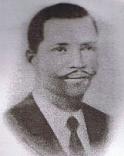

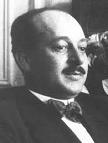

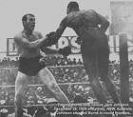









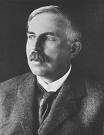


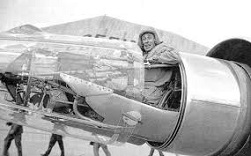
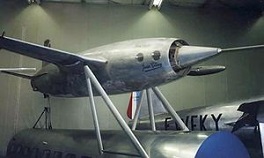




















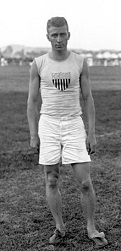












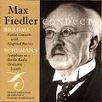


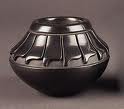



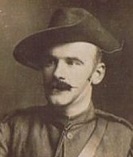



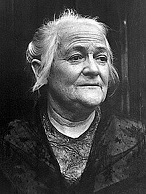
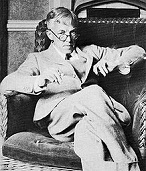
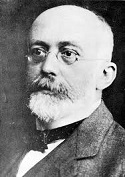


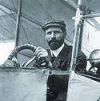

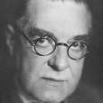
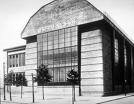






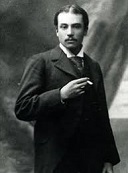



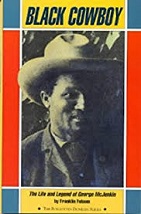
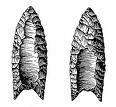
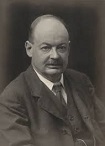
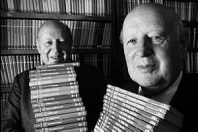




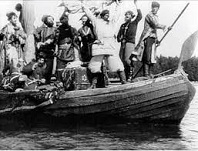










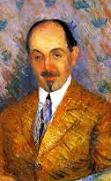


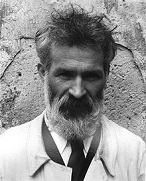
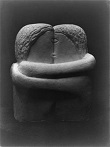


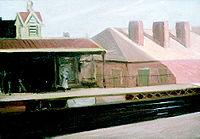

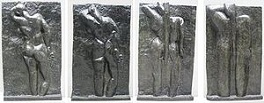



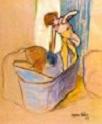

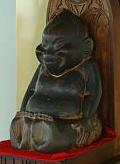
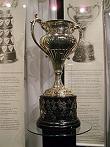

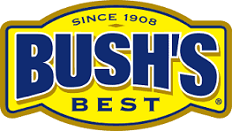


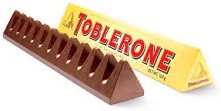
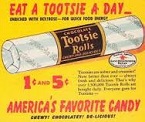
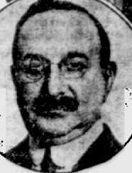
1908 Chinese Year: Monkey. A Euro arms race heats up the cold high seas? Germany decides to build 12 new dreadnought battleships by 1911, causing Britain to become antsy as they fear losing a naval arms race and becoming subject to a blockade and starving; by Aug. 1914 the British Grand Fleet has 24 dreadnoughts and battle cruisers to 17 for the German High Seas Fleet. On Jan. 15 the U.S. Senate passes a resolution remitting to China $13M of their Boxer indemnity. On Jan. 15 Alpha Kappa Alpha is founded at Howard U., becoming the first black Greek sorority. On Jan. 24 after finding out that a handbook on scouting skills he wrote for soldiers while stationed in Africa is being used by boys clubs, and organizing an experimental camp for 22 boys on Brownsea Island in Chelmsford, England in Aug. 1907 to test it personally, the first Boy Scout troop is formed in England by Gen. Robert Stephenson Smyth, AKA Sir Robert, Baron Baden-Powell (1857-1941), with help from famed Jack the Ripper London Metropolitan Police commissioner Sir Charles Warren (1840-1927), complete with Baden-Powell's manual Scouting for Boys, combining principles from Daniel Carter Beard's "Sons of Daniel Boone" and Ernest Thompson Seton's "Woodcraft Indians" (both in the U.S.); they wear the original boondoggles (woggles) (braided cords), and present one to the Prince of Wales in 1929 at the World Jamboree, and in 1935 the New York Times prints the word, causing it to go into gen. circulation; the official Boy Scout handshake is with the left hand because it is closest to the heart (but isn't that the hand you wipe with?); on Feb. 22 the Vaux Own, the first official Scout troop is formed in Sunderland, Tyne and Wear by Baden-Powell and Vaux brewing heir Ernest Vaux (1865-1925), who later becomes a popular lt.-col. in the British army during WWI. On Jan. 27 Austrian foreign minister Count Alois Aehrenthal announces the building of a railway through the Sanjak of Novi Bazar toward Saloniki as a way to drive a wedge between Serbia and Montenegro; Russia declares it a violation of the spirit of the 1897 Austro-Russian Entente, and proposes a rival railroad from the Danube to the Adriatic; meanwhile the British are also pissed by the Austrians, whom they accuse of taking a bribe from the Ottomans to stop reforms in Macedonia. On Jan. 28 Venezuelan vice-pres. (since 1902) gen. Juan Vicente Gomez (1857-1935) assumes dictatorial power in Venezuela (until 1935) after Castro is forced into exile, playing games with titles and puppet presidents, beginning with "provisional pres." (pres. #2) (until May 20, 1913), and growing rich on petroleum concessions while neglecting the country's infrastructure; despite this, the opening of the Venezuelan oilfields in 1918 brings economic prosperty. In Jan. Flint, Michigan is founded by Gen. Motors (GM). On Feb. 1 king (since Oct. 19, 1889) Carlos I (b. 1863) is assassinated in Lisbon along with his son Crown Prince Dom Luis Filipe, and his younger son Dom Manuel becomes Manuel II (the Patriot) (the Unfortunate) (1889-1932), the last king of Portugal (until Oct. 5, 1910). On Feb. 3 steamship St. Cuthbert en route from Antwerp to New York City burns and sinks off Nova Scotia, killing 15. On Feb. 3 The Eight, consisting five members of the Ashcan School (Robert Henri, John French Sloan, William Glackens, George Luks, Everett Shinn) plus Arthur Bowen Davies (1862-1928), Ernest Lawson (1873-1939), and Maurice Prendergast (1859-1924) exhibits at the Macbeth Galleries in New York City in protest to the conservative Nat. Academy of Design, gaining nat. exposure and touring seven other U.S. East Coast and Midwest cities. On Feb. 16 Kaiser Wilhelm II, in his official capacity as Adm. of the Fleet writes a letter to British First Lord of the Admiralty (since Dec. 10, 1905) Lord Tweedmouth, claiming that "the German Naval Bill is not aimed at England, and is not a challenge to British Supremacy of the Sea, which will remain unchallenged to generations to come", causing Edward VII to call his direct intervention in British politics "a new departure"; his personal correspondence with his nephew Kaiser Wilhelm II soon gets Tweedmouth booted. On Feb. 23 Italian anarchist immigrant Giuseppe Alio (Alia) (d. 1908) shoots and kills Rev. Leo Heinrichs during mass at St. Elizabeth's Church in Auraria (Denver), Colo.; the next day the Denver Post pub. a yellow journalism article calling for "low classes of foreigners" to be prevented from immigrating; Alio is convicted of murder and hung in July 1908. On Feb. 24 the U.S. Supreme (Fuller) Court rules unanimously in Muller v. Ore. to uphold sex discrimination in labor laws, claiming that some restrictions in working hours of women are justified by the state's interest in protecting their health. On Feb. 25 U nion Oil founder Lyman Stewart (1840-1923) and his brother Milton Stewart found Biola U. (originally the Bible Inst. of Los Angels) in La Mirada, Calif., which in 1910-70 pub. the monthly journal The King's Business, which becomes the #1 fundamentalist movement journal; in 1910-15 the Stewart brothers anon. pub. The Fundamentals: A Testimony of the Truth (12 vols.), distributing 250K free paperback copies to every Christian minister, student, and prof. in the U.S., launching the label of Fundamentalism for Bible thumpers who cling to a literal interpretation of Genesis despite nasty Darwinism and the German Higher Criticism, with the litmus test of the "five fundamentals", incl. divine inspiration of the inerrant Holy Bible, virgin birth of Christ, atonement for sin by Christ's death, Christ's bodily resurrection, and historical reality of Christ's miracles; Southwestern Baptist Theological Seminary is founded in Fort Worth, Tex. to teach Bible fundamentalism, becoming one of the largest seminaries on Earth. On Mar. 7 Cincinnati, Ohio mayor Mark Breith tells the city council: "Women are not physically fit to operate automobiles." On Mar. 8 Internat. Women's Day begins with women needle workers marching through Lower East Side in New York City to protest sweatshop working conditions and child labor, and demand the vote; in 1910 German Marxist activist Clara Zetkin (nee Eissner) (1857-1933) proposes at the Internat. Socialist Congress in Copenhagen that the day be observed annually; the U.N. finally recognizes it in 1975. On Mar. 23 the U.S. Supreme (Fuller) Court rules 8-1 in Ex parte Young that a federal court may issue an injunction against a state officer to prevent the enforcement of an unconstitutional state law; Justice Rufus Wheeler Peckham authors the majority opinion. In Mar. Sir Edward Grey proposes another Macedonian Reform Plan, with the three provinces given virtual autonomy. That's what I'm talking about baby? On Apr. 5 PM (since Dec. 5, 1905) Sir Henry Campbell-Bannerman (b. 1836) resigns from ill health two weeks before his Apr. 22 death, and on Apr. 8 fellow Liberal (chancellor of the exchequer) (whom "C.B." calls "the sledge-hammer" for his debating skills and memory) Herbert Henry Asquith (1852-1928) becomes PM of Britain (until Dec. 5, 1916); he soon shows what Liberal means in this day by snubbing 250K-300K people shouting "Votes for women!" at the Women's Sunday march in Hyde Park on June 21; David Lloyd George (1863-1945) becomes chancellor of the exchequer (until May 25, 1915); on Apr. 12 Big Mouth Lord Tweedmouth is replaced as First Lord of the Admiralty by Reginald McKenna (1863-1943) (until 1911). On Apr. 10 the German Reichstag passes the First Fleet Act, to implement the Tirpitz Plan, ramping up a full-blown Anglo-German naval race; more Fleet Acts in 1900, 1908, 1912. On Apr. 21 the Baltic and North Sea Conventions, the first involving Germany, Sweden, Denmark, and Russia, the 2nd involving Britain, Germany, Denmark, France, Netherlands, and Sweden provide for maintaining the status quo and consultation in case of a threat. On Apr. 27-Oct. 31 the IV (4th) Summer Olympic Games are held in London in the new White City Stadium (cap. 68K); the Americans refuse to dip the U.S. flag to the royal family, beginning a tradition, and win 15 out of 28 track and field golds; Alfred Carlton Gilbert (1884-1961) of the U.S., inventor of the pole vault box ties for gold with Edward Tiffin Cook Sr. (1888-1972) of the U.S., going on to invent the Erector Set in 1913; on July 24 after British Queen Alexandra extends the marathon from less than 25 mi. to 26.2 mi. (26 mi. 385 yards) (42.195 km) to put the finish line in front of the king's box in White City Stadium (starting line in front of Windsor Castle), becoming the official std., leader Dorando Pietri (1885-1942) of Italy runs the wrong way in the stadium, falls down 5x, and is propped up by two officials as Arthur Conan Doyle cheers him on with a megaphone, winning with a time of 2 hours 54 min. 46 sec. (10 min. for the last 350m), causing a U.S. protest, followed by disqualification, allowing John Joseph "Johnny" Hayes (1886-1965) of the U.S. to get the gold, becoming the first male Am. athlete (Thomas Hicks in 1904, Frank Shorter in 1972), causing long-distance running to increase in popularity in the U.S.; after a public outcry, Alexandra awards Pietri a gilded silver cup as a consolation prize, becoming an internat. celeb and winning several more races before retiring in 1911 at age 26 with 200K lire in prize money, which he loses in a hotel venture; the first Olympics with winter events (four figure skating events), which have to be delayed until Oct.; "The most important thing is not to win but to take part" is announced as the Olympic creed, created by a bishop from Penn. On Apr. 25 British cruiser Gladiator is rammed by U.S. liner St. Paul off the Isle of Wight, killing 30. On May 20 the first Mother's Day is held in a Methodist Episcopal Church in Grafton, W. Va. in honor of the mother of founder Anna Marie Jarvis (1864-1948), formerly of Philly; her mother's favorite flower is the carnation; by 1911 the day is celebrated in almost every U.S. state, and in 1914 Pres. Woodrow Wilson proclaims it a nat. holiday to be observed on the 2nd Sun. in May; too bad, after getting pissed-off at the commercialism, Jarvis ends up spending the rest of her life trying to get the holiday stopped, dying unmarried, childless, and broke. On May 27 the U.S. Congress enacts a law preventing the U.S. Dept. of Justice from engaging Secret Service operatives, causing U.S. atty. gen. Charles Joseph Bonaparte to appoint some special agents for the Dept. of Justice, and on July 26 orders them to report to dir. #1 Stanley Wellington Finch (1872-1951) (until Apr. 30, 1912), becoming the start of the Federal Bureau of Investigation (FBI). On May 29 French aviator Henri Farman (1874-1958), brother of Maurice Farman becomes the first pilot in Europe to take a passenger into the air. Don't be fooled by those 50%-off deals? On June 16-19 after Pres. Teddy Roosevelt pledges not to seek a 3rd term (which he later regrets), the 1908 Republican Nat. Convention in Chicago, Ill. selects what he thinks is his fellow progressive and friend, war secy. William Howard Taft of Ohio for pres., and conservative Rep. James S. Sherman of New York for vice-pres; the convention erupts into a 49-min. demonstration at the mere mention of Roosevelt's name, but the whip is cracked and they go through with the Taft nomination; Taft accepts and promises to preserve and extend Roosevelt's "practical reforms", but not necessarily his progressive platform, proving his polar opposite after it's too late for Teddy to do anything; the slogan is "U-N-I-TED", with the I standing for Taft? On June 30 a giant explosion 5 mi. over the Tunguska River in Siberia destroys 2,150 sq. km of taiga; an asteroid or comet is suspected - why not an ET spaceship blowing up? On July 2 the trademark Rolex is registered by Hans Wilsdorf. A flag, like a tree is either growing or it's dying? On July 4 Congress authorizes a new U.S. flag with 46 stars (design #24), which incl. Okla. On July 4 after setting a motorcycle land speed record of 136.36 mph on a motorcycle in 1907 and gaining the title "fastest man in the world", Glenn Hammond Curtiss (1878-1930) flies June Bug 5,080 ft. (1,550m) to win the $2,500 Scientific American Trophy, becoming the first pre-announced public flight of a heavier-than-air flying machine in the U.S. On July 5 the first Father's Day is observed in Fairmont, W.V.; after failing to register it, Spokane, Wash. observes it in 1910 and claims credit for decades. On July 7-10 the 1908 Dem. Nat. Convention in Denver, Colo. (held in a Western state in hopes of winning the Western vote) is held at the new City Auditorium built by mayor Robert W. Speer for his 2nd inauguration, and features snow carted in from the mountains on horse-drawn wagons ("From summer's glow to winter's snow"), plus 40 Apache Indians to entertain the 40K conventioneers; a snowball fight causes the police to make 50 arrests; it selects William Jennings Bryan of Fla. for pres. for the 3rd time (1896, 1900), and John Worth Kern (1849-1917) of Ind. for vice-pres.; Bryan sends his brother in his place, while he sends messages from his Lincoln, Neb. home, calling the Repubs. "the party of privilege and private monopoly", and in fact the Dems. are as progressive in spirit, and far more anti-monopolistic than the Repubs.?; Bryan's campaign theme is "Shall the People Rule?"; Taft's campaign theme is to play as much golf as possible and let Repub. money work for him? The sultan's ass is grass and who's got the scythe? In July Staff Capt. Mustafa Kemal Ataturk (1881-1938) leads the Young Turk Revolt at Resina, Macedonia, and on July 24 forces Ottoman Sultan Abdul Hamid II to restore the liberal constitution of 1876 that he had suspended; the Ottoman Parliament meets with a large Young Turk majority, and a period of Anglophilia begins, becoming a setback for German influence. On June 21 Moulay (Mulay) al-Hafid (1873-1937) is proclaimed sultan Abd al-Hafid of Morocco (until 1912) after he defeats his brother Sultan Abdul Aziz (Abd al-Aziz) at Marrakesh and captures Fez; the Germans support the new sultan, causing tensions with France. On July 2 Edward VII of England and Russian Tsar Nicholas II meet at Reval (Tallinn) in Estonia, and agree on a program of pacification for Macedonia. On Aug. 5 Ariz. Ranger William Slaughter "Billy" Speed (1876-) gets in a gunfight in Willcox, Ariz. with William F. Downing, who had done time for an 1899 train robbery and opened the Free and Easy Saloon, where his many scars cause him to be rumored to be missing Sam Bass gang member Frank Jackson, and he becomes notorious as a drunken brawler who allows bad women into his saloon; after Downing reaches and Speed shoots and kills him, it is discovered that the drunk forgot to wear his gun, and a jury clears Speed. On Aug. 12-13 after PM Asquith states that if Germany pursued an aggressive ship-building policy, Britain would have to follow suit, and Edward VII visits his cousin Wilhelm II in Kronberg, the British Hardinge Mission, sees foreign office under-secy. Sir Charles Hardinge (1858-1944) ask the kaiser if he would stop building new battleships or at least build less, to which the kaiser denies that his navy is directed against Britain, but that "we shall fight, for it is a question of national honor and dignity", becoming the last serious attempt to end the naval arms race until 1912; when Hardinge tells the Germans that Britain intends to introduce a bill for a 4-year shipbuilding program, the kaiser replies that it won't be regarded with animosity and won't provoke countermeasures; Britain doubles its shipbuilding rate next year. On Aug. 14-15 the Springfield Race Riot of 1908 in Ill. starts after two African-Ams. are arrested for violent crimes against whites, and a white lynch mob discovers that the sheriff transferred them out of the city, after which the Ill. gov. sends in thousands of militia, resulting in seven killed (5 white, 2 black), and $200K in property damage incl. 40 homes and 24 businesses along with 107 indictments against rioters; the biracial deaths cause a biracial group to meet next year to form the NAACP. On Aug. 15 Winston Churchill is installed into the Albion Lodge of the Ancient Order of the Druids at Blenheim Palace. On Aug. 24 steamship Folgenenden sinks off ?, killing 70. On Sept. 2 King (since Dec. 1897) Manga Ndumbe Bell (b. 1851) dies, and his son Rudolf Duala Manga Bell (1873-1914) becomes Duala king of German Kamerun (Cameroon) (until Aug. 8, 1914), going on to cooperate with the German colonizers until they try to force the Duala people to move inland in 1910, turning rebel; too bad, on Aug. 8, 1914 the Germans hang him for high treason and suppress the monarchy, making him a martyr. On Sept. 8 Buick Co. pres. (since 1904) William Crapo "Billy" Durant (1861-1947) founds General Motors Co. (GMC) (GM) in Flint, Mich. as a holding co., then sells stock to allow him to purchase Oldsmobile and Cadillac; next Oct. 26 after the patent suit George B. Selden (1846-1922) of N.Y. against Ford Motor Co. claiming invention of the automobile reaches a record 14K pages, GM offers to buy Ford out for $2M in cash, plus $4M at 5% interest over three years, with Ford retaining the rights to motorized farm implements; too bad, the banks refuse to float the loan, and in the 1910 financial panic GM's board fires Durant and let bankers take over the co., causing Durant to hire retired Buick auto racer Louis Chevrolet and set up Chevrolet Motor Co. in Detroit, Mich. on Nov. 3, 1911; after Selden wins the suit, Ford appeals, and on Jan. 10, 1911 wins based on the argument that Ford uses the Otto engine not Selden's engine. On Sept. 16 the secret Buchlau Conference between Austria and Russia ends in informal agreements by (duped?) Russian foreign minister (Apr. 1906 - Nov. 1910) Count Alexander Petrovich Izvolsky (1856-1919) not to oppose Austrian annexation of Bosnia and Herzegovina, and Austrian-Hungarian foreign minister (since Oct. 1906) Count Alois Lexa Aehrenthal (1854-1912) not to oppose opening of the Bosphorus Strait to Russian warships and to withdraw troops from Sandzak to keep Serbia quiet, with an internat. conference to be held later to rubber-stamp it; Bulgaria will be allowed to declare independence from Turkey. On Sept. 17 the first fatal airplane crash occurs, injuring pilot Orville Wright and killing Lt. Thomas E. Selfridge of the U.S. Army Signal Corps (standing in a group of officers evaluating the Wright plane) at Ft. Myer, Va. when the plane's propeller hits a bracing wire, throwing it out of control at 75 ft. On Sept. 25 the Casablanca Affair results when three German deserters are taken by force from the French Foreign Legion by a German consular official, causing Franco-German tensions; on Nov. 10 they agree to submit the matter to an arbitration board, which announces a decision on May 22, 1909. On Oct. 1 the Ford Motor Co. of Henry Ford (1863-1947) begins producing the epoch-making Model T Ford (Leaping Lena) (Flivver) (Tin Lizzie, named for a reliable servant) in Dearborn, Mich. (until May 27, 1927), becoming the first affordable automobile, causing them to come rapidly into use by the masses; for $825 you get 20 hp, top speed of 45 mph, and gas economy of 13-21 mpg, with the ability to run on gasoline, kerosene, or ethanol; a trembler coil system replaces expensive magnetos, but requires a starting battery and AC alternator; it sells 10.6K units the first year, with Henry Ford writing the soundbyte in 1909: "Any customer can have a car painted any color that he wants so long as it is black", although they come in grey, green, blue, and red until 1912, then midnight blue with black fenders, finally black-only in 1914, with 30 different types of black paint used; the Model T doubles as a tractor and portable engine for farm use; mass-production lowers the price to $300 by 1926, and 15M are eventually sold; long-distance transportation of passengers and goods are not done by road until 1914; the days of horses and buggies come to a quick end, transforming the entire U.S. Pan-Slav agitation to break out of the Ottoman grip revs up the 20th cent. with a looming world war? On Oct. 5 Prince Ferdinand Maximilian Karl Leopold Maria of Saxe-Coburg-Gotha declares Bulgaria independent of the Ottomans (who swallowed them up in 1396), and takes the title of Tsar Ferdinand I (1861-1948) of Bulgaria (until Oct. 3, 1918), dreaming that same old Christian Constantinople dream - the original big burger? On Oct. 6 the Bosnian (First Balkan) (Annexation) Crisis (ends Mar. 31) begins after the news leaks out on Oct. 3, and in defiance of the 1878 Treaty of Berlin, Austria-Hungary uses power given to it at the Berlin Conference to announce the annexation of Bosnia and Herzegovina, which it had administered for 30 years as nominally Turkish provinces, in return for giving up the military occupation of Sandzak, giving it control of 300+ mi. of Adriatic coastline and blocking Serbian access to the sea, causing Serbia and Montenegro, who had both wanted them for themselves to go nonlinear and begin military preparations while trying to form an alliance with Turkey and Greece against Austria; in Nov. the Serbian army mobilizes; meanwhile the Russian people also go nonlinear, not knowing of the secret Buchlau Conference bargain of Sept. 16, and PM (1906-11) Peter (Pyotr) Arkadyevich Stolypin (1862-1911) orders foreign minister Alexander Izvolsky to flip-flop, repudiate the agreement with Austria, and back Serbia, causing Kaiser Wilhelm II to announce that Germany will stand behind her ally A-H "in shining armor", causing the tsar to back down, even though France and Britain support him and demand an internat. conference, after which Serbia declares that the annexation is noew of its business and demobilizes; Britain announces that it will only consider opening the Bosphorus Strait to all warships, not to Russian warships alone; Izvolsky's career is kaput, although he stays at his post for three more years; the big V gains Aehrenthal the title of count, but proves a pyrrhic victory as it pisses-off Russia and Serbia, and turns the rest of Europe against Austrian diplomacy, helping lead to WWI. On Oct. 7 the assembly of Crete proclaims union wih Greece, adding fuel to the internat. fire, but the Euro powers reluctantly acknowledge the inevitable and withdraw their occupation forces - Greek love? On Oct. 8 in reaction to Austrian annexation of Bosnia-Herzegovina, the secret underground Narodna Odbrana (People's Defense) society is founded by Serbian nationalists, spreading through the Balkans. On Oct. 10-14 the Chicago Cubs (NL) (mgr. Frank Chance) defeat the Detroit Tigers (AL) (mgr. Hughie Jennings) 4-1 (first-ever WS rematch) to win the Fifth (5th) (1908) World Series (2nd year in a row); the next time they win a WS is 2016 after losing in 1910, 1918, 1929, 1932, 1935, 1938, and 1945, becoming known as the "best lost cause"; to get in the WS the Cubs defeated the New York Giants 4-2 in a 1-game playoff on Oct. 8 caused by the Merkle Boner Play on Sept. 23, where 19-y.-o. Giants first baseman Frederick Charles Merkle (1888-1956) (youngest player in the NFL) forgets to touch 2nd base after Giants outfielder Moose McCormick (1881-1962) (known for his 8-ft. stride) scores the winning run, causing it not to count, and the fans run on the field preventing the game from resuming, causing it to be declared a tie, after which Merckle is given the nickname "Bonehead". On Oct. 28 the Daily Telegraph Affair sees Kaiser Wilhelm II cause a furor in Britain when he reveals in an interview that public opinion in Germany is anti-British, even though he adds the cover story that Germany's naval expansion is directed at Japan not Britain; PM Count Bernhard von Bulow covers for him yet again, taking the blame and tendering his resignation, which is refused, then gives a speech on Nov. 10 in the Reichstag telling the emperor to shut the f- up, er, show strict reserve in the future. On Nov. 3 the 1908 U.S. Pres. Election sees William H. Taft defeat William Jennings Bryan by 7.7M popular and 312 electoral votes to 6.4M and 162 electoral votes; the Repubs. retain both houses of Congress; Bryan is now a 3-time pres. loser (1896, 1900, 1908) - knock knock, who's there, the loser? On Nov. 6 steamship Taish sinks in a storm off Etoro Island, killing 150. On Nov. 7 Butch Cassidy (b. 1866) and the Sundance Kid (b. 1867) are cornered and killed by the Bolivian Army in the village of San Vicente. On Nov. 9 the U.S. Supreme (Fuller) Court rules 8-1 in Twining v. N.J. that while certain rights enumerated in the Bill of Rights might apply to the states under the Due Process Clause of the 14th Amendment via the Incorporation Doctrine, the Fifth Amendment right against self-incrimination is not included, with Justice William Henry Moody writing the soundbyte: "It is possible that some of the personal rights safeguarded by the first eight Amendments against National action may also be safeguarded against state action, because a denial of them would be a denial of due process of law. If this is so, it is not because those rights are enumerated in the first eight Amendments, but because they are of such a nature that they are included in the conception of due process of law"; "The Twining case shows the judicial process at its best - comprehensive briefs and powerful arguments on both sides, followed by long deliberation, resulting in an opinion by Mr. Justice Moody which at once gained and has ever since retained recognition as one of the outstanding opinions in the history of the Court. After enjoying unquestioned prestige for forty years, the Twining case should not now be diluted, even unwittingly, either in its judicial philosophy or in its particulars" (Justice Felix Frankfurter in Adamson v. Calif, 1947); overturned in Mally v. Hogan (1964). On Nov. 12 Christian Coptic politician Butros (Butrus) Ghali (1847-1910) becomes PM of Egypt (until 1910). On Nov. 15 Dowager Empress Cixi (Tzu-Hsi) (b. 1835), former concubine of Emperor Hsien Feng, who ruled China with poontang power for 50 years dies after a power struggle caused by the emperor's death this year; first she gets her son T'ung Chih ascended to the throne, but he soon dies of smallpox; then she gets his wife Alute overdosed on opium, allowing her to choose the new emperor herself before she dies; her last words: "Never again allow a woman to hold the supreme power in the State"; on Dec. 2 clueless infant Aisingyoro Henry Pu Yi (Puyii) (1906-67) becomes Qing (Manchu) emperor #11 (last) Xuantong of China (until Feb. 12, 1912). On Nov. 16 the U.S. Supreme (Fuller) Court rules unanimously in Louisville & Nashville Railroad Co. v. Motley to declare the Well-Pleaded Complaint Rule, that federal question jurisdiction can't be predicated on a plaintiff's anticipation that the defendant will raise a federal statute as a defense, but must arise from a complaint by the plaintiff that the defendant has directly violated some provision of the U.S. Constitution, laws, or treaties; the majority opinion is written by Justice William Henry Moody. On Nov. 30 U.S. secy. of state Elihu Root and Japanese ambassador Kogoro Takahira sign the Root-Takahira Agreement, agreeing to mutual respect for each other's territorial possessions in the Pacific, upholding the Open Door Policy in China, and supporting by peaceful means the independence and integrity of China; U.S. fears of eventual war with Japan are relieved - it never had a chance to takahira root? On Dec. 4 the 10-power Internat. Naval Conference in London agrees to rules of naval war regarding blockades, contraband, convoys, etc., promulgating the Declaration of London next Feb. 26; it is never ratified. London-born Johann Heinrich, Count von Bernstorff (1862-1939) is appointed German ambassador to the U.S. (and Mexico), where he tries to strengthen relations with the U.S. until WWI causes ties to be severed. On Dec. 21 the Cairo U. is founded in Giza City, Giza, Egypt as a secular Muslim univ., becoming the biggest in the Arab world; in 1940-52 it is called King Fuad I U. On Dec. 28 the super-powerful 7.2 Southern Calabria-Messina Earthquake kills 150K, wrecking Messina in NE Sicily and killing 70K, separating Sicily from Calabria. In Dec. the Motion Picture Patents Co. (Edison Trust) is founded to force patent royalties out of the "Big Ten Studios" incl. Vitagraph, Melies, Pathe, and Selig, causing movie studios to move W to Calif. to make it harder to enforce them, relying on the lax enforcement of the 9th Circuit Court of Appeals in San Francisco; in Sept. 1910 the Gen. Film Co. is formed by Edison to monopolize U.S. film distribution, becoming known as the Edison Trust; in Sept. 1913 the patents run out, and on Oct. 1, 1915 a U.S. federal court rules in U.S. v. Motion Picture Patents Co. that they went "far beyond what is necessary to protect the use of patents or the monopoly which went with them", constituting an illegal restraint of trade under the 1890 U.S. Sherman Antitrust Act, and after the appeal is dismissed the co. folds in 1918; before the fall of the Edison Trust, films are distributed by two methods, the States Rights Method, where a copy of a film is sold to a salesman at 10 cents a foot, who then makes as much money as he can until it falls apart, and the Road Show Method, where it's featured in a theater with advertising and reserved seating, and the producer collects the gate. South African Party leader John Xavier Merriman (1841-1926), opponent of the De Beers mining monopoly and British imperialism becomes the last PM of the Cape Colony (until May 31, 1910), and a constitutional convention to establish the Union of South Africa convenes (ends 1909). Andrew Fisher (1862-1928) becomes PM #6 of Australia (until 1909). Pres. Roosevelt's secy. of state Elihu Root negotiates treaties with 24 nations providing for referral of controversies to the Permanent Court of Arbitration at The Hague. Liberal Jose Miguel Gomez (1858-1921) (former gov. of Las Villas, imprisoned in 1906 for taking part in the revolt against pres. Palma) becomes pres. #2 of Cuba (until 1913), and U.S. forces withdraw as foreign investors move in; the Morua Law prohibits political assocs. based on color or race, causing black Cubans to resist; too bad, Gomez gets into corruption, growing rich in office and becoming known as "the Shark". The Bolsheviks and Mensheviks in Russia split permanently. Augusto Bernardino Leguia y Salcedo (1863-1932) becomes pres. of Peru (until 1912), initiating drastic economic reforms. Joseph Benson Foraker (1846-1917), leader of the Repub. Party in Ohio since the 1904 death of Alonzo Mark Hanna is defeated for a 3rd term as U.S. Sen. (since 1897) after a newspaper reveals that he accepted large sums of money as retainers from the Standard Oil Co. After an internat. protest Leopold II transfers his private possession (since 1885) the Congo (Congo Free State) to Belgium, renaming it the Belgian Congo (until 1960). The Comoros Islands are attached to the French colonial admin. of Madagascar. The Dutch establish rule in Bali. Lord Corzon establishes the North-West Frontier Province between Pakistan and Afghanistan as a buffer zone to "conciliate and contain" the Pahstun hill tribes. A Zeppelin disaster occurs near Echterdingen. The Trinity River floods in Dallas, Tex., causing the construction of the Houston St. Viaduct in 1911, longest reinforced concrete structure in the world, later crossed by Lee Harvey Oswald in a taxi as he flees Dealey Plaza on Nov. 22, 1963. Grigori Efimovitch Rasputin (1869-1916), the "Mad Monk of St. Petersburg" gains influence over the Russian royal family after being called into the royal palace to heal the hemophiliac tsarevich Alexei Nikolayevich Romanov (1904-18), son of Tsar Nicholas II and his wife Alexandra. Novelist Mrs. Mary Humphry Ward (1851-1920) becomes the first pres. of the Anti-Suffrage League in Britain. Daniel De Leon is kicked out of the IWW for opposing strikes and boycotts in favor of political action, founding the rival Worker's Internat. Industrial Union (WIIU), which goes kaput in 1925 - who wants to be a wino when he can be a wobbly? In Britain the youngest age at which the death penalty can be applied is raised to sixteen. San Francisco, Calif. district atty. Hiram Warren Johnson (1866-1945) prosecutes erudite brainy Jewish political boss Abraham "Abe" Ruef (1864-1936), securing convictions on bribery and corruption charges, and parlaying it into election as gov. of Calif. in 1910 (until 1917), where he fights the Southern Pacific Railroad machine. Canberra in SE New South Wales, Australia on the Molonglo River is chosen to be the new site of the Australian capital, currently in Melbourne, but construction doesn't begin until 1913 after architect Walter Burley Griffin (1876-1937) of Chicago, Ill. wins a competition to design it. The Port of London Authority is established. The 12.8K-acre Pinnacles Nat. Monument in Calif. 35 mi. N of King City is established. Sven Hedin explores Persia and Tibet. Henry Starr (1873-1921), the first bank robber to use a getaway car is nabbed after robbing the bank of Amity, Colo., and receives 7-25 years at the Colo. state penitentiary in Canon City; when he gets out he begins a streak in Okla., robbing 14 banks in 6 mo., and is gunned down robbing the People's State Bank in Harrison, Ark. on Feb. 18, 1921 using a Buick as the getaway car, and dies on Feb. 22. The 44.5 carat Hope Diamond is sold by Irish banker Henry Thomas Hope (who bought it for $150K) for $400K to Turkish Sultan Abdul Hamid, who gives it to his wife Subaya, then stabs her. The U. of Alberta in Edmonton, Alberta, Canada is founded. James Madison U. in Harrisonburg, Va. is founded as State Normal and Industrial School for Women, admitting men in 1946 and going coed in 1966. Queen's U. is dissolved, and the Nat. U. of Ireland is founded, consisting of colleges in Cork, Galway, and Maynooth, followed by Dublin in 1909. The Christian Science Monitor daily newspaper is founded in Boston, Mass. by Mary Baker Eddy after she gets pissed-off at Mark Twain for his 1907 lampooning essay "Christian Science", along with critical articles in Joseph Pulitzer's "New York World", and "McClure's"; the content is secular despite the title, but she insists that each issue contain a religious article; the mission is "to injure no man, but to bless all mankind"; promotes a "distinctive brand of nonhysterical journalism" free of sensationalism; reaches 223K circ. in 1970, falling to 56K in 2009. The Women Writers' Suffrage League in England is founded by Cicely Mary Hamilton (Hammill) (1872-1952) and Bessie Hatton, growing to 400 members. The Am. Home Economics Assoc. is founded, with home economics science founder Ellen Swallow "Nellie" Richards (1842-1911) as pres. #1; in 1909 it begins pub. the Journal of Home Economics (renamed Journal of Family and Consumer Sciences in 1994); in 1994 it changes its name to the Am. Assoc. of Family and Consumer Sciences. The Anglo-Persian Oil Co. (later British Petroleum or BP) is founded, becoming known for ripping off the Persian people to reap profits for Britain, with Winston Churchill uttering the soundbyte that it's "a prize from fairyland beyond our wildest dreams." Aviation technology zooms ahead as Wilbur Wright flies 30 mi. in 40 min. Steering wheels are moved to the Napoleonic left-hand side on U.S. autos; the first grooved tires appear. Fountain pens become popular. The U.S. Post Office issues it first roll stamps. Henri Matisse coins the term "Cubism". Isadora Duncan (1878-1927) from San Franciso, Calif. gains fame for her neo-Greek Interpretive Dancing after establishing a school near Berlin in 1904 and touring the U.S. and Europe with her Duncan Dancers. Max Fiedler (1859-1939), conductor of the Hamburg Philharmonic Orchestra (1904-8) becomes conductor of the Boston Symphony Orchestra (until 1912). Paul Felix von Weingartner (1863-1942) succeeds Gustav Mahler as conductor of the Vienna Hopofer (until 1911), then conducts the Vienna Philharmonic (until 1927). The Tiller Girls debut on the London stage. Charles Hamilton (alias Frank Frichards) begins pub. stories about William George "Billy" Bunter, AKA "the Fat Owl of the Remove" of Greyfriars School in The Magnet in England on Feb. 1908 (until 1940), becoming a big hit "wherever the Union Jack waves" (George Orwell); his "Famous Five" friends are Frank Nugent, Bob Cherry, Harry Wharton, Johnny Bull, and Hurree Jamset Ram Singh (AKA Inky). Lord Northcliffe buys the London Times. H.L. Mencken founds the periodical The Smart Set to fight the "booboisie", and edits it until 1923. Cairo U. in Giza, Egypt opens. Montclair State U. (originally N.J. State Normal School at Montclair, then Montclair State Teachers College in 1927, then Montclair State College in 1958 until 1994) in Montclair, N.J. opens; alumni incl. Yogi Berra, Jason Biggs, and Allen Ginsberg. Pablo Picasso's West African Period (begun 1906) ends, and his Cubist Period begins (ends 1917); before/after this he discovers the work of Henri Rousseau on the streets of Paris (being sold as canvases to be painted over), causing him to meet him and hold a banquet in his studio in Le Bateau-Lavoir in his honor. Am. archeologist Edgar Lee Hewett (1865-1946) discovers black-on-black pottery near Santa Fe, N.M., causing him to recruit local potter Maria Montoya Martinez (1881-1980) to recreate the technique, causing Pueblo blackware pottery to make a comeback. Spanish lyric soprano Lucrezia Bori (1887-1960) debuts at the Teatro Adriano in Rome as Micaela in Bizet's "Carmen", her unique transparent voice making her a star; too bad a throat ailment forces her to retire from the stage from 1915-21, when she makes a comeback, becoming #1 until retirement in 1936. Philip Morris Co. registers the Marlboro (sold in England since 1883) trademark in the U.S. Mills and Boon pub. house is founded in London, England by Gerald Rusgrove Mills (1877-1928) and Charles Boon (1877-1943) as a gen. publisher, going on to concentrate on romantic novels in the 1920s and 1930s; in 1971 it is acquired by Harlequin Enterprises of Toronto, Canada, with 500+ titles a year, growing to 100 a month after the advent of the Internet and ebooks; hit titles incl. "The Dark Stranger", "Staff Nurses in Love", "The Loved and the Feared", "Consuming Passion", "Sister at Ryeminster", and "Theatre Sister". The Simplified Spelling Society is founded in Britain. Bush Brothers & Co. in Chestnut Hill, Tenn. is founded by Andrew Jackson Bush and his eldest sons Fred and Claude, incorporating in June 1922; in 1946 they launch their Bush's Best label; in 1993 they launch their "secret family recipe" ad campaign, adding the duo of Jay Bush and golden retriever Duke in summer 1995, with the catchphrase "Roll that beautiful bean footage", which causes their U.S. market share to zoom from 48% to 80%, passing Van Camp's. Italian electrical engineer Camillo Olivetti (1868-1943) founds Olivetti & Co. to manufacture typewriters on Oct. 29. Ferrara Candy Co. (originally Ferrara Pan Candy Co.) is founded in Little Italy, Chicago, Ill. by Nola, Italy-born Salvatore Ferrara as a bakery, switching to sugar-coated almonds (confetti) before partnering in 1919 with brothers-in-law Salvatore Buffardi and Anello Pagano and switching to multiple candies, growing to the #1 U.S. producer of conversation hearts and mallowcremes, and a leading producer of jellybeans; its line incl. the original jawbreaker (Jawbuster) (1919), Atomic Fireballs, Boston Baked Beans, Lemonheads (1962) (named after Salvatore Ferrara II, who was born by forceps), Red Hots, Fruit Stripes, Super Bubble, Jujyfruits et al.; in 2012 it merges with Farley & Sathers. Theodor Tobler (1876-1941) of Switzerland begins marketing Toblerone brand prism-shaped chocolate candies (which look like the Matterhorn); it is acquired by Kraft in 1990. Sports: On Jan. 2 after the Eastern Canada Amateur Hockey Assoc. (ECAHA) permits teams to openly pay players, the first Ice Hockey All-Star Game is planed before 3.5K fans at Montreal Arena; the Montreal Wanderers defeat the All-Stars 10-7. 1908 Stanley Cup is won by the Montreal Wanderers. On Apr. 3 5'11 210 lb. Am. wrestler Frank Alvin "the Iowa Farmer" Gotch (1878-1917) defeats undefeated Estonian-born English heavyweight world champion wrestler George Karl Julius "the Russian Lion" Hackenschmidt (1877-1968) at Dexter Park Pavilion in Chicago, Ill. in 120 min., becoming a celeb. On May 15 the Internat. Ice Hockey Federation (IIHF) (originally Ligue International de Hockey sur Glace) is founded in Paris France by reps from France, Belgium, Britain, Bohemia, and Switzerland, with Kingston, Jamaica-born figure skater Louis Magnus (1881-1950) as pres. #1 (until 1912, then again in 1914); it goes on to have little authority over hockey in North Am. On May 30 (Sat.) the 523-mi. 1908 Great Horse Race of Colo. and Wyo. from Evanston, Wyo. to Denver, Colo. sees 25 official entrants start out, 12 of them tamed feral Western broncos (Sp. "rough"), thinning out to five in Cheyenne, Wyo. (four of them broncos) and ending on June 5 with a draw declared when they reach Brighton-Henderson, Colo., after which the two lead horses Sam (Colo. favorite) and Teddy (Wyo. favorite) are walked into town led by a new 1908 automobile in front of 25K spectators, ending up at the Denver Post bldg.; later Clipper, Dek, and Bluebell (all broncos) come in 2nd through 4th; in 1960 the Denver Broncos NFL football team is founded; a silhoutte of a cowboy on a bucking bronco is the official symbol of the state of Wyoming, as seen on the 2007 Wyoming Quarter. On Aug. 21 Washington Senators catcher Gabby Street catches a baseball thrown off the top of the 500+-ft.-tall Washington Monument by Pres. Gibson on the 13th try. On Nov. 14 after getting disgusted with the paying of players and resigning from the Eastern Canadian Amateur Hockey Assoc. (ECAHA), the Montreal Victorias, Montreal Hockey Club, Ottawa Cliffsides, and Toronto Amateur Athletic Club found the Interprovincial Amateur Hockey Union (IPAHU), starting their first season in Jan. 1909; in Feb. 1909 the Allan Cup is established for senior amateur hockey teams from Canada by steamship line heir Lt.-Col. Sir Hugh Andrew Montague Allan (1860-1951) of Ravenscrag, Montreal; the first winner is the Montreal Victorias; in 1910-11 the league grows to eight teams, followed is founded-12 to 13. God it's great to be a member of the Great White Race this year... until the day after Xmas, when God gives them a Christmas present on what is called (in England) Boxing Day? On Dec. 5 the U. of Pittsburgh becomes the first football team to use uniform numbers. On Dec. 18 the first inter-city African-Am. basketball team competition sees the Smart Set Athletic Club of Brooklyn defeat the Crescent Athletic Club in Washington, D.C. On Dec. 26 30-y.-o. 196-lb. Galveston, Tex.-born black boxer ("the Galveston Giant") John Arthur "Jack" Johnson (1878-1946) KOS 27-y.-o. 176-lb. white boxer Tommy Burns in round 14 in Sydney, Australia to become world heavyweight boxing champ #6 and first black champ (until 1915); the referee is Hugh McIntosh; the white-is-wrong news causes a frantic search for a Great White Hope as Johnson, sporting a trademark screw-you white smile easily beats several white contenders, and flaunts it by hiring a white chauffeur and white butler, marrying two white women and cheating on them with dozens of white hos; "For more than thirteen years, Jack Johnson was the most famous and the most notorious African-American on Earth." (Ken Burns) German "Die Hose" Expressionist playwright (Jewish) W.H. Saven of Princeton, N.J. becomes the first Yank to play cricket for the Gentlemen of England. Anti-gambling sentiment in the U.S. that leads virtually every state to ban bookmaking results in only 25 horse racetracks remaining; this year the Kentucky Derby introduces parimutuel betting, beginning a long slow turnaround. The first basketball player is ejected from a game after five personal fouls. Christopher "Christy" "Matty" Mathewson (1880-1925), "the Christian Gentleman" pitches 37 winning games, and wins the triple crown for the 2nd time (1905). After Edward Augustine "Ed" Walsh (1881-1959) of the Chicago White Sox (AL) pitches in a record 66 games using his spitball to confuse batters with "freak" trajectories, new U.S. baseball regulations outlaw the spitball; too bad, after pitching an avg. of 375 innings per season in 1907-12, his mgt. refuses his request to take a year off to rest his arm, and his arm goes kaput by 1916, and he is released in midseason by the Boston Braves in 1917 after setting a record lowest-ever career ERA (1.82) (until ?). Architecture: The Los Angeles Aqueduct from the Owens River in the E Sierra Nevada Mts. to Los Angeles, Calif. is begun, drastically curtailing agriculture in the Owens Valley; water reaches the San Fernando Valley in Nov. 1913; a 2nd aqueduct is built in Sept. 1965-June 1970. After reports of torture of Okla. inmates, the Okla. State Penitentiary AKA Big Mac is founded in McAlester, Okla. with 100 inmates from the Kansas State Penitentiary, becoming home to an annual prison rodeo in 1940-2009, gaining fame as the pen from which Tom Joad is released in John Steinbeck's "The Grapes of Wrath" (1939); in 1915-2014 it executes 192 men and 3 women, mostly by hanging, and 82 by electrocution on Old Sparky (last in 1966); on Sept. 10, 1990 lethal injection is first used; in 2009 after female convicts are allowed to compete in the rodeo in 2006, the documentary film Sweethearts of the Prison Rodeo is released, dir. by Bradley Beesley. The A.E.G. Turbine factory in Berlin, designed by Peter Behrens (1868-1940) becomes the first steel and glass bldg. The 272-ft. 1890 Colo. State Capitol (opened Nov. 1894) dome in Denver, Colo. is covered in 200 oz. of pure gold leaf to commemorate the Colo. Gold Rush. Frank Lloyd Wright's solid reinforced poured concrete Unity Temple (begun in 1906) in Oak Park, Ill. is completed, which he later calls his best work. Sir Jacob Epstein (1880-1959) sculpts 18 large gross-looking Nude Figures for the British Medical Assoc. Bldg. in the Strand, London, based on the poems of Walt Whitman which cause the Nat. Vigilance Society to start a press campaign against them that is fended off with difficulty. The Sunken Gardens at Kensington Palace in London are established. Nobel Prizes: Peace: Klas Pontus Arnoldson (1844-1916) (Sweden) and Fredrik Bajer (1837-1920) (Denmark); Lit.: Rudolf Christoph Eucken (1846-1926) (Germany); Physics: Jonas Ferdinand Gabriel Lippmann (1845-1921) (France) [Lippmann Plate]; Chem.: Sir Ernest Rutherford (1871-1937) (U.K.) [alpha rays]; Medicine: Paul Ehrlich (1854-1915) (Germany) [antibodies] and Ilya Ilyich "Elie" Mechnikov (1845-1916) (Russia) [phagocytosis]. Inventions: After inventing Bromangelon Jelly Powder, followed by a machine to give it its unique texture, Laupheim, Tubingen, Baden-Wurttemberg, Germany-born immigrant (1884) Leo Leopold Hirschfeld (1867-1922), employee of the Stern & Staalberg candy co. in Manhattan, N.Y., owned by Julius Stern and Jacob Saalberg invents Tootsie Rolls, named after his 5-y.-o. daughter Clara, becoming the first individually-wrapped penny candy in the U.S., using a heat-safe chocolate that is used in WWII rations, causing them to become a nickname for bullets; in 1917 it becomes the Sweets Co. of Am.; too bad, in 1920 after rising to vice-pres. Hirshfield is fired, and ends up shooting himself on Jan. 13, 1922 in his room at the Monterey Hotel in Manhattan, leaving the note: "I'm sorry, but I couldn't help it"; in 1935 after changing the name to the Sweets Co. of Am. in 1917 it is acquired by Bernard D. Rubin (1893-1948) of Brooklyn, N.Y., who made their paper boxes, moving the manufacturing plant to Hoboken, N.J; in 1931 Tootsie Pops are introduced, becoming popular during the Depression; in 1966 it changes its name to Tootsie Roll Industries; by 2015 it makes 83M Tootsie Rolls daily, incorporating the previous day's batch in each day's batch, so that theoretically "there's a bit of Leo's very first Tootsie Roll in every one of the eighty three million Tootsie Rolls that Tootsie produces each day." Am. illustrator Florence Pretz of Kansas City, Mo. patents the Billiken elephant-like bald pointy-eared charm doll, based on a dream, which is given as a good luck charm, with the motto "The God of Things As They Ought to Be"; it becomes the official mascot of Saint Louis U. George Smith of the Bradley Smith Co. of New Haven, Conn. (co-owned by Andrew Bradley) begins marketing 1-cent Lolly Pops, named after his favorite local racehorse, and inspired by a chocolate carmel taffy on a stick marketed by Reynolds Taffy of West Haven, Conn.; on Oct. 13, 1931 after a long battle he finally trademarks the name Lolly Pop, which becomes moot when the public goes with the generic term lollipop. On Nov. 7 Scientific American (99:320) pub. the article Home-Made Vacuum Cleaner, with instructions for a stationary system. German housefrau Melitta Benz makes a coffee filter out of her son's notebook paper on June 20, inventing the Drip Coffeemaker. The flat-folded paper Dixie Cup (Health Kup until 1919) is invented by Boston, Mass. atty. Lawrence Luellen to prevent the spread of germs; he begins distributing them on Mar. 23, 1912 with Hugh Moore. After 10 years of research, Swiss chemist and textile engineer Jacques Edwin Brandenberger (1872-1954) patents machinery for manufacturing Cellophane. French engineer Rene Lorin (1877-1933) patents the Ramjet; it is only good for subsonic speeds, and he never actually succeeds in making one work, allowing French engineer Rene Leduc (1898-1968) to get his supersonic ramjet patented in 1933, building the Leduc 0.10, the first ramjet aircraft, which makes its first flight on Nov. 19, 1946. Eugene Sullivan of Corning Glass Works develops Nonex borosilicate glass for battery jars and lantern globes; in 1913 Pyrex ("pie" as in pie plate + "ex") brand glass is invented by Jesse Littleton of Corning when he uses a cut-down Nonex battery jar for a casserole dish; it is introduced commercially in 1915 to compete with the Duran borosilicate glass of Schott AG in Germany. E.E. Perkins files U.S. patent #7168101 for "sexual armor", a metal-plated unisex chastity belt designed to prevent masturbation in teens and thus lower the nat. rate of "insanity and feeble-mindedness". Scottish engineer Alan Archibald Campbell-Swinton (1863-1930) first proposes using a cathode ray to scan a TV image as an alternative to mechanical scanning devices in the June 18 issue of Nature - I'm givin' the warp engines all she's got, captain? Hydrox brand cookies are introduced by Sunshine; they are less sweet than Oreo cookies (introduced 1912) but crunchier, and are discontinued in 1999. Uncle Sam brand whole wheat and flaxseed breakfast cereal is introduced by Lafayette Coltrin of U.S. Mills in Omaha, Neb.; he names it after himself because of da resemblance. Science: On July 10 the first liquid helium is created by Heike Kamerlingh Onnes (1853-1926) in Leiden, Holland, becoming the last gaseous element to be liquified. On Aug. 27 a severe rainstorm and flash flood on the Crowfoot Ranch in N.M. causes the Folsom Site in Folsom, N.M. to be discovered by African-Am. cowboy George McJunkin (1856-1922), who sends samples incl. the first known symmetrical leaf-shaped finely-fluted Folsom Point (dated 8K B.C.E. to 11.5K B.C.E.) to the Denver Museum of Natural History in 1918, which sends paleontologist Harold Cook in spring 1919, who excavates the site in 1926, finding 23 bison killed with Folsom points. English mathematician Godfrey Harold Hardy (1877-1947) and German physician Wilhelm Weinberg (1862-1937) independently propose the Hardy-Weinberg Equilibrium Model (Principle) of the frequency of alleles in a gene pool, stating that they will remain constant through the generations in the absence of genetic drift, mate choice, assortative mating, natural selection, sexual selection, mutation, gene flow, meiotic drive, genetic hitchhiking, pop. bottleneck, founder effect, and inbreeding; ; known as the Hardy Principle until 1943 when Weinberg's more complete paper is discovered. The original Pike, Mike and Moustier? A 40K-y.-o. Neanderthal boy skeleton is found at Le Moustier in SW France. Italian Socialist economist Enrico Barone (1859-1924) pub. The Ministry of Production under a Collectivist State, proposing a mathematical model for a Socialist economy based on Shadow Prices that corresponds to least-cost-price of production from Pareto Efficiency reached in competitive equilibrium; too bad, it requires massive data collection by the govt. to work, giving the Austrian School of Economics a field day by bringing up the Economic Calculation Problem. Sigmund Freud (1856-1939) pub. the paper On the Sexual Theories of Children, introducing the concept of Penis Envy; he also pub. the paper 'Civilized' Sexual Morality and Modern Nervous Illness. Hans W. Geiger and A. Marsden, under the direction of Ernest Rutherford aim alpha particles at thin foils, disproving J.J. Thomson's model of the atom (electrons moving in "a sphere of uniform positive electrification") when a small percentage (1 in 8K) of the particles is scattered at an angle of 90 degrees; "It was about as credible as if you had fired a 15-in. shell at a pece of tissue paper and it came back and hit you" (Rutherford, 1936). Japanese scientist Kikunae Ikeda (1864-1936) discovers L-glutamic Acid, the active ingredient in kombu seaweed, whose taste he calls umami, causing its salt monosodium glutamate (MSG) to begin to be used as a flavor enhancer; during WWII the U.S. finds out about it, and it is introduced to the U.S. food industry after the war. Am. astronomer Henrietta Swan Leavitt (1868-1921) discovers the correlation between period of variability and absolute luminosity of star Delta Cepheid, and goes on to confirm the value of all Cepheid variables by 1912, allowing galactic distances to be calculated, after which in 1915 Harlow Shapley uses Cepheid Variables to form a rough size-shape for the Milky Way and the Sun's position within it - allowing male astronomers to rush in to steal her Nobel Prize from Leavitt to Beaver? German mathematician Hermann Minkowski (1864-1909) formulates a 4-dim. geometry, which is later adapted by Albert Einstein for his relativity theory. Am. astronomer William Henry Pickering proposes "that flying machines could be used to drop dynamite on the enemy in time of war." Swiss physicist Walther Ritz (1878-1909) follows up the work of Arthur Conway and finds that observed spectral frequencies are the differences between certain spectral terms taken in pairs, which is later used by Niels Bohr to develop the idea of quantum numbers; meanwhile he begins the Ritz-Einstein Argument with Albert Einstein over the reversibility of time, and by next year they end up agreeing to disagree before Ritz irreversibly kicks off. Austrian physicist Otto Tumlirz (1890-1957) proves that the Coriolis Force determines the direction of the vortex in a draining liquid only if it is allowed to settle long enough before the plug is pulled. Nonfiction: Anon., The Kybalion: Hermetic Philosophy; pub. by the Yogi Pub. Society; claims to be the essence of the teachings of Hermes Trismegistus. Irving Babbitt (1865-1933), Literature and the American College; the "New Humanism" of him and Paul Elmer More. Ray Stannard Baker (1870-1946), Following the Color Line: An Account of Negro Citizenship in the American Democracy; written after the 1906 Atlanta Race Riot gets him interested, becoming the first prominent journalist to examine the U.S. racial divide. Evelyn Baring, 1st Earl of Cromer (1841-1917), Modern Egypt (2 vols.); events in Egypt and Sudan since 1876; claims that their progress is "arrested" by Islam, which makes their minds "strange" to Western concepts, "as would be the mind of an inhabitant of Saturn." George Louis Beer (1872-1920), Origins of the British Colonial System, 1578-1660. Hilaire Belloc (1870-1953), On Nothing. Maurice Bloomfield (1855-1928), The Religion of the Veda. Borden Parker Bowne (1847-1910), Personalism; the person as the #1 modality of existence; his pupil Edgar Sheffield Brightman is the teacher of Martin Luther King Jr.; Pope John Paul II calls himself a personalist. James Henry Breasted (1865-1935), A History of the Ancient Egyptians. G.K. Chesterton (1874-1936), Orthodoxy; becomes a classic of Christian apologetics; "Reason is itself a matter of faith. It is an act of faith to assert that our thoughts have any relation to reality at all." Robert William Cole, The Artificial Girl. Charles Montagu Doughty (1843-1926), Adam Cast Forth. Levi H. Dowling (1844-1911), The Aquarian Gospel of Jesus, the Christ of the Piscean Age; tells about the 18 missing years of Jesus' life when he allegedly traveled to Egypt, Greece, Assyria, Persia, India, and Tibet, spawning the Aquarian Christine Church Universal (ACCU). Pierre Duhem, Essair Sur la Notion de Theorie Physique de Platon a Galilee (Annales de Philosophie Chretienne, vol. 6); a last ditch attempt to justify the 1616 Church atrocity against Galileo by claiming that even if Copernicus' theory "were able to explain all known appearances, what can be concluded is that they may be true, not that they are necessarily true" - but they did necessarily have to mess him up? Richard T. Ely (1854-1943) and T.S. Adams, Outlines of Economics. Rudolf Christoph Eucken (1846-1926), Main Currents of Modern Thought; The Meaning and Value of Life; "It seems as if man could never escape from himself, and yet, when shut in to the monotony of his own sphere, he is overwhelmed with a sense of emptiness. The only remedy here is radically to alter the conception of man himself, to distinguish within him the narrower and the larger life, the life that is straitened and finite and can never transcend itself, and an infinite life through which he enjoys communion with the immensity and the truth of the Universe. Can man rise to this spiritual level? On the possibility of his doing so rests all our hope of supplying any meaning or value to life." Douglas Southall Freeman (1886-1953), A Calendar of Confederate Papers, with a Bibliography of Some Confederate Publications (first book). Linda Hazzard, Fasting for the Cure of Disease; after one of her patients dies of starvation, she is jailed; she was on the right track? David George Hogarth (1862-1927), The Archaic Artemisia of Ephesus. Hellen Keller (1880-1968), The World I Live In. Philander Chase Knox (1853-1921), Future of Commerce. Andrew Lang (1844-1912), Origins of Terms of Human Relationships. Karl Liebknecht, Militarism and Antimilitarism. Percival Lowell (1855-1916), Mars As the Abode of Life. Francisco Madero (1873-1913), La Succesion Presidencial en 1910; urges votes not to reelect dictator Porfirio Diaz in 1910, causing the govt. to suppress it and Madero to become the principal opposition candidate. William McDougall (1871-1938), An Introduction to Social Psychology; gets him invited by William James to become a prof. at Harvard U. in 1920-7. J.M.E. McTaggart (1866-1925), The Unreality of Time; deconstructs all the known descriptions of time, becoming a hit with philosophers. Friedrich Meinecke (1862-1954), Cosmopolitanism and the National State (Weltburgertum und Nationalstaat); by a prof. at the U. of Strasbourg, ed. of Historische Zeitschrift (1896-1935), and archivist at the German State Archives (1887-1901); traces the transition of Germany from cosmopolitanism in the 18th cent. to nationalism in the 19th cent., focusing on the relationship between Germany and Prussia, integrating the history of ideas and history of politics, becoming influential among historians, who consider him a liberal nationalist. H.L. Mencken (1880-1956), The Philosophy of Friedrich Nietzsche. Hugo Munsterberg (1863-1916), On the Witness Stand: Essays on Psychology and Crime; pioneers jury research; "The lawyer alone is obdurate. The lawyer and the judge and the juryman are sure that they do not need the experimental psychologist... They go on thinking that their legal instinct and their common sense supplies them with all that is needed and somewhat more... Just in the line of the law it therefore seems necessary not to rely simply on the technical statements of scholarly treatises, but to carry the discussion in the most popular form possible before the wider tribunal of the general reader." Sir William Osler (1849-1919), An Alabama Student (essays). George Herbert Palmer (1842-1933), The Life of Alice Freeman Palmer; his 2nd wife (1887-). Charles Sanders Peirce (1839-1914), A Neglected Argument for the Reality of God - is it really Necessary? Walter Herries Pollock (1850-1926), Impressions of Henry Irving. Agnes Repplier (1855-1950), A Happy Half Century. Carel Steven Adama van Scheltema (1877-1924), Grondslagen eener Nieuwe Poezie; against the Dutch Eightiers. Solomon Schechter (1847-1915), Studies in Judaism. Georges Sorel (1847-1922), Reflections on Violence (Reflexions sur la Violence). Flora Annie Webster Steel (1847-1929), India Through the Ages; illustrations by Mortimer Mempes. Graham Wallas (1858-1932), Human Nature in Politics. Woodrow Wilson (1856-1924), Constitutional Government in the United States; predicts that the U.S. presidency "will be as big and as influential as the man who occupies it." Movies: J. Stuart Blackton's and Charles Kent's Antony and Cleopatra (Nov. 3) is the first known film version, starring Florence Lawrence and Betty Kent as Cleopatra, William V. Ranous and William Phillips as Octavian, and Charles Chapman as Mark Antony. D.W. Griffith's An Awful Moment (Dec. 18) stars George Gebhardt, Marion Leonard, Harry Solter, and Florence Lawrence. Francis W. Boggs' The Count of Monte Cristo (Feb. 15) (Selig Polyscope Co.), based on the 1844 Alexandre Dumas pere novel becomes the first motion picture to be made in the greater Los Angeles area (West Coast) (Laguna and Venice), becoming the film debut of Marietta, Ohio-born stage actor Hobart Van Zandt Bosworth (1867-1943) (direct descendant of Miles Standish, John Alden, and Priscilla Alden, and and the Van Zandt family, first Dutch settlers to land in the New World) as Edmond Dantes; after a long career on the stage Hobart contracted TB, which robbed him of his voice, making silent films an ideal career choice, as long as they film outdoors, and convinced Selig to move to Los Angeles; Bosworth goes on to become known as "the Dean of Hollywood", writing 112 scenarios and acting in 84 films before starting Hobart Bosworth Productions Co. in 1913, then surviving the talkie era working for B-movie studios. Otis Turner's Dr. Jekyll and Mr. Hyde (Mar. 7) (Selig Polyscope Co.), written by George F. Fish based on the 1886 Robert Louis Stevenson novel (first film adapation), stars Hobart Bosworth as Dr. Jekyll/Mr. Hyde, becoming the film debut of Lebanon, Penn.-born former newspaper secy. Betty Harte (Daisy Mae Light) (1882-1965), who goes on to appear in 108 films by 1916; Richard Mansfield, who created the Jekyll/Hyde role in the theater in 1887 dies on Aug. 30, 1907, 7 mo. before the film's release. D.W. Griffith's The Guerrilla (Nov. 13) (Am. Mutoscope and Biograph) stars Arthur V. Johnson and Dorothy West, and is the film debut of Harry C. "Harry" Myers (1882-1938), who marries actress Rosemary Theresa Theby (Thebe) (Rose Masing) (1892-1973), becoming a comedy team. Arturo Ambrosio's The Last Days of Pompeii. James Stuart Blackton's Macbeth (Apr. 19) is the first known film version. J. Searle Dawley's Rescued from an Eagle's Nest (Jan. 16) (Edison) features an eagle carrying away a baby, and is the film debut of Shelby County, Ala.-born stage actor Henry Brazeale Walthall (1878-1936); D.W. Griffith plays Father, and becomes a virtual father to Walthall, giving him an unheard-of salary of $175/week at Biograph; because of his distinguished voice, the talkie era boosts his fading career before dying of influenza on June 7, 1936. J. Stuart Blackton's Romeo and Juliet (June 6) (Vitagraph) is the film debut of Broadway stage actress Gladys Hulette (1896-1991), who endures the stigma better because she's uncredited, with the soundbyte: "The picture heroes were mostly Coney Island life savers." Francis W. Boggs' The Spirit of '76 (July 11) (Selig Polyscope Co.) stars Betty Harte as a Yankee girl who hides her soldier beau Hobart Bosworth from British Redcoats occupying her plantation; the film debut of Crystal City, Mo.-born Paul William "Tom" Santschi (1880-1931), who goes on to appear in 245 films by 1931, and direct 28 films in 1914-16. Vladimir Romashkov's Stenka Razin (Oct. 28) (Oct. 15 Old Style) is the first Russian narrative film, about Cossack hero Stepan "Stenka" Razin (1630-71). Music: Sir Granville Bantock (1868-1946), The Pierrot of the Minute (overture). Bela Bartok (1881-1945), String Quartet No. 1. Nadia Boulanger (1887-1979), La Sirene (cantata); wins the 2nd Grand Priz de Rome. Ferruccio Busoni (1866-1924), Die Brautwahl (opera) (1908-11). Frederick Delius (1862-1934), A Mass of Life (1908-9); based on the works of Friedrich Nietzsche. Sir Edward Elgar (1857-1934), Symphony No. 1 in A-flag, Op. 55. Leo Fall (1873-1925), The Girl in the Train (operetta) (Vienna). Victor Herbert (1859-1924), Little Nemo (operetta). Emmerich Kalman (1882-1953), The Gay Hussars (Tatarjaras) (Ein Herbstmanover) (operetta) (Feb. 22) (Budapest); his first hit. Karl Johann Kautsky (1854-1938), Foundations of Christianity; it was really all about the class struggle? Erich W. Korngold (11-y.-o.), The Snowman (ballet) (produced in 1910). Franz Lahar (1870-1948), Der Mann Mit den Drei Frauen (opera); a flop. Antonio Maggio, I Got the Blues; ragtime; becomes the first pub. song to use the word blues. Edward Meeker, Take Me Out to the Ball Game (May 2, York Music Co.) (Sept., Edison Records); composed by Jack Norworth (1879-1959) and Albert Von Tilzer (1878-1956); neither author attended a baseball game prior to writing it; first played at a ballpark at a h.s. in Los Angeles in 1934, after which it becomes the song traditionally sung during the 7th-inning stretch; Norworth sees his first ML baseball game in 1940; "Take me out to the ball game,/ Take me out with the crowd;/ "Buy me some peanuts and Cracker Jack,/ I don't care if I never get back./ Let me root, root, root for the home team,/ If they don't win, it's a shame./ For it's one, two, three strikes, you're out,/ At the old ball game." Maurice Ravel (1875-1937), Rapsodie Espagnole (orchestra); Gaspard de la Nuit (piano). Deodat de Severac (1872-1921), Baigneuses au Soleil; Le Coeur du Moulin (opera). Oscar Straus (1870-1954), The Chocolate Soldier (Der Tapfere Soldat) (The Brave Soldier) (operetta) (Theater an der Wien, Vienna) (Nov. 14); incl. My Hero; Didi. N. Howard "Jack" Thorp, Songs of the Cowboys; the first book of Western music, incl. Little Joe, the Wrangler. Anton Webern (1883-1945), Passacaglia, Op. 1. Art: Constantin Brancusi (1876-1957), The Kiss (sculpture) (1907-8); exhibited at the 1913 Armory Show. Georges Braque (1882-1963), Musical Instruments; Large Nude. Marc Chagall (1887-1985), Nu Rouge. John La Farge (1835-1910), Kwannon Meditating on Human Life. Erich Hekcel (1883-1970), Weisses Haus in Dangast. Edward Hopper (1882-1967), The El Station. Ernst Ludwig Kirchner, Street, Dresden. Oskar Kokoschka (1886-1980), Portrait of Commerce Counselor Ebenstein. Ernest Lawson (1873-1939), Ice on the Hudson River; wins the first Hallgarten Prize at the Nat. Academy of Design in New York City. Vladimir Makovsky (1846-1920), In the Artist's Studio. Henri Matisse (1869-1954), Bathers with a Turtle; Game of Bowls; his sons playing Boules; The Back Series (four bas-relief sculptures) (1913, 1916, 1930). Claude Monet (1840-1926), The Ducal Palace, Venice. Pablo Picasso (1881-1973),Dryad; Seated Woman; Standing Figure; Picasso Bathing; Bust of a Man L'Amitie. Janet Scudder (1873-1940), The Sun Goddess (sculpture). Joaquin Sorolla Y Bastida, Beach at Valencia. Suzanne Valadon (1865-1938), The Bath. Maurice de Vlaminck (1875-1958), The Red Trees. Plays: Jacinto Benavente y Martinez (1866-1954), Brute Force. Henri Bernstein, Samson. Fernand Crommelynck (1886-1970), Le Sculpteur de Masques. Frederik Willem van Eeden (1860-1932), Ijsbrand. Cicely Hamilton (1872-1952), Diana of Dobson's. Elmer Blaney Harris (1878-1966), The Offenders. Gerhart Hauptmann (1862-1946), Charlemagne's Hostage; a study of nymphomania. Herman Heijermans (1864-1924), De Groote Vlucht. Frederick Lonsdale (1881-1954), King of Cadonia (musical) (first play). Fiona MacLeod (William Sharp) (1855-1905), The Immortal Hour (posth.). Maurice Maeterlinck (1862-1949), L'Oiseau Bleu (The Bluebird); Mary Magdalene. Edgar Lee Masters (1868-1950), The Trifler. Arthur Wing Pinero (1855-1934), The Thunderbolt. Howard Talbot (1865-1928), The Belle of Brittany (musical). Ludwig Thoma (1867-1921), Moral. Frank Wedekind (1864-1918), Totentanz (The Dance of Death). Israel Zangwill (1864-1926), The Melting Pot; big hit in New York City; coins the term "melting pot" for the U.S.; Jewish hero David emigrates to the U.S. after the 1903 Kishinev pogrom kills his family, writes the symphony "The Crucible" expressing his dream of a you know what society, falls in love with Russian Christian immigrant Vera, meets her daddy, and finds out he was the Russian officer responsible for killing his family, after which he vows "Never forget!" and mercilessly brings him to justice, er, accepts his apology, forgives him, marries the shicksa, and lives happy ever after?; Pres. Theodore Roosevelt sees it on Oct. 5, 1909, and shouts "That's a great play, Mr. Zangwill, that's a great play". Poetry: Lascelles Abercrombie (1881-1938), Interludes and Poems. Alexander Blok (1880-1921), Snow-Bound. Charles Cros (1842-88), Le Collier de Griffes (posth.). Valery Larbaud (1881-1957), Poemes (Počmes) par un riche amateur (Poems by a Rich Amateur) (debut); makes a fan of Octave Mirbeau. John Masefield (1878-1967), Captain Margaret. Ezra Pound (1885-1972), A Lume Spento (With Tapers Spent) (July) (debut); moves to London in Aug. with Ł3 in his pocket, getting his poetry noticed, with Ford Madox Ford describing him as "approach[ing] with the step of a dancer, making passes with a cane at an imaginary opponent. Pound was a flamboyant dresser at this stage, and had trousers made of green billiard cloth, a pink coat, a blue shirt, a tie hand-painted by a Japanese friend and an immense sombrero. All this was accompanied by a flaming beard cut to a point and a single, large blue earring"; in Feb. 1909 he meets English Vorticist artist Dorothy Shakespear (1886-1973), marrying her in Apr. 1914. Jules Romains (1885-1972), La Vie Unanime. Novels: Zoltan Ambrus (1861-1932), Midgets and Giants. Hermann Bahr (1863-1934), Die Rahl. Emilia Pardo Bazan (1851-1921), La Sirena Negra (The Black Siren). Andrei Bely (1880-1934), Goblet of Blizzards. Enoch Arnold Bennett (1867-1931), Buried Alive; The Old Wives' Tale. George A. Birmingham (1865-1950), Spanish Gold. Mary Elizabeth Braddon (1837-1915), During Her Majesty's Pleasure. Laurids Bruun, Van Zanten's Happy Time. G.K. Chesterton (1874-1936), The Man Who Was Thursday: A Nightmare; about anarchists and spies, with a Roman Catholic moral; inspires Michael Collins with the idea that "If you didn't seem to be hiding nobody hunted you out." Mary Cholmondeley (1859-1925), The Lowest Rung. Colette (1873-1954), Le Retraite sentimentale. Ronald Firbank (1886-1926), Lady Appledore's Mesalliance: An Artificial Pastoral. James Elroy Flecker (1884-1915), The Last Generation: A Story of the Future. E.M. Forster (1879-1970), A Room with a View; Lucy's vacation in C Italy at the Pensione Bertolini becomes a contest between Anglo-Saxon sex guilt and upper-class prejudice vs. hot-blooded Latin passion. Anatole France (1844-1924), L'Ile des Pingouins (The Isle of the Penguins). Mary Eleanor Wilkins Freeman (1852-1930), The Shoulders of Atlas. Kenneth Grahame (1859-1932) The Wind in the Willows; "Famous Mr. Mole" ("Onion Sauce!"), J. Thaddeus Toad of Toad Hall, "Gallant Water Rat", and Badger fighting industrial encroachment on the English countryside near the riverbanks; writer lives at Pangbourne on the Thames River. H. Rider Haggard (1856-1925), The Yellow God: An Idol of Africa; The Ghost Kings. Frank Harris (1854-1931), The Bomb; the 1886 Chicago Haymarket Square Riot. Louis Hemon (1880-1913), Lizzie Blaketon; pub. in the Paris Temps. O. Henry (1862-1910), The Gentle Grafter (short stories). Hermann Hesse (1877-1962), Nachbarn. Jean de La Hire (1878-1956), The Man Who Could Live Underwater; introduces the Nyctalope and his archenemy, mad scientist Oxus, who grafts shark gills into men; The Fiery Wheel (La Roue Fulgurante); five Earthlings are abducted in a flying saucer by ETs and taken to Mercury. Johannes Vilhelm Jensen (1873-1950), Den Lange Rejse (The Long Journey) (1908-22); the Darwinian development of man from the Ice Ages to Columbus, no Garden of Eden incl. William Wymark Jacobs (1863-1943), Salthaven. Mary Johnston (1870-1936), Lewis Rand. Gaston Leroux (1868-1927), The Mystery of the Yellow Room (Le Mystere de la Chambre Jaune); introduces French dick, er, detective Joseph Rouletabille. Ludwig Lewisohn (1882-1955), The Broken Snare. William John Locke (1863-1930), A Study in Shadows. Jack London (1876-1916), The Iron Heel; prophesies the coming of Fascism. Pierre Loti (1850-1923), La Mort de Philae. Charles Major (1856-1913), Uncle Tom Andy Bill. W. Somerset Maugham (1874-1965), The Magician; Oliver Haddo attempts to create life; filmed in 1926 by Rex Ingram; Aleister Crowley pub. a rebuttal in Vogue, claiming it's really him, causing book sales to flourish. Nellie McClung (1873-1951), Sowing Seeds in Danny (first novel); bestseller. William McFee (1881-1966), Letters from an Ocean Tramp (first novel). Kalman Mikszath (1847-1910), The Young Noszty's Affair with Mary Toth; The Black City (1908-10); set in Locse (Levoca). Lucy Maud Montgomery (1874-1942), Anne of Green Gables (first novel); internat. bestseller (50M copies); 12-y.-o. hard-luck orphan Anne Shirley of Nova Scotia is adopted by elderly Matthew and Marilla Cuthbert of Avonlea in beautiful Prince Edward Island, except they ordered a boy and find out too late; filmed in 1919 starring Mary Miles Minter, in 1934 starring Dawn O'Day, who changes her screen name to Anne Shirley; followed by seven sequels (1909-21) showing her growing up, then focusing on her children and family friends. Edward Phillips Oppenheim (1866-1946), The Great Secret; The Governor; The Distributors (Ghosts of Society) (pub. under alias Anthony Partridge); The Missionier; The Long Arm of Mannister (short stories). Rafael Sabatini (1875-1950), The Shame of Motley. Arthur Schnitzler (1862-1931), Der Weg ins Freie. Francis Hopkinson Smith (1838-1915), Peter. Natsume Soseki (1867-1916), The Miner; Ten Nights of Dreams; Sanshiro. Henry De Vere Stacpoole (1863-1951), The Crimson Azaleas; The Cottage on the Fells (Murder on the Fell); Patsy: A Story; The Man Without a Head; pub. under alias Tyer De Saix; The Vulture's Prey; pub. under alias Tyler De Saix; The Blue Lagoon; first in the Blue Lagoon Trilogy (1923, 1925); filmed in 1980. Henry De Vere Stacpoole (1863-1951) and W.A. Bryce, The Reavers: A Tale of Wild Adventure on the Moors of Lorne. Gertrude Stein (1874-1946), Three Lives. Mrs. Mary Humphry Ward (1851-1920), The Testing of Diana Mallory. Jakob Wassermann (1873-1934), Caspar Hauser oder Die Tragheit des Herzens. Births: Am. "Count of Monte Cristo" actor George Dolenz (Dolentz) (d. 1963) on Jan. 5 in Trieste, Austria-Hungary (Italy); husband (1943-64) of Janelle Johnson (1923-95); father of Micky Dolenz (1945-). Am. "A Shot in the Dark" playwright-screenwright-novelist (Jewish) Harry Kurnitz (d. 1968) (AKA Marco Page) on Jan. 15 in New York City; educated at the U. of Penn. Am. "Beyond a Reasonable Doubt" actor Philip Bourneuf (d. 1979) on Jan. 7 in Somerville, Mass. English landscape designer-architect Sir Frederick Ernst Gibberd (d. 1984) on Jan. 7 in Coventry, Warwickshire; friend of Sir Geoffrey Jellicoe (1900-96). French "The Second Sex" Existentialist feminist philosopher-novelist ("Le Castor") ("The Beaver") Simone Lucie Ernestine Marie Bertrand de Beauvoir (d. 1986) on Jan. 9 in Paris; educated at the U. of Paris, and the Sorbonne; lover of Jean-Paul Sartre. Austrian "Victor Laszlo in Casablanca", "Now, Voyager" actor-dir. Paul Georg Julius Henreid Freiherr von Wassel-Waldingau (d. 1992) on Jan. 10 in Trieste. English "M in James Bond 007" actor Bernard Lee (d. 1981) on Jan. 10 in London. Am. "The Moor's Pavane" choreographer-dancer Jose Arcadio Limon (José Arcadio Limón) (d. 1972) on Jan. 12 in Culiacan, Sinaloa, Mexico; emigrates to the U.S. in 1928. U.S. JCS chmn. (1964-70) gen. Earle Gilmore "Bus" Wheeler (d. 1975) on Jan. 13 in Washington, D.C. Am. physicist (Jewish) ("Father of the H-Bomb") Edward Teller (d. 2003) on Jan. 15 in Budapest, Hungary; educated at the U. of Leipzig; emigrates to the U.S. in 1935. Am. "There's No Business Like Show Business" singer-actress (not Jewish) ("Grand Dame of the Broadway Stage") Ethel Merman (Ethel Agnes Zimmermann) (d. 1984) on Jan. 16 in Astoria, Queens, N.Y.; German Luthern father, Scottish Presbyterian mother; wife (1953-60) of Robert Six (1907-86). British "The Ascent of Man" mathematical biologist (Jewish) Jacob Bronowski (d. 1974) on Jan. 18 in Lodz, Poland; emigrates to Britain in 1920; educated at Cambridge U. Am. comedian and cornet player Ish Kabibble (Merwyn Bogue) (d. 1994) on Jan. 19 in North East, Penn.; grows up in Erie, Penn.; name comes from the 1913 song "Isch Ga-bibble"; wears a Three Stooges bowl haircut; Jerry Lewis steals his look and act?; Canadian magician Bob Shelly licenses the name Ishkabibble for his act. Russian cryogenic physicist Lev Davidovich Landau (d. 1968) on Jan. 22 in Baku; educated at Leningrad U. French physicist (secular Catholic convert) Hans Heinrich von Halban (d. 1968) on Jan. 24 in Leipzig, Germany; of Austrian Jewish descent. English "Private Lives" actress (lesbian?) Jill Esmond (Moore) (d. 1990) on Jan. 26 in London; wife (1930-40) of Laurence Olivier (1907-89). French jazz violinist ("the Grandfather of jazz violinists") Stephane (Stéphane) Grappelli (Grappelly) (d. 1997) on Jan. 26 in Paris; Italian parents. Am. "The Land of Plenty" novelist-critic Robert Emmett Cantwell (d. 1978) on Jan. 31 in Little Falls, Wash.; educated at the U. of Washington. Am. "Lassie" TV producer Robert Maxwell Joffe (d. 1971) on Jan. 31 in New York City. Am. "The War of the Worlds", "The Time Machine" producer-animator George Pal (György Pál Marczincsak) (d. 1980) on Feb. 1 in Cegled, Austria-Hungary. Italian composer Renzo Rossellini (d. 1982) on Feb. 2 in Rome; brother of Roberto Rossellini (1906-77). Danish "Gusta in A Woman's Face" actress Gwili Andre (Gurli Andresen) (d. 1959) on Feb. 4 in Copenhagen. English poet (bi?) Julian Heward Bell (d. 1937) on Feb. 4; son of Clive Bell and Vanessa Bell (elder sister of Virginia Woolf); brother of Quentin Bell (1910-96); educated at King's College, Cambridge U. Am. Western Swing steel guitarist and jazz trombonist Robert Lee "Bob" Dunn (d. 1971) on Feb. 5 in Beggs, Okla. Am. actress Millicent Lilian "Peg" Entwistle (d. 1932) on Feb. 5 in Port Talbot, Wales; emigrates to the U.S. in 1916; wife (1927-32) of Robert Keith (1896-1966), father of Brian Keith (1921-97). English "Freaks", "Chained for Life" conjoined twin actresses ("The Brighton Conjoined Twins") Violet and Daisy Hilton (d. 1969) on Feb. 5 in Brighton, East Sussex; in 1926 they dance with Bob Hope as the Dancemedians. Am. "Flash Gordon", "Tarzan", "Buck Rogers", "Capt. Gallant of the Foreign Legion" actor Clarence Linden "Larry" "Buster" Crabbe II (d. 1983) on Feb. 7 in Oakland, Calif.; grows up in Hawaii; educated at USC (Sigma Chi); wins a bronze in swimming for the 1.5Km freestyle in the 1928 Olympics, and a gold in the 1932 Olympics for the 400m freestyle. Am. 5'6" "hall-of-fame bowler Basil "Buzz(er)" "Fazio (d. 1993) on Feb. 7 in Autlman (near Akron), Ohio; Am. "Old Yeller" children's novelist Frederick Benjamin "Fred" Gipson (d. 1973) on Feb. 7 near Mason, Tex.; educated at UTA. Am. surrealist artist-novelist-filmmaker (gay) Charles Henri Ford (d. 2002) on Feb. 10 in Brookhaven, Miss.; brother of Ruth Ford (1915-); lover of Pavel Tchelitchev (1898-1957). English Antarctic explorer and geologist Sir Vivian Ernest Fuchs (d. 1999) on Feb. 11 in Freshwater, Isle of Wight; educated at St. John's College, Cambridge U.; knighted in 1958 - sounds like one good fuch? Am. "Batman" TV producer-actor William Dozier (d. 1991) on Feb. 13 in Omaha, Neb.; husband (1946-51) of Joan Fontaine (1917-) and (1953-91) Ann Rutherford (1920-). Am. sports announcer Walter Lanier "Red" "the Ol' Redhead" Barber (d. 1992) on Feb. 1? in Columbus, Miss.; distant relative of Sidney Lanier and Thomas Lanier Williams; educated at the U. of Fla. Chinese Communist leader Bo Yibo (d. 2007) on Feb. 17 in Diangxiang County, Shanxi; father of Bo Xilai (1949-). Venezuelan pres. (1945-8, 1959-64) ("Father of Venezuelan Democracy") Romulo (Rómulo) Ernesto Betancourt Bello (d. 1981) on Feb. 22 in Guatire, Miranda. English "The Way to the Stars", "We Dive at Dawn", "Ryan's Daughter" actor Sir John (Lewis Ernest Watts) Mills on Feb. 22 in Felixstowe; knighted in 1976; known for playing a British everyman. Am. liberal atty. Telford Taylor (d. 1998) on Feb. 24 in Schenectady, N.Y.; educated at Williams College, and Harvard U.; chief counsel at the Nuremberg Trials (1946). Am. "That None Should Die" novelist-physician Frank Gill Slaughter (AKA C.V. Terry) (d. 2001) on Feb. 25 in Washington, D.C.; educated at Duke U., and Johns Hopkins U. German U-boat Capt. Gustav Julius Werner Hartenstein (d. 1943) on Feb. 27 in Plauen. Am. "Bury My Heart at Wounded Knee" novelist-historian Dorris Alexander "Dee" Brown (d. 2002) on Feb. 28 in Alberta, La. Polish-French artist Balthus (Balthasar Klossowski de Rola) (d. 2001) on Feb. 29 in Paris; son of art historian Erich Klossowski (1875-1949) and painter Elizabeth Dorothea Spiro (AKA Baladine), who introduces him as a boy to mentor poet Rainer Maria Rilke; Hannibal Lecter is his distant cousin?; his mother is Jewish? German #1 historian Fritz Fischer (d. 1999) on Mar. 5 in Ludwigsstadt, Bavaria. English "Prof. Henry Higgins in My Fair Lady", "Doctor Dolittle", "Julius Caesar in Cleopatra", "Pope Julius II in The Agony and the Ecstasy" actor Sir Reginald Carey "Rex" Harrison (d. 1990) on Mar. 5 in Huyton, Lancashire; knighted in 1989; husband (1934-42) of Colette Thomas, (1943-57) Lilli Palmer, (1957-9) Kay Kendall, (1962-71) Rachel Roberts, (1971-5) Elizabeth Harris, and (1978-90) Mercia Tinker; father of Noel Harrison (1934-2013) and Carey Harrison (1944-); Carole Landis (1929-48) commits suicide when he won't leave his current wife for her. Italian "The Rose Tattoo" actress-singer ("the Italian Edith Piaf") Anna Maria Magnani (d. 1973) on Mar. 7 in Rome (Alexandria?). Ukrainian nat. leader Taras Dymytryovich "Bulba" Borovets (d. 1981) on Mar. 9 in Rovna County. Estonian Olympic wrestler Kristjan Palusalu (Trossmann) (d. 1987) on Mar. 10 in Laanemaa. Am. lit. critic (Jewish) (Partisan Review co-founder) Philip Rahv (Ivan Greenberg) (d. 1973) on Mar. 10 in Kupin, Ukraine; joins Am. Communist Party in 1932; lover of Mary McCarthy. Singapore PM #1 (1955-6) (Jewish) David Saul Marshall (d. 1995) on Mar. 12 in Singapore; Sephardi Jewish immigrant parents from Iraq; educated at the U. of London. Am. TV Guide publisher Walter Hubert Annenberg (d. 2002) on Mar. 13 in Milwaukee, Wisc.; parents Moses "Moe" and Sarah Annenberg pub. the Daily Racing Forum and Philadelphia Inquirer; educated at Wharton School of Finance. French existential phenomenologist philosopher Maurice Merleau-Ponty (d. 1961) on Mar. 14 in Rochefortsur-Mer, Charent-Maritime. Am. "All the King's Men", "The Hustler" dir. (Jewish) Robert Rossen (d. 1966) on Mar. 16 in New York City; starts out as a pool hustler; joins the Am. Communist Party in 1937-47, and ends up blacklisted in 1951-3 until he talks and names 57 names. French "Feelings" songwriter Louis "Loulou" Gaste (Gasté) (d. 1995) on Mar. 18 in Paris; husband (1950-) of Line Renaud (1928-). English actor Sir Michael Scudamore Redgrave (d. 1985) on Mar. 20 in Bristol; son of Roy Redgrave (1873-1922) and Margaret Scudamore (1884-1958); educated at Clifton College and Magdalene College, Cambridge U.; husband (1935-) of Rachel Kempson (1910-2003); father of Vanessa Redgrave (1937-), Corin Redgrave (1939-), and Lynn Redgrave (1943-2010); grandfather of Natasha Richardson (1963-), Joely Richardson (1965-), Jemma Redgrave (1965-), and Carlo Nero (1969-). Am. Western "Hondo" novelist ("Homer of the Oater" - Time mag.) Louis Dearborn L'Amour (LaMoore) (d. 1988) on Mar. 22 in Jamestown, N.D.; quits school at 15; tank corps officer in WWII; "The most interesting man in the world." (John Wayne) English "Doctor Zhivago", "Lawrence of Arabia" movie dir. Sir David Lean (d. 1991) on Mar. 25 in Croydon; knighted in 1984. Am. "Howard Bevans in Picnic", "Virgil Blessing in Bus Stop" actor (actor in Crest toothpaste ads) Arthur O'Connell (d. 1981) on Mar. 29 in New York City. Am. "The Bad Man of Brimstone", "The Fighting Seabees" actor-dir. Dennis O'Keefe (Edward Vanes "Bud" Flanagan Jr.) (d. 1968) on Mar. 29 in Fort Madison, Iowa; Irish vaudevillian parents. Am. psychologist (Jewish) (atheist) ("Founder of Humanistic Psychology") Abraham Harold Maslow (d. 1970) on Apr. 1 in Brooklyn, N.Y.; Russian Jewish immigrant parents; educated at CCNY, and the U. of Wisc. Am. "Jed Clampett in The Beverly Hillbillies" actor-dancer Christian Ludolf "Buddy" Ebsen Jr. (d. 2003) on Apr. 2 in Belleville, Ill.; Danish father, Latvian mother. English ballet choreographer Antony Tudor (Wiliam Cook) (d. 1987) on Apr. 4 in London. Am. "Mildred in Of Human Bondage", "The Petrified Forest", "Jezebel", "Margo Channing in All About Eve", "Baby Jane Hudson in What Ever Happened to Baby Jane?" actress Ruth Elizabeth "Bette" Davis (d. 1989) on Apr. 5 [Aries] in Lowell, Mass. Austrian conductor-pianist (Berlin Philharmonic) Herbert Ritter von Karajan (d. 1989) on Apr. 5 in Salzburg; child prodigy. Am. "Theme from A Summer Place" easy listening conductor Percy Faith (d. 1976) on Apr. 7 in Toronto, Ont., Canada; emigrates to the U.S. in 1940. Czech conductor (Jewish) (Czech Philharmonic) Karel Ancerl (Antscherl) (d. 1973) on Apr. 11 in Tucapy (near Sobeslav); emigrates to Canada in 1968. Am. "Hyman Kaplan" writer (Jewish) Leo Calvin Rosten (AKA Leonard Q. Ross) (d. 1997) on Apr. 11 in Lodz, Poland; utters the immortal soundbyte at a dinner for W.C. Fields: "Anyone who hates babies and dogs can't be all bad". Canadian-Am. "Cool Water", "Tumbling Tumbleweeds" singer-songwriter-actor Bob Nolan (Robert Clarence Nobles) (d. 1980) (Sons of the Pioneers) on Apr. 13 in Winnipeg, Man.; moves to Tucson, Ariz. at age 13. Am. "Nature Boy" songwriter (vegetarian) eden hhbez (George Alexander Aberle) (George McGrew) (d. 1995) on Apr. 15 in Brooklyn, N.Y.; Jewish father, Scottish-English mother; an original Hippie: lives under the first L in the Hollywood Sign in Los Angeles. Am. "G.I. Joe" cartoonist Irving David "Dave" Breger (d. 1970) on Apr. 15 in Chicago, Ill.; Russian Ukrainian immigrant parents; educated at Northwestern U. Am. "The Kid" actress Lita Grey (Lillita "Lolita" Louise MacMurray) (d. 1995) on Apr. 15 in Hollywood, Calif.; mother of Charles Chaplin Jr. (1925-68) and Sydney Earl Chaplin (1926-2009). German Socialist journalist-historian (Jewish) Richard Lowenthal (Löwenthal) (d. 1991) (AKA Paul Sering) on Apr. 15 in Berlin; educated at the U. of Berlin, and U. of Heidelberg. Am. "The Fifth Season" playwright Sylvia Regan (nee Hoffenberg) (d. 2003) on Apr. 15 in New York City. Am. actress-singer (contralto) ("the Floperetta Queen") Irra Petina (d. 2000) (pr. PEH-tin-a) on Apr. 18 in St. Petersburg, Russia. German conductor Joseph Keilberth (d. 1968) on Apr. 19 in Karlsruhe. Am. jazz musician-bandleader (black) (Freemason) ("King of the Vibraphone") Lionel Leo "Hamp" Hampton (d. 2002) on Apr. 20 in Birmingham, Ala.; grows up in Kenosha, Wisc. before moving to Chicago, Ill. in 1916. Am. Objectivist poet (Jewish) George Oppen (d. 1984) on Apr. 24 in New Rochelle, N.Y.; father's family name is Oppenheimer; educated at St. Andrews U., and Ore. State U. Am. "Good night, and good luck" radio-TV journalist Edward R. (Egbert Roscoe) Murrow (d. 1965) on Apr. 25 in Polecat Creek, Greensboro, N.C.; educated at Washington State College. Am. Universal Studios head (1928-36) (Jewish) Carl Laemmle Jr. (d. 1979) on Apr. 28 in Chicago, Ill.; son of Carl Laemmle Sr. (1867-1939). German Sudeten industrialist-hero Oskar Schindler (d. 1974) on Apr. 28 in Zwittau, Moravia (Svitavy, Czech Repub.). Am. "The Humanoids" sci-fi novelist ("Dean of Science Fiction") John Stewart "Jack" Williamson (d. 2006) (AKA Will Stewart, Nils O. Sonderlund) on Apr. 29 in Bisbee, Ariz.; coiner of the word "terraforming". Am. "Our Miss Brooks", "Principal McGee in Grease" actress Eve Arden (Eunice M. Quedens) (d. 1990) on Apr. 30 in Mill Valley, Calif. Italian "Don Camillo" cartoonist-journalist Giovanni "Giovannino" Guareschi (d. 1968) on May 1 in Fontanelle di Roccabianca (near Parma). Am. country singer Texas Ruby (Ruby Agnes Owens) (d. 1963) on May 4 near Decatur, Wise County, Tex.; sister of Tex Owens; wife (1937-) of Curly Fox (1910-95). Am. "Alas, Babylon", "Forbidden Area" novelist Pat Frank (Harry Hart Frank Jr.) (d. 1964) on May 5 in Chicago, Ill.; educated at the U. of Fla. Am. Valdium chemist (Jewish) Leo Henryk "Xanman" Sternbach (d. 2005) on May 7 in Opatija, Croatia; emigrates to the U.S. in 1941. U.S. Rep. (D-Okla.) (1947-77) and U.S. House Speaker (1971-77) ("the Little Giant from Little Dixie") 5'4" politician (Freemason) Carl Bert Albert (d. 2000) on May 10 in McAlester, Okla.; educated at the U. of Okla., and Oxford U. English historian Geoffrey Barraclough (d. 1984) on May 10. British economist (Jewish) Nicholas Kaldor, Baron Kaldor (Kaldor Miklos) (d. 1986) on May 12 in Budapest, Hungary; educated at the London School of Economics; created baron in 1974. Am. John Wayne's 1st wife (1933-45) Josephine Alicia "Josie" Saenz Wayne (d. 2003) on May 13 in Los Angeles, Calif.; daughter of the Panamanian consul gen. to the U.S.; mother of Michael Wayne (1934-003), Mary Antonia "Toni" Morrison LaCava (1936-2000), Patrick Wayne (1939-), and Melinda Morrison Munoz (1940-). Indian Siddha Yogha founder Swami Muktananda (d. 1982) on May 16 in Mangalore (Karnataka). Am. writer-critic Mark Schorer (d. 1977) on May 17 in Sauk City, Wisc.; educated at Harvard U., and the U. of Wisc. Am. "Jefferson Smith in Mr. Smith Goes to Washington", "Elwood P. Dowd in Harvey", "George Baily in It's a Wonderful Life", "L.B. Jeff Jefferies in Rear Window", "Rupert Cadell in Rope", drawling actor and USAF Brig. Gen. James Maitland "Jimmy" Stewart (d. 1997) on May 20 in Indiana, Penn. British naval cmdr. (pres. of Schweppes) Edward Whitehead (d. 1978) on May 20 in Aldershot. Am. golfer Horton Smith (d. 1963) on May 22 in Springfield, Mo. Am. New York Philharmonic Hall and U.N. Bldg. architect Max Abramovitz (d. 2004) on May 23 in Chicago, Ill. Am. physicist (transistor co-inventor) John Bardeen (d. 1991) on May 23 in Madison, Wisc.; educated at the U. of Wisc. Russian "An Irkutsk Story" playwright Aleksei (Alexei) Nikolaevich Arbuzov (d. 1986) on May 26 (May 13 Old Style) in Moscow; Russian father, Greek mother; grows up in Petrogrd. Am. "Call Me Mister", "I Can Get It For You Wholesale" theater composer-lyricist (Jewish) Harold Jacob Rome (d. 1993) on May 27 in Hartford, Conn.; educated at Yale U. English "James Bond 007" novelist-actor-spy Ian Lancaster Fleming (d. 1964) on May 28 [Gemini] in Mayfair, London; educated at Eton College, and Sandhurst; his Jamaican home is called Goldeneye - a failed spy says what the hell, if it will sell? Swedish physicist Hannes Olof Gosta Alven (Gösta Alfvén) (d. 1995) on May 30 in Norrkoping. Am. "Bugs Bunny" voice actor Melvin Jerome "Mel" Blanc (d. 1989) on May 30 in San Francisco, Calif.; is allergic to carrots and has to spit them out after chomping them for Bugs Bunny? Am. NBC-Radio personality (Jewish) Benjamin Franklin "Ben" Grauer (d. 1977) on June 2 in Staten Island, N.Y.; educated at CCNY; starts out as a child actor. Am. "The Bob Cummings Show", "My Living Doll" actor Robert "Bob" (Charles Clarence Robert Orville) Cummings (d. 1990) (AKA Blade Stanhope Conway, Bruce Hutchens) on June 9 in Joplin, Mo.; godson of Orville Wright; first official flight instructor in the U.S. Austrian Nazi SS commando ("Hitler's favorite commando") Lt. Col. Otto Skorzeny (d. 1975) on June 12 in Vienna. English poet-critic Kathleen Jessie Raine (d. 2003) on June 14 in Ilford, Essex; descendant of Thomas Taylor (1758-1835); educated at Girton College, Cambridge U. Am. Chicago Mafia boss (Al Capone's successor) Salvatore "Sam" "Momo" Giancana (Giangana) (d. 1975) on June 15 in Little Italy, Chicago, Ill.; Sicilian immigrant parents. British WWII spymaster (Jewish) Vera Maria Atkins (Rosenberg) (d. 2000) on June 16 in Galati, Romania; South African mother (maiden name Atkins); educated at the Sorbonne; emigrates to England in 1933; cousin of Rudolf Vrba (1924-2006). Am. "Waiter in A Merry Mix Up", "Curly Walsh in Yesterday's Heroes", "Danny the Bartender in The Virginian" actor Frank Sully (d. 1975) on June 17 St. Louis, Mo. Am. "To Tell the Truth", "Beat the Clock" TV show host Bud Collyer (Clayton Johnson Heermance Jr.) (d. 1969) on June 18 in New York City; educated at Fordham U.; the original Superman on radio (1938-52); brother of June Collyer (1906-68); husband of Marian Shockley (1911-81). Am. "Word and Object" philosopher Willard Van Orman Quine (d. 2000) on June 25 in Akron, Ohio; educated at Oberline College and Harvard U. Chilean pres. #29 (1970-3) (Marxist) Salvador Isabelino Allende Gossens (d. 1973) on June 26 in Valparaiso; trained as a physician. Am. light orchestral music composer Leroy Anderson (d. 1975) on June 29 in Cambridge, Mass.; Swedish immigrant parents; educated at Harvard U. English "Poldark" novelist Winston Mawdsley Graham (d. 2003) on June 30 in Victoria Park, Manchester. Am. "Walking Tall" dir. Phil Karlson (d. 1985) on July 2; son of Lillian O'Brien. Am. U.S. Supreme Court justice #97 (black) (1967-93) Thurgood Marshall (d. 1993) on July 2 in Baltimore, Md.; first African-Am. on the U.S. Supreme Court. Am. military advisor (Lutheran) Fritz Gustav Anton Kraemer (d. 2003) on July 3 in Essen, Germany; educated at the London School of Economics, the U. of Frankfurt, and U. of Rome; emigrates to the U.S. in 1939; mentor of Henry Kissinger and Alexander Haig. Am. jazz-R&B bandleader (black) Louis Thomas Jordan (d. 1975) (Tympany /Five) on July 8 in Brinkley, Ark. U.S. rich fatcat liberal Repub. vice-pres. #41 (1974-7) and N.Y. gov. #49 (1959-73) (Jewish?) Nelson Aldrich Rockefeller (d. 1979) on July 8 in Bar Harbor, Maine; 2nd son of John D. Rockefeller Jr. (1874-1960) and Abby Greene Aldrich Rockefeller (1874-1948); grandson of John D. Rockefeller Sr. (1839-1937); educated at Dartmouth College. Am. photographer Minor Martin White (d. 1976) on July 9 in Minneapolis, Minn. Am. comedian-actor (Jewish) ("Uncle Miltie") ("Mr. Television") Milton Berle (Mendel Berlinger) (d. 2002) on July 12 in Manhattan, N.Y.; his mother Sarah "Sadie" Glantz Berlinger (1890-1968) sits in the front row and starts the audience laughing? Am. "Room Full of Roses" Western singer-songwriter-actor Vernon Harold Timothy "Tim" Spencer (d. 1974) (Sons of the Pioneers) on July 13 in Webb City, Mo. Mexican "The Gaucho" actress ("the Mexican Spitfire") ("the Hot Pepper") Lupe Velez (Vélez) (Maria Guadelupe Villalobos Velez) (d. 1944) on July 18 in San Luis Potosi; wife (1933-9) of Johnny Weismuller (1904-84). Am. mobster Vincent "Mad Dog" Coll (Uinseann O Colla) (d. 1932) on July 20 in Gweedore, County Donegal, Ireland; emigrates to the U.S. in 1909; grows up in Bronx, N.Y. Am. "Lars Hanson in Little House on the Prairie" actor Karl Swenson (d. 1978) on July 23 in Brooklyn, N.Y. Am. "jungle-style" jazz trumpeter (black) Charles Melvin "Cootie" Williams (d. 1985) on July 24 in Mobile, Ala. Am. "How High the Moon", "The Old Soft Shoe" singer-songwriter-actress Nancy Hamilton (d. 1985) on July 27 in Sewickley, Penn. Ukrainian partisan leader Maj. Gen. Alexander Nikolayevich Saburov (d. 1974) on Aug. 1 in Yarushki. Australian "All the way with LBJ" PM #17 (1966-7) Harold Edward Holt (d. 1967) on Aug. 5 in Stanmore, N.S.W.; educated at the U. of Melbourne. British novelist-journalist Paul Tabori (d. 1974) on Aug. 5 in Budapest, Hungary. Am. tennis player Helen Hull Jacobs (d. 1997) on Aug. 6 in Globe, Ariz. U.S. Supreme Court justice #94 (1962-5) (Jewish) Arthur Joseph Goldberg (d. 1990) on Aug. 8 in Chicago, Ill.; Ukrainian immigrant parents. Am. "Lloyd Ramsey in Window on Main Street" actor Ford Rainey (d. 2005) on Aug. 8 in Mountain Home, Idaho. Am. "The Folded Leaf" novelist-ed. William Keepers Maxwell Jr. (d. 2000) on Aug. 16 in Lincoln, Ill.; educated Harvard U.; fiction ed. of the New Yorker (1936-76). French Radical PM (1952, 1955-6) Edgar Faure (d. 1988) on Aug. 18 in Beziers, Languedoc-Roussillon. Am. poet-writer-critic and U.S. poet laureate #21 (1971-3) Josephine Winder Jacobsen (nee Boylan) (d. 2003) on Aug. 19 in Coburg, Ont., Canada; Am. parents. Am. baseball catcher-mgr. Alfonso Ramon "Al" Lopez on Aug. 20 in Tampa, Fla.; Spanish immigrant parents. English "The Far Pavilions" novelist Mary Margaret "Mollie" Kaye (d. 2004) on Aug. 21 in Simla, India. French photographer ("the Father of Modern Photojournalism") Henri Cartier-Bresson (d. 2004) on Aug. 22 in Chanteloup-en-Brie (near Paris); educated at Cambridge U.; pioneer of the street photography (candid) style and 35 mm film. French dramatist Arthur Adamov (d. 1970) on Aug. 23 in Kislovodsk; emigrates to Paris in 1924, suffers a nervous breakdown, then turns playwright. Am. "Boomerang" actor Philip Coolidge (d. 1967) on Aug. 25 in Concord, Mass. Australian cricketer Sir Donald George "The Don" Bradman (d. 2001) on Aug. 27 in Cootamundra, N.S.W. U.S. Dem. pres. #36 (1963-9) (Freemason) Lyndon Baines Johnson (d. 1973) on Aug. 27 near Stonewall, Tex.; descended from Baptist clergyman George Washington Baines Sr. (1809-82); educated at Southwest Texas State Teachers' College. French "Fortune de France", "A Sentient Animsl" novelist Robert Merle (d. 2004) on Aug. 28 in Tebessa, Algeria. Am. "Steve Douglas in My Three Sons", "Prof. Ned Brainard in The Absent-Minded Professor" actor Fred MacMurray (d. 1991) on Aug. 30 in Kankakee, Ill. Am. writer-novelist Hildegarde Dolson Lockridge (d. 1981) on Aug. 31 in Franklin, Penn.; wife (1965-) of Richard Orson Lockridge (1899-1982). Am. "The Human Comedy" novelist-playwright William Saroyan (d. 1981) on Aug. 31 in Fresno, Calif.; Armenian immigrant parents; likes to write standing up. Am. "The Caine Mutiny", "Raintree County" Hollywood Ten dir. (Jewish) Edward Dmytryk (d. 1999) on Sept. 4 in Grand Forks, B.C., Canada; Ukrainian parents; grows up in San Francisco, Calif.; educated at Caltech; becomes U.S. citizen in 1939; joins the Am. Communist Party in 1944, becomes one of the Hollywood Ten, does time in priz, then turns rat on his Communist connections in 1951; husband (1948-99) of Jean Porter (1922-). Am. Cleveland Browns and Cincinnati Bengals founder ("Father of the Modern Offense") Paul Eugene Brown (d. 1991) on Sept. 7 in Norwalk, Ohio. Am. heart surgeon Michael Ellis DeBakey (Michel Dabaghi) (d. 2008) on Sept. 7 in Lake Charles, La.; Lebanese immigrant parents; educated at Tulane U. Japanese architect Junzo Yoshimura (d. 1997) n Sept. 7. Am. "Birdman of Alcatraz" writer Thomas Eugene Gaddis (d. 1984) on Sept. 14 in Denver, Colo. Am. historian Arthur Eugene Bestor Jr. (d. 1994) on Sept. 20 in Chautauqua, N.Y.; son of Arthur Eugene Bestor (1879-1944); educated at Horace Mann School, and Yale U. Am. "Tennessee Saturday Night" Western Swing singer-songwriter-bandleader Everette Ishmael "Billy" Hughes (d. 1995) on Sept. 14 in Sallisaw, Okla. English "Gideon of Scotland Yard", "The Toff", "The Baron" mystery writer John Creasey (d. 1973) on Sept. 17 in Southfields, Surrey; writes 600+ books under 28 aliases, incl. Gordon Ashe, Norman Deane, Brian Hope, and Jeremy York. Finnish "The Egyptian" novelist Mika Toimi Waltari (d. 1979) on Sept. 19 in Helsinki. Am. fashion designer (sportswear pioneer) Bonnie Cashin (d. 2000) on Sept. 28 in Fresno, Calif. Am. Olympic sprinter (black) ("the Midnight Express") Thomas Edward "Eddie" Tolan (d. 1967) on Sept. 29 in Denver, Colo.; grows up in Salt Lake City, Utah and Detroit, Mich.; first African-Am. world's fastest human (1932). Russian violinist (Jewish) David Fyodorovich Oistrakh (d. 1974) on Sept. 30 (Sept. 17 Old Style) in Odessa. Am. "Mr. Bernstein in "Citizen Kane" actor Everett H. Sloane (d. 1965) on Oct. 1 in Manhattan, N.Y.; educated at the U. of Penn. Am. "South Pacific", "Mister Roberts" film dir.-producer-writer Joshua Lockwood Logan III (d. 1988) on Oct. 5 in Texarkana, Tex.; educated at Princeton U. Am. "Bolero", "In Name Only", "Vigil in the Night" actress Carole Lombard (Jane Alice Peters) (d. 1942) on Oct. 6 in Ft. Wayne, Ind.; born to a wealthy family. Am. jazz-blues pianist-bandleader (black) Samuel Blythe "Sammy" Price (d. 1992) on Oct. 6 in Honey Grove, Tex. Am. mobster Harry "Happy" Maione (d. 1942) on Oct. 7; nicknamed for his eternal scowl. Am. "Anytime, Anyday, Anywhere" jazz singer (white) Lee Wiley (d. 1975) on Oct. 9 in Fort Gibson, Okla. Am. "Body and Soul" composer-conductor John Waldo "Johnny" Green (d. 1989) on Oct. 10 in New York City; given the nickname "Beulah" by Conrad Salinger; educated at Harvard U.; when he gets older he says "You can call me John, or you can call me Maestro". Am. "The Days of Ofelia" illustrator John O'Hara Cosgrave II (d. 1968) on Oct. 10 in San Francisco, Calif. Am. "The Street" novelist (black) Ann Petry (nee Lane) (d. 1997) on Oct. 12 in Old Saybrook, Conn. Am. 6'8" "The Affluent Society' economist John Kenneth "Ken" Galbraith (Irish Gael. "foreign Briton", i.e., a Scot) (d. 2006) on Oct. 15 in Iona Station, Ontario; educated at UCB; becomes a U.S. citizen in 1937. Am. "Thunder Rock" writer-dramatist-anthropologist (proponent of the killer ape theory) Robert Ardrey (d. 1980) on Oct. 16 in Chicago, Ill. Albanian Communist atheist dictator (1941-85) Enver Halil Hoxha (d. 1985) on Oct. 16 in Ergiti (Gjirokaster). Am. "This Old House", "The Cowboy Church of the Air" singer-songwriter (alcoholic) Carl Stuart Hamblen (d. 1989) on Oct. 20 in Kellyville, Tex. Am. Eckanar founder (ex-Scientologist) John Paul Twitchell (d. 1971) (Peddar Zaskq) on Oct. 22 (b. 1909, 1910, 1912, 1922?) in Paducah, Ky. Soviet physicist Ilya Mikhailovich Frank (d. 1990) on Oct. 23 in St. Petersburg; educated at Moscow State U. Am. "The Man from Utah" actress Polly Ann Young (d. 1997) on Oct. 25 in Denver, Colo. sister of Loretta Young () and Sally Blane (). Am. abstract expressionist painter (Jewish) Lee (Lena) Krasner (d. 1984) on Oct. 27 in Brooklyn, N.Y.; Russian Jewish immigrant parents; wife (1945-) of Jackson Pollock (1912-56). South African De Beers gold-diamond (DeBeers and Anglo-Am. Corp.) magnate (Jewish) Harry Frederick Oppenheimer (d. 2000) on Oct. 28; son of Sir Ernest Oppenheimer (1880-1957); educated at Christ Church, Oxford U. Am. "I Want to Be a Cowboy's Sweetheart" country singer-songwriter-actress Patsy Montana (Ruby Rose Blevins) (d. 1996) on Oct. 30 in Beaudry, Ark. Canadian-Am. football player-wrestler Bronislau "Bronko" Nagurski (d. 1990) on Nov. 3 in Rainy River, Ont.; Polish-Ukrainian immigrant parents; grows up in International Falls, Minn.; father of Bronko Nagurski Jr. (1937-); signed by U. of Minn. head coach Clarence "Fats" Spears after he sees him plow a field without a horse; ring size: 19-1/2. Am. "The Night of the Hunter", "The Three Faces of Eve" cinematographer (Jewish) Stanley Cortez (Stanislaus Krantz) (d. 1997) on Nov. 4 in New York City; brother of Ricardo Cortez (1899-1977); Austrian immigrant parents. British physicist (Jewish) Sir Joseph (Jozef) Rotblat (d. 2005) on Nov. 4 in Warsaw, Poland. Am. journalist-novelist Martha Ellis Gellhorn (d. 1998) on Nov. 8 in St. Louis, Mo.; Ernest Hemingway's 3rd wife (1939-45), the one who refused to speak about him after the divorce because she couldn't stand him? Mexican-Am. "Vera Marcal in Duck Soup" actress Raquel Torres (Paula Osterman) (d. 1987) on Nov. 11 in Hermosillo, Sonora; wife (1959-) of Jon Hall (1915-79). U.S. Supreme Court justice #98 (1970-94) (Methodist) Harry Andrew Blackmun (d. 1999) on Nov. 12 in Nashville, Ill.; educated at Harvard U. Am. "The Strange Career of Jim Crow" historian Comer Vann Woodward (d. 1999) on Nov. 13 in Vanndale, Ark.; educated at Emory U., Columbia U., U. of N.C., and Yale U. U.S. Sen. (R-Wisc.) (1947-57) and Commie-baiter Joseph Raymond "Joe" McCarthy (d. 1957) on Nov. 14 in Grand Chute, Wisc.; educated at Marquette U. - water park capital of the world? Am. journalist-writer (Eagle Scout) Harrison Evans Salisbury (d. 1993) Nov. 14 in Minneapolis, Minn. Am. "Your Show of Shows", "It's About Time" actress-comedian Imogene Coca (Imogene Fernandez de Coca) (d. 2001) on Nov. 18 in Philadelphia, Penn. French photographer (Jewish) Gisele Freund (d. 2000) on Nov. 19 near Berlin, Germany; emigrates to France in 1933 after taking photos of the street demonstrations right before Hitler takes power. Am.-British "Masterpiece Theater" journalist-host Alistair Cooke (d. 2004) on Nov. 20 in Salford, Lancashire; educated at Jesus College, Cambridge U.; emigrates to the U.S. in 1937. French structuralist anthropologist-ethnologist ("Father of Modern Anthropology") Claude Levi-Strauss (d. 2009) on Nov. 28 in Brussels, Belgium. Am. "The Philadelphian" novelist Richard Pitts Powell (d. 1999) on Nov. 28 in Philadelphia, Penn.; educated at Princeton U. Am. Dem. politician (black) Rev. Adam Clayton Powell Jr. (d. 1972) on Nov. 29 in New Haven, Conn.; husband (1945-56) of Hazel Scott (1920-81); educated at CCNY, Colgate U., and Columbia U. Am. "Floyd Smoot in Petticoat Junction and Green Acres" actor Rufus "Rufe" Davis (d. 1974) on Dec. 2 in Vinson, Okla. Am. geneticist-bacteriologist Alfred Day Hershey (d. 1997) on Dec. 4 in Owosso, Mich.; educated at Mich. State U.; collaborator of Martha Cowles Chase (1927-2003). English "Mine Own Executioner", "The Small Back Room" novelist-screenwriter Nigel Balchin (d. 1970) (AKA Mark Spade) on Dec. 3 in West Lavington, Wiltshire; educated at Peterhouse College, Cambridge U. Somalian pres. #1 (1960-7) Aden Abdullah (Abdulle) "Aden Adde" Osman Daar (d. 2007) on Dec. 9 in Beledweyne, Hiran. Am. Tammany Hall Boss (last) Carmine Gerard DeSapio (d. 2004) on Dec. 10 in Lower Manhattan, N.Y.; Italian immigrant father; educated at Fordham U. French "Quartet for the End of Time" composer-organist-ornithologist (Roman Catholic) Olivier Messiaen (d. 1992) on Dec. 10 in Avignon; student of Paul Dukas and Marcel Dupre; known for incorporating bird songs into his music. Am. atonal composer Elliott Cook Carter Jr. on Dec. 11 in New York City. Austrian Nazi schweinhund SS Capt. Amon Leopold Goeth (Göth) (d. 1946) on Dec. 11 in Vienna, Austria. U.S. Rep. (D-Md.) (1963-85) Clarence Dickinson "Doc" Long Jr. (d. 1994) on Dec. 11 in South Bend, Ind.; educated at Washington and Jefferson College, and Princeton U. Am. "Buddy Sorrell in The Dick Van Dyke Show" (Jewish) Moritz "Morey" Amsterdam (d. 1996) on Dec. 14 in Chicago, Ill.; Austrian Jewish immigrant parents. Bolivian pres. (1943-6) Gualberto Villarroel Lopez (López) (d. 1946) on Dec. 15 in Cochabamba. Kiwi "Teacher" writer-poet-educator Sylvia Ashton-Warner (d. 1984) on Dec. 17 in New Zealand. Am. radiocarbon dating scientist (chemist) Willard Frank Libby (d. 1980) on Dec. 17 in Grand Valley, Colo.; educated at UCB. English "Laura Jesson in Brief Encounter" actress Dame Celia Elizabeth "Betty" Johnson (d. 1982) on Dec. 18 in Richmond, Surrey; wife (1936-71) of Peter Fleming (1907-71) (brother of Ian Fleming); created dame in 1981. Am. Antarctic explorer-geographer (Boy Scout) Paul Allman Siple (d. 1968) on Dec. 18 in Montpelier, Ohio; educated at Clark U. Am. country singer-songwriter William Toliver "Jumpin' Bill" Carlisle (d. 2003) on Dec. 19 in Wakefield, Ky.; brother of Cliff Carlisle (1903-83). Canadian-Armenian portrait photographer Yousuf Karsh (d. 2002) on Dec. 23 in Mardin, Armenia-in-Turkey. English writer-actor (gay) Quentin Crisp (Denis Charles Pratt) (d. 1999) on Dec. 25 in Sutton, Surrey; educated at Denstone College. Am. "Paul Baumer in All Quiet on the Western Front", "Dr. Robert Richardson in Johnny Belinda" actor Lew Ayres (Lewis Frederick Ayre III) on Dec. 28 in Minneapolis, Minn.; raised in San Diego, Calif.; college dropout; becomes a conscientious objector in WWII. Am. NBC-TV pres. (1953-5) Sylvester Laflin "Pat" Weaver Jr. (d. 2002) on Dec. 21 in Los Angeles, Calif.; of Scottish descent; brother of Doodles Weaver (1911-83); educated at Dartmouth College; husband (1942-2002) of Elizabeth Inglis (1913-2007); father of Signourney Weaver (1949-). Austrian Nazi hunter (Jewish) Simon Wiesenthal (d. 2005) on Dec. 31 in Buczacz (near Vienna). German Luftwaffe officer Axel von Blomberg (d. 1941); son of Field Marshal Werner von Blomberg (1878-1946). Am. "Native Son", "Black Boy" novelist-writer (black) Richard Wright (d. 1960) in Roxie (near Natchez), Miss.; grandson of slaves; born on a plantation; a Communist until 1944. Am. "The History of Rome Hanks" novelist Joseph Stanley Pennell (d. 1963) in Junction City, Kan.; educated at the U. of Kansas, and Oxford U. English "I Was the Man" novelist (lesbian) (Jewish-turned-Roman Catholic) Pamela Frankau (d. 1967); daughter of Gilbert Frankau (1884-1952) and Julia Davis; niece of Ronald Frankau (1894-1951); lover of Margaret Webster (1905-72). Czech novelist (Jewish) Egon Hostovsky (d. 1973) in Hronov. Scottish folk singer Jeannie Robertson (d. 1975). Am. Space Needle architect John Graham Jr. (d. 1991) in Seattle, Wash.; son of John Graham Sr. (1873-1955); educated at Yale U. Am. aeronautical engineer Charles Horton Zimmerman (d. 1996) in Olathe, Kan. Deaths: Am. philanthropist Lydia Moss Bradley (b. 1816) on Jan. 16 in Peoria, Ill. Scottish golfer Old Tom Morris (b. 1821) on May 24 in St. Andrews, Fife. U.S. Civil War Union gen. Rufus Saxton (b. 1824) on Feb. 23 in Washington, D.C.; received Medal of Honor. U.S. Civil War Union gen. Odon Guitar (b. 1825) on Mar. 13 in Columbia, Mo. British-born Am. photographer Augustus Le Plongeon (b. 1825) on Dec. 13 in Brooklyn, N.Y. English geologist Henry Clifton Sorby (b. 1826) on Mar. 9. Am. art historian Charles Eliot Norton (b. 1827) on Oct. 21 in Shady Hill, Cambridge, Mass. English pacifist Sir William Randal Cremer (b. 1828) on July 22; 1903 Nobel Peace Prize. German-born Bausch & Lomb co-founder Henry Lomb (b. 1828) on June 13 in Pittsford, N.Y. German-born sugar refiner Claus Spreckels (b. 1828) on Dec. 26 in San Francisco, Calif. Am. writer-painter Samuel Chamberlain (b. 1829); leaves My Confession: The Recollections of a Rogue. Am. #1 New York City socialite Caroline Webster Schermerhorn Astor (b. 1830) on Oct. 30 in New York City; a 39-ft. cenotaph designed by Thomas Nash is erected in Trinity Church at Wall St. and Broadway in Lower Manhattan. Spanish historian Cesareo Fernandez Duro (b. 1830) on June 5 in Zamora. Am. educator Daniel Coit Gilman (b. 1831) on Oct. 13. Czech architect Josef Hlavka (b. 1831) on Mar. 11 in Prague. Am. "O Little Town of Bethlehem" composer Lewis Henry Redner (b. 1831) on Aug. 29 in Atlantic City, N.J. French dramatist Victorien Sardou (b. 1831) on Nov. 8 in Paris: "Torture the women!" (advice to young playwrights on play construction). German physiologist Karl von Voit (b. 1831) on Jan. 31 in Munich. German painter-poet Wilhelm Busch (b. 1832) on Jan. 9 in Mechtshausen. Cuban pres. #1 (1902-6) Tomas Estrada Palma (b. 1832) on Nov. 4 in Santiago de Cuba. Irish rev. leader Thomas Joseph Kelly (b. 1833) on Feb. 5 in New York City. Norwegian novelist-dramatist Jonas Lie (b. 1833) on July 5 in Stavern, Larvik. French writer Ludovic Halevy (b. 1834) on May 8 in Paris. Indian Muslim leader Mirza Ghulan Ahmad (b. 1835) on May 26 in Lahore, Punjab. Scottish philosopher Edward Caird (b. 1835) on Nov. 1. Italian Tuscan grand duke (1859-60) Ferdinand IV (b. 1835) on Jan. 17 in Salzburg, Austria. Am. clergyman Henry Codman Potter (b. 1835) on July 21. Chinese dowager empress Cixi (Tzu-Hsi) (b. 1835); dies this year along with whimp hubby Hsien Feng and son T'ung Chih. British PM (1905-8) Sir Henry Campbell-Bannerman (b. 1836) on Apr. 22 in London. U.S. pres. #22 (1885-9) and #24 (1893-7) Grover Cleveland (b. 1837) on June 24 in Princeton, N.J.; dies in his home; had a rubber jaw installed after losing the real one to cancer; his 44-y.-o. widow Frances Folsom (1864-1947) survives him by 39 years, marrying an archeologist: "Under our scheme of government the waste of public money is a crime against the citizen"; "The laws should be rigidly enforced which prohibit the immigration of a servile class to compete with American labor, with no intention of acquiring citizenship, and bringing with them and retaining habits and customs repugnant to our civiliation" - who does it better with old bones? Syrian grand mufti Khaled al-Atassi (b. 1837) in Oct. in Homs. Am. stage actor-mgr. Tony Pastor (b. 1837) on Aug. 26 in Elmhurst, N.Y.; "We'll join the Astors at Tony Pastor's" (the song "Put On Your Sunday Clothes" from "Hello, Dolly!"). French naval engineer Leonce Verny (b. 1837) on May 2 in Pont d'Aubenas, Ardeche. Brazilian novelist Joaquim Maria Macho de Assis (b. 1839) on Sept 29 in Rio de Janeiro. British gen. Sir Redvers Henry Buller (b. 1839) on June 2 in Crediton, Devon. German mathematician Christian Gustav Adolph Mayer (b. 1839) on Apr. 11. English novelist Ouida (b. 1839); wrote 45 anti-Victorian novels: "A cruel story runs on wheels, and every hand oils the wheels as they run." Italian statesman Antonio Starabba, marchese di Rudini (b. 1839) on Aug. 6/7 in Rome. Am. "Maryland, My Maryland" songwriter James Ryder Randall (b. 1839) on Jan. 15 in Augusta, Ga. Am. hymnodist Ira David Sankey (b. 1840) on Aug. 13 in Brooklyn, N.Y. English politician Frederick Stanley, 16th earl of Derby (b. 1841) on June 14. French automobile pioneer Rene Panhard (b. 1841) on July 16 in La Bourboule, Puy-de-Dome. French poet-writer Francois Coppee (b. 1842). Am. dramatist Bronson Crocker Howard (b. 1842) on Aug. 4 in Avon-by-the-Sea, N.J. Russian "Scheherezade" composer Nikolai Rimsky-Korsakov (b. 1844) on June 21 (June 8 Old Style) in Lyubensk (heart failure). Spanish violinist-composer Pablo de Sarasate y Navascues (b. 1844) on Sept. 20 in Biarritz, France. Czech writer Svatopluk Cech (b. 1846). Danish poet-dramatist Holger Drachmann (b. 1846) on Jan. 14. Am. Tex. gov. #23 (1903-7) Samuel Willis Tucker Lanham (b. 1846) on July 29 in Weatherford, Tex. Am. "Uncle Remus" writer Joel Chandler Harris (b. 1848) on July 3 in Atlanta, Ga.; his ocher-colored Queen Anne home Wren's Nest in Atlanta, Ga. is left to the Joel Chandler Harris Assoc., with its bylaws stipulating that it must be run by "100 white ladies", who turn it into a museum in 1913, which bars blacks from entry; in 1967 black Rev. Clyde Williams sues, a federal judge orders it integrated in 1968, and the bylaws are changed in 1973. Italian writer Edmondo De Amicis (b. 1846) on Mar. 12 in Bordighera (heart disease). Am. Billy-the-Kid-killer lawman Pat Garrett (b. 1850) on Feb. 29 in Las Cruces, N.M.; killed by Jesse Wayne Brazel in an argument over goats, who is defended by atty. Albert Bacon Fall, who becomes U.S. Repub. Sen. in N.M. in 1912, and U.S. interior secy. in 1921, mixed-up in the Teapot Dome Scandal. Cameroon Duala king (1897-1908) Manga Ndumbe Bell (b. 1851) on Sept. 2, French Becquerel Rays physicist Antoine Henri Becquerel (b. 1852) on Aug. 25 in Le Croisic, Brittany; 1903 Nobel Physics Prize. Austrian march composer Joseph Franz Wagner (b. 1856). English gov.-gen. #1 of Australia (1900-2) John Hope, 7th earl of Hopetoun (b. 1860) on Feb. 29 in Pau, France (anemia). Am. composer-pianist Edward Alexander MacDowell (b. 1860) on Jan. 23 in Peterborough, N.H.; went childlike after being run over by a Hansom cab in 1904, just after becoming one of the first seven chosen for membership in the Am. Academy of Arts and Letters. English composer-conductor Walter Alfred Slaughter (b. 1860) on Mar. 2 in London. German sculptor Harro Magnussen (b. 1861). Portuguese king (1889-1908) Carlos I (b. 1863) on Feb. 1 in Lisbon (assassinated). German artist Walter Leistikow (b. 1865) on July 24. Am. murderer Chester Ellsworth Gillette (b. 1883) on Mar. 30 in Auburn Prison, Auburn, N.Y. (electrocuted).

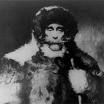


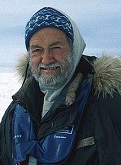










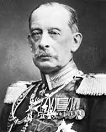


















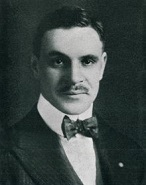































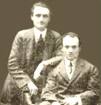
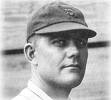

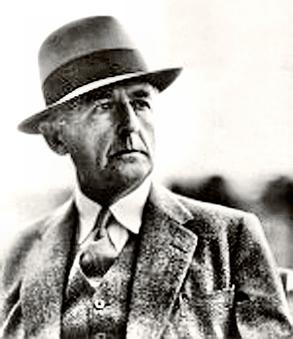



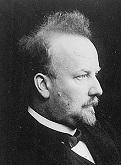



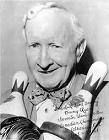







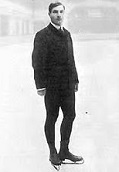







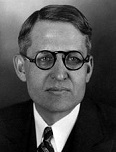














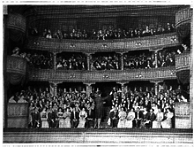









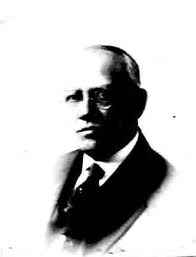








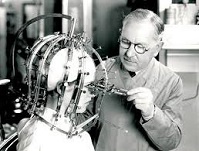





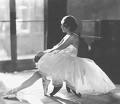
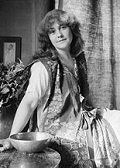


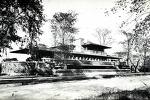

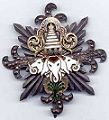



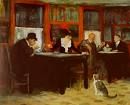
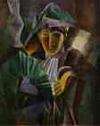


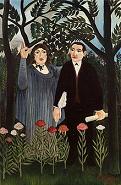
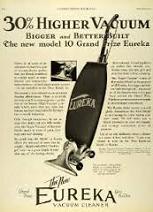
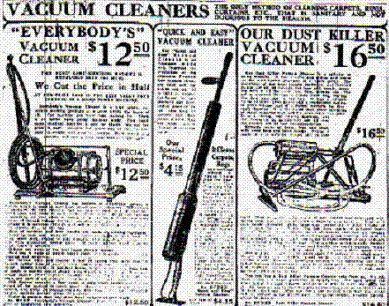


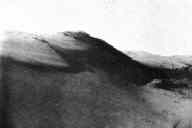

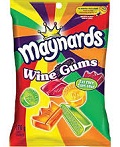

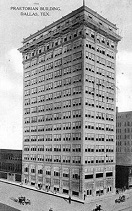
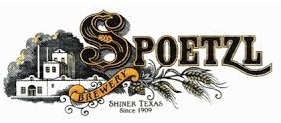
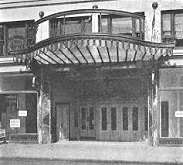
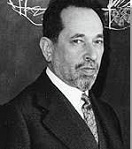
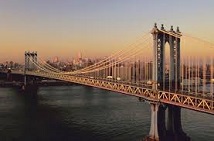
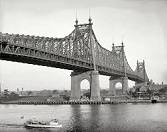
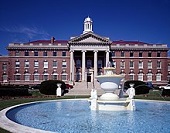

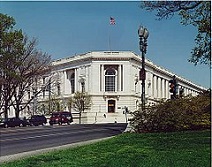
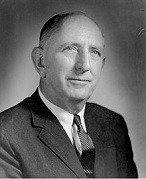

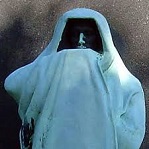
1909 Chinese Year: Chicken. Jewish pop.: World: 10.1M, Russia: 5.2M, Austria-Hungary: 2.0M, U.S.: 1.7M, Germany: 0.6M, Turkey: 0.4M, Britain: 0.2M, France: 0.1M. The urban pop. in the U.S. increases to 45.7% from 19.8% in 1860; the number of cities with 100K pop. increases from 9 to 50, and cities of 10K-20K rise from 58 to 369; since 1900 rural pop. increases by 11.8M, incl. 41% immigrants, 29.8% rural immigrants, 21.6% natural increase, and 7.6% by annexation of territory. On Jan. 9 Nat. Liberal Party head Ion (Ionel) I.C. Bratianu (1864-1927), eldest son of Ion Constantin Bratianu (1821-91) becomes PM of Romania (until Dec. 28, 1910, then Jan. 4, 1914 to Jan. 28, 1918, then Nov. 29, 1918 to Sept. 26, 1919, then Jan. 17, 1922 to Mar. 29, 1926, then June 21-Nov. 24, 1927), going on to oversee the unification of Romania with Transylvania, Bukovina, and Bessarabia - splitting the Ion? On Jan. 16 Russian foreign minister Alexander Izvolsky warns that the tensions in the Balkans will result in war, with the soundbyte: "Perhaps this conflict will not break out for five or ten years, but it is inevitable." On Jan. 21 German army chief of staff (1906-14) Gen. Helmuth Johann Ludwig von Moltke the Younger (1848-1916) begins corresponding with Austrian army chief of staff (1906-18) Gen. Baron Franz Xaver Joseph Conrad von Hoetzendorf (Hötzendorf) (1852-1925), changing their coalition from defensive to offensive, with Austria largely controlling events; in June 1911 after he pisses-off foreign minister Count Alois Lexa von Aehrenthal with his calls for preventative war against Italy during the Bosnian crisis, von Hoetzendorf is dismissed by the emperor under the pretext of an affair with his future wife Virginia Reininghaus, but after von Aehrenthal resigns and dies next year, he is reappointed in Dec. 1912. In Jan. retired German chief of staff Gen. Alfred Graf von Schlieffen (1833-1913) pub. an article warning about Germany becoming encircled by Britain, France, and Russia, with the soundbyte: "An endeavor is afoot to bring all these powers together for a concentrated attack on the Central Powers. At the given moment, the drawbridges are to be let down, the doors are to be opened, and the million-strong armies let loose, ravaging and destroying across the Vosges, the Meuse, the Niemen, the Bug, and even the Isonzo and the Tyrolean Alps. The danger seems gigantic"; Kaiser Wilhelm II reads it and comments "Bravo". On Feb. 3 U.S. Pres. Theodore Roosevelt issues Executive Order 1019 creating the Hawaiian Islands Bird Reservation to protect seabird nesting sites; in 1940 Pres. Franklin D. Roosevelt converts it to the Hawaiian Islands Nat. Wildlife Refuge, after which it is increased via the Midway Atoll Nat. Wildlife Refuge (1988), Kure Atoll State Wildlife Sanctuary (1993), and the NWHI Coral Reef Ecosystem Reserve (2000). On Feb. 8 the French-German Agreement on Morocco (Morocco Convention of 1909) affirms Morocco's independence, with Germany recognizing France's political interests, and France recognizing Germany's economic interests. On Feb. 12 Abraham Lincoln becomes the first historical figure to grace a U.S. coin, the 95% copper "Wheat Back" Lincoln Penny (Cent) on his 100th birthday, designed by Victor David Brenner (1871-1924) from a photo taken by Mathew B. Brady (1822-96); the Indian Head Penny (begun 1859) is discontinued; the Lincoln Penny is discontinued in 1958. On Feb. 12 (100th anniv. of Abraham Lincoln's birthday) after news of the 1908 Springfield Race Riot is spread by the Socialist press, Jewish physician Henry Moskowitz (1875-1936) and white Unitarian activist Mary White Ovington (1865-1951) meet, and call for a nat. conference, which meets on May 31-June 1 at the Henry St. Settlement House in New York City, headed by W.E.B. (William Edward Burghardt) Du Bois (1868-1963) and Ida B. Wells-Barnett (1862-1931), forming the 40-person Nat. Negro Committee, renamed next May 30 to the Nat. Assoc. for the Advancement of Colored People (NAACP) (niggers aren't always colored people?) and incorporated is founded; New York Evening Post owner Oswald Garrison Villard (1872-1949) donates space for announcing the 1910 meeting; Lincoln's white supremacist views are conveniently ignored? - the rest of the cent. in the U.S. is about Jews and some whites working to advance mainly powerless blacks in society, using the media to build blacks into superstars while pushing any and everything that weakens the total lock whites enjoy up till this year, culminating in the media-staged 2008-9 election and coronation, er, inauguration of half-and-half Barack Obama? On Feb. 20 eight Detroit, Mich. businessmen incl. Joseph Lowthian Hudson (1846-1912) of Hudson's Dept. Store and Roy Dikeman Chapin Sr. (1880-1936) found the Hudson Motor Car Co., and on July 3 begin producing the 4-cylinder Hudson Twenty, selling 4K the first year, and 4,508 in 1910, featuring the first dual brakes, dashboard oil pressure and generator warning lights, and balanced crankshaft; in 1912 a 6-cylinder model is introduced, becoming the first low-priced car that can do 60 mph; in 1916 the Hudson Super Six straight-six engine is introduced; they also become the first in the U.S. to switch from wood to lighter steel bodies. On Feb. 22 Pres. Roosevelt boards the USS Connecticut after it returns leading the Great White Fleet (begun 1907). On Feb. 23 J.A.D. McCurdy makes the first airplane flight in Canada aboard the Silver Dart (designed and built by Alexander Graham Bell's Aerial Equipment Assoc.) over Bras d'Or Lake near Baddeck Bay in Nova Scotia, flying 0.5 mi. at a height of 10-30 ft., becoming the first flight by a British subject in the British Empire. On Feb. 26 the Declaration of London Concerning the Laws of Naval War, an internat. code of rules governing the practice of naval war incl. blockades and contraband is adopted by the Internat. Naval Conference in London; it is signed by Germany, Austria-Hungary, France, Italy, Japan, Russia, Netherlands, Spain, the U.S., and U.K.; the U.S. Senate ratifies it, but the British House of Lords rejects it; no other states ratify it. In Feb. Hupp Motor Co. of Detroit, Mich., founded by brothers Robert Craig Hupp (1877-1931) and Louis Gorham Hupp (1872-1961) introduces its first car at the Detroit Auto Show, the Hupmobile Model 20 (until 1912); in 1912 they introduce all-steel bodies along with BSA in England; in 1931 they introduce the free-wheeling transmission that saves gas; in 1932-3 they produce the flashy Hupp Cyclefender roadster; in 1934 they introduce the Aerodynamic coupe, with sloping windshield and wide doors; the co. becomes defunct in 1940. On Mar. 4 Cincinnati, Ohio-born Yale grad. ("Big Bill") ("Peaceful Bill") ("Old Bill") ("Big Lub") ("Godknows Taft") (prefers to be called either Bill or William Howard Taft, never plain William or William H. Taft?) William Howard Taft (1857-1930) becomes the 27th U.S. pres. (until Mar. 4, 1913) in the 36th U.S. Pres. Inauguration; his mother Louise doesn't want him to be pres., saying "He has a judicial mind and he loves the law"; last U.S. pres. with a mustache until ?; first pres. to have a pres. car and to throw the ceremonial first pitch of the baseball season; first to give pres. approval to the 7th inning stretch; he has a pet cow named Pauline Wayne that freely grazes the White House lawn; favorite food: turtle soup (brings a special chef to the White House to prepare it); Utica-born N.Y. rep. (chmn. of the Repub. Congressional Committee since 1906) James Schoolcraft Sherman (1855-1912) becomes the 27th U.S. vice-pres. (until Oct. 30, 1912); First Lady Hillary, er, Helen Louise Herron "Nellie" Taft (1861-1943) (a smoker) becomes the first U.S. First Lady to ride alongside her hubby down Pennsylvania Ave. on Inauguration Day (replacing the outgoing pres.), going on to become the first co-pres., sponsoring legislation, although differing from her hubby on Prohibition, being a wet instead of a dry; too bad, she suffers a severe stroke on May 17 which permanently impairs her speech on the same day that their 12-y.-o. son Charles Phelps Taft II (1897-1983) has a "bloody adenoid operation", later dropping out of Yale U. to join the U.S. Army in WWI, and ending up as mayor of Cincinnati, Ohio in 1955-7; meanwhile their 18-y.-o. suffragist daughter Helen Herron Taft Manning (1891-1987) acts as official White House hostess, being given her own debutante party there next Dec.; Pres. Taft appoints Penn. atty. George Woodward Wickersham (1858-1936) as U.S. atty.-gen. #47 (until Mar. 4, 1913), and Penn. Sen. Philander Chase Knox (1853-1921) (former U.S. atty.-gen.) as U.S. secy. of state #40 (until Mar. 5, 1913), who backs a loan for the construction of the Hukuang Railway in China in connection with U.S., British, French, and German capitalists, and attempts to improve relations with Latin-Am. countries, but not at the expense of U.S. financial interests, giving rise to the charge of "dollar diplomacy"; former U.S. secy. of state #39 (since Jan. 27) Robert Bacon (1860-1919) is appointed U.S. ambassador to France (until 1912). On Mar. 10 Britain signs the Anglo-Siamese (Bangkok) Treaty of 1909 with Siam, securing the suzerainty of Kelantan, Trengganu, Kedah, and Perlis of the Unfederated Malay States, and adding about half of Perlis to Satun; on July 14 Britain proclaims protection over them. On Mar. 27 the first pub. of the use of the phrase "Rabbit rabbit" on the first day of each month to bring 30 days of good luck; later used by U.S. pres. FDR ("rabbits"), who carried a lucky rabbit's foot during the landslide 1932 U.S. pres. election; based on Lewis Carroll's 1865 "Alice in Wonderland"? On Apr. 5 the Arizona Gazette pub. an article titled "Explorations in Grand Canyon", revealing the discovery of a giant cavern complete with hieroglyphics and 9-ft.-tall mummies; the govt. seals it from public view. White is right on the White poles? On Apr. 6 after arriving on Ellesmere Island last year aboard the Roosevelt, Cresson, Penn.-born explorer Robert Edwin Peary Sr. (1856-1920) (known for hooking up with Inuit women and fathering children, and stealing valuable meteorites from Inuits to pocket the profits, while trying to cover it up) allegedly reaches the North Pole; he waits until Sept. 6 to send word about it; being white he naturally gets the credit, receiving the Thanks of Congress and promotion to rear adm. in 1911, although his black partner (who started out as a clerk selling furs, and met Peary in the shop) Matthew Alexander Henson (1866-1955) might have reached the Pole first, and four Eskimos came with them (Ooqueah, Ootah, Egigingwah, and Seegloo); on Mar. 30, 1911 the U.S. Congress passes a special act giving him recognition, plus a Rear Adm.'s pension after Dr. Frederick Albert Cook (1865-1940) fails to prove that he preceded him by a year (Apr. 21, 1908), beginning the Great Polar Controversy; in 1989 despite British explorer Sir Wally William "Wally" Herbert (1934-2007) (first man to walk to the North Pole in 1969 on the 60th anniv. of you know what) pub. the book The Noose of Laurels: Robert E. Peary and the Race to the North Pole, concluding that Peary only got 60 mi. (97km) from the pole and falsified his records, the Navigation Foundation certifies Peary's claim, but most scientists and explorers end up doubting that either Cook or Peary actually did it. On Apr. 13 the Young Turks force the abdication of Ottoman sultan (since 1861) Abdul Hamid II (1842-1918) on charges of squandering the wealth of the empire and massacring Armenians in Adana; on Apr. 27 he is succeeded by his brother (son of Abdul Mecid I, who was confined for 30 years in the palace harems, which didn't stop him from becoming a praised poet) Mohammed Rechad Effendi (whose portrait bears a striking resemblance to actor Jose Ferrer (1909-92)?), who becomes Ottoman sultan #35 Mehmed V Reshad (1844-1918) (until July 3, 1918). On Apr. 29 Liberal chancellor of the exchequer David Lloyd George introduces the People's Budget, backed by Board of Trade pres. Winston Churchill ("the Terrible Twins") calls for a supertax for incomes above 5K pounds, becoming the first British attempt at redistribution of wealth; meanwhile the British Trade Boards Act establishes wage boards with power to fix minimum wages. In Apr. English single vegetarian Theosophical Society leader (ex-Anglican priest) Charles Webster Leadbeater (1854-1934) (who resigned in 1906 for teaching boys to beat their meat, er, masturbate as a way to remain chaste, and is readmitted in early 1909 after Olcott's death, causing 150 members incl. G.R.S. Mead to walk out and found the Quest Society) discovers Telugu-speaking Brahmin teenie Jiddu Krishnamurti (1895-1986) on a beach on the Adyar River near the HQ of the Theosophical Society in Madras, becoming amazed by the "most wonderful aura he had ever seen, without a particle of selfishness in it". Leadbeater and Annie Besant groom him to become the long-awaited Master, er, World Teacher under the name Alcyone, forming the worldwide Order of the Star in the East (OSE) to support him. On Aug. 17, 1922 he begins going through a life-changing experience he calls the Process at Ojai, Calif. Too bad, on Nov. 13, 1925 his beloved brother Nitya dies in Ojai of TB and influenza, shaking his belief, and he disavows the idea of being the World Teacher and dissolves the org. on Aug. 3, 1929, going solo, forming a friendship with Aldous Huxley in 1938, and writing The First and Last Freedom, The Only Revolution, Krishnamurti's Notebook et al.; in 1980 he issues the Core of the Teaching, incl. "Truth is a pathless land. Man cannot come to it through any organization, through any creed, through any dogma, priest or ritual, nor through any philosophical knowledge or psychological technique. He has to find it through the mirror of relationship, through the understanding of the contents of his own mind, through observation, and not through intellectual analysis or introspective dissection." On May 1 under French influence Laotian king Sisavang Vong creates the Order of the Million Elephants and White Parasol to recognize military and civil achievement, with the usual five Euro orders. On May 1 reps of 45 Turkish Freemason lodges meet in Constantinople to found the Grand Orient Ottoman, with Mahmoud Orphi Pasha as grandmaster #1. On June 9-Oct. 16 the Alaska-Yukon-Pacific Expedition in Seattle, Wash. is attended by 3.7M; on June 9 Pres. Taft touches a key in Washington, D.C. sending a signal to open it, and another to New York City to start the New York to Seattle Automobile Race. On June 25 Cambrai-born Frenchman Louis Bleriot (Blériot) (1872-1936) pilots a Type XI monopolane of his own design across the English Channel from Calais to Dover in 37 min. to win Ł1K from the Daily Mail for first flight over the Channel. On July 11 Spain decides to send troops to Morocco, announcing a gen. conscription, resulting in Tragic Week (July 25-Aug. 2) as the spontaneous protests over the inequalities of military service lead to riots and strikes all over Catalonia esp. Barcelona; well-known anticlerical anarchist Francisco Ferrer (y) Guardia (Francesc Ferrer i Guardia) (b. 1859), who set up a school in Barcelona to propagate his views and was imprisoned in 1906-7 then released on charges of plotting to assassinate Alfonso XIII and Queen Victoria is again arrested on trumped-up charges of planning a revolt and executed by firing squad on Oct. 13, causing internat. outrage (3 years later he is exonerated and his property returned to his heirs); on Oct. 7 Spanish Gen. D'Amade is placed on reserve for criticizing Spanish encroachment on French territory in Morocco; PM Maura is ousted, and the Liberal Party is invited by the king to form a govt. On July 16 after trying to destroy the constitutional monarchy that he himself had created, Persian shah Mohammad Ali Qajar is ousted by nationalist troops, and goes into exile in Russia; his 11-y.o. son Ahmad Shah Qajar (1898-1930) is elected to the throne of Persia under a regency (until Oct. 31, 1925), becoming the last Qajar shah. On July 12 the Sixteenth (Income Tax) Amendment to the U.S. Constitution is sent by the 61st Congress to the states for ratification (ratified 1913). On July 14 after his budget proposals break his supporting Liberal-Conservative block, Count Bernhard von Bulow resigns, and on July 16 Theoboald von Bethmann-Hollweg (1856-1921) (of Jewish descent) becomes chancellor and PM of Germany (until 1917), going on to pursue a policy of detente with Britain, and a "diagonal" policy between the left and right at home; longtime (since 1890) foreign policy architect Friedrich von Holstein (b. 1837) dies on May 8. On Aug. 11 the SOS (...---...) Morse code distress sequence is first used by the U.S. ship Arapahoe off Cape Hatteras, N.C., and catches on, becoming the universal distress symbol. In Aug. the U.S. govt. purchases it first airplane, from the Wright Brothers. On Sept. 18 English Christian conservative writer G.K. (Gilbert Keith) Chesterton (1874-1936) pub. an article in the Illustrated London News that causes Mohandas K. Gandhi to become "thunderstruck", causing him to have it reprinted in Indian Opinion. On Sept. 18 the Las Vegas Review-Journal (originally the "Clark County Review" until 1926) is founded in Las Vegas, Nev., reaching a modern-day circ. of 172K daily and 204K Sun.; in 2015 it is sold to Sheldon Adelson, who tries in vain to hide his involvement. In Sept. after uttering the soundbyte: "They don't realize that we are bringing them the plague" on arrival in the George Washington in New York City, Sigmund Freud visits Clark U. in Worcester, Mass., delivering a series of lectures on sex, dreams, and the human mind, giving him his first public recognition, selling Am. psychiatrists on his theories; too bad, he develops a strange grudge against Americans, later calling them "savages", and never returns - get a life? On Oct. 6 the Payne-Aldrich Tariff, sponsored by U.S. House majority leader (R-N.Y.) Sereno E. Payne (1843-1914) starts out as a free trade bill, but the Senate, led by Nelson Wilmarth Aldrich (1841-1915) (R-R.I.) (grandfather of U.S. vice-pres. Nelson Rockefeller) reverses it until it lowers avg. tariff rates 38%-57% from the 1897 Dingley Tariff levels, although remaining highly protectionist; despite opposition by Senate progressives led by Robert M. La Folette of Wisc., Pres. Taft signs it, and puts his foot in his mouth by calling it "the best tariff bill the Republican Party ever passed", angering Repub. progressives, incl. Theodore Roosevelt; the U.S. gains unrestricted access to the Philippine market, and some Philippine exports are permitted to enter the U.S. without tariffs (under quota) - mom, can I keep it? On Oct. 8-16 the Pittsburgh Pirates (NL) (mgr. Fred Clarke) defeat the Detroit Tigers (AL) (mgr. Hughie Jennings) 4-3 to win the Sixth (6th) World Series, becoming the first Pirates win, while the Tigers become the first team to lose three straight; Ty Cobb of the Tigers becomes the first modern ML player to win baseball's triple crown (highest batting avg., home runs, RBIs); after being put in on a tip by NL pres. John Heydler, rookie Pirates pitcher Charles Benjamin "Babe" Adams (1882-1968) wins three games; Ty Cobb allegedly calls Honus Wagner a "Krauthead". On Oct. 26 ardent Korean nationalist An Jung-geun (1879-1910) (who cut off parts of his fingers to write "Korean independence" on a Korean flag in blood) assassinates Japanese Prince Hirobumi Ito (b. 1841) on the railway platform in Harbin, Manchuria, where he came to meet with a Russian diplomat, giving the Japanese an excuse for the annexation of the Korean peninsula; An, who is hung next year believed that the Meiji emperor, whom he idolized, was being betrayed by Ito and that this would wake him up? - if this had never happened Japan would have been America's ally in WWII? On Oct. 26 the Rockefeller Sanitary Commission for the Eradication of Hookworm Disease, the precursor of the Rockefeller Foundation is established. In Oct. after Nicaraguan liberal pres. (since 1893) Jose Santos Zelaya refuses to grant canal rights to the U.S. that incl, control over Nicaraguan territory, the U.S. backs a conservative coup in Bluefields, Nicaragua, using the execution of two U.S. workers as the reason to carry the bags for them; U.S. Marines land, and Pres. Taft declares support for the Nicaraguan revolt, causing Zelaya to resign, although guerrilla warfare continues. On Nov. 2 Boston U. grad. Warren Albert Cole (1889-1968) founds Lambda Chi Alpha, which goes on to become one of the largest men's gen. fraternities in North Am., with 268K members and chapters at 300 univs. by the end of the cent.; it goes on to become the first fraternity to abolish pledging; members incl. WWII heroes Jimmy Doolittle and Pappy Boyington, politicians John Danforth and Ron Paul, actors Claude Akins, Jonathan Frakes, and Will Geer, Dick Tracy creator Chester Gould, musicians Frankie Laine and John Tesh, and athletes Bill Bradley, Fred Biletnikoff, Mark Brunell, and Mark Kelso. On Nov. 13 the Cherry Coal Mine Fire near Cherry, Ill. (NW of La Salle) kills 259 men and boys. On Dec. 4 the 2-cent weekly African-Am. newspaper New York Amsterdam News is founded in Harlem, N.Y. by James H. Anderson, growing with the black influx and pub. columns by black writers incl. W.E.B. Du Bois, Roy Wilkins, and Adam Clayton Powell Jr., becoming the first to pub. the writings of Malcolm X. On Dec. 10 the 1909 Savannah Axe Murders in Savannah, Ga. see Eliza Gribble, her daughter Carrie Olander, and Maggie Hunter beaten to death in their house; after the newspapers sensationalize the murders, a riot breaks out as a mob searches for the perps; on Dec. 11 150 blacks being held for investigation are attacked by a mob at the police station; before dying in the hospital, Maggie Hunter names her husband J.C. Hunter as the perp, and next Feb. 23 three men are indicted by a grand jury, but on Aug. 17 only Hunter is convicted, and he is hanged on Dec. 22, 1911. On Dec. 10 (50th anniv. of Queensland's separation from N.S.S.) the U. of Queensland is founded in Brisbane, Australia, becoming Australia's 5th oldest univ. On Dec. 17 Leopold II (b. 1835) dies, and on Dec. 23 his nephew Albert Leopold Clement Marie Meinrad (grandson of Leopold I) becomes Albert I (1875-1934), king #3 of Belgium (until Feb. 17, 1934), going on to watch Belgium get invaded in WWI while being unable to arm his neutral country, uttering the soundbytes "Belgium is a nation, not a road", and "One thing is certain: they will not say that Belgium invaded Germany". On Dec. 20 Newport, Ky.-born Dem. Horace Harmon Lurton (1844-1914) (former Confed. soldier) becomes U.S. Supreme Court Justice #61 (until July 12, 1914) to fill the vacancy created by Rufus Wheeler Peckham (1895-1909), becoming the oldest to be appointed for the first time; the first of five appointments by Pres. Taft, becoming his favorite apointee, going on to side with Oliver Wendell Holmes Jr.; too bad, he's so old that he only lasts four years before dying of a sudden heart attack. Civil war breaks out in Honduras between Pres. Gen. Miguel Davila and former Pres. Manuel Bonilla (ends 1911). Alfred Deakin becomes PM of Australia again (#7) (until 1910). Turkey and Serbia recognize Austria's annexation of Bosnia and Herzegovina. Edward VII makes state visits to Berlin and Rome - what do you want me to say, I'm a real angel? MI5 (Security Service) is founded in London, England as a domestic counter-intel and security agency alongside MI6 AKA the Secret Intelligence Service (founded 1909), Govt. Communications HQ (GCHQ (founded 1919)), and Defence Intelligence (DI) (founded Apr. 1, 1964); since 1936 it is directed by the Joint Intelligence Committee (JIC); in 1989 the Secret Service Act of 1989 limits its operations; during WWII its official address is P.O. Box 500; in 1995 it moves its HQ to Thames House in Millibank, London. The Internat. Opium Commission meets in Shanghai, with 15 nations participating, becoming the beginning of internat. drug control. The Gran Federacion de Obreros de Chile is founded by Chilean railroad workers; in 1916 it becomes the Federacion Obrera Chilena and opens to all workers. H,.E.W Young, British vice-consul in Mosul writes the soundbyte: "The attitude of the Muslims toward the Christians and the Jews is that of a master towards slaves, whom he treats with a certain lordly tolerance so long as they keep their place. Any sign of pretension to equality is promptly repressed." The last frontier-style gold rush in the U.S. takes place at the port of Iditarod, Alaska - I did it on the road? After chief Zionist land agent Arthur Ruppin (1876-1943) helps get a loan, the Mediterranean coastal town of Tel Aviv (Heb. "hill of spring", from Ezek. 3:15) (Ahuzat Bayit until 1910) is founded in Palestine by 60 Jewish families as a Jewish ghetto on some abandoned sand dunes near Jaffa, becoming the first all-Jewish town since the Diaspora, and the garden spot of Palestine; Deganya, the first kibbutz (Jewish collective settlement) is built near the Jordan River. Garden of the Gods, a 700-acre park NW of Colorado Springs, Colo. filled with sandstone rock formations becomes part of the city's park system; every Easter a sunrise service is held at the base of the 330-ft. Gateway Rocks. Mesa County in Colo. is pressured into going dry by the WCTU, causing 1,034 grape farms involved in wine production to shut down. Hairdressers in London begin giving permanent waves. Women are admitted to German univs. Pres. Taft orders two Pierce Arrows for the White House. U.S. Steel Corp. chmn. (1903-27) Elbert Henry Gary (1846-1927) founds the Am. Iron and Steel Inst., which holds Gary Dinners in Gary, Ind. for steel execs to wheel and deal and work to stop closed union shops and shorter working days?; meanwhile Gary pioneers the use of the annual corp. report. The first Girl Guides are established in Britain by Sir Robert Baden-Powell; the first Boy Scout troop in the U.S. is started in Pawhuska, Okla. The Zulu Social Aid and Pleasure Club is founded in New Orleans, La. to march in Mardi Gras parades dressed up as Zulu warriors; 10 members of the club die in 2005's Hurricane Katrina. Albert Einstein becomes an assoc. prof at the U. of Zurich. Future U.S. gen. George S. Patton graduates #46 of 109 in his West Point class - a tower of corn in the field plowed? Danish-born Max Heindel (1865-1919) founds the Rosicrucian Fellowship in Mt. Ecclesia, Oceanside, Calif., and goes onto pub. the mag. Rays from the Rose Cross in 1913. 11-y.-o. child prodigy (world's highest IQ?) William James Sidis (1898-1944) becomes the youngest person to enroll at Harvard U.; he graduates in 1914 with a B.A. degree cum laude; after burning out he is arrested in the Socialist May Day parade in Boston in 1919 and sentenced to 18 mo. in prison, and ends up in a sanitorium, after which he becomes a bitter recluse doing manual labor jobs while working on all kinds of pubs. that never get pub., giving him the rep. of "prodigious failure" - sounds like somebody I know? Smooth pianoman Claude Debussy comes down with cancer, and for his last nine years he switches to chamber ensemble music. Russian Jewish ballerina Ida Rubinstein (1885-1960) debuts with a private performance of Oscar Wilde's "Salome", where she does the "Dance of the Seven Veils" and strips nude, after which she dances the title role of Cleopatra with the Ballets Russes in Paris. Boston Brahmin historian Abbott Lawrence Lowell (1856-1943) becomes pres. of Harvard U. (until 1933), going on to work to develop academic concentrations (majors), found the Harvard Extension School, the Harvard Society of Fellows, and the residential house system for undergrads, and keep it white, straight and right, with a 15% quota on Jews, expulsion of gays and blacks, et al. - you won't have to watch your wallet or your nuts? Conde (Condé) Nast is founded by New York City-born entrepreneur Conde (Condé ) Nast (1873-1942) with the acquisition of Vogue mag., going on to become a global mass media co. that owns The New Yorker, GQ, Glamour, Architectural Digest, Vanity Fair et al. N.J.-born John Moody (1868-1958), who founded Moody's Mag. in 1905 begins pub. Moody's Analyses of Railroad Investments (Moody's Railroad Ratings). The art movement known as Futurism (ends 1919) is founded in Italy by Umberto Boccioni (1882-1916), Filippo Marinetti, Giacomo Balla, Carlo Carra, Luigi Russolo, Gino Severini et al., attempting to integrate the dynamism of the machine age into art, with multiple images and overlapping color fragments - hook me up to all kinds of machines and don't boccioni it up? Andre (André) Gide (1869-1951) founds La Nouvelle Revue Francaise (The New French Review), becoming #1 in French intellectual circles. Cambridge U. changes the order of pub. of wranglers to alphabetic. The Cinematograph Licensing Act is passed in Britain, the first British legislation regulating the film industry, requiring all commercial cinemas to be licensed by local authorities; too bad, after a cinema owner tries to open on Sunday, and is shut down, appealing on the basis that the act is only intended to ensure health and safety, it backfires as the British courts rule that they can censor films too, causing a confusing network of local censorship, ending with the creation of the British Board of Film Censors in 1912. 16-y.-o. Spanish classical guitarist Andres Torres Segovia (1893-1987) gives his first public recital in Granada, going on to become the #1 classical guitarist of the 20th cent., known for transcribing Bach. Gay mean taskmaster Russian impresario Sergei Diaghilev (1872-1929) founds the Ballets Russes (Fr. "Russian Ballet") in Paris, creating a sensation with its exotic Russian dancers Vaslav Nijinsky (1889-1950) (Diaghilev's gay lover) and Anna Pavlova (1881-1931), and launching the careers of choreographers Michel Fokine (1880-1942), Leonide Massine (1896-1979), Bronislava Nijinska (1891-1972), and George Balanchine (1904-83); it never performs in Russia, and breaks up after his 1929 death; meanwhile in 1913 Nijinsky hooks up with Hungarian countess Romola Pulszky (1891-1978) and marries her, pissing-off Diaghilev, who fires him, after which he suffers a nervous breakdown in 1919 and never dances again? Maurice Utrillo begins his White Period (ends 1912), often applying white paint with a palette knife rather than a brush - let it snow, let it snow, let it snow? The Eight avant-garde movement of Hungarian painters in Budapest is founded (until 1918). Polish Jewish immigrant Max Factor Sr. (Maksymilian Faktorowicz (1874-1938) begins making theatrical makeup and wigs for the film industry in Los Angeles, Calif., making fans of Mary Pickford, Gloria Swanson, Pola Negri, Bette Davis, Norma Shearer, Joan Crawford, Judy Garland, Claudette Colbert et al.; in 1920 he permits his products to be called makeup instead of cosmetics. English Jew Joseph Duveen (1869-1939) goes into the art-dealing biz with Edwin Thanhouser (1865-1956), going on to get rich by buying art from Euro artistocrats and selling it to U.S. robber baron millionaires, incl. J.P. Morgan, Henry Clay Frick, Andrew Mellon, John D. Rockefeller, Henry E. Huntington, and William Randolph Hearst, later building the Duveen Gallery of the British Museum to house the Elgin Marbles (which he damages via restoration work), and getting a knighthood and baronage from the happy English royal family for helping the balance of trade long before the Beatles; meanwhile this year Thanhouser and his wife Gertrude Homan Thanhouser (1882-1951) found the Thanhouser Co. motion picture studio in New Rochelle, N.Y., going on to make a star of Florence M.L. La Badie (1888-1917), who is invited to Biograph by Mary Pickford this year, and jumps ship is founded; too bad, CEO (1912-4) Charles Jackson Hite (1876-1914) dies in an auto accident, causing the co. to go into a tailspin, and La Badie dies in another auto accident on Oct. 13, 1917 weeks after she quits, after which the co. goes out of biz. in 1918. France, Belgium, and Austria ban white lead interior paint. After a number of nitrate film fires, the British Cinematograph Act of 1909 is passed to control film theaters for health and safety reasons; next year the act is extended to the film content, causing filmmakers to hustle to stave off govt. intervention. Sister Frances Xavier Cabrini (1850-1917) (sainted in 1946) founds the Queen of Heaven Orphanage in Golden, Colo. (at the foothills of the Rocky Mts. W of Denver) on a hilltop where she finds a spring; in 1912 she hauls quartz stones to the top and and makes a stone heart, beginning a shrine with 373 steps and the Stations of the Cross along the path; in 1954 a 22-ft.-tall marble statue of Jesus is imported from Italy. Italian-born artist Ettore Arco Isidoro Bugatti (1881-1947) founds Automobiles Ettore Bugatti in Molsheim, Alsace to build race cars, becoming known for beautiful cars esp. the Bugatti Type 35 (1924) (with an arch-shaped radiator) that score many race victories incl. the first Monaco Grand Prix in 1929; too bad, Bugatti dies in 1947 after his son Jean Bugatti precedes him in 1939, and the co. limps along only until 1963 after selling only 8K cars. With financing by J.P. Morgan, the giant luxury liners Olympic, Titanic, and Britannic begin construction at Harland and Wolff Shipyard in Belfast, Ireland. In the fall Sears, Roebuck & Co. of Chicago, Ill. (founded in 1886) begins marketing manual vacuum cleaners, introducing three models by 1917, the 5 lb. Quick and Easy, the valve-and-piston pump type Dust Killer, and the bellows-type Everybody's Vacuum Cleaner, selling mainly to the rural market, where about 90% of 6.8M U.S. farms still don't have electricity by 1935, the year of passage of the U.S. Rural Electrification Act (REA); the number of these manual clunkers that actually found any use when a simple broom could often outperform them is in doubt; either way, the Great Dust Bowl began to form in 1934 in the U.S. and Canadian prairies, making vacuum cleaners useless until after WWII began. The Eureka Vacuum Cleaner Co. is founded in Detroit, Mich. by Toronto, Canada-born real estate auctioneer Fred Wardell (1866-1952) to sell lightweight maneuverable vacuum cleaners for which he had acquired several patents, purchasing his first plant in 1913 and supplying six models via an east coast and a west coast distributor, reaching 2K units a day by 1919, hiring up to 3K door-to-door salesmen, reaching a one-third share by the mid-1920s and perennial #2 position in the vacuum cleaner industry behind Hoover, expanding into electric ranges and other appliances, then hitting a brick wall during the 1930s Depression, going into the red by 1937, and dropping door-too-door sales in 1940, seeing sales drop to 7% of the industry total before switching to war production in 1942; in 1945 looking to get into the postwar appliance boom it merges with oil burner and refrigerator manufacturer Williams Oil-O-Matic of Bloomington, Ill. (founded in 1918), becoming Eureka-Williams Corp.; in 1947 it introduces the Eureka Home Cleaning System, which combines a canister-type and upright vacuum for $144.95; in 1953 it is purchased by Henney Motor Co. of Freeport, Ill.; in 1959 it becomes a div. of Nat. Union Electric Corp., and in 1961 it becomes the first U.S. co. to manufacture a purpose-built electric car, the $3,500 Henney Kilowatt, which sells only 47 units; in June 1974 it is purchased by AB Electrolux of Sweden, becoming the Eureka Co. again, clinging to its #2 position in the market behind Hoover, with 20% of the $600M market in 1993 vs. 35% for Hoover, with 100+ models; in 2004 it changes its name to Electrolux Home Products Div. After taking a famous color photo of Leo Tolstoy last year, Russian photographer Sergey (Sergei) Mikhaylovich Prokudin-Gorsky (1863-1944) is commissioned by Tsar Nicholas II to photograph the Russian Empire, complete with a specially-outfitted darkroom rail car, going on to take thousands of photos by 1915. About this time Confeitaria Colombo becomes the most elegant tea house in Rio de Janeiro. Penn.-born mag. illustrator Rose Cecil O'Neill (1874-1944) pub. a poem in the Dec. issue of Ladies' Home Journal with illustrations of Kewpies, chubby, Cupid-like baby imps with rosy faces, tiny wings, topknots, and cirlicues on their foreheads who steal a wealthy child's Christmas toys; she patents Kewpie dolls in 1913, then pub. four more successful Kewpie books. The hamerless slide-action repeating .22 Remington Model 12 rifle is first marketed (until 1936), becoming known as the "Little Remington", which becomes popular with boys and women. Abercrombie & Fitch, founded by outdoorsman Jay Abercrombie and atty. Ezra Fitch supplies Teddy Roosevelt's African safari. Am. businessman Harry Gordon Selfridge (1857-1947) opens a dept. store on London's Oxford St. - very selfridge of him? The U.S. Congress gives the Wright Brothers an award, and the U.S. govt. purchases their biplane for $30K, and it ends up in the Nat. Air Museum in Washington, D.C.; the brothers organize the Am. Wright Co. to manufacture airplanes, and end up fighting patent infringement suits over their 1906 patent, which are ultimately upheld. The Neue Kunstlervereinigung Munchen (Neue Künstlervereinigung München) Group is launched by Russian artist Wassily Wassilyevich Kandinsky (1866-1944), which he turns around and rejects in 1911. After getting fed-up with the assembly-line process for cranking out films for nickelodeons, Edwin S. Porter leaves Edison Studios to found a co. to manufacture Simplex movie projectors; in 1910 he founds Defender Film Co., which lasts only one year and 26 films. After working with William Selig in Chicago, Ill., Calif.-born Francis W. Boggs (1870-1911) returns to Calif. and opens a studio in Edendale in a bungalow in NW Los Angeles as a satellite for Selig, filming In the Sultan's Power, becoming the first motion picture made completely in Los Angeles; the great Calif. weather allows for more outdoor shooting days, eventually causing the U.S. movie industry to be concentrated there; (Selig Studio) debuts, starring Hobart Bosworth, Betty Harte, Frank Montgomery, and Tom Santschi, becoming the first motion picture made completely in Los Angeles; the film debut of Sherman, Tex.-born Stella Adams (1883-1961), who survives the talkie era poorly, appearing in films until 1936. Canadian-born stage actress Mary Pickford (Gladys Mary Smith) (1892-1979) finds herself out of work on Broadway and signs up with D.W. Griffith's Biograph Co., impressing him so much that she soon increases her pay from $5 to $8 a week, and appears in 51 films this year, then moves to Calif. next year, where she still isn't listed in the credits but featured on sandwich boards outside the nickelodeons as "the Girl with the Golden Curls", "Blondilocks", and "the Biograph Girl", becoming the first Hollywood movie star, and the first to make $1M/year. Independent Moving Pictures Co. (IMP) is founded at 11th Ave. and 53rd St. in New York City by German-born Jew Carl Laemmle (Karl Lämmle) (1867-1939), releasing their first film Hiawatha on Oct. 25, based on the 1855 Henry Wadsworth Longfellow poem, dir. by William V. Ranous, starring uncredited Gladys Hulette; St. Louis, Mo.-born William King Baggot (1879-1948) debuts as a silent film actor at IMP Studios, going on to write scripts and direct and become a major star, becoming one of the first two film stars along with Canadian-born Florence Lawrence to be given a billing, marquis, and advertising promotion, becoming known as "the Most Photographed Man in the World", and "the Man Whose Face is As Familiar as the Man in the Moon", appearing in 269+ films by 1947, writing 18 screenplays, and directing 45 films in 1912-28. Abdallah Candies (originally Calhoun Candy Depot until 1916) is founded in Minneapolis, Minn. by Lebanese immigrant Albert Abdallah and his Swedish-descent wife Helen Trovall, going on to operate for four generations (until ?). The Spoetzl Brewery (originally the Shiner Brewing Assoc.) is founded in Shiner, Tex. ("Cleanest little city in Texas"); in 1915 it is acquired by German Bavarian immigrant brewmaster Kosmos Spoetzl, introducing Shiner Bock in 1913, which becomes a hit with German and Czech immigrants in the Texas Hill Country, going on to produce 60K barrels/year in 1983, 100K barrels/year in 1994, and 300K barrels/year in 2004, becoming the 4th largest craft brewery and 10th largest brewery in the U.S., and oldest independent brewery in Tex. Chewy alcohol-free wine gum candies are introduced by Charles Gordon Maynard of Maynard's Sweets in Stamford Hill, London, England (founded 1896). Sports: On Jan. 27 A.C. Jellison bowls 826, becoming the first ABC-sanctioned 800 series; on Mar. 11 he is defeated by Homer Sanders in an ABC gold medal competition in Pittsburgh, Penn. based on both having bowled a perfect 300 game in 1908. On Mar. 12 Jimmy Smith defeats Lou Frantz in 30 games in Brooklyn, N.Y. and Cleveland, Ohio, becoming nat. Match Game champion. On Mar. 26-31 the first 6-day Berlin Bicycle Race in Germany is held. On May 12 the Preakness Stakes is run at Pimlico in Baltimore, Md.; the winner is Effendi (1906-), "the Iron Horse". The first U.S. Congressional Baseball Game for Charity sees the Dems. defeat the Repubs. by 26-6, launching a 6-game winning streak that the Repubs. end in 1916; in 1928 it is first broadcast on radio. The 1909 Stanley Cup is won by the Ottawa Senators, becoming the 4th and last season of the Eastern Canada Hockey Assoc. The first Gordon Bennett Trophy for aviation in Reims, France, sponsored by New York Herald publisher James Gordon Bennett Jr. (1841-1918) is won by Glenn Hammond Curtiss (1878-1930) (who made the first officially-witnessed flight in North Am. on July 4, 1908), who achieves a speed of 75.27 km/h (46.77 mph); the 1912 race is the first with a winner who flies over 100 mph; the last race is held in 1920, with the winner reaching 168.73 mph. Indianapolis Motor Speedway in Indianapolis, Ind. is built, with a permanent seating cap. of 257,325, expandable to 400K, becoming the highest-capacity sports venue on Earth, becoming the home of the Indianapolis 500 and Brickyard 400, with a 2.5-mi. flat track in a rectangular oval with four 1/4-mile turns, two 5/8-mile straightaways, and two 1/8-mile straightaways (short chutes) between turns 1-2 and 3-4; National Motor Vehicle Co. pres. Arthur C. Newby is one of the investors. John Ambrose O'Brien (1885-1968) of Renfrew, Ont., Canada buys the Renfrew Creamery Kings, which get the nickname Renfrew Millionaires after he gives lavish contracts to its players in an unsuccssful bid for the Stanley Cup, incl. "Flying Frenchman" Edouard Cyrille "Newsy"" Lalonde (1887-1970), brothers Cutis Lester "Les" "the Silver Fox" Patrick (1883-1960) and Francis Alexis "FranK" Patrick (1885-1960), and Frederick Wellington "Fred" "Cyclone" Taylor (1884-1979); on Dec. 2 after being turned down by the new Canadian Hockey Assoc. (CHA) ,John Ambrose O'Brien founds the Nat. Hockey Assoc. (NHA) in E Canada (until Dec. 11, 1918), incl. his Renfrew Millionaires, the Montreal Wanderers, and his new Montreal Canadiens (founded Dec. 4), which becomes the oldest prof. ice hockey team to survive to modern times; too bad, the CHA folds in Jan. 1910 after seven weeks after their first game on Dec. 30, 1909 is attended by only 800 fans, and the Jan. 8 game by only 1,500 fans, causing three of its five teams (Ottawa Hockey Club, Quebec Bulldogs, Montreal Shamrocks) to jump to the NHA on Jan. 15. King Edward VII's horse Minoru (1906-) wins the Derby, becoming the first winner owned by a monarch. Basketball players must commit five personal fouls to be ejected from a game. The first internat. basketball game is played in St. Petersburg, Russia; Mayak St. Petersburg defeats a U.S. YMCA team. The first 10-pin bowling lanes in Europe are installed in Sweden; too bad, the game fails to catch on in the rest of Europe until after WWII. Thomas F. "Tommy" Ryan (1872-1961) of Toronto, Ont., Canada invents Five-Pin Bowling, using a candlestick bowling ball; it catches on only in Canada; in 1910 the first 5-pin bowling league is formed in Toronto; in 1912 rubber rings are added to the pins; in 1921 the first women's league is formed in Toronto, and the first perfect game (450) is bowled. The Correspondence Chess League of Am. is founded in New York City. Anglo-French aviator Henri Farman (1874-1958) completes the first 100-mi. flight, and his brother Maurice Farman (1877-1964) sets world air speed and endurance records. Duke Luigi of the Abruzzi sets a world record in ascending Mt. Godwin-Austin in Kashmir to a height of 24.6K ft. 70-y.o. Am. Forrest Gump prototype E.P. Weston (1839-1928) walks 3,895 mi. from New York City to San Francisco, Calif. 5'10" center Maurice Joseph Cletus "Phantom Joe" Malone (1890-1969), known for his clean play begins playing for the Quebec Bulldogs of the Eastern Canada Hockey Assoc. (ECHA), scoring 8 goals in 12 games, becoming the team captain and leading them to the 1912 and 1913 Stanley Cup Finals, scoring a record 9 goals in a Cup match against Sydney; in 1913 his older brother Patrick Jeffrey Elias "Jeff" Malone (1888-1981) helps him win the Stanley Cup; in 1917 he joins the NHL Montreal Canadiens, shifting to left wing to play with Newsy Lalonde and Didier Pitre, scoring an NHL record 44 goals in 20 games that stands until 1945, along with a record per-game avg. that isn't broken until ?; he also scores 1+ goal in each of his first 14 NHL games (total 35), setting an NHL record for longest goal-scoring streak; in 1919 he returns to Quebec, leading the NHL with 39 goals, and setting an NHL single game record of 7 goals on Jan. 31, 1920 against Toronto. Swedish world champion figure skater (1901-5, 1907-11) Karl Emil Julius Ulrich Salchow (1877-1949) invents the Salchow figure-skating jump. Architecture: On Mar. 5 the Beaux Arts-style marble-limestone-granite U.S. Senate Office Bldg. N of the U.S. Capitol on Constitution Ave., First St., Delaware Ave., and C St. N.E. in Washington, D.C. opens, designed by Carrere and Hastings of New York City, featuring forced-air ventilation, steam heat, individual lavatories with hot and cold running water plus ice water, telephones, and electricity, connected to the U.S. Capitol via underground passages; it starts out with 98 suites and eight committee rooms, growing by 28 suits and two committee rooms in 1933 with the addition of the First Street Wing; in 1958 after the Dirksen Senate Office Bldg. opens, it becomes the Old Senate Office Bldg.l in 1972 it is renamed after U.S. Senator (D-Ga.) (1933-71) Richard Brevard Russell Jr. (1897-1971), a staunch segregationist (until ?); it goes on to host the 1974 Watergate hearings, the 1987 Iran-Contra hearings, and the 1991 Clarence Thomas Supreme Court nomination hearings, and be used as the HQ of the OSI org. in the TV series "The Six Million Dollar Man" and "The Bionic Woman"; in 1909 the Russell Caucus Room is renamed the Kennedy Caucus Room; in 2018 U.S. Senate minority leader Chuck Schumer introduces a resolution to rename it after U.S. Sen. (R-Ariz.) John McCain. On Mar. 30 the 3,724.5-ft. (135.2m) long, 100-ft. (30m) wide 2-level (double-decked) double cantilever Queensboro (59th St.) Bridge over the East River in New York City, connecting Upper East Side, Manhattan with Long Island City, Queens opens, going on to become the first entry point into Manhattan for the New York City Marathon; in 2012 a $300M replacement (begun 1987) opens; in Dec. 2010 it is renamed the Ed Koch Queensboro Bridge, pissing-off the residents of Queens, who refuse to quit calling it by its old name. On May 1 Walter Reed Gen. Hospital in Washington, D.C. is founded, named after U.S. Army yellow fever physician Maj. Walter Reed (1851-1902), growing from 80 to 5.5K beds; in 1951 it is renamed Walter Reed Army Medical Center; it is disbanded on Aug. 27, 2011. On Sept. 4 the Gaiety Theatre at 1547 Broadway in New York City opens with "The Fortune Hunter", introducing the sunken orchestra and pillar-free sight lines; in 1932 it becomes Minsky's Burlesque, featuring performances by Gypsy Rose Lee, Ann Corio, and Abbot and Costello; in 1943 after Mayor Fiorello LaGuardia cracks down on burlesque, it becomes the Victoria Theatre, which features vaudeville acts incl. Stepin Fetchit; in Sept. 1943 it becomes a movie theater, with a roof sign stretching across the neighboring Astor Theatre that is claimed to be the world's largest, ending up advertising Budweiser; in 1980 it is renamed the Embassy 5; it is demolished in 1982 along with four other theaters to make room for the New York Marriott Marquis Hotel; meanwhile the office bldg. in the top floors becomes known as the Black Tin Pan Alley for its black composers barred from the Brill Bldg. incl. Perry Bradford, W.C. Handy, Harry Pace, Will Vodery, and Bert Williams. On Sept. 6 the Comedy Theatre at 110 West 41st St. in Manhattan, N.Y. (cap. 687) opens with The Melting Pot, becoming the place where Katharine Cornell and Ruth Draper make their debuts; in 1927 Eugene O'Neill's In the Zone debuts, becoming his first Broadway play; in 1937 it reopens as the Mercury Theatre, debuting Orson Well's adaptation of Shakespeare's "Julius Caesar", in which he plays Brutus; on Oct. 31, 1938 reporters hound Welles during an all-night rehearsal of Georg Buechner's Danton's Death the day after his infamous The War of the Worlds radio broadcast there; in 1939 it switches to classic Yiddish theater; in 1942 it is demolished. On Dec. 31 the 1,470-ft. (448m) suspension Manhattan Bridge in New York City over the East River between Canal St. in Manhattan and downtown Brooklyn (begun 1901) opens to traffic, becoming the first suspension bridge to employ the deflection theory of Josef Melan for the deck, and the first to utilize a Warren Truss, becoming a forerunner of modern suspension bridges, designed by Latvian-born bridge engineer Leon Solomon Moisseiff (1872-1943). The 15-story 190 ft. (58m) Praetorian Bldg. at Main St. and Stone St. in Dallas, Tex. opens, becoming the first skyscraper in the SW U.S.; it is demolished in summer 2013. Am. architect Daniel Hudson Burnham (1846-1912) launches the 1909 (Burnham) Plan of Chicago, which reshapes Chicago's central area, influencing the new field of city planning. Frank Lloyd Wright's 3-story Robie House in Chicago, Ill. is completed, a horizontal "prairie-type" house with a massive chimney featuring the living-dining area on the 2nd floor, and containing the first house-connected garage; like all his other bldgs. the roof leaks? Lunapark (modelled after Coney Island in N.Y.) in Berlin, Germany opens, becoming Europe's largest amusement park (until ?), going on to become the site where Max Schmeling wins his first Germany lightheavyweight boxing title in 1926; closed in 1933. Nobel Prizes: Peace: Auguste Marie Francois Beernaert (1829-1912) (Belgium) and Baron Paul-Henri-Benjamin d'Estournelles, Baron de Constant de Rebecque (Rébecque) (1852-1924) (France); Lit.: Selma Ottilia Lovisa Lagerlof (Lagerlöf) (1858-1940) (Sweden) (first woman); Physics: Guglielmo Marconi (1874-1937) (Italy) [radio] and Karl Ferdinand Braun (1850-1918) (Germany) [CRT]; Chem.: Wilhelm Ostwald (1853-1932) (Germany) [electrochemistry]; Med.: Emil Theodor Kocher (1841-1917) (Switzerland). Inventions: Thomas Edison invents the Automobile Storage Battery. Stephen Dudley Field mates his Dynamo Quadruplex Telegraph to submarine cable. Iranian telegraph operator Joseph (Yusef) becomes the first to propose an earthquake early warning system, giving 6 sec.of warning. The 2-player card game Gin Rummy is invented by Elwood T. Baker of the Knickerbocker Whist Club of New York City; seen being played in a cheating way by Goldfinger in the 1964 James Bond flick. J.D. Estes of Philadelphia, Penn. invents Skee-Ball, with a 36-ft.-long alley (changes to 14 ft. in 1928). Oliver S. Kendall (-1914) of Worcester, Mass., known for patent #459,901 (1891), the Dry Closet, a device for burning human waste begins marketing the pump-type Pneu-Simplex Vacuum Cleaner, in a wooden housing. Oliver P. Smith of St. Louis, Mo. invents the Mechanical Rabbit for greyhound racing. Science: Danish mathematician Agner Krarup Erlang (1878-1929) pub. "The Theory of Probabilities and Telephone Conversations" to describe probabilities of equipment use in the Copenhagen telephone exchange, founding Queueing Theory; he follows it in 1917 with "Solution of Some Problems in the Theory of Probabilities of Significance in Automatic Telephone Exchanges". Belgian scientist (Roman Catholic priest) Frans Alfons Janssens (1865-1924) first describes chromosomal crossover (crossing over), calling it "chiasmatype", making a fan of Columbia U. geneticist Thomas Hunt Morgan, who applies it to his research on the heredity of Drosophila melanogaster. Austrian-born Karl Landsteiner (1868-1943) of the U.S., Constantin Levaditi (1874-1953) of Romania, and Erwin Popper (1879-1955) of Austria discover the Polio Virus. Dr. Frederick S. McKay (1874-1959) of Colo. Springs, Colo. discovers the concept of water fluoridation to prevent cavities. Am. physicists Robert Andrews Millikan (1868-1953) and Harvey Fletcher (1884-1981) perform the Millikan Oil-Drop Experiment to establish that electric charge consists of integral multiples of a unit charge; after Fletcher agrees to let him in return for using the results on his 1911 U. of Chicago dissertation (becoming their first student to earn a Ph.D. summa cum laude), Millikan takes all the credit, winning the 1923 Nobel Physics Prize; Fletcher goes on to work at Bell Labs and become "the Father of Stereophonic Sound". T.H. Morgan begins his researches in genetics. French bacteriologist Charles Jules Henry Nicolle (1866-1936) proves that typhus is spread by lice, winning him the 1928 Nobel Med. Prize. Stockport, Iowa-born economist Henry Charles Taylor (1873-1969) establishes the Dept. of Agriculture Economics at Wisconsin U., founding Agricultural Economics (Agronomics), the application of economic methods to optimizing decisions made by agricultural producers. Am. paleontologist Charles Doolittle Walcott (1850-1927) discovers well-preserved fossils in the Burgess Shale of Mt. Burgess in British Columbia, Canada, leading to the theory that a complete ecosystem existed there in Cambrian seas 515M years ago after the Cambrian Explosion - is that a trilobite in your pocket or are you glad to see me? Nonfiction: Henry Brooks Adams (1838-1918), The Rule of Phase Applied to History; pub. posth.; sees history as a thermodynamic process moving towards equilibrium, with military nations acting as Maxwell's Demon and tending to reverse it. Duh, war is a profitable industry too for international bankers? Sir Norman Angell (1872-1967), The Great Illusion (pub. as the pamphlet "Europe's Optical Illusion" this year, followed by a book next year); bestseller by a future British MP (1929-31) that goes through 10 English language printings by 1913, and is trans. into the major Euro languages, arguing that another major internat. war is impossible because war has become so terrible, economies so economically interdependent, and govts. so rational, calling for an end to the arms race; "War has no longer the justification that it makes for the survival of the fittest; it involves the survival of the less fit. The idea that the struggle between nations is a part of the evolutionary law of man's advance involves a profound misreading of the biological analogy"; "How can modern life, with its overpowering proportion of industrial activities and its infinitesimal proportion of military, keep alive the instincts associated with war as against those developed by peace?"; even the Prussian Junker "becomes less of an energumen as he becomes more of a scientist"; Barbara Tuchman in "The Guns of August" points out that the Brits are reading this on the eve of WWI while the Germans are reading Friedrich von Bernhardi's 1912 "Germany and the Next War", which argues that war is part of the Darwinian Struggle for Existence, and is "a biological necessity"; in 1933 Angell pub. a rev. ed. of his book, claiming that economics won't prevent a world war but that it's a futile way for a nation to enrich itself, winning him the 1933 Nobel Peace Prize. Max Beerbohm (1872-1956), Yet Again; sequel to "Works" (1896), and "More" (1899). Enoch Arnold Bennett (1867-1931), Literary Taste: How to Form It. Alphonse Bertillon (1853-1914) and A. Chervin, Anthropologie Metrique et Photographique. William Beveridge (1879-1963), A Problem for Industry. Wilfrid Scawen Blunt (1840-1922), Secret History of the English Occupation of Egypt. Andrew Cecil Bradley, Oxford Lectures on Poetry. Max Brod (1884-1968), Judinnen. Colin Campbell (1848-1931), Two Theban Queens. Andrew Carnegie (1835-1919), Problems of To-Day. Hereward Carrington (1880-1958), Eusapia Palladino and Her Phenomena; claims she is genuine, but after inviting her to the U.S. he is shaken when fraud is detected twice at her sittings. Thomas Chrowder Chamberlin (1843-1928) and Rollin D. Salisbury (1858-1922), A College Text-Book of Geology; followed by Part II Historical Geology in 1927; also Introductory Geology: A Text-Book for Colleges in 1921. Herbert David Croly (1869-1930), The Promise of American Life; "A manifesto of Progressive beliefs" that provides a philosophical basis for Progressivism, viz., "Hamiltonian means" to effect "Jeffersonian ends", preparing the U.S. for a future welfare state, making him a star and causing Theodore Roosevelt to adopt his program as the New Nationalism; argues for a national government more powerful than before as a bulwark against overbearing self-interest, greed, corruption, and unchecked power, while valuing the individual motivated by civic virtue and "constructive individualism"; "The traditional American confidence in individual freedom has resulted in a morally and socially undesirable distribution of wealth"; in 1949 he founds The New Republic. Sir Francis Darwin (1848-1925), The Foundations of the Origin of Species; Charles Darwin's son is a chip off the old block? Charles Montagu Doughty (1843-1926), The Cliffs. Arthur Drews (1865-1935), The Christ Myth (London) (English tr. pub. in 1910); joins Bruno Baer and Albert Kalthoff as Germany's pioneers in denial of a historical Jesus, stressing the similarities of the early Christ cult with the popular mystery cults of the time esp. Mithraism, and noting that Christianity could have arisen without a historical Jesus, but not without a historical Paul or Isaiah, with the soundbytes: "The question of the historicity of Jesus is a purely historical question to be settled with the resources of historical research"; "Critics are convinced of the historicity of the gospels a priori, before investigating the subject... [They only have] to seek the "historical nucleus" in tradition... How is it that Weinel knows the [innermost nature] of Jesus so well before beginning his inquiry that he thinks he can determine by this test what is spurious in tradition and what is not?... The gospels, it seems, are to be understood from 'the soul of Jesus', not from the soul of their authors!... Johannes Weiss... acknowledges that in all his inquiries he starts with the assumption that the gospel story in general has an historical root, that it has grown out of the soil of the life of Jesus, goes back to eye-witnesses of his life, and comes so near to him that we may count upon historical reminiscences... There is a further principle, that all that seems possible... may at once be set down as actual... [This is how] all theological constructions of the life of Jesus are based... the historicity of which is supposed to have been proved by showing that they are possible... Johannes Weiss is a master in...[this] way of interpreting the miracles of Jesus... If any one ventures to differ from him, Weiss bitterly retorts: 'Any man who says that these religious ideas and emotions are inconceivable had better keep his hand off matters of religious history; he has no equipment to deal with them' [A classical response of theologians to skeptics.]... [In] Weiss's 'Das älteste Evangelium'...he tries to prove that... Mark is merely incorporating an already existing tradition. 'Not without certain assumptions do we set about the inquiry.'"; "There is nothing, absolutely nothing, either in the actions or words of Jesus, that has not a mythical character or cannot be traced to parallel passages in the Old Testament or the Talmud. Historical criticism resolves all details of the Gospel story in mythical mist and makes it impossible to say that there ever was such a person"; "The Christ-faith arose quite independently of any historical personality known to us;... Jesus was in this sense a product of the religious social soul and was made by Paul, with the required amount of reinterpretation and reconstruction, the chief interest of those communities founded by him. The historical Jesus is not earlier but later than Paul; and as such he has always existed merely as an idea, as a pious fiction in the minds of members of the community... the Gospels are the derivatives... for the propaganda of the Church, and being without any claim to historical significance... [Religion] is a group-religion...the connection of the religious community... [Our personal religion], a religion of the individual, a principle of personal salvation, would have been an offense and an absurdity to the whole of ancient Christendom." W.E.B. Du Bois (1868-1963), John Brown. Charles Eliot (1834-1926), The Religion of the Future; lecture by Harvard U. pres. #21 (since 1869) advocating the social gospel sans the Bible, Christianity, and churches, with only one commandment, viz., the love of God as expressed in practical service of others, with the soundbyte: "No thinking person now accepts Eden, or God forming man out of the dust", freaking out Christian fundamentalists and conservatives and causing them to declare war on liberalism incl. Darwinism and Biblical Higher Criticism. Ludwig Ganghofer (1855-1920), Lebenslauf eines Optimisten (3 vols.) (autobio.) (1909-11). Samuel Rawson Gardiner (1829-1902), The Last Years of the Protectorate (2 vols.) (posth.); ed. by C.H. Firth. John Chipman Gray (1839-1915), The Nature and Sources of the Law. Sir Wilfred Thomason Grenfell (1865-1940), Adrift on an Icepan. William Torrey Harris (1835-1909), Webster's New Internat. Dictionary; first with divided pages. Albert Bushnell Hart (1854-1943), Imagination in History. David George Hogarth (1862-1927), Ionia and the East. William James (1842-1910), A Pluralistic Universe. Camille Jordan (1838-1922), Cours d'Analyse de l'Ecole Polytechnique (3 vols.); becomes a std. textbook. Philander Chase Knox (1853-1921), International Unity. Prince Peter Kropotkin (1842-1921), The Terror in Russia - so what if you can see the darker side of me? Rodolfo Lanciani (1846-1919), Wanderings in the Roman Campagna. Count Georges Vacher de Lapouge (1854-1936), Race and Social Background: Essays in Anthroposociology (Race et Milieu Social: Essais d'Anthroposociologie). Vladimir Lenin (1870-1924), Materialism and Empiric Criticism (May); pub. under alias "V.L. Ilyin". James H. Leuba (1868-1946), The Psychological Origin and the Nature of Religion (first book); attempt to explain mysticism and other religious experiences naturally in psychological terms. Sir Oliver Joseph Lodge (1851-1940), The Ether of Space; ether and ether drift; "The oldest and best known function for an ether is the conveyance of light, and hence the name 'luminiferous' was applied to it; though at the present day many more functions are known, and will almost certainly be discovered." Cesare Lombroso (1835-1909), After Death: What? Researches in Hypnotic and Spiritualistic Phenomena; his seances in Milan with Eusapia Palladino convince him she's for real. Shailer Mathews (1863-1941), The Social Gospel. John Bach McMaster (1852-1932), A Brief History of the United States. Hugo Munsterberg (1863-1916), Psychology and the Market; proposes the use of psychology in business and industry. Peter Ouspensky, The Fourth Dimension. Gifford Pinchot (1865-1947), The Fight for Conservation. Henri Pirenne (1862-1935), The Formation and Constitution of the Burgundian State in the Fifteenth and Sixteenth Centuries. Otto Rank (1884-1939), The Myth of the Birth of the Hero. Salomon Reinach (1858-1932), Orpheus: A History of Religions. Nikolai Rimsky-Korsakov (1844-1908), My Musical Life (autobio.). Cyrus Ingerson Scofield (1843-1921), Scofield Reference Bible (Oxford U. Press); first Bible ed. since the 1560 Geneva Bible with commentary alongside the text, popularizing John Nelson Darby's Dispensationalism and Futurism, with chain references; the 1917 ed. adds Archbishop James Ussher's 4004 B.C.E. Bible chronology, becoming many readers' first encounter with it; the fortunate coming of WWI boosts sales, reaching 2M by the end; makes fans of Tim LaHaye, Hal Lindsey, and Edgar C. Whisenant. Eduard Suess (1831-1914), The Face of the Earth (1885-). Algernon Charles Swinburne (1837-1909), The Age of Shakespeare. Edward Bradford Titchener (1867-1927), Lectures on the Experimental Psychology of the Thought-Processes; A Textbook of Psychology (1909-10); or, why behaviorism sucks? Ferdinand Tonnies (1855-1936), Die Sitte. Thomas Troward (1847-1916), The Edinburgh Lectures on Mental Science; given in 1904; become popular with Alcoholics Anonymous (AA) members. Alfred Weber (1868-1958), Theory of the Location of Industries; develops the Least Cost Theory of Industrial Location (Weber Problem). Art: George Wesley Bellows (1882-1925), Both Members of This Club; amateur boxing match in a New York City club where the boxers are granted membership only for the duration of the bout; it makes him a star. Emile-Antoine Bourdelle (1861-1929), The Archer Herakles (Heracles) (sculpture). Georges Braque (1882-1963), Fishing Boats; Violin and Palette. Lovis Corinth (1858-1925), The Artist and His Family. Cyrus Edwin Dallin (1861-1944), Appeal to the Great Spirit (bronze statue). Augustus John (1878-1961), Harold Chaloner Dowdall, Lord Mayor of Liverpool. Henri Matisse (1869-1954), The Dance I; 102.2" x 153.6"; "The overpowering climax of luminosity" (Matisse); Still Life with Dance. Sir William Orpen (1878-1931), Homage to Manet. Pablo Picasso (1881-1973), Young Woman; Woman with Fan; Woman Playing the Mandolin; Portrait of Fernande. John Sloan (1871-1951), Chinese Restaurant; Three A.M.. Lorado Taft (1860-1936), Eternal Silence (Statue of Death) (Dexter Graves Monument) (sculpture) (Graceland Cemetery, Chicago, Ill.); Dexter Graves (-1844), who led a group of 13 settlers from Ohio in 1831 to Chicago. Hamo Thornycroft (1850-1925), Alfred Lord Tennyson (statue) (Trinity College Chapel, Cambridge U.). Music: Eugene d'Albert (1864-1932), Izeyl (opera). Sir William Schwenk Gilbert (1836-1911) and Sir Edward German (1862-1936), Fallen Fairies (comic opera). Franz Lehar (1870-1948), The Count of Luxembourg (operetta) (Vienna); Gypsy Love (Zigeunerliebe) (operetta) (Vienna); after his opera "Der Mann Mit den Drei Frauen" fails last year, he cranks ot three operettas in 3 mo., and these two score bigtime. Gustav Mahler (1860-1911), Symphony No. 9 (1909-10); his last finished symphony. Juan Manen (1883-1971), Der Fackeltanz (opera). Billy Murray, In My Merry Oldsmobile. Nikolai Rimsky-Korsakov (1844-1908), The Golden Cockerel (Le Coq d'Or) (opera) (posth.) (Oct. 7) (Sept. 24 Old Style) (Solodovnikov Theatre, Moscow); libretto by Vladimir Belsky from Alexander Pushkin's 1834 poem "The Tale of the Golden Cockerel", based on "Tales of the Alhambra" by Washington Irving, about a clairvoyant bird that pecks a king to death. Arnold Schonberg (1874-1951), Three Piano Pieces, Op. 11. Jean Sibelius (1865-1957), Nightride; Sunrise. Oscar Straus (1870-1954), Das Tal der Liebe. Richard Strauss (1864-1949) and Hugo von Hofmannsthal (1874-1929), Elektra (opera) (Dresden); stars Czech-born Am. contralto Ernestine Schumann Heink (1861-1936). Ralph Vaughan Williams (1872-1958), Fantasia on a Theme of Tallis. Ermanno Wolf-Ferrari (1876-1948), Il Segreto di Susanna (comic opera) (Munich). Movies: Francis W. Boggs' Ben's Kid (July 1) stars Tom Santschi and Harry Todd, and is the film debut of 260+-lb. Roscoe "Fatty" Arbuckle (1887-1933). Bizet's Carmen is produced in France. George D. Baker's Cohen's Dream of Coney Island (Mar. 23) (Vitagraph) is the film debut of pudgy comic actor John Bunny (1863-1915), who teams up with skinny English-born Flora Finch (1867-1940) for 160 "Bunnygraphs" (Bunnyfinchgraphs) until his untimely death on Apr. 26, 1915. Francis W. Boggs' and Otis Turner's The Cowboy Millionaire stars Mac Barnes, and is the film debut of Mix Run, Penn.-born Thomas Edwin (Hezikiah) "Tom" Mix (1880-1940), who makes 336 films between 1910-36; in 1917 his sorrel Tony the Wonder Horse (1899-1942), debuts in "The Heart of Texas Ryan"; also the film debut of Springfield, Mo.-born William Davis Garwood Jr. (1884-1950), who goes on to star in 150 films; also the film debut of William Stowell (1885-1919). Fred J. Balshofer's Disinherited Son's Loyalty (May 21) (Bison Motion Pictures), written by Adam Kessel stars Adam Kessel and Charles Bauman, becoming the first film released by Bison Motion Pictures Co., (Bison-101 Ranch Co.), whose studio is run by dir. Thomas H. Ince, which folds in 1917 after 620 films; they are a part of New York Motion Picture Co., founds this year by Jewish financier Charles O. Baumann (1874-1931) and actor-writer Adam Kessel (Jr.) (1866-1946), which distributes Bison films under the brand name 101-Bison along with Domino (comedies) and Broncho (westerns) (until June 1912); starting is founded Kay-Bee (Kessel-Baumann) films are filmed at the Miller Brothers 101 Ranch Wild West Show and released under the name World Famous Features; they have a troupe of 300 cowboys and cowgirls, 200 Indians, 600 horses and other livestock incl. steers and bison. Winsor McCay's Gertie the Dinosaur becomes one of the first animated movies. Francis W. Boggs' In the Sultan's Power (June 17) (Selig Studio) stars Hobart Bosworth, Betty Harte, Frank Montgomery, and Tom Santschi, becoming the first motion picture made completely in Los Angeles; the film debut of Sherman, Tex.-born Stella Adams (1883-1961), who survives the talkie era, appearing in films until 1936. Thomas Ricketts' Justified (Sept. 8) (Essanay) stars J.H. Gilmour, and is the film debut of Champaign, Ill.-born stage actress Ethel Clayton (1882-1966), who goes on appear in 180 films before the talkies shut her career down. ?'s A Man with Three Wives (Nov. 2) (Edison) is the film debut of New York City-born Sarah Blanche Sweet (1896-1986), who later becomes the main rival of Mary Pickford. Charles Kent's and J. Stuart Blackton's A Midsummer Night's Dream (Dec. 25) (Vitagraph Studios) stars William V. Ranous as Bottom, Walter Ackerman as Demetrius, Maurice Costello as Lysander, Rose Tapley as Hermia, and Gladys Hulette as Puck. Broncho Billy Anderson's Mr. Flip (May 12) (Essanay) features the first instance of a comedian (Ben Turpin) being hit in the face with a pie. Fred J. Balshofer's The Yiddisher Cowboy (Aug. 13) (Bison Motion Pictures) debuts; refilmed is founded. The first newsreels are shown in a Paris theater by French photographer Charles Pathe (Pathé) (1863-1957); they are introduced into U.S. theaters in 1910. Plays: Mark Ambient, Alexander Mattock Thompson (1861-1948), Arthur Wimperis (1874-1953), Lionel Monckton (1861-1924), and Howard Talbot (1865-1928), The Arcadians: A Fantastic Musical Play (musical) (Shaftesbury Theatre, London) (Apr. 29) (809 perf.); produced by Robert Courtneidge; Phyllis Dare (1890-1975) as Eileen Cavanagh; meanwhile her older sister Zena Dare (1887-1975) stars in "Papa's Wife" and "Mitislaw or The Love Match"; filmed in 1927 by Victor Saville. Hermann Bahr (1863-1934), Das Konzert (The Concert); filmed in 1931 by Leo Mittler. Sem Benelli (1877-1949), La Cena delle Beffe (The Beef Supper); turned into the opera "The Jest" by Umberto Giordano. Jean-Jacques Bernard (1888-1972), Le Voyage a Deux (Voyage for Two). Rachel Crothers (1878-1958), A Man's World; women's problems confronting the modern world. John Galsworthy (1867-1933), Strife (Duke of York's Theatre, London). Cicely Hamilton (1872-1952), How the Vote Was Won. Elmer Blaney Harris (1878-1966), Trial Marriage. Raymond Hubbell (1879-1954)and Glen MacDonough (1870-1924), The Midnight Sons (musical comedy) (Old Broadway Theatre, New York City) (257 perf.); stars George A. Schiller as Sen. Constant Noyes, whose four sons Tom, Dick, Harry, and Jack scramble to find jobs; stars Blanche Ring as Mrs. Carrie Margin, who sings the hit song I've Got Rings on My Fingers (And Bells On My Toes). Nikos Kazantzakis (1883-1957), Comedy (1-act play). Else Lasker-Schuler, Die Wupper. Clarence H. Mackay, The Canterbury Pilgrims. Catulle Mendes (1841-1909), Bacchus; music by Jules Massenet. Ferenc Molnar (1878-1952), Liliom (Budapest); an amusement park barker in Budapest; a flop until its 1920 New York City revival; adapted into the Rodgers and Hammerstein musical "Carousel" (1945). Sir Arthur Wing Pinero (1855-1934), Mid-Channel. Mary Roberts Rinehart (1876-1958), Seven Days (comedy) (New York). Esme Stuart Lennox Robinson (1886-1958), The Cross Roads (first play) (Cork Opera House). August Strindberg (1849-1912), Merry Christmas! (verse drama); The Great Highway. John Millington Synge (1871-1909), The Tinker's Wedding (comedy) (London); not staged in Ireland until 1971; Deirdre of the Sorrows (unfinished). Poetry: Guillaume Apollinaire (1880-1918), L'Enchanteur Pourrisant (debut). Andrei Bely (1880-1934), Um. Bliss Carman (1861-1929), The Rough Rider and Other Poems. Lord Dunsany (1878-1957), The Glittering Gate. Thomas Hardy (1840-1928), Time's Laughingstocks and Other Verses. Frederic Manning (1882-1935), Scenes and Portraits. John Masefield (1878-1967), Multitude and Solitude. Francois Mauriac (1885-1970), Les Mains Jointes. Joaquin Miller (1839-1913), Poems (6 vols.) (1909-10). Aldo Palazzeschi (1885-1974), Poemi. Ezra Pound (1885-1972), Exultations. George Sterling (1869-1926), A Wine of Wizardry and Other Poems; greatest Am. poem? William Carlos Williams (1883-1963), Poems (debut). Novels: Leonik Nikolaevich Andreyev (1871-1919), The Seven Who Were Hanged. Rex Beach (1877-1949), The Silver Horde; a failed gold miner opens a salmon cannery in Bristol Bay, Alaska; filmed in 1920, 1930. Andrei Bely (1880-1934), Ash. George A. Birmingham (1865-1950), The Search Party. Frances Hodgson Burnett (1849-1924), The Secret Garden (working title "Mistress Mary"); sickly Indian-born Brit girl Mary Lennox is sent to Misselthwaite Manor in Yorkshire to live with daddy's widower brother-in-law Archibald Craven, and is shown the you know what by chambermaid Martha, then learns about bedridden Colin and teaches him to walk. Anton Chekhov (1860-1904), The Kiss and Other Stories. G.K. Chesterton (1874-1936), The Club of Queer Trades (short stories); The Ball and the Cross. Frances Marion Crawford (1854-1909), The White Sister; filmed in 1923 starring Lillian Gish and Ronald Colman. Grazia Deledda (1871-1936), Il Nonno. E.M. Forster (1879-1970), The Machine Stops; the whole world turns into hermits who communicate only through the Machine. Charles Hoy Fort (1874-1932), The Outcast Manufacturers. Andre Gide (1869-1951), La Port Etroite (Étroite). Susan Glaspell (1882-1948), The Glory of the Conquered: The Story of a Great Love. H. Rider Haggard (1856-1925), The Lady of Blossholme. Vicente Blasco-Ibanez (1867-1928), Blood and Sand (Sangre y Arena). William Wymark Jacobs (1863-1943), Sailor's Knots (short stories). Bernhard Kellermann (1879-1951), Der Tor (The Tower). Kurd Lasswitz (1848-1910), Star Dew: The Plants of Neptune's Moon; intelligent flowers? Emily Lawless (1845-1913), The Point of View. Maurice Leblanc (1864-1941), The Hollow Needle (L'Aiguille Creuse); Arsene Lupin #3 in the cliffs of Etretat, Seine-Maritime. Ludwig Lewisohn (1882-1955), A Night in Alexandria. William John Locke (1863-1930), Septimus. Jack London (1876-1916), Martin Eden (Sept. 9); a young proletarian autodidact struggles to become a writer. Pierre Loti (1850-1923), Le Mort de Philae. Rose Macaulay (1881-1958), The Secret River. Charles Major (1856-1913), A Gentle Knight of Old Brandenburg; about Princess Wilhelmine of Prussia and Margravine, consort of Margrave Frederick of Brandenburg-Bayreuth. Thomas Mann (1875-1955), Konigliche Hoheit. Silas Weir Mitchell (1829-1914), The Red City. William Babington Maxwell (1866-1938), Seymour Charlton. George Barr McCutcheon (1866-1928), Truxton King. Benito Mussolini (1883-1945), The Cardinal's Mistress (first and only novel); about Claudia Particella, mistress of Carl Emanuel Madruzzo, cardinal and archbishop of Trentino in 1648; pub. in English in 1929. Edward Phillips Oppenheim (1866-1946), The Kingdom of Earth (The Black Watcher) (pub. under alias Anthony Partridge); Jeanne of the Marshes. Walter Hines Page (1885-1918), The Southerner; pub. under alias Nicholas Worth. Sir Gilbert Parker (1862-1932), Northern Lights. Frederick Rolfe (1860-1913), The Desire and Pursuit of the Whole. Rafael Sabatini (1875-1950), St. Martin's Summer. Francis Hopkinson Smith (1838-1915), Forty Minutes and Other Stories. Natsume Soseki (1867-1916), And Then. Henry De Vere Stacpoole (1863-1951), Garryowen: The Romance of a Race-Horse; The Pools of Silence. Gene Stratton-Porter (1863-1924), A Girl of the Limberlost (Aug.); sequel to "Freckles (1904)"; Elnora Comstock and the ever-shrinking Limberlost Swamp in NW Ind.; filmed in 1924, 1934, 1945, and 1990. Frank Swinnerton (1884-1982), The Merry Heart (first novel). Hugh Seymour Walpole (1884-1941), The Wooden Horse (first novel). Mary Augusta Humphry Ward (1851-1920), Daphne, or Mariage a la Mode. Jakob Wassermann (1873-1934), Casper Hauser. H.G. Wells (1866-1946), Ann Veronica; about the New Woman in Victorian London; Tono-Bungay, about the rise to wealth and fame of a patent medicine man. Grace Miller White (1868-1957), Tess of the Storm Country (first novel); filmed in 1914. Harold Bell Wright (1872-1944), The Calling of Dan Matthews; a young preacher resigns in order to retain his integrity; pisses-off pastors all across the U.S., causing Alexander Corkey to pub. a novel countering him in 1910. Births: Am. "The Ox-Bow Incident", "The Best Years of Our Lives" actor Carver Dana Andrews on Jan. 1 in Collins, Miss.; son of a Baptist minister. Am. Repub. politician and USAF Reserve Maj. Gen. (Jewish Episcopalian?) ("Mr. Conservative") Barry Morris Goldwater (Goldwasser) (d. 1998) on Jan. 1 in Phoenix, Ariz.; mother is a descendant of Roger Williams of R.I.; paternal grandparents are Jewish, causing him to call himself "half-Jewish", uttering the soundbyte "I'm a very religious man - I don't go to church every Sunday." French Gen. Georges Roger Pierre Berge (Bergé) (d. 1997) on Jan. 3 in Belmont, Gers. Danish "twoderful" pianist-comedian (Jewish) ("Clown Prince of Denmark") Victor Borge (Borge Rosenbaum) (d. 2000) on Jan. 3 in Copenhagen. Am. actor-dir. Jose Ferrer (Jose Vincente Ferrer de Otero y Cintron) (d. 1992) on Jan. 8 in Santurce; educated at Princeton U.; husband (1953-61, 1964-7) of Rosemary Clooney (1928-2002); uncle of George Clooney (1961-). Am. speed reading teacher Evelyn Nielsen Wood (d. 1995) on Jan. 8 in Logan, Utah; grows up in Ogden, Utah; educated at the U. of Utah; coiner of the term "speed reading". Am. potato king John Richard "J.R." "Jack" Simplot (d. 2008) on Jan. 9 in Dubuque, Iowa. Am. racehorse trainer William James "Buddy" Hirsch (d. 1997) on Jan. 11 in San Francisco, Calif.; son of Max Hirsch (1880-1969). Dutch Communist firebug Marinus "Rinus" van der Lubbe (d. 1934) on Jan. 13 in Leiden. Am. "The Sleeping Tiger" dir.-writer Joseph Losey (d. 1984) on Jan. 14 in La Crosse, Wisc.; studies with Bertolt Brecht; gets blacklisted and moves to London, where they give him the alias Victor Hanbury. Am. "Sing, Sing, Sing", "Drum Boogie" jazz drummer (Roman Catholic) Eugene Bertam "Gene" Krupa (d. 1973) (Benny Goodman Trio) on Jan. 15 in Chicago, Ill.; Polish immigrant father, Polish-descent mother. Venezuelan Dem. Action pres. (1948-50) Col. Carlos Delgado Chalbaud (Carlos Román Delgado Chalbaud Gómez) (d. 1950) on Jan. 20 in Caracas. Dominican auto racer, polo player, diplomat and playboy Porfirio Rubirosa Ariza (d. 1965) on Jan. 22 in San Francisco de Macoris; grows up in Paris; husband (1932-) of Flor de Oro Trujillo (1915-78) (daughter of dictator Rafael Leonidas Trujillo Molina), (1942-) Danielle Darrieux, (1947-) Doris Duke, (1953) Barbara Hutton, and (1956-) Odile Rodin; known for his 11-in. "pepper grinder". Am. "The Ann Sothern Show", "Maisie" actress Ann Sothern (Harriette Arlene Lake) (d. 2001) on Jan. 22 in Valley City, N.D. ; wife (1943-9) of Robert Sterling (1917 -2006). Burmese secy.-gen. of the U.N. (1961-71) U ("Mr.") Thant (d. 1974) on Jan. 22 in Pantanaw, Lower Burma. English "The Paradine Case" actress-producer ("Pocket Garbo") Dorothy Anne "Ann" Todd (d. 1993) on Jan. 24 in Hartford, Cheshire; wife (1933-?) of Victor N. Malcolm, (1945-9) Nigel Tangye, and (1949-57) David Lean. Am. abstract expressionist painter (Jewish) Joseph Solman (d. 2008) on Jan. 25 in Vitebsk, Russia; emigrates to the U.S. in 1912; father of Paul Solman; known for painting subway life. Scottish scientist (co-founder of the Club of Rome) Alexander King (d. 2007) on Jan. 26; educated at the Royal College of Science, and U. of Munich. Canadian-Am. geneticist Colin Munro MacLeod (d. 1972) on Jan. 28 in Port Hastings, Nova Scotia; educated at McGill U. Am. social activist (Jewish) ("Founder of Modern Community Organizing") Saul David "the Red" Alinsky (d. 1972) on Jan. 30 in Chicago, Ill.; Russian Jewish immigrant parents; educated at the U. of Chicago. French leftist Christian mystic-philosopher-activist (Jewish) Simone Adolphine Weil (AKA Emile Novis) (d. 1943) on Feb. 3 in Paris; Alsatian parents; sister of Andre Weil (1906-98). Am. music publisher Julian J. Aberbach (d. 1909) on Feb. 8 in Vienna, Austria; emigrates to the U.S. in 1936. Brazilian "The Gang's All Here" actress-singer Carmen Miranda (Maria do Carmo Miranda da Cunha) (d. 1955) on Feb. 9 in Marco de Canaveses, Portugal; emigrates to Brazil at age 10 mo. U.S. secy. of state #54 (1961-9) David Dean Rusk (d. 1994) on Feb. 9 in Cherokee County, Ga.; educated at Davidson College, and St. John's College, Oxford U.; born poor, of a Calvinist father, he goes on to become head of the Rockefeller Foundation; his son works for the Urban League and his daughter marries a black? Am. world heavyweight boxing champ (1934-5) Maximilian Adelbert "Madcap Maxie" Baer (d. 1959) on Feb. 11 in Omaha, Neb.; father of Max Baer Jr. (1937-). Am. "All About Eve", "Cleopatra", "Sleuth" film dir.-writer (Jewish) Joseph Leo Mankiewicz (d. 1993) on Feb. 11 in Wilkes-Barre, Penn.; German immigrant parents; educated at Columbia U. German Nazi SS doctor Sigmund Rascher (d. 1945) on Feb. 12 in Munich. Am. surgeon John Hartwell Harrison (d. 1984) on Feb. 16 in Clarksville, Va.; educated at the U. of Va. Am. "Angle of Repose", "The Spectator Bird" Western novelist (Mormon) ("Dean of Western Writers") Wallace Earle Stegner (d. 1993) on Feb. 18 in Lake Mills, Iowa; educated at the U. of Utah. Am. folk musician (founder of Broadside mag.) Agnes "Sis" Cunningham (d. 2004) on Feb. 19 in Watonga, Okla.; wife of Gordon Friesen (1909-96). Am. 300 lb. prof. wrestler ("the Crying Greek from Cripple Creek") ("the Greek Hyena") George Zaharias (Theodore Vetoyanis) (d. 1984) on Feb. 22 (Feb. 28, 1908?) in Pueblo, Colo.; husband (1938-56) of Babe Didrikson (1911-56). Am. poet-novelist-writer August William Derleth (d. 1971) on Feb. 24 in Sauk City, Wisc.; friend of H.P. Lovecraft. Am. auto racer George Robson (pr. like rob son) (d. 1946) on Feb. 24 in Newcastle upon Tyne, England; brother of Hal Robson (1911-96); emigrates to the U.S. in 1924. English TV chef Fanny Cradock (Phyllis Nan Sortain Pechey) (d. 1994) on Feb. 26 in Leytonstone, London. Am. "Hold Back the Dawn", "Mr. Sycamore" playwright-novelist Ketti Frings (Katherine Herbert) (d. 1981) (b. 1915?) on Feb. 28 in Columbus, Ohio. Am. "Ray Murray in Dragnet", "barber in Gunsmoke", "Mr. Benson in Petticoat Junction" actor (Freemason) Olan Evart Soule (Soulé) (d. 1994) on Feb. 28 in La Harpe, Ill. English poet-novelist-critic (bi) Sir Stephen Harold Spender (d. 1995) on Feb. 28 in Kensington, London; educated at Univ. College, Oxford U. Am. "Boogie Woogie" country musician John Alexander "Johnny" Barfield (d. 1974) on Mar. 3 in Tifton, Ga. Am. business exec Harry Brakmann Helmsley (d. 1997) on Mar. 4 in New York City; husband of Leona Helmsley (1920-2007). Am. auto racer Floyd Eldon Davis (d. 1977) on Mar. 5 in Oakford, Ill. Am. potato chip magnate Herman Warden Lay (d. 1982) on Mar. 6 in Charlotte, N.C.; educated at Furman U. Polish poet (Jewish) Stanislaw Jerzy Lec (d. 1966) on Mar. 6 in Lviv; Jewish parents convert to Protestantism in a Roman Catholic country to be eccentric? Am. geologist-oceanographer ("Father of Global Warming") Roger Randall Dougan Revelle (d. 1991) on Mar. 7 in Seattle, Wash.; educated at Pomona College, and UCB. Am. "Wick Birnam in The Lost Weekend", "Alex Piersen To Each His Own" actor Phillip Terry (Frederick Henry Kormann) (d. 1993) on Mar. 7 in San Francisco, Calif.; educated at Stanford U.; husband (1942-6) of Joan Crawford (1905-77). Am. actress ("Queen of Film Noir") Claire Trevor (Wemlingter) (d. 2000) on Mar. 8 in Bensonhurst, Brooklyn, N.Y.; of French and Irish descent. Am. Manhattan Project physicist (Jewish) ("the intellectual midwife at the birth of the atomic bomb" - New York Times) Robert Serber (d. 1997) on Mar. 14 in Philadelphia, Penn.; educated at Lehigh U., and U. of Wisc.; husband (1933-) of Charlotte Leof (1911-67); coiner of the names Little Boy, Thin Man, and Fat Man. Belgian biochemist Jean Louis Auguste Brachet (d. 1988) on Mar. 19 in Elterbeek (near Brusels); educated at the U. Libre de Bruxelles. Am. "The Saint", "The Search for Bridey Murphy" actor Louis Hayward (Seafield Grant) (d. 1985) on Mar. 19 in Johannesburg, South Africa. Am. physicist (Jewish) Nathan Rosen (d. 1995) on Mar. 22 in Brooklyn, N.Y.; educated at MIT. Canadian "The Tin Flute" novelist Gabrielle Roy (d. 1983) on Mar. 22 in Saint Boniface (near Winnipeg), Man. Am. outlaw Clyde Chestnut Barrow (d. 1934) on Mar. 24 near Telico, Tex.; partner of Bonnie Parker (1910-34). German historian (gay) Angelus Gottfried Thomas "Golo" Mann (d. 1994) on Mar. 27 in Munich; 3rd child of Thomas Mann (1875-1955) and Katia Mann (1883-1980). French chef Raymond Oliver (d. 1990) on Mar. 27 in Langdon, Bordeaux. Am. jazz tenor saxophonist (black) Benjamin Francis "Ben" "the Brute" "the Frog" Webster (d. 1973) on Mar. 27 in Kansas City, Mo. Am. "The Man With the Golden Arm" novelist (Jewish) Nelson Algren (Nelson Ahlgren Abraham) (d. 1981) on Mar. 28 in Detroit, Mich.; educated at the U. of Ill.; lover of Simone de Beauvoir. Am. "I'll Sail My Ship Alone" country-Western musician Aubrey Wilson "Moon" Mullican (d. 1967) on Mar. 29 in Polk County, Tex. Am. Dem. Hawaii gov. #2 (1962-74) John Anthony Burns (d. 1975) on Mar. 30 in Ft. Assinniboine, Mont.; educated at Saint Louis School. British "The Story of Art" historian (Jewish) Sir Ernst Hans Josef Gombrich (d. 2001) on Mar. 30 in Vienna, Austria; educated at the U. of Vienna; emigrates to Britain in 1936; husband (1936-) of Ilse Heller; father of Richard Gombrich (1937-); knighted in 1972; friend of Karl Popper, Friedrich Hayek, and Max Perutz. Am. "James Bond 007" film producer Albert Romolo "Cubby" Broccoli (d. 1996) on Apr. 5 in New York City; collaborator of Harry Saltzman (1915-94). Am. Pentecostal evangelist William Marrion Branham (d. 1965) on Apr. 6 in Cumberland County, Ky. Am. country singer Denver Darling (d. 1981) on Apr. 6 in Cumberland County, Ill. Am. "Ask the Dust" novelist ("the Italian-American Hemingway") John Fante (d. 1983) on Apr. 8 in Denver, Colo.; drops out of the Univ. of Colo. to move to Los Angeles, Calif. Australian ballet actor-dir.-dancer-choreographer (gay) Sir Robert Murray Helpmann (Helpman) (d. 1986) on Apr. 9 in Mount Gambier, South Australia; adds the extra n at the suggestion of Anna Pavlova so his name won't have 13 letters. German U-boat Capt. Otto Schuhart (d. 1990) on Apr. 9 in Hamburg. Am. Western actor-singer Cottonseed Clark (S. Clark Fulks) (d. 1992) on Apr. 12 in Paris, Tex. Am. mathematician (Jewish) (inventor of the nuclear chain reaction) Stanislaw Marcin Ulam (d. 1984) on Apr. 13 in Lemberg, Austria-Hungary (Lviv, Ukraine); student of Stefan Banach; emigrates to the U.S. in 1938. Am. "The Optimist's Daughter" writer Eudora Welty (d. 2001) on Apr. 13 in Jackson, Miss. Am. "The Meaning of Anxiety", "Love and Will" existential psychologist (pioneer in humanistic psychology) Rollo May (d. 1994) on Apr. 21 in Ada, Ohio; educated at Columbia U. Greek PM #70 (1973) Spyridon "Spyros" Markezinis (Markesinis) (d. 2000) on Apr. 22 in Athens. Italian neurologist (Jewish) Rita Levi-Montalcini on Apr. 22 in Turin; 1986 Nobel Med. Prize (first Nobel laureate to reach a 100th birthday). German Olympic gymnast Konrad Frey (d. 1974) on Apr. 24 in Bad Kreuznach. Am. country musician Karl Farr (d. 1961) on Apr. 25 in Rochelle, Tex.; brother of Hugh Farr (1903-80). Am. Cape Canaveral and San Francisco Transamerica Bldg. architect William Leonard Pereira (d. 1985) on Apr. 25 in Chicago, Ill.; of Portuguese ancestry. Malayan Gen. Lim Bo Seng (d. 1944) on Apr. 27 in Meilin Town, Nan'an, Fujian, China German dancer-actor (black) (Communist) Hilarius "Lari" Gilges (d. 1933) on Apr. 28 in Dusseldorf; African father, German mother. Am. "Adam's Rib", "The Seven Year Itch" actor-producer Tom Ewell (Samuel Yewell Tompkins) (d. 1994) on Apr. 29 in Owensboro, Ky. Am. scholar Carlos Baker (d. 1987) on May 5; teacher of A. Scott Berg. Am. Polaroid co. founder and inventor Edwin Herbert Land (d. 1991) on May 7 in Bridgeport, Conn. Am. Lever House architect Gordon Bunshaft (d. 1990) on May 9 in Buffalo, N.Y.; educated at MIT. Am. country singer "Mother" Maybelle Carter (nee Addington) (d. 1978) on May 10 in Nickelsville, Va.; mother of Helen Carter (1927-98), June Carter (1929-2003), and Anita Carter (1933-99); descendant of British PM Henry Addington (1757-1844)?; sister-in-law of A.P. Carter (1891-1960). Am. Miss America 1926 Norma Des Cygne Smallwood (d. 1966) on May 12 in Bristow, Okla.; part native Am. ancestry. Am. "Gillis in The Life of Riley" actor Tom D'Andrea (d. 1998) on May 15 in Chicago, Ill. English "Gen. Erwin Rommel in The Desert Fox" actor James Neville Mason (d. 1984) on May 15 in Huddersfield; educated at Peterhouse College, Cambridge U. Polish "The House of Dolls", "Piepel" writer (Jewish) Yehiel De-Nur (Dinur) (Heb. "of the fire") (d. 2001) on May 16 in Sosnowiec; Auschwitz prisoner #135633. Am. actress Margaret Brooke Sullavan (d. 1960) on May 16 in Norfolk, Va.; mother of Brooke Hayward (1937-). Am. "Professor Wonderful in The Mickey Mouse Club" TV actor-physicist Julius Sumner Miller (d. 1987) on May 17 in Billerica, Mass.; Latvian father, Lithuanian mother; educated at Boston U. Am. "Lincoln and His Generals" historian Thomas Harry Williams (d. 1979) on May 19 in Vinegar Hill Township, Ill.; educated at the U. of Wisc.; student of William B. Hesseltine (1902-63). British hero ("the British Schindler") (Jewish) Sir Nicholas George "Nicky" Winton (Wertheim) (d. 2015) on May 19 in Hampstead, London; German Jewish descent parents. Mexican pres. (1958-64) Adolfo Lopez (López) Mateos (d. 1969) on May 26 in Atizapan de Zaragoza. Am. baseball 3B player-mgr. Michael Franklin "Pinky" Higgins (d. 1969) on May 27 in Red Oak, Tex. Am. singer Dolores Hope (nee DeFina) (AKA Dolores Reade) on May 27 in Manhattan, N.Y.; raised in Bronx, N.Y.; wife (1934-2003) of Bob Hope (1903-2003). Am. jazz clarinetist-bandleader ("King of Swing") ("Pied Piper of Swing") ("Patriarch of the Clarinet") ("Swing's Senior Statesman") ("The Professor") (Jewish) Benjamin David "Benny" Goodman (d. 1986) on May 30 in Chicago, Ill.; Polish Jewish immigrant parents; educated at Hull House. Am. "David the King" novelist Gladys Schmitt (d. 1972) on May 31 in Pittsburgh, Penn. Scottish composer Robert Kelmsley "Robin" Orr (d. 2006) on June 2. English "The Hedgehog and the Fox" liberal philosopher-historian (of ideas) (Jewish) ("Sir Sagacity") Sir Isaiah Berlin (d. 1997) on June 6 in Riga, Latvia; emigrates to England in 1921; educated at St. Paul's School, and Corpus Christi College, Oxford U.; knighted in 1957. Am. Apgar Test (1952) physician Virginia Apgar (d. 1974) on June 7 in Westfield, N.J.; educated at Mount Holyoke College and Columbia U. U.S. Rep. (D-N.J.) (1949-89) Peter Wallace (Pelligrino) Rodino Jr. (d. 2005) on June 7 in Newark, N.J.; Italian immigrant parents; educated at Rutgers U. English "Cocoon", "Driving Miss Daisy" actress Jessie Alice "Jessica" Tandy (d. 1994) on June 7 in London; wife (1932-40) of Jack Hawkins (1910-73) and (1942-) Hume Cronyn (1911-2003). Am. bandleader and Cadence Records ffounder (1952) Archie Bleyer (d. 1989) on June 12 in Corona, Queens, N.Y.; educated at Columbia U. Am. "A Holly Jolly Christmas", "Big Daddy in Cat on a Hot Tin Roof" folk-country singer-actor (Freemason) Burl Icle Ivanhoe Ives (d. 1995) on June 14 in Hunt, Ill.; of Scottish-Irish descent; Boy Scout; educated at Eastern Ill. State Teachers College - I was born about 100 thousand years ago, and saw Peter, Paul and Moses playing ring around the roses? Am. "The Barber of Schlemiel" comedian-musician (Jewish) Mickey Katz (d. 1985) (Spike Jones and His City Slickers) on June 15 in Cleveland, Ohio; father of Joel Grey (1932-); grandfather of Jennifer Grey (1960-). Am. herpetologist-ecologist Archie Fairly Carr Jr. (d. 1987) on June 16 in Mobile, Ala.; educated at the U. of Fla. English writer-journalist (Jewish) Jon Kimche (d. 1994) on June 17 in Switzerland; emigrates to England in 1921. Australian-Am. "The Adventures of Robin Hood", "Captain Blood" actor (alcoholic and morphine addict) Errol Leslie Flynn (Gael. "son of the ruddy man") (d. 1959) on June 20 in Battery Point, Tasmania; of Irish descent; marine biologist father; mother Morell is a descendant of one of the HMS Bounty mutineers, who abuses him and dumps him in boarding schools; starts out as a soldier, gold prospector, smuggler, and tobacco plantation mgr. in New Guinea, where he contracts lifelong malaria; good lightweight boxer, tennis player, and yachtsman; war correspondent during the Spanish Civil War; classified 4-F by the U.S. military in WWII for TB, malaria, and enlarged heart; husband of (1935-42) Lily Demeter, (1943-9) Nora Eddington, and (1950-9) Patrice Wymore (1926-2014). Am. "Bus Stop" film producer (head of 20th Cent. Fox) E. Maurice "Buddy" Adler (d. 1960) on June 22 in New York City; husband (1940-) of Anita Louise (1915-70). English bandleader Joshua Alexander "Joe" Loss (d. 1990) on June 22 in Spitalfields, London. Am. "Around the World in 80 Days" producer (Jewish) Michael "Mike" Todd (Avrom Hirsch Goldbogen) (d. 1958) on June 22 in Minneapolis, Minn.; Polish Jewish immigrant parents; his childhood nickname was Toat because he couldn't pronounce the word coat?; husband (1927-46) of Bertha Freshman, (1947-) Joan Blondell (1906-79), and (1957-8) Elizabeth Taylor (1932-2011); father of Mike Todd Jr. (1929-) and Elizabeth Frances "Liza" Todd (1957-). Am. CIA exec Frank Gardiner Wisner (d. 1965) on June 23 in Laurel, Miss.; educated at the U. of Va. Am. impresario (Elvis Presley's mgr.) Thomas Andrew "Colonel Tom" Parker (Andreas Cornelis van Kuijk) (d. 1997) on June 26 in Breda, Noord-Brabant, Netherlands; given honorary title in 1948 by La. gov. Jimmie Davis for helping his election campaign. Am. geneticist-botanist Harriet Baldwin Creighton (d. 2004) on June 27 in Delavan, Ill.; educated at Wellesley College, and Cornell U.; student of Barbara McClintock (1902-92). English "The Mask of Dimitrios", "Topkapi" spy novelist Eric Clifford Ambler (d. 1998) (AKA Eliot Reed) on June 28 in London. Am. "Fairy Soap Girl" actress Margherita "Madge" Evans (d. 1981) on July 1 in New York City; wife (1939-) of Sidney Kingsley (1906-95). U.S. agriculture secy. #18 (1971-6) Earl Lauer Butz (d. 2008) on July 3 in Albion, Ind.; educated at Purdue U.; uncle of Dave Butz ( 1950-). German tennis hall-of-fame player (bi) Gottfried Alexander Maximilian Walter Kurt Freiherr von Cramm (d. 1976) on July 7 near Nettingen, Lower Saxony; husband (1930-7) of Baroness Elisabeth von Dobeneck (1912-75) and (1955-9) Barbara Hutton. Am. "Harold Lampson in How to Murder Your Wife" actor Edward Mier "Eddie" Mayehoff (d. 1992) on July 7 in Baltimore, Md.; educated at Yale U. Am. "Have Rocket, Will Travel" 6th Stooge Curly Joe DeRita (Joseph Wardell) (d. 1993) on July 12 in Philadelphia, Penn. French "Suez", "13 Rue Madeleine" actress Annabella (Suzanne Georgette Charpentier) (d. 1996) on July 14 in La Varenne Saint Hilaire, Val-de-Marne; wife (1939-48) of Tyrone Power (1914-58). Am. "A Course in Miracles" New Age psychologist (Jewish) Helen Dora Cohn Schucman (d. 1981) on July 14; educated at NYU; collaborator of William Thetford (1923-88). Dutch Casimir Effect physicist Hendrik Brugt Gerhard Casimir (d. 2000) on July 15 in The Hague; educated at the U. of Leiden. English fashion designer (gay) Sir Edwin Hardy Amies (d. 2003) on July 17 in Maida Vale, London; educated at Cambridge U. Soviet diplomat Andrei Andreyevich Gromyko (d. 1989) on July 18 (July 5 Old Style) in Starye Gromyki. Am. "Ozzie & Harriet" actress Harriet Hilliard Nelson (Peggy Lou Snyder) (d. 1994) on July 18 in Des Moines, Iowa; wife (1935-) of Ozzie Nelson (1906-75); mother of David Nelson (1936-) and Ricky Nelson (1940-). USAF Brig. Gen. Charles F. Blair Jr. (d. 1978) on July 19 in Buffalo, N.Y.; educated at the U. of Vt.; 3rd husband (1968-78) of Maureen O'Hara (1920-). English "Hodge in Dragonslayer" actor Sydney (Sidney) Charles Bromley (d. 1987) on July 24 in London. English Acid Bath serial murderer John George Haigh (d. 1949) on July 24 in Stamford, Lincolnshire; grows up in Outwood, West Riding of Yorkshire; Plymouth Brethren parents. Am. "Ethel Mertz in I Love Lucy" actress Vivian Vance (Vivian Roberta Jones) (d. 1979) on July 26 in Cherryvale, Kan.; names herself after folklorist Vance Randolph (1892-1980); wife (1941-) of Phil Ober (1902-82). English "Under the Volcano" novelist-poet (alcoholic) Malcolm Lowry (d. 1957) on July 28 in Wallasey, Merseyside; educated at St. Catharine's College, Cambridge U.; likes to write standing up. Am. writer and gardener (developer of Miracle-Gro) Samm Sinclair Baker (d. 1997) on July 29 in Paterson, N.J. Am. "Cotton Comes to Harlem" novelist (black) Chester Bomar Himes (d. 1984) on July 29 in Jefferson City, Mo. English naval historian-economist Cyril Northcote Parkinson (d. 1993) on July 30 in Barnard Castle, Durham; educated at King's College, London; 1955 originator of Parkinson's Law that work expands to fill the available time - tell me about it? Am. "The Ox-Bow Incident" novelist Walter Van Tilburg Clark (d. 1971) on Aug. 3 in East Orlane, Maine; grows up in Reno, Nev., where his father Walter Ernest Clark is pres. of the U. of Nev. Am. biofeedback psychologist Neal Elgar Miller (d. 2002) on Aug. 3 in Milwaukee, Wisc.; educated at Stanford U., and Yale U.; teacher of Philip Zimbardo (1933-). Am. Olympic hall-of-fame runner ("the Kansas Ironman") ("the Kansas Flyer") ("the Iron Horse of Kansas") Glenn Vernice Cunningham (d. 1988) on Aug. 4 in Atlanta, Kan.; grows up in Elkhart, Kan.; his legs are badly burned at age 8, causing him to lose the toes on his left foot; educated at the U. of Iowa, and NYU. Am. bridge player-lexicographer Albert Hodges Moorehead Jr. (d. 1966) on Aug. 7 in Flinstone, Ga. Am. electric guitar inventor Clarence Leonidas "Leo" Fender (d. 1991) on Aug. 10 in Anaheim, Calif.; of Greek descent. Morrocan sultan (1927-53) and king (1957-61) (Sunni Muslim) Mohammed V (d. 1961) on Aug. 10 in Fes; son of ; father of Hassan II (1929-99). English "Bows Against the Barons", "Cloak for a Spy" children's writer (Robert) Geoffrey Trease (d. 1998) on Aug. 11 in Nottingham; educated at Oxford U.; historian father causes him to make his novels historically accurate. Am. "Judge Vail in Dark Shadows" actor John Beal (James Alexander Bliedung) (d. 1997) on Aug. 13 in Joplin, Mo. Am. "Jeff King in King of the Rocket Men" actor Tristram "Tris" Coffin (d. 1990) on Aug. 13 in Mammoth, Utah; grows up in Salt Lake City, Utah; educated at the U. of Wash. German SS Lt. Col. Kurt Werner Lischka (d. 1989) on Aug. 16 in Breslau. U.S. treasury secy. #57 (1961-5) Clarence Douglas (Douglass) Dillon (d. 2003) on Aug. 21 in Geneva, Switzerland; educated at Harvard U. Am. Neo-Marxist economist (Jewish) Paul Alexander Baran (d. 1964) on Aug. 25 in Mykolaiv, Russia; educated at the U. of Berlin, and Harvard U.; emigrates to the U.S. in 1939; only tenured Marxist economist in the U.S.in 1951-64. Canadian "42nd Street" actress-singer-dancer Ruby (Ethel Hilda) Keeler (d. 1993) on Aug. 25. in Dartmouth, N.S.; wife (1928-40) of Al Jolson; dancing partner of Dick Powell (1904-63). Am. U.S. Mint chief engraver (1965-81) Frank Gasparro (d. 2001) on Aug. 26 in Philadelphia, Penn.; designer of the Eisenhower Dollar, Susan B. Anthony Dollar, the Lincoln Memorial reverse of the cent, and the Kennedy Half Dollar reverse. Am. "D.B. Blues" jazz saxophonist (black) Lester Willis "Prez/Pres" Young (d. 1959) on Aug. 27 in Woodville, Miss.; nickname given to him by Billie Holiday to go with "Duke" Ellington, "Count" Basie, "Empress of the Blues" Bessie Smith, and "Lady Day" Holliday; known for wearing a pork pie hat and holding his sax up in the air while playing, and inventing much of the hipster/hepcat jargon for jazz; court-martialed in WWII after being found being married to a white woman? Am. "The Little House" children's writer Virginia Lee Burton (Demetrios) (d. 1968) on Aug. 30 in Newton Centre, Mass. Am. "The American Nation", "The Federal Nation", "The Urban Nation" historian George Edwin Mowry (d. 1984) on Sept. 5 in Washington, D.C.; grows up in Ohio; educated at Miami U., and U. of Wisc. Am. "Pillow Talk" actor-dir. (Jewish) Michael (Irving Kumin) Gordon (d. 1993) on Sept. 6 in Baltimore, Md.; Lithuanian Jewish immigrant father, Russian Jewish immigrant mother; maternal grandfather of Joseph Gordon-Levitt (1981-). Greek-Am. HUACed-out "theme of the damaged male" "A Streetcar Named Desire", "Cat on a Hot Tin Roof", "On the Waterfront" film dir. Elia Kazan (Elias Kazancioglu) (d. 2003) on Sept. 7 in Constantinople, Turkey; Anatolian Greek parents; emigrates to the U.S. in 1913; educated at Williams College, and Yale U.; husband (1968-80) of Barbara Loden (1932-80). Dutch gangster ("worst war criminal in Amsterdam") Bernardus Andries "Dries" Riphagen (d. 1973) on Sept. 7 in Amsterdam. U.S. Navy secy. #56 (1962-3) Frederick Herman "Fred" Korth 9d. 1998 on Sept. 9 in Yorktown, Tex. Indian leader Conjeevaram Natarajan Annadurai (AKA Anna = "elder brother") (d. 1969) on Sept. 15 in Kancheepuram, Tamil Nadu. Kiwi aviatrix ("the Greta Garbo of the Skies") Jean Gardner Batten (d. 1982) on Sept. 15 in Rotorua. Japanese Nissan Motor Co. USA pres. (1970-5) Yutaka Katayama (Asoh) (AKA Mr. K) on Sept. 15 in Shizuoka Prefecture. Ghanaian PM #1 (1957-60) and pres. #1 (1960-6) Kwame Nkrumah (d. 1972) on Sept. 21 in Nkroful, Gold Coast. Am. "My Heart Cries for You", "Where Do I Begin" songwriter Carl Sigman (d. 2000) on Sept. 24 in Brooklyn, N.Y. Am. NASCAR founder William Henry Getty "Big Bill" France Sr. (d. 1992) on Sept. 26 in Washington, D.C.; Irish immigrant mother. Am. cartoonist (Jewish) Al Capp (Alfred Gerald Caplin) (d. 1979) on Sept. 28 in New Haven, Conn.; loses right leg in a trolley accident at age 9. Am. "voice of Mr. Ed" actor Allan "Rocky" Lane (Harry Leonard Albershardt) (d. 1973) on Sept. 22 in Mishawaka, Ind.; husband (1945-6) of sheila Ryan. Am. Repub. mayor of Los Angeles #48 (1961-73) Samuel William "Sam" Yorty (d. 1998) on Oct. 1 in Lincoln, Neb.; educated at UCLA. Am. "Flash Gordon" cartoonist Alexander Gillespie "Alex" Raymond (d. 1956) on Oct. 2 in New Rochelle, N.J. Am. mayor of Albany, N.Y. #72 (1942-83) Erastus Corning 2nd (d. 1983) on Oct. 7 in Albany, N.Y.; son of Edwin Corning (1883-1934); great-grandson of Erastus Corning Sr. (1794-1872); educated at Groton School, and Yale U. English archbishop of Canterbury #101 (1974-80) Frederick Donald Coggan (d. 2000) on Oct. 9 in Highgate, London; educated at St. John's College, Cambridge U. Am. astronomer Jesse Leonard Greenstein (d. 2002) on Oct. 11; educated at Harvard U. Am. "Dobie Gillis' mother Winifred Willie Gillis" actress (lesbian) Florida Friebus (d. 1988) on Oct. 10 in Auburndale, Mass.; lover of Eva Le Gallienne (1899-1991). Am. political cartoonist Herblock (Herbert Lawrence Block) (d. 2001) on Oct. 13 in Chicago, Ill.; Jewish father, Roman Catholic mother; 1956 coiner of the term "McCarthyism". Am. jazz pianist (black) (blind) Arthur "Art" Tatum Jr. (d. 1956) on Oct. 13 in Toledo, Ohio. Am. journalist pioneer (first news anchorman?) ("Iron Man of Radio") Robert "Bob" Trout (Robert Albert Blondheim) (d. 2000) on Oct. 15 in Wake County, N.C.; coiner of the term "fireside chat" for FDR's radio broadcasts. Am. "Topsy Part 2" jazz drummer (black) William Randolph "Cozy" Cole (d. 1981) on Oct. 17 in East Orange, N.J. Canadian 5'7" jockey John M. "Red" Pollard (d. 1981) on Oct. 27 in Edmondton, Alberta; of Irish descent. Irish surrealist painter Francis Bacon (d. 1992) on Oct. 28 in Dublin; known for his bizarre self-portraits - with a name like that he better deliver the bacon? Indian nuclear physicist Homi Jehangir Bhabha (d. 1966) on Oct. 30 in Bombay; educated at Caius College, Cambridge U. Am. "The Artillery of the Press", "Sketches in the Sand" journalist James Barrett "Scotty" Reston (d. 1995) on Nov. 3 in Clydebank, Scotland; emigrates to the U.S. in 1920; father of James Reston Jr. (1941-). Am. "Rudolph the Red-Nosed Reindeer", "A Holly Jolly Christmas" songwriter (Jewish) John David "Johnny" Marks (d. 1985) on Nov. 10 in Mount Vernon, N.Y.; brother-in-law of Robert L. May (1905-76) - Rudolph is a Marksist plot, that's why he has a red nose? Am. "That Old Black Magic", "Come Rain or Come Shine" songwriter-singer John Herndon "Johnny" Mercer (d. 1976) on Nov. 18 in Savannah, Ga. Am. business mgt. expert ("social ecologist") Peter Ferdinand Drucker (d. 2005) on Nov. 19 in Kaasgraben, Vienna, Austria; emigrates to the U.S. in 1934. Am. "Playboy of Paris", "An American Tragedy" actress Frances Marion Dee (d. 2004) on Nov. 26 in Los Angeles, Calif.; grows up in Chicago, Ill.; wife (1933-60) of Joel McCrea. Am. baseball hall-of-fame pitcher (lefty) (New York Yankees, 1903-42) Vernon Louis "Lefty" Gomez (d. 1989) on Nov. 26 in Rodeo, Calif.; of Portuguese descent. French-Romanian "Theater of the Absurd" playwright-novelist Eugene Ionesco (Eugen Ionescu) (d. 1994) on Nov. 26 in Slatina, Romania; Romanian Orthodox father, French-Greek-Romanian Protestant mother. Am. "A Death in the Family", "The African Queen" novelist-screenwriter-poet-critic James Rufus Agee (d. 1955) (pr. AY-jee) on Nov. 27 in Knoxville, Tenn.; educated at Phillips Exeter Academy, and Harvard U. German journalist (ed. of "Die Zeit" in 1955-2002) Countess Marion Hedda Ilse von (Doenhoff) Dönhoff (d. 2002) on Dec. 2 in Schloss Friedrichstein, East Prussia. Am. "Eleanor and Franklin" writer-journalist-activist (Jewish) Joseph P. Lash (d. 1987) on Dec. 2 in Upper West Side, New York City; Russian Jewish immigrant parents; educated at CCNY, and Columbia U.; friend of Eleanor Roosevelt (1884-1962). German actress Sybille Schmitz (d. 1955) on Dec. 2 in Duren, North Rhine-Westphalia. Am. Mormon fundamentalist leader Rulon Timpson Jeffs (d. 2002) on Dec. 6 in Salt Lake City, Utah; father of Warren Jeffs (1955-). Am. "Ma Perkins" radio actress (Roman Catholic) Virginia Payne (d. 1977) on Dec. 7; educated at the U. of Cincinnati. Am. "Gunga Din", "Little Caesar" actor Douglas Elton Fairbanks Jr. (d. 2000) on Dec. 9 in New York City; son of Douglas Fairbanks Sr. (1883-1939); husband (1929-33) of Joan Crawford. Am. "Men, Machines, and Modern Times" historian (of technology) Elting Elmore Morison (d. 1995) on Dec. 14 in Milwaukee, Wisc.; educated at Harvard U. Am. geneticist Edward Lawrie Tatum (d. 1975) on Dec. 14 in Boulder, Colo.; educated at the U. of Chicago, and U. of Wisc. English "King Aeetes in Jason and the Argonauts", "Van Helsing in The Monster Squad" actor Jack Gwillim (d. 2001) on Dec. 15 in Canterbury, Kent. Am. Southern Baptist Convention pres. (1968-70) Wallie Amos "W.A." Criswell (d. 2002) on Dec. 19 in Eldorado, Okla.; educated at Baylor U., and Southern Baptist Theological Seminary. Am. chemist-physicist Hans Eduard Suess (d. 1993) on Dec. 29 in Vienna, Autria; grandson of Eduard Suess (1831-194). U.S. diplomat (U.S. U.N.ambassador to the U.N. #7 in 1968) (Bilderberg Group member) George Wildman Ball (d. 1994) on Dec. 21 in Des Moines, Iowa; educated at Northwestern U. Am. 5'9" amateur golfer John George "Johnny" Goodman (d. 1970) on Dec. 28 in South Omaha, Neb.; Lithuanian immigrants. English polo player Gerald Matthews Barnard Balding (d. 1957) in Leicester. South African Zulu "Mbube" ("The Lion Sleeps Tonight) musician-singer-composer (black) Solomon Popoli Linda (d. 1962) near Pomeroy, Zululand. Engish Rubery Owen & co. owner (1929-) and British Racing Motors owner (195?-74) Sir Alfred George Beech Owen (d. 1975); son of Alfred Ernest Owen; educated at Emmanuel College, Cambridge U.; knighted in 1961. Sudanese Muslim reformer Mahmud Mohammed (Mohammad) Taha (d. 1985) in Ruffaa. Am. Collins Radio Co. founder Arthur Andrew Collins (d. 1987). Indian Gen. Mohan Singh (d. 1989) in Ugoke, Punjab. Japanese WWII submarine Cmdr. Mochitsura Hashimoto (d. 2000) in Kyoto. Am. 4'10" "Pineapple Express", "The Heartbreak Kid", "Evil Bong" actress Mae Laborde (LaBorde); discovered in 2002 by Sherrie Spillane, ex-wife of Mickey Spillane after her driving of a huge 1977 Oldsmobile Delta 88 in her Santa Monica, Calif. neighborhood becomes the talk. Deaths: English crowd scene painter William Powell Frith (b. 1819). Am. Indian chef Red Cloud (b. 1822) on Dec. 10. Am. Unitarian clergyman Edward Everett Hale (b. 1822) on June 10 in Roxbury, Boston, Mass. Am. Mormon writer Oliver Boardman Huntington (b. 1823). German chemist Emil Erlenmeyer (b. 1825) on Jan. 22 in Aschaffenburg. Am. industrialist-philanthropist Joseph Wharton (b. 1826) on Jan. 11 in Philadelphia, Penn. English novelist-poet George Meredith (b. 1828) on May 18 in Surrey: "In tragic life, God wot,/ No villain need be! Passions spin the plot:/ We are betray'd by what is false within"; "Cynicism is intellectual dandyism." Mexican-born Am. Apache Indian leader Geronimo (b. 1829) on Feb. 17 in Ft. Sill, Okla. (pneumonia); buried at the Apache Indian POW Cemetery; in 1918 his remains (skull and bones) plus his prized silver bridle are stolen by three members of the Yale U. Skull & Bones Society, who are serving as Army volunteers at Ft. Sill, and used in their secret rituals; in 2006 a June 7, 1918 letter is pub. in the "Yale Alumni Mag.", by member Winter Mead, admitting the crime, causing Geronimo's great-grandson Harlyn Geronimo of Mescalero, N.M. to write Pres. George W. Bush requesting their return, but after investigation the story proves a hoax. Am. abolitionist writer Hinton Rowan Helper (b. 1829) on Mar. 8 in Washington, D.C. (suicide); dies in poverty. Am. Civil War Union gen. Oliver Otis Howard (b. 1830) on Oct. 26 in Burlington, Vt. Irish scholar Whitley Stokes (b. 1830) on Apr. 13 in London; his nobebooks from the U. of Leipzig library are pub. in 2010. Am. philosopher-educator William Torrey Harris (b. 1835) on Nov. 5. Italian criminologist Cesare Lombroso (b. 1835) on Oct. 19 in Turin. Canadian-born Am. astronomer Simon Newcomb (b. 1835) on July 11. Am. railroad industrialist gen. William Jackson Palmer (b. 1836) on Mar. 13 in Colo. Springs, Colo. German statesman Friedrich von Holstein (b. 1837) on May 8. English poet-critic Algernon Charles Swinburne (b. 1837) on Apr. 10 in Putney; leaves the erotic unfinished sadomasochistic novel Lesbia Brandon after his friend Theodore Watts-Duncan talks him out of it. U.S. Supreme Court justice #56 (1895-1909) Rufus Wheeler Peckham (b. 1838) on Oct. 24 in Altamont, N.Y. Spanish Adm. Pascual Cervera (b. 1839) on Apr. 3 in Puerto Real. Am. printer and art collector Richard Hoe III (b. 1839). German-English chemical industrialist Ludwig Mond (b. 1839) on Dec. 11 in London. English palaeontologist Harry Govier Seeley (b. 1839) on Jan. 8. Polish-born Am. actress Helen Modjeska (b. 1840) on Apr. 8 in Newport Beach, Calif. Am. industrialist Henry Huttleston Rogers (b. 1840) on May 19 in New York City (stroke). French actor Benoit Coquelin (b. 1841) on Jan. 27 in Paris. Japanese modernizer statesman Prince Ito Hirobumi (b. 1841) on Oct. 26 in Manchuria (assassinated). French poet-novelist-playwright Catulle Mendes (b. 1841) on Feb. 8 in St. Germain railway tunnel (opens door by mistake). Danish microbiologist Emil Hansen (b. 1842) on Aug. 27. Am. asphalt-automobile magnate Amzi Lorenzo Barber (b. 1843) in Apr. in Ardsley-on-Hudson, N.Y. (pneumonia). Am. bicycle manufacturer Albert Augustus Pope (b. 1843) on Aug. 10 in Lindermere-by-the-Sea, England Am. elevator king William Wallace Cargill (b. 1844). German poet Baron Detlev von Liliencron (b. 1844) in July. Am. architect Charles F. McKim (b. 1847); designed the Boston Public Library and part of Columbia U. in New York City. English automobile-motorcycle manufacturer George Singer (b. 1847) on Jan. 4 in Coventry, Warwickshire. Spanish pretender Carlos, duke of Madrid (b. 1848) on July 19 in Varese, Italy. Am. railroad financier E.H. Harriman (b. 1848) on Sept. 9; dies controlling over 60K mi. of railroad track and a $200M-$300M estate; namesake of Harriman Fjord in Prince William Sound, and Harriman State Park in N.Y.; "In almost every way, he was a man to admire" (John Muir). Russian Adm. Zinovy Rozhestvensky (b. 1848) on Jan. 14 in St. Petersburg (heart attack). Irish-born Collier's Weekly founder Peter Fenelon Collier (b. 1849) on Apr. 23. Am. lesbian writer Sarah Orne Jewett (b. 1849) on June 24 (stroke): "Tact is, after all, a kind of mind-reading." British politician Edward Marjoribanks, 2nd baron Tweedmouth (b. 1849) on Sept. 15. German psychologist Hermann Ebbinghaus (b. 1850) on Feb. 26 in Halle. French physician-pathologist Edouard Brissaud (b. 1852) on Dec. 20. Am. "Mr. Isaacs" novelist Francis Marion Crawford (b. 1854) on Apr. 9 in Sorrento, Italy (heart attack); dies of lung failure after inhaling toxic gases at a glass smelting works in Colo. in 1898. English artist Stanley Berkeley (b. 1855). Swiss chocolatier Rodolphe Lindt (b. 1855) on Feb. 20 in Berne. Ukrainian-born "Hatikvah" poet Naftali Herz Imber (b. 1856) on Oct. 8 in New York City (alcoholism). Russian diplomat Alexander Izvolsky (b. 1856) on Aug. 16 in Paris. Spanish rev. leader Francisco Ferrer y Guardia (b. 1859) on Oct. 13 in Barcelona (executed). Am. baseball hall-of-fame mgr. Frank Selee (b. 1859) on July 5 in Denver, Colo. (consumption). Spanish pianist-composer Isaac Albeniz (b. 1860) on May 18 in Cambo-les-Bains, France. Am. Western artist-writer Frederic Remington (b. 1861) on Dec. 26 in Ridgefield, Conn. - the good bite the dust young? Am. celeb Jesse Bunker (b. 1861) (son of Siamese twin Chang Bunker); killed by lightning while farming? Russian-German mathematician Hermann Minkowski (b. 1864) on Jan. 12. Japanese novelist Futabatei Shimei (b. 1864) on May 10 in the Bay of Bengal, India (TB). Am. playwright Clyde Fitch (b. 1865) on Sept. 4 in Chalons-en-Champagne, France (appendicitis); Barbara Stanwyck names herself after his play "Barbara Freitchie" and its star Joan Stanwyck; Fitch "was well before my time" (Margo Channing in "All About Eve"). Am. tennis player Bertha Louise Townsend (b. 1869) on May 12. Irish "Playboy of the Western World" dramatist-poet John Millington Synge (b. 1871) on Mar. 24 in Dublin (Hodgkin's). Am. poet George Cabot Lodge (b. 1873) on Aug. 21 near Nantucket, Mass. Swiss physicist Walther Ritz (b. 1878) on July 7 in Gottingen (TB) - the good die young? Am. "Mr. Bernstein in "Citizen Kane" actor Everett Sloane (b. 1909) on Aug. 6 in Los Angeles, Calif (suicide); takes OD of barbituates after learning he has glaucoma and fearing he will go blind.